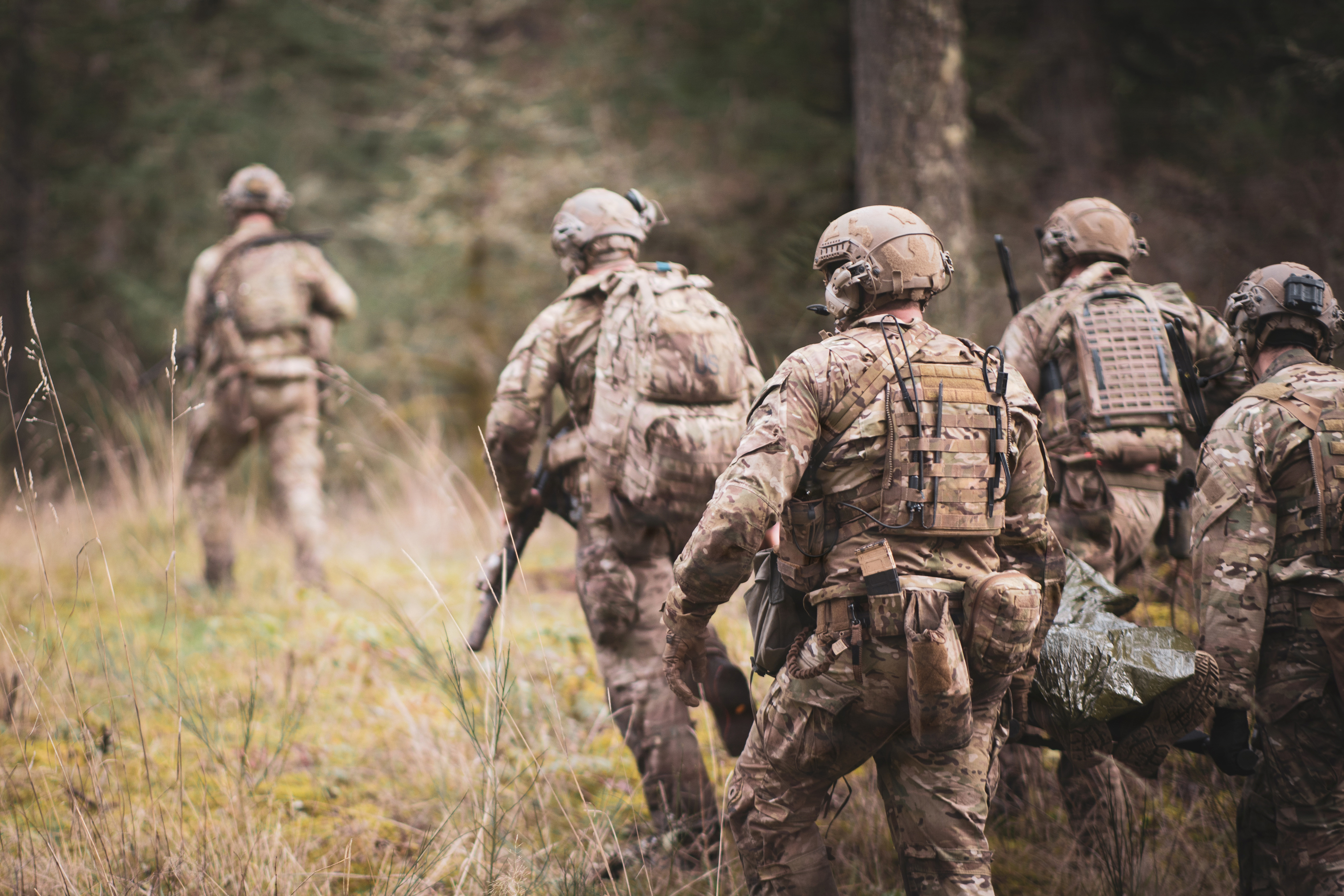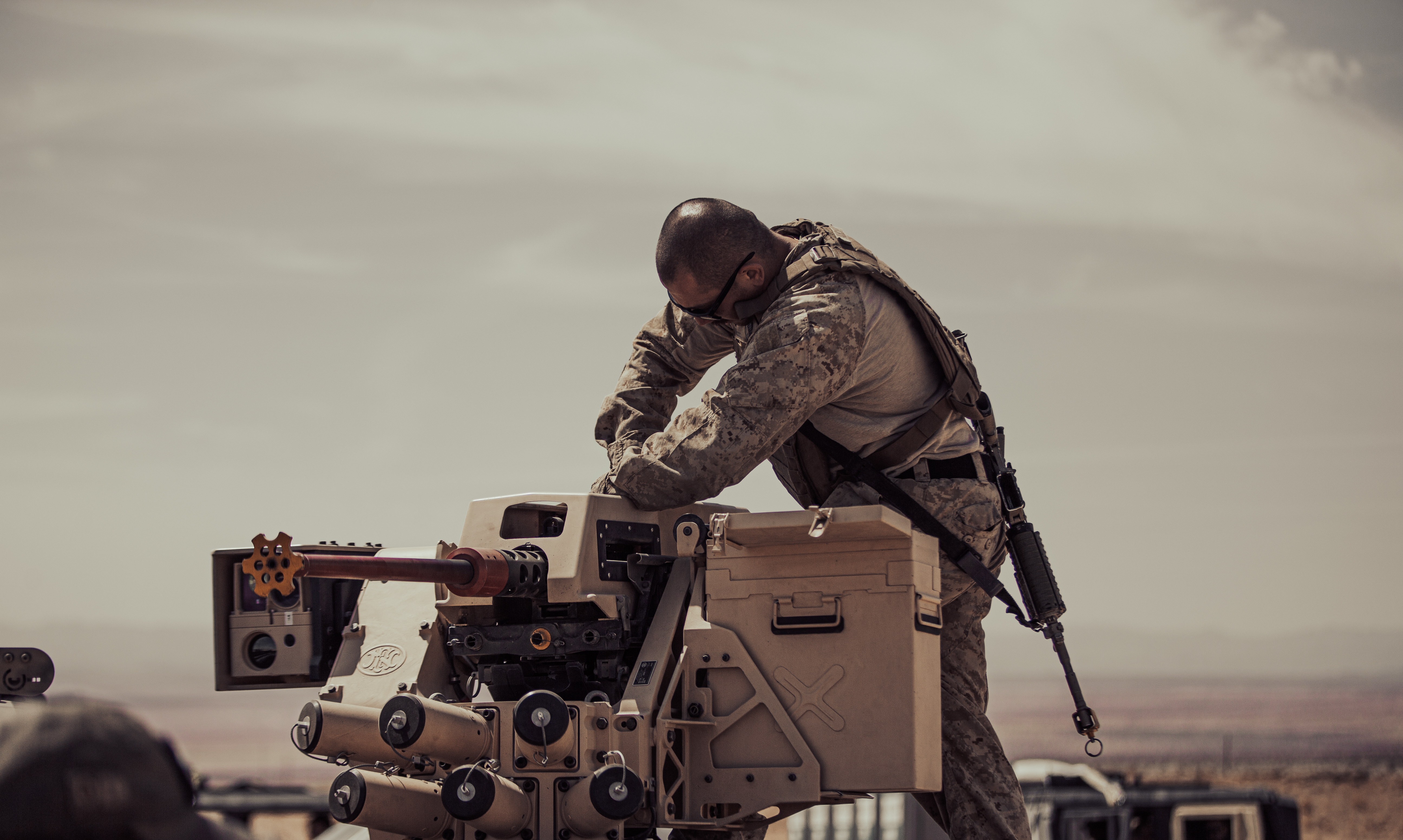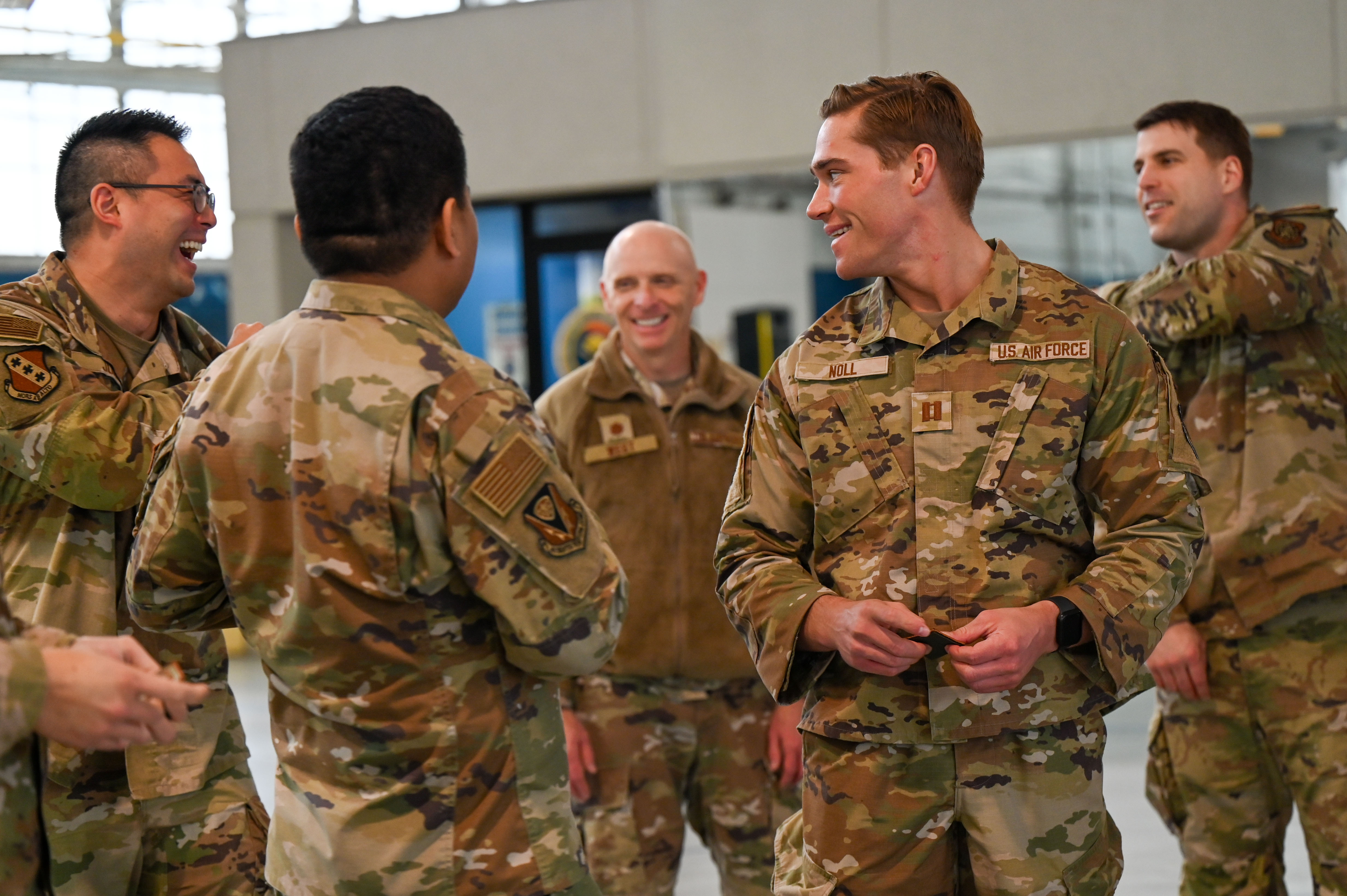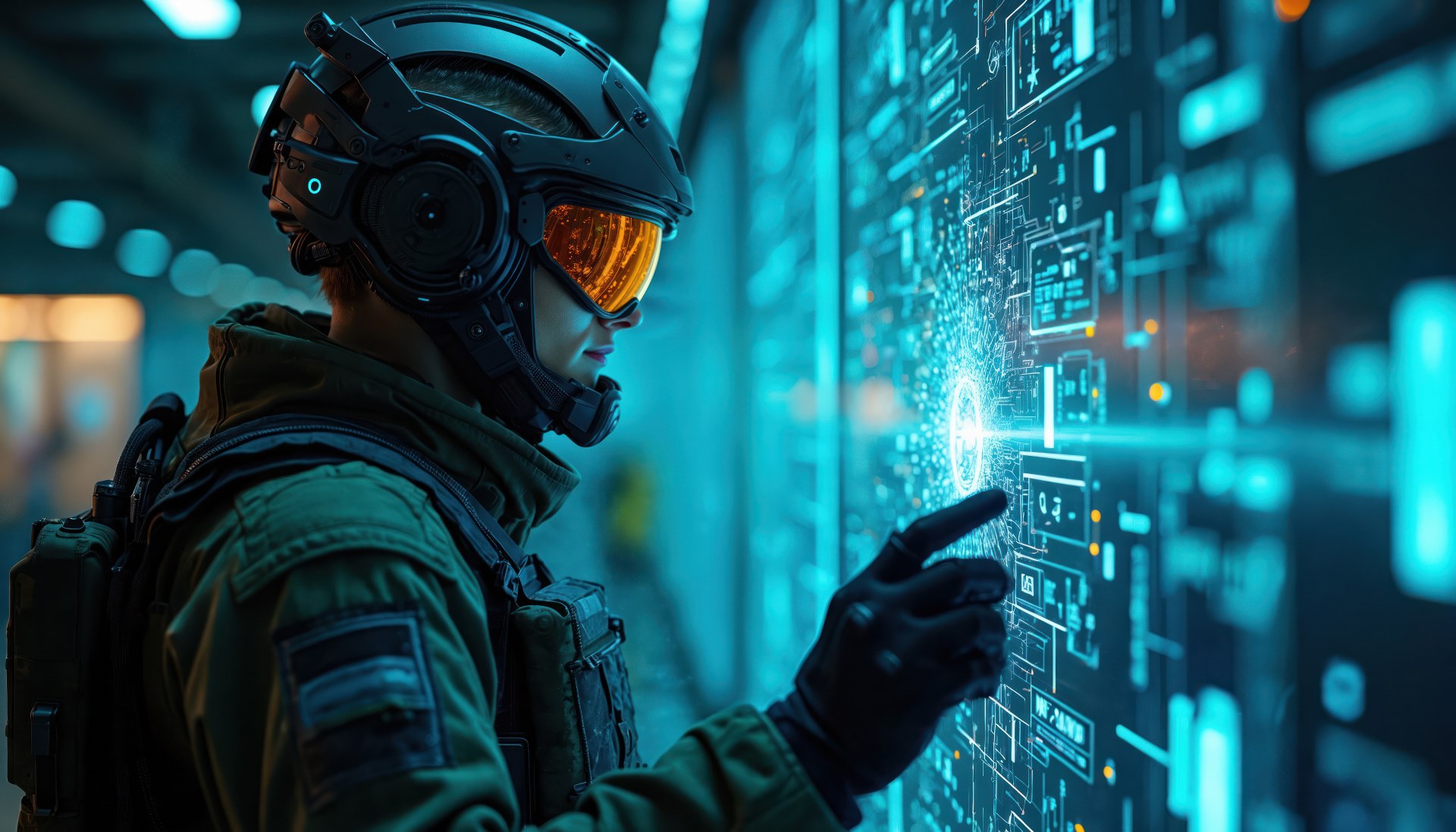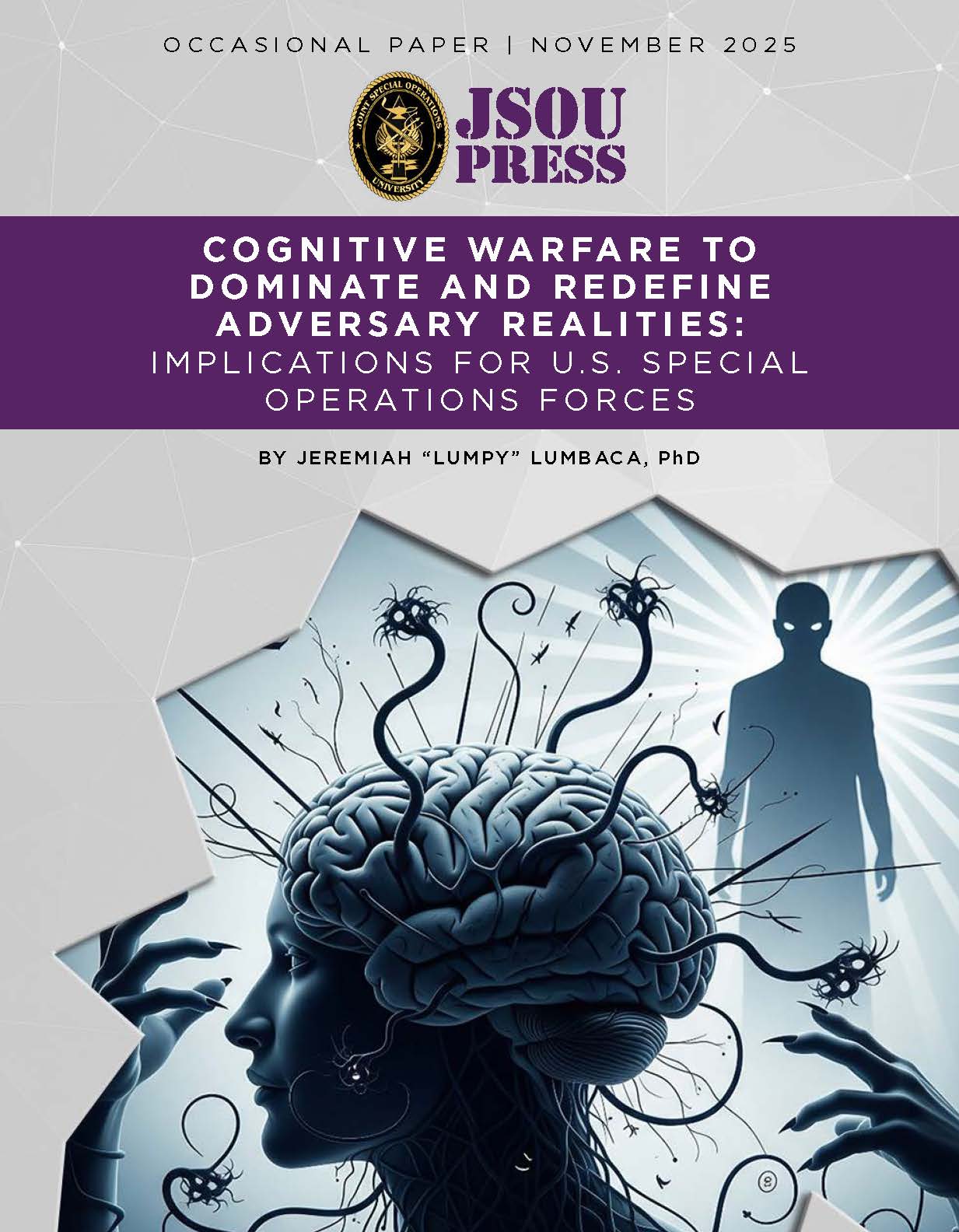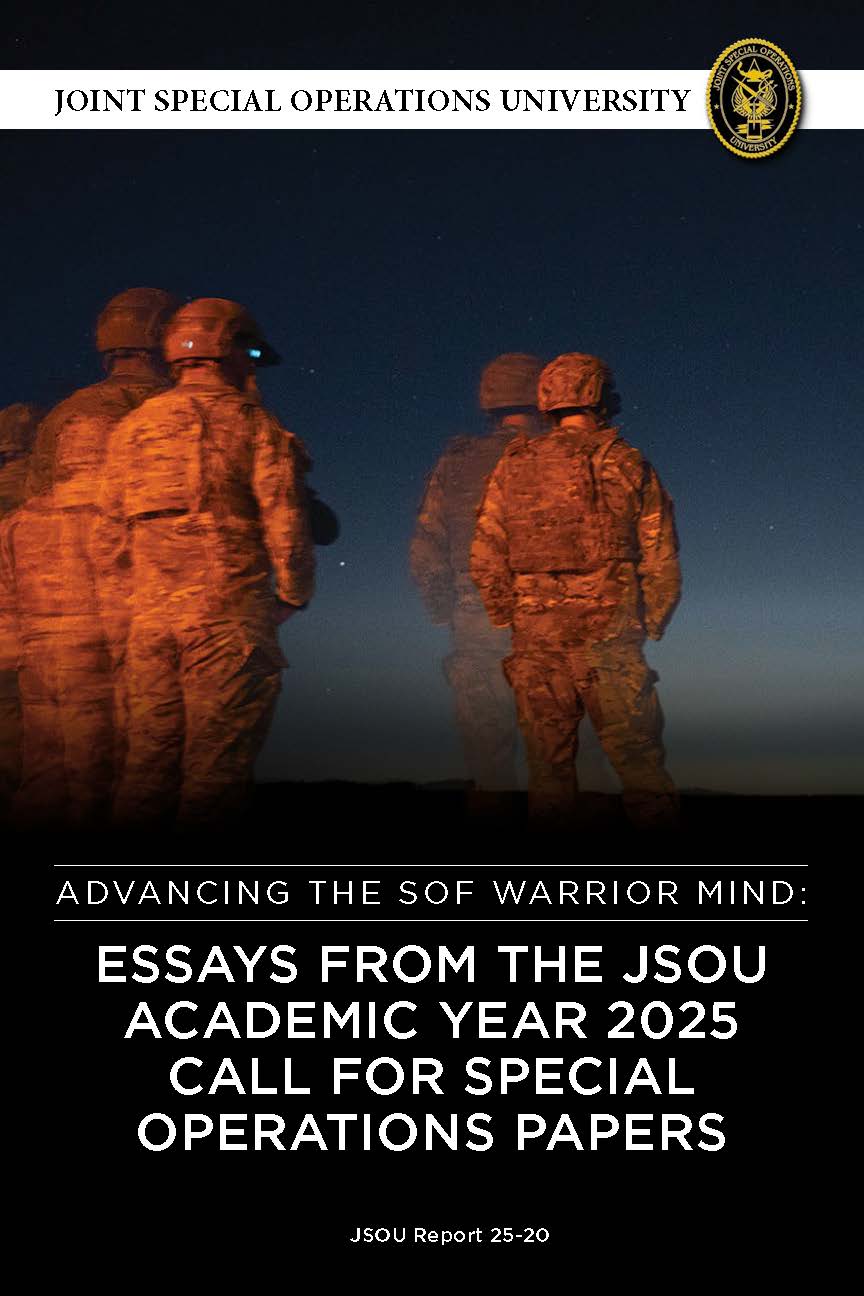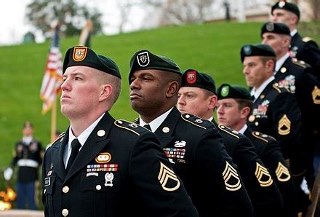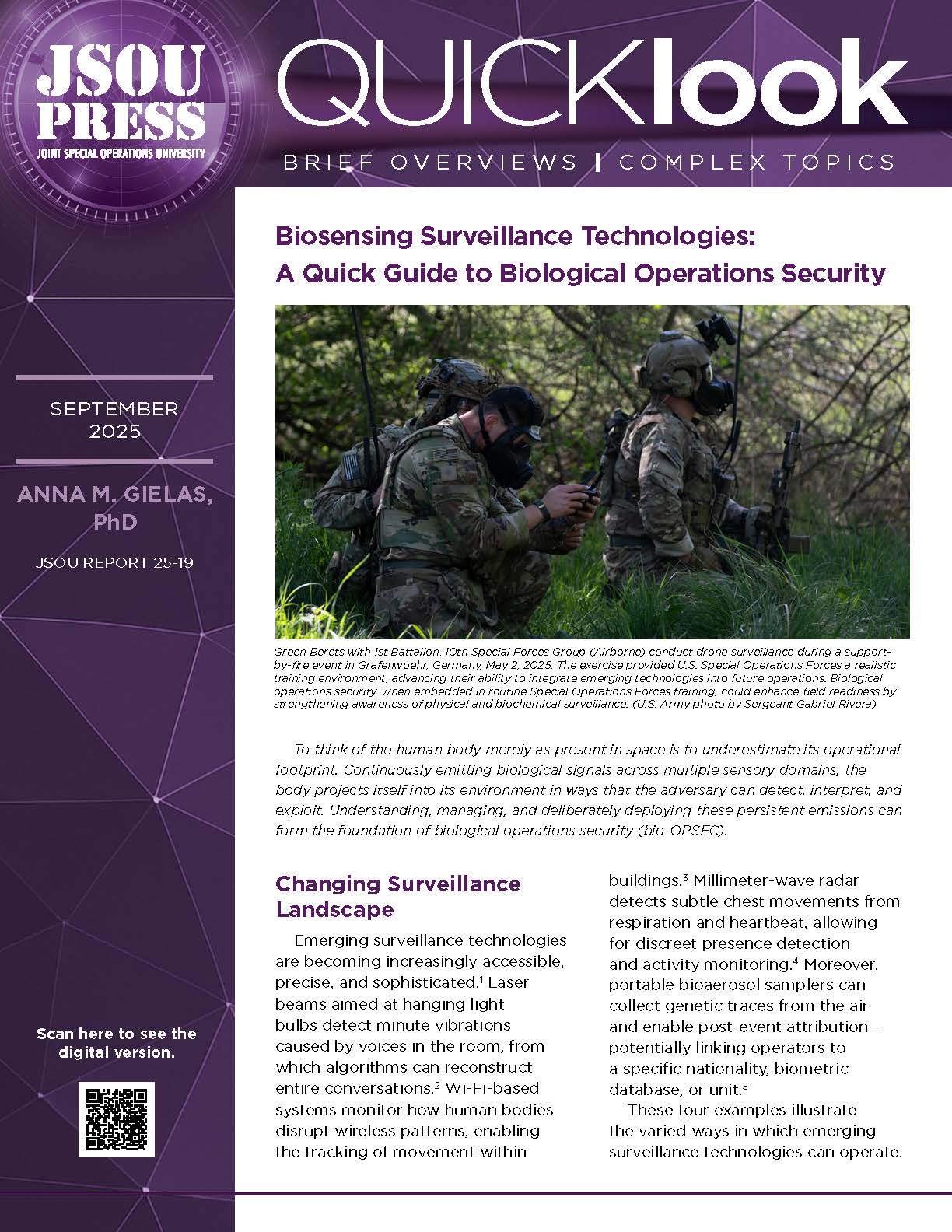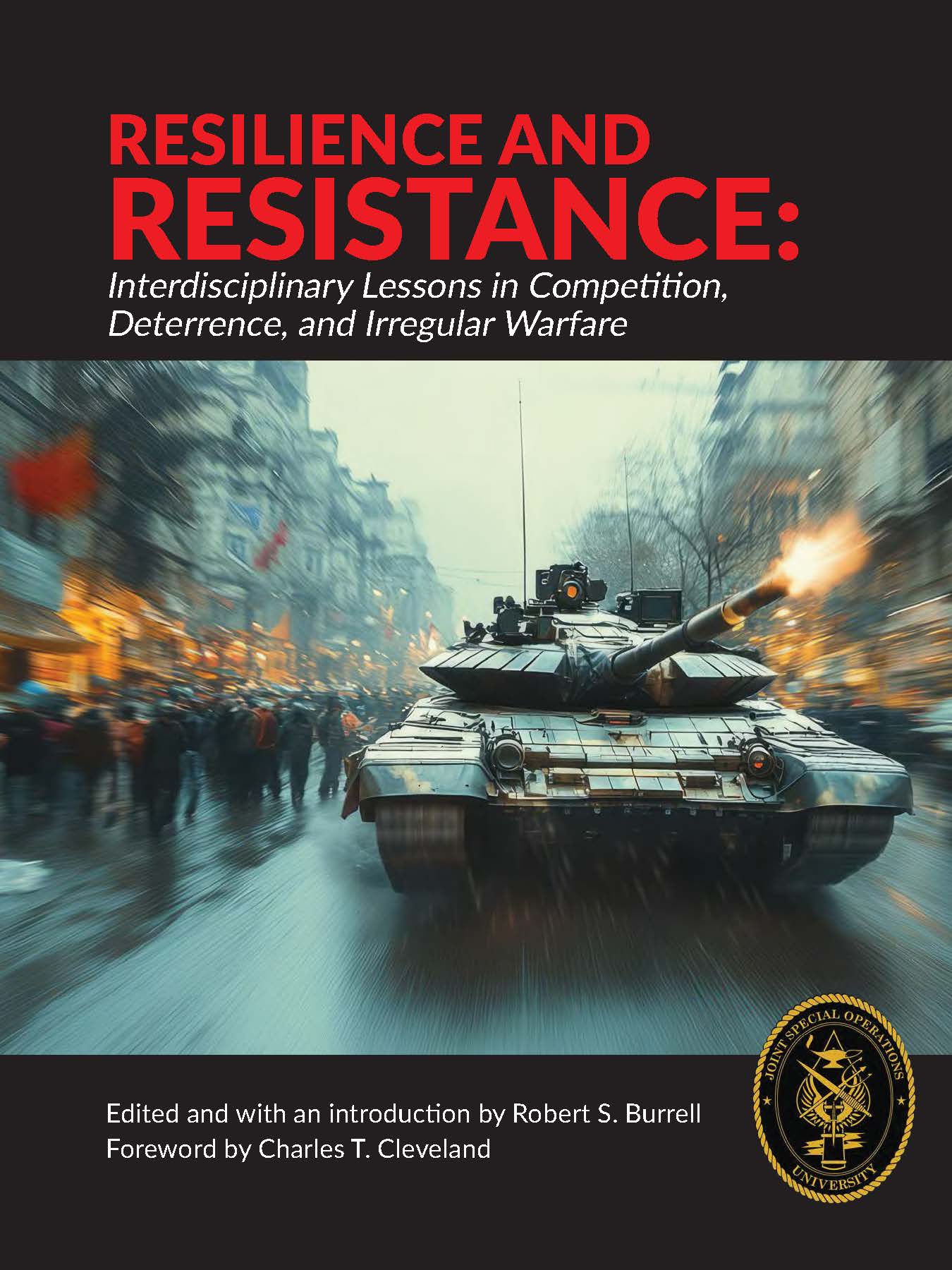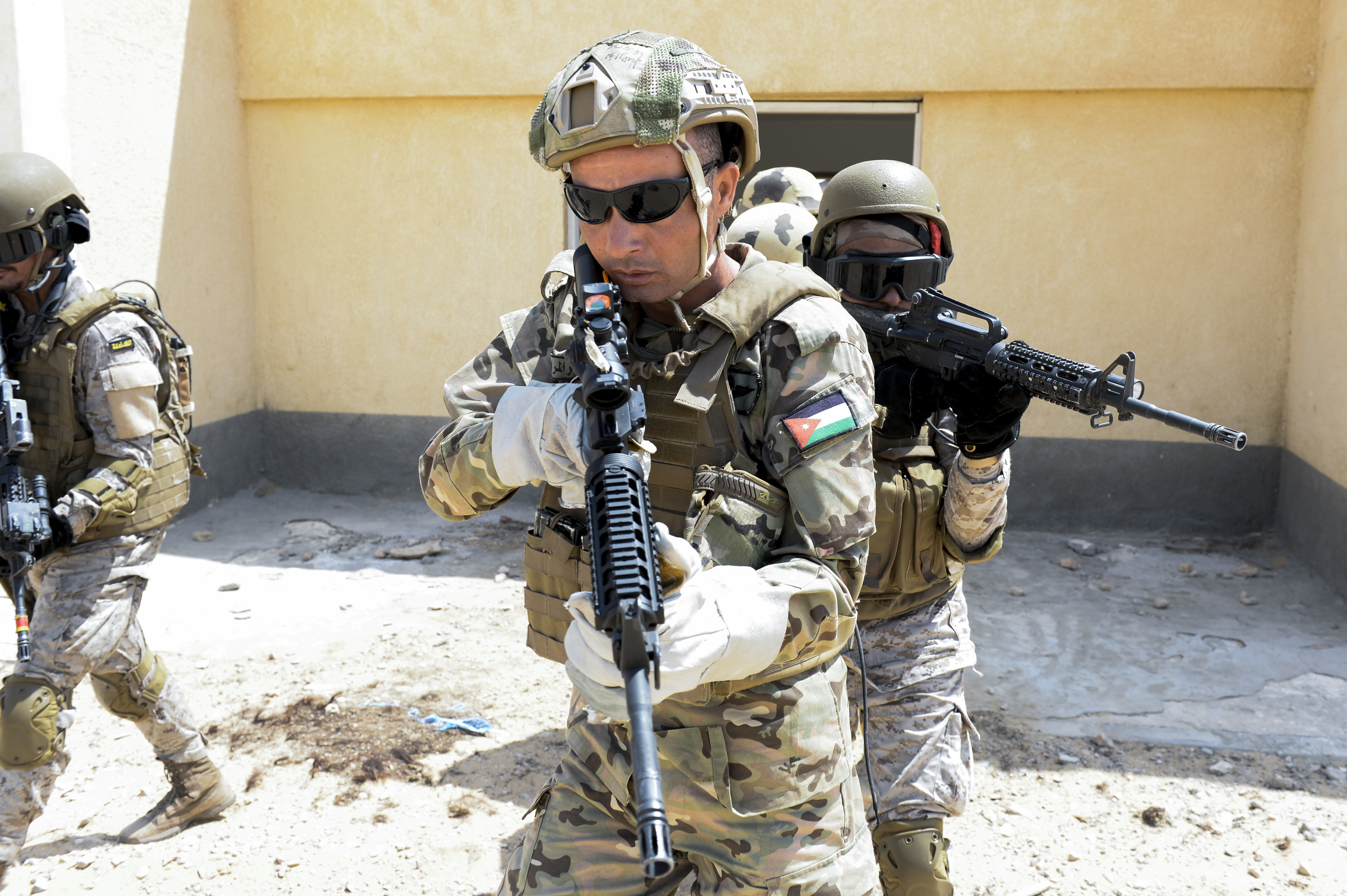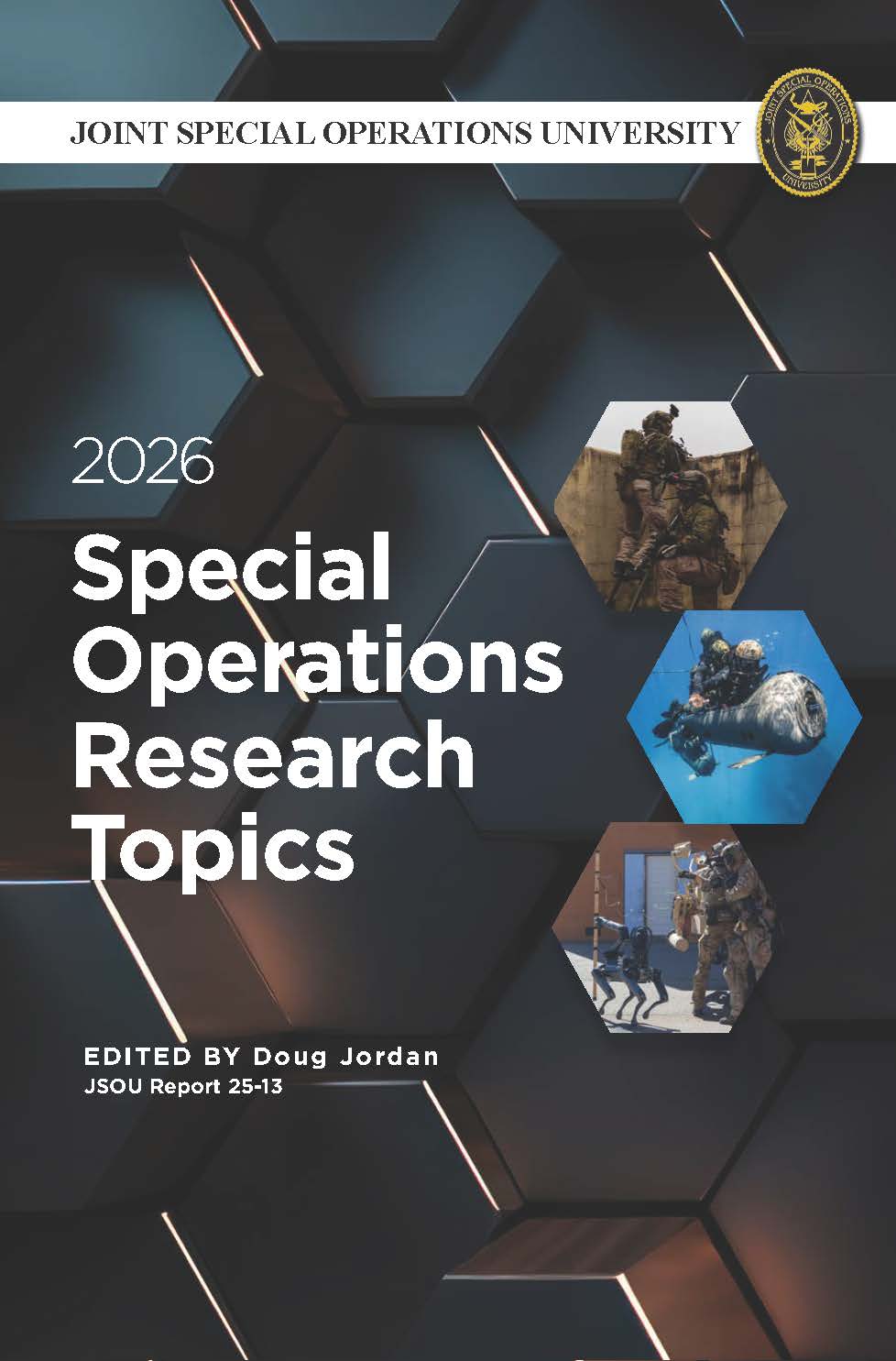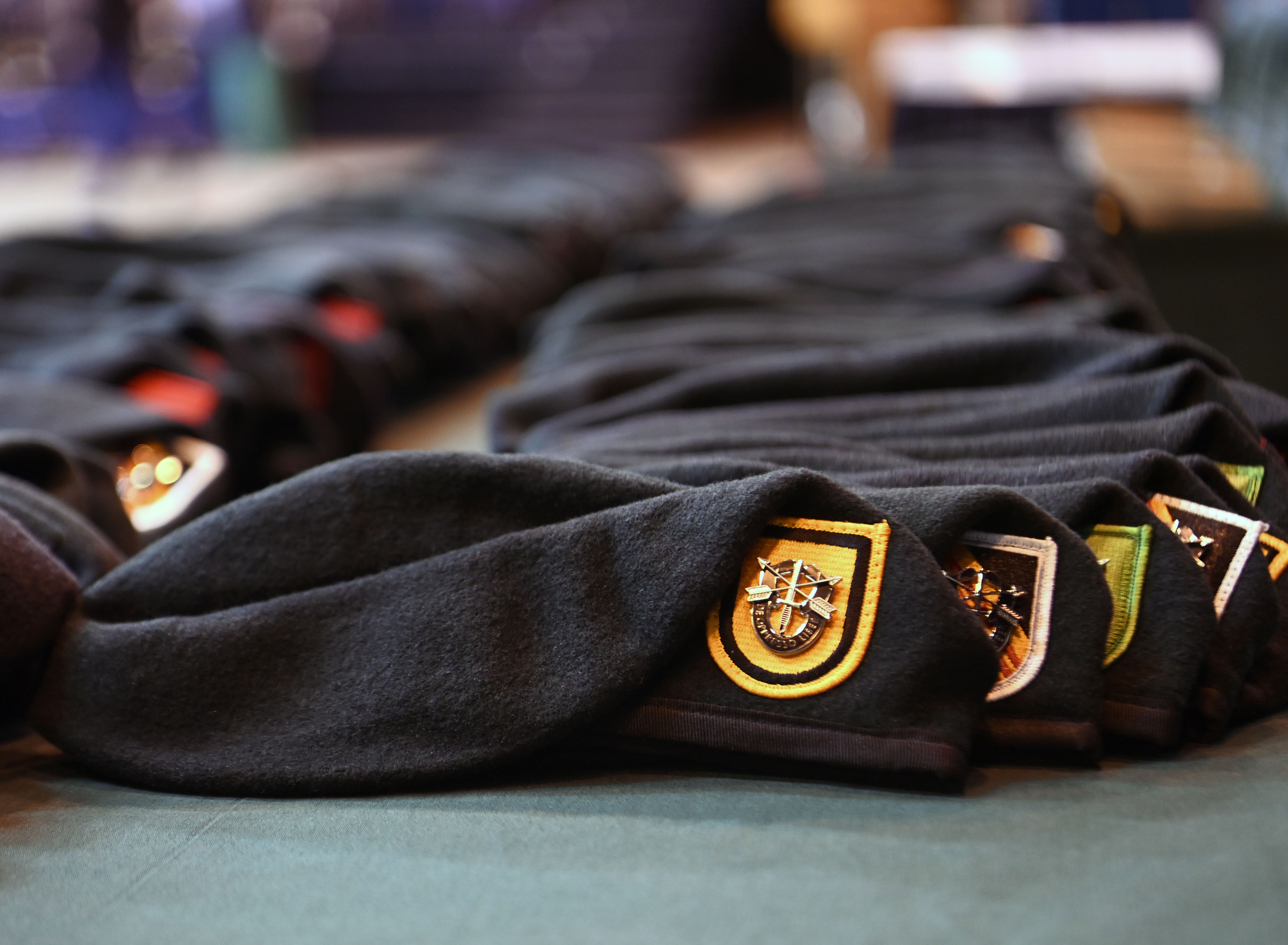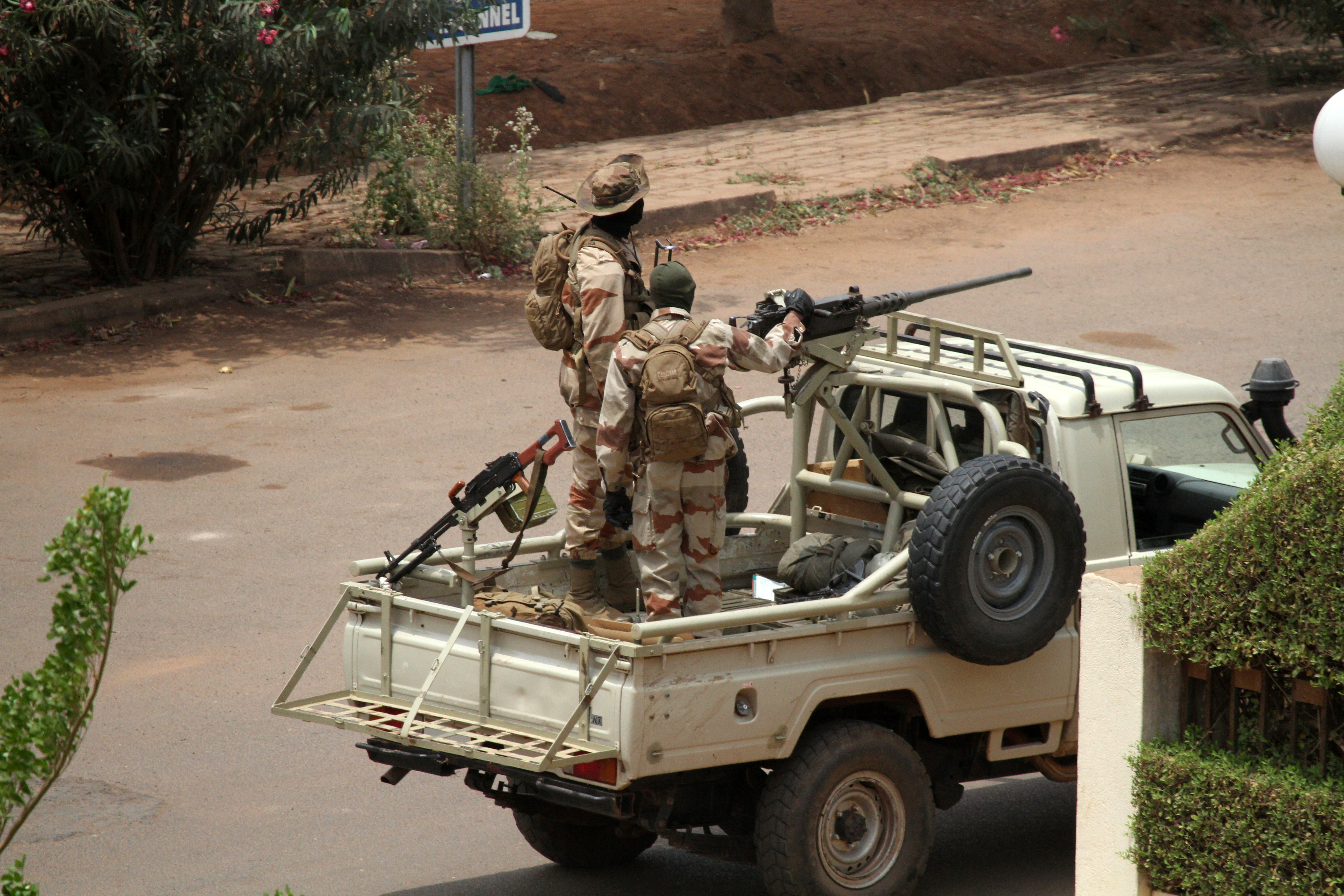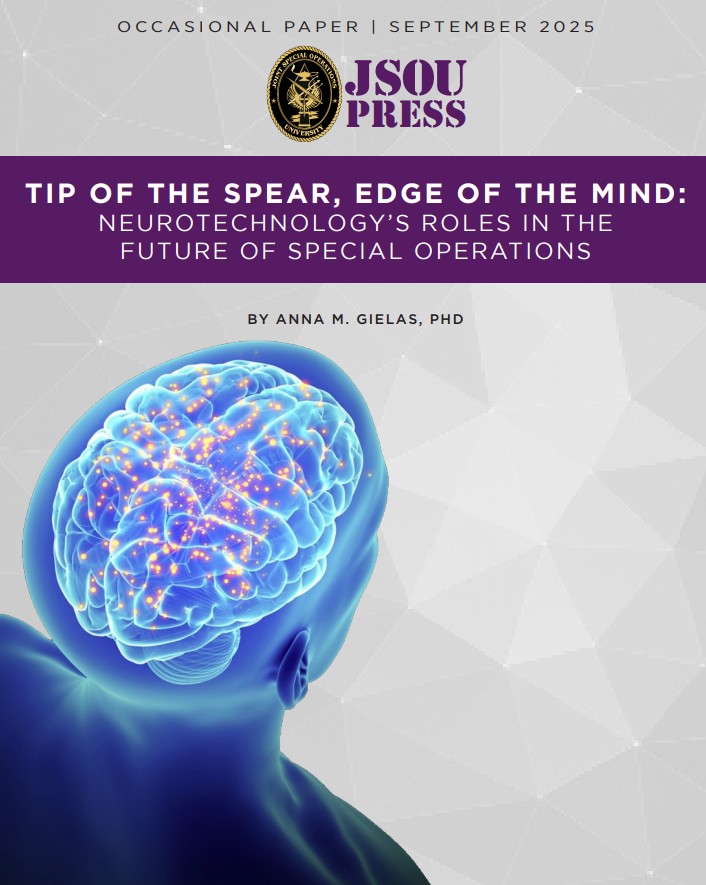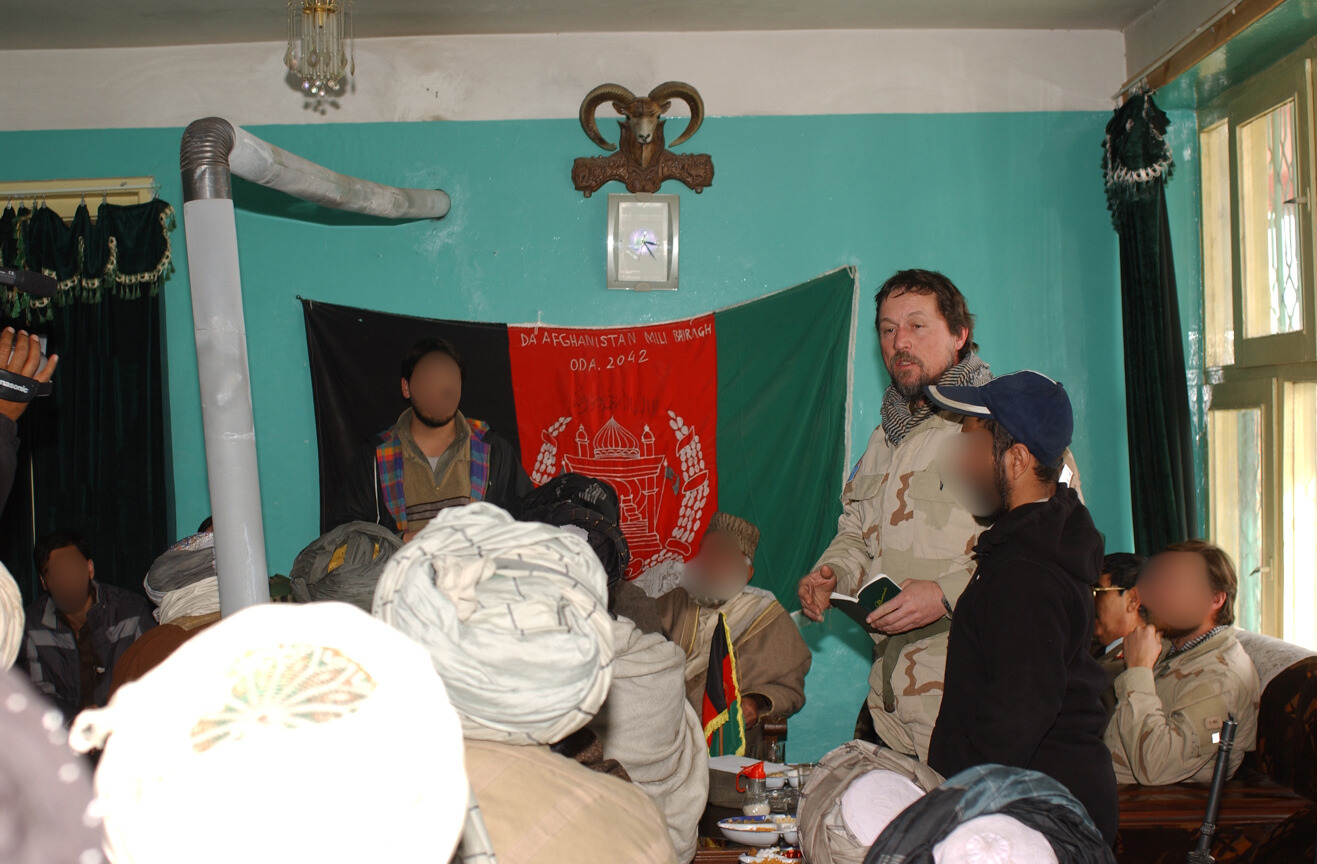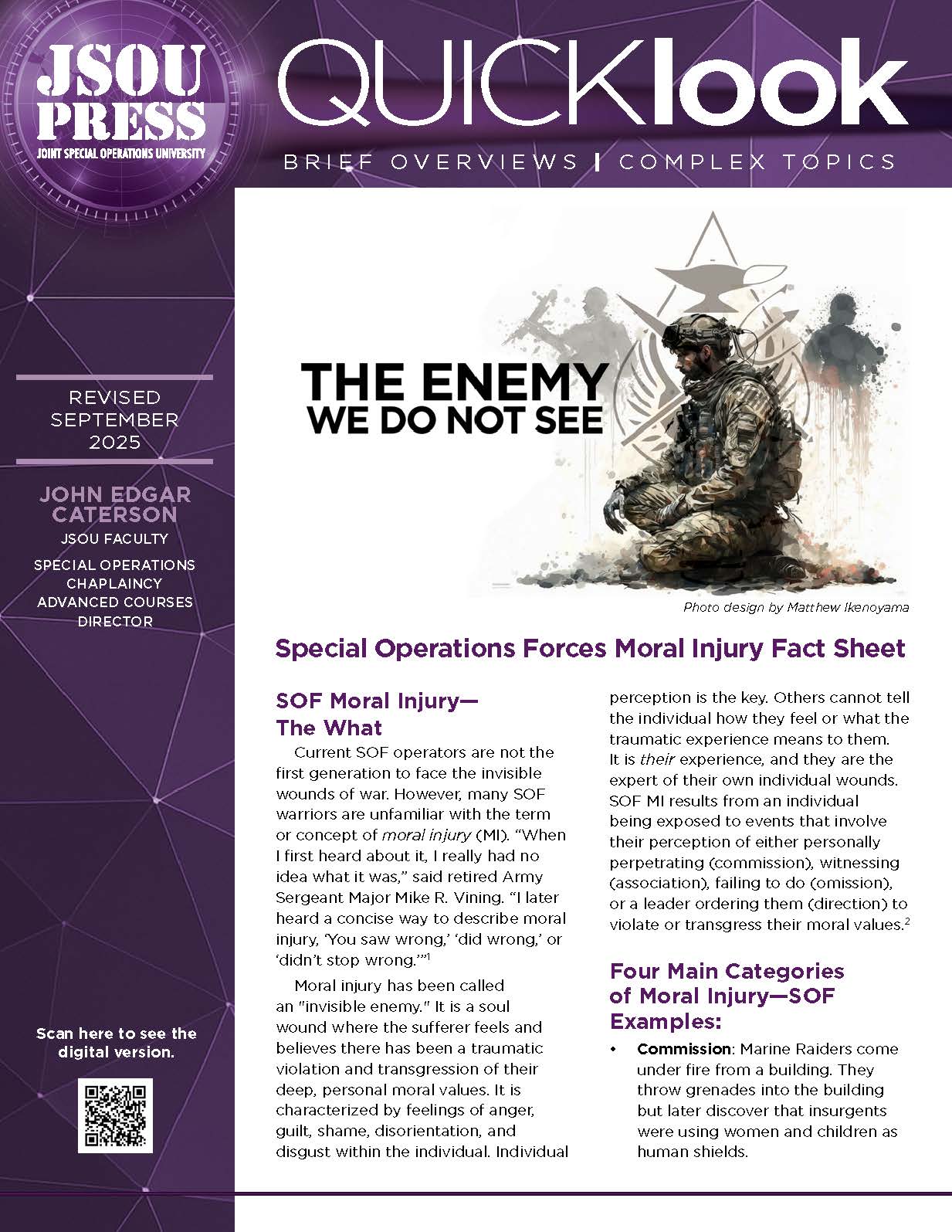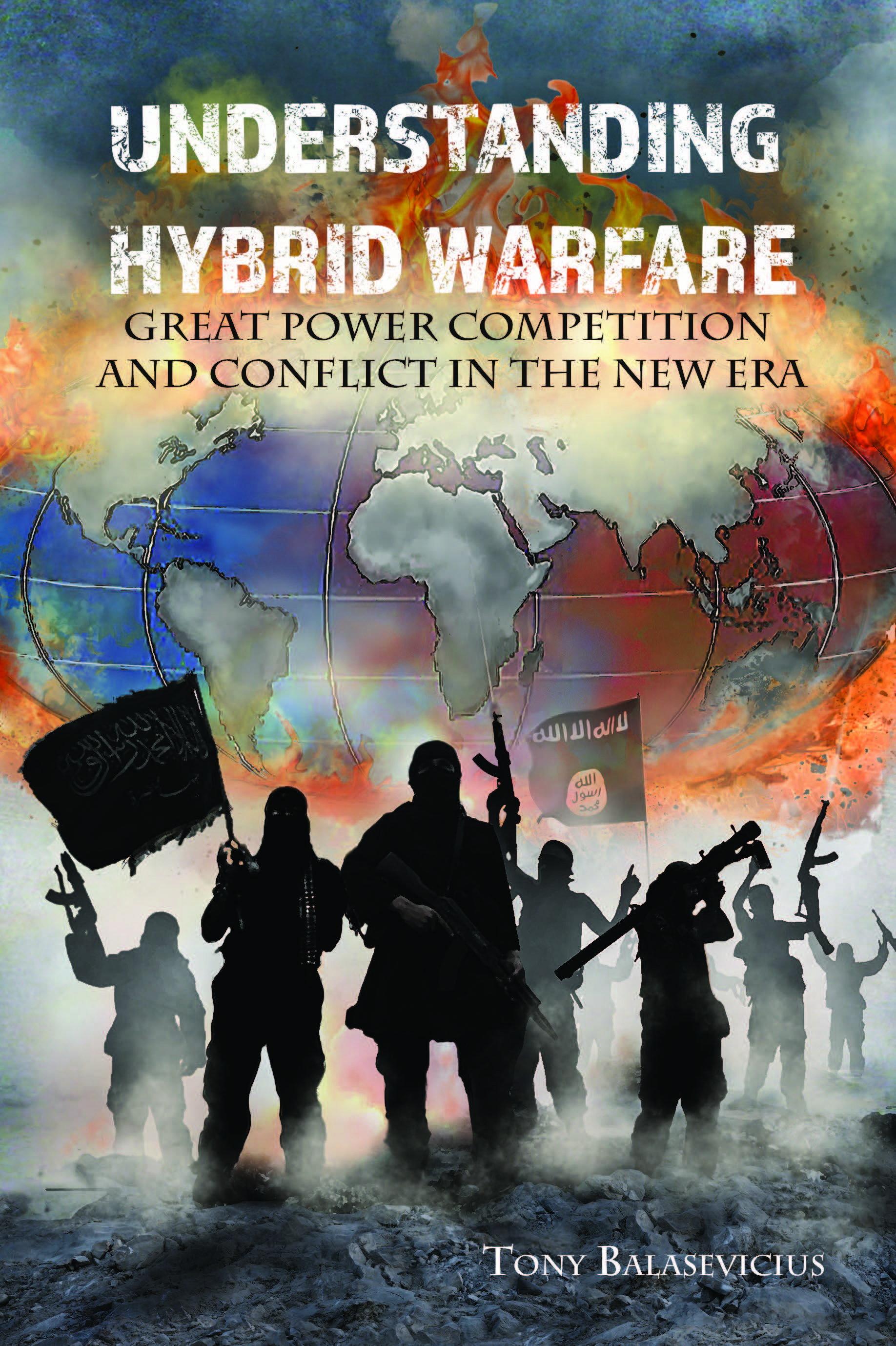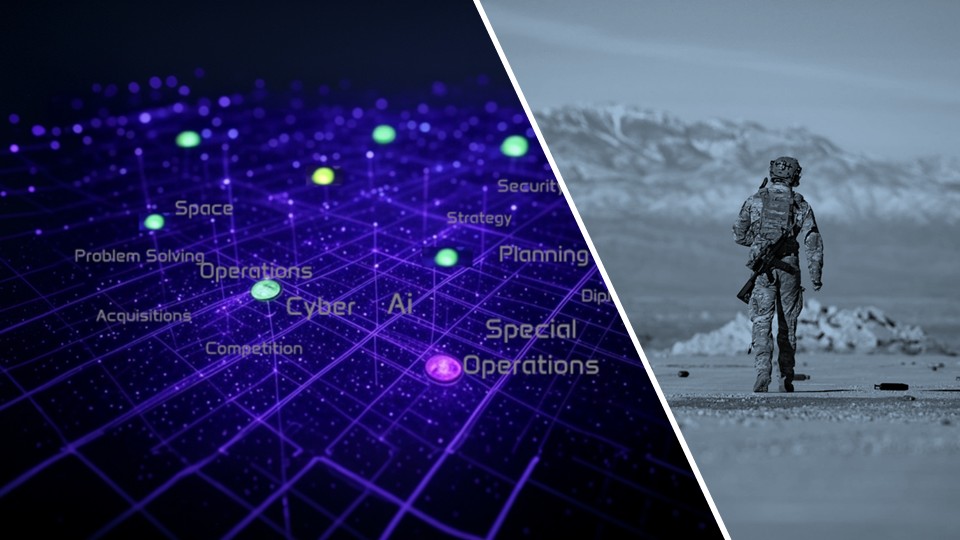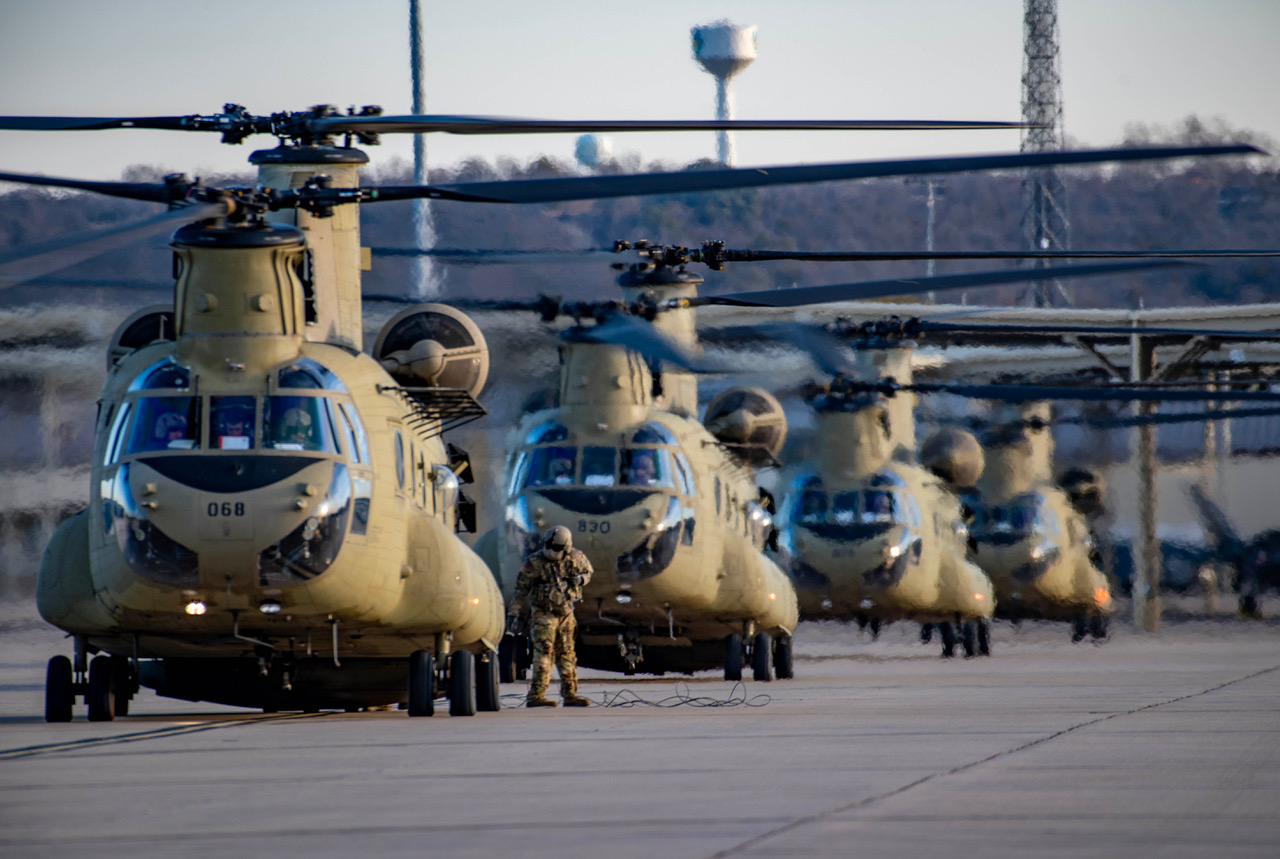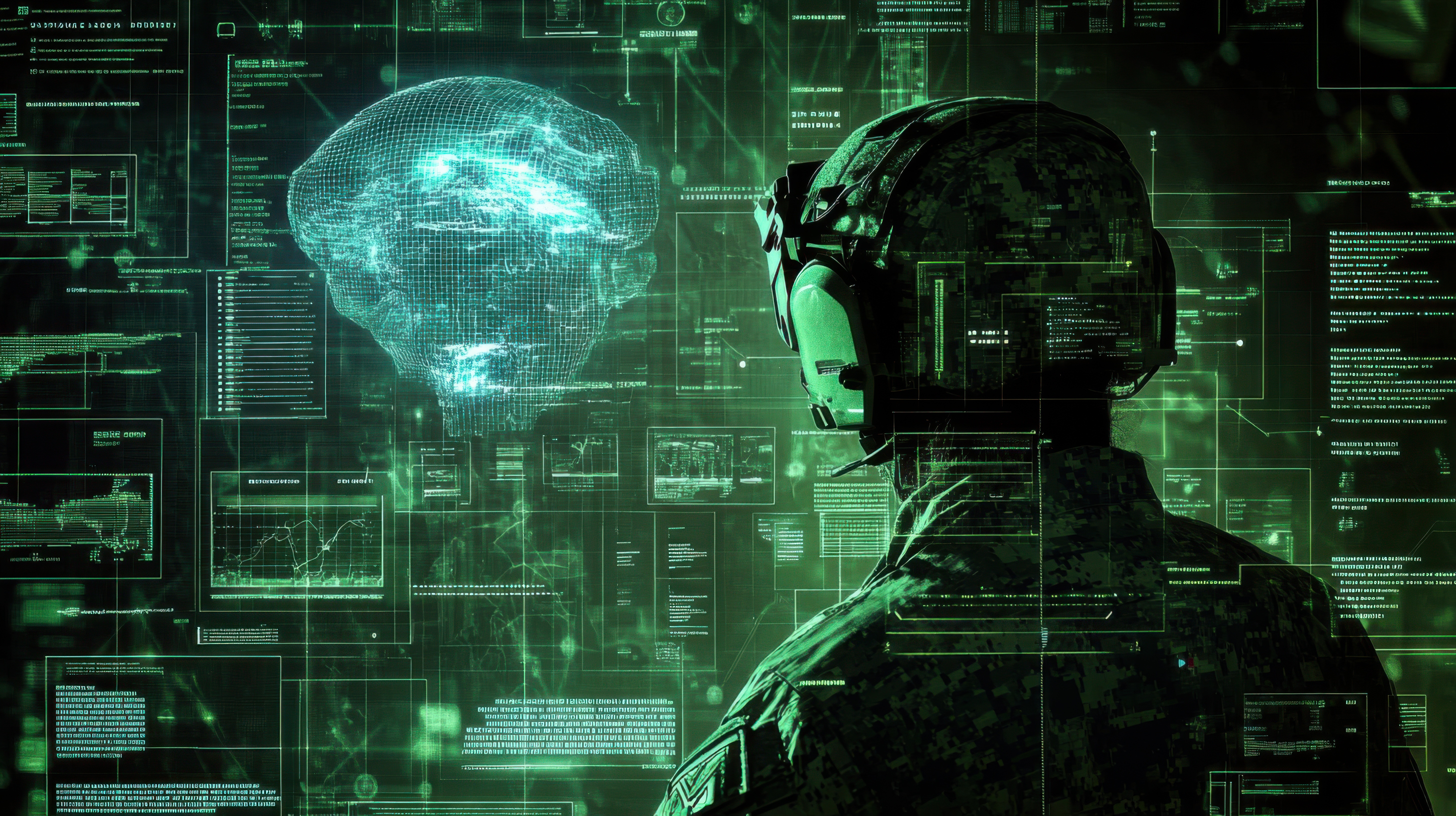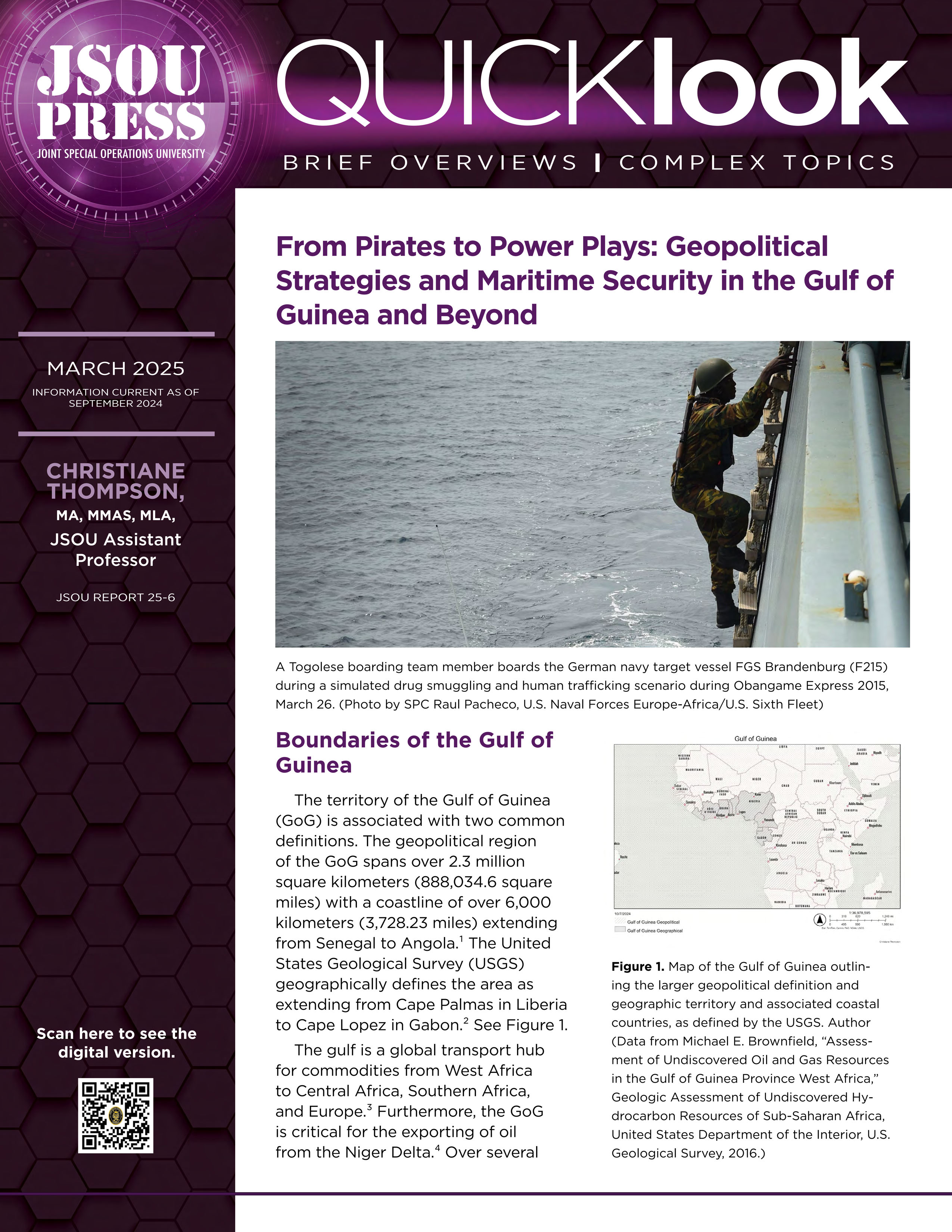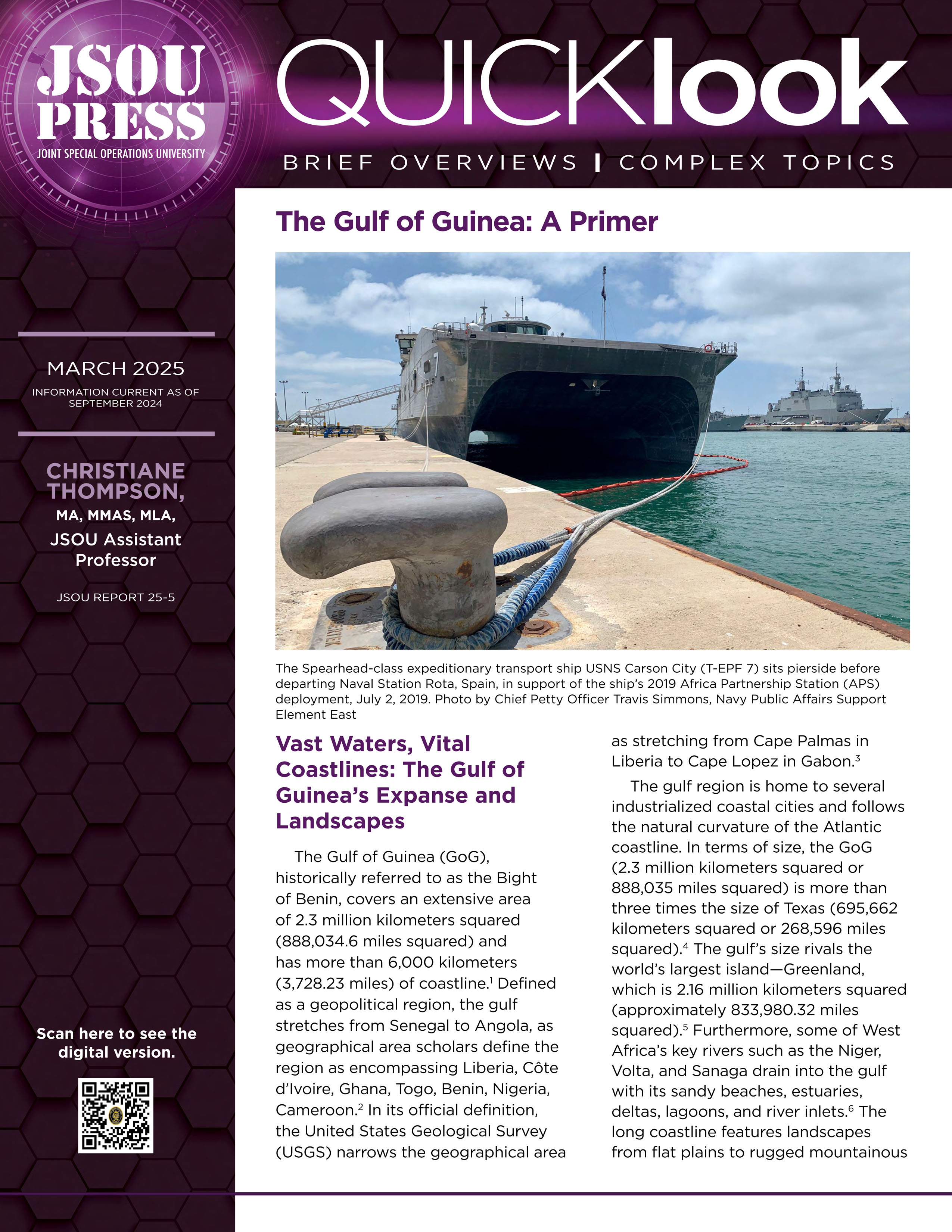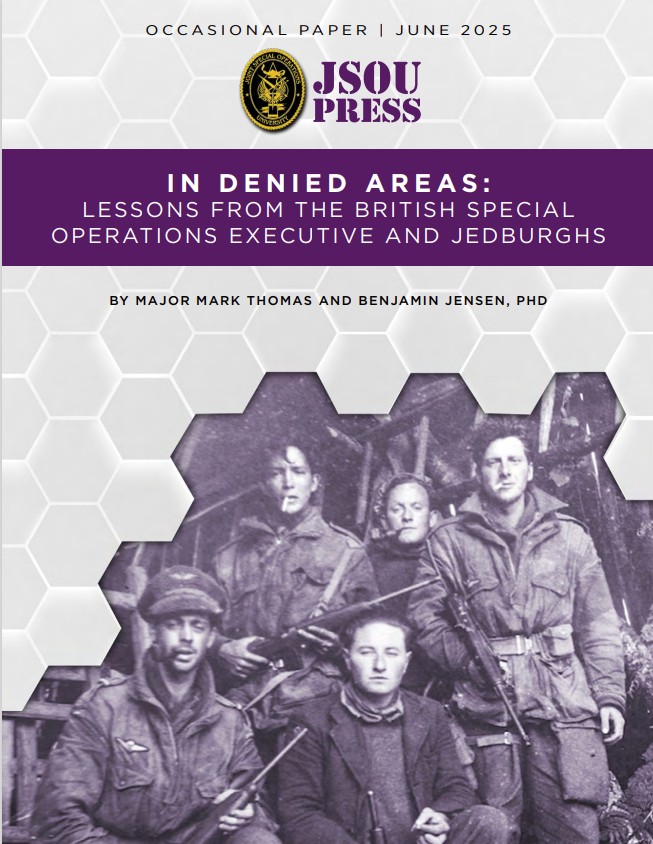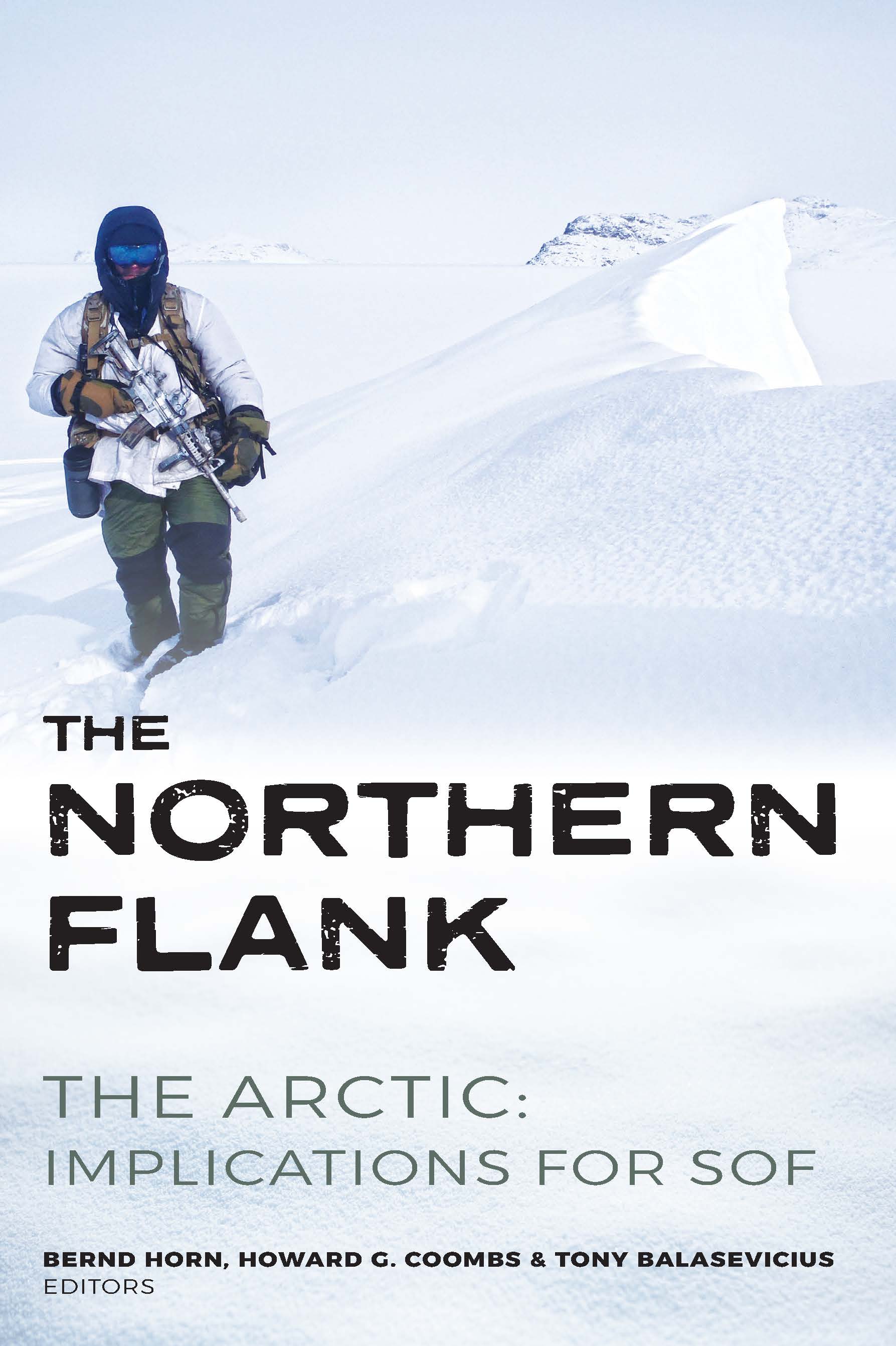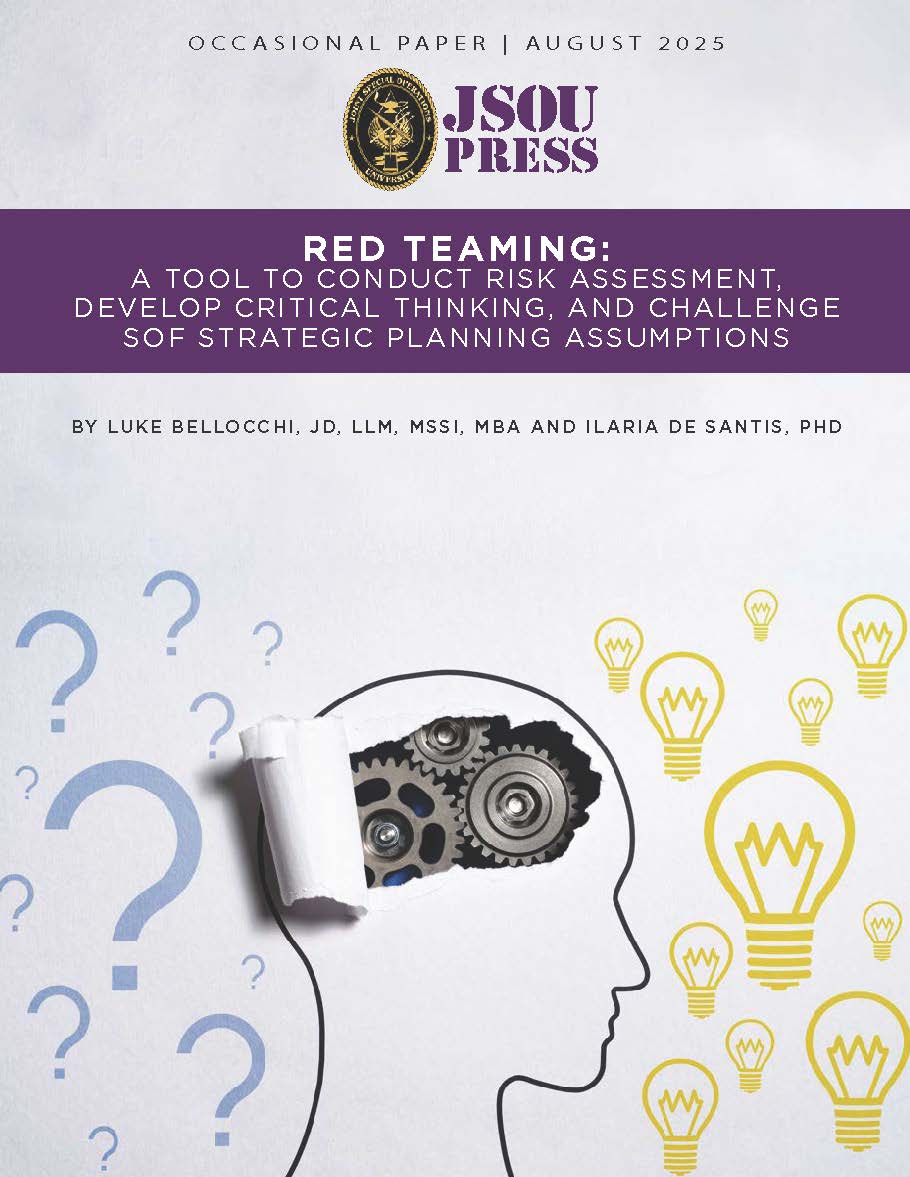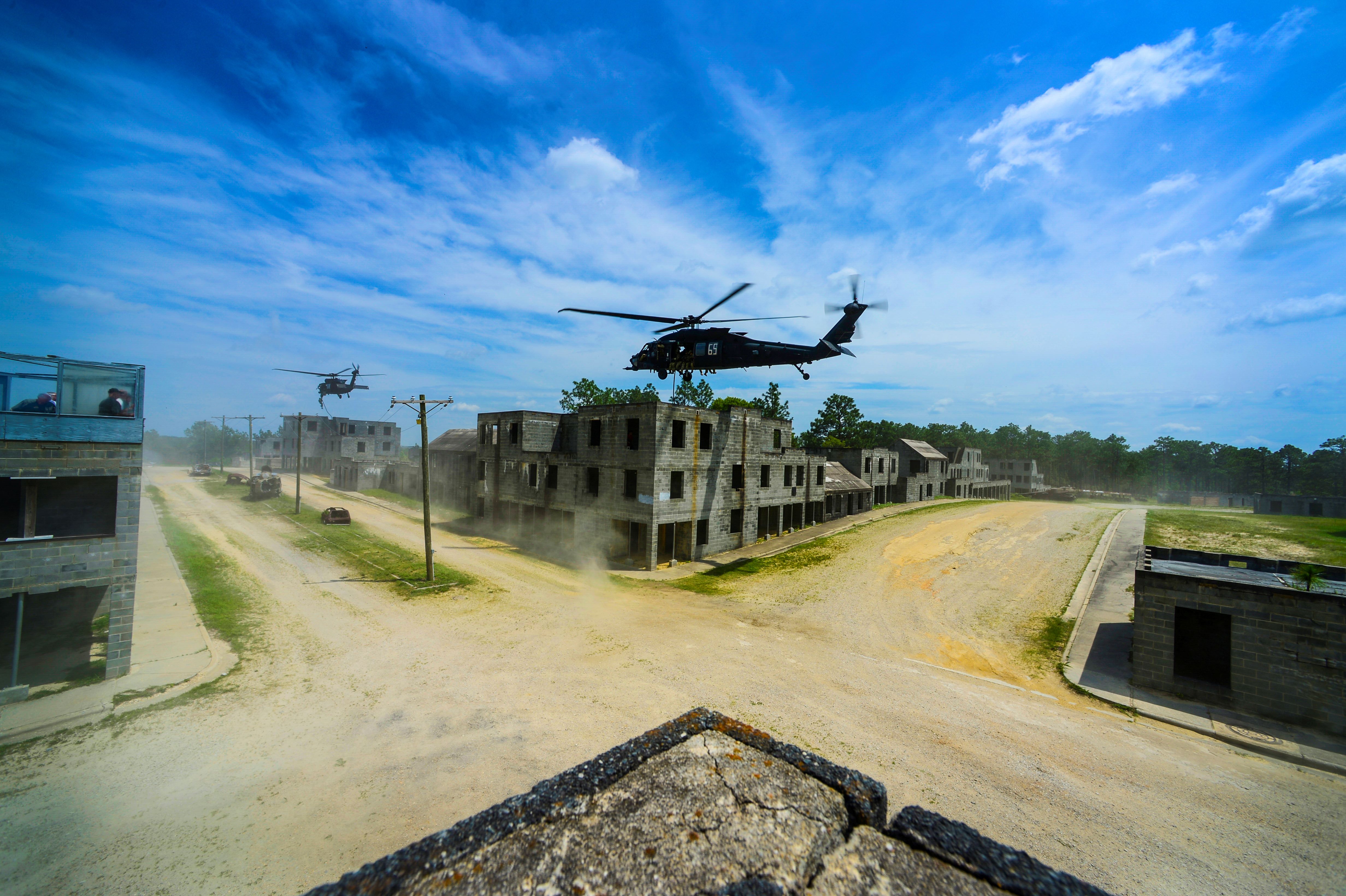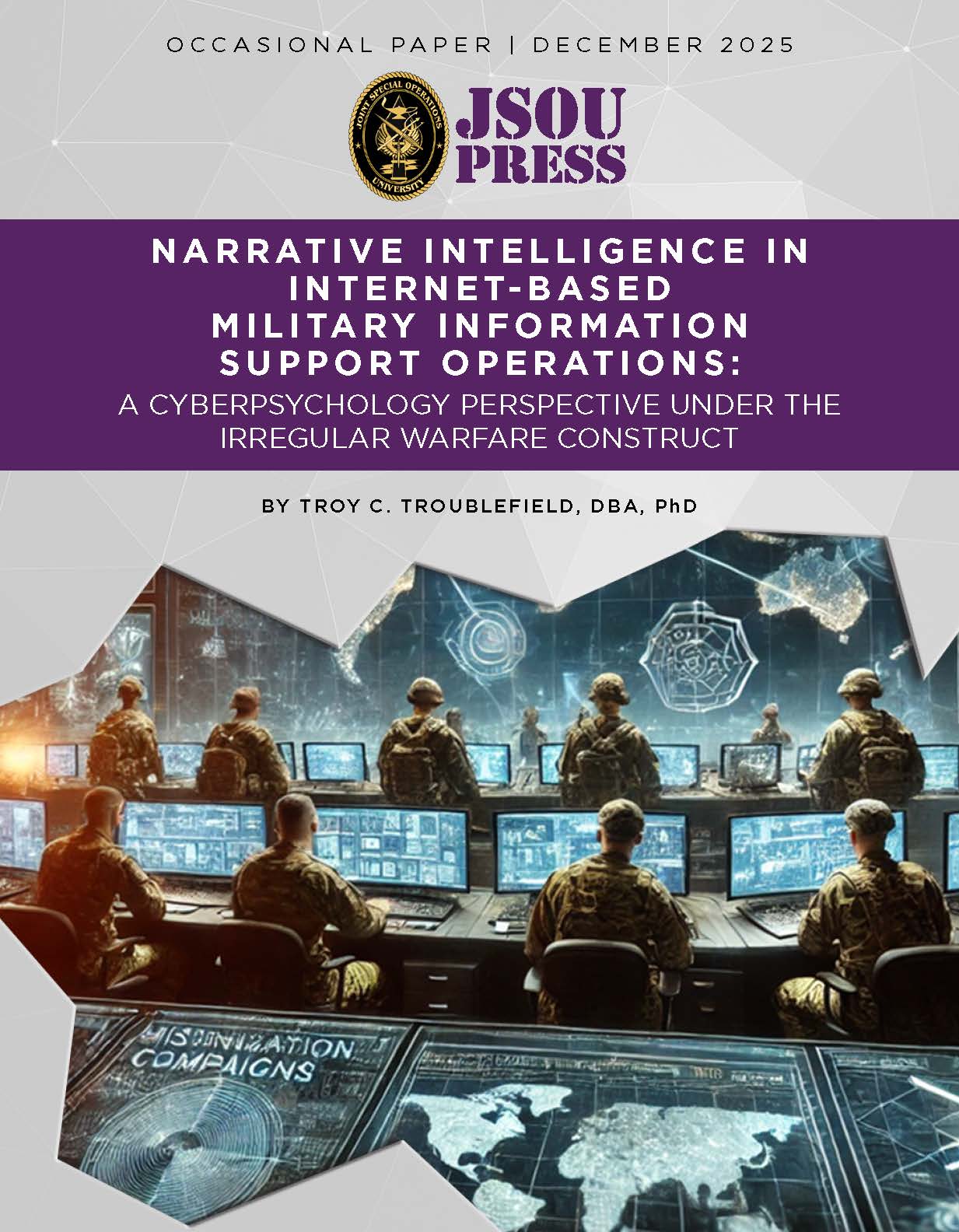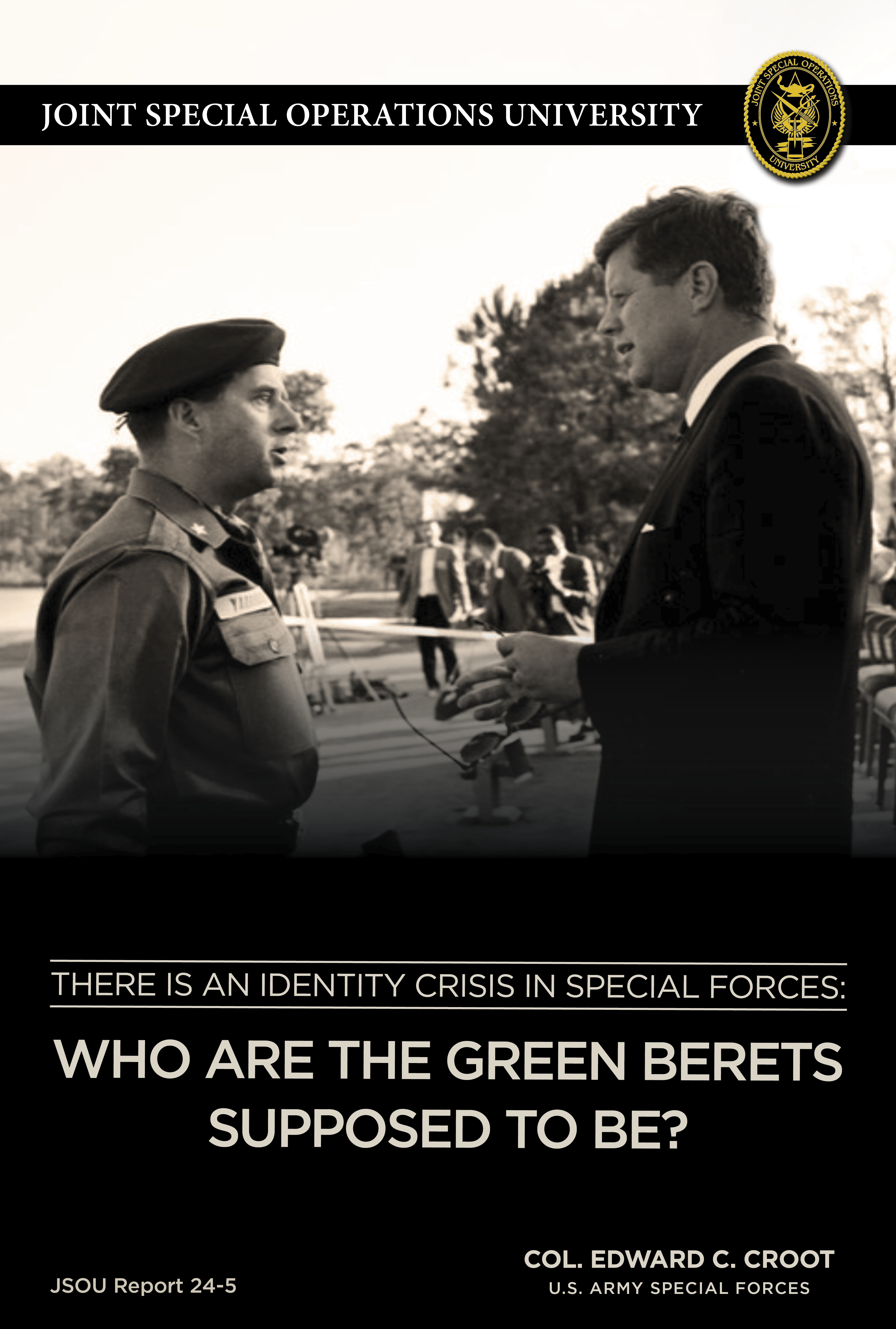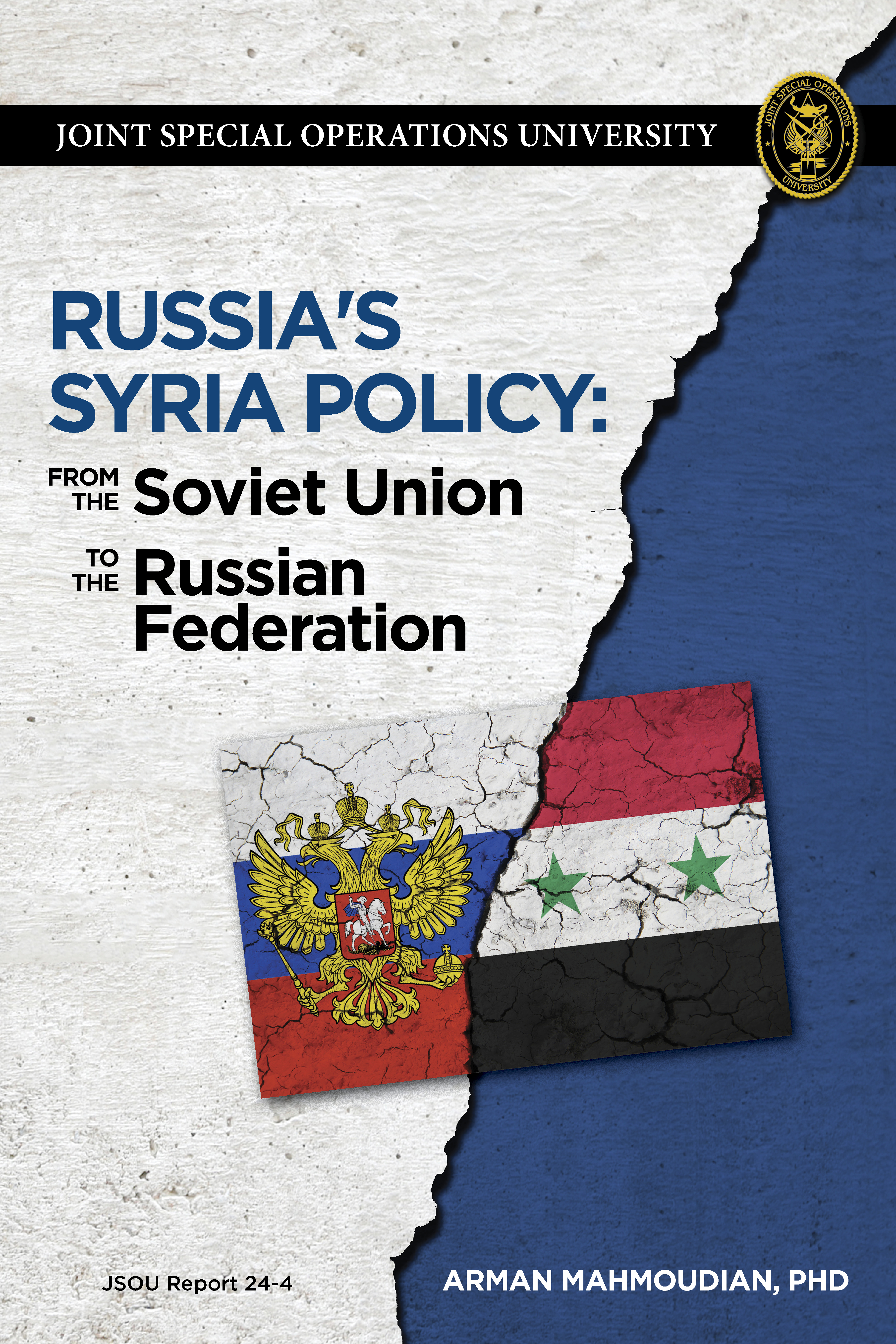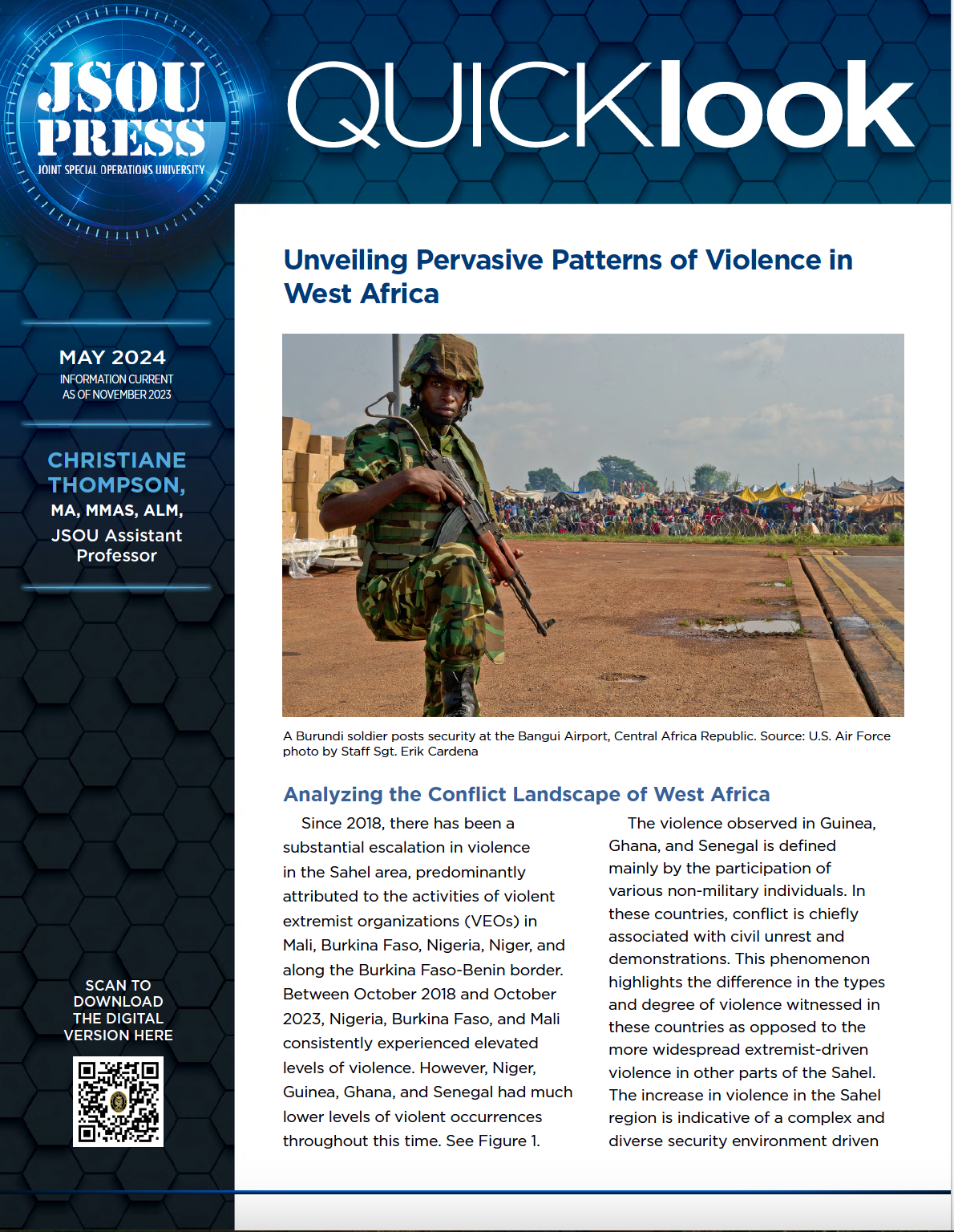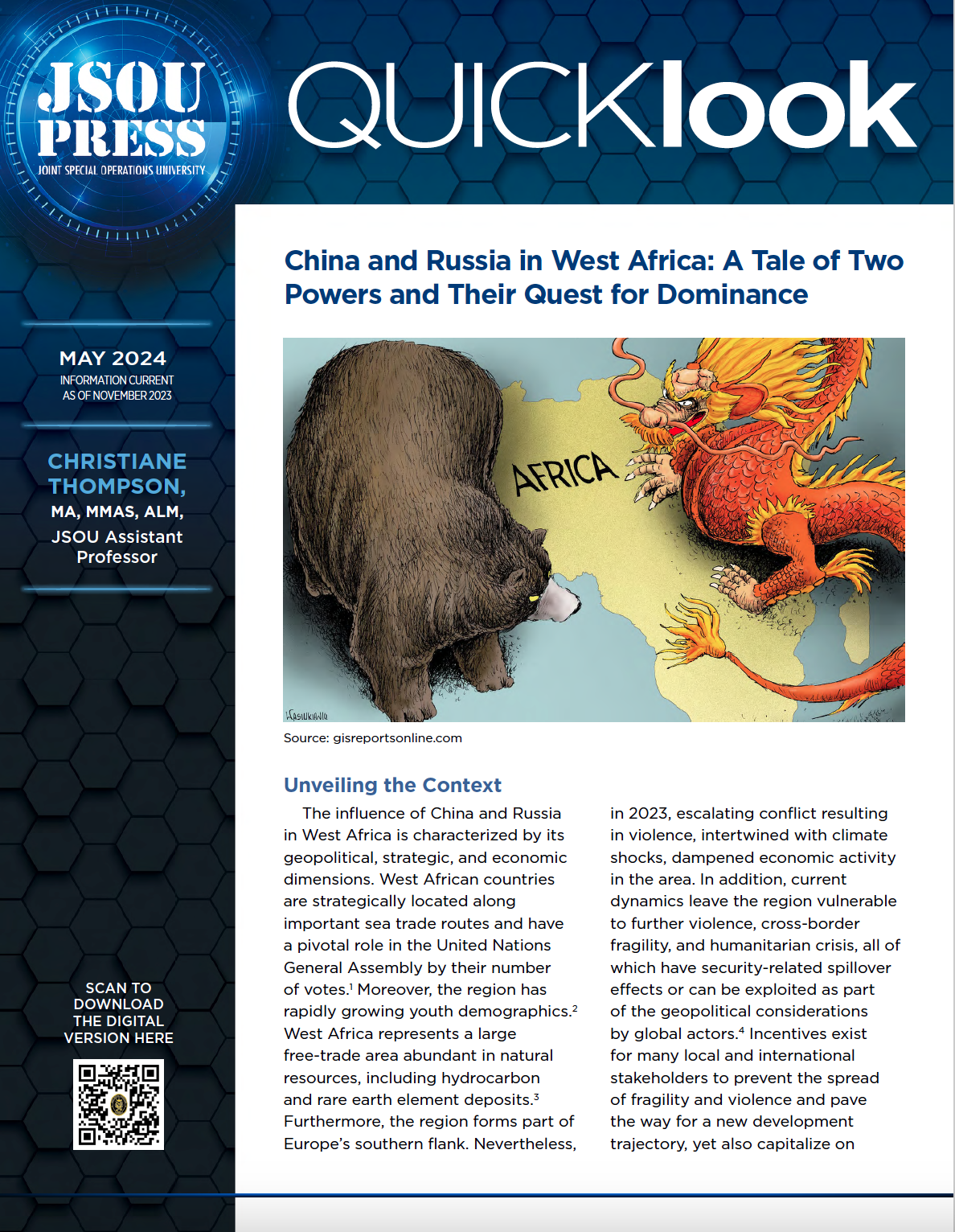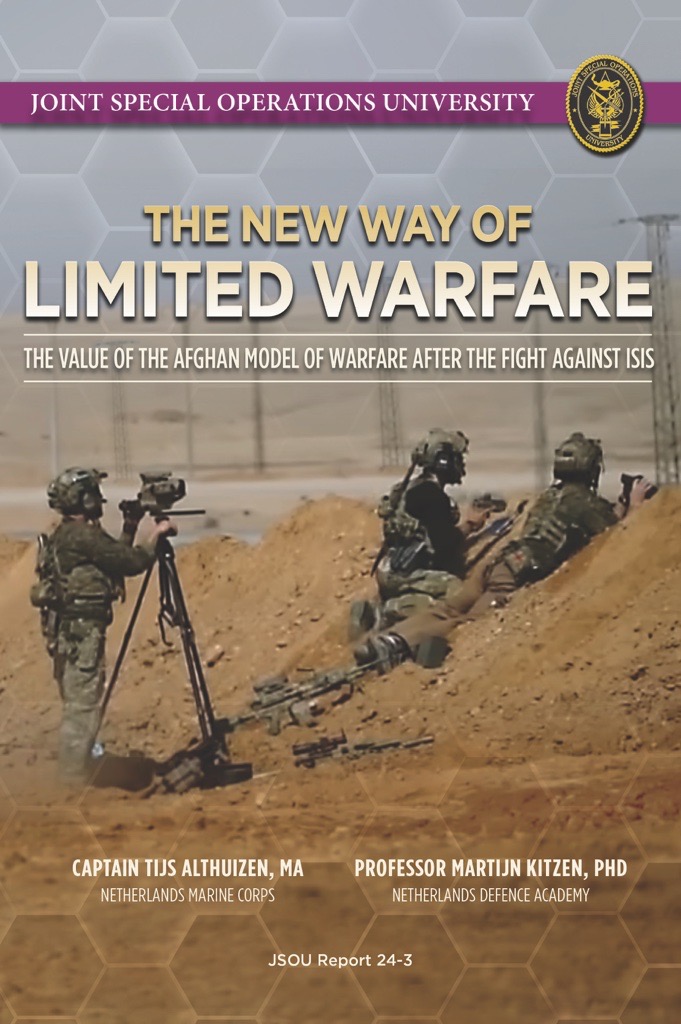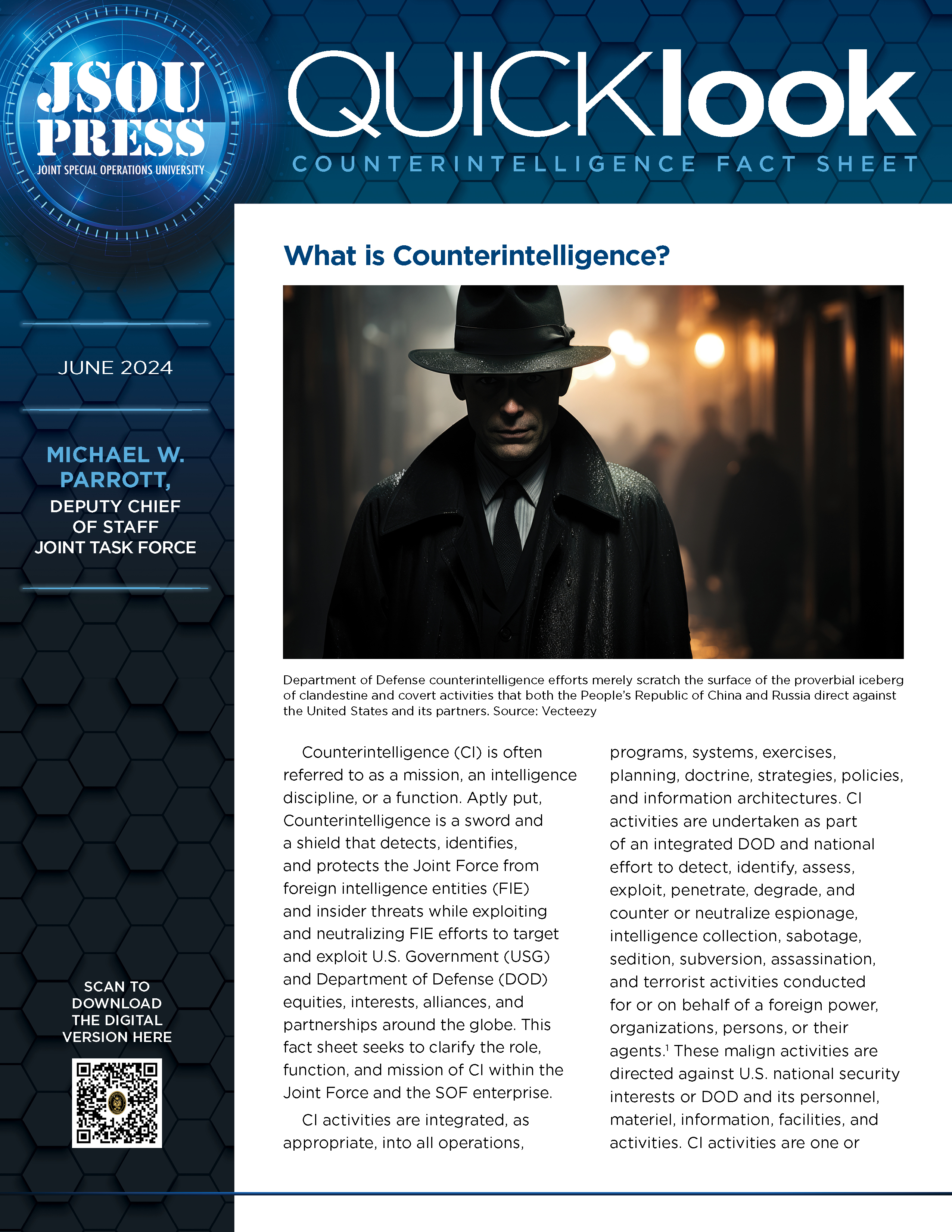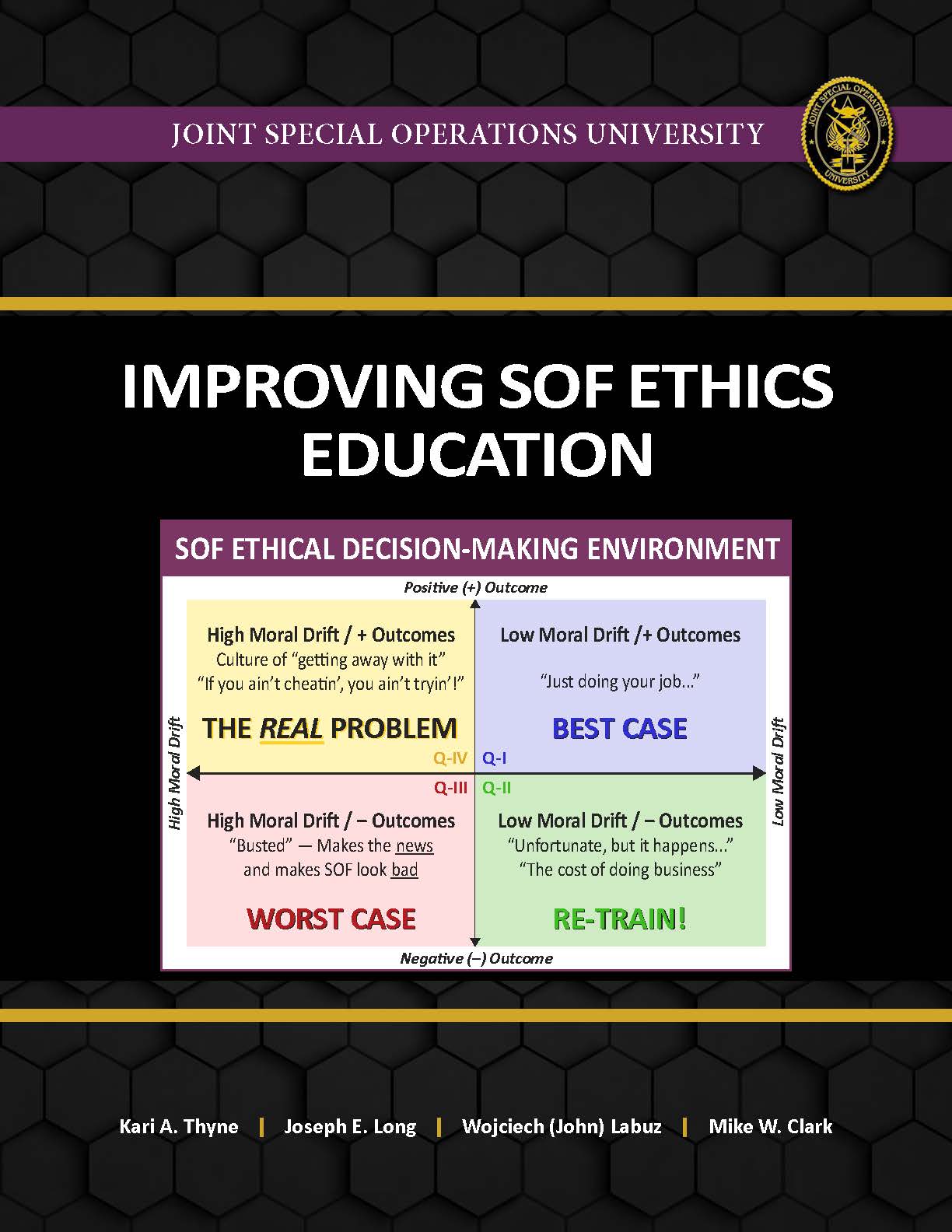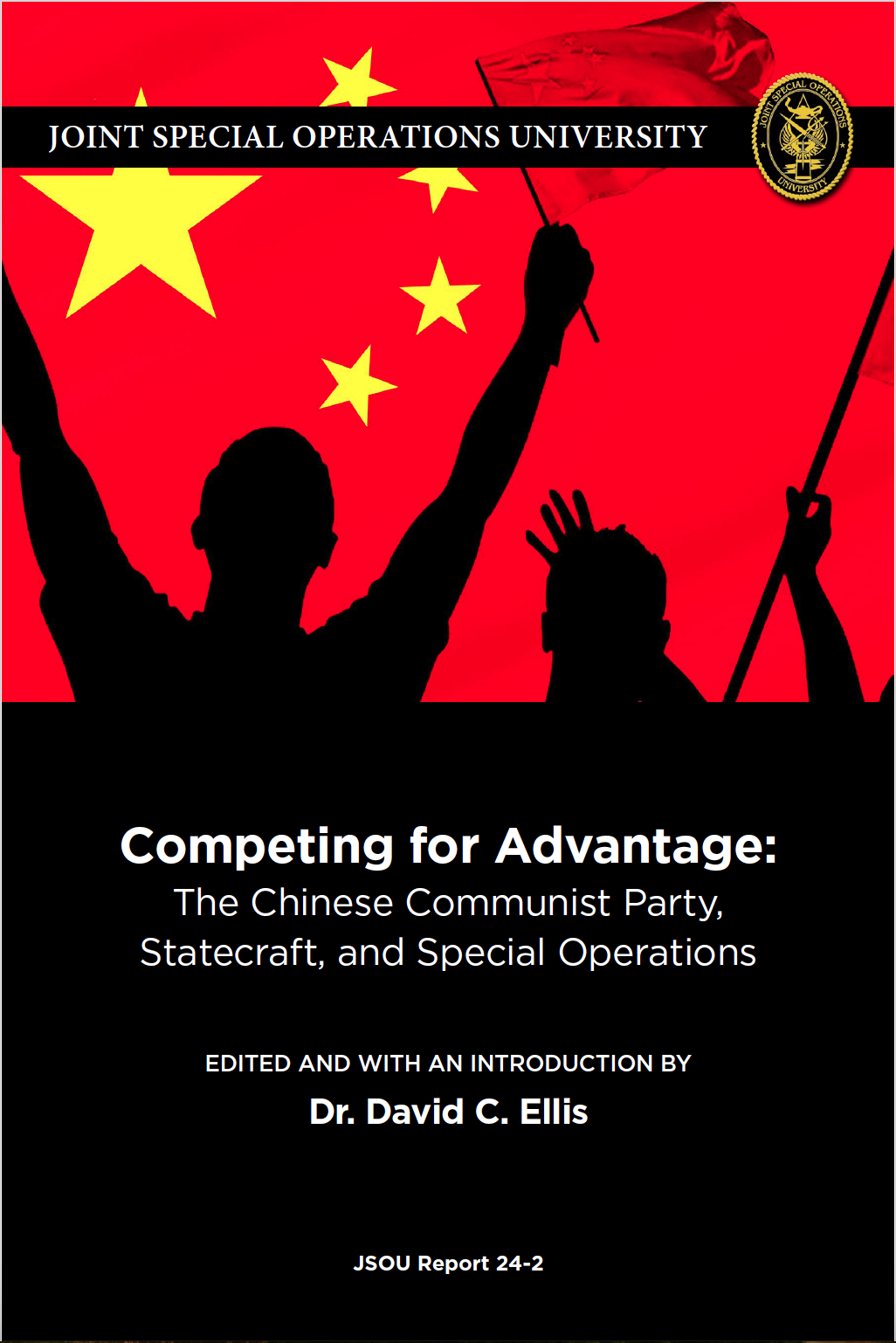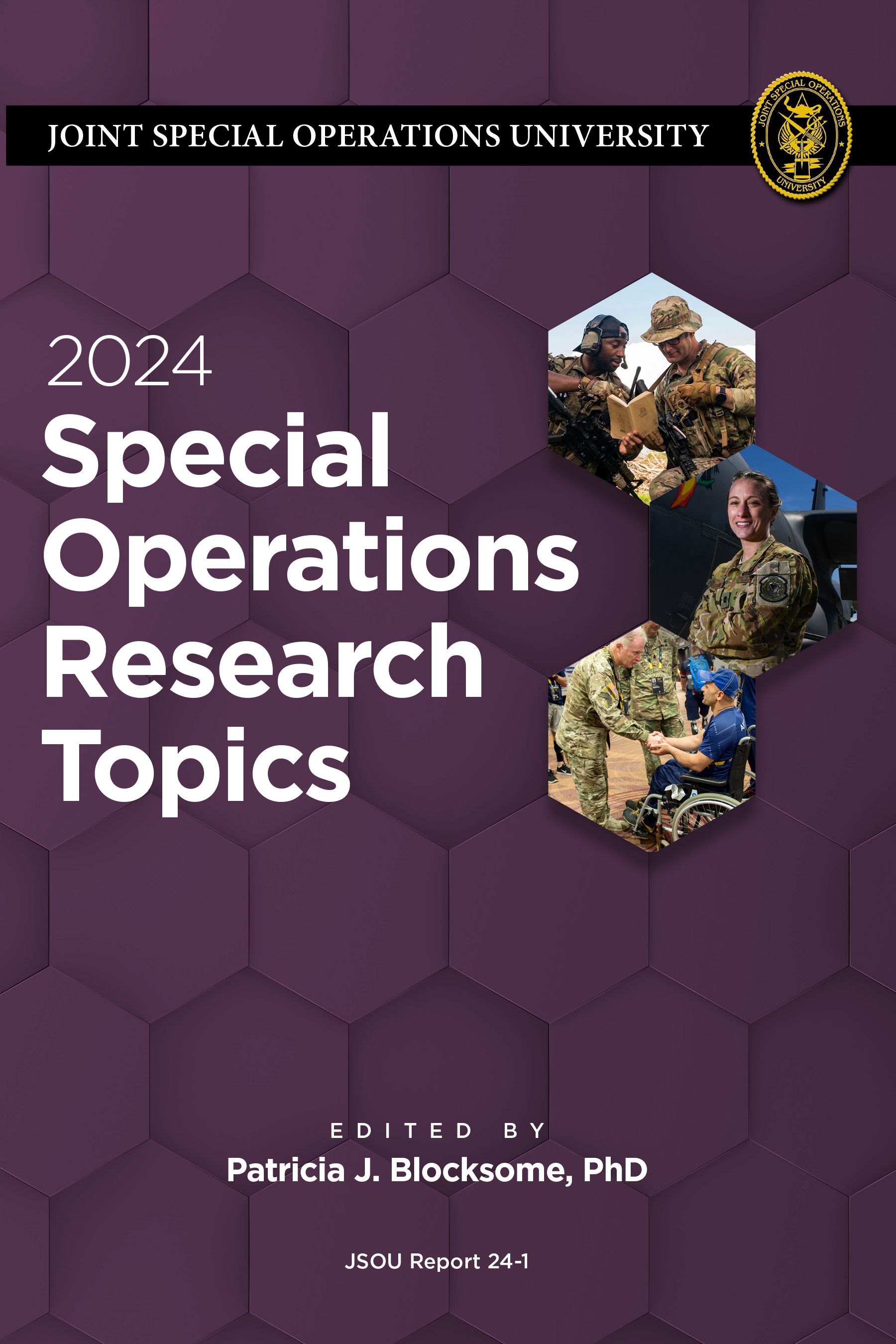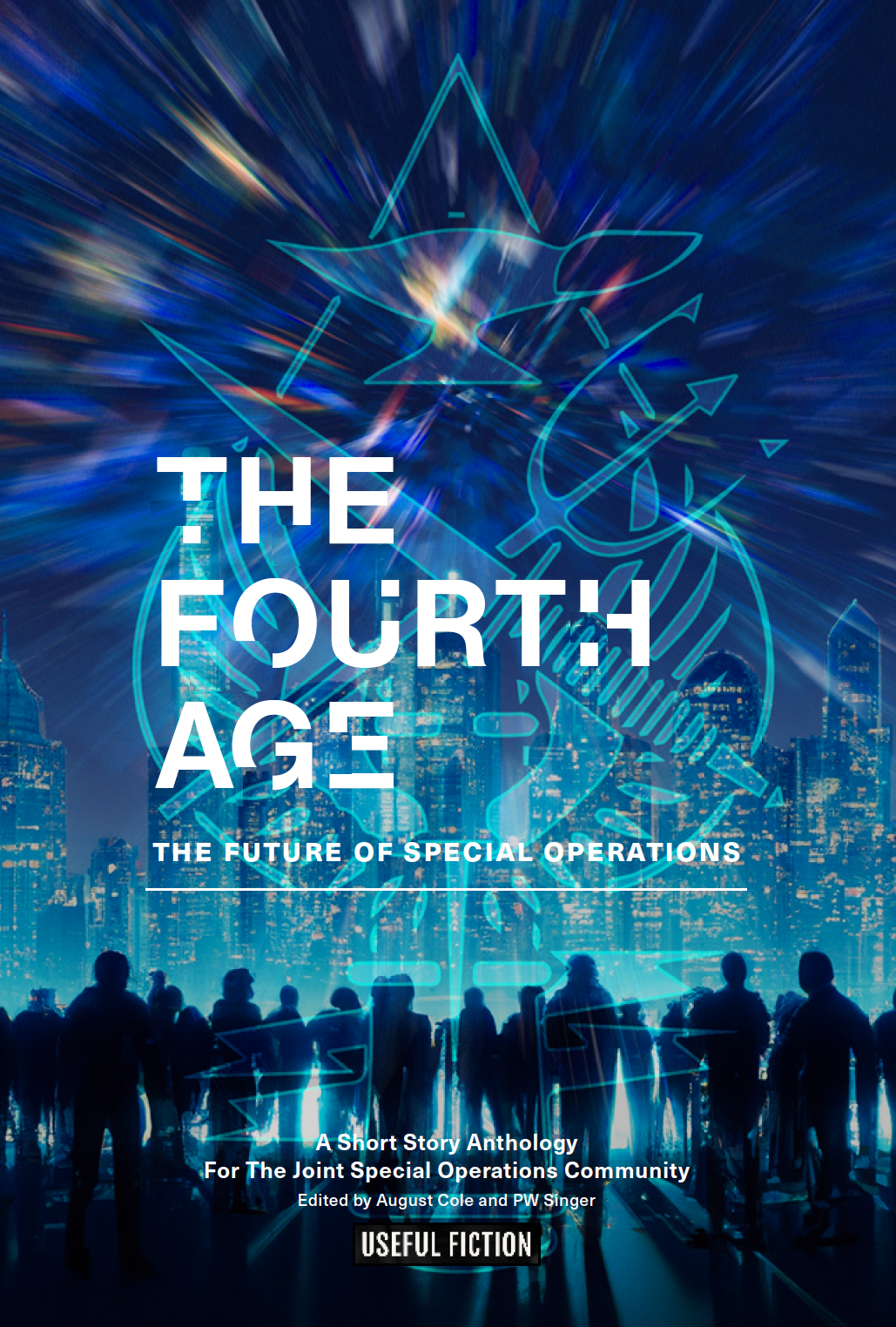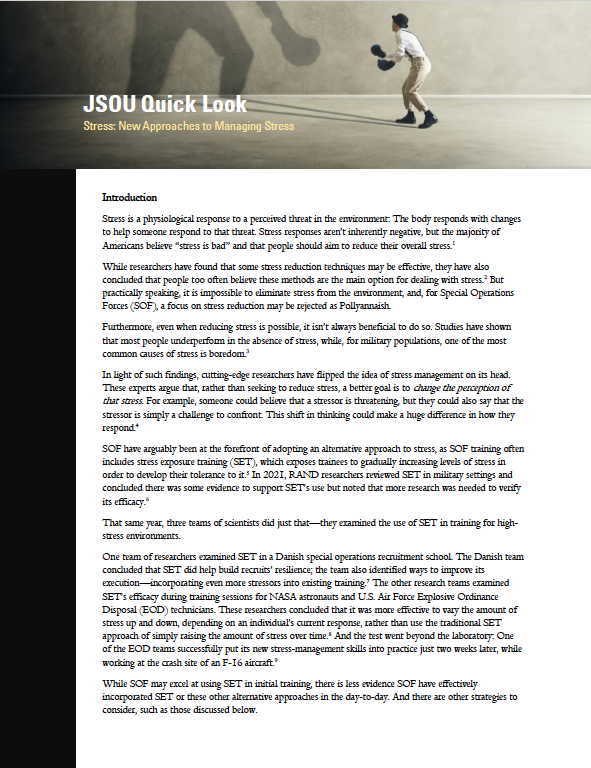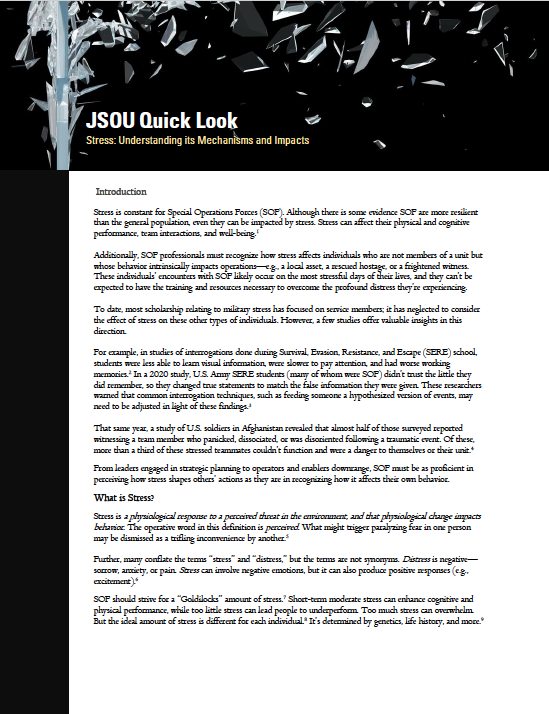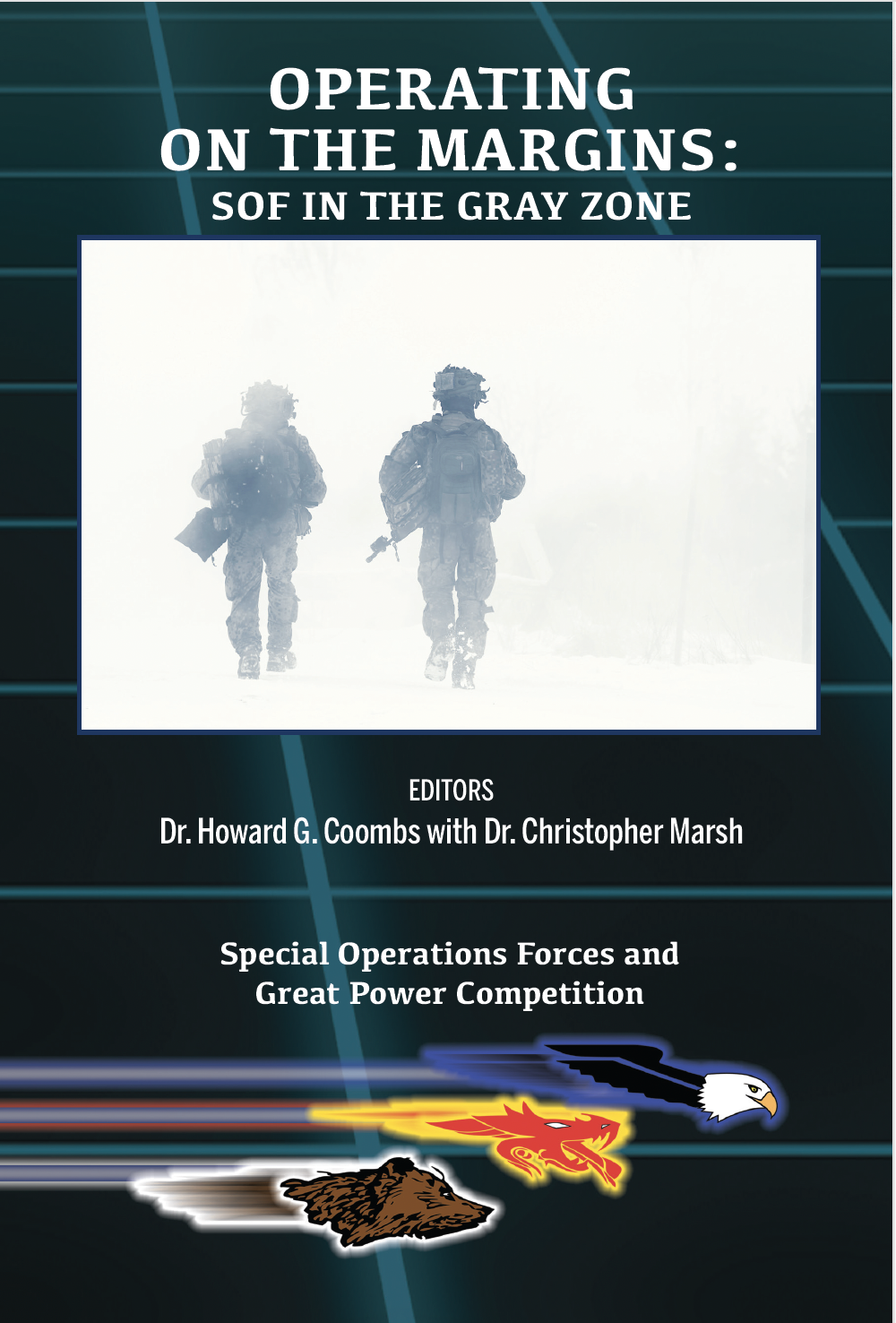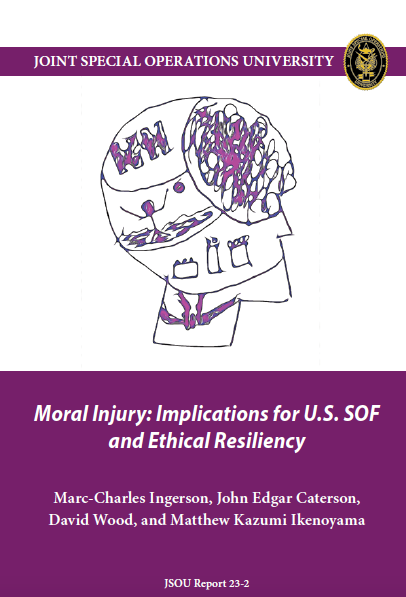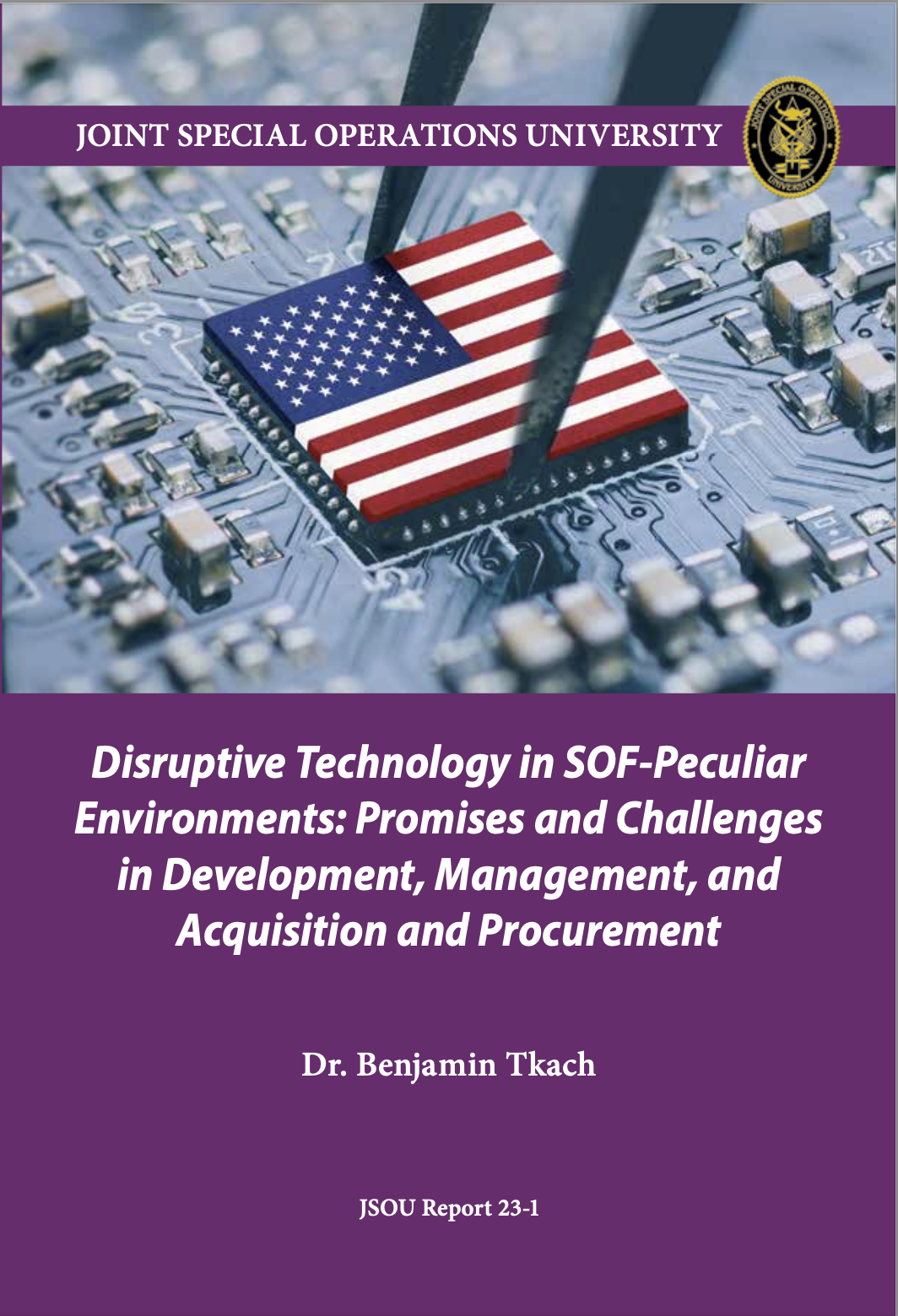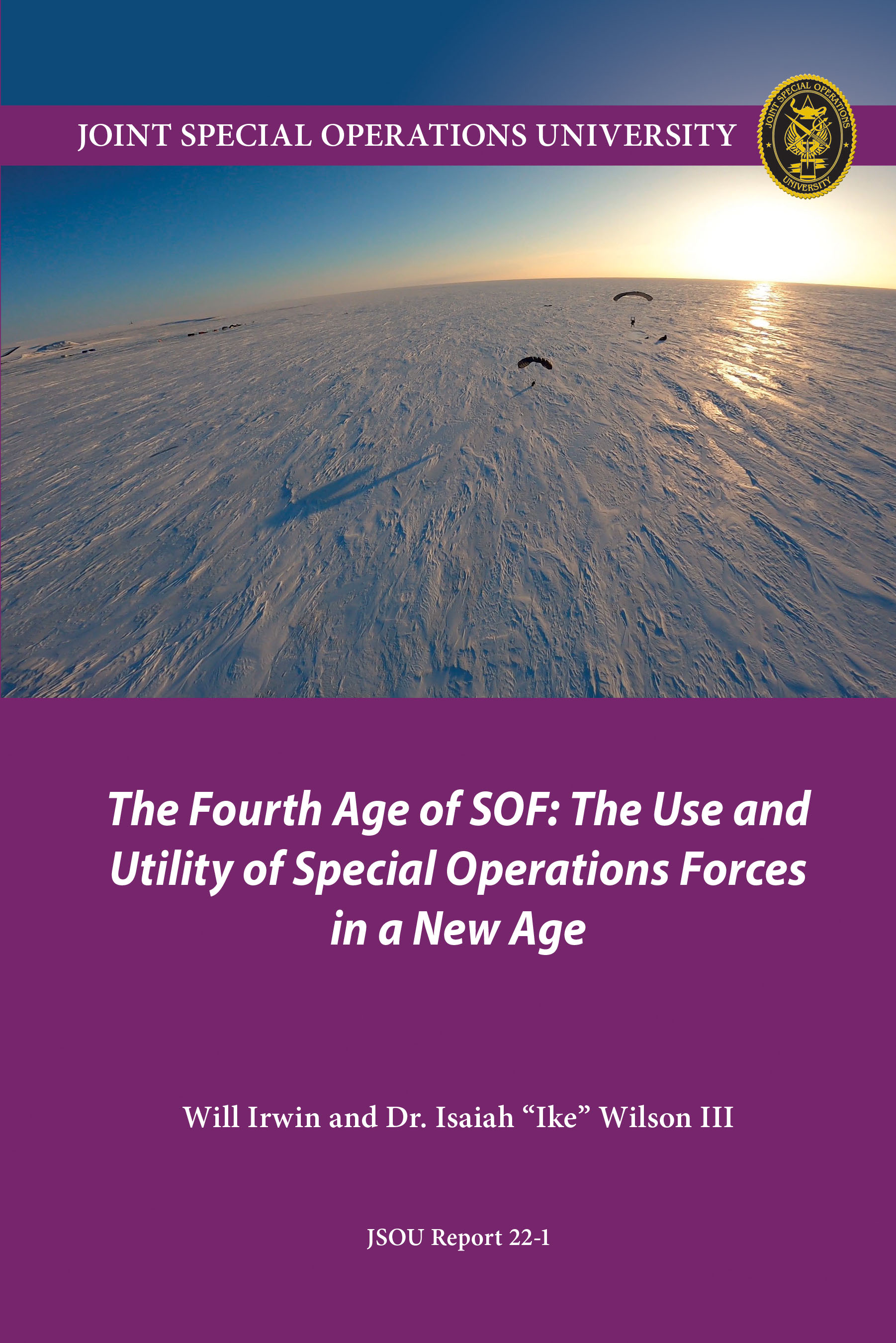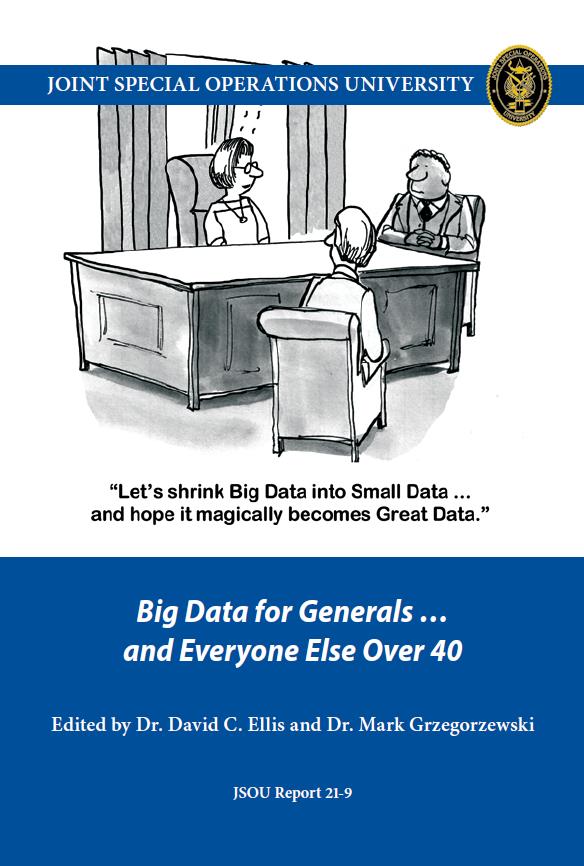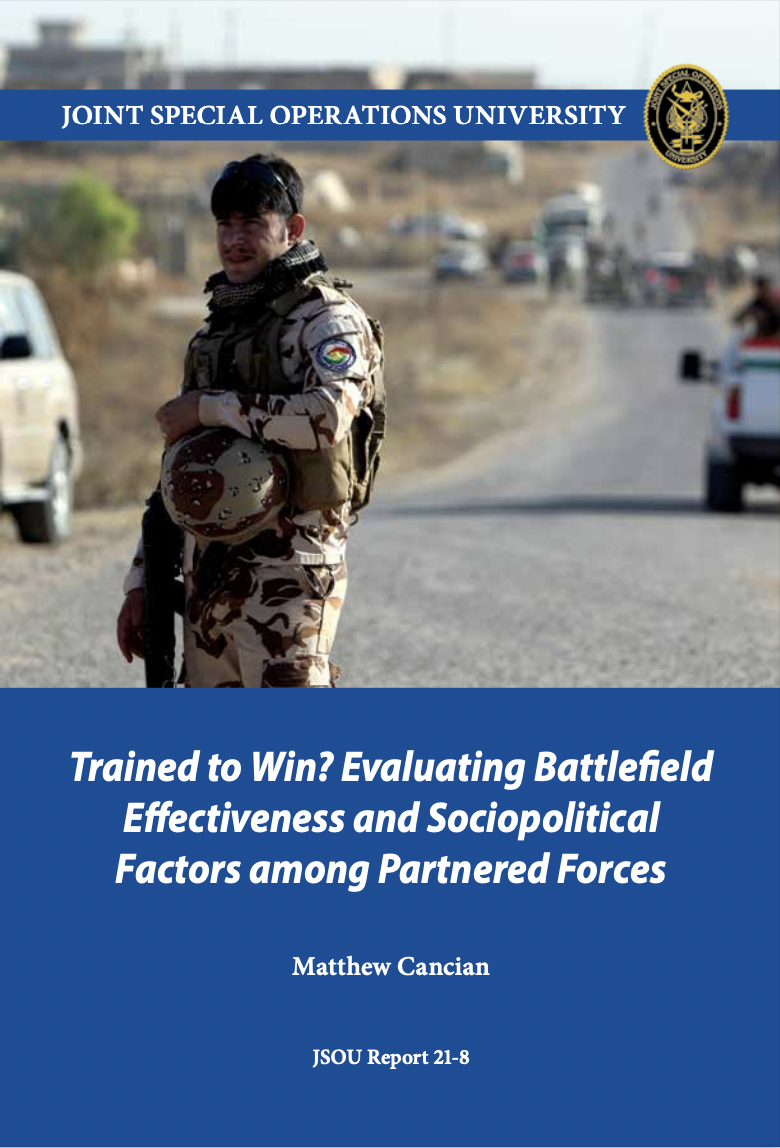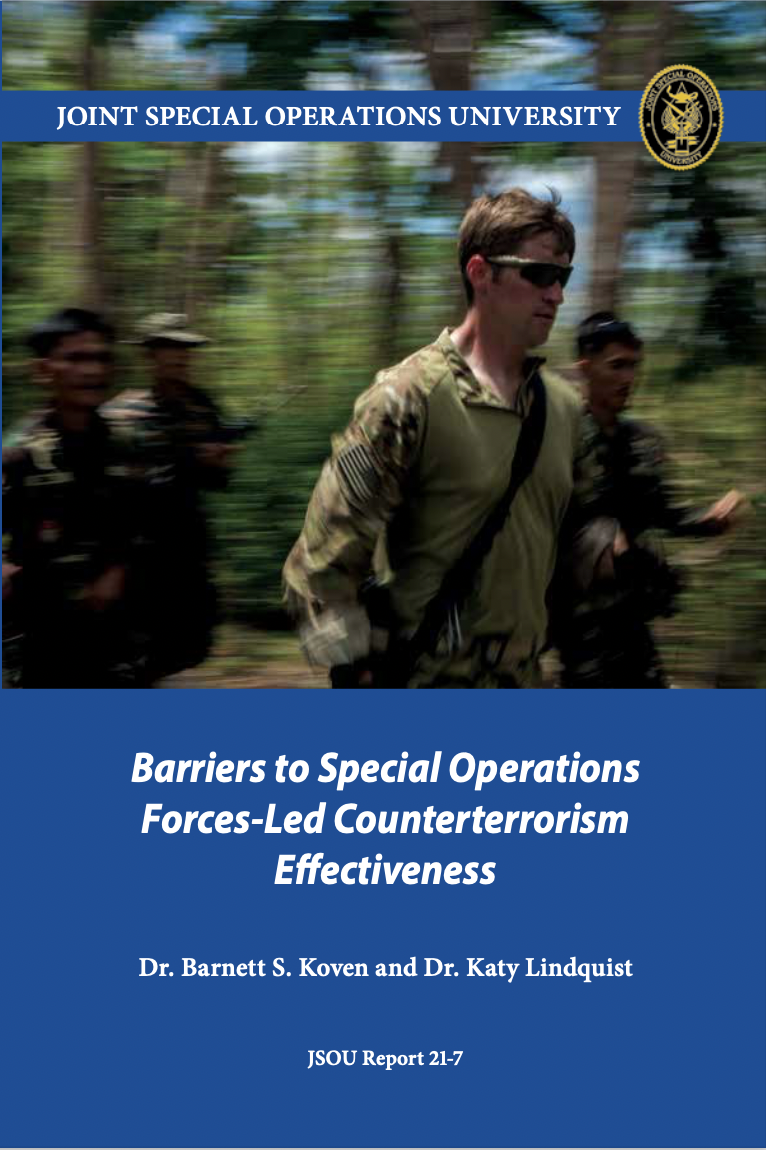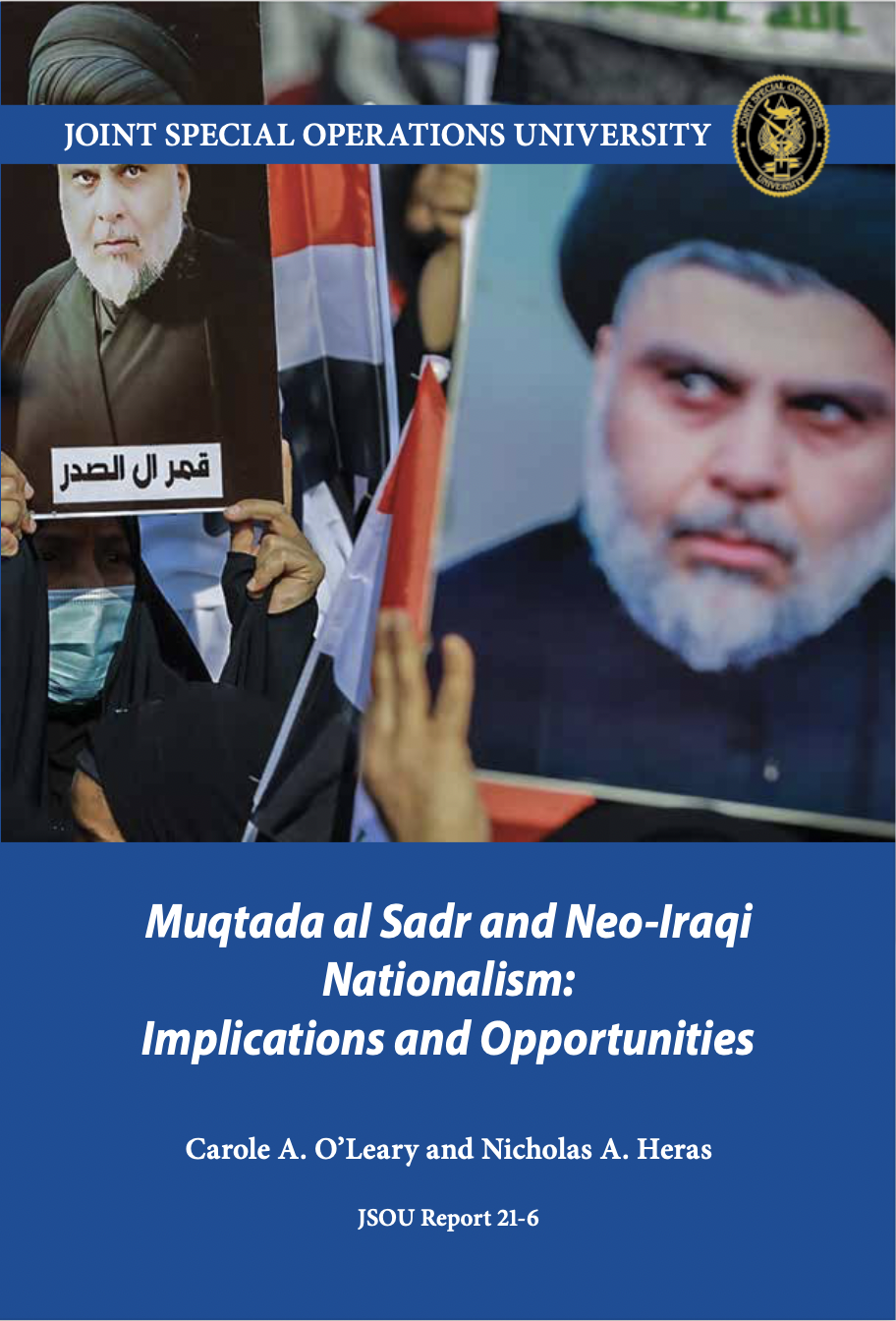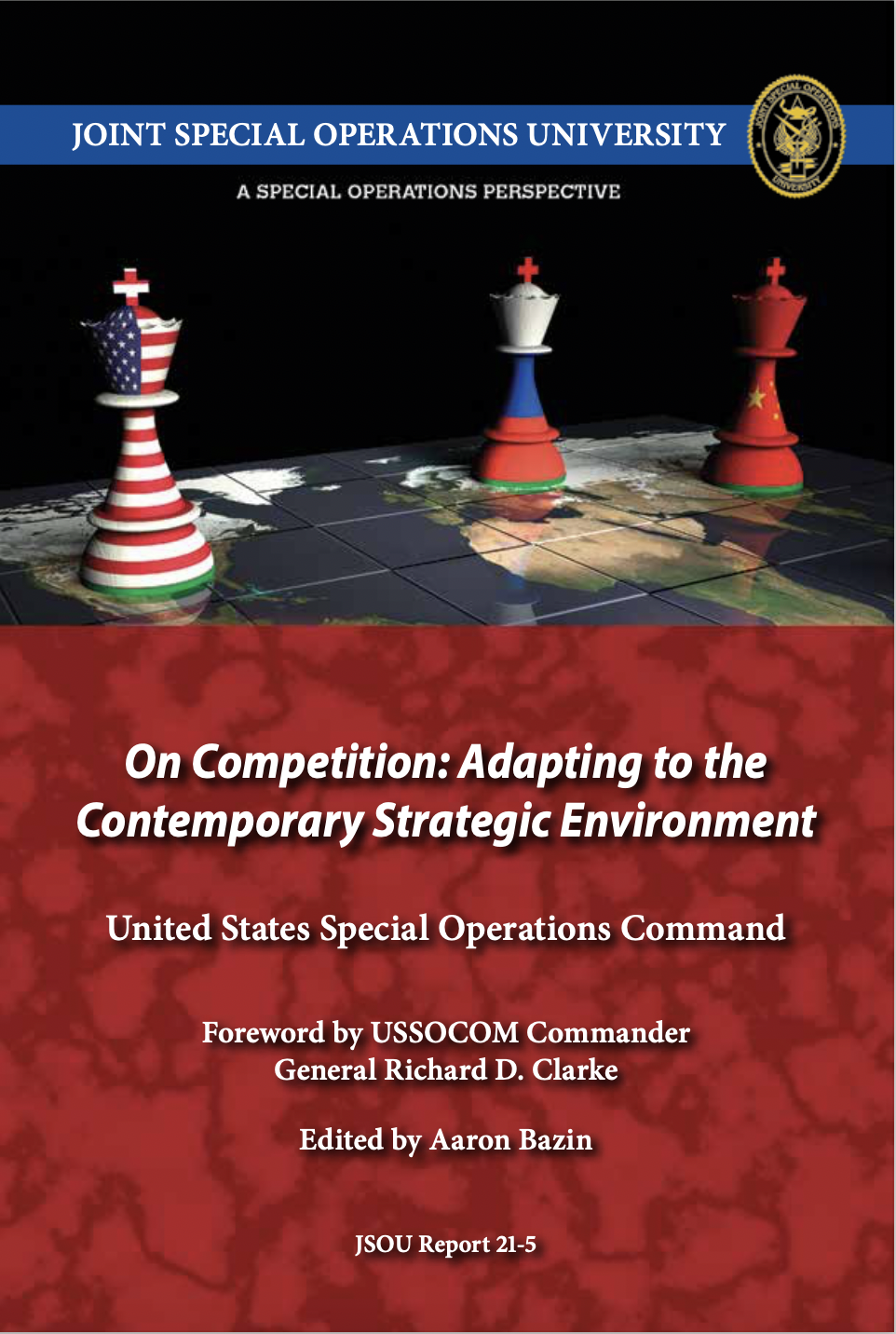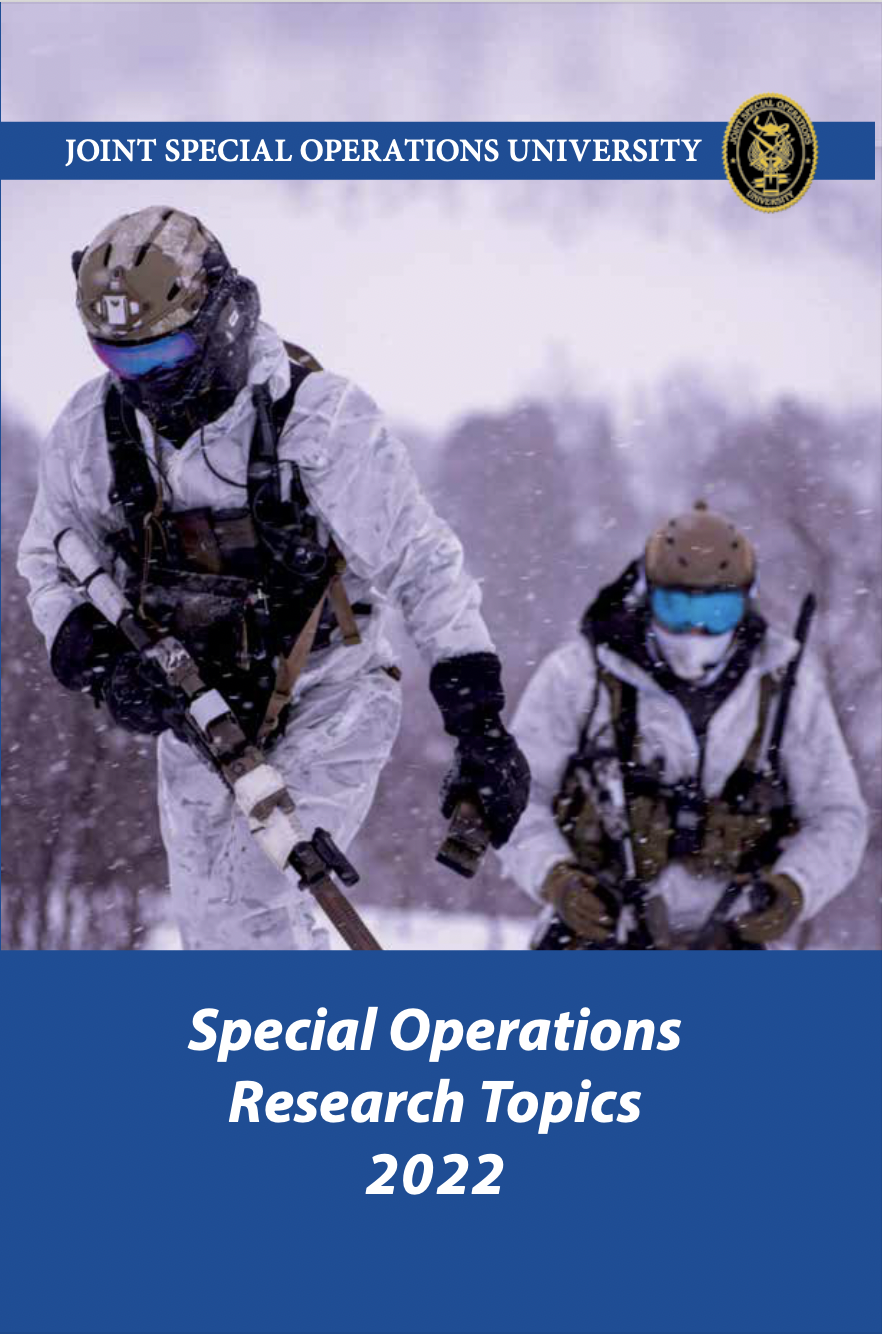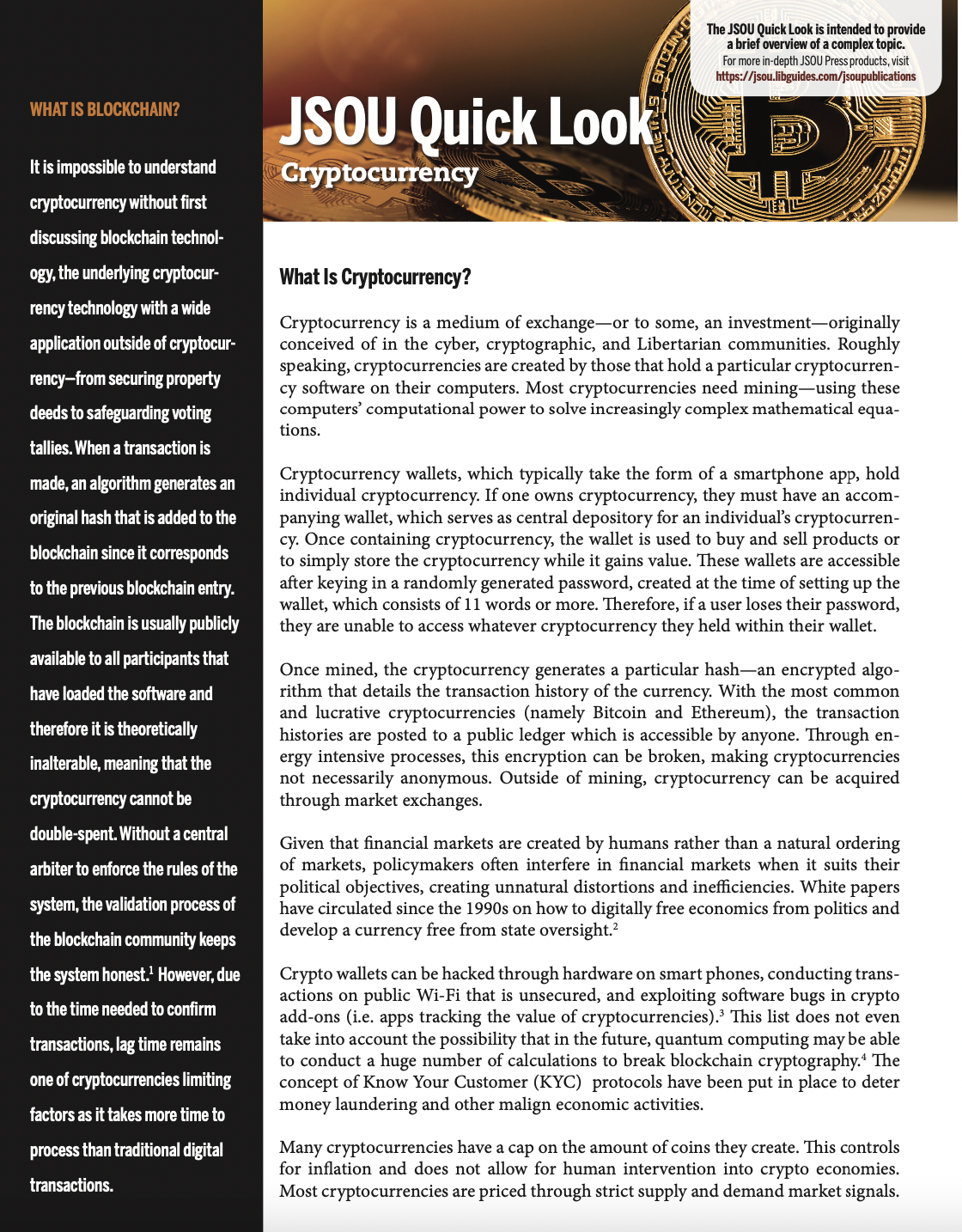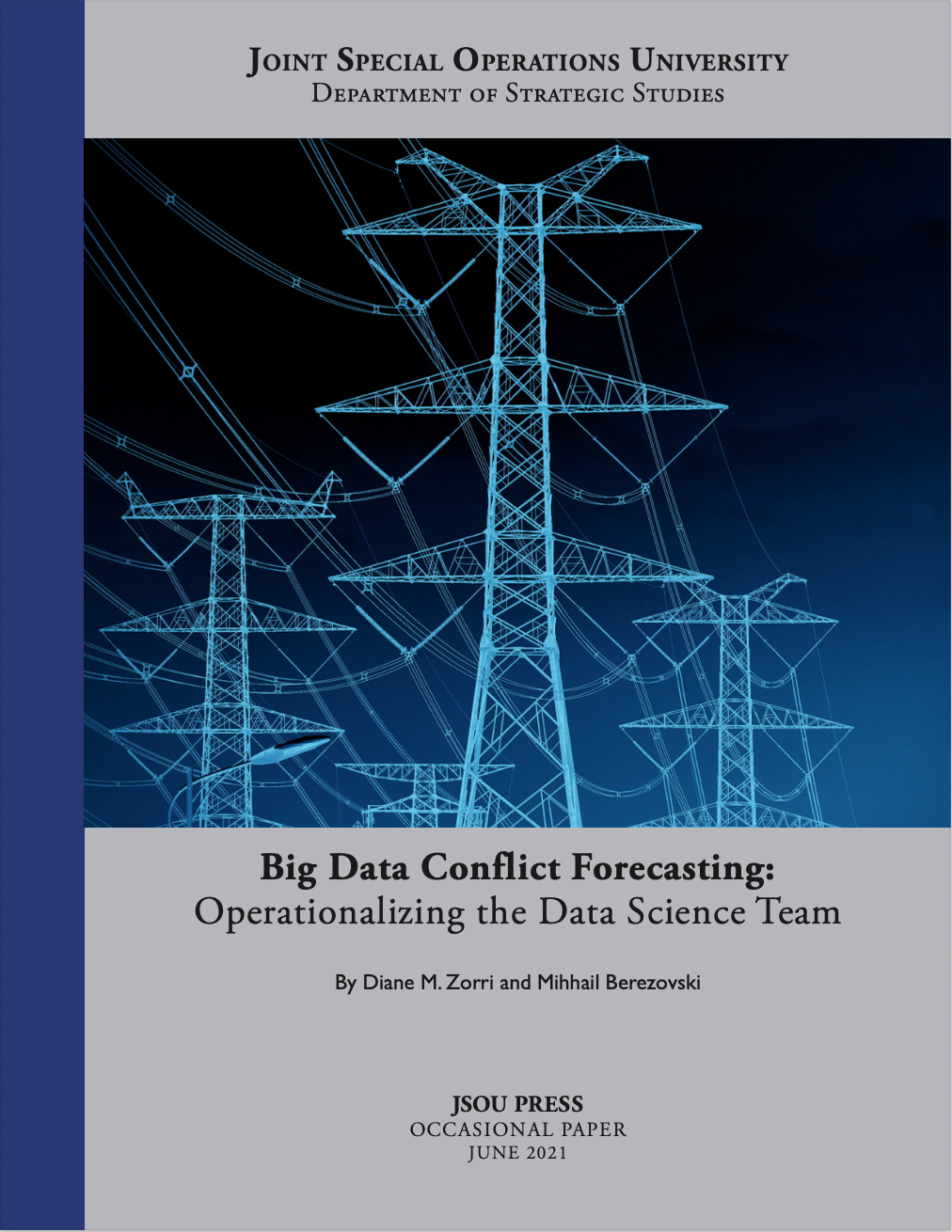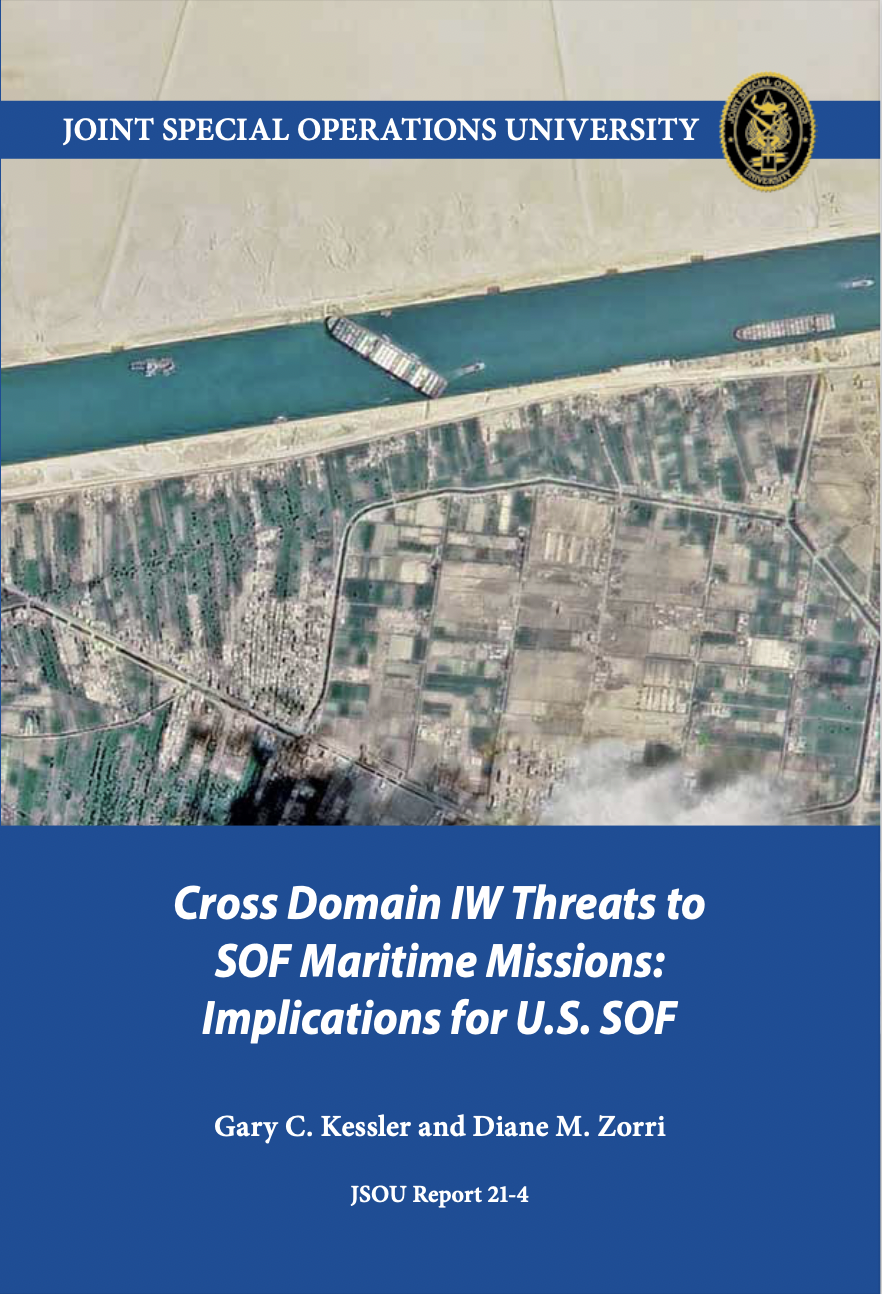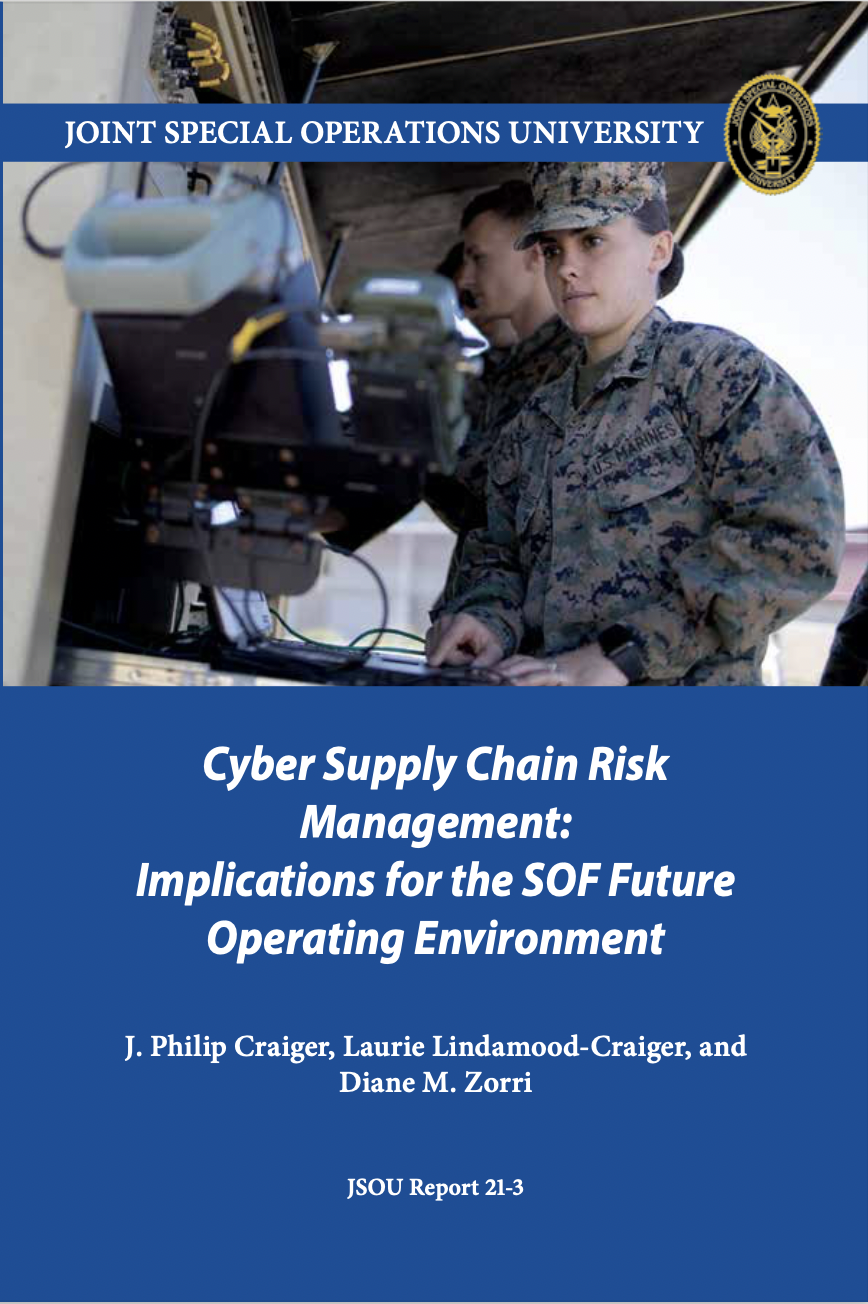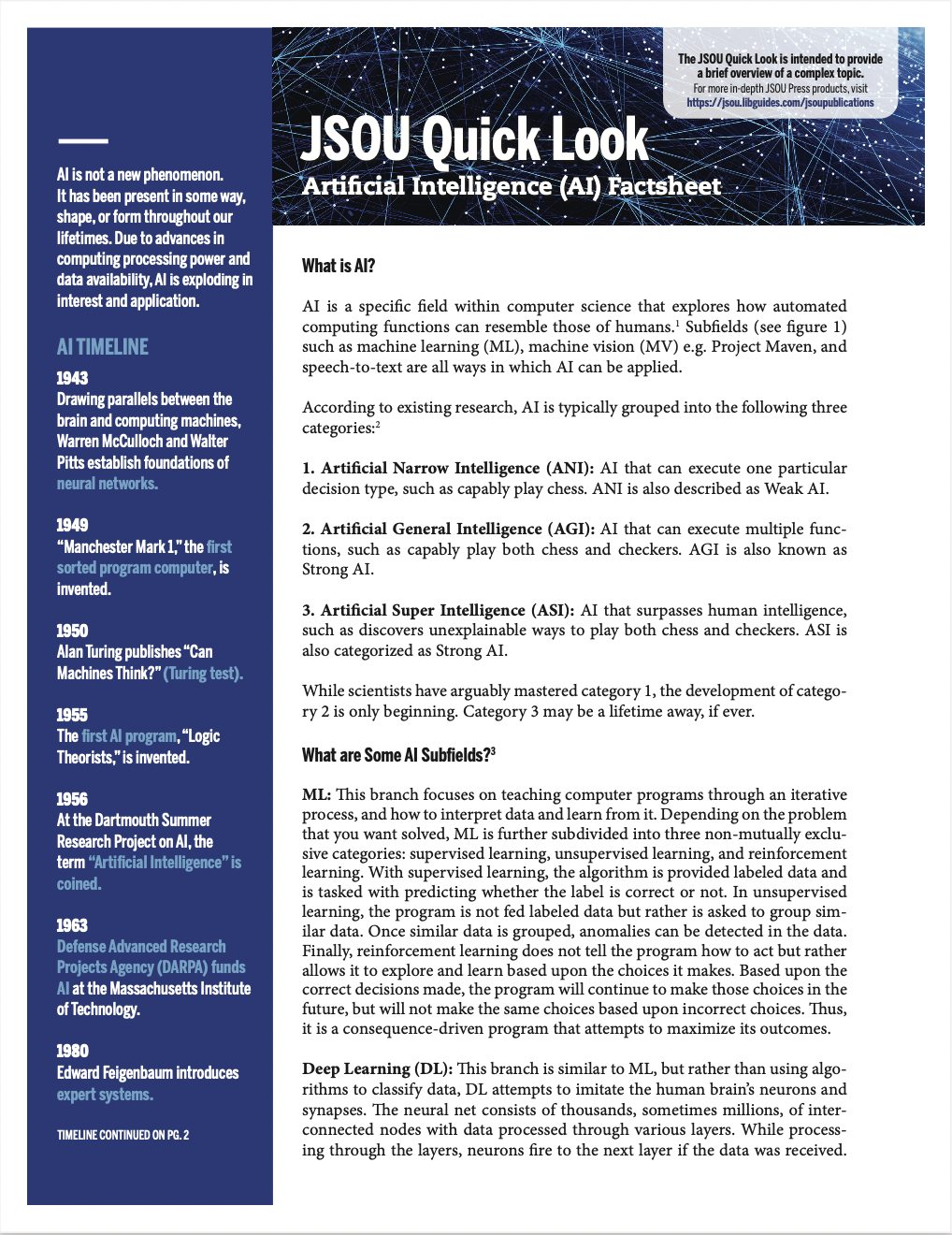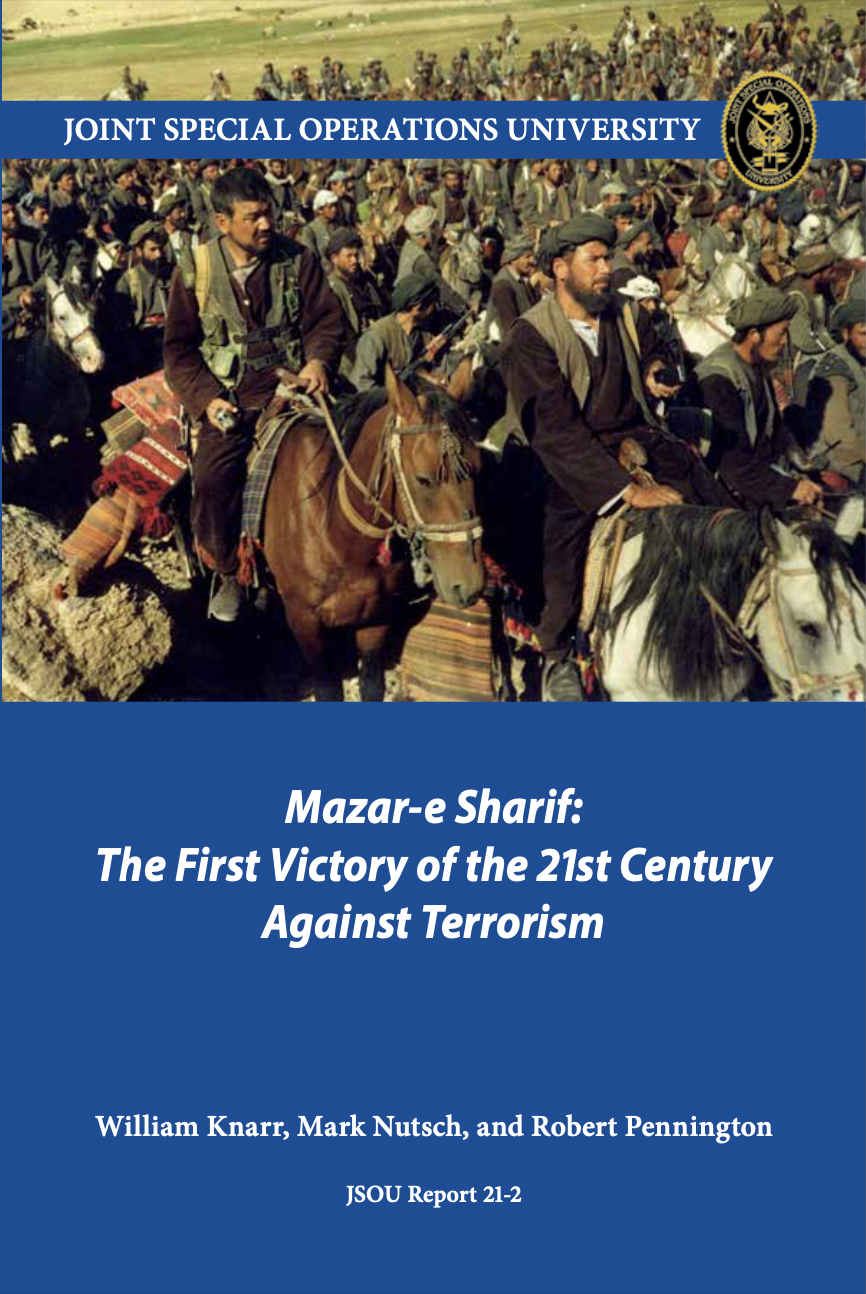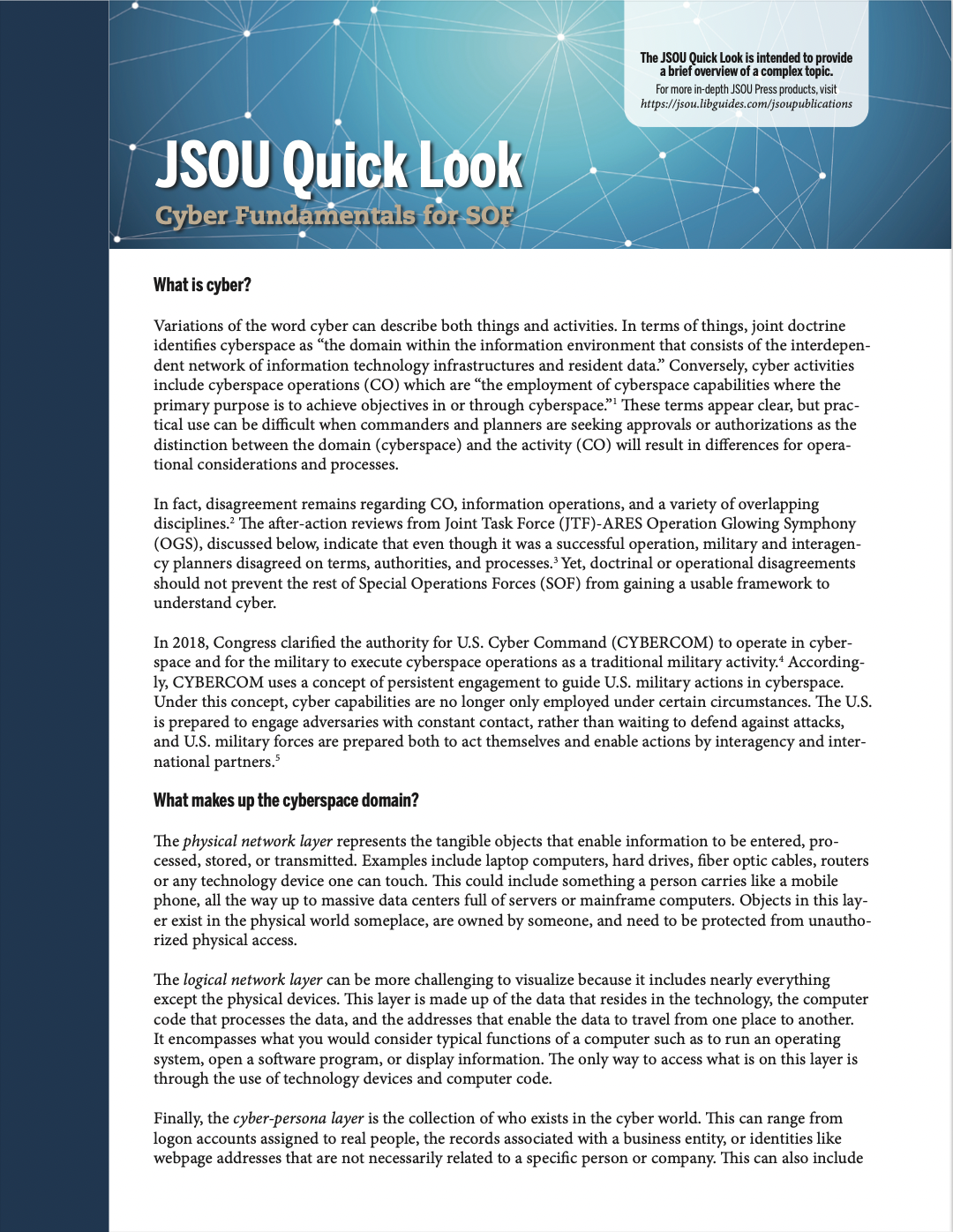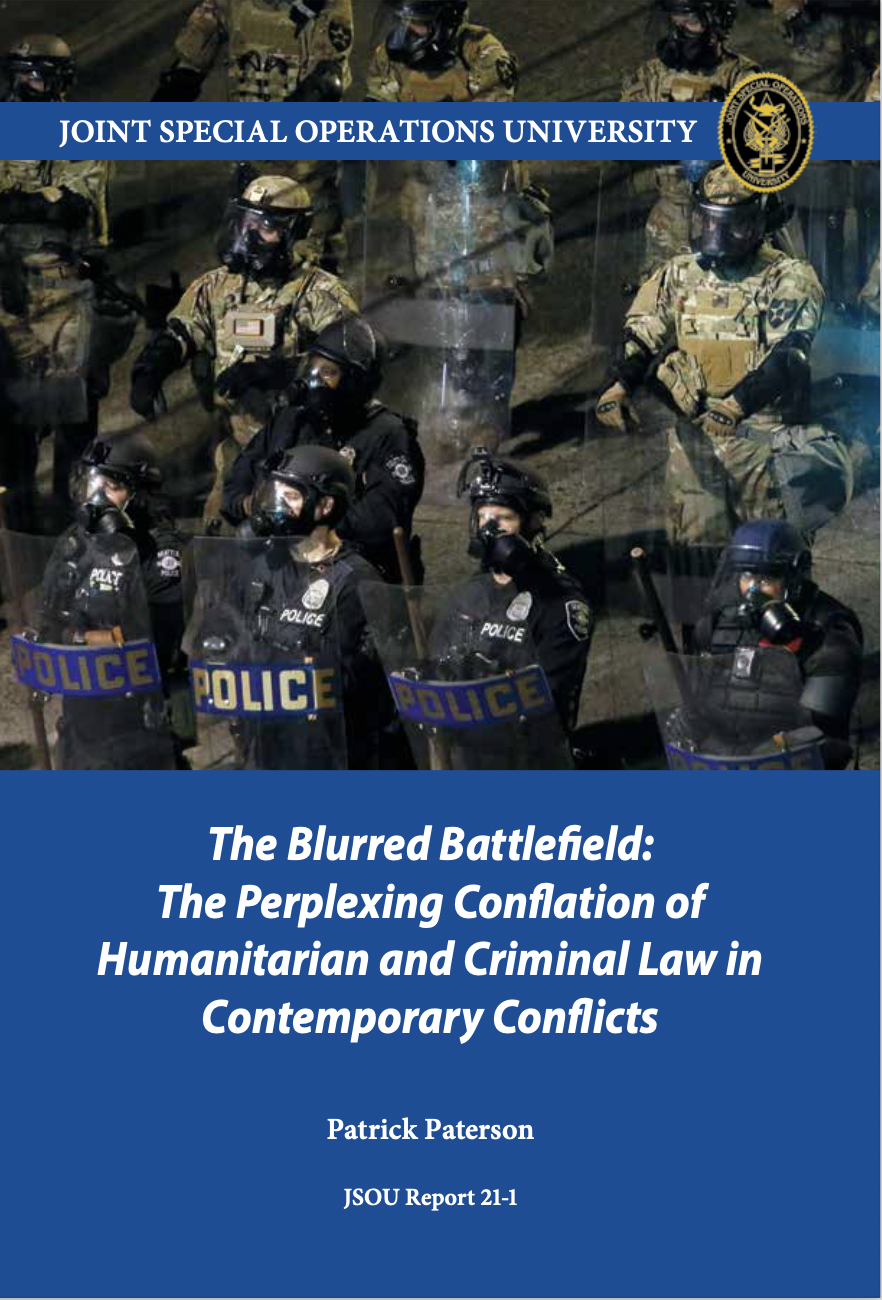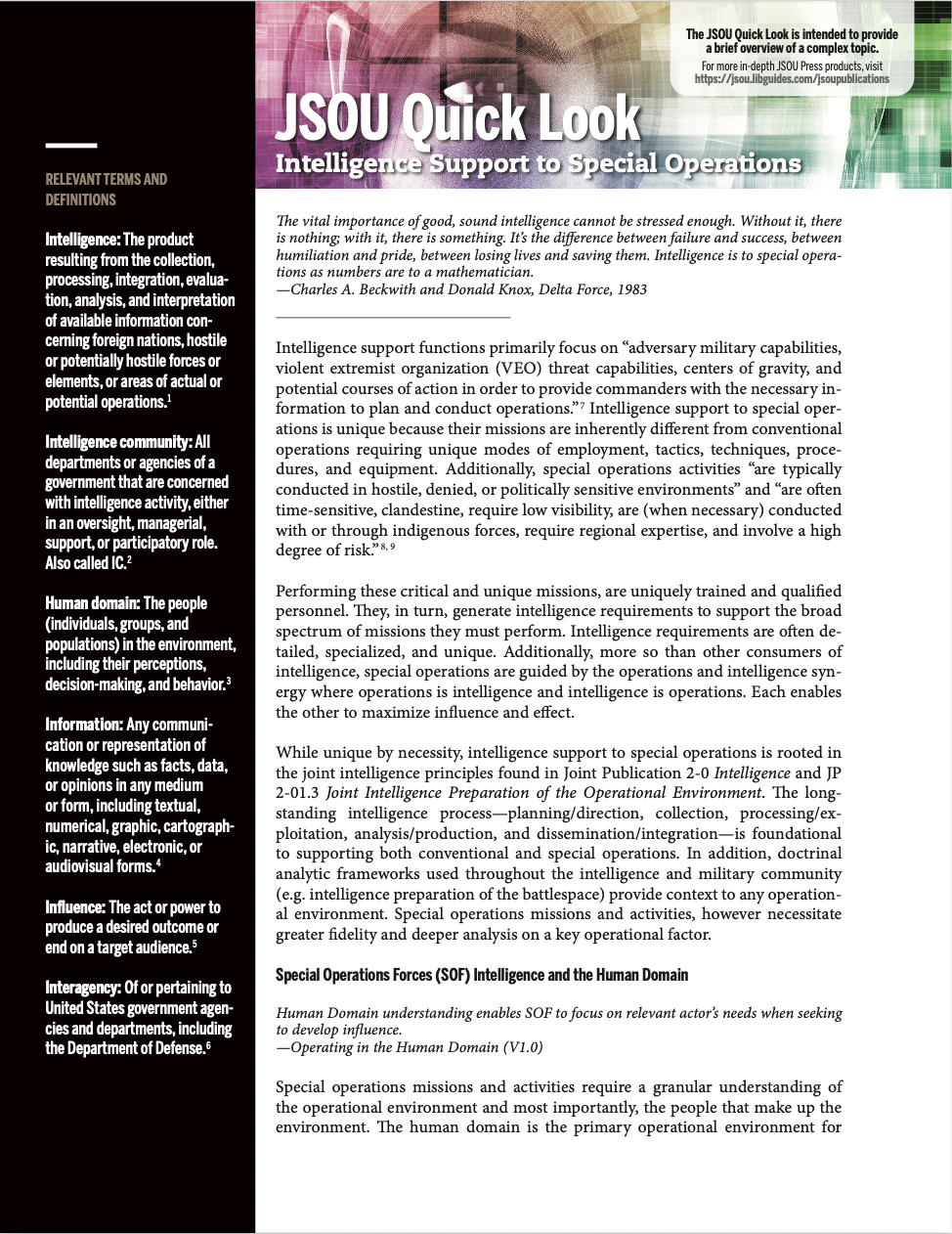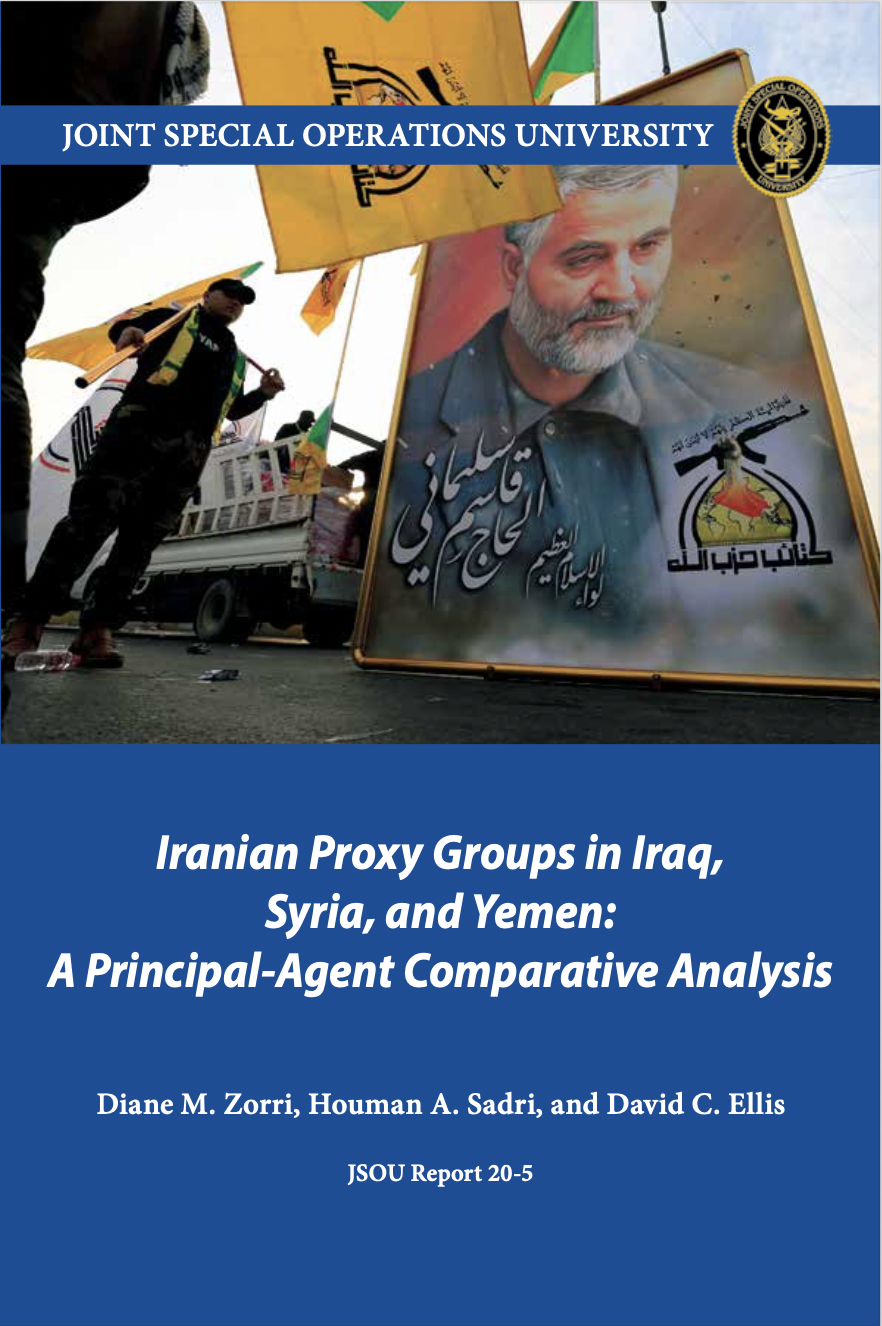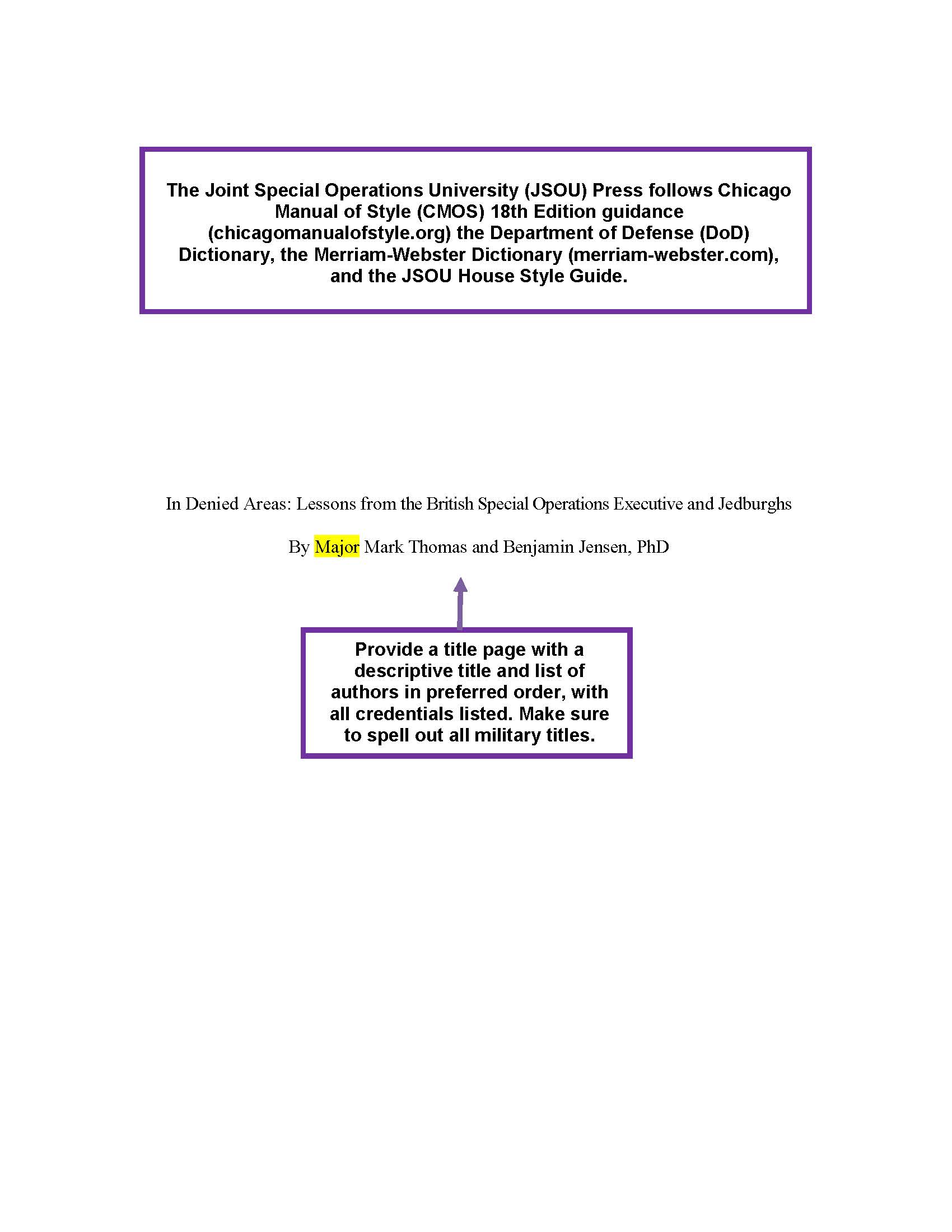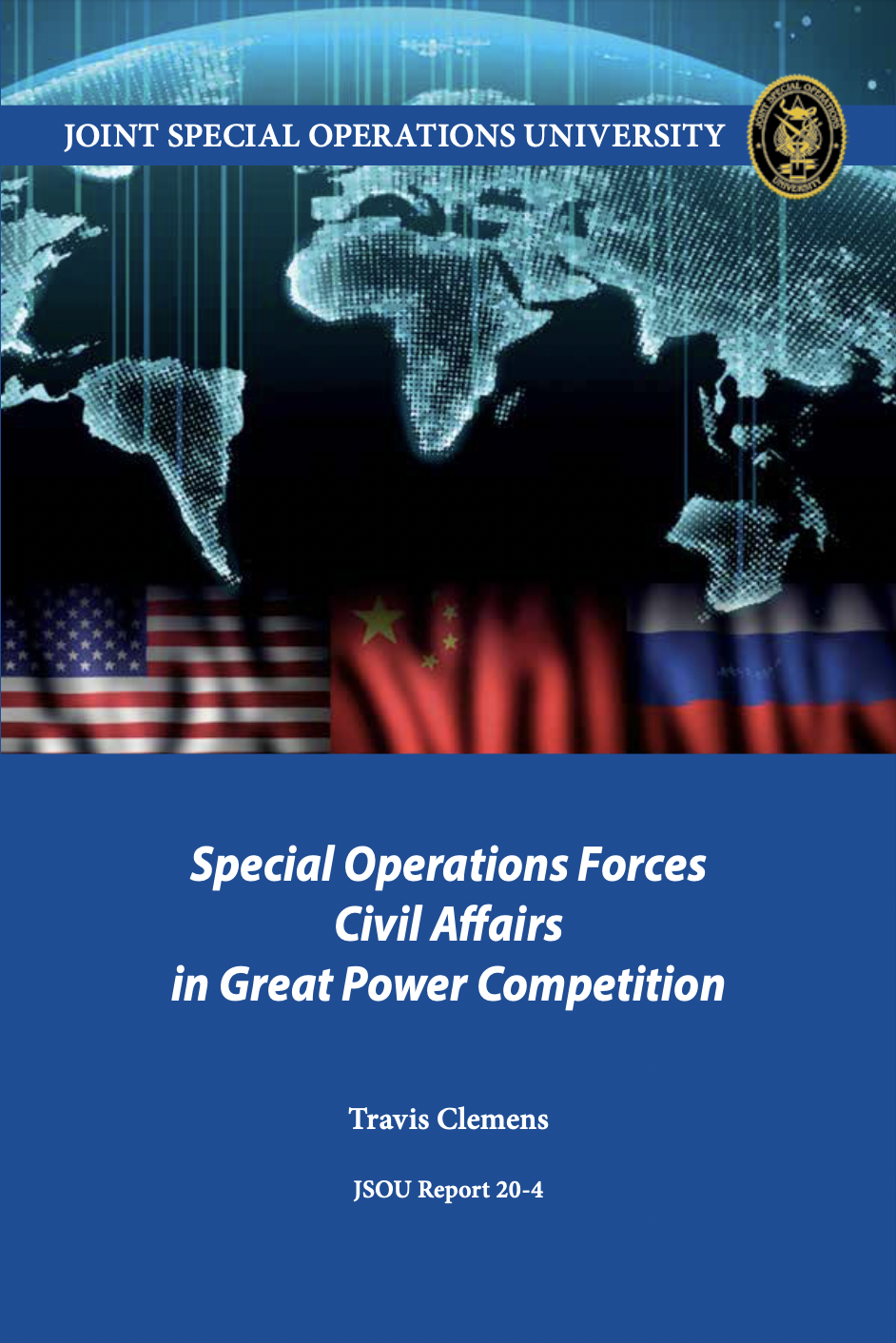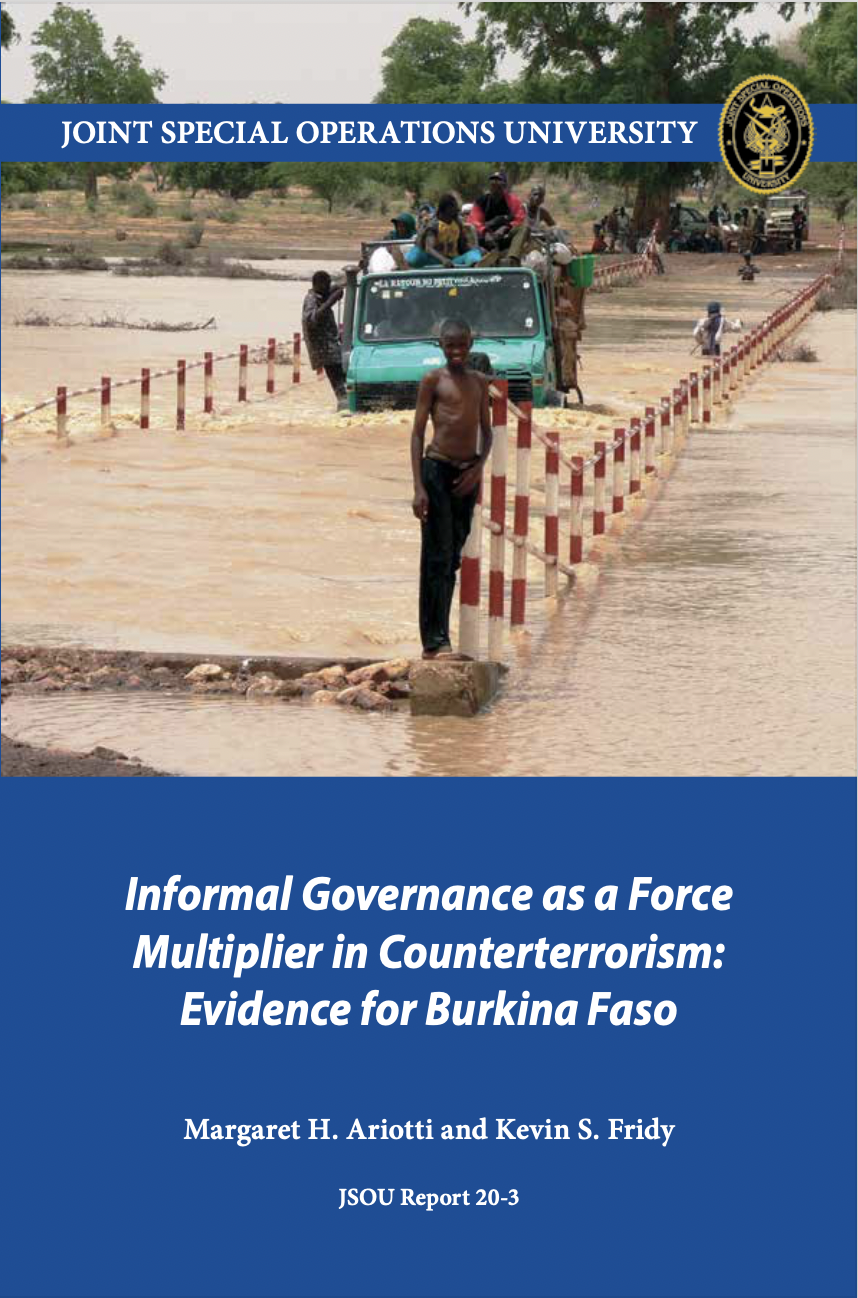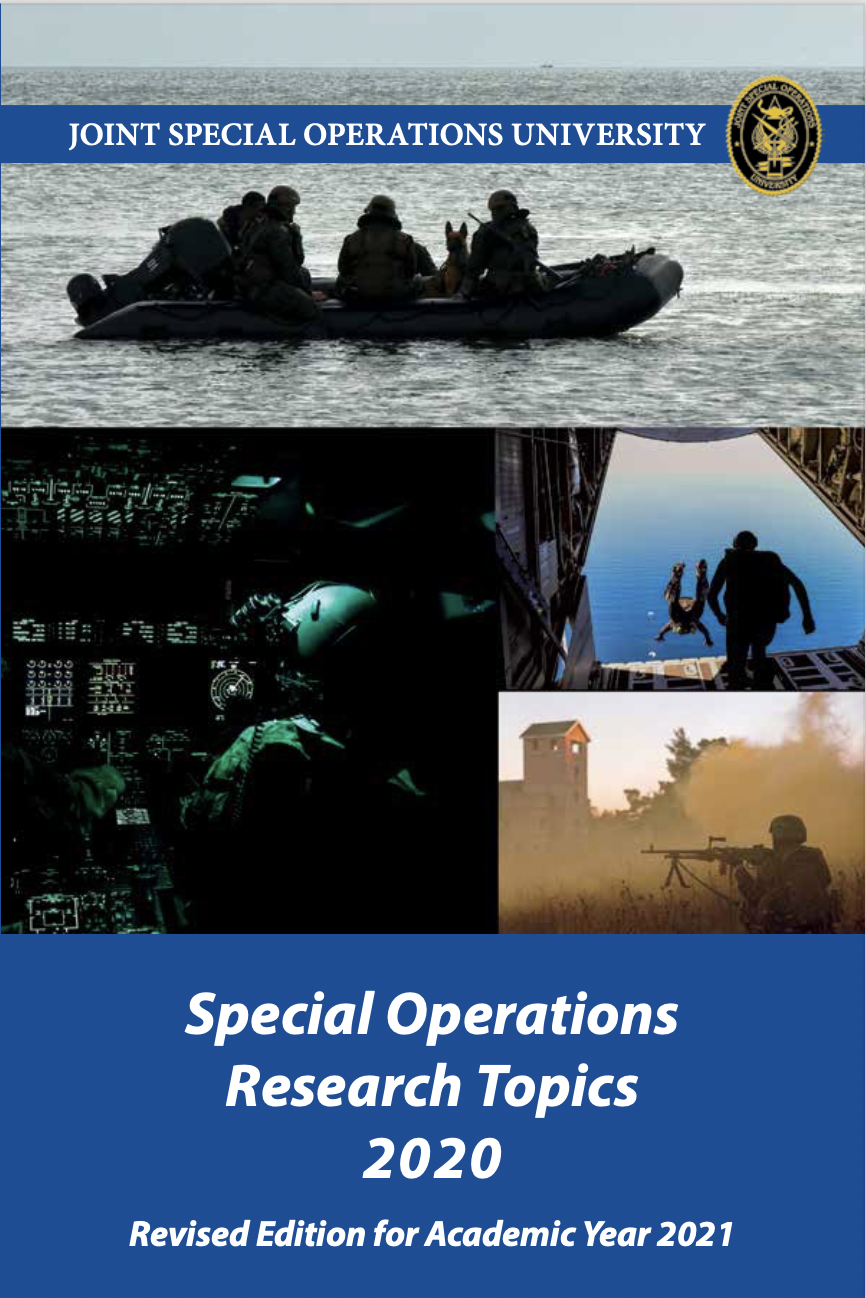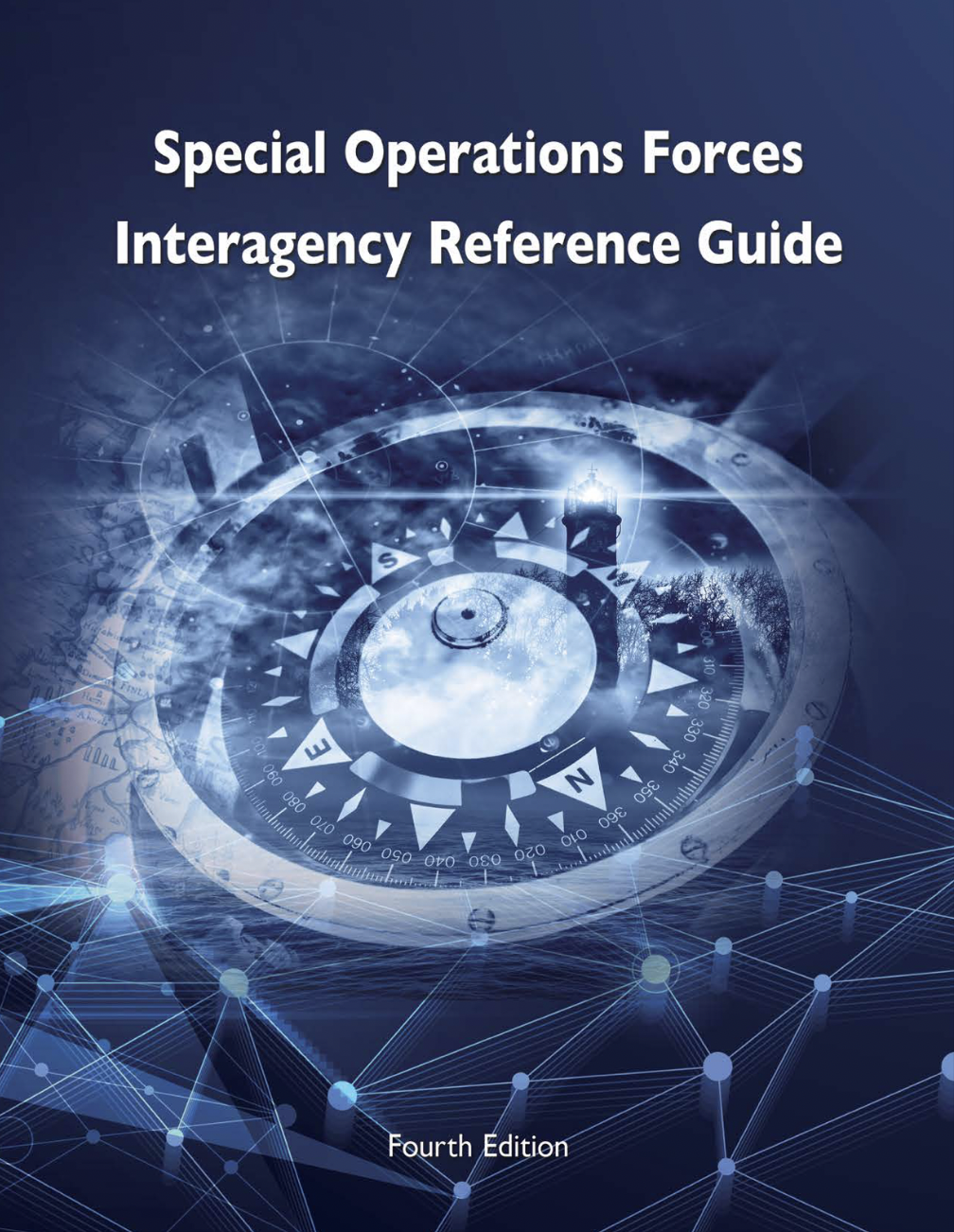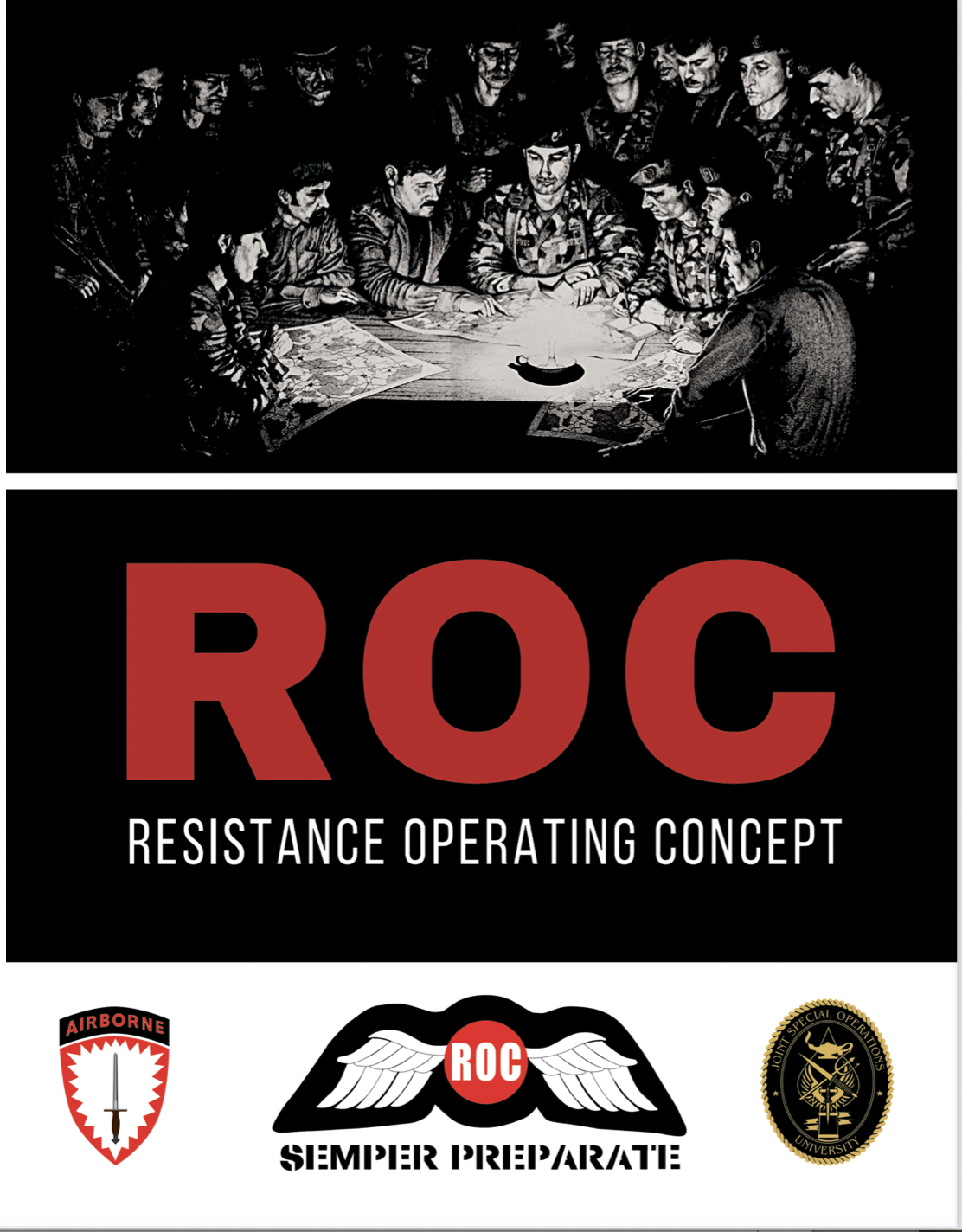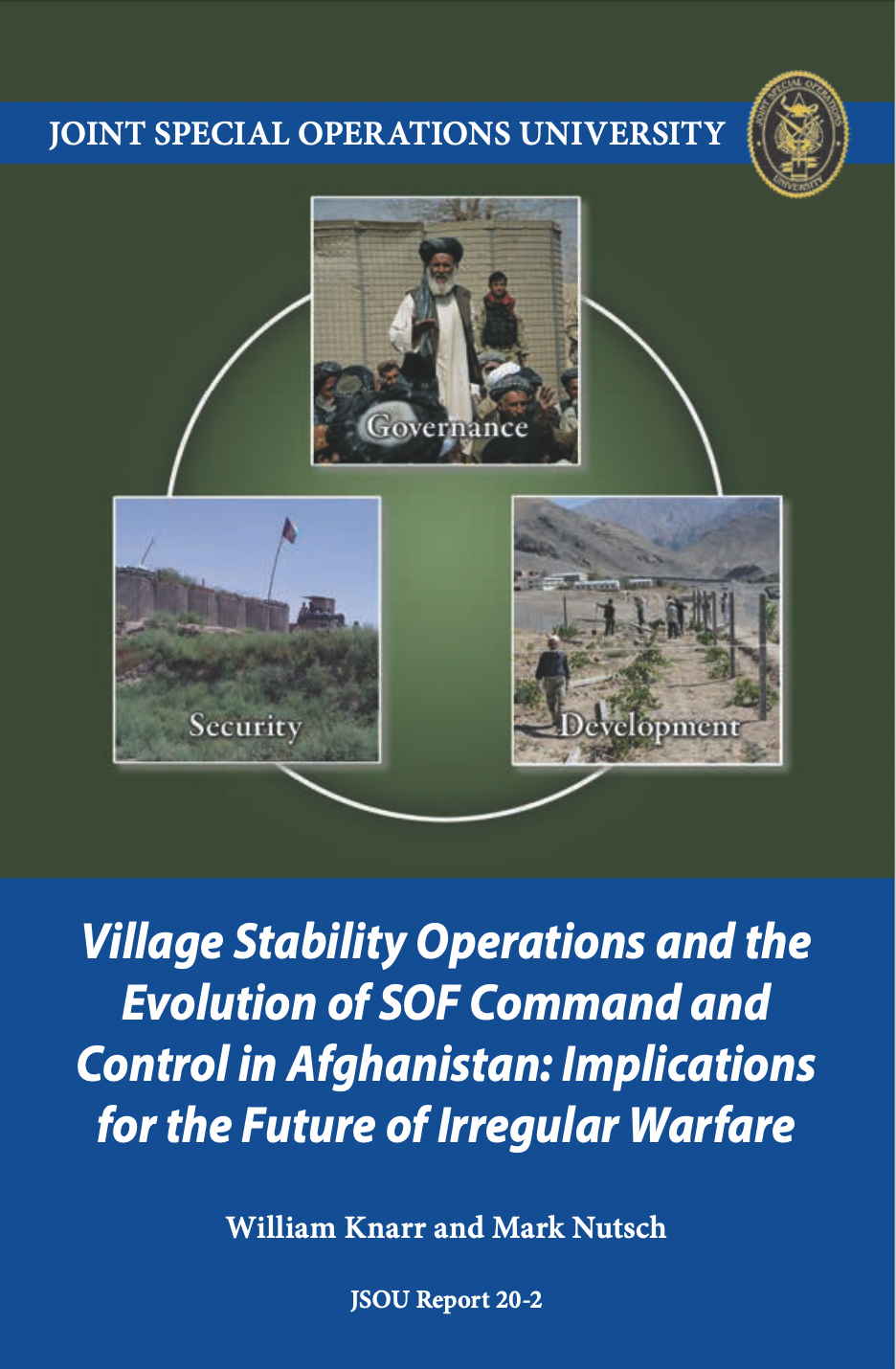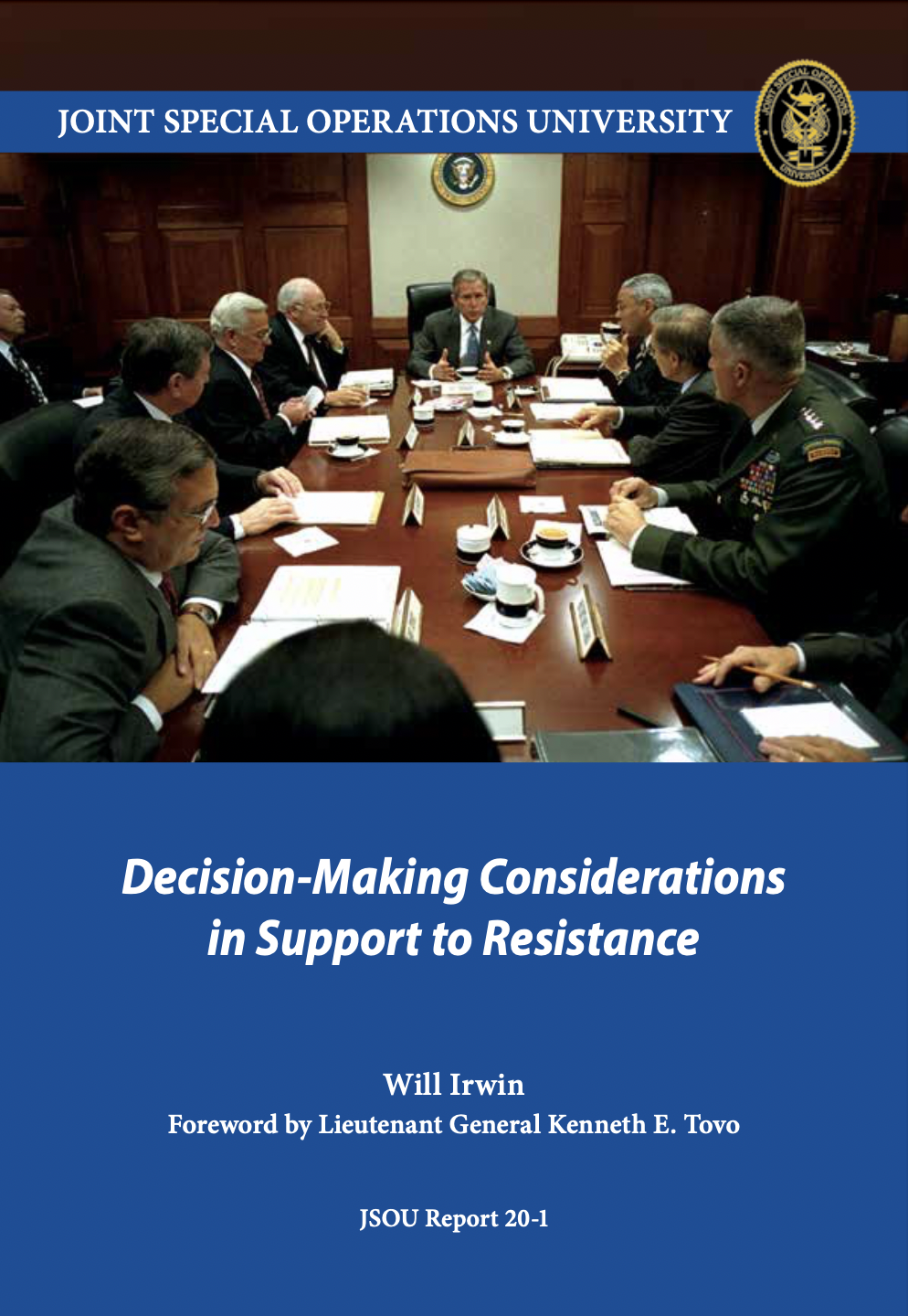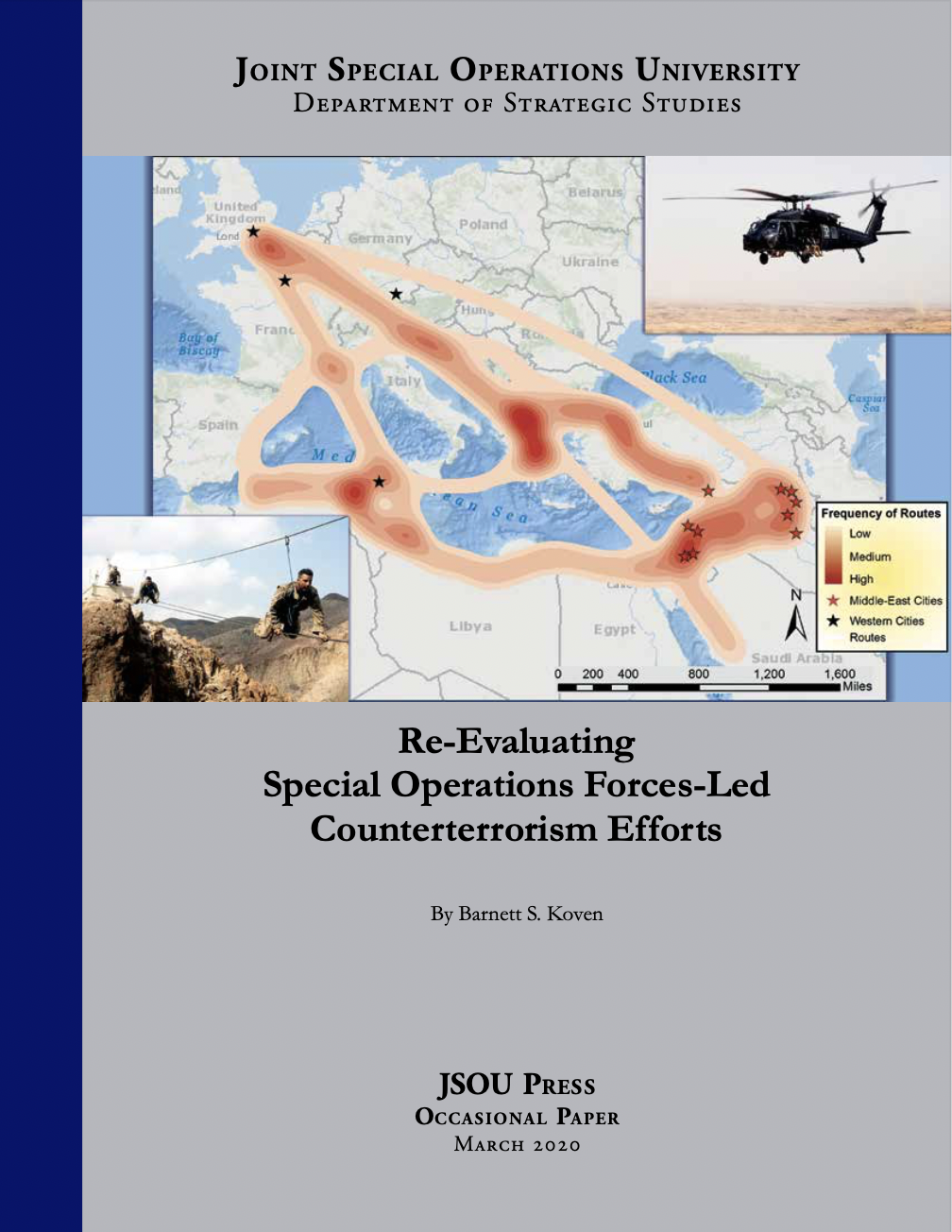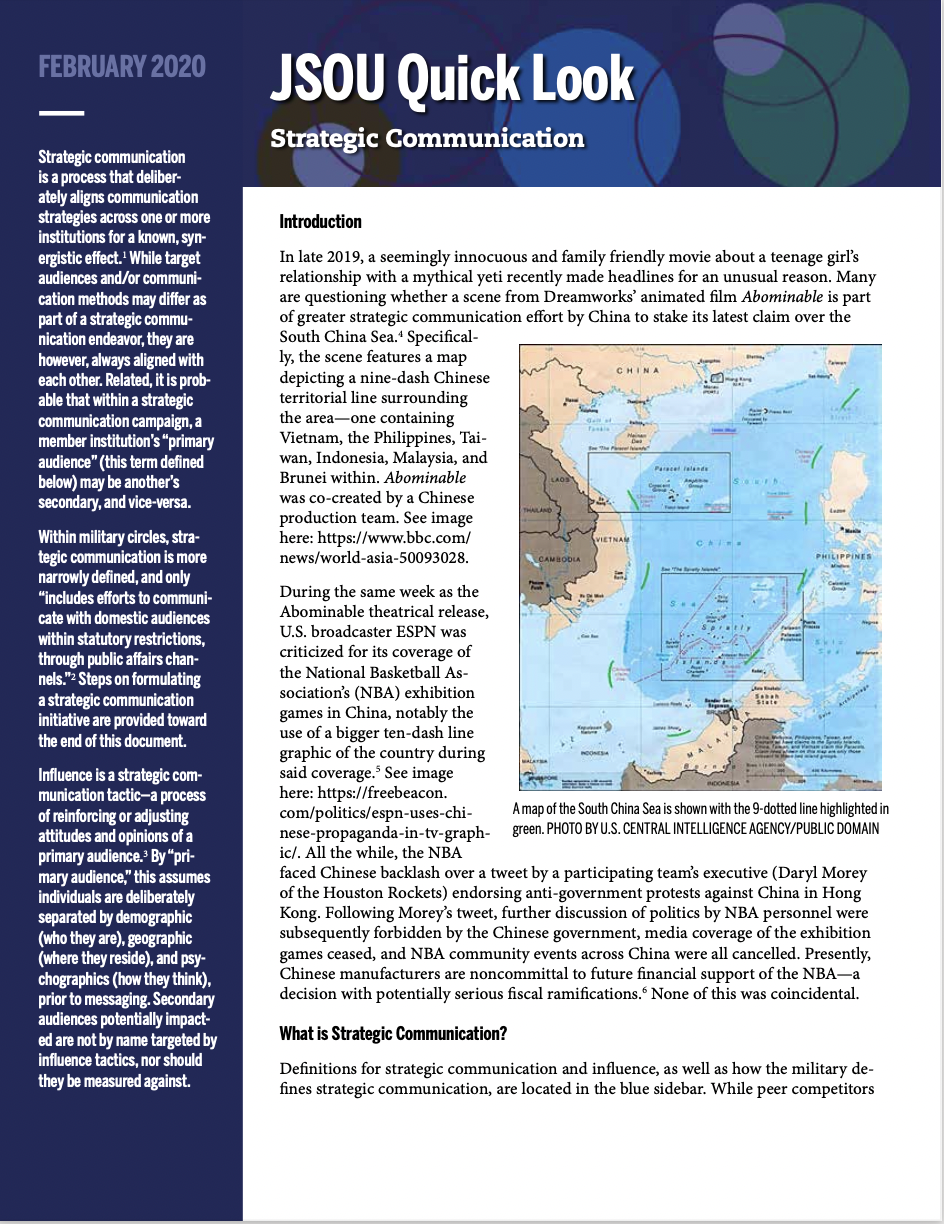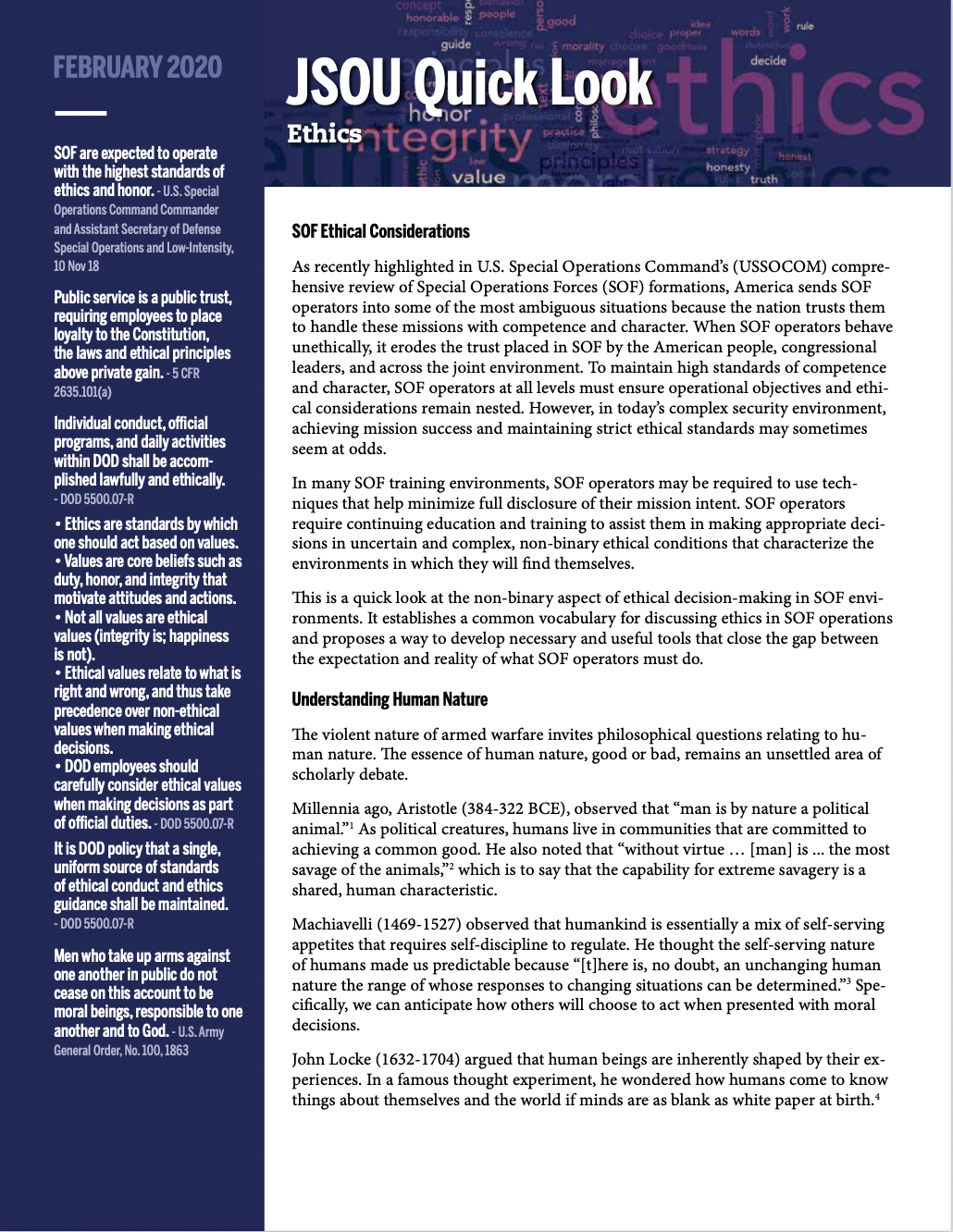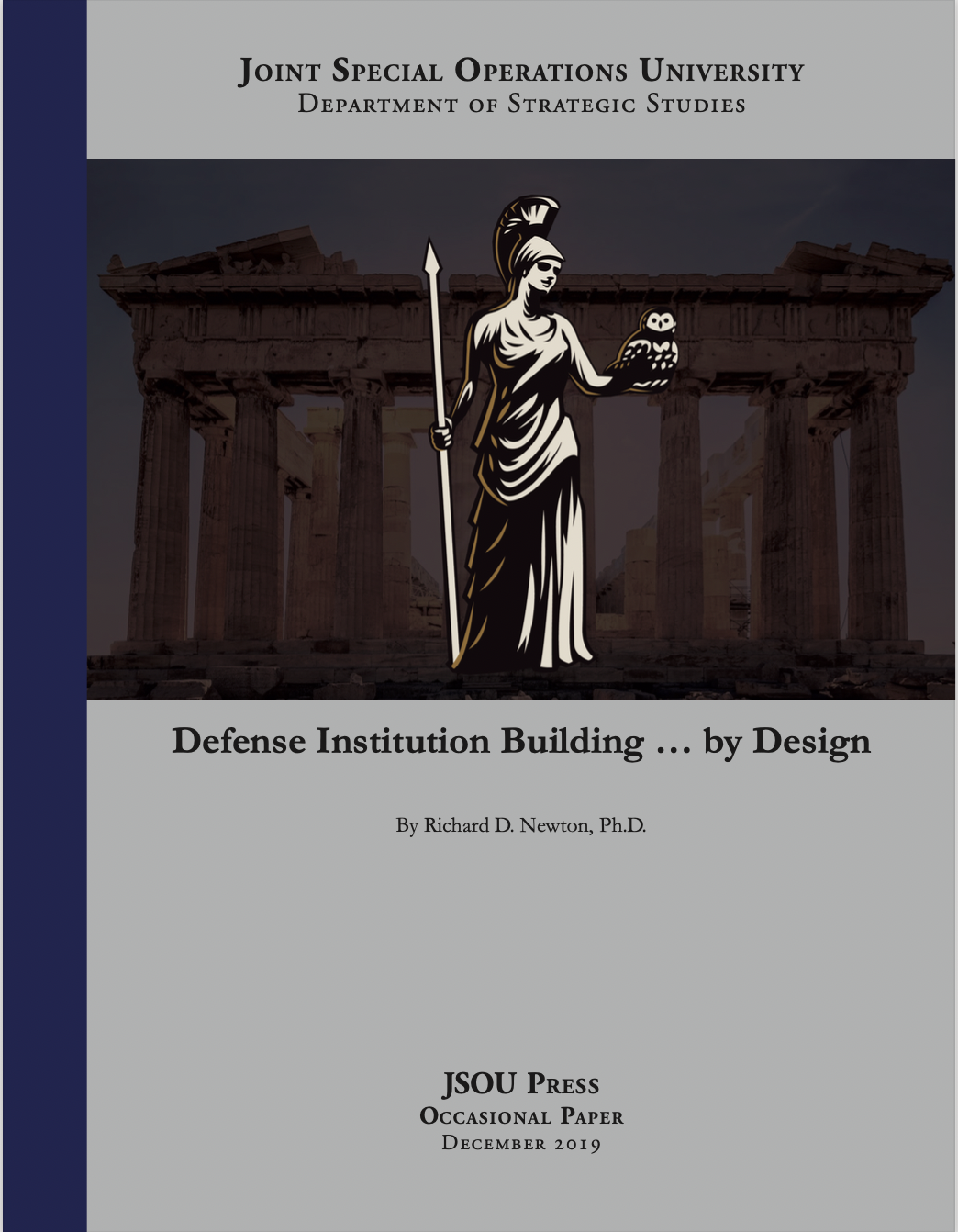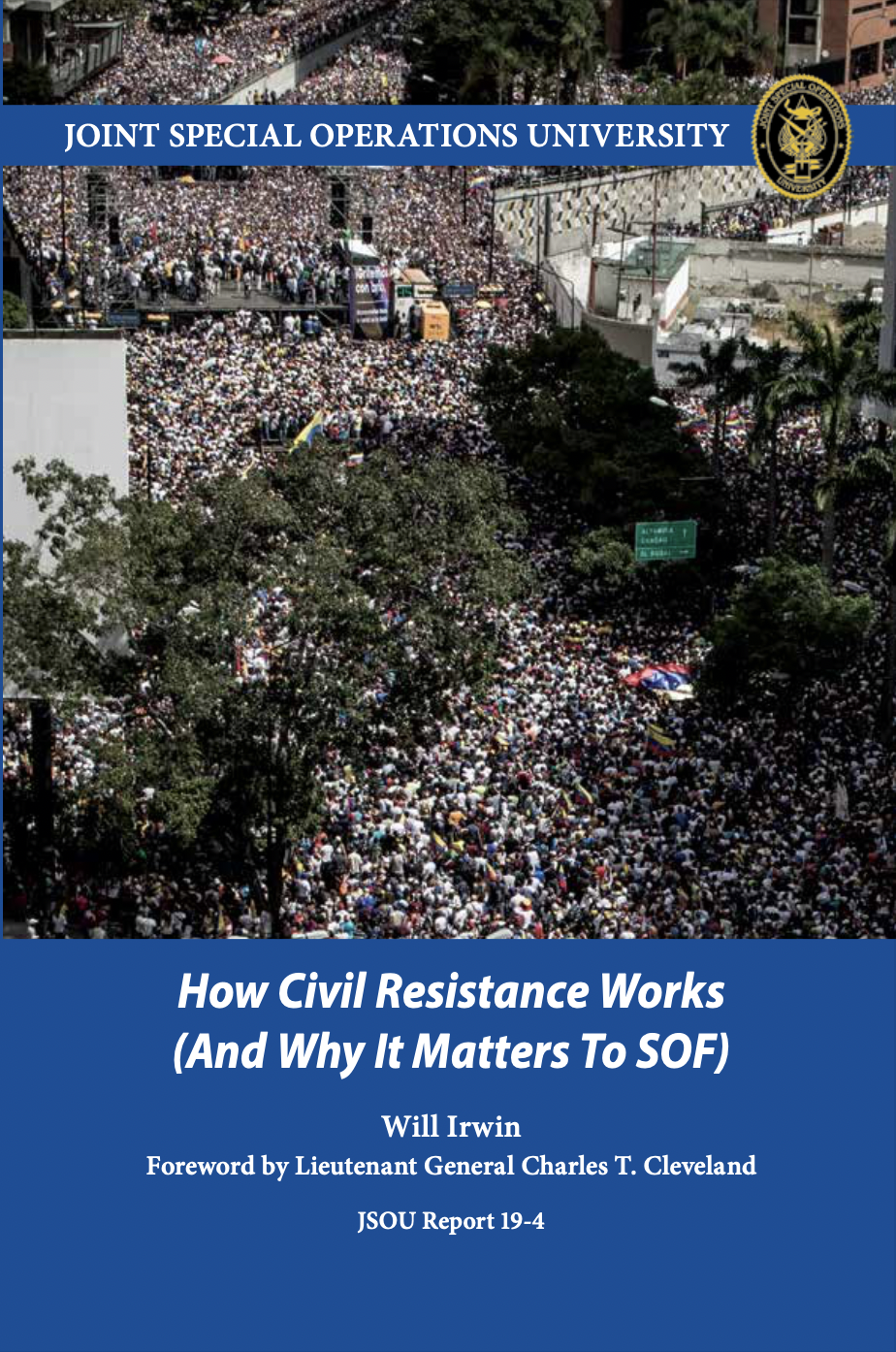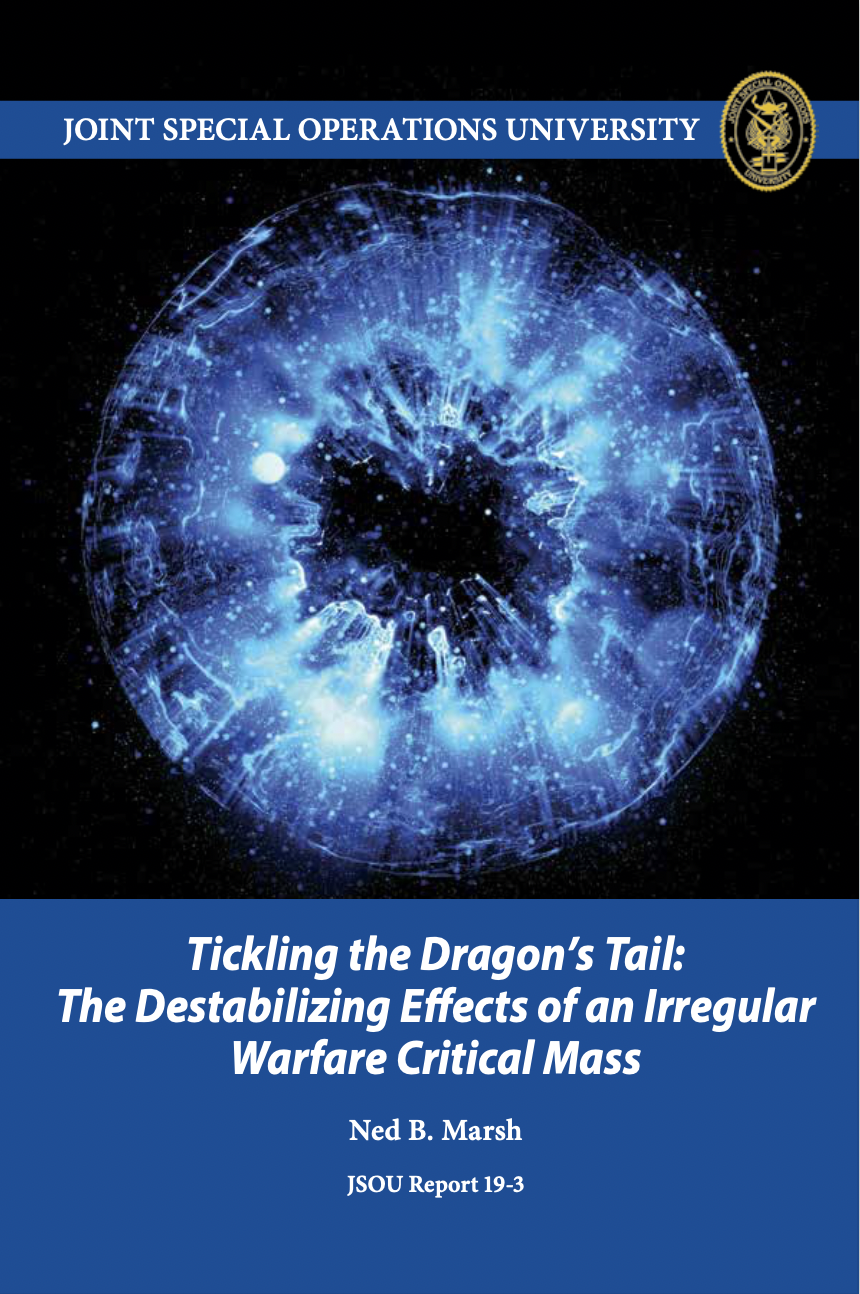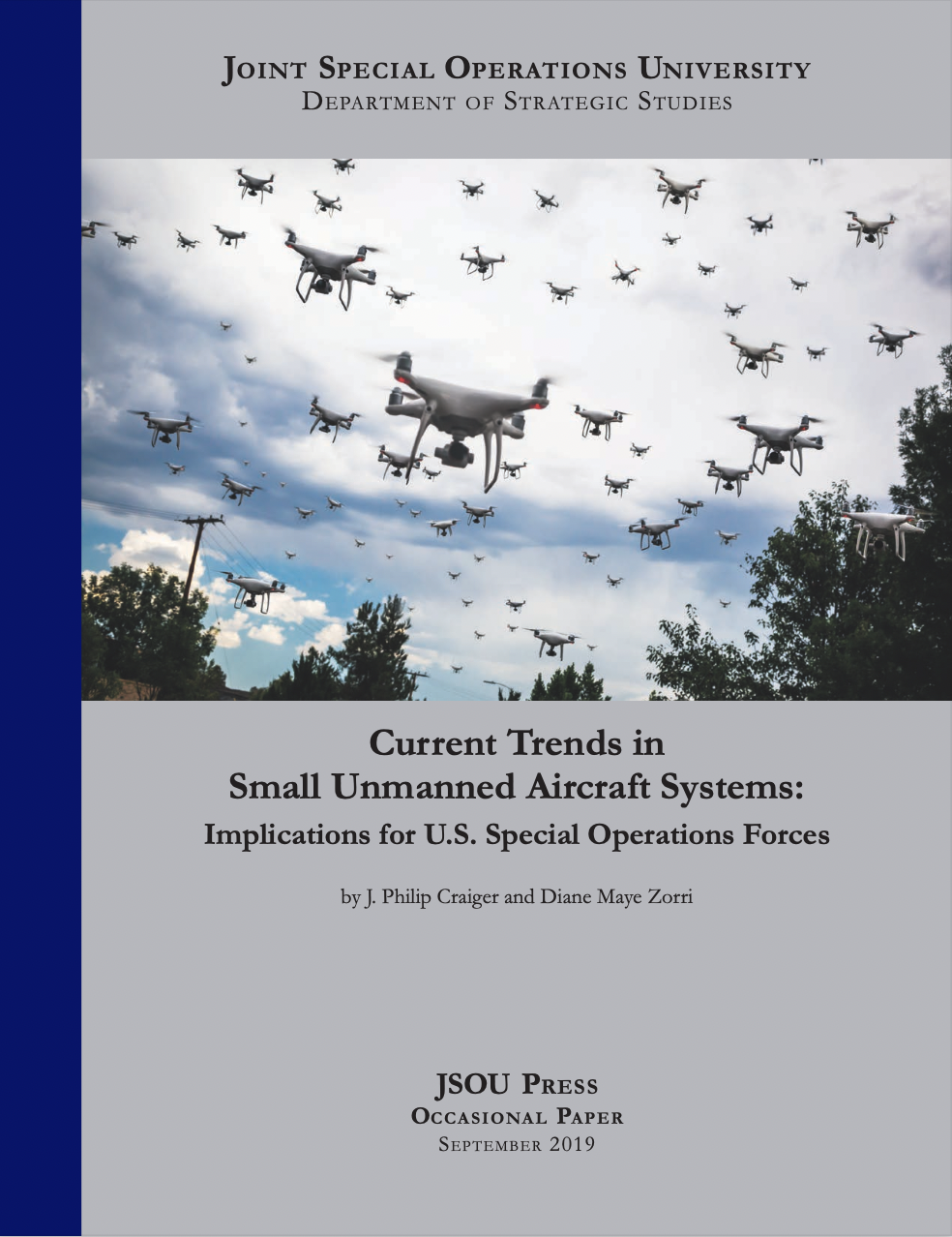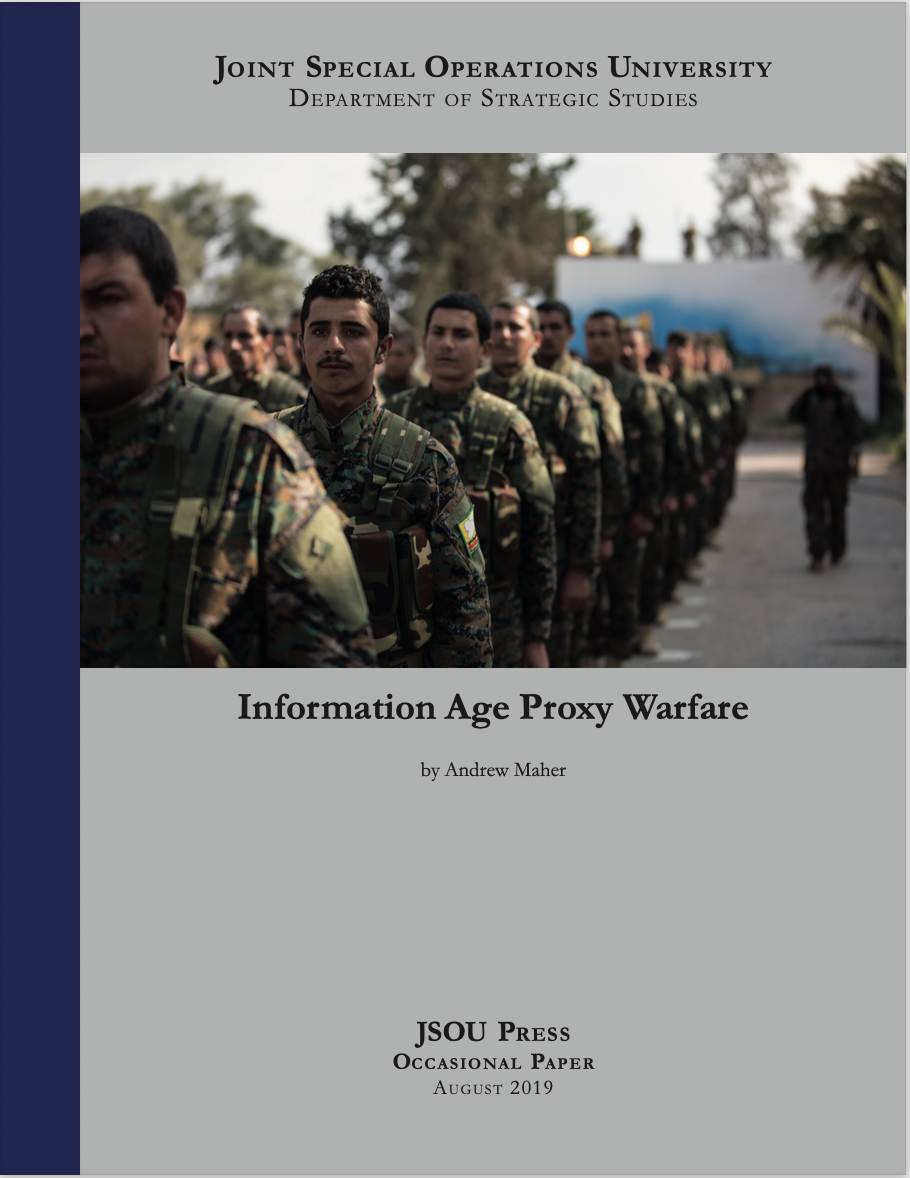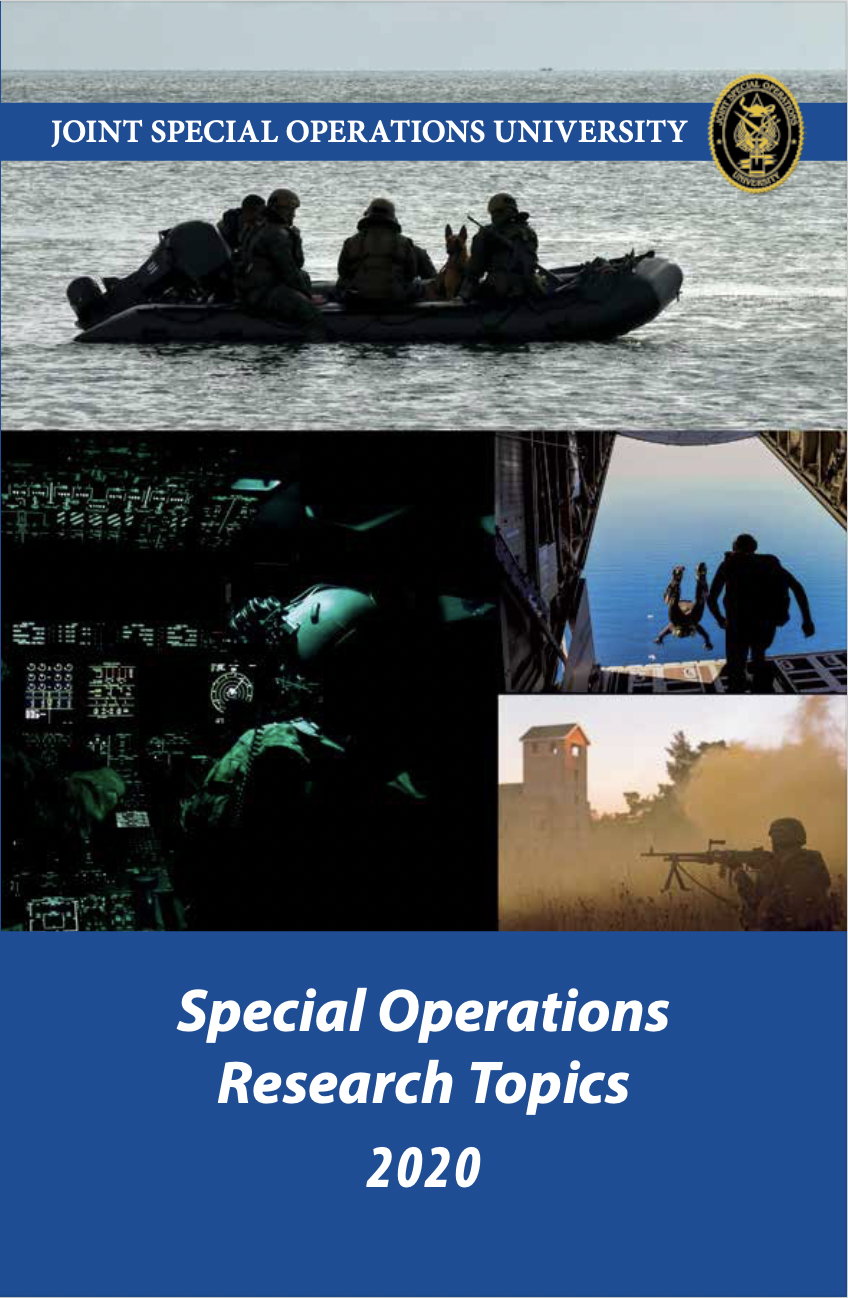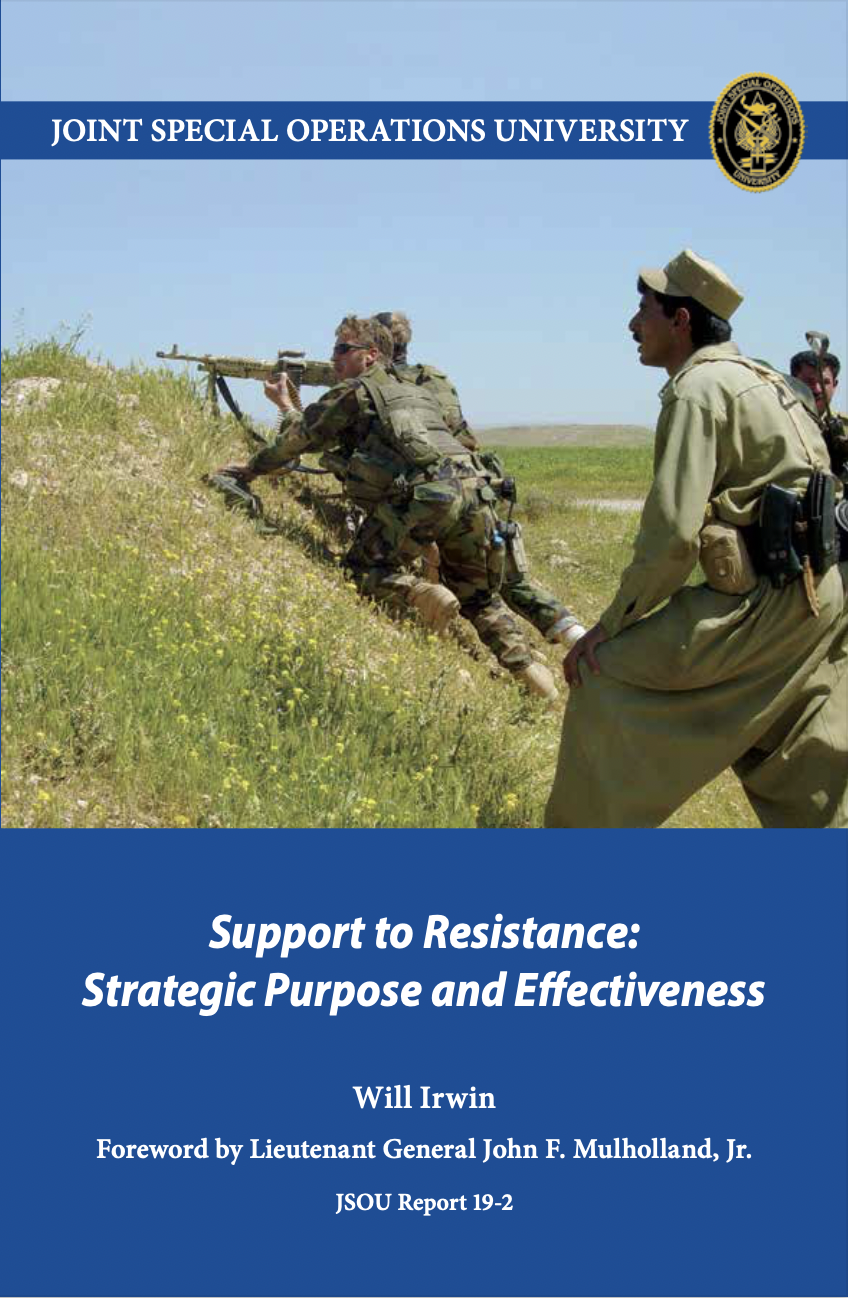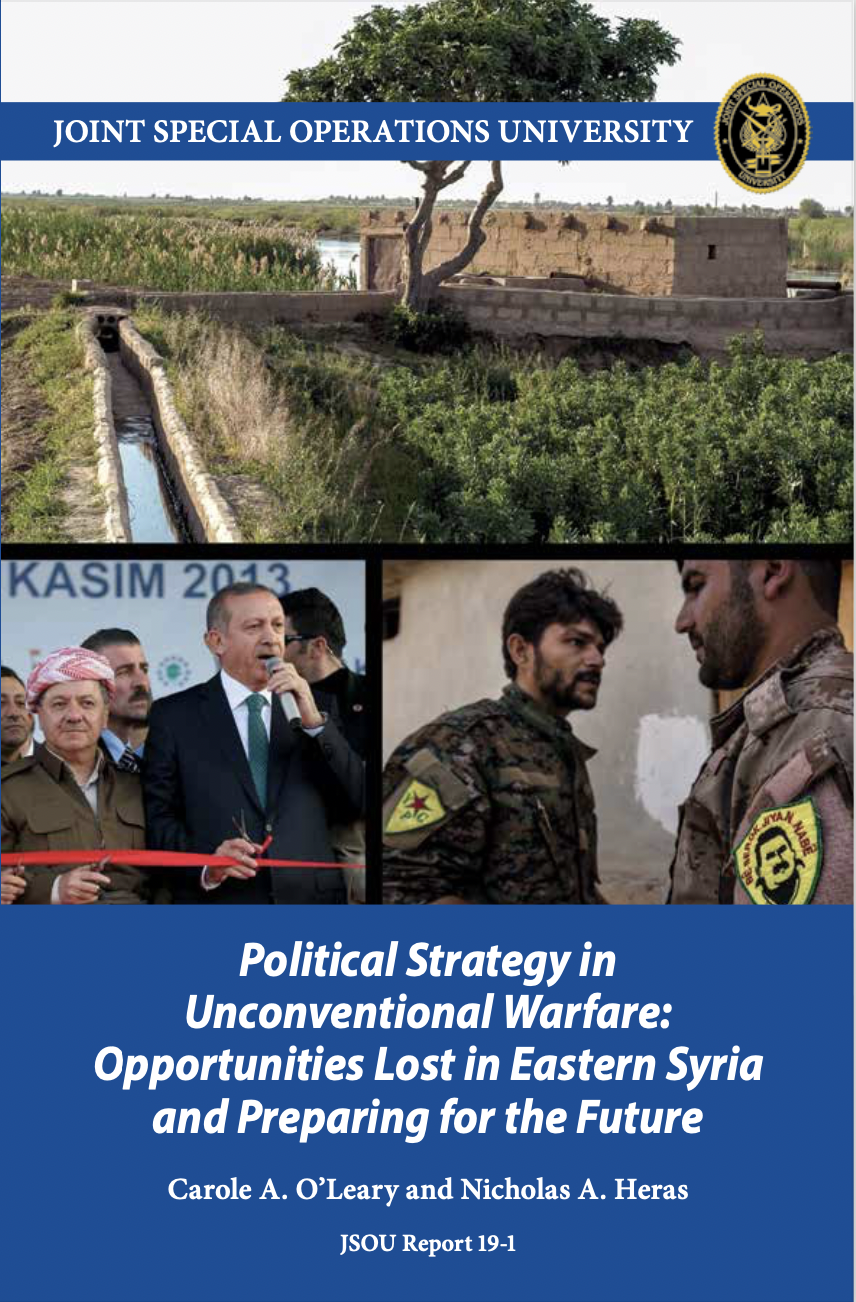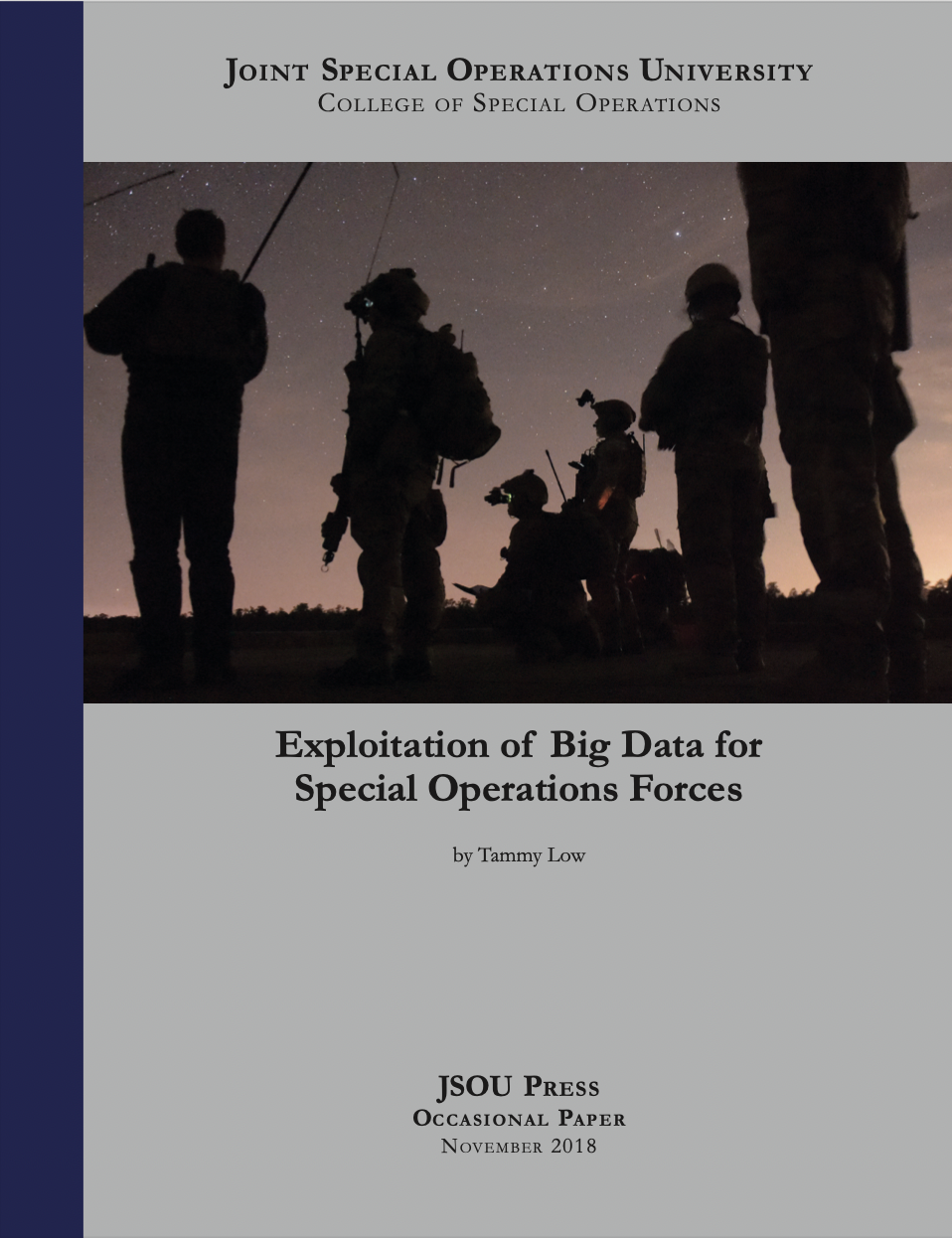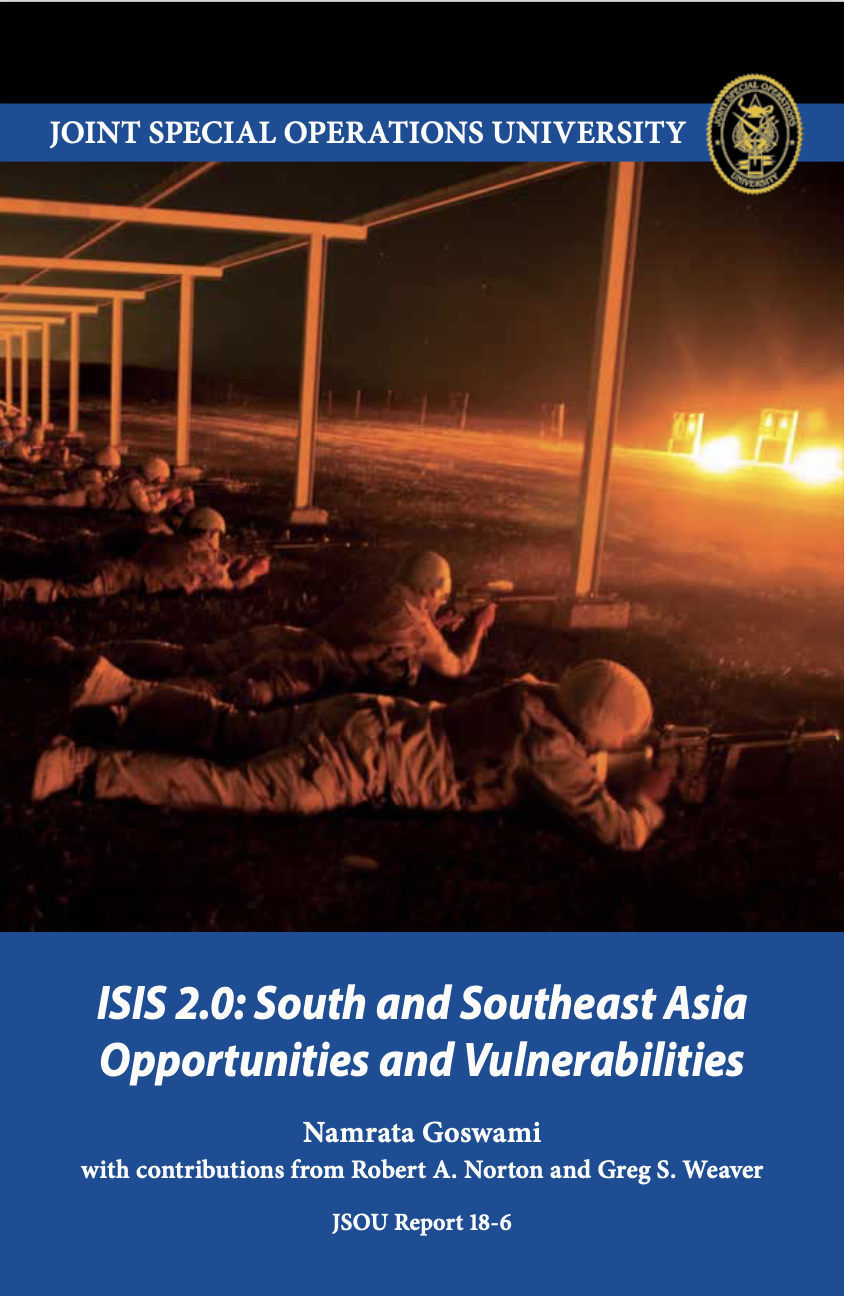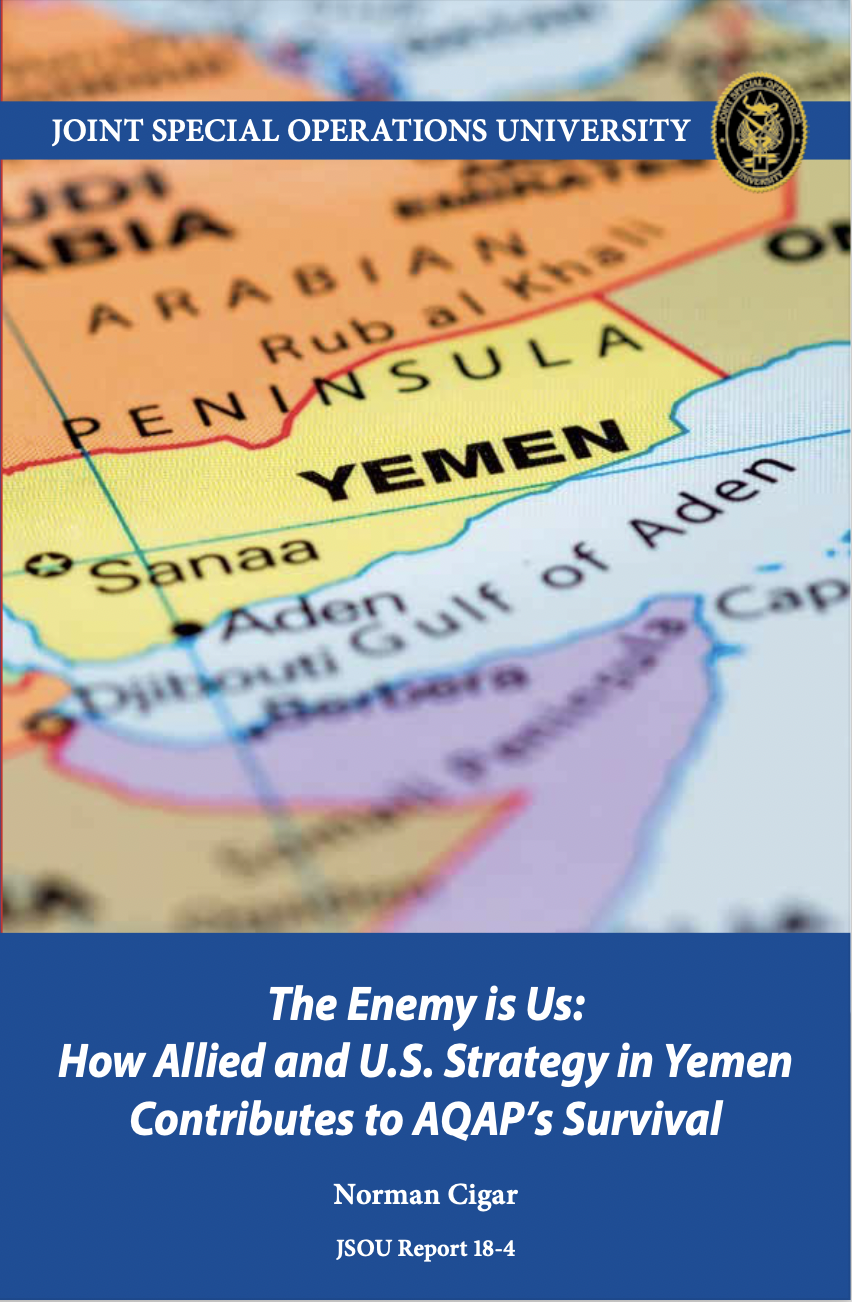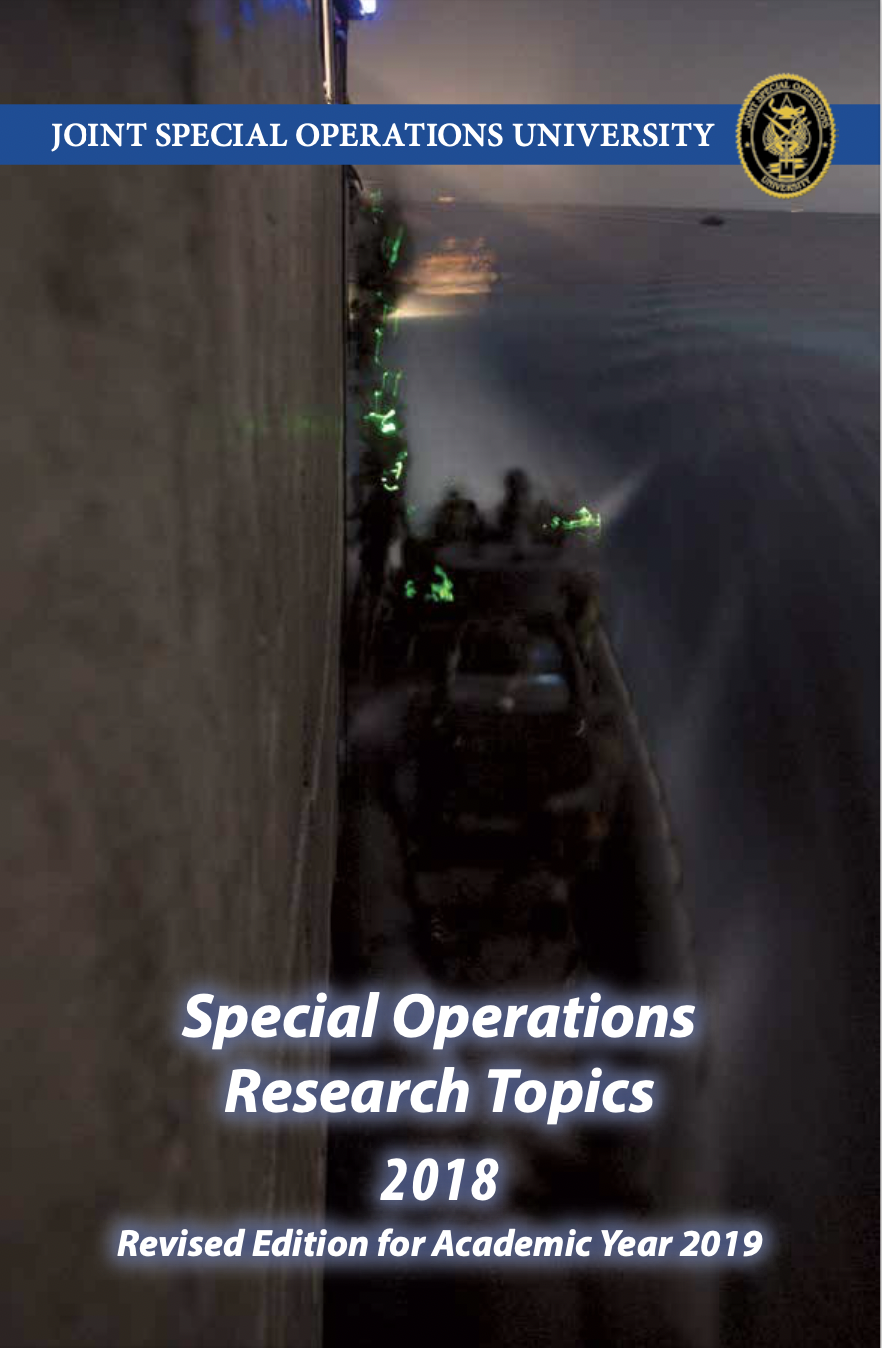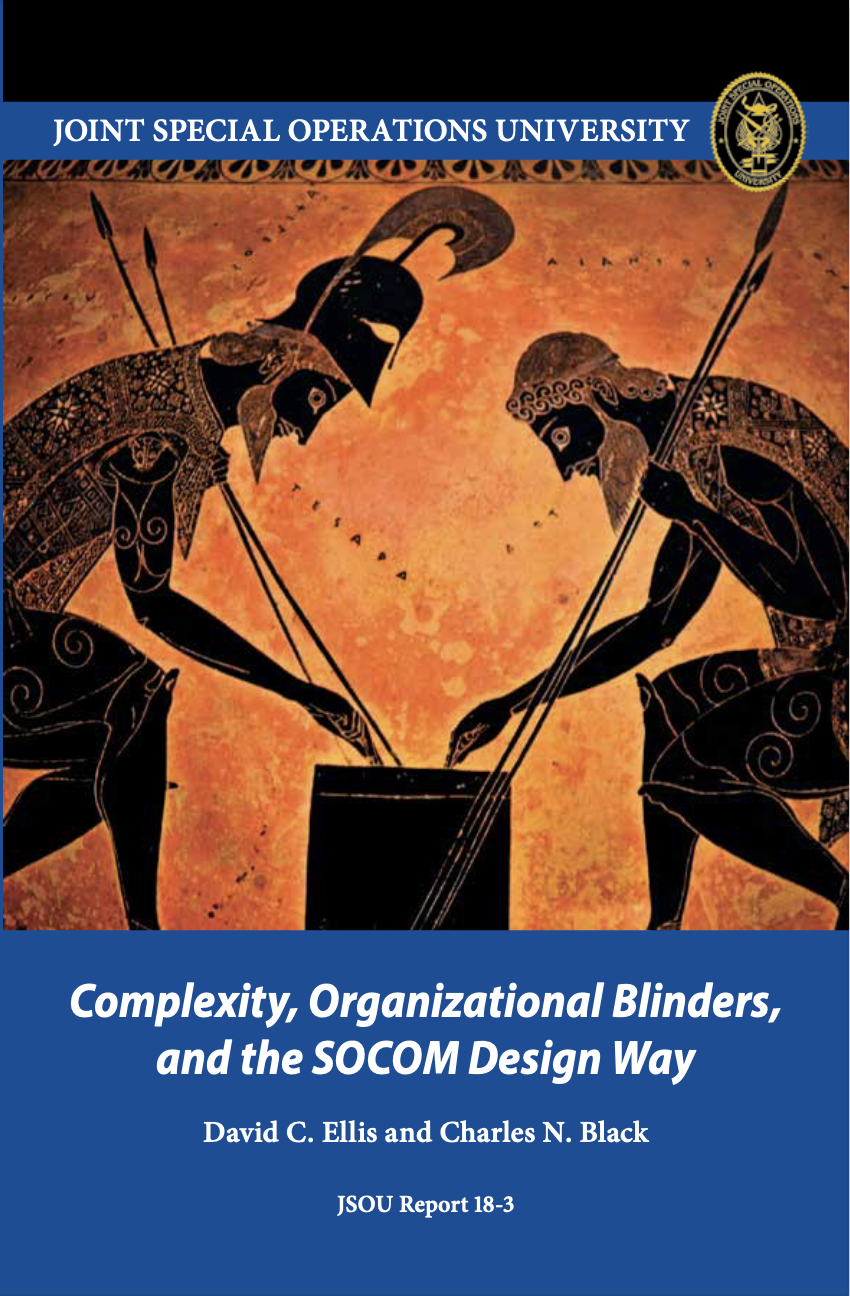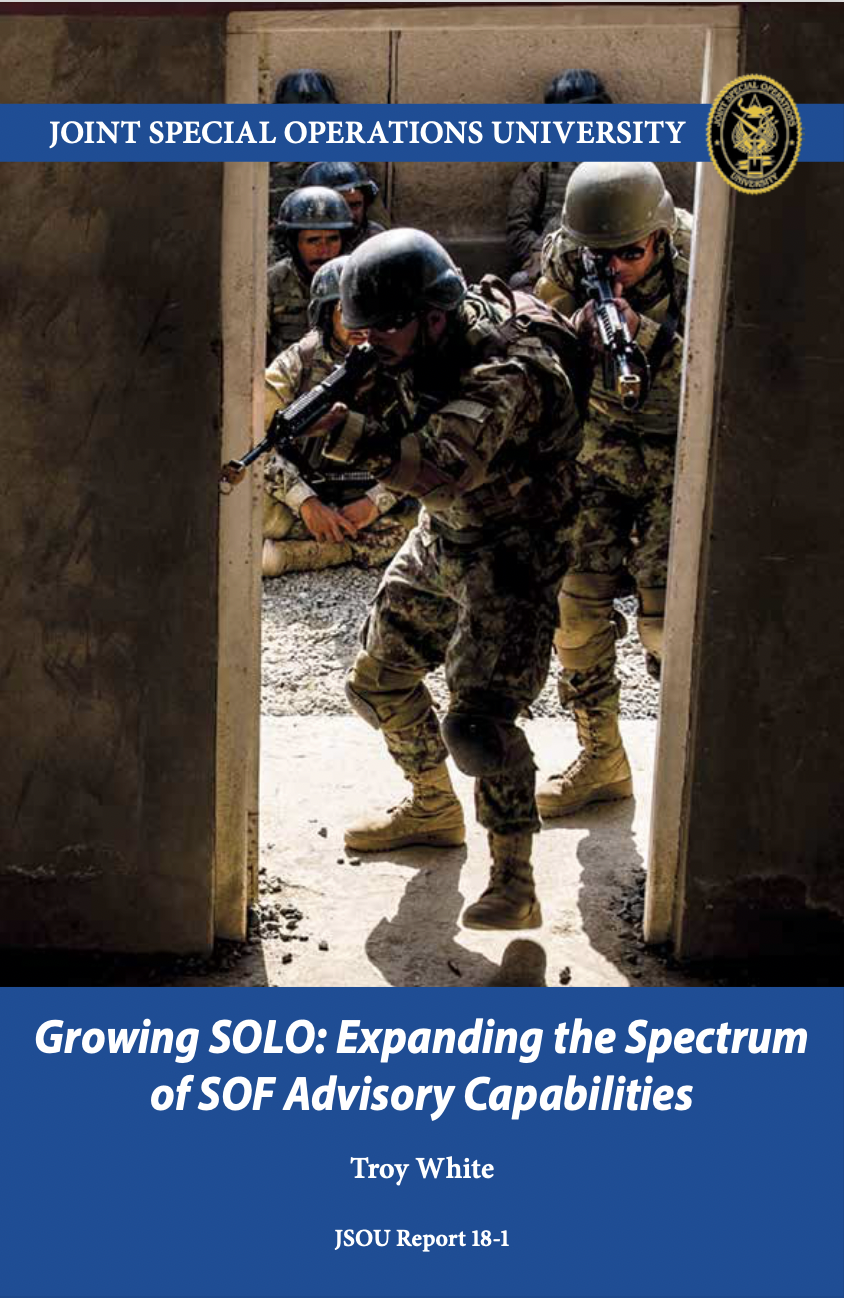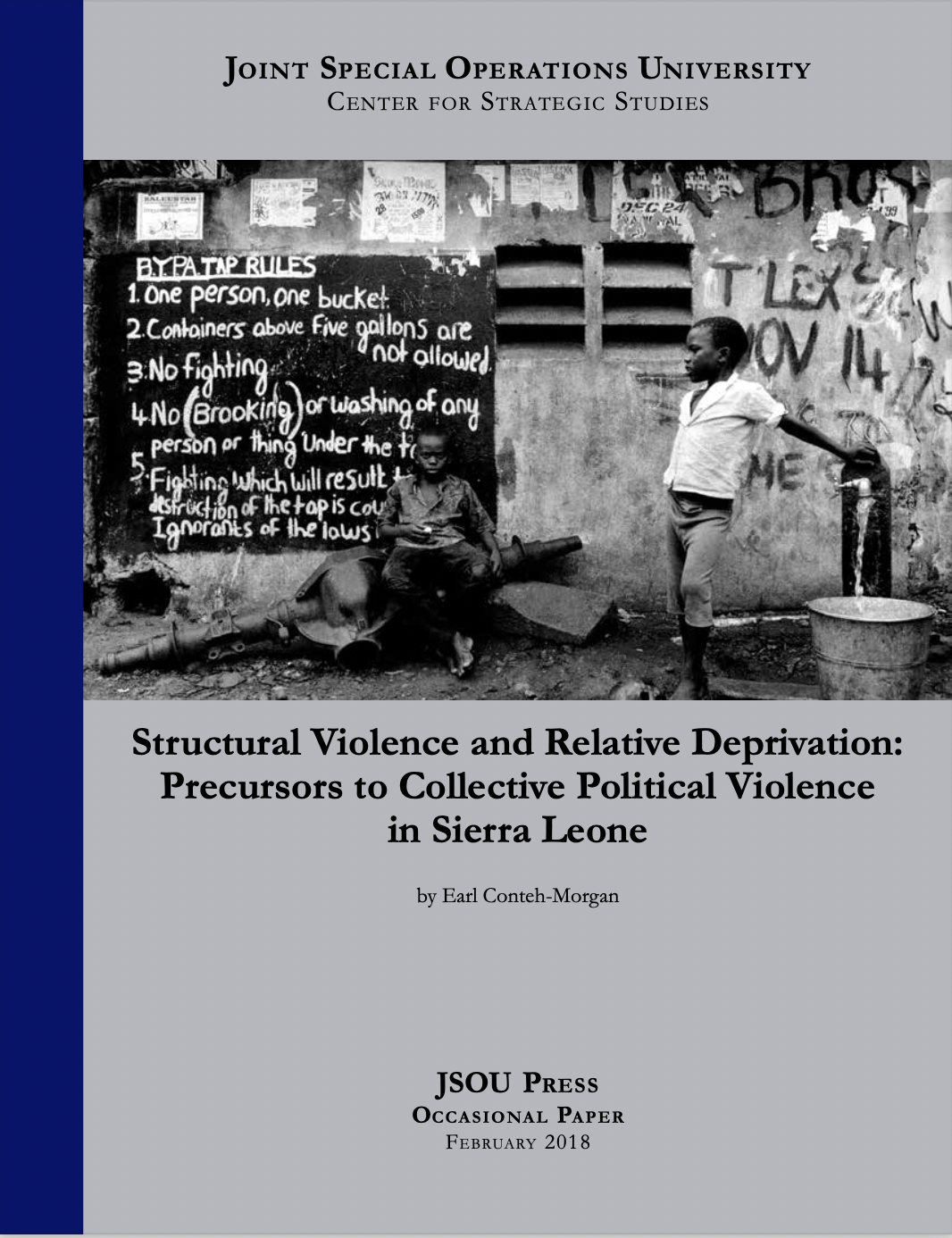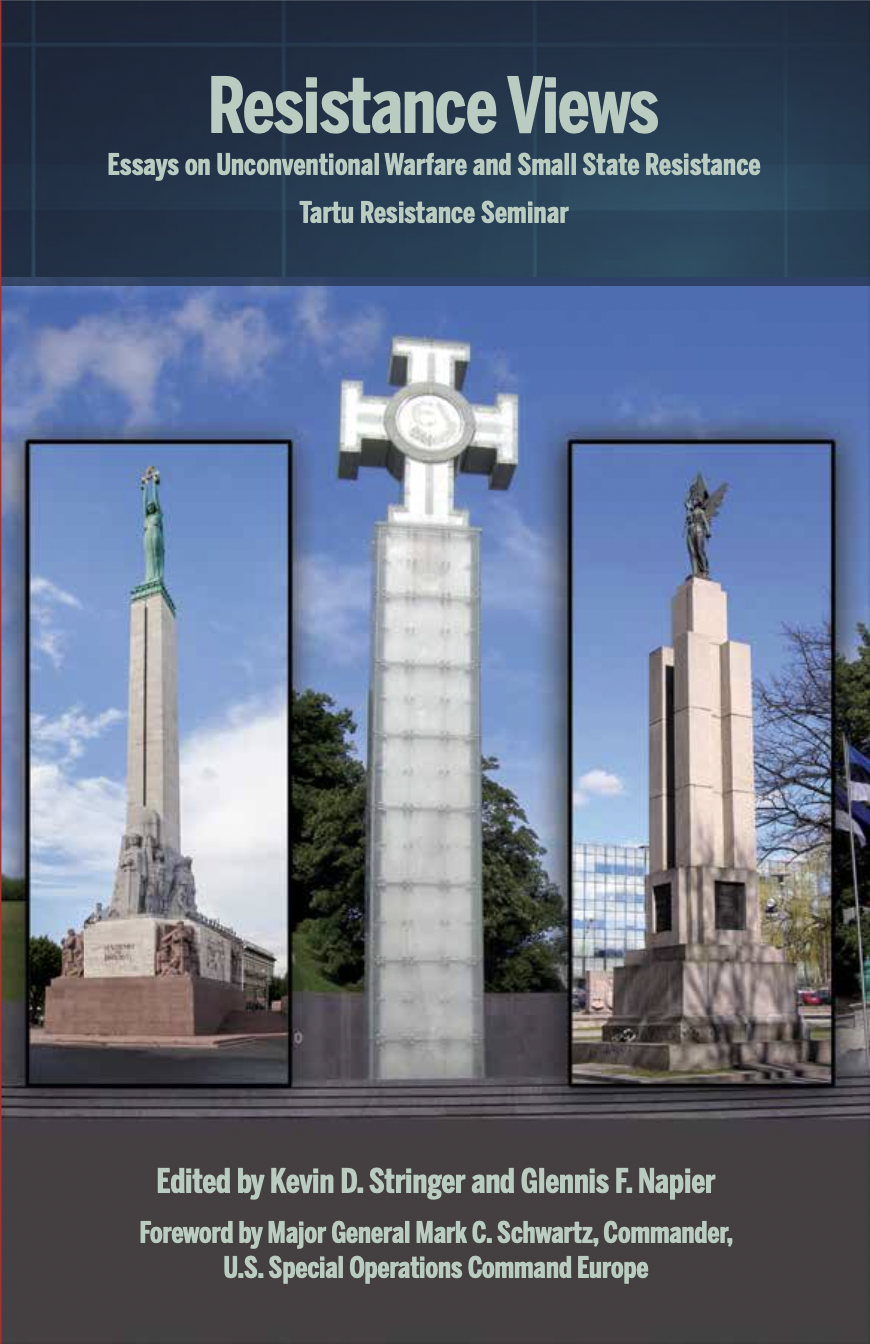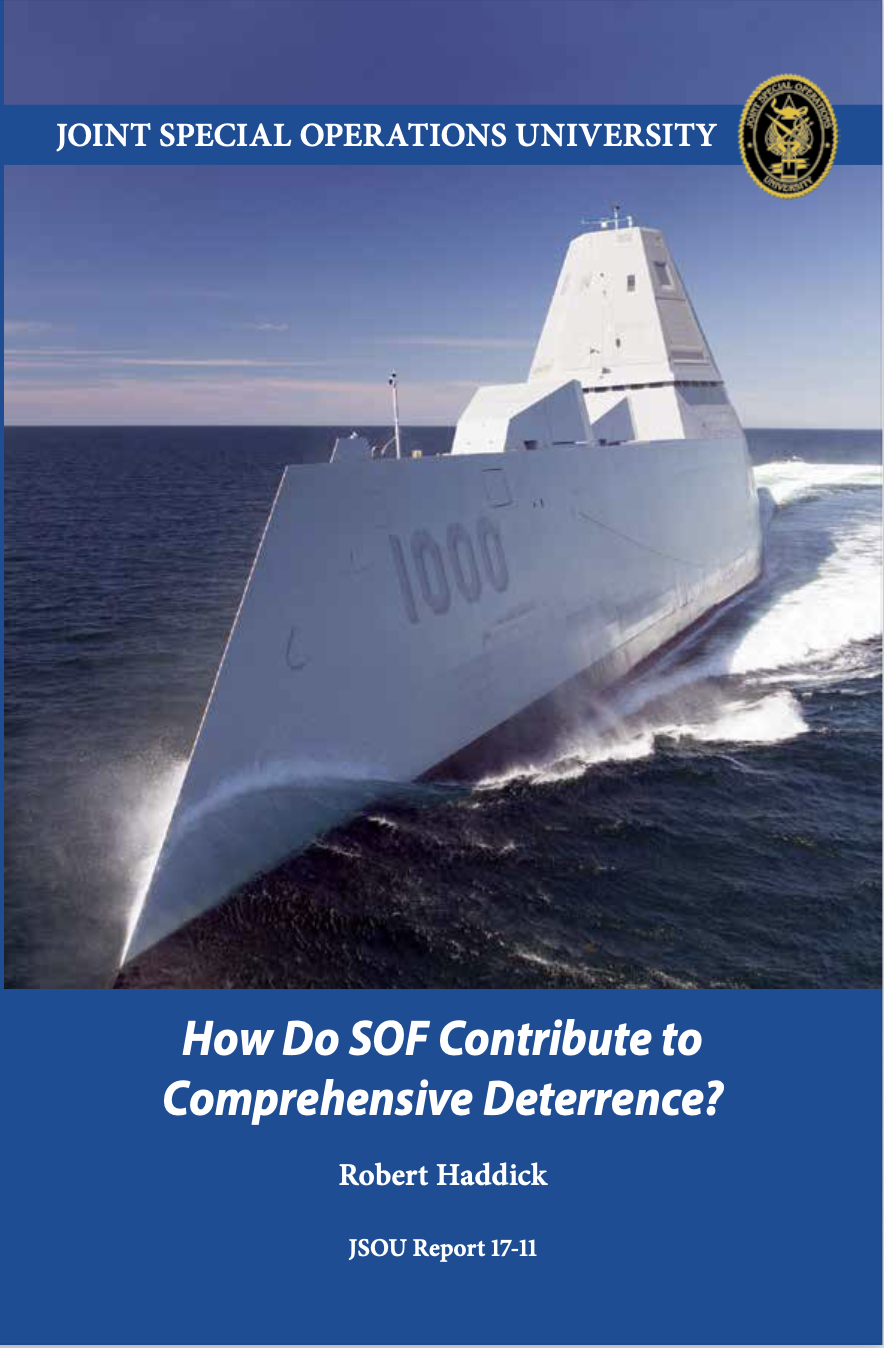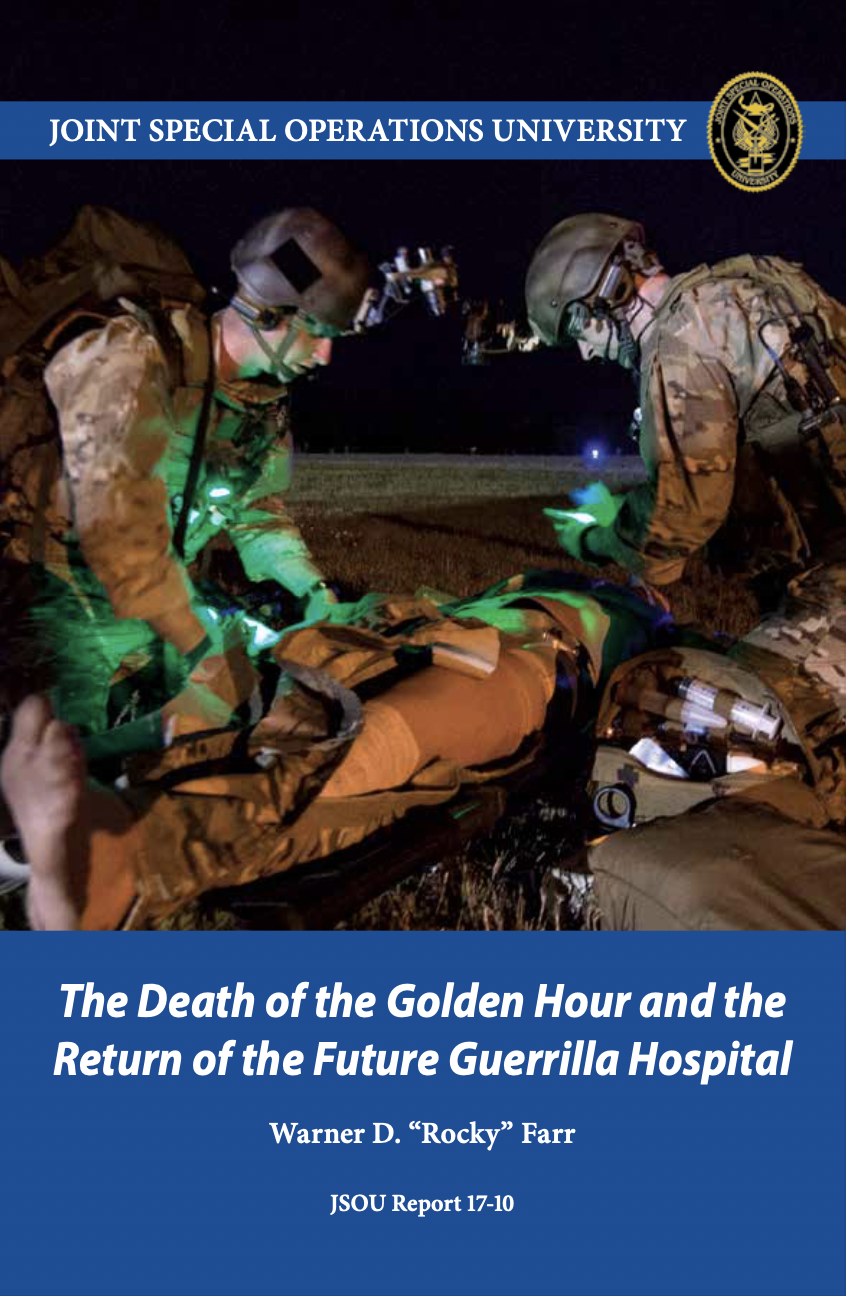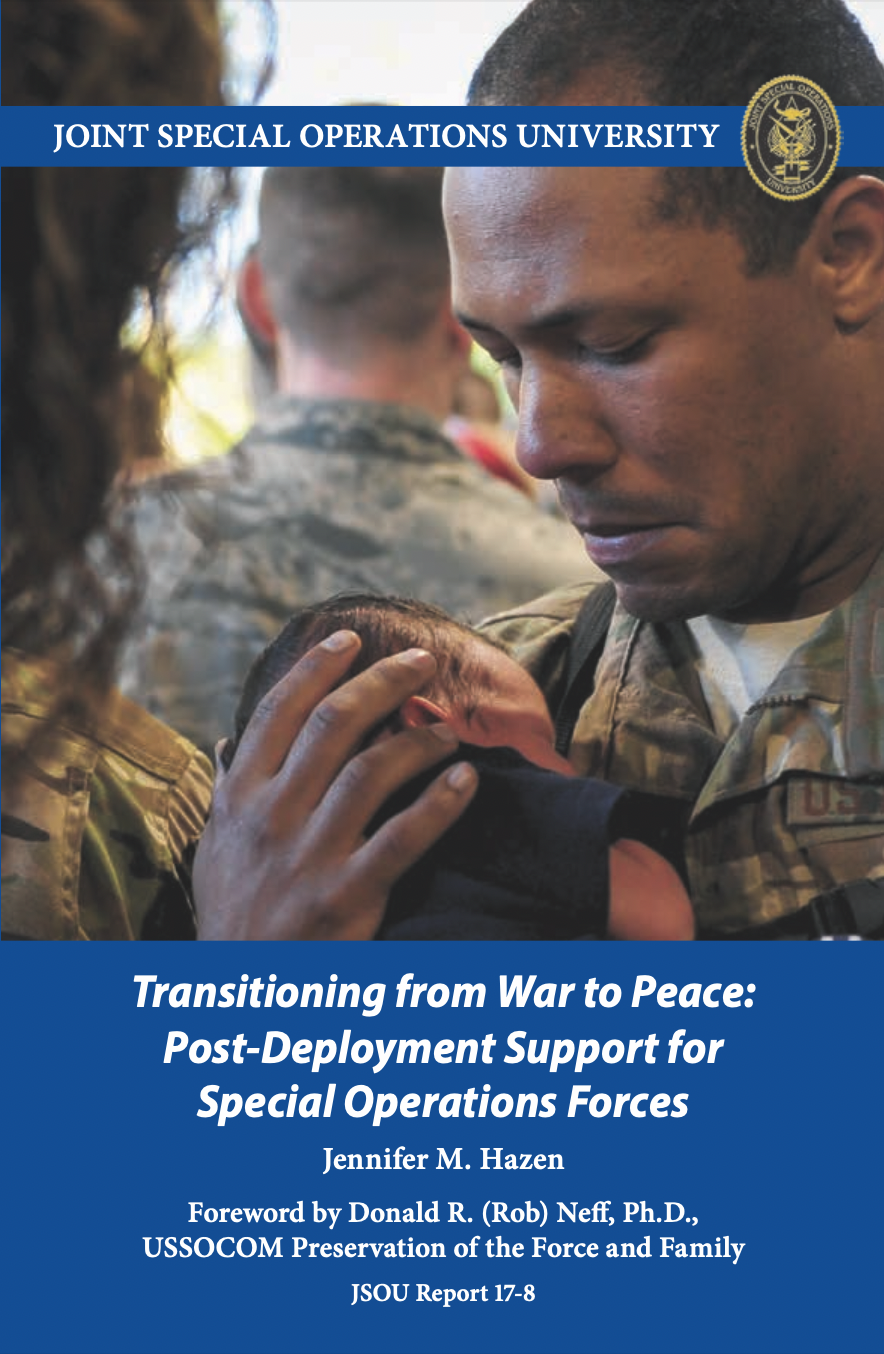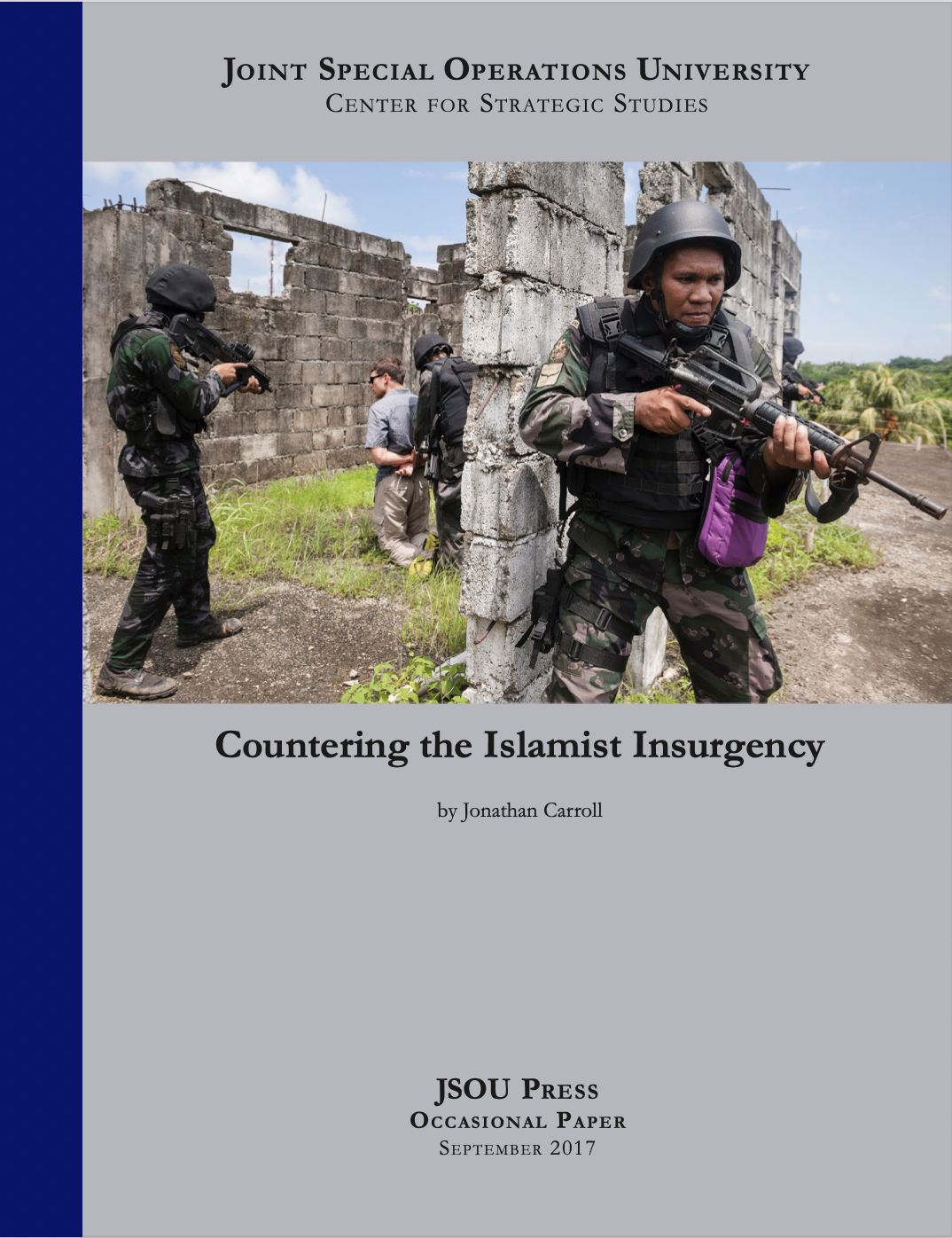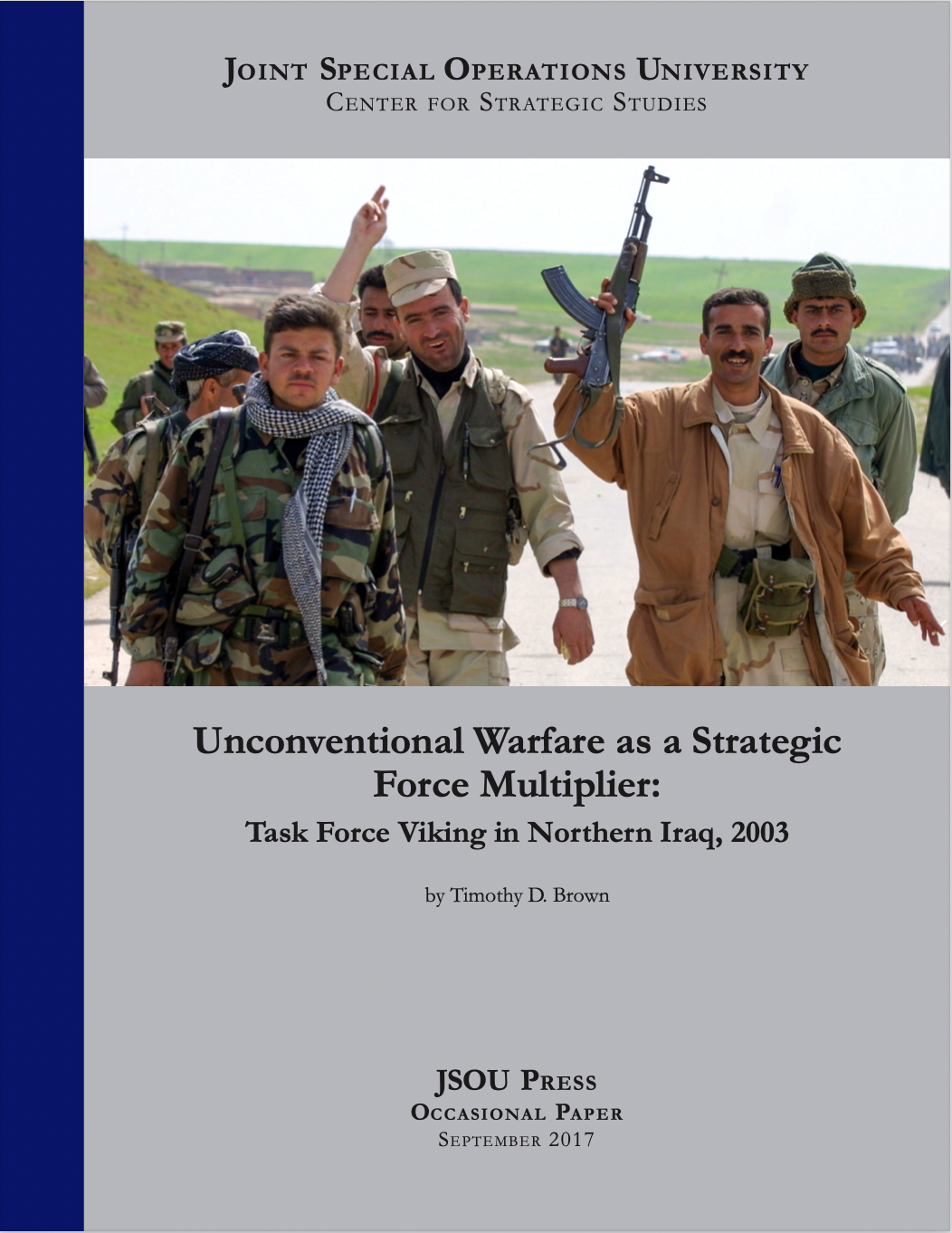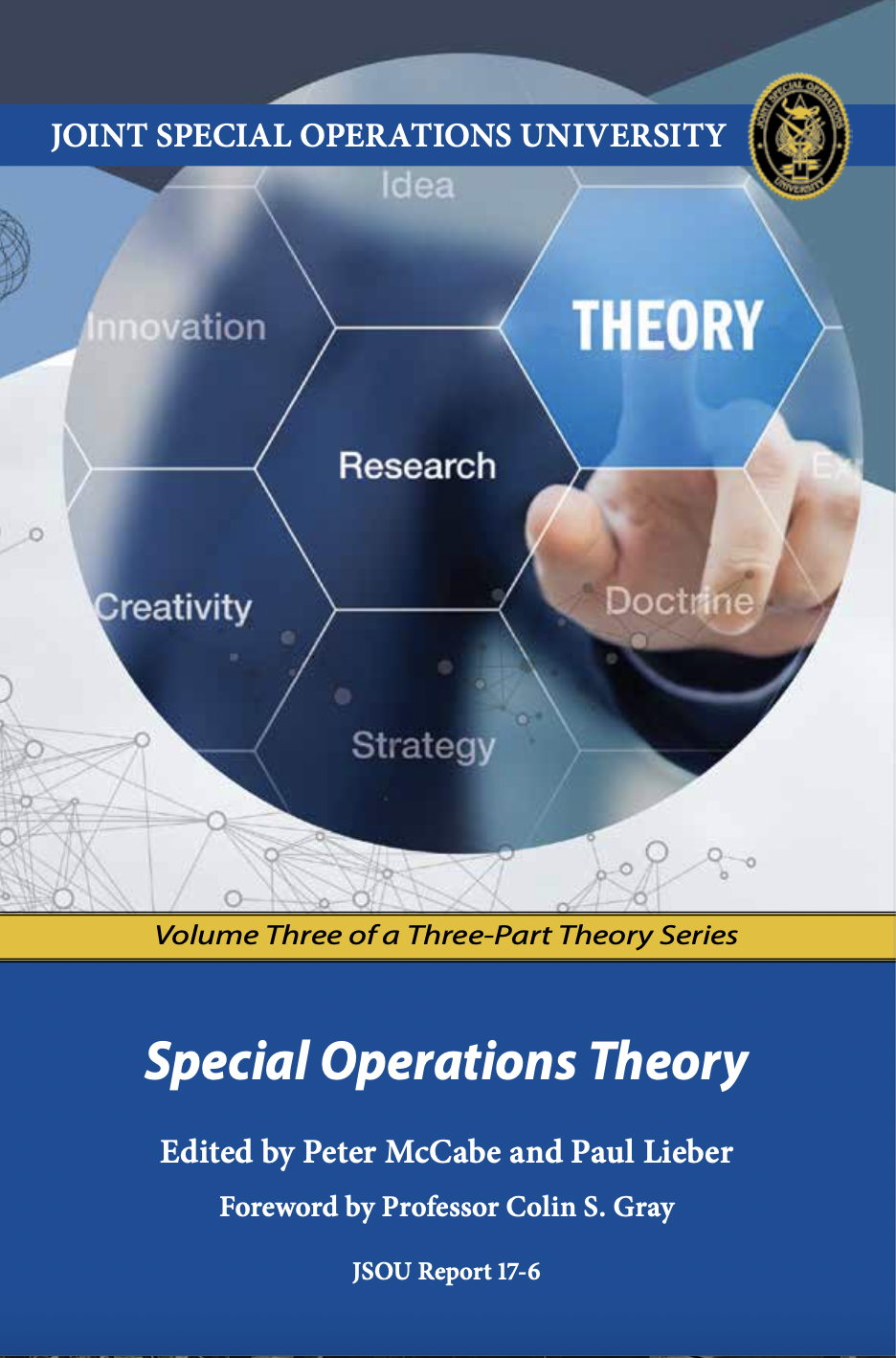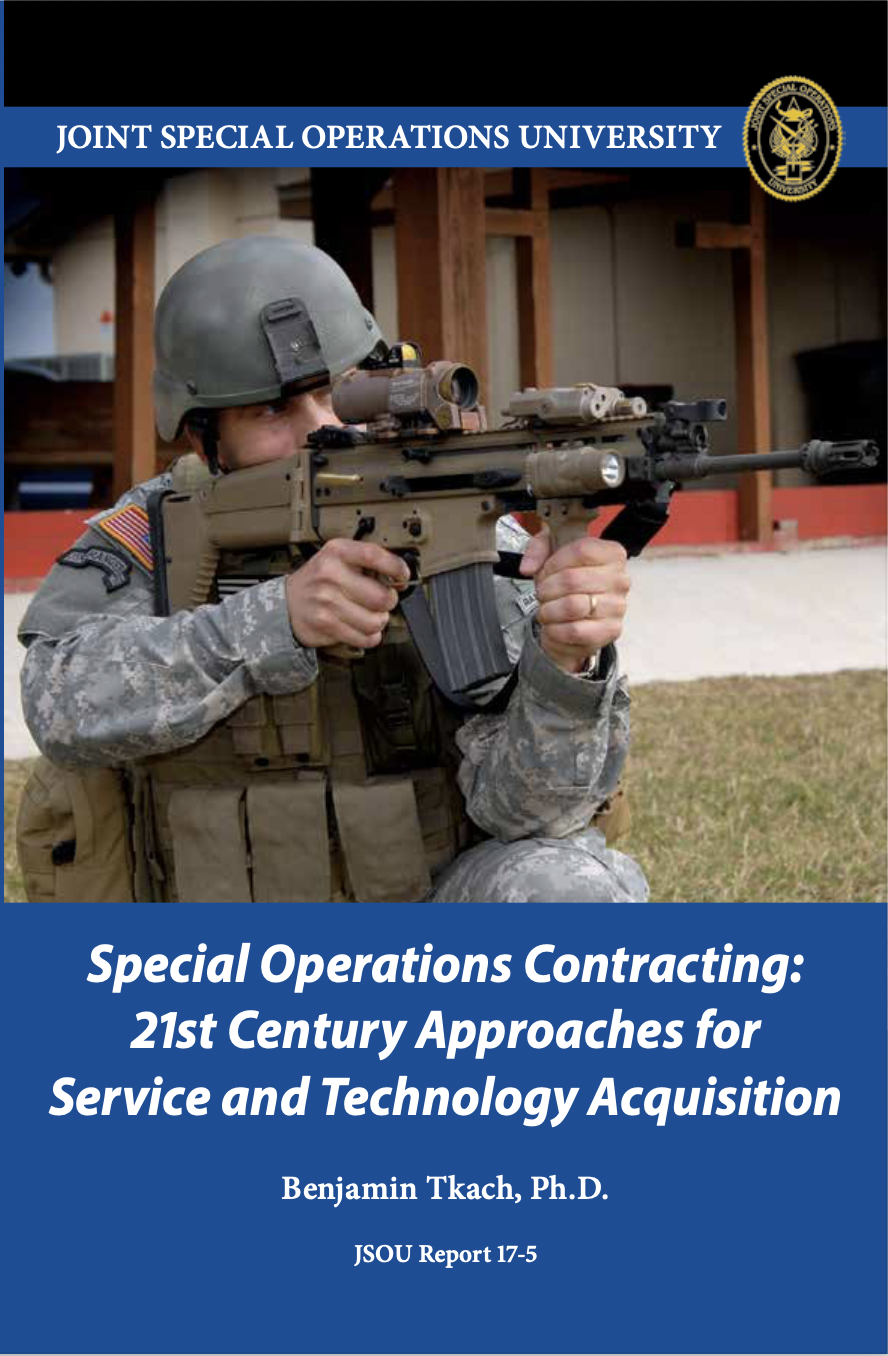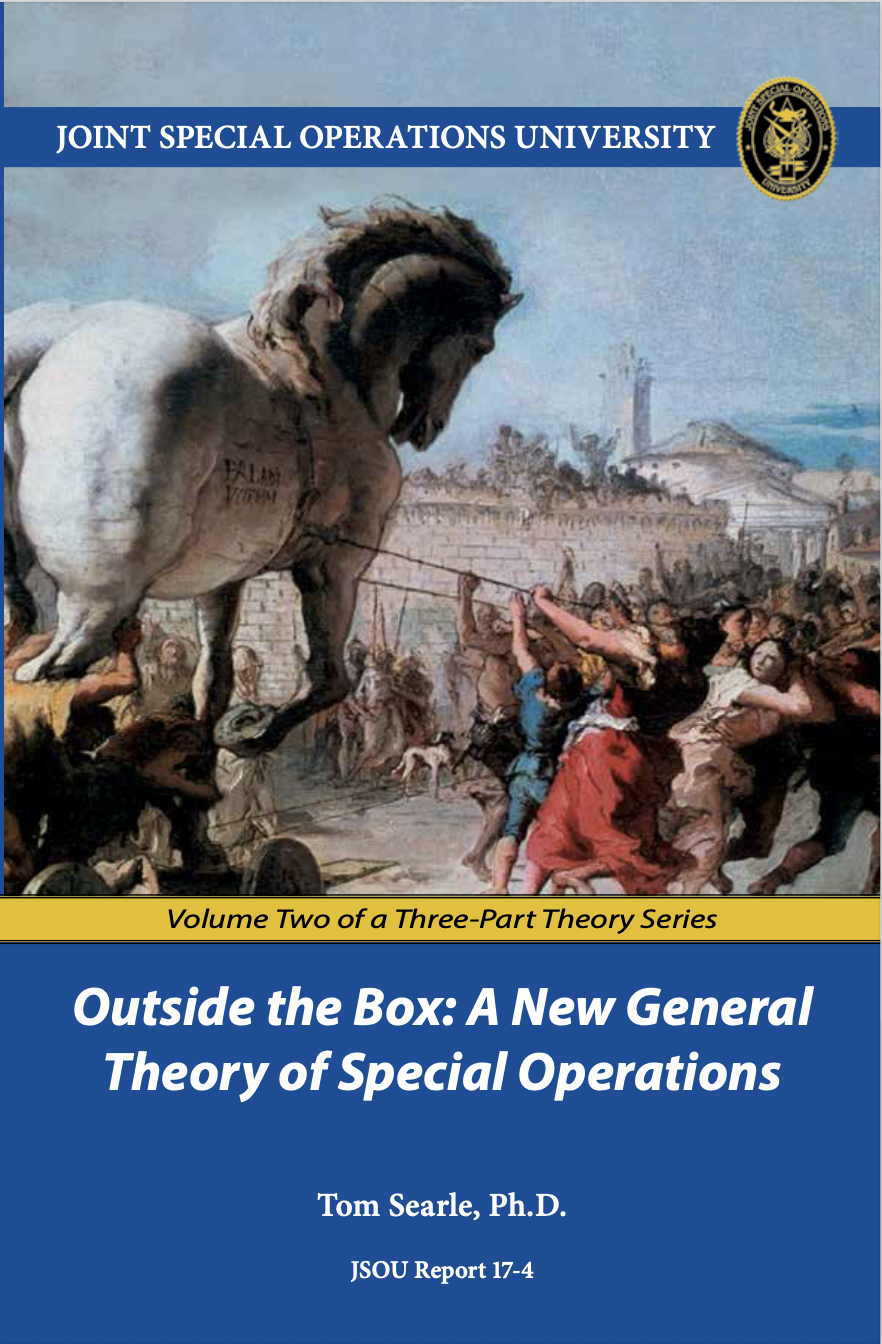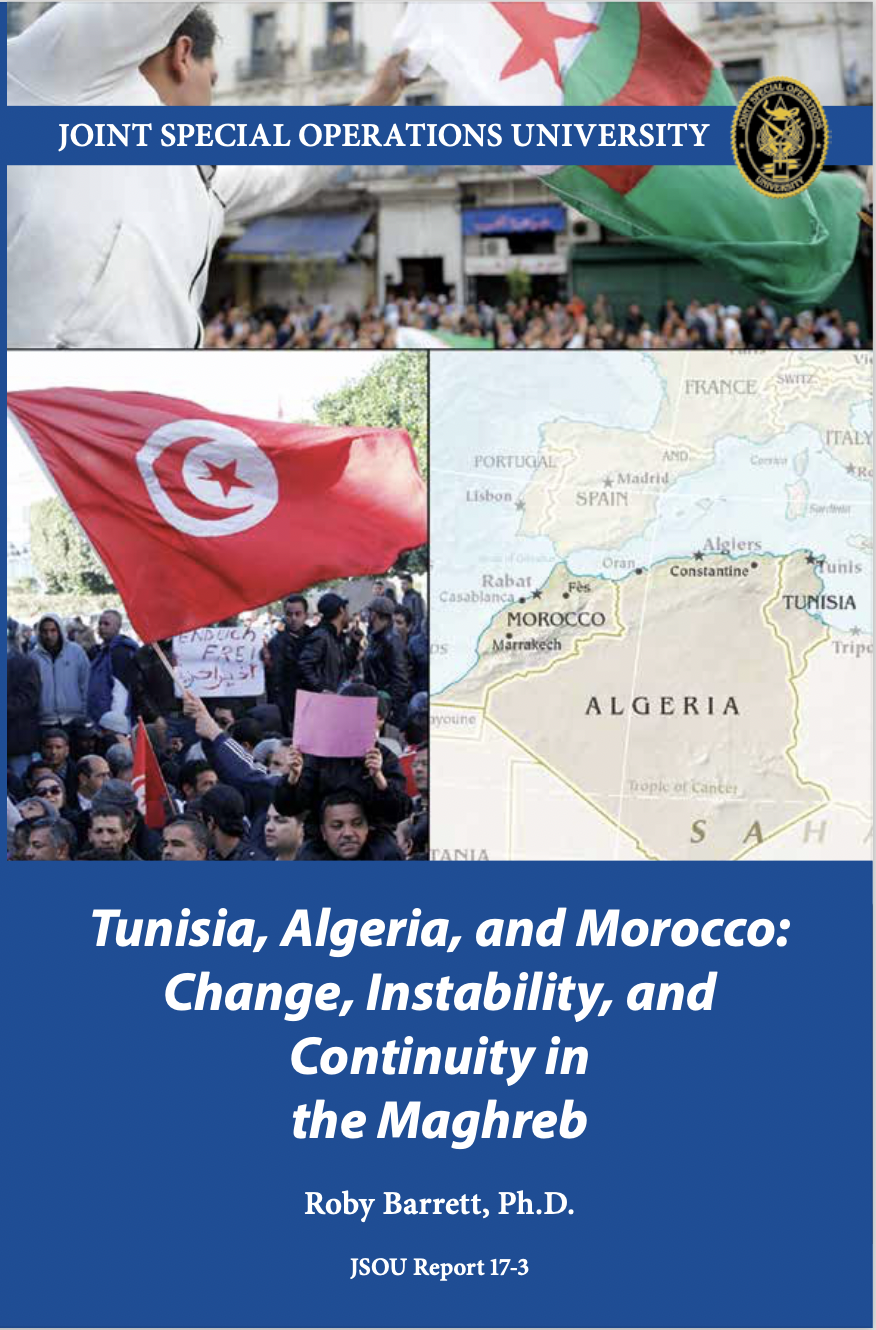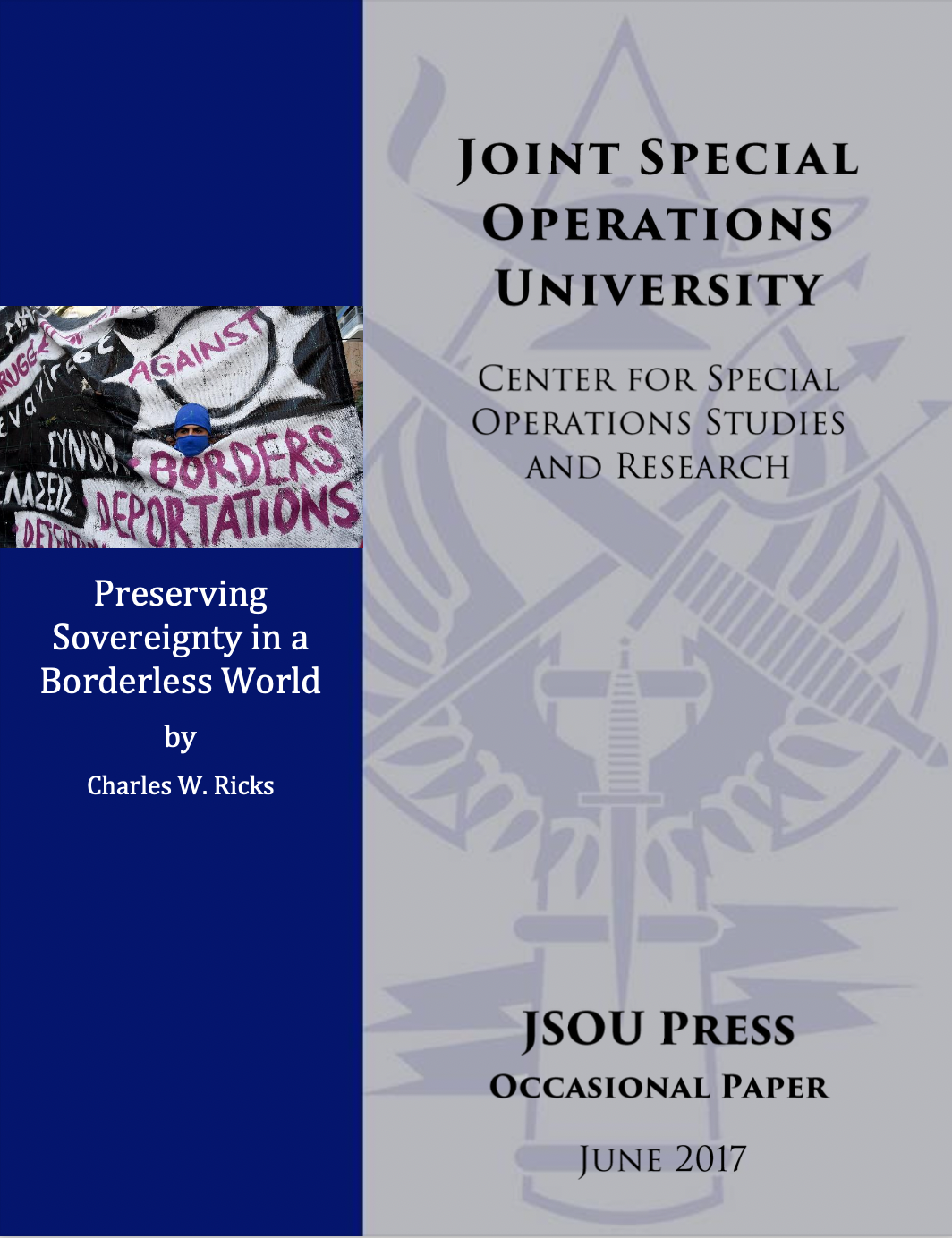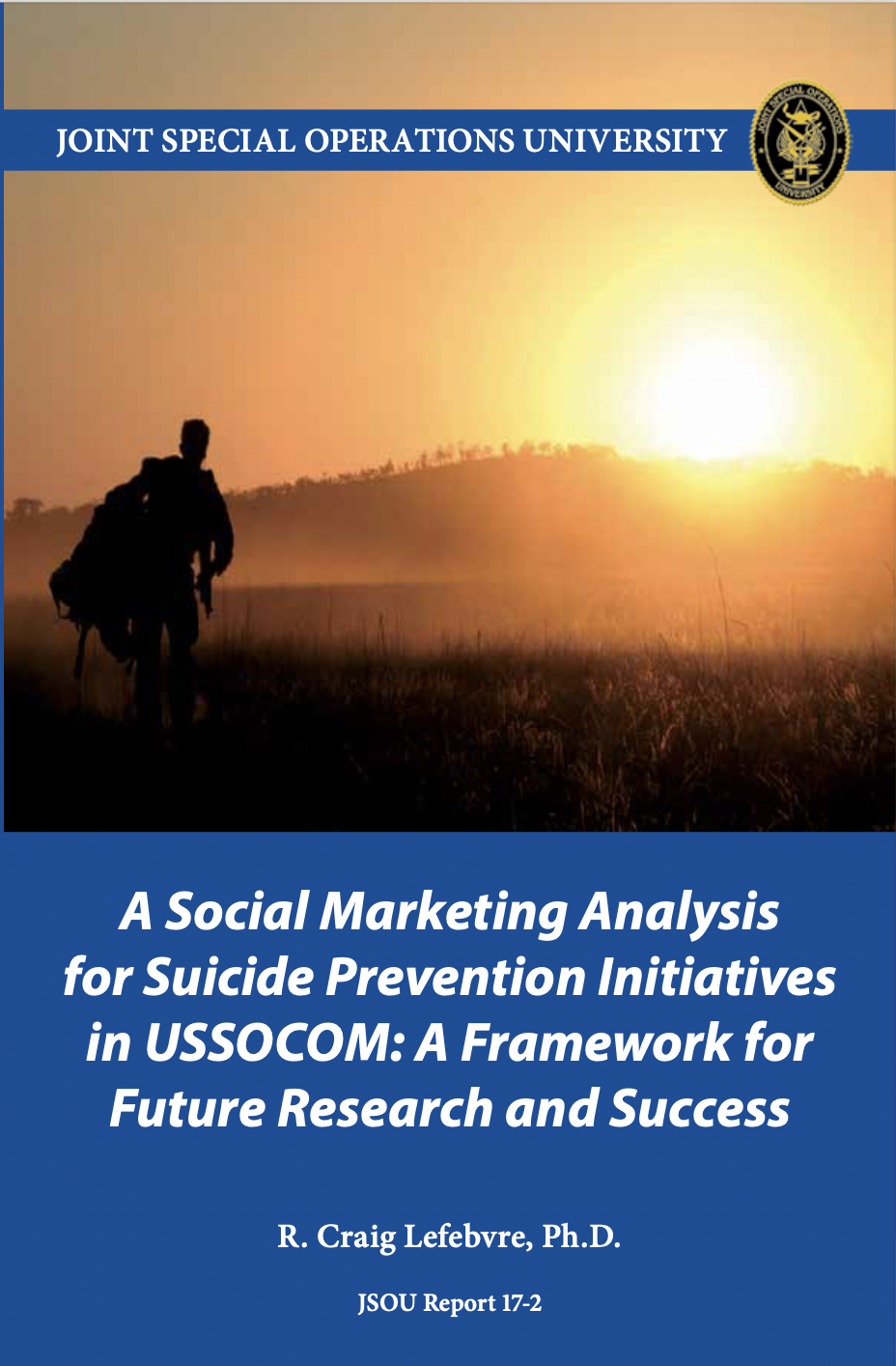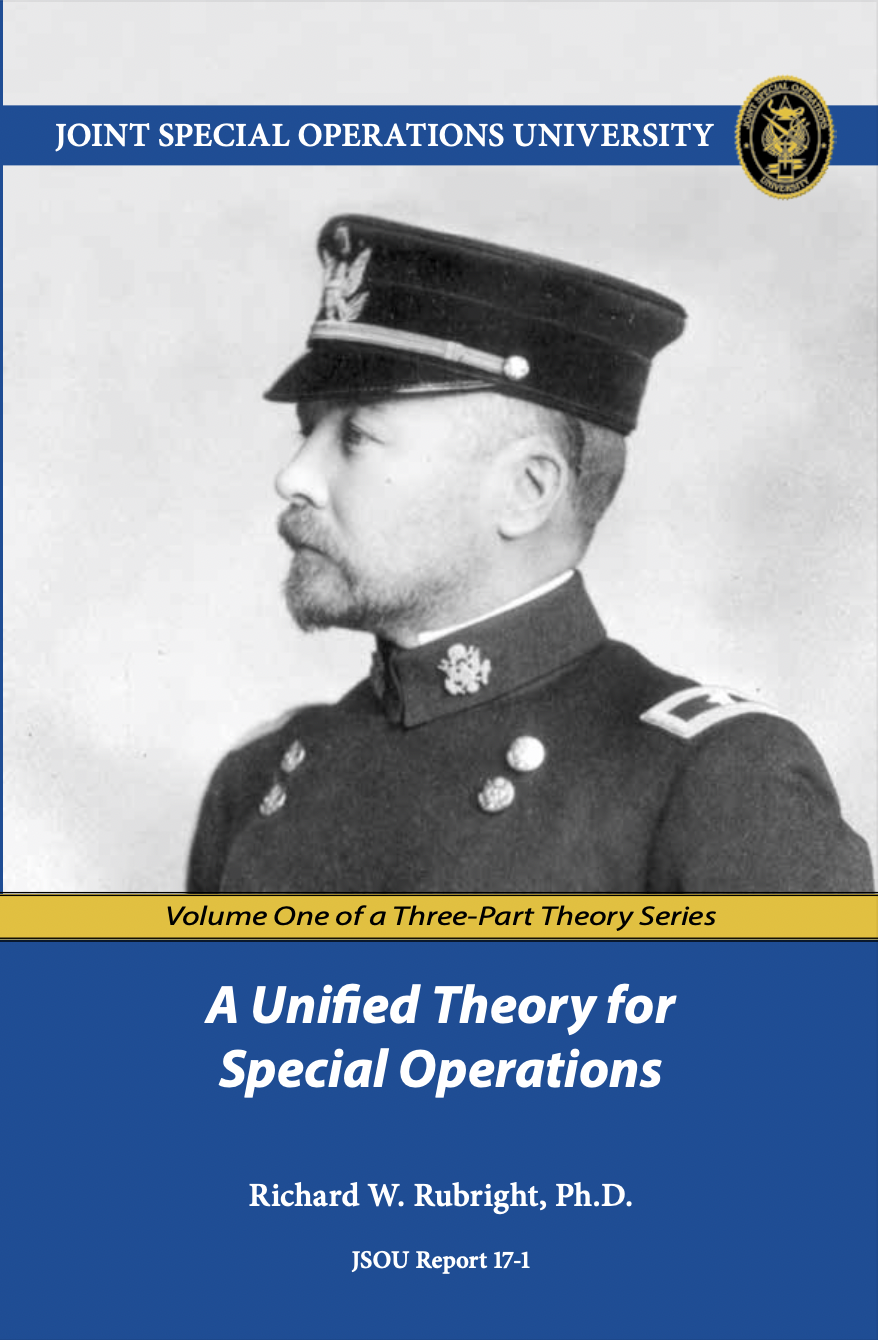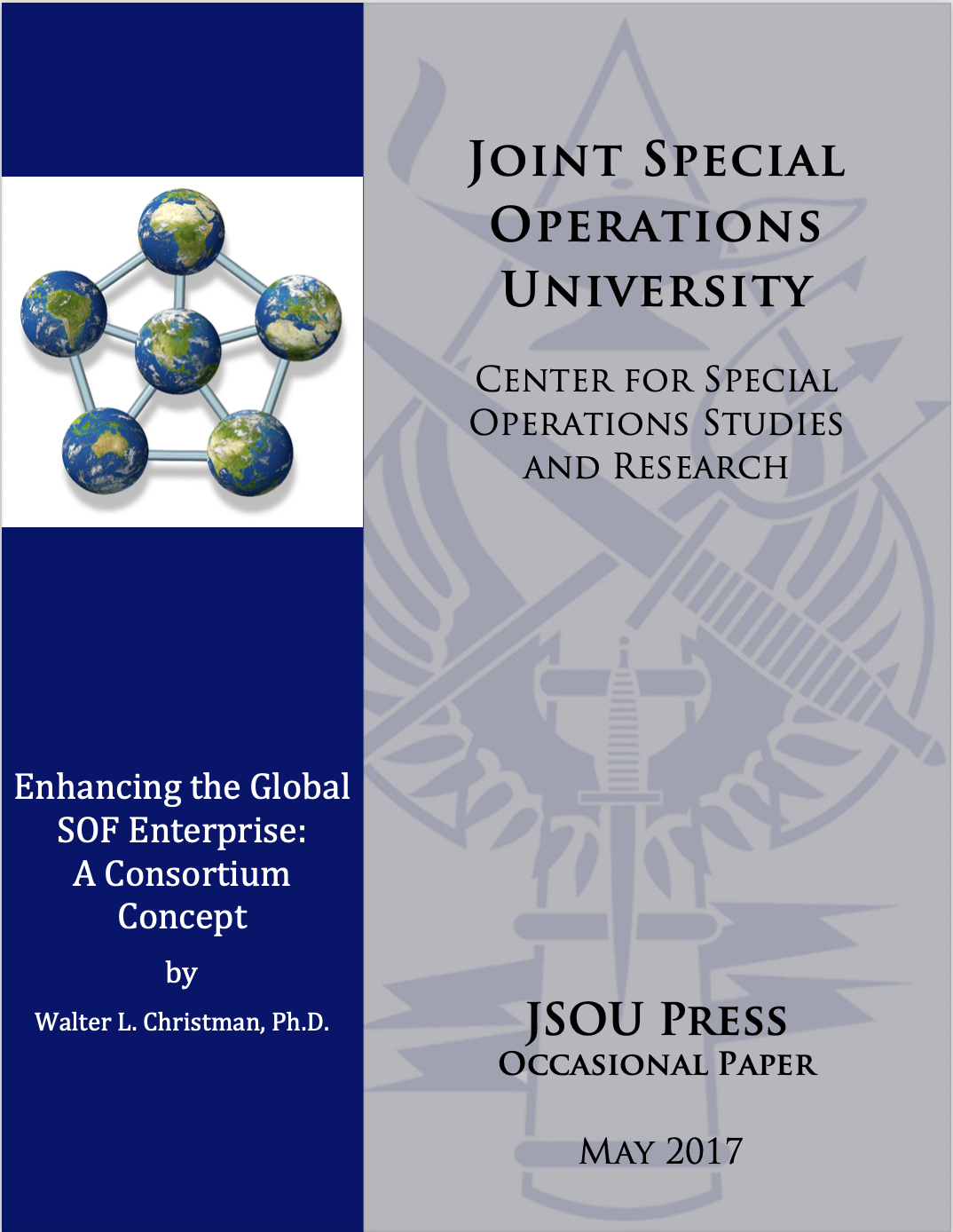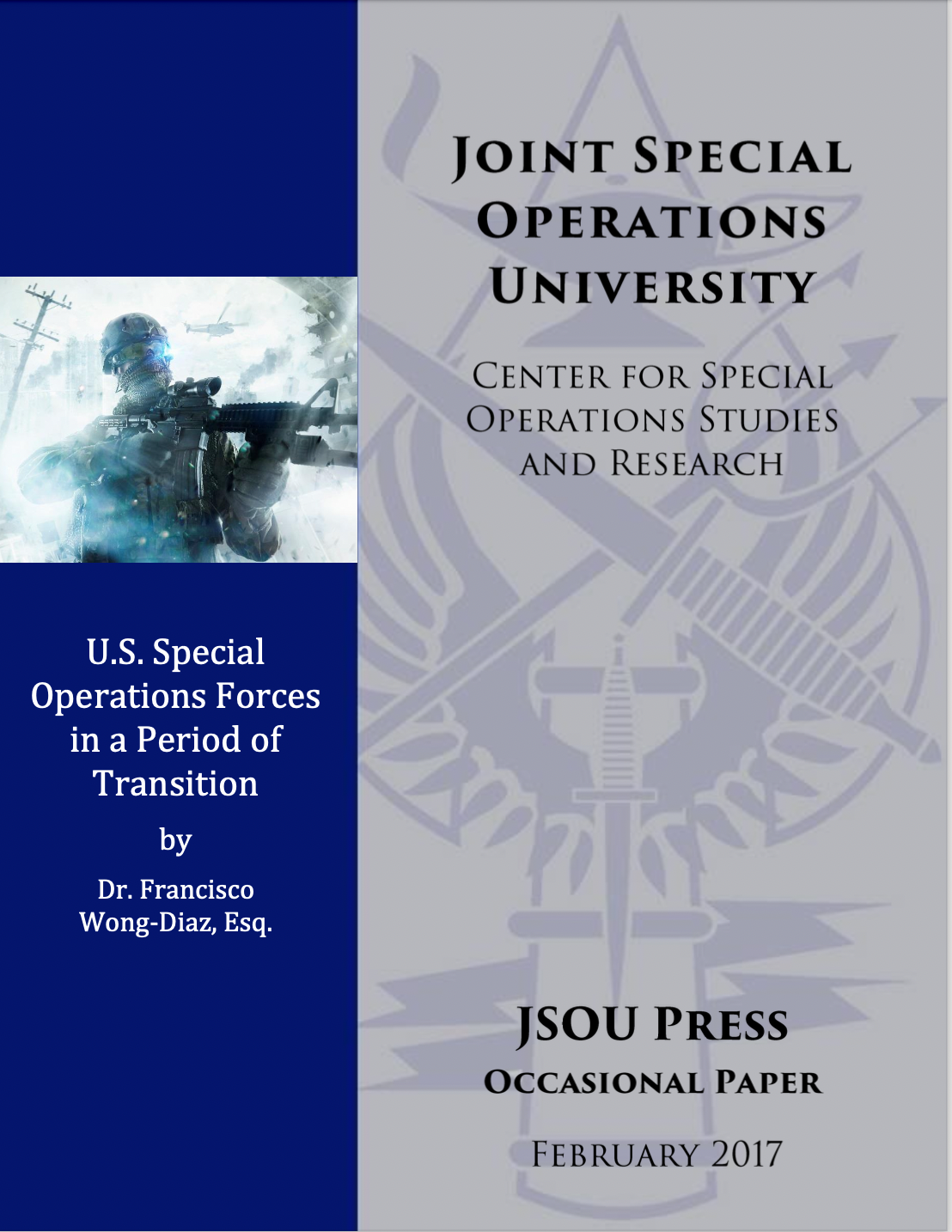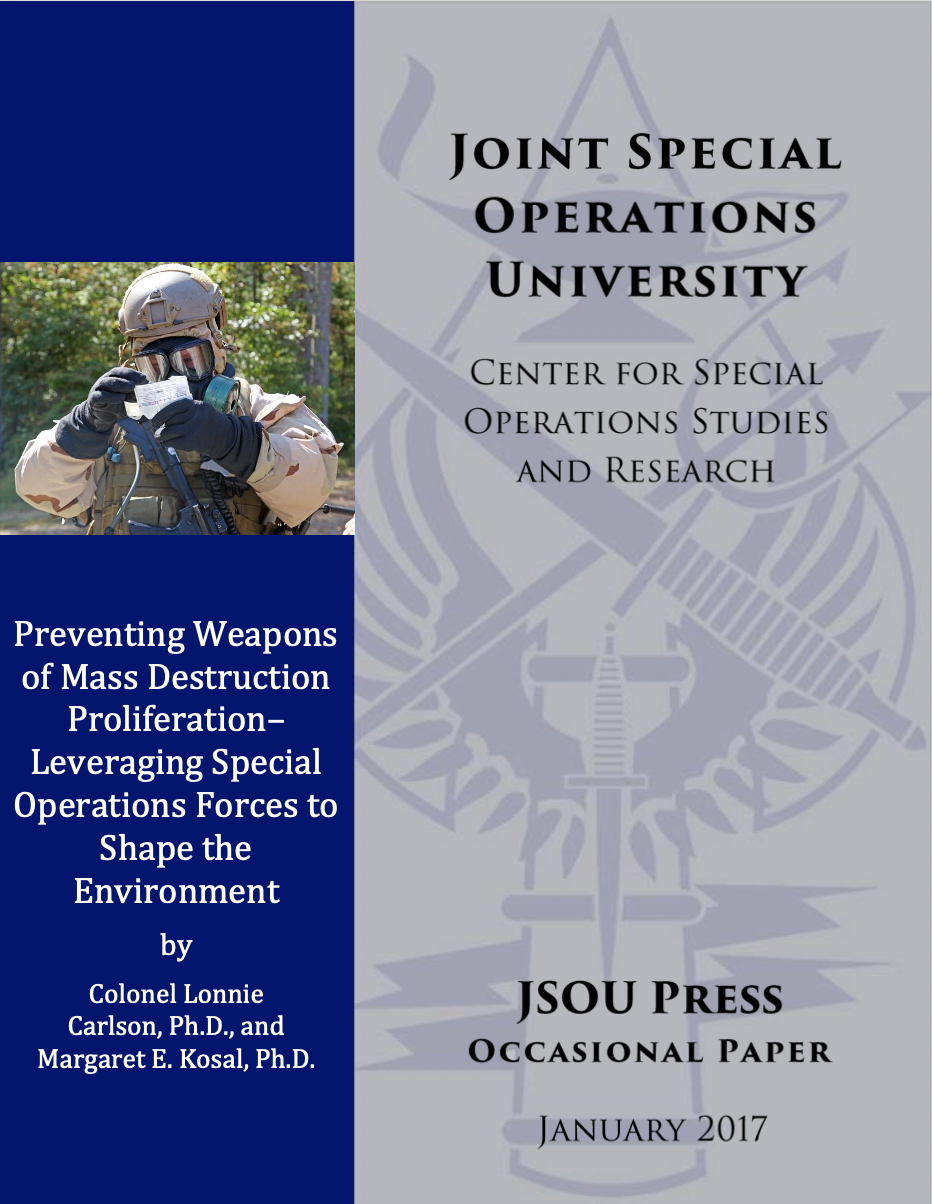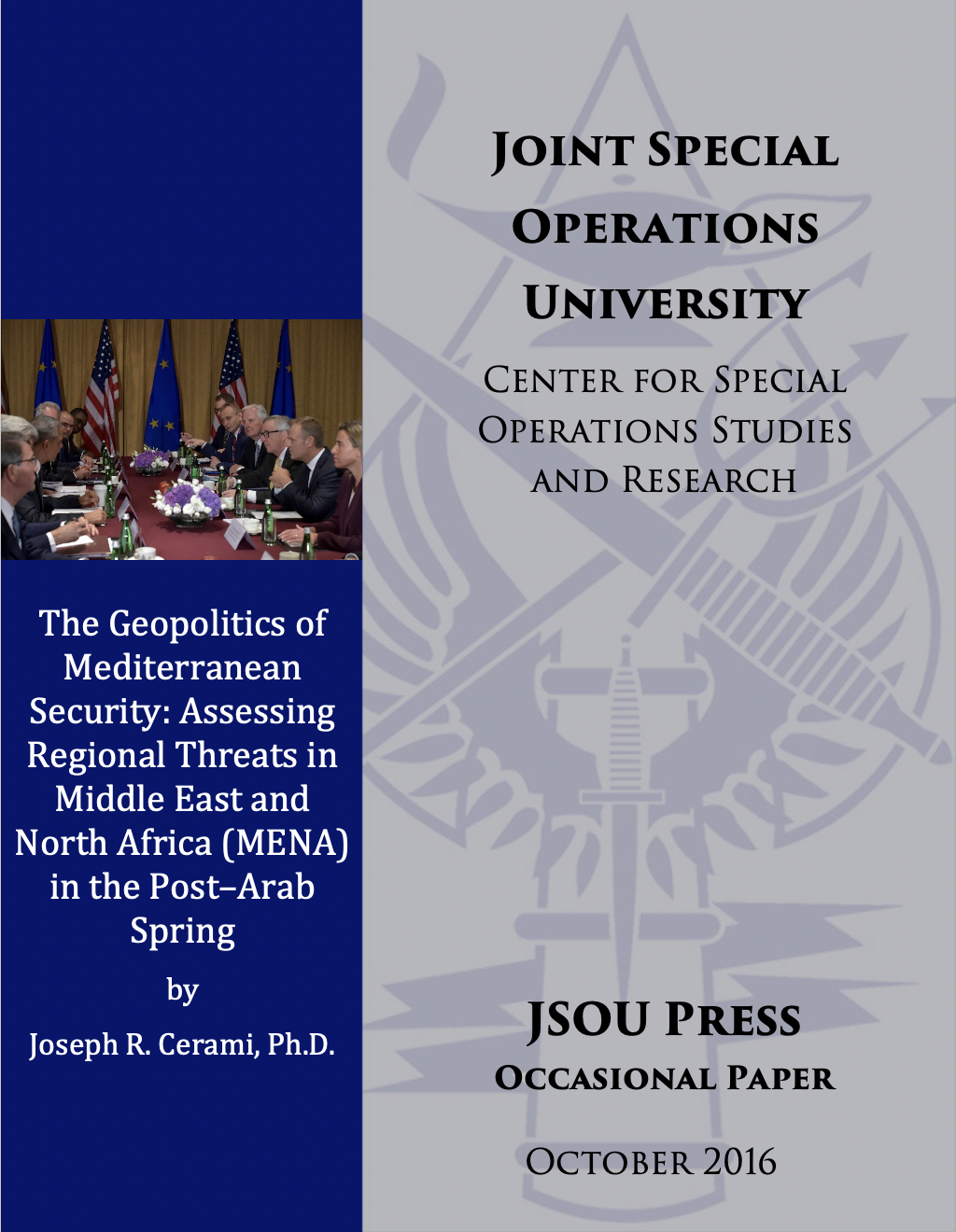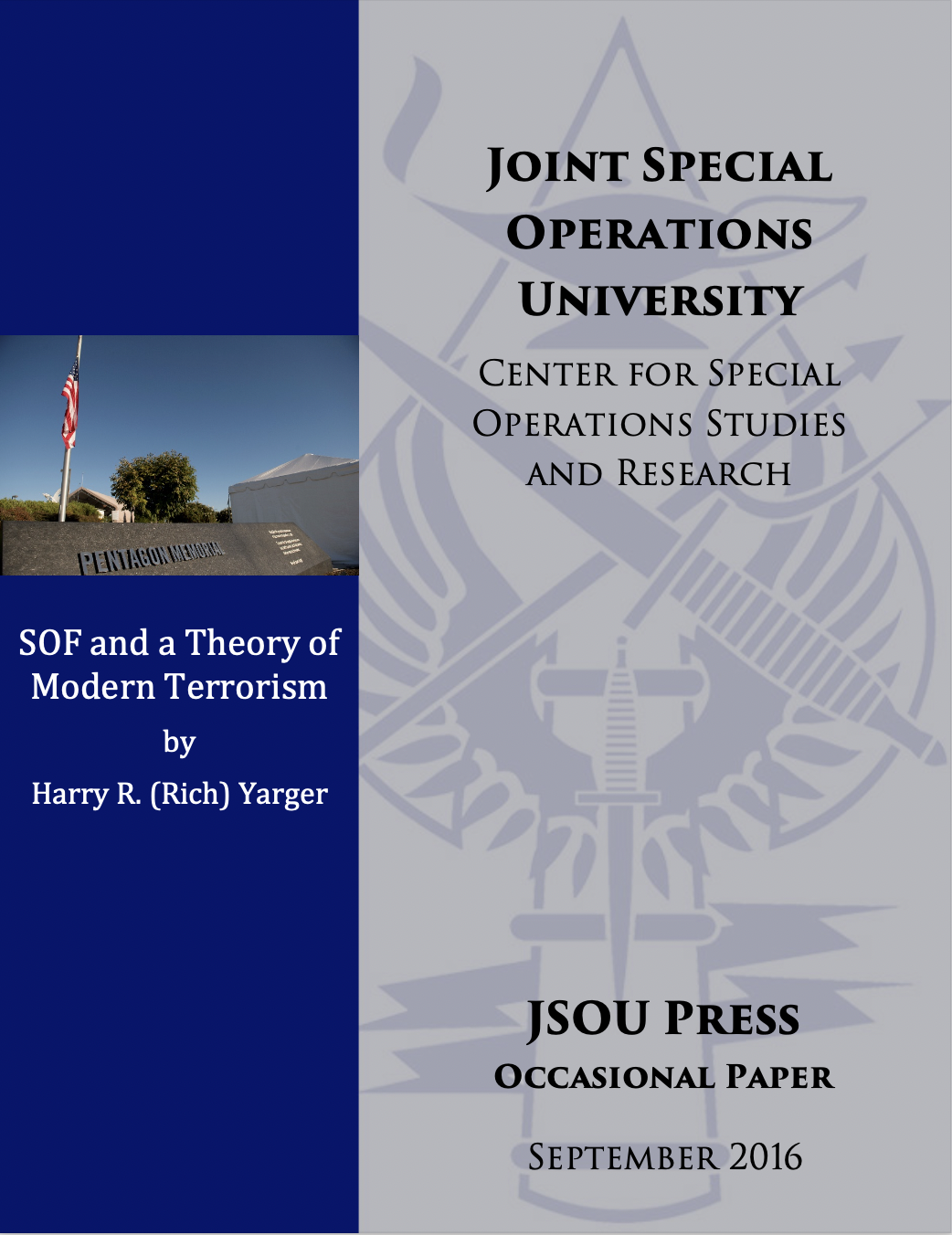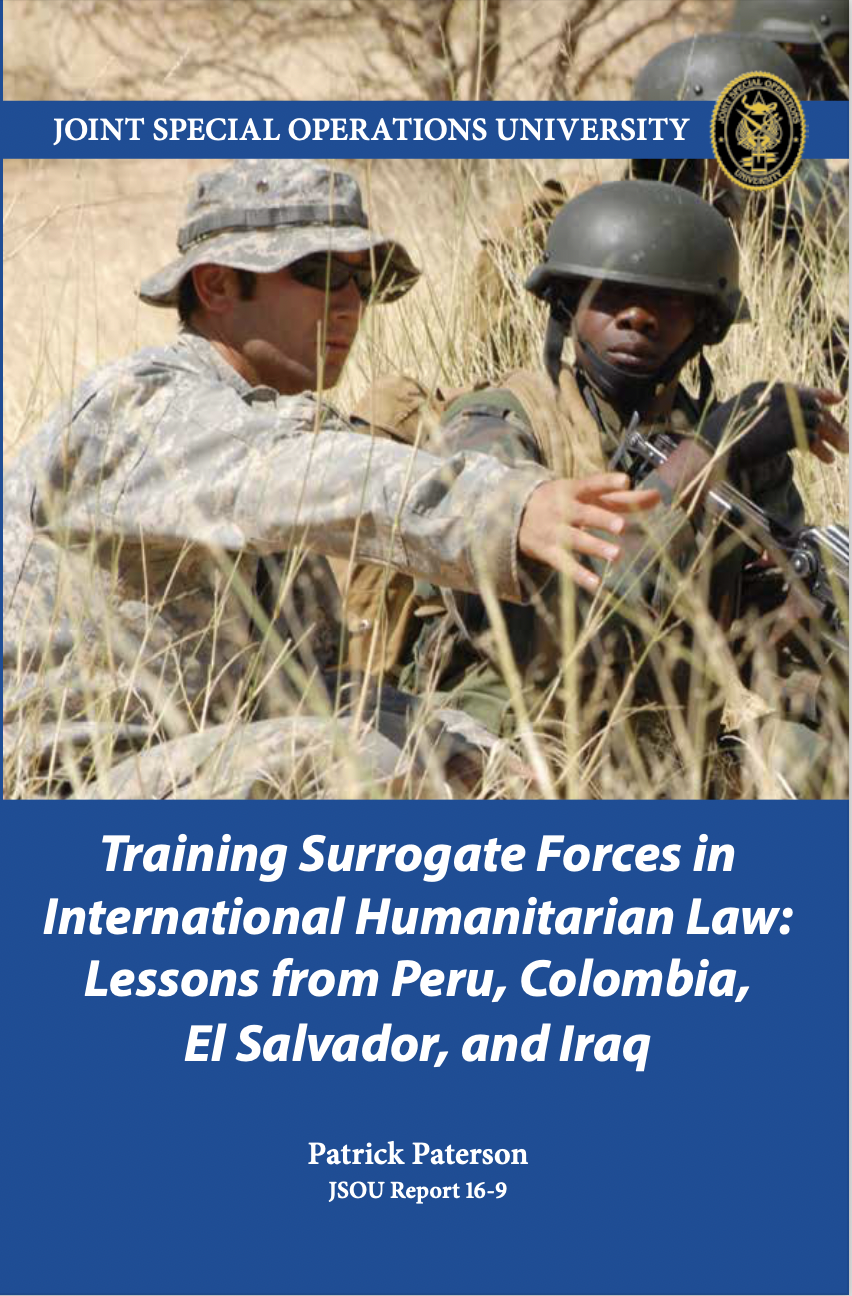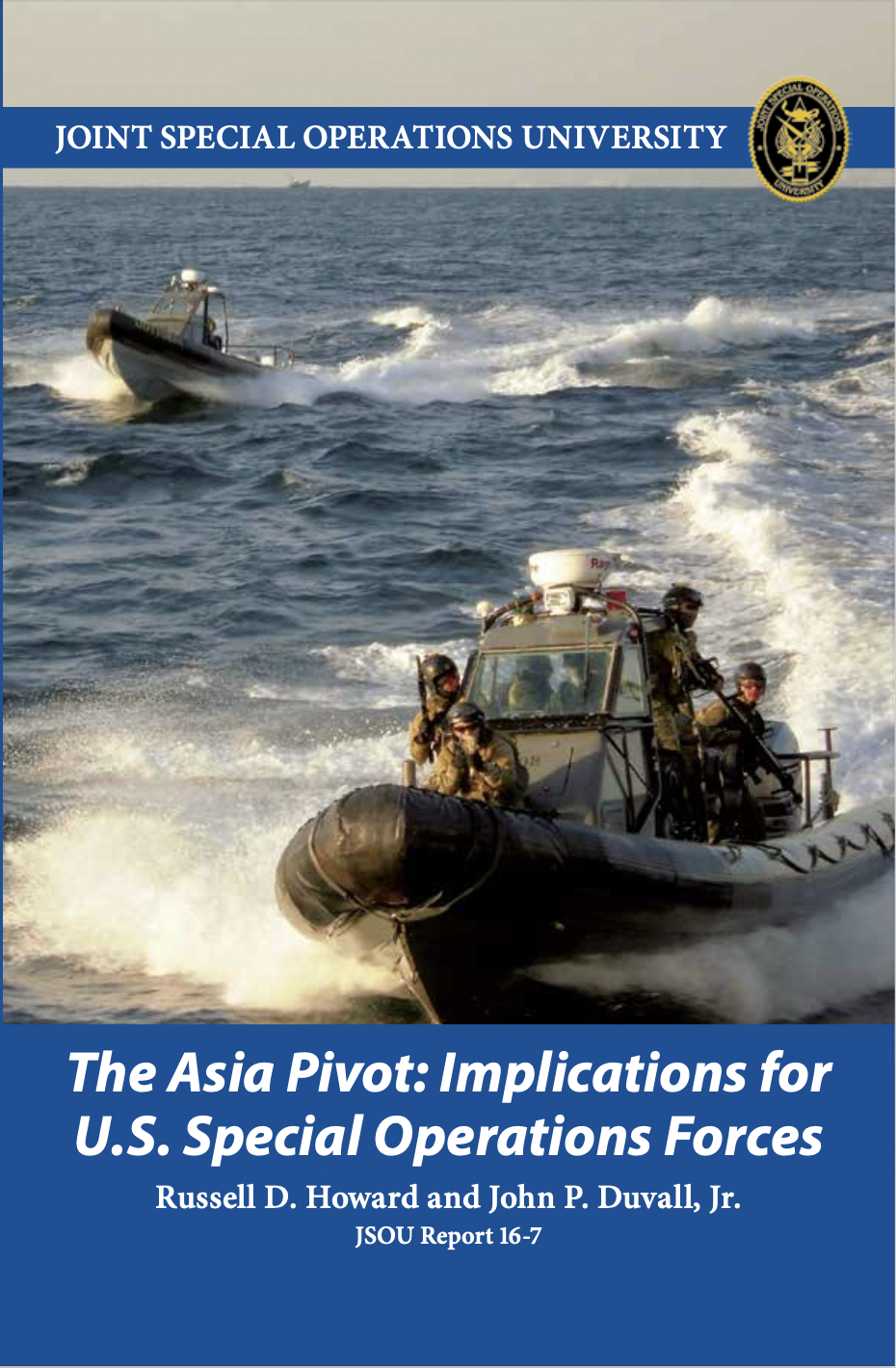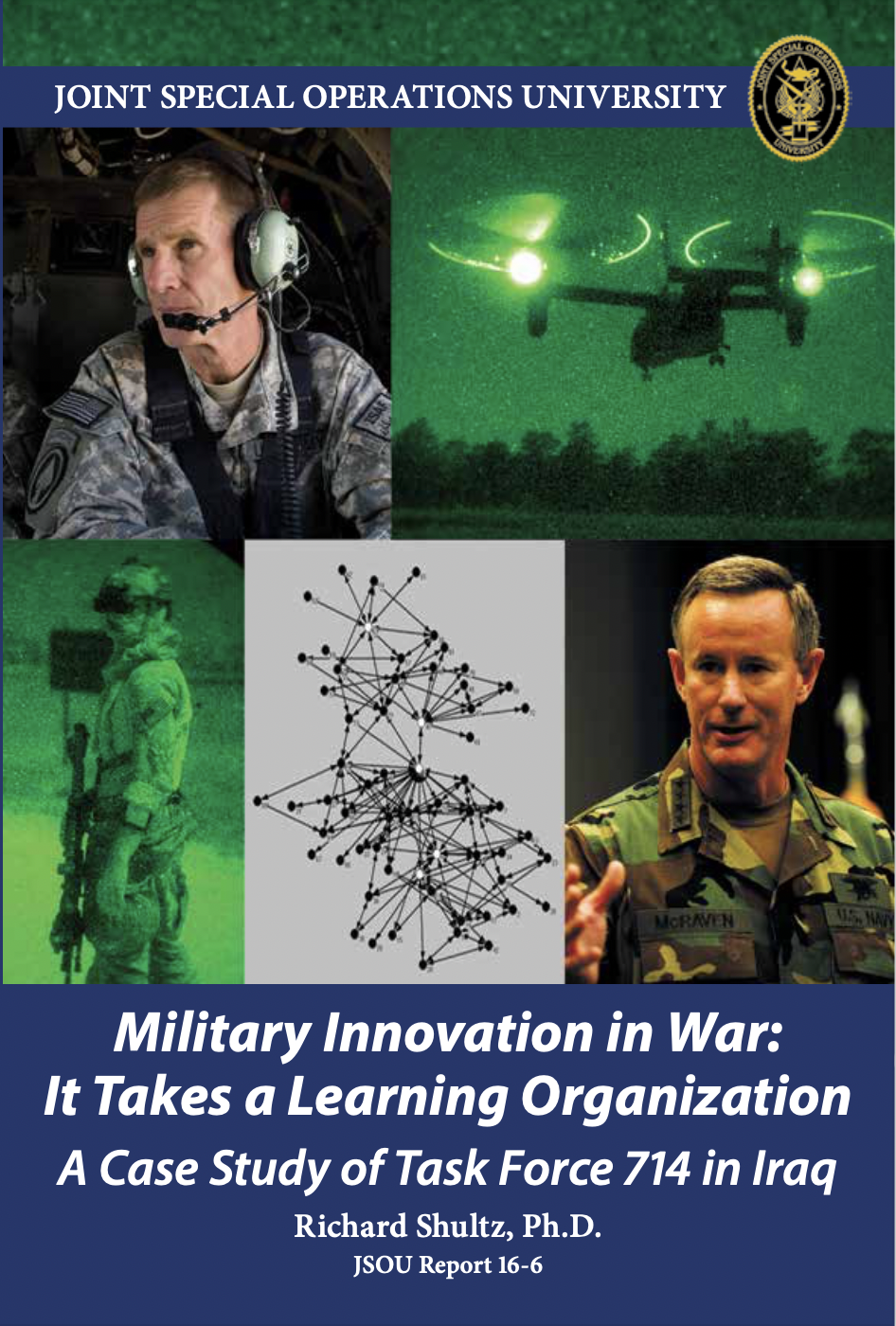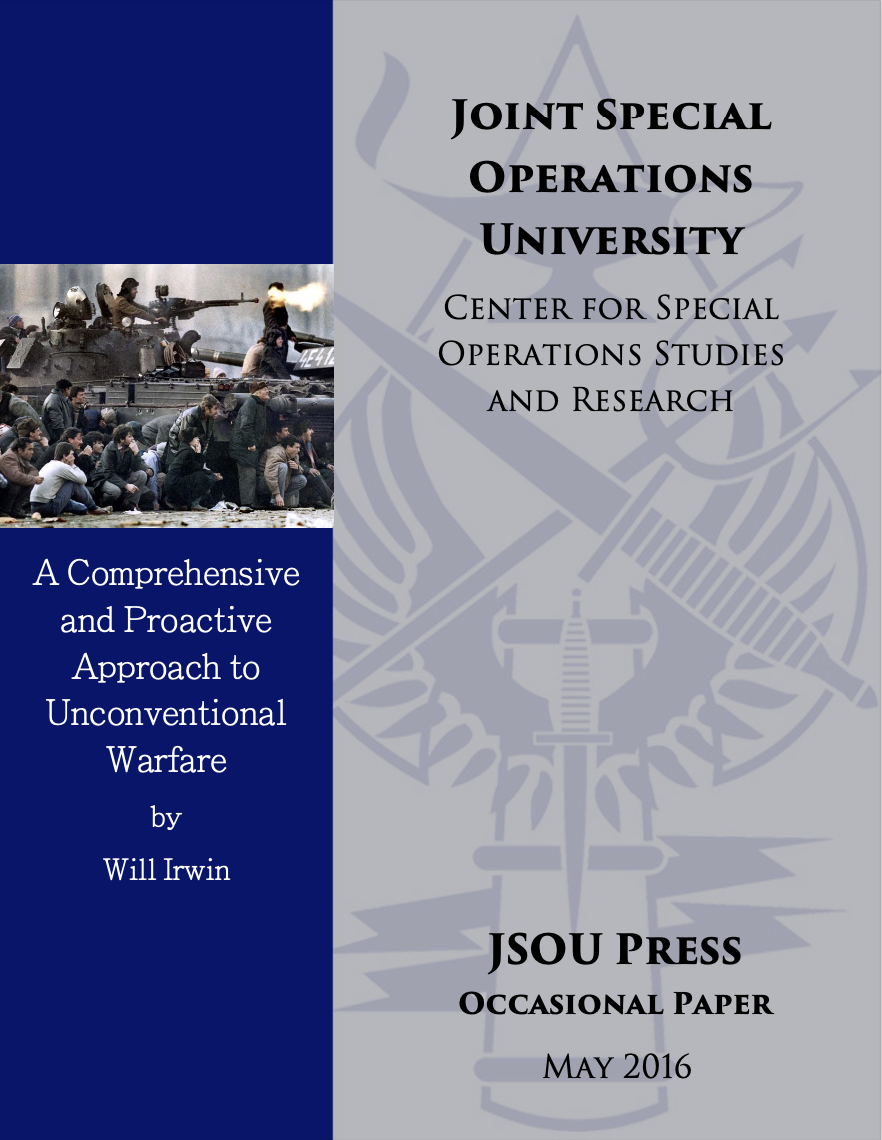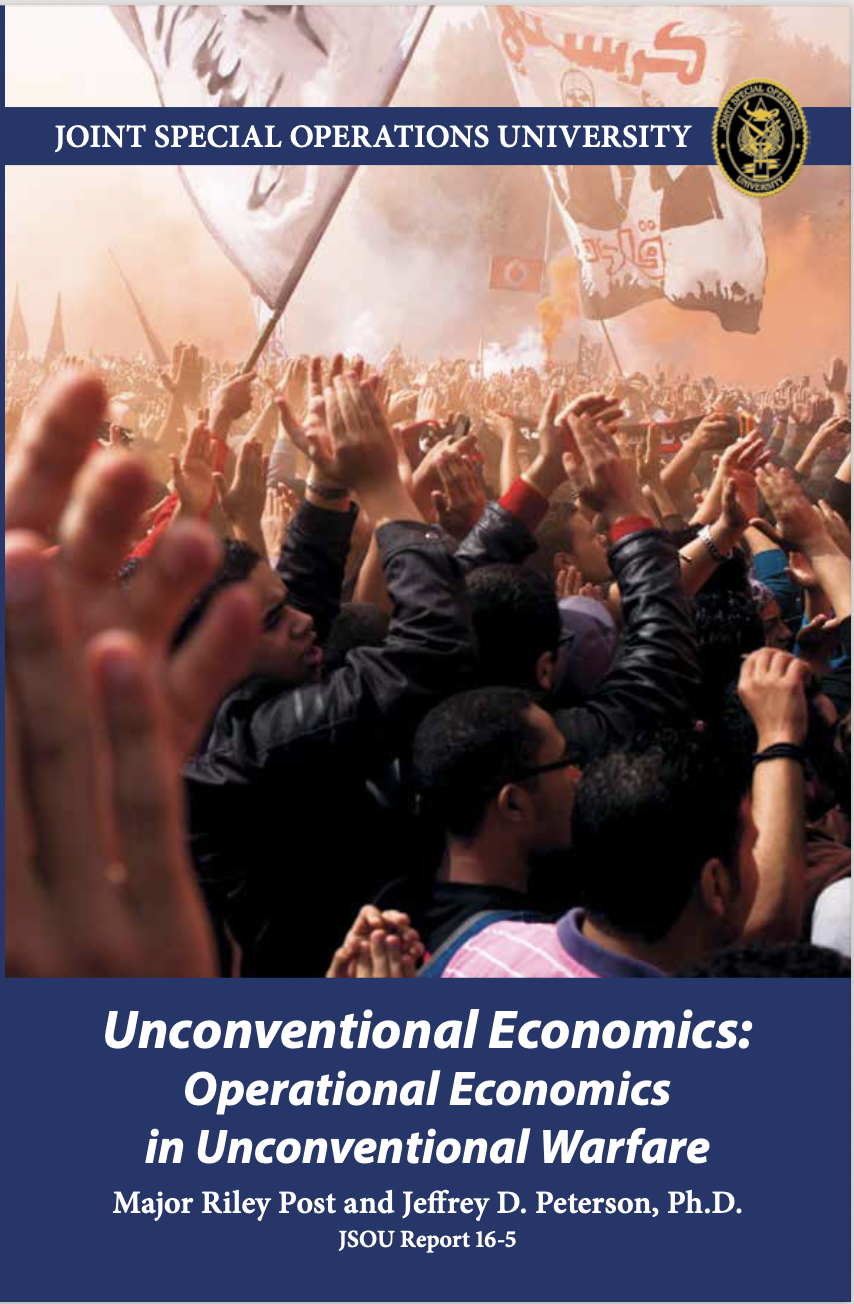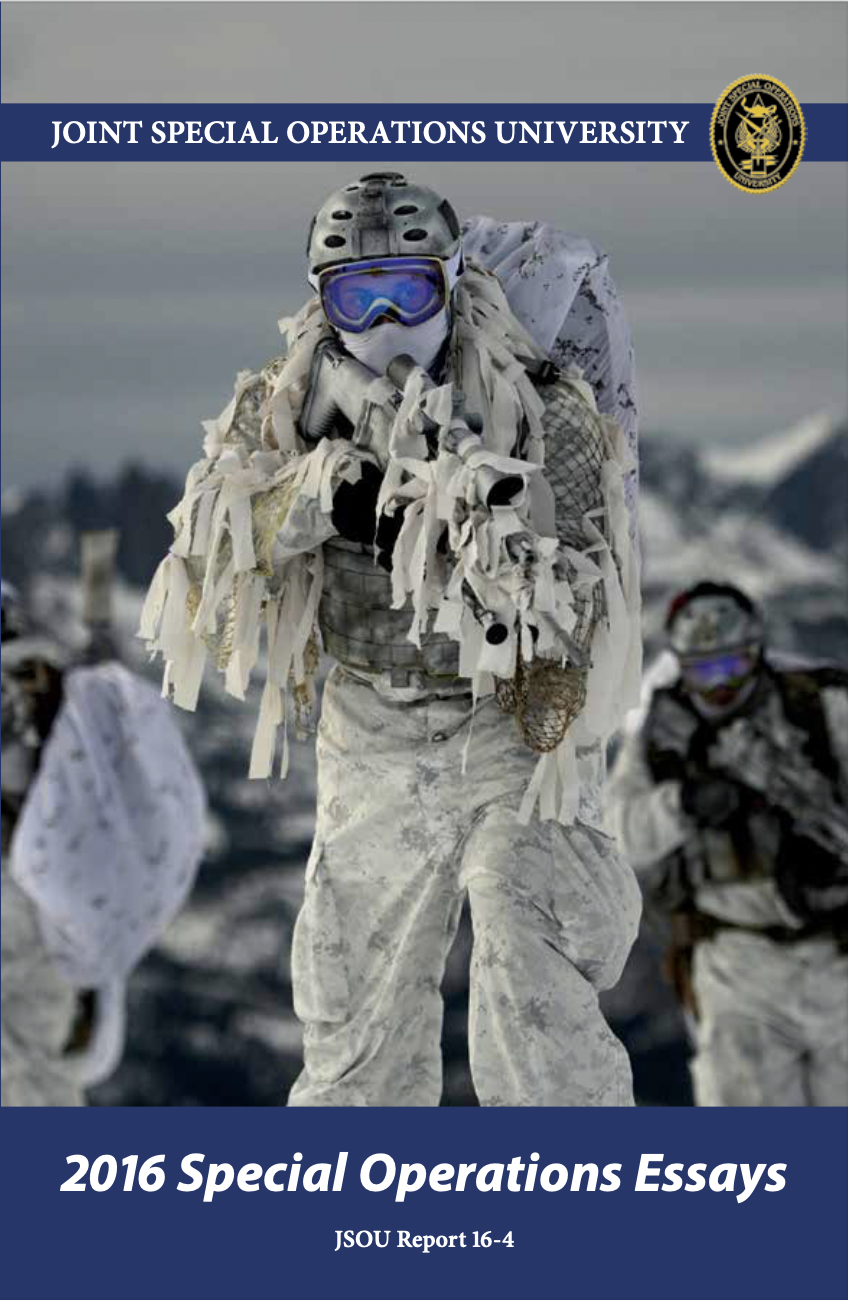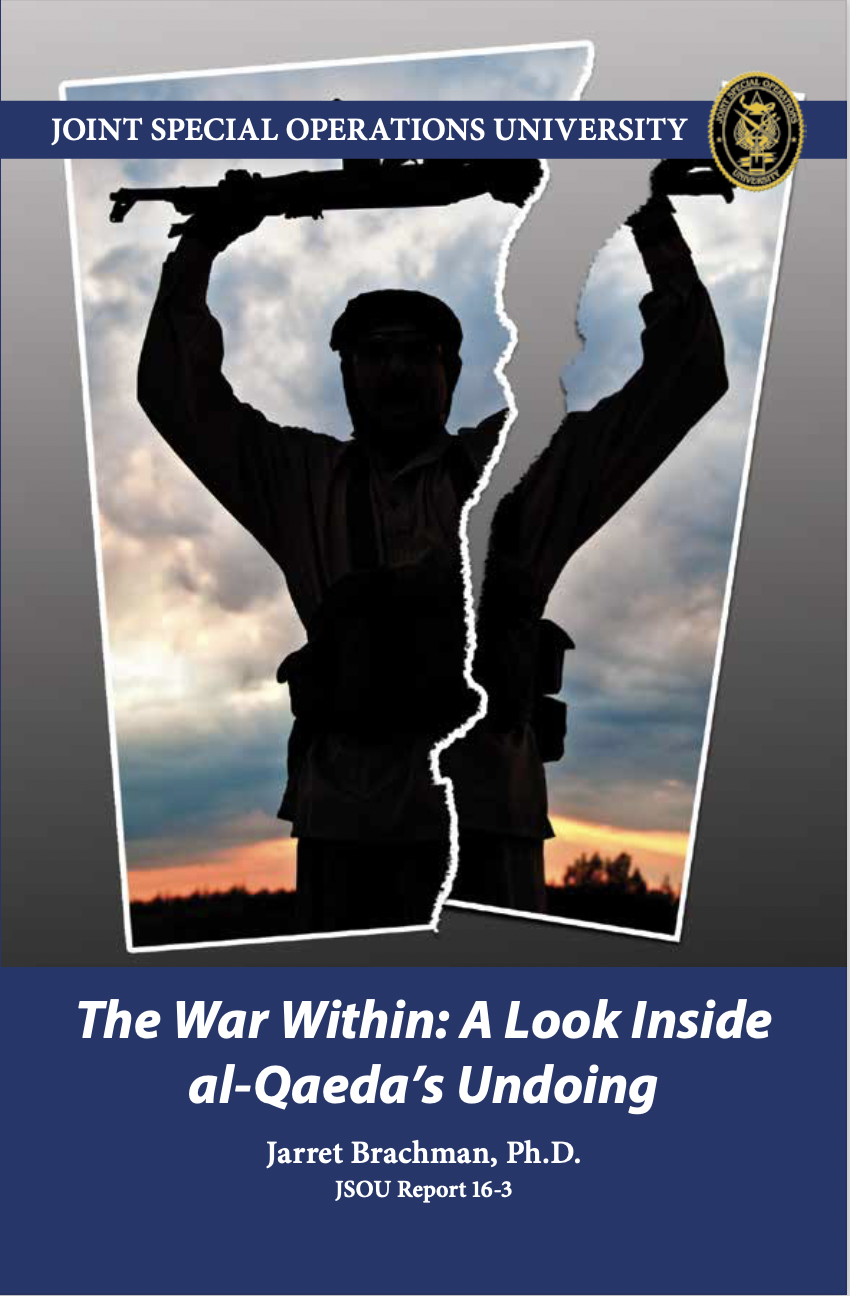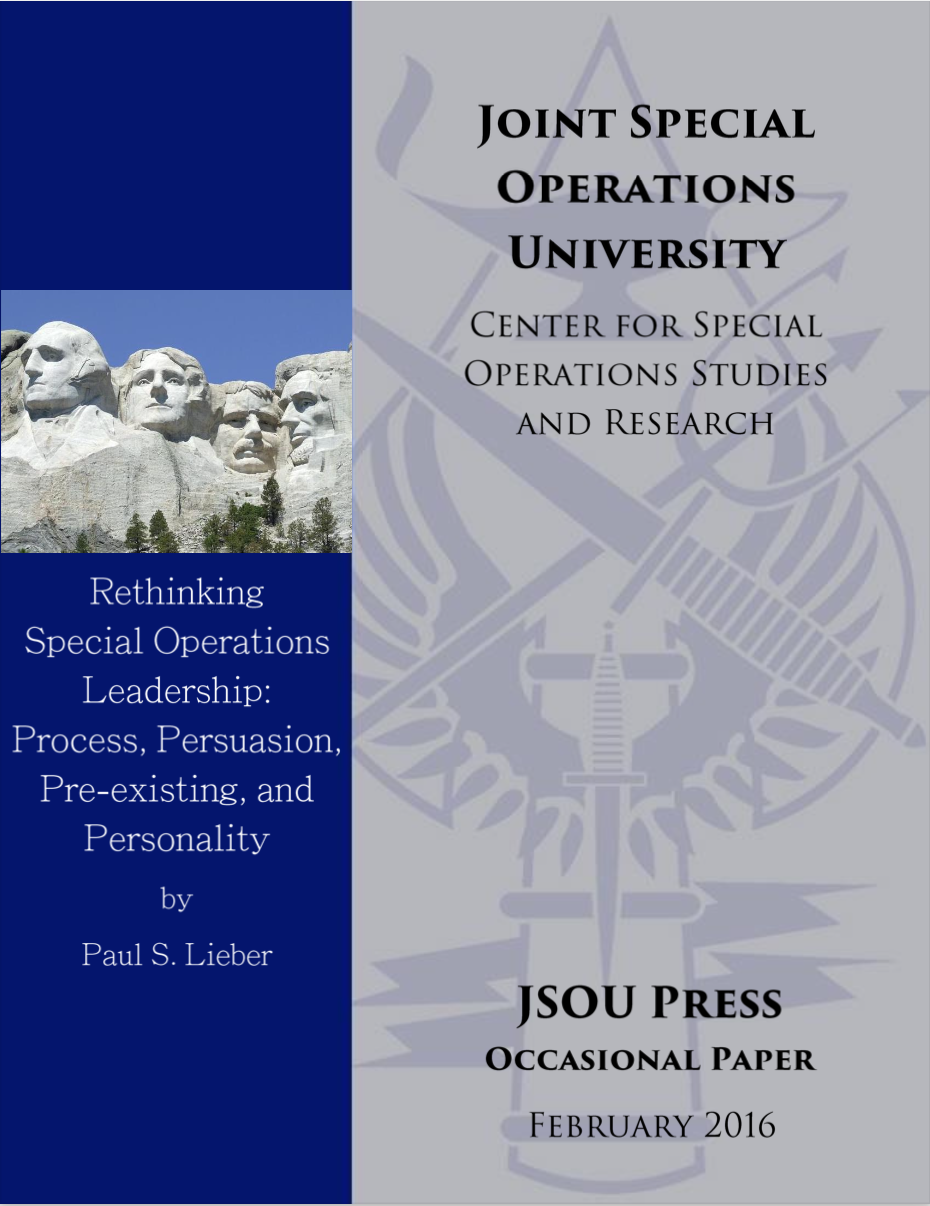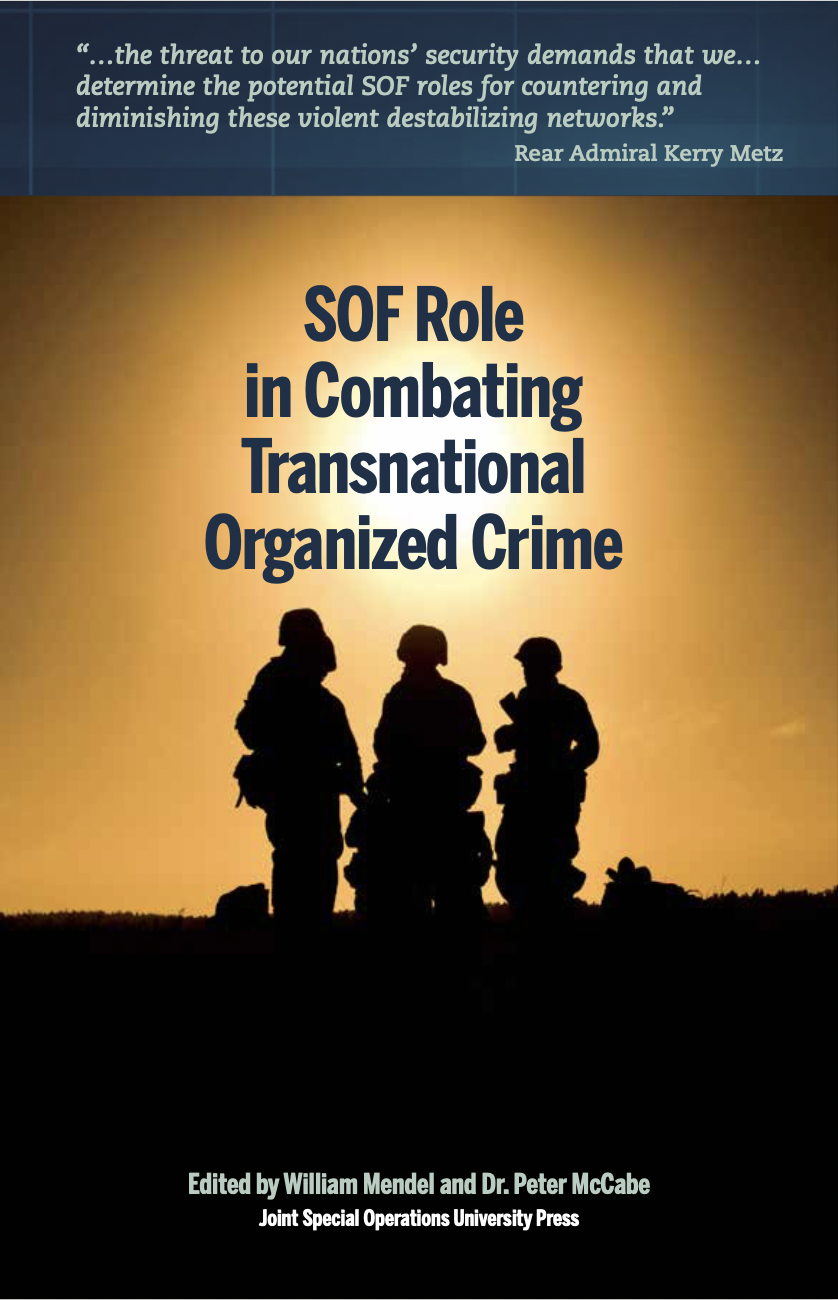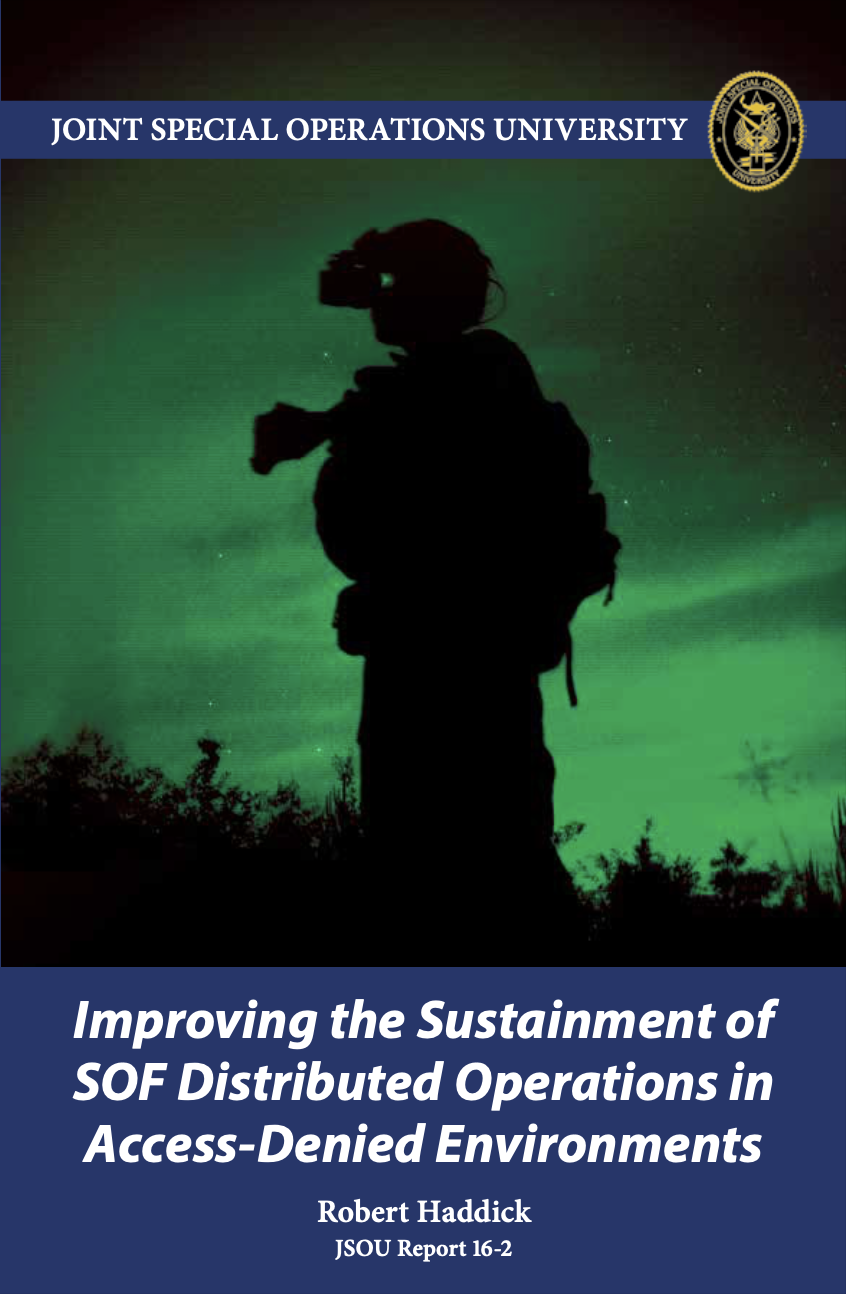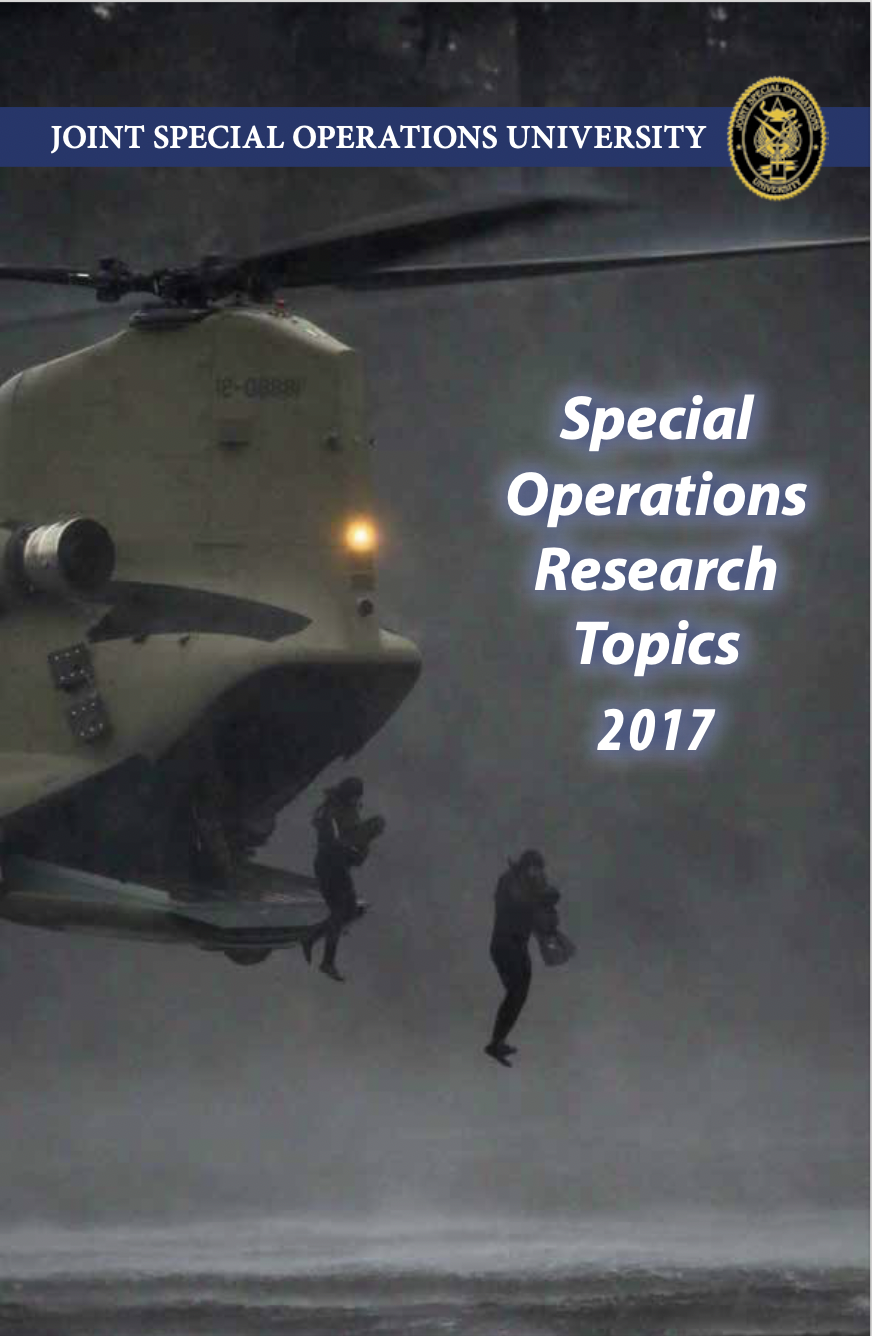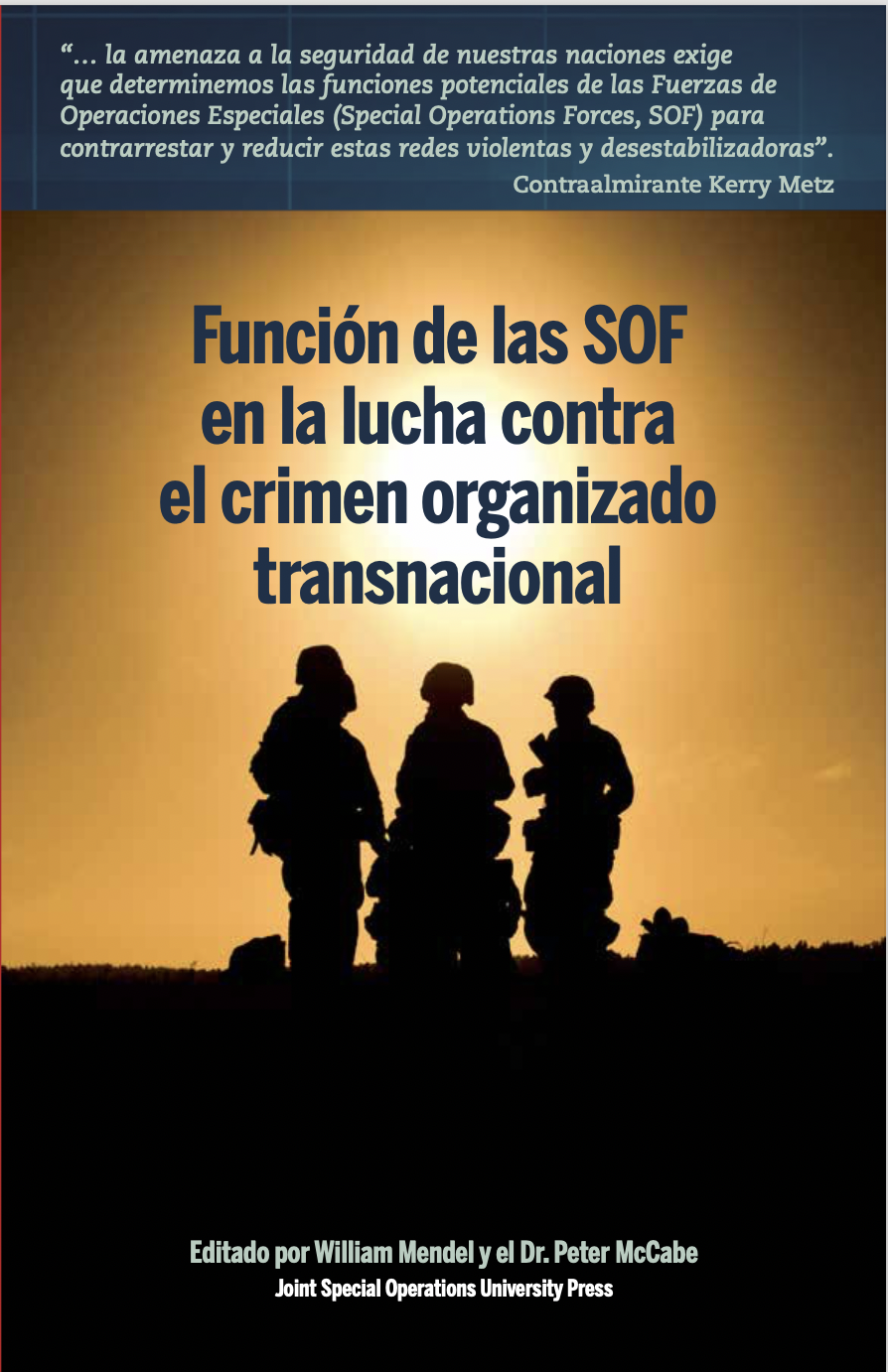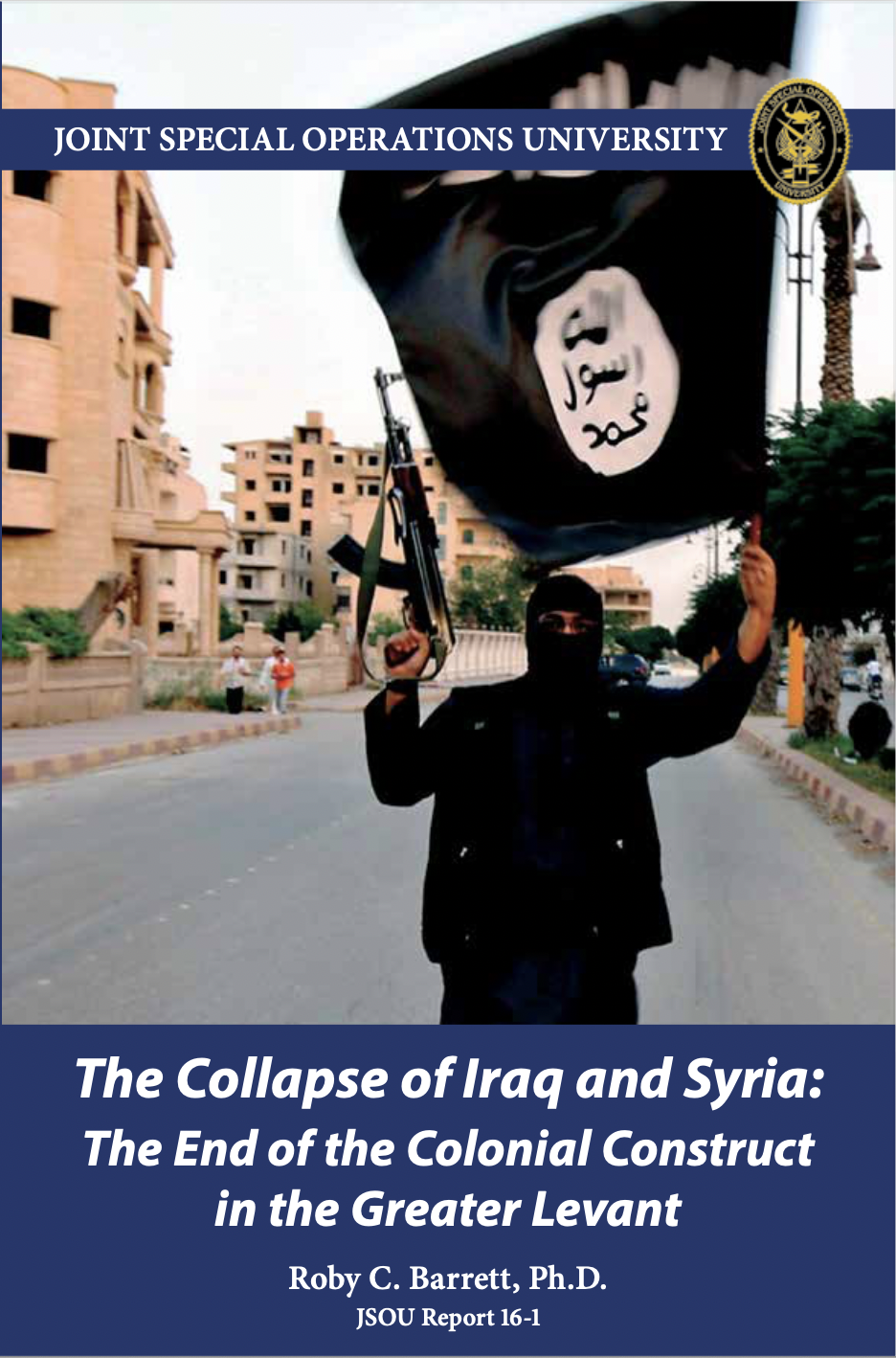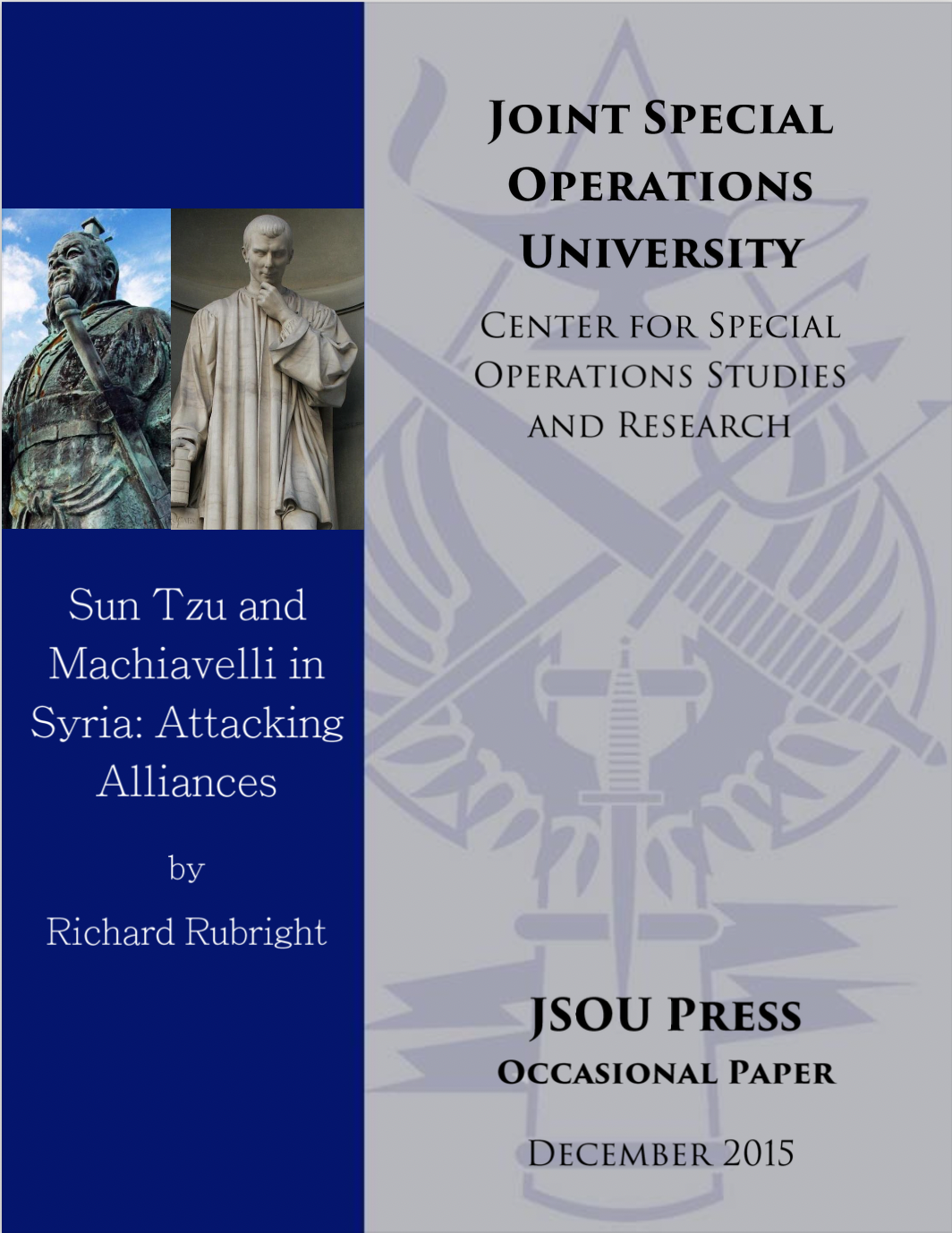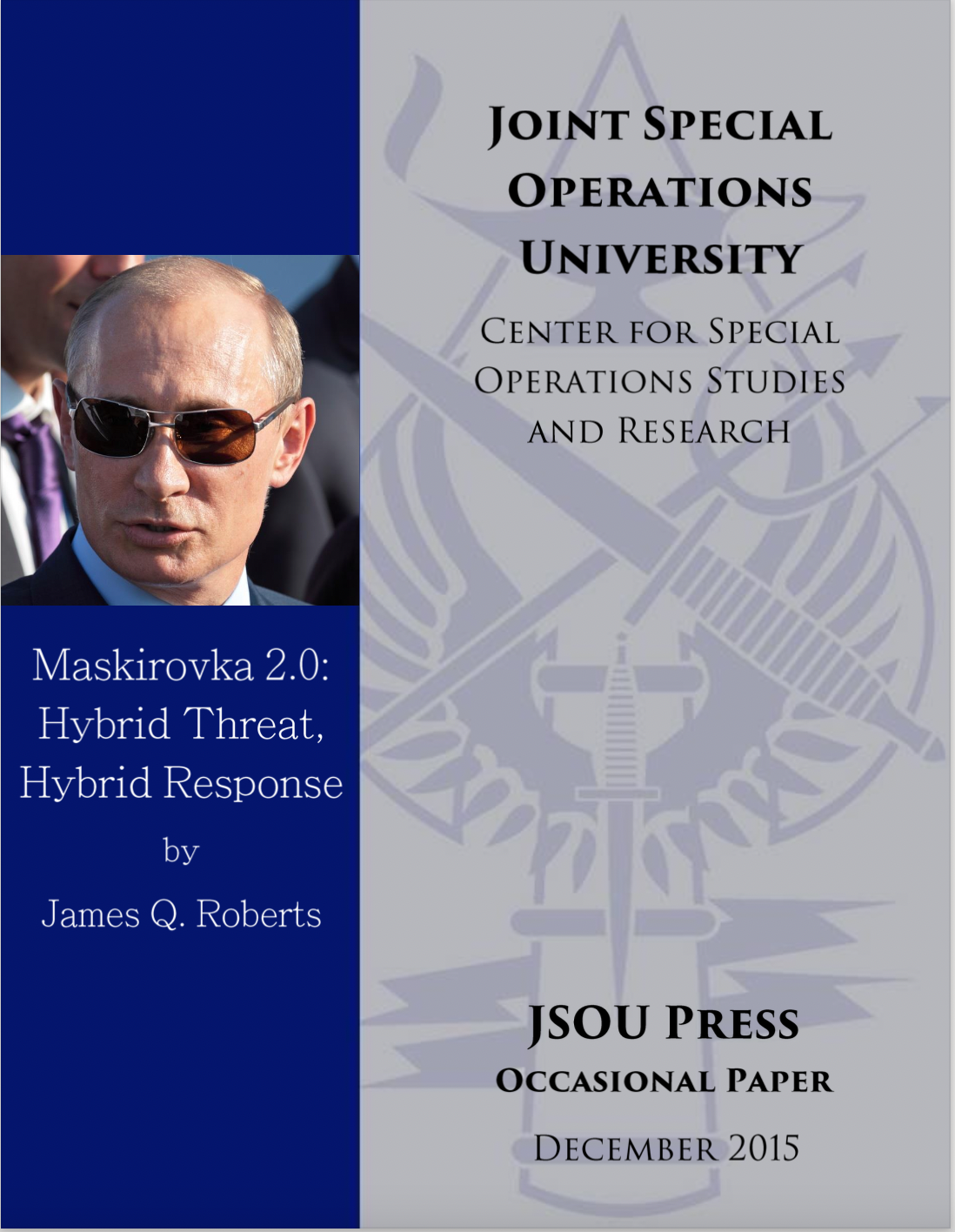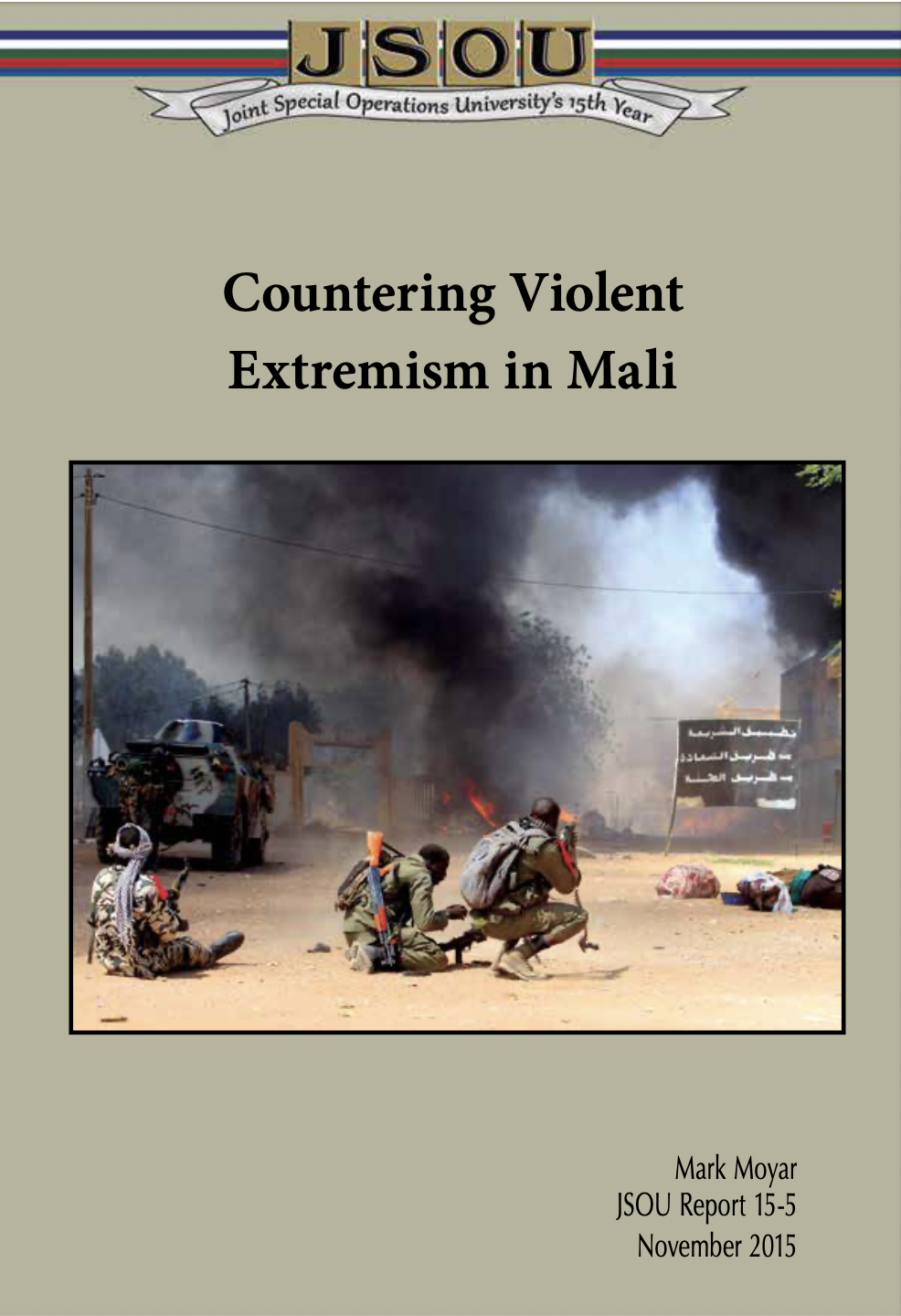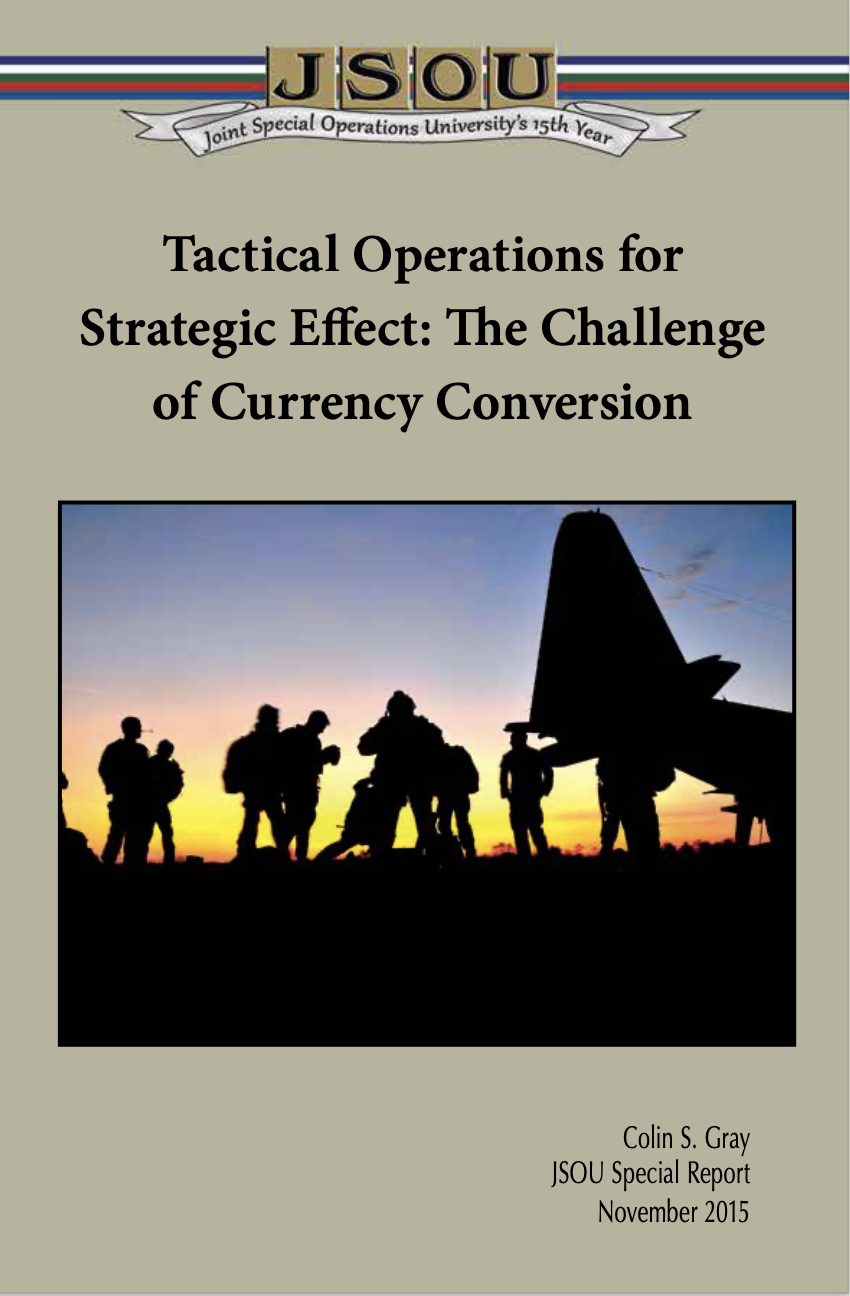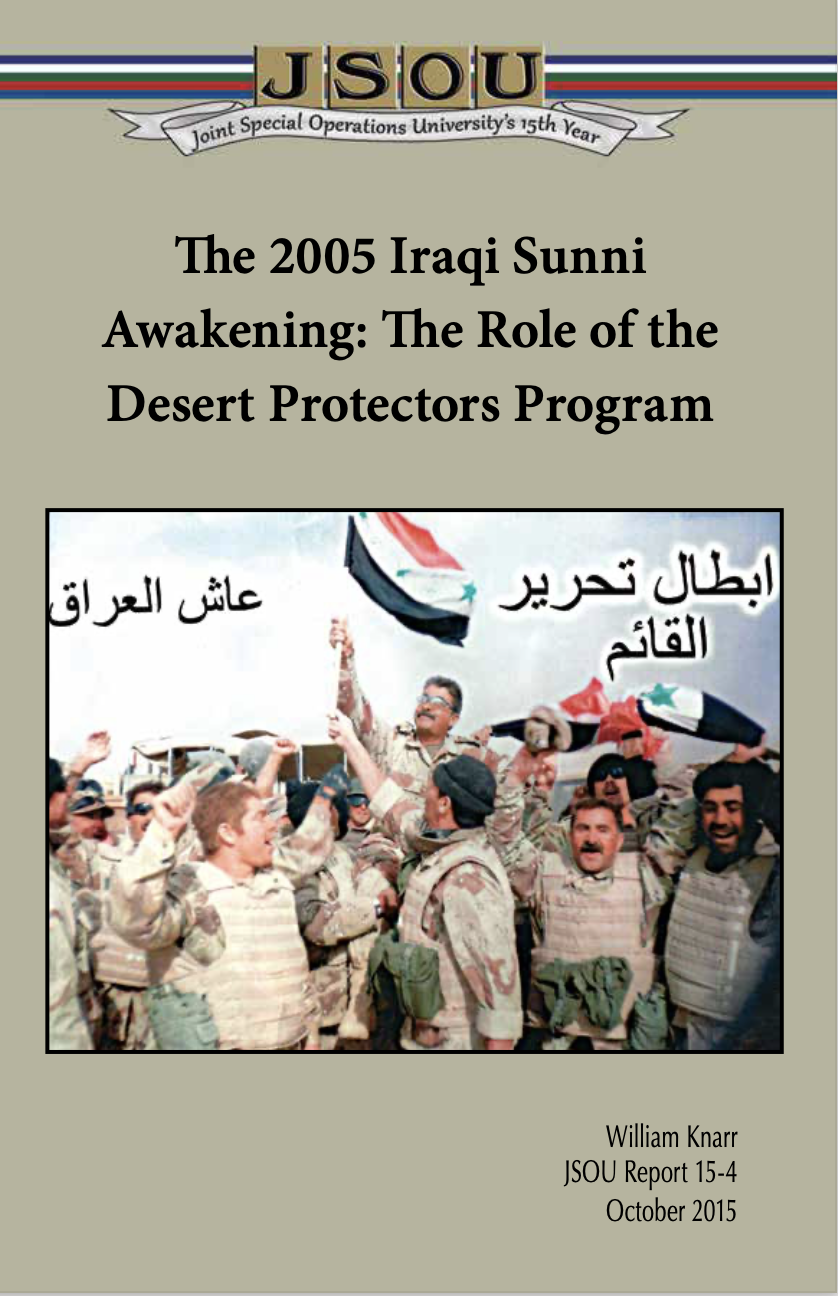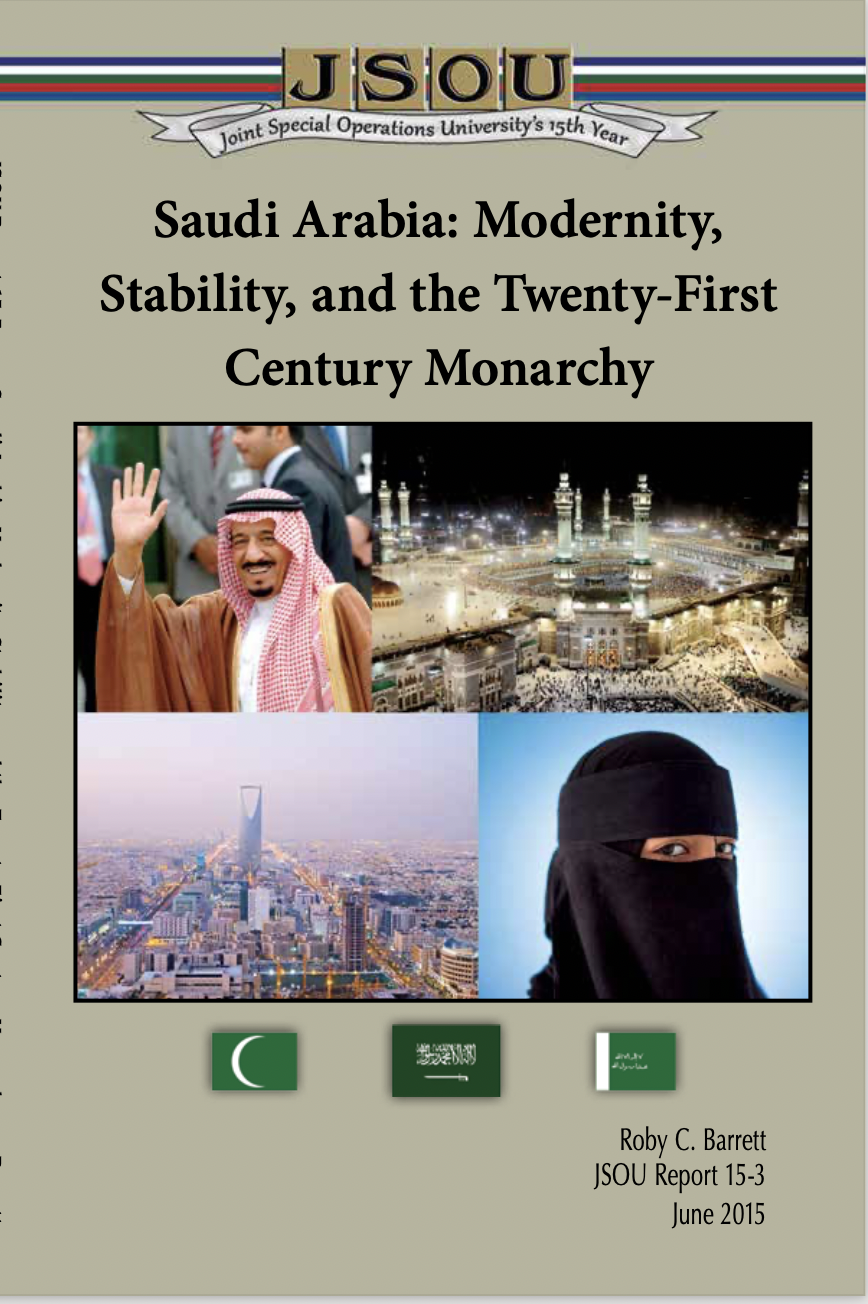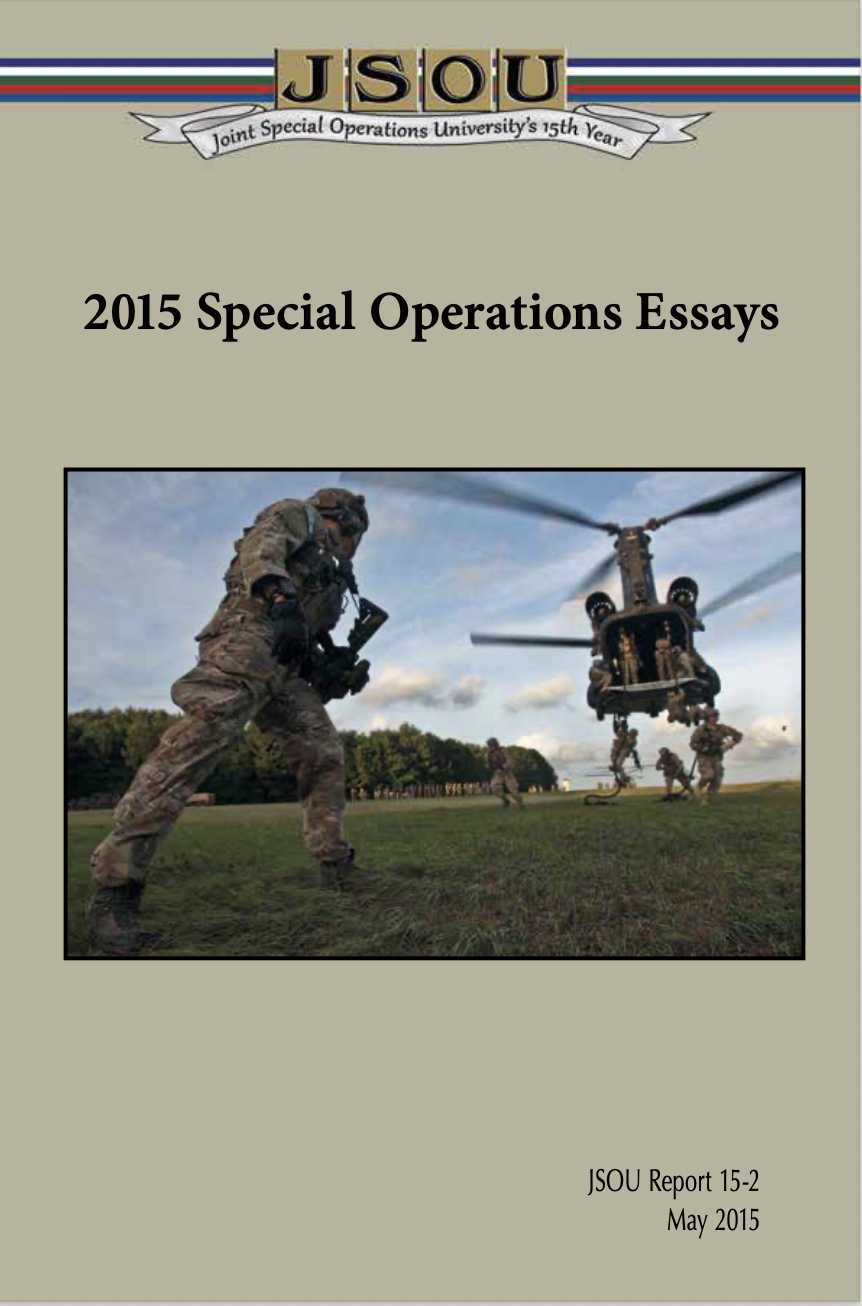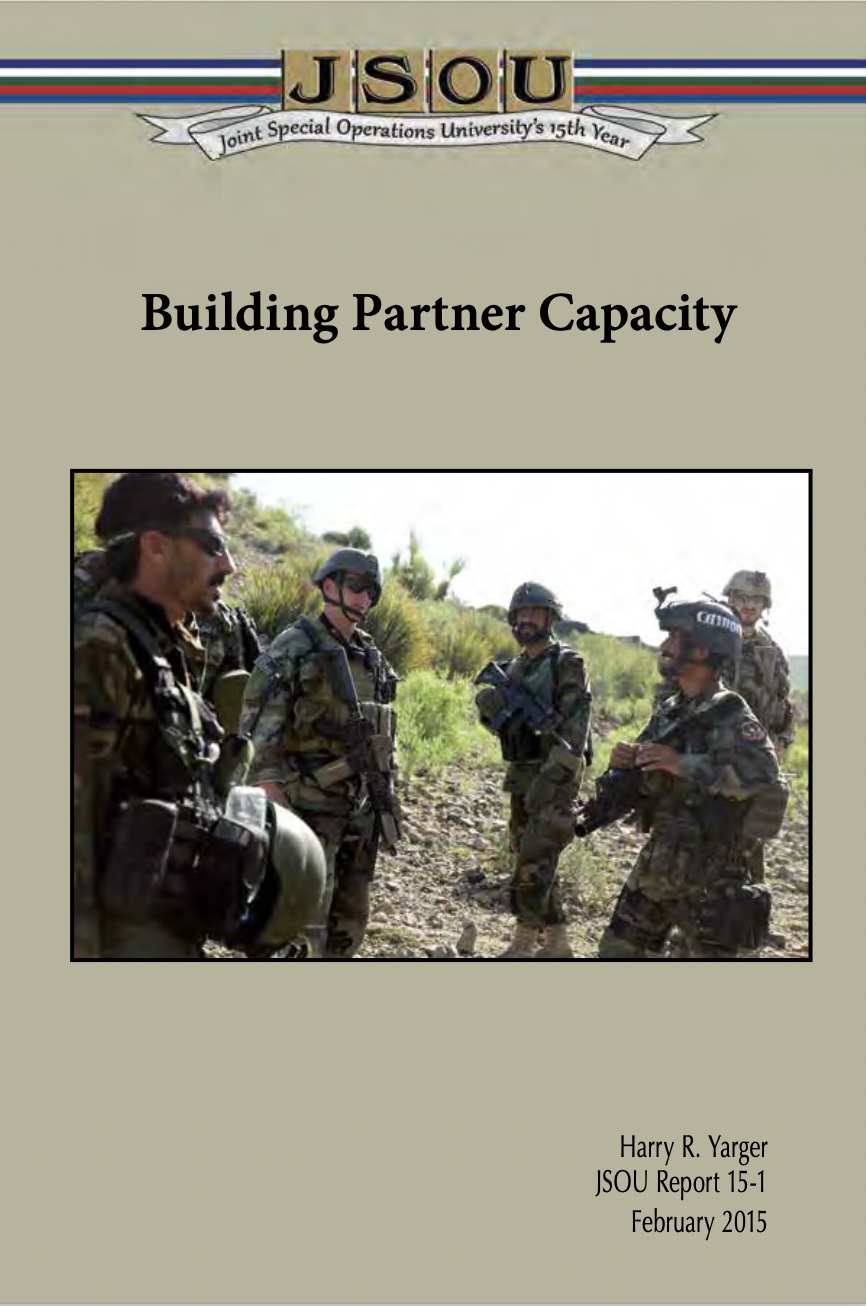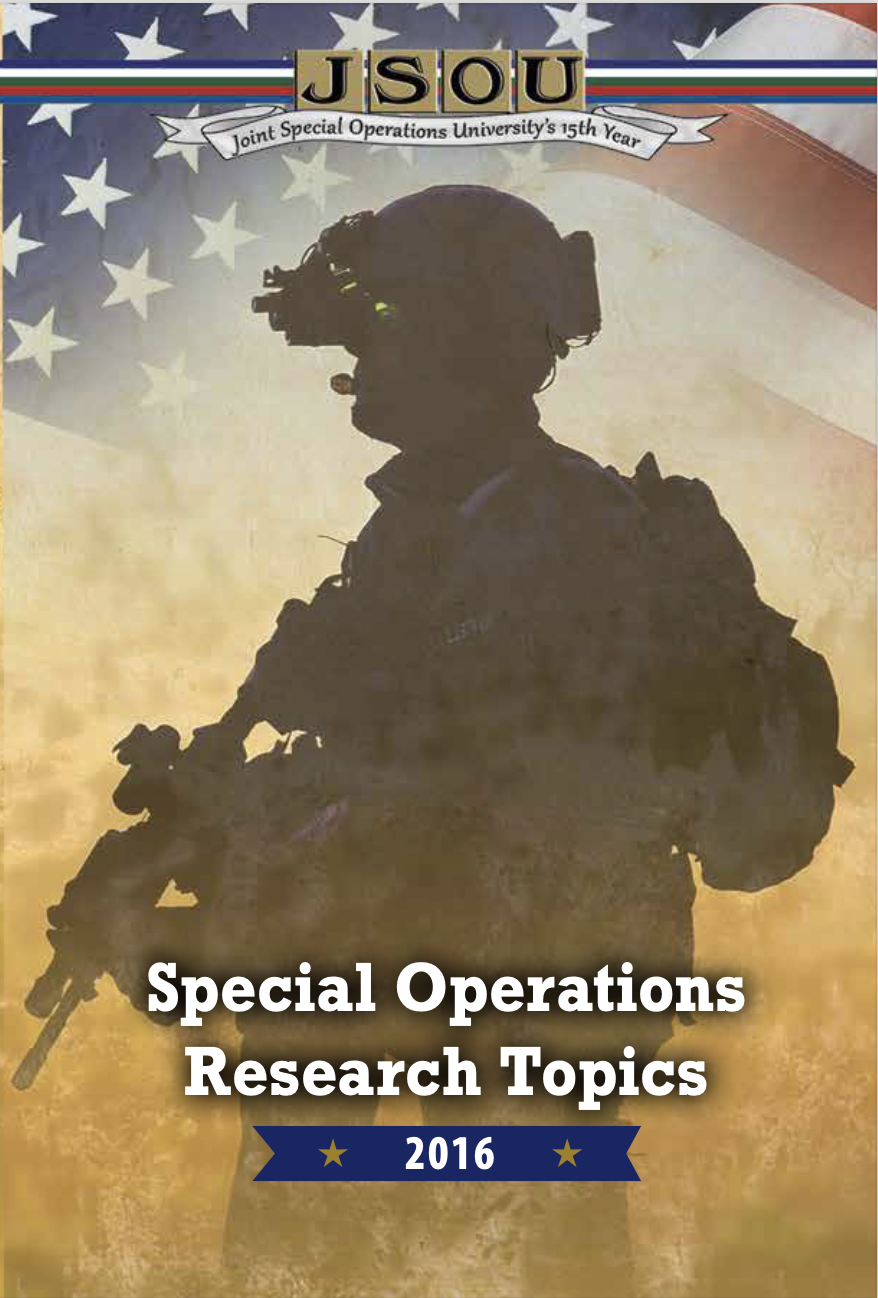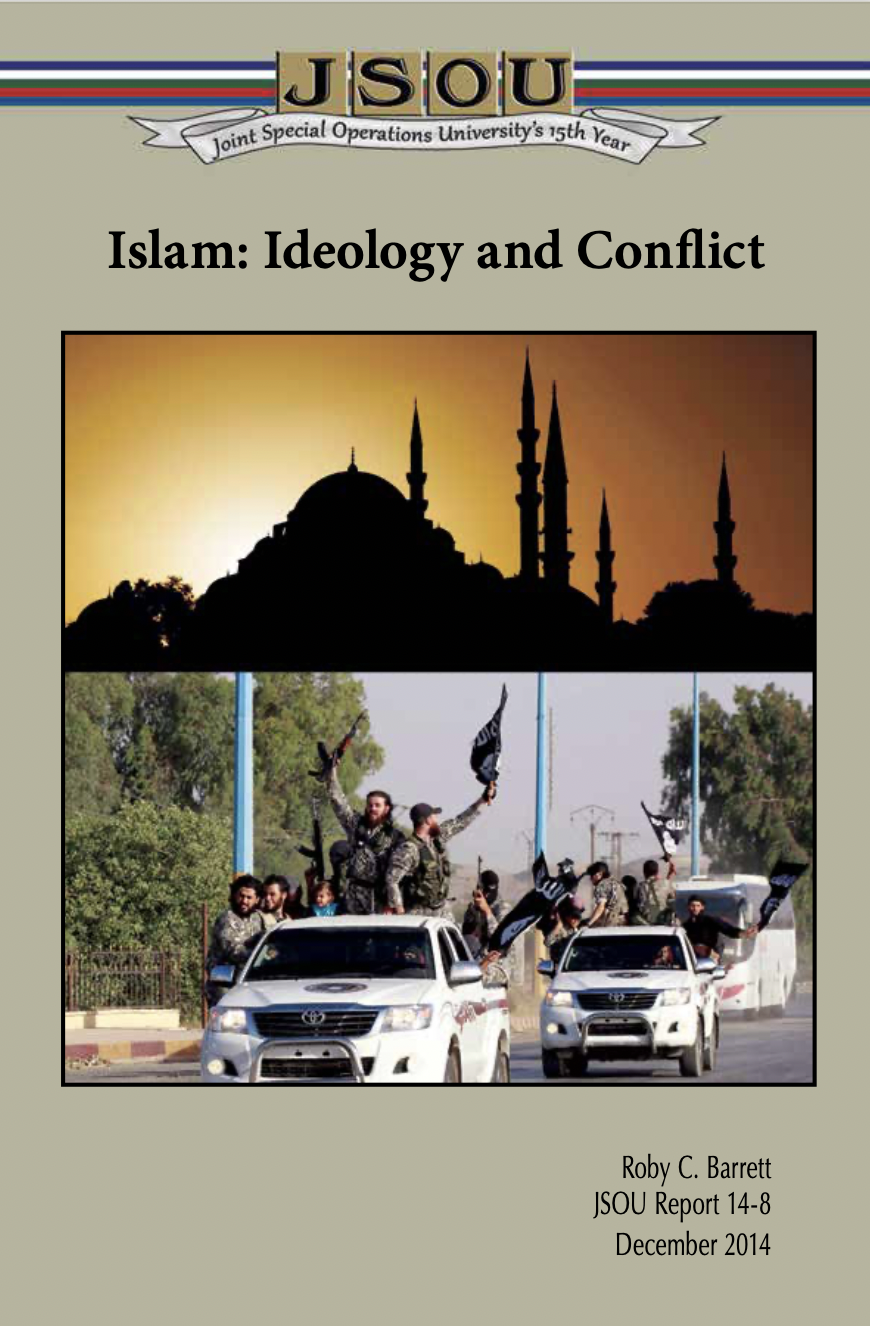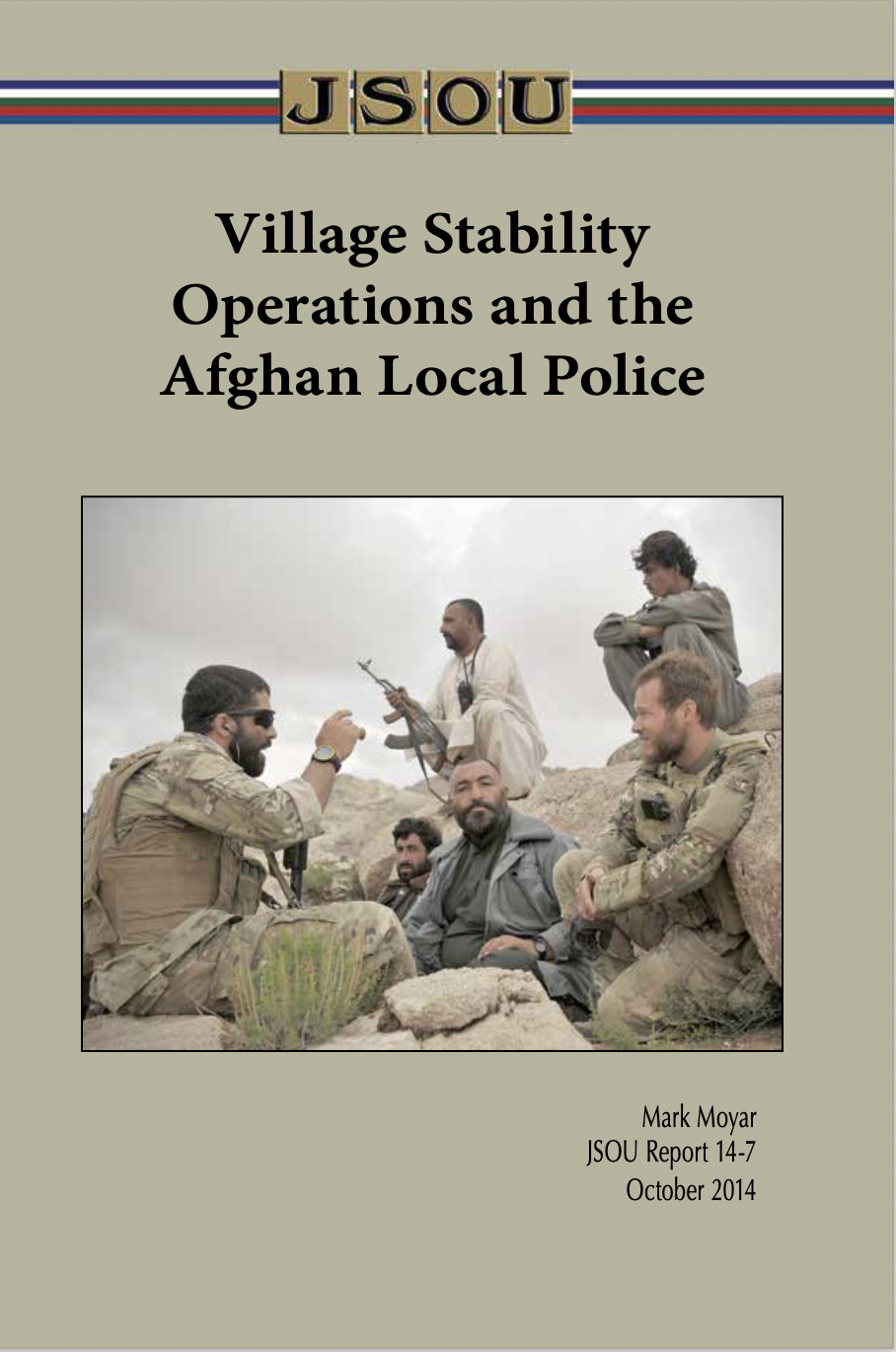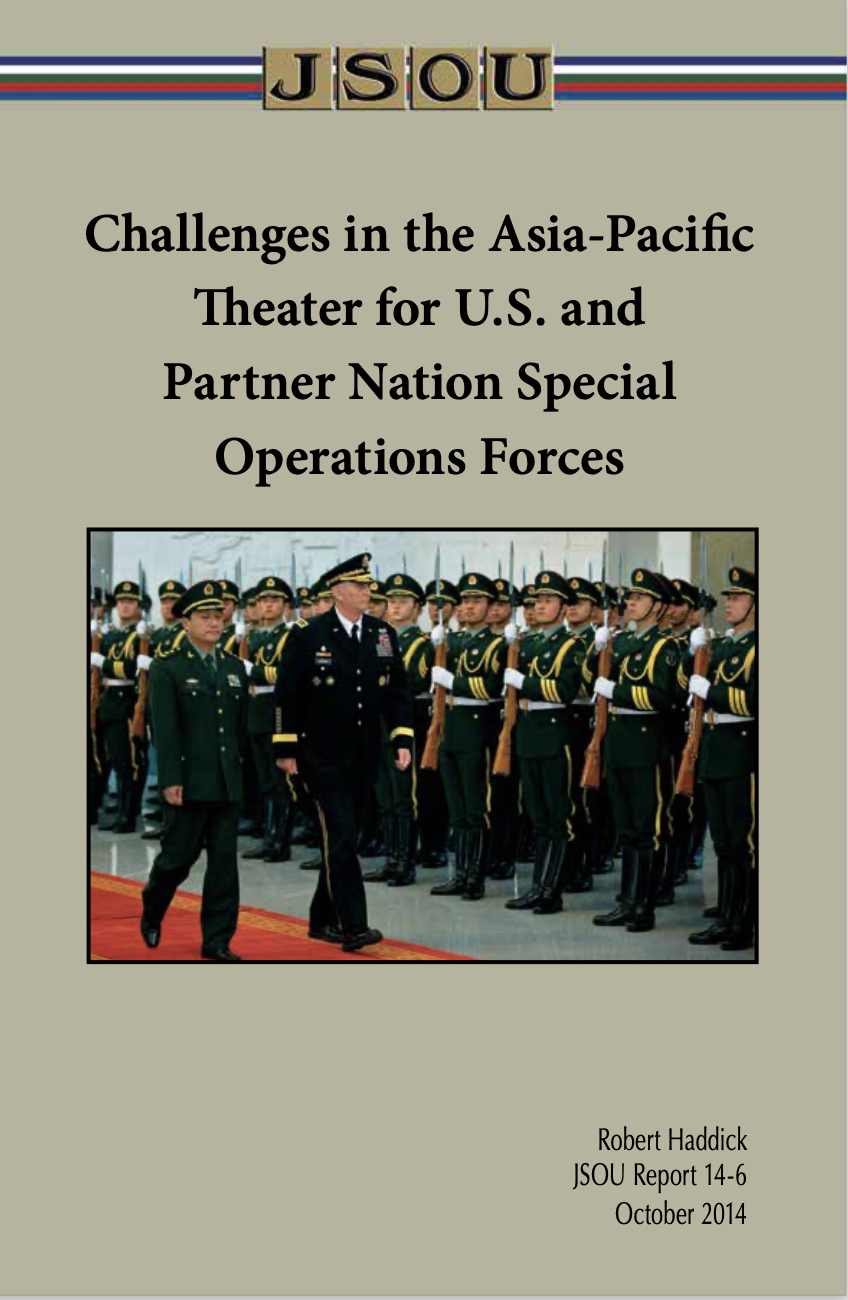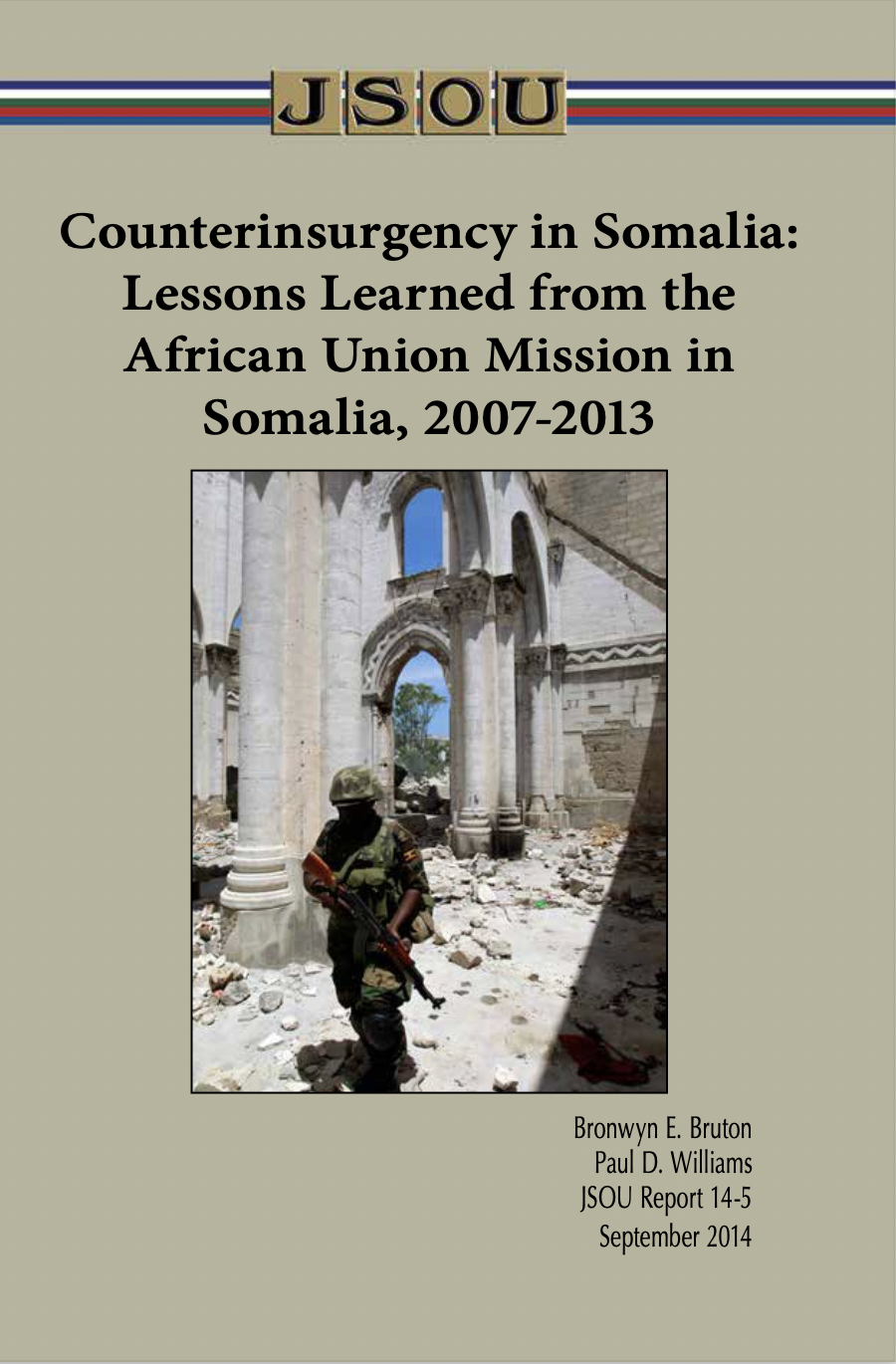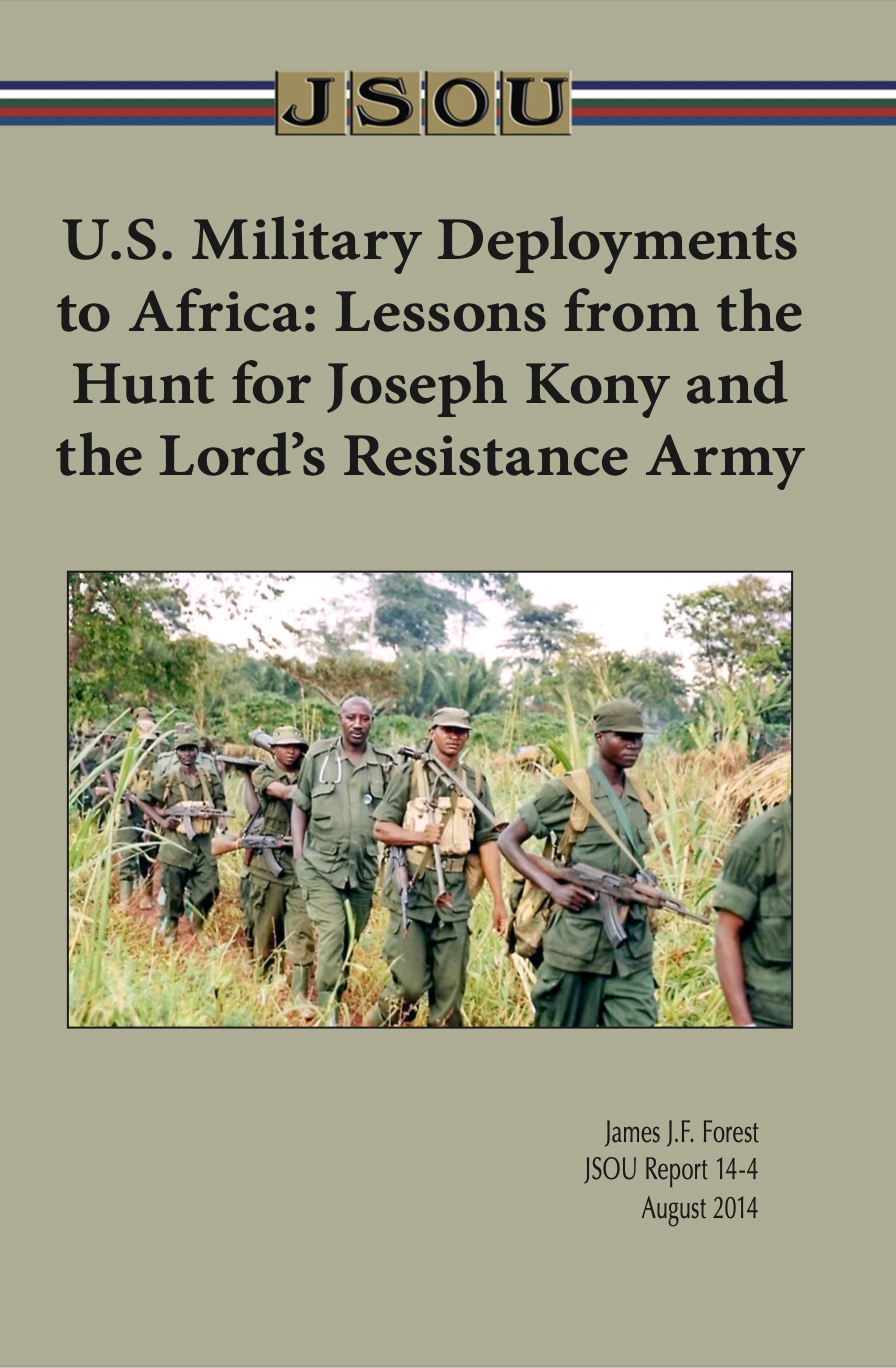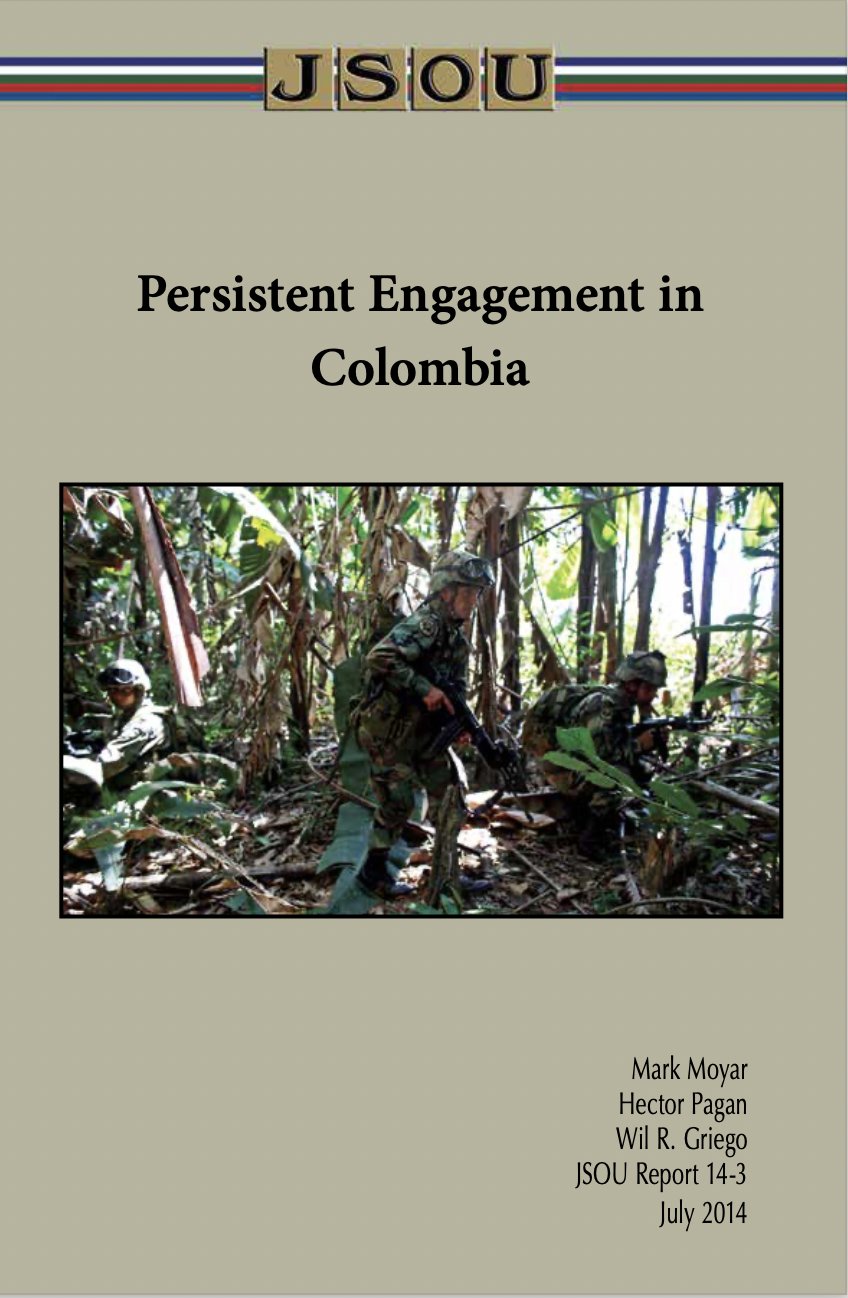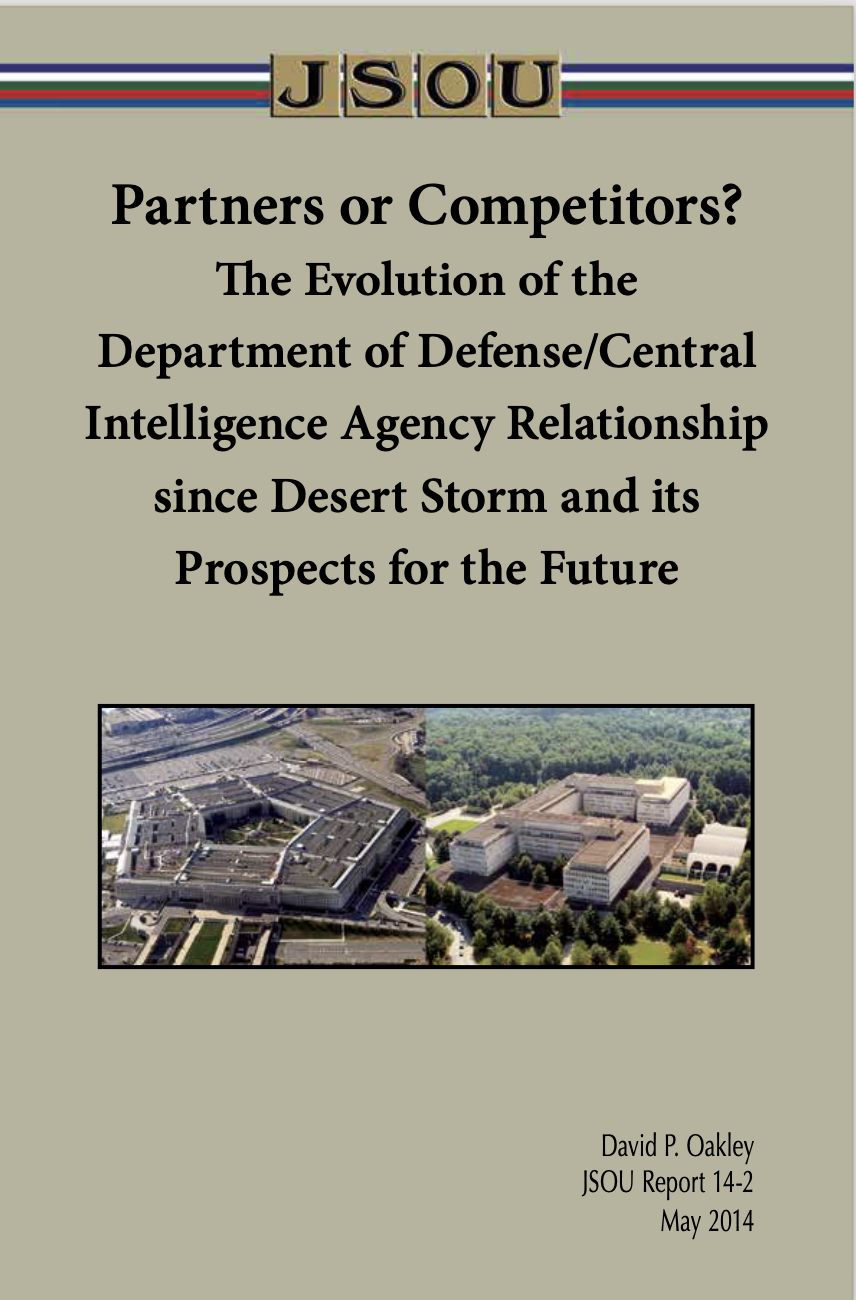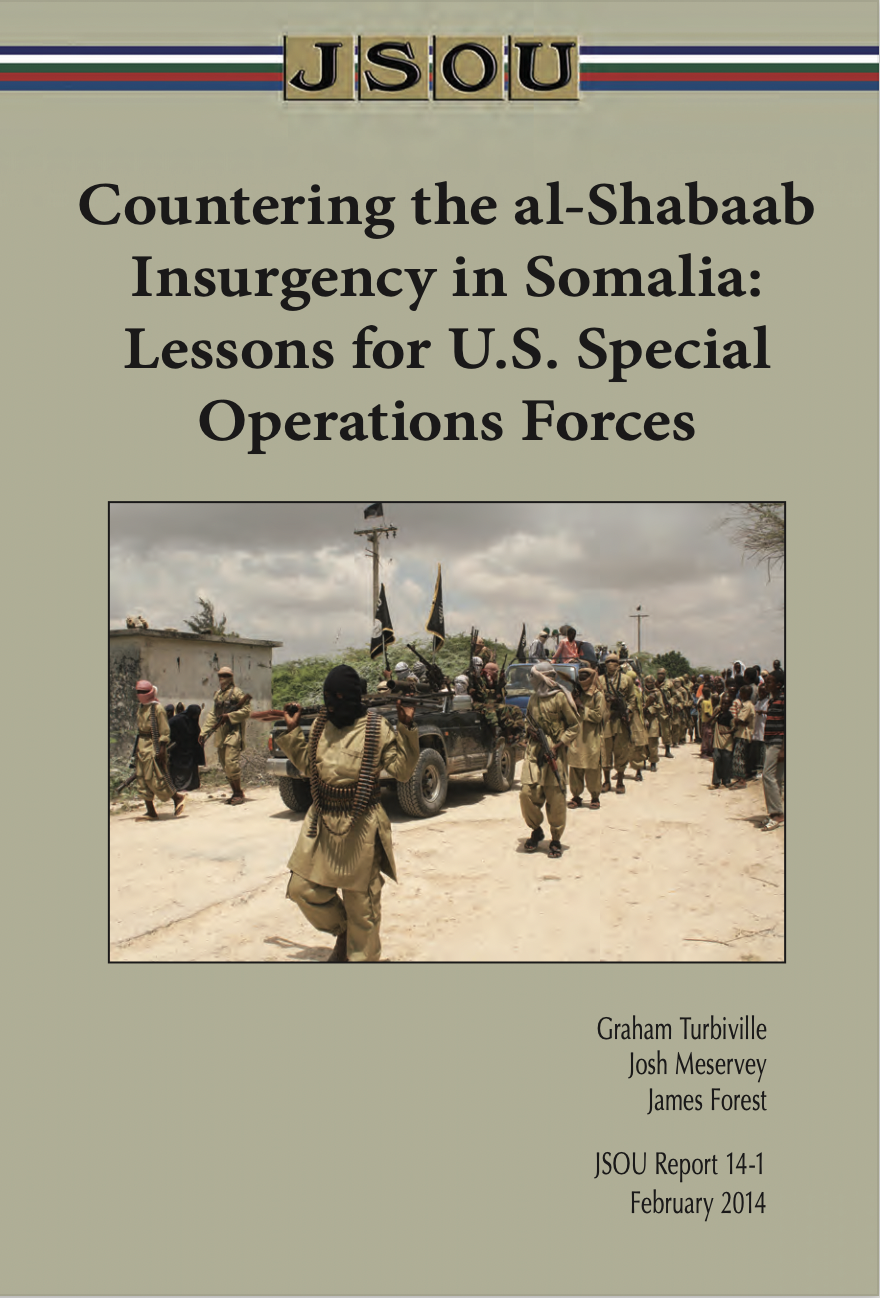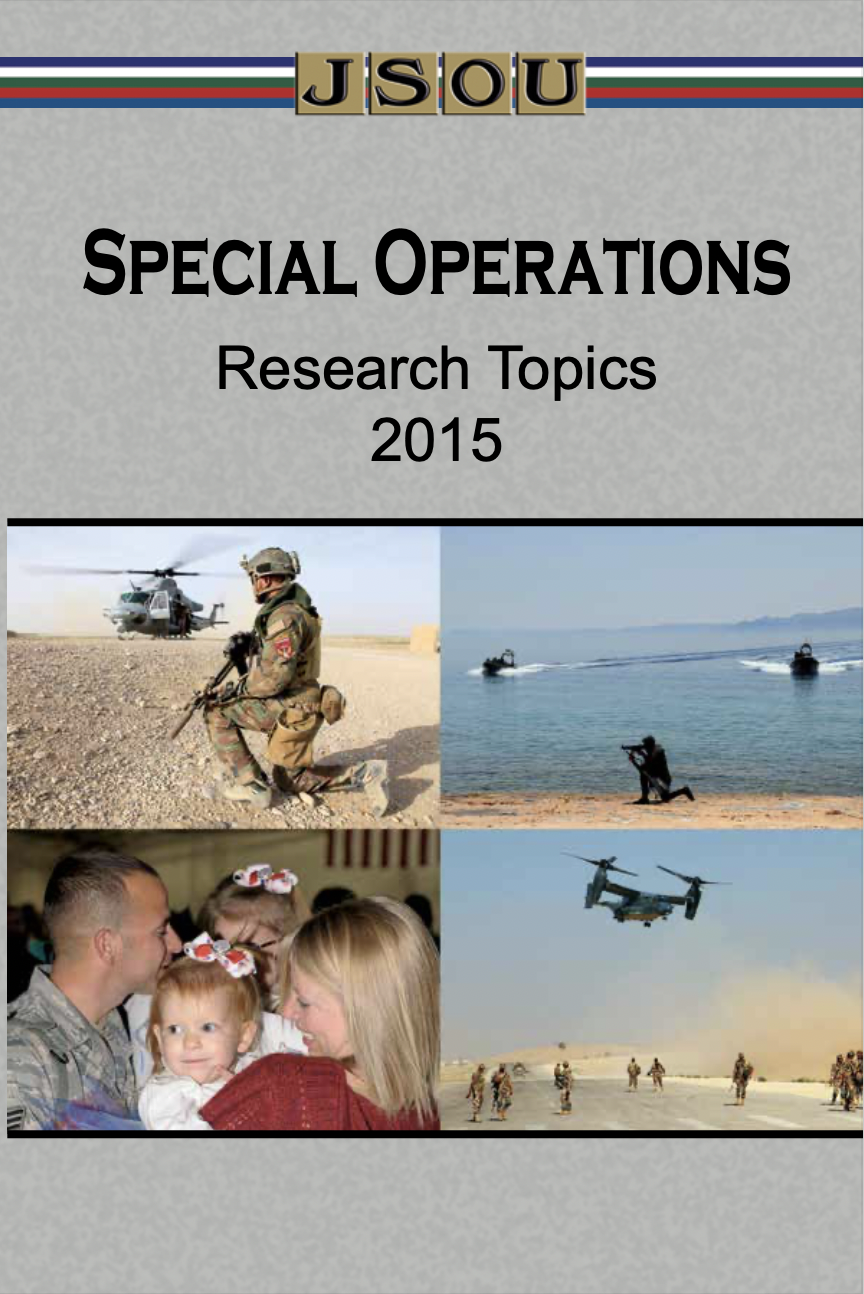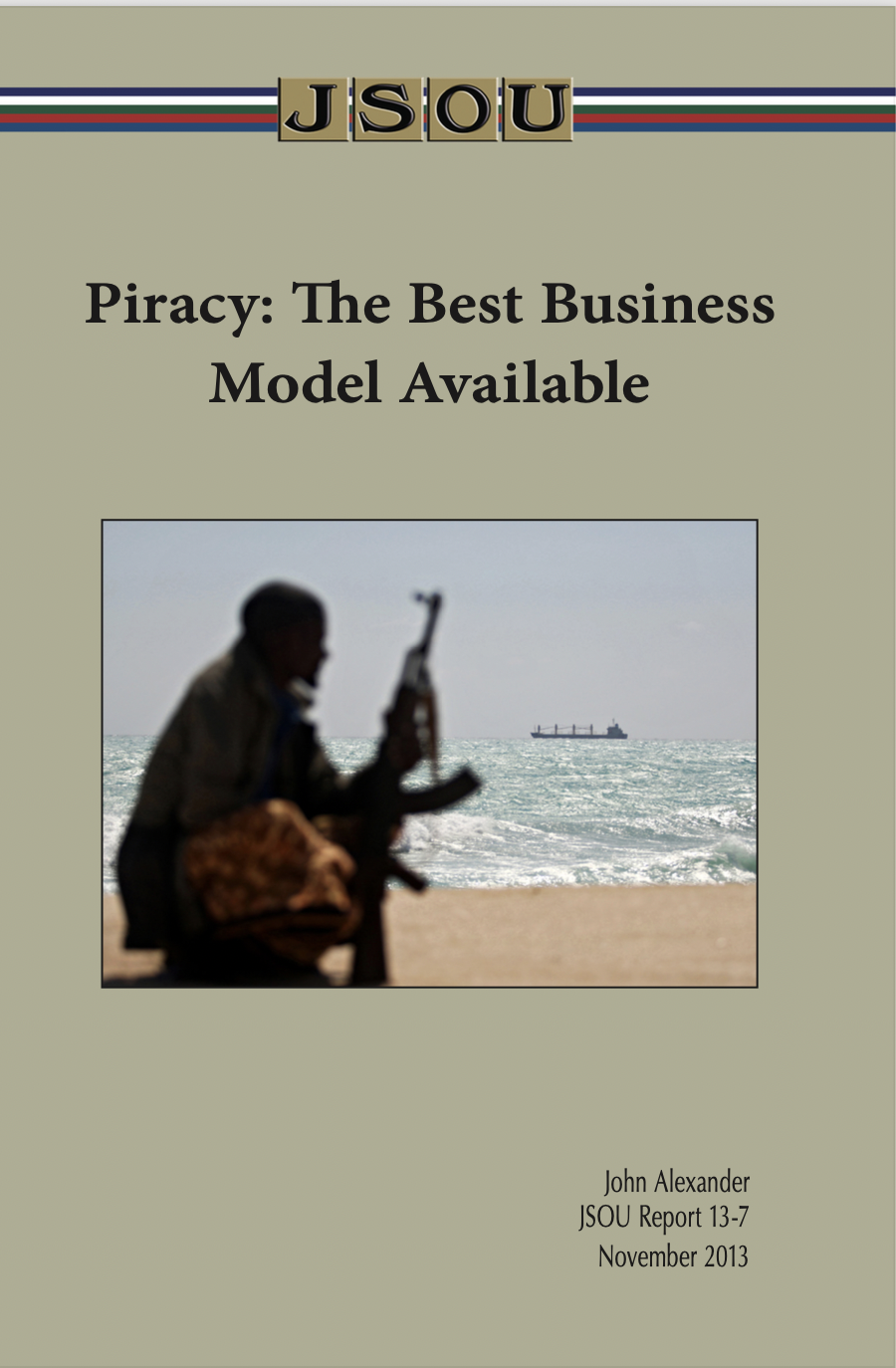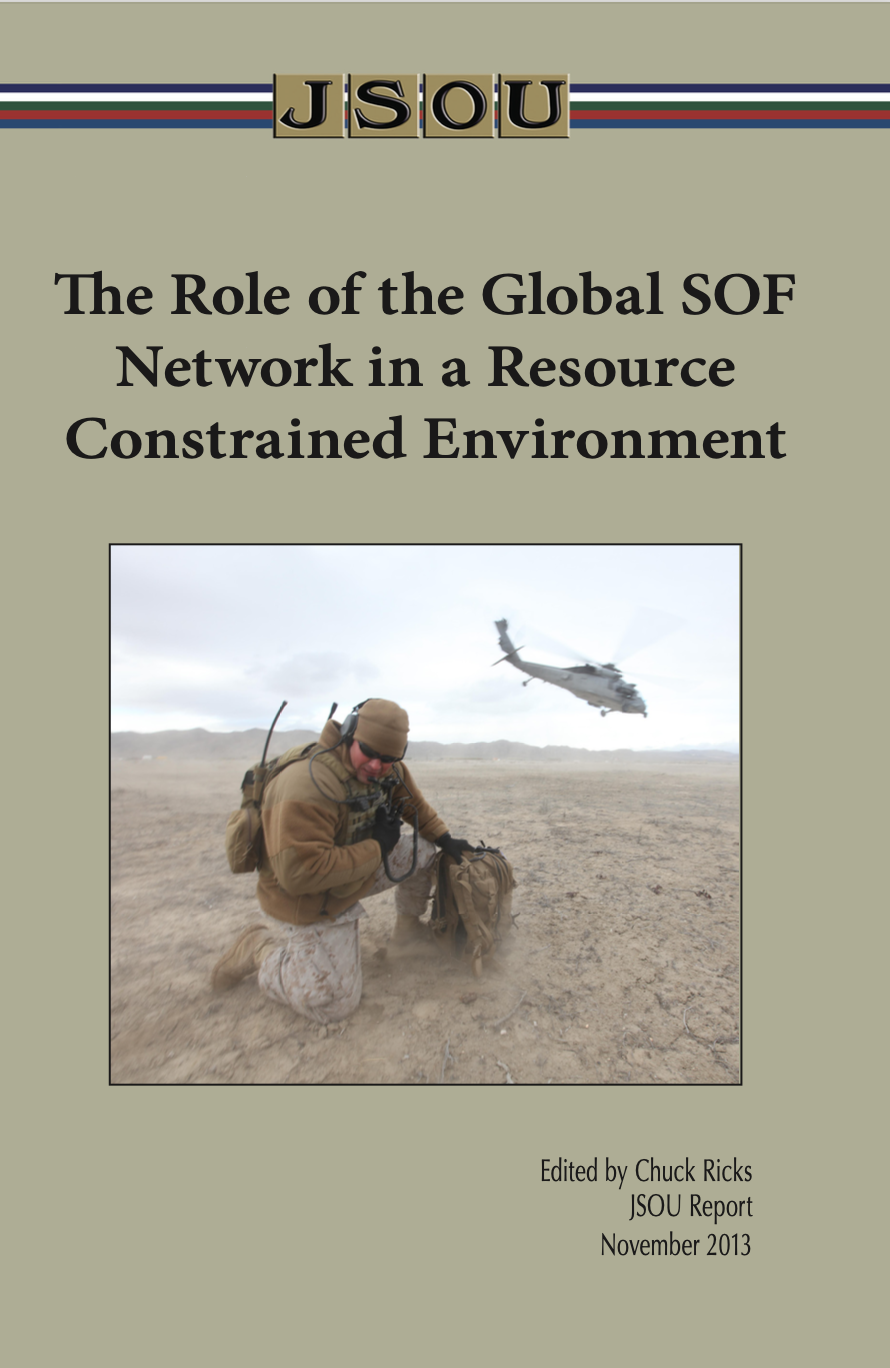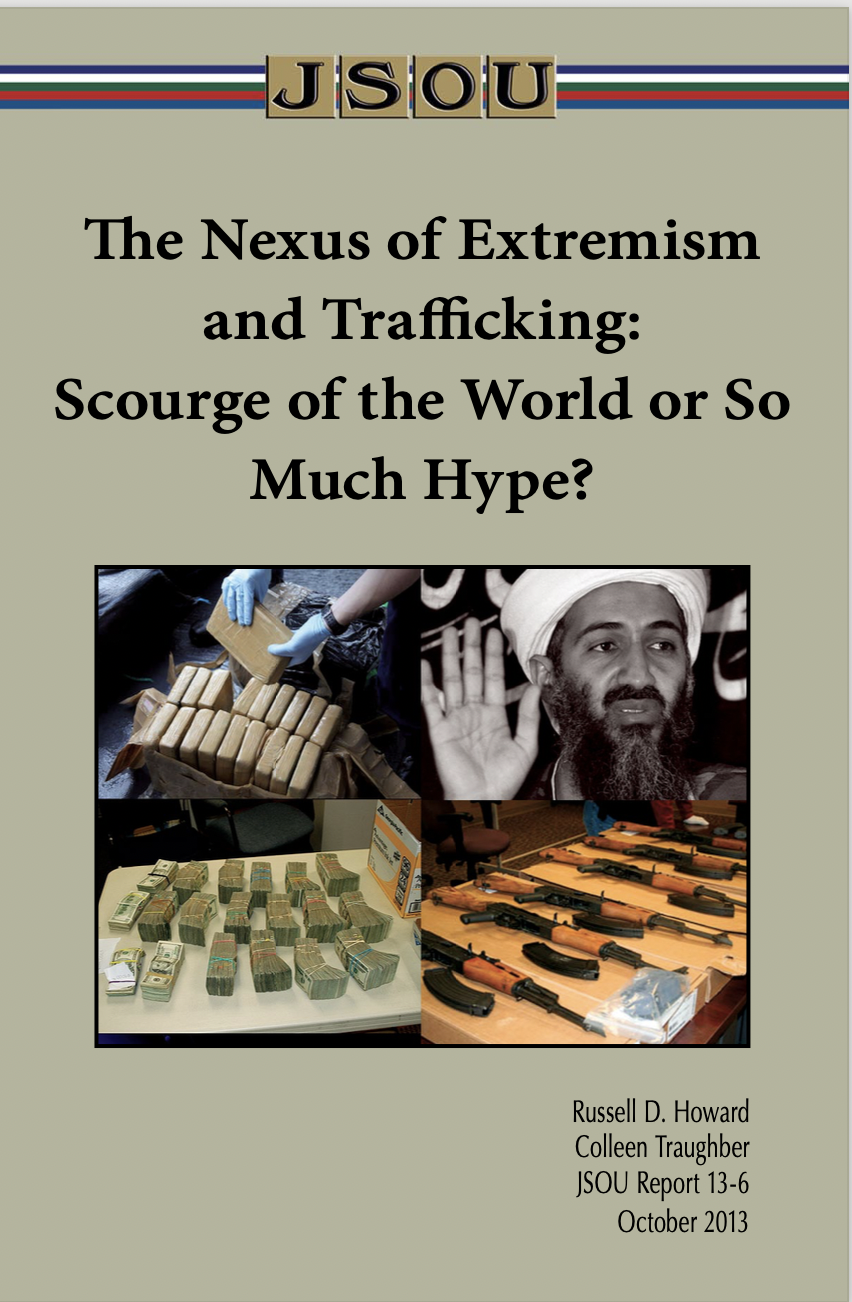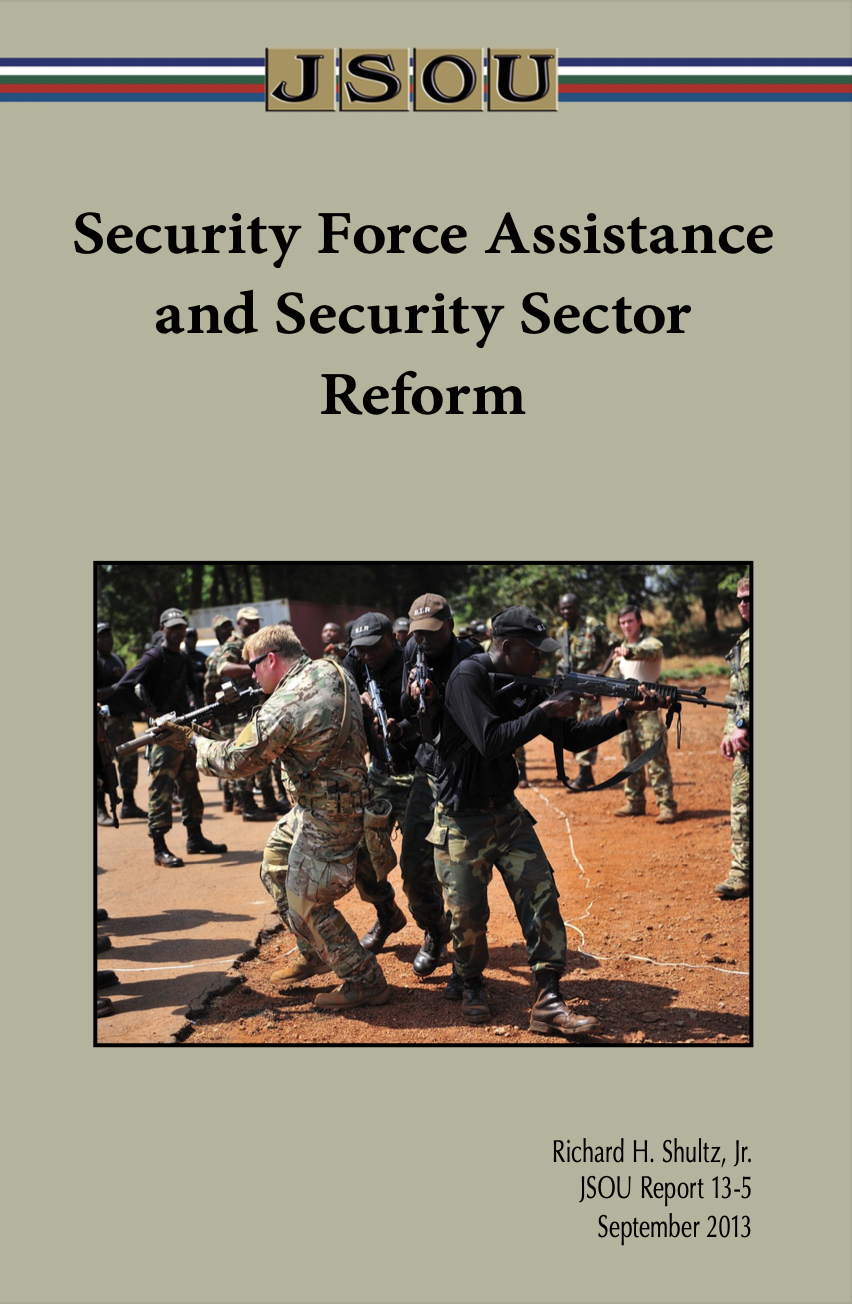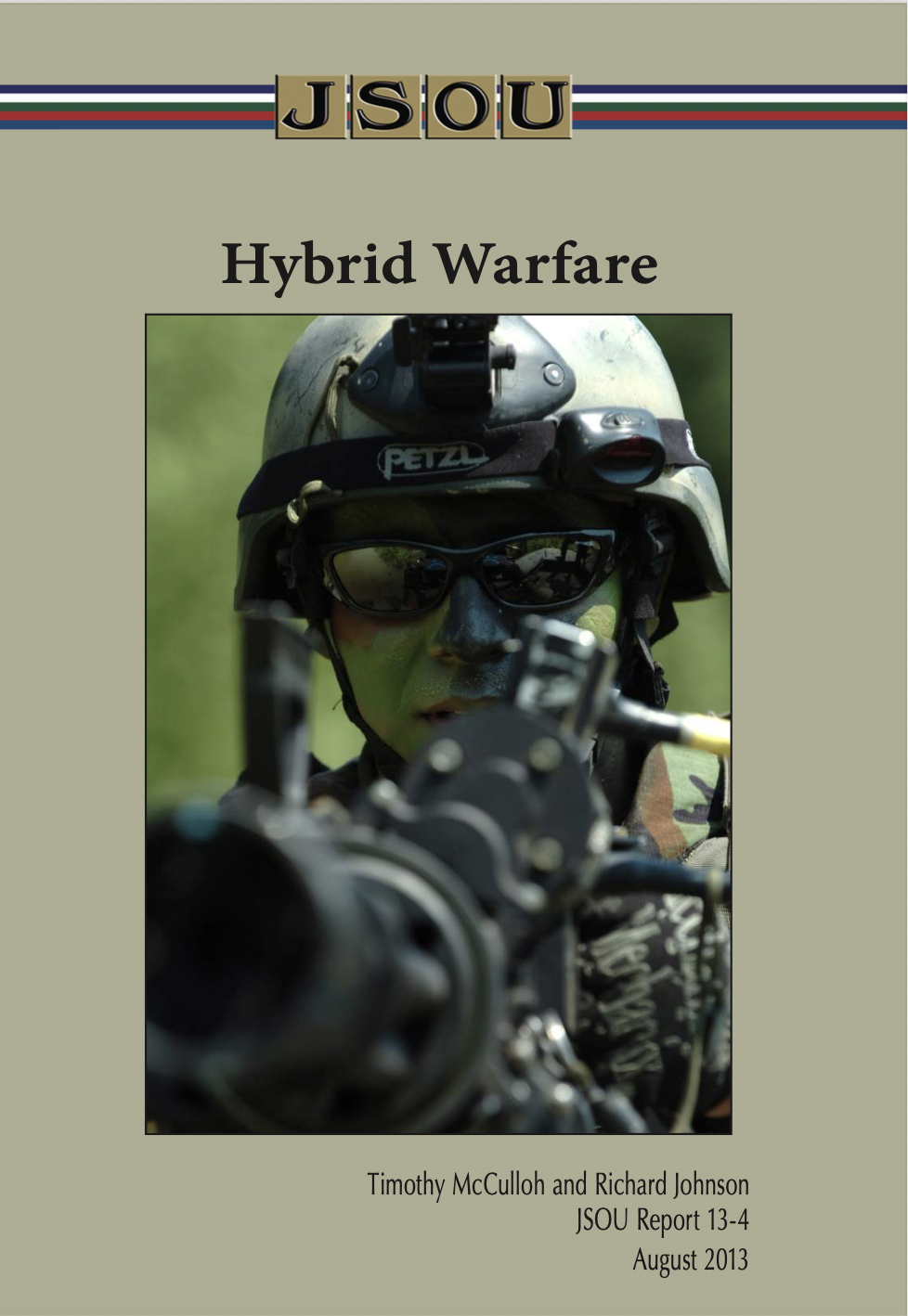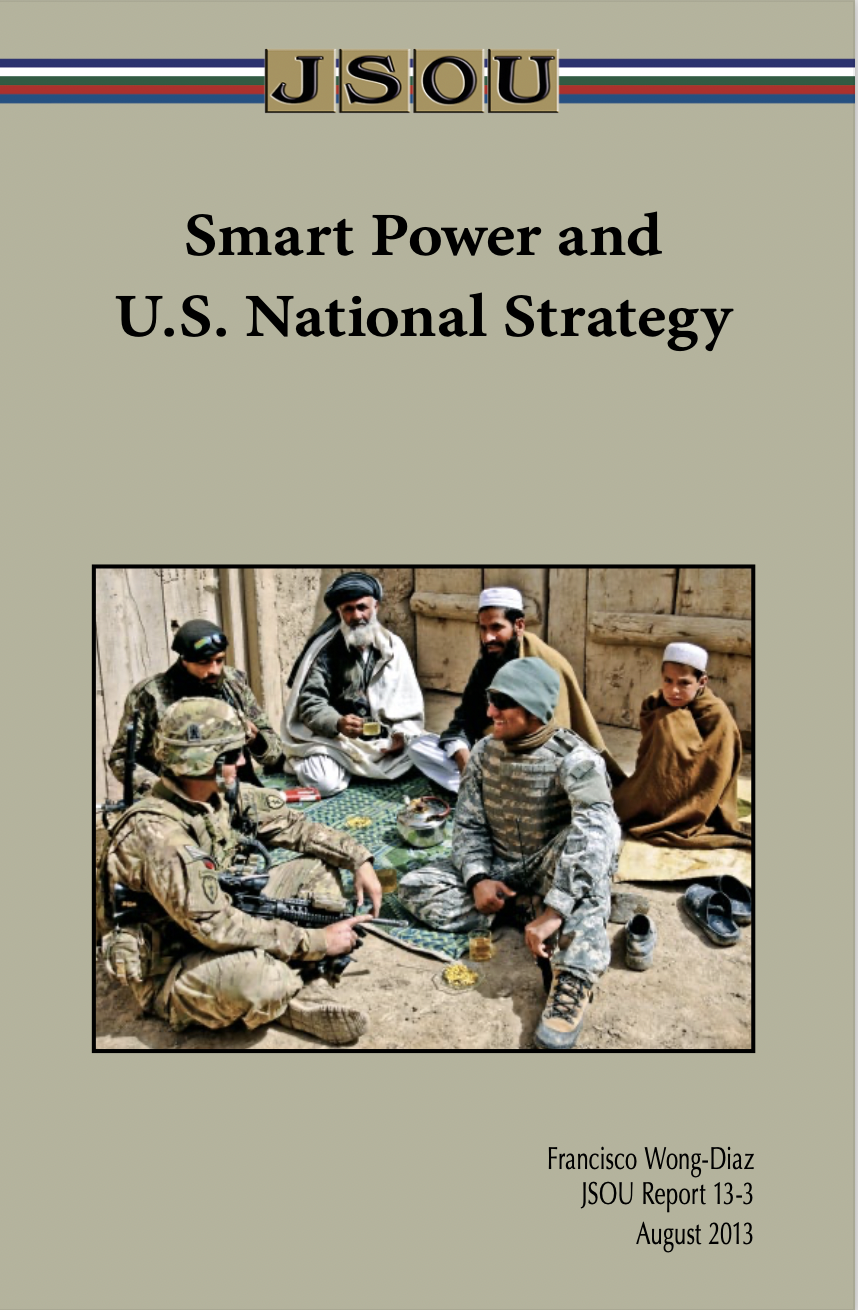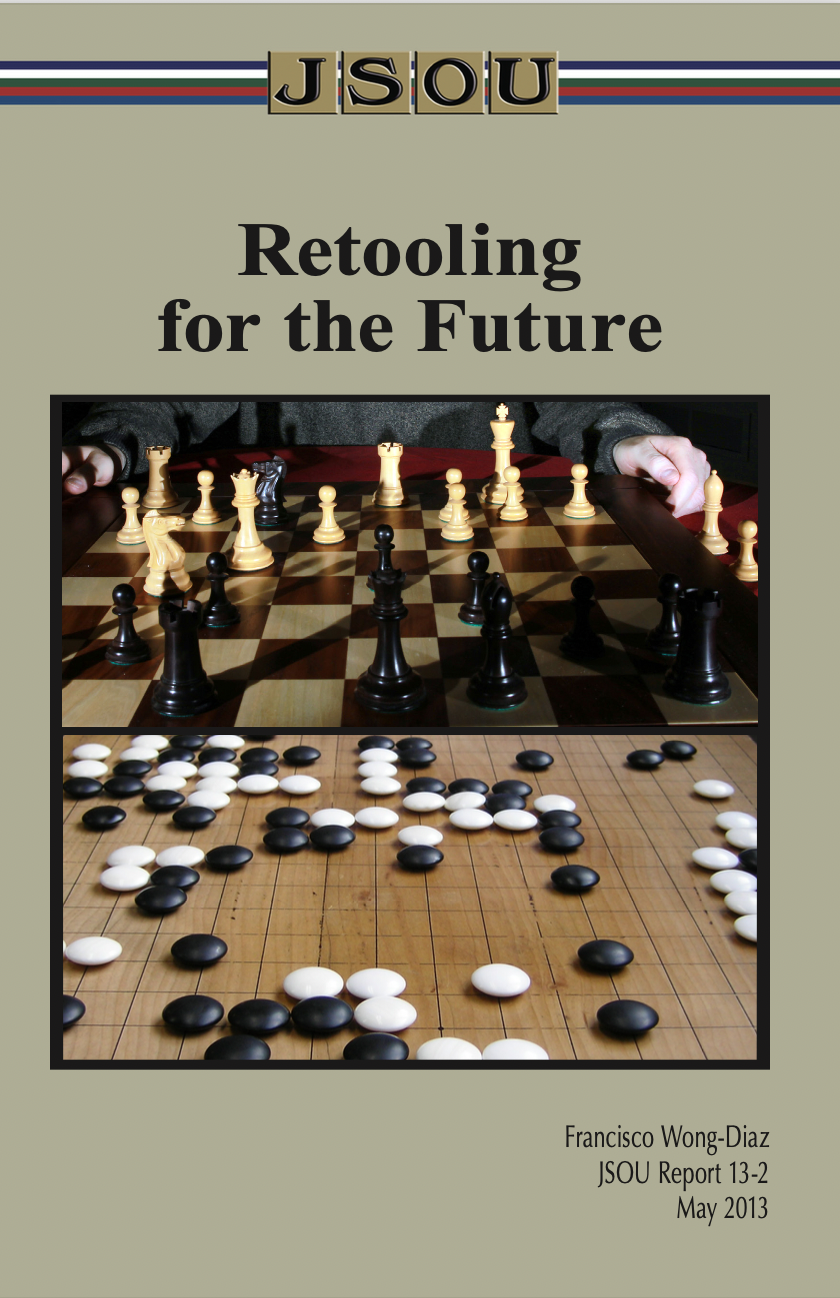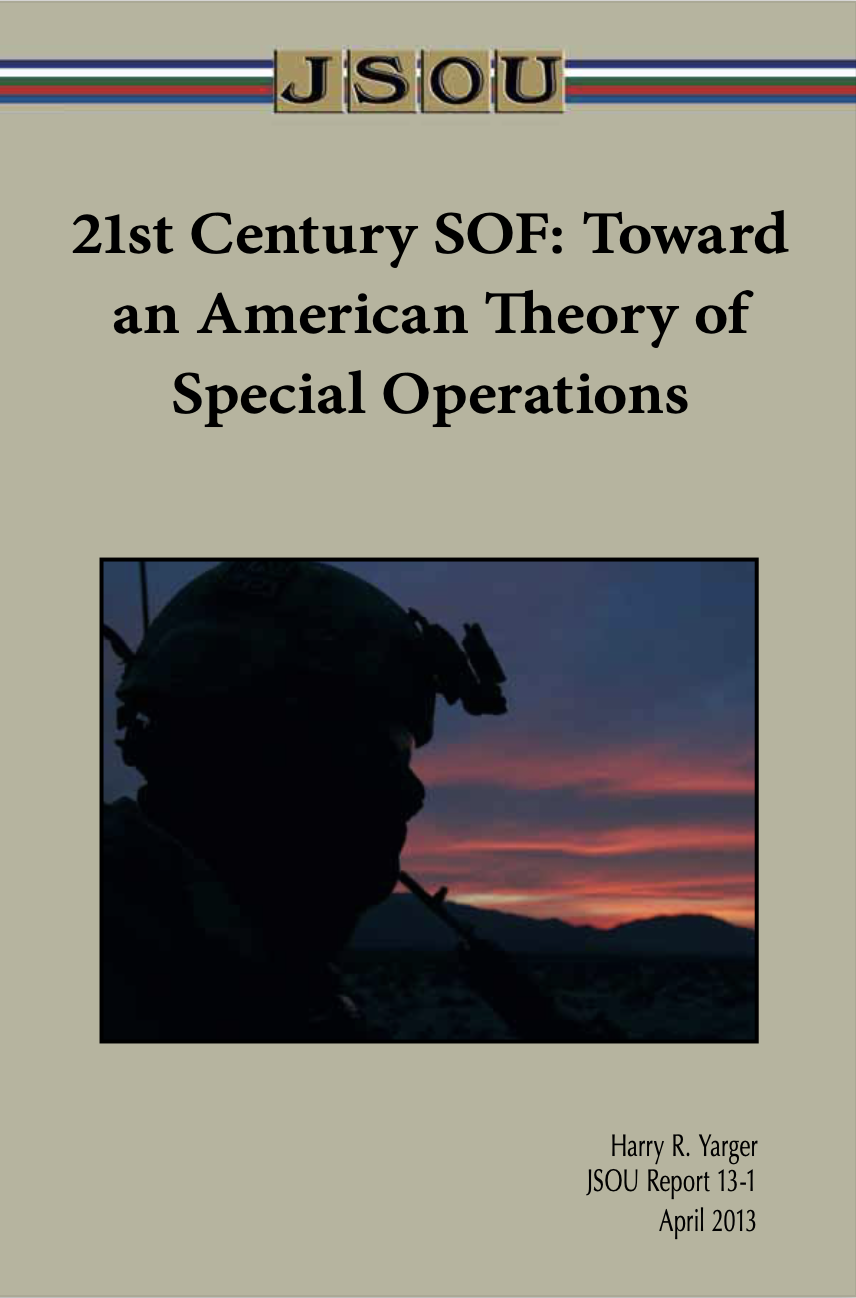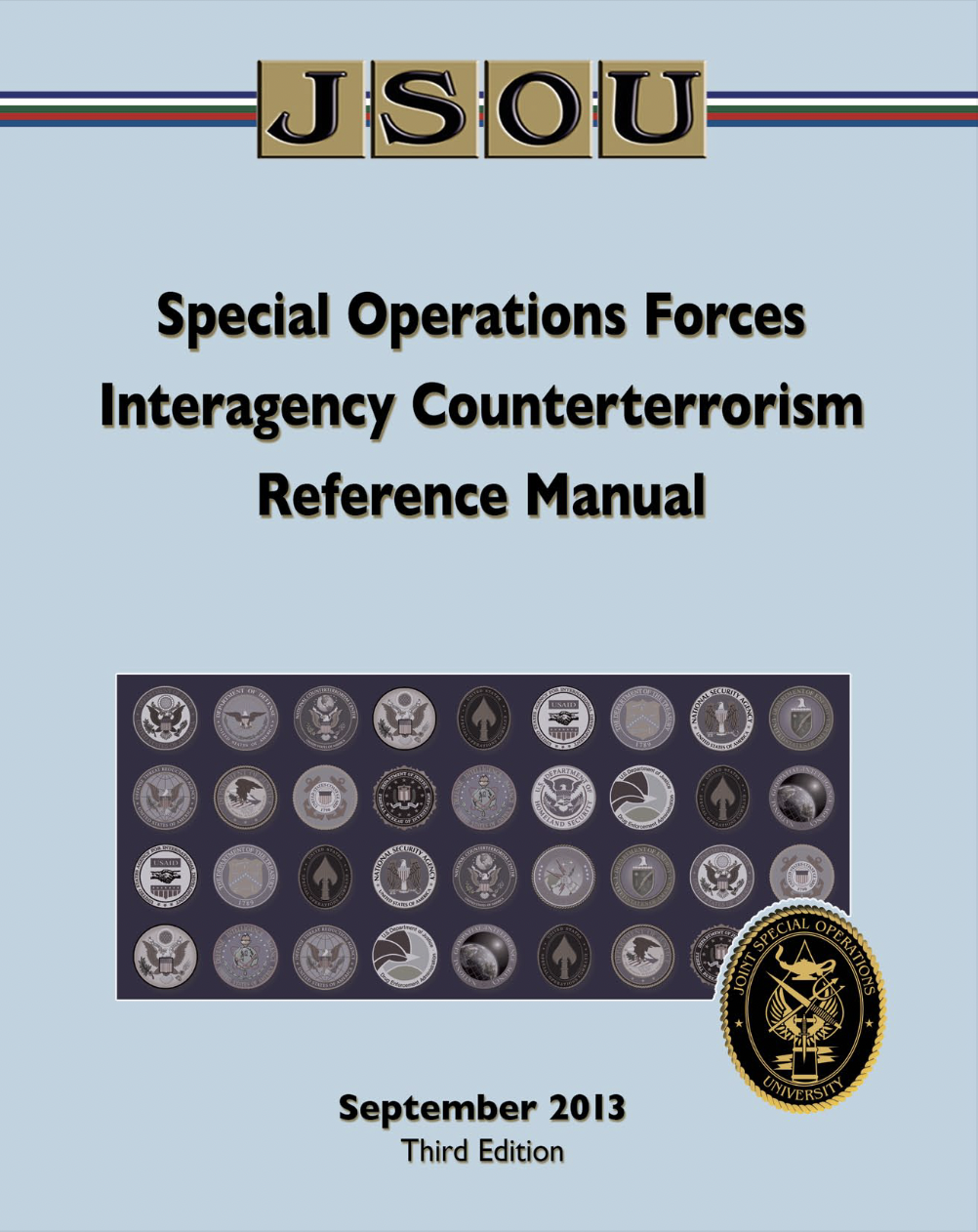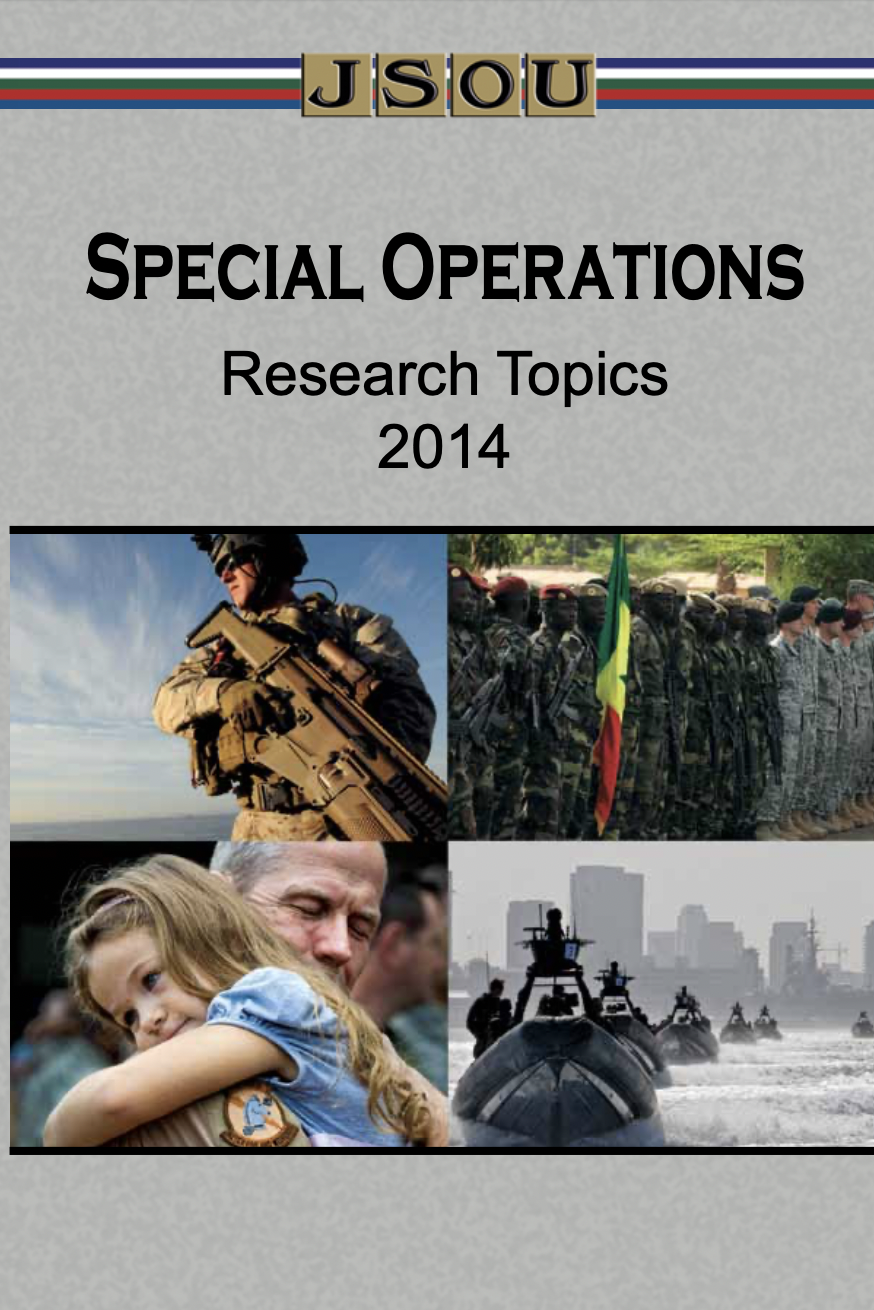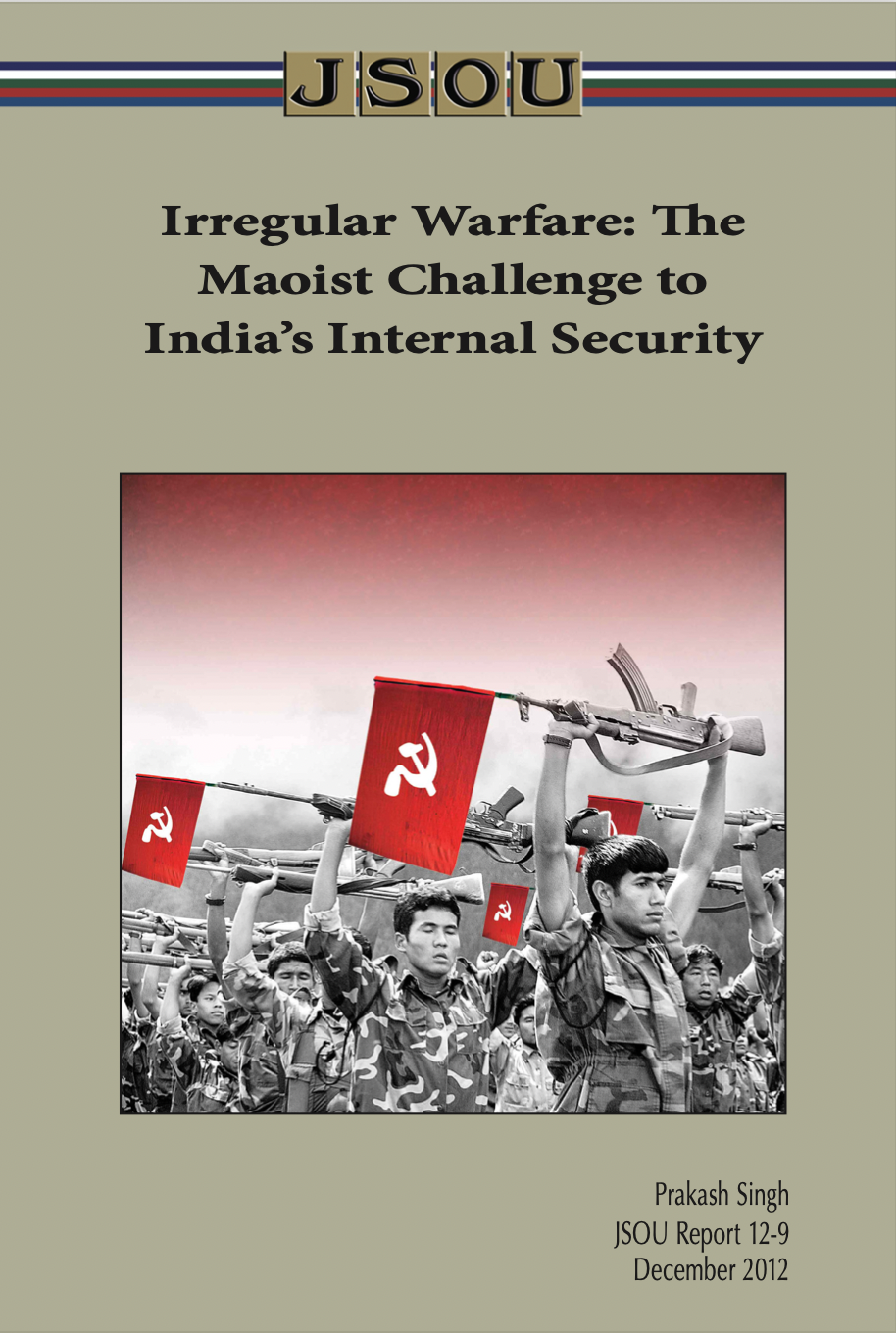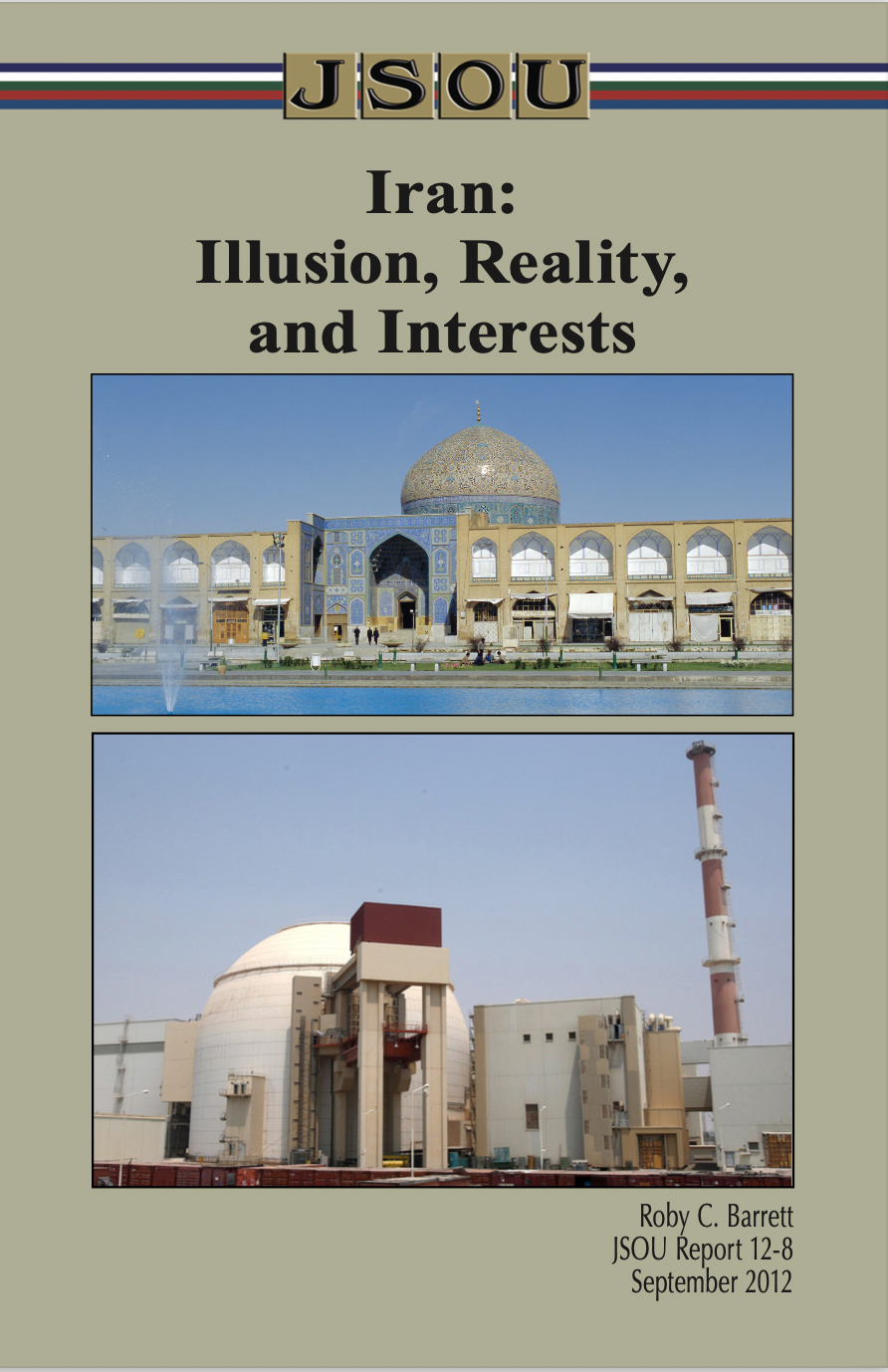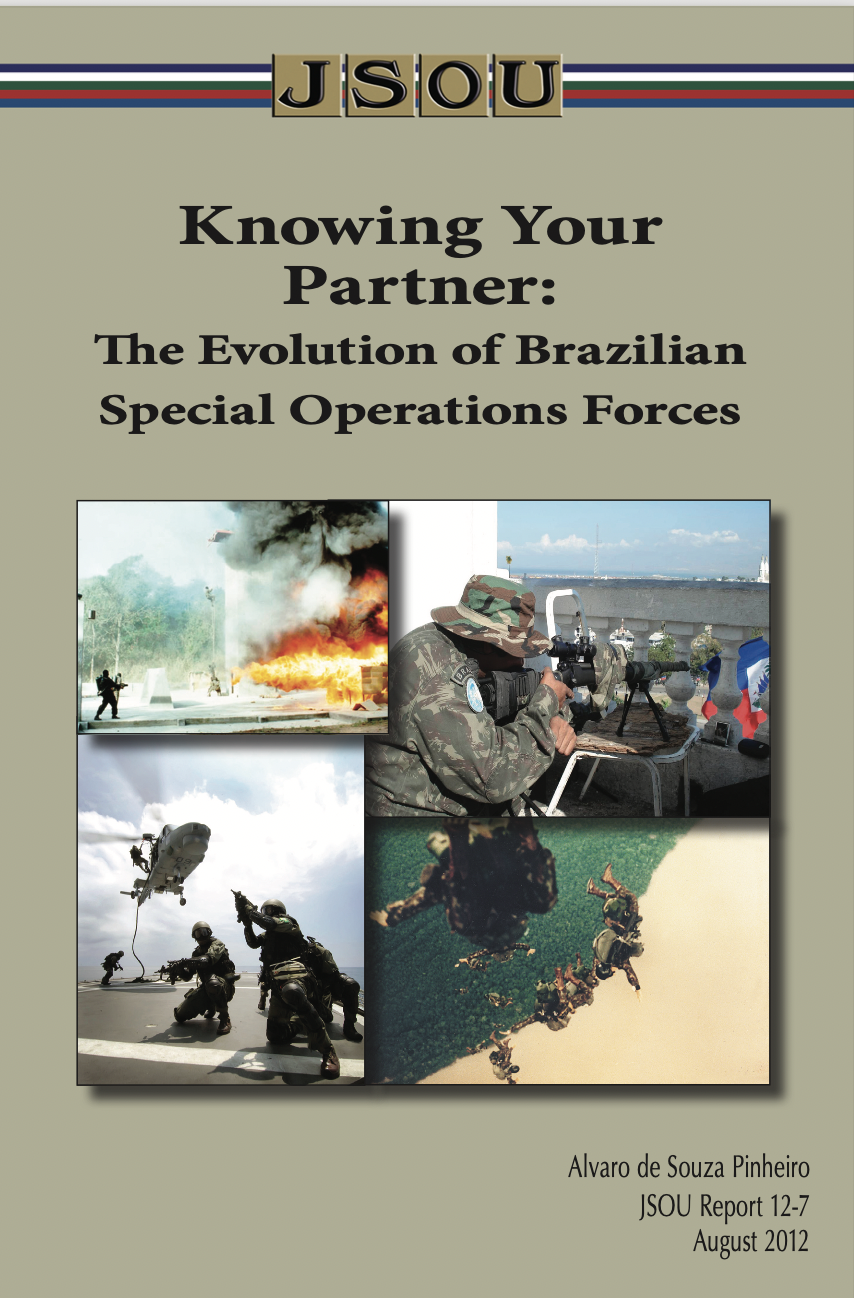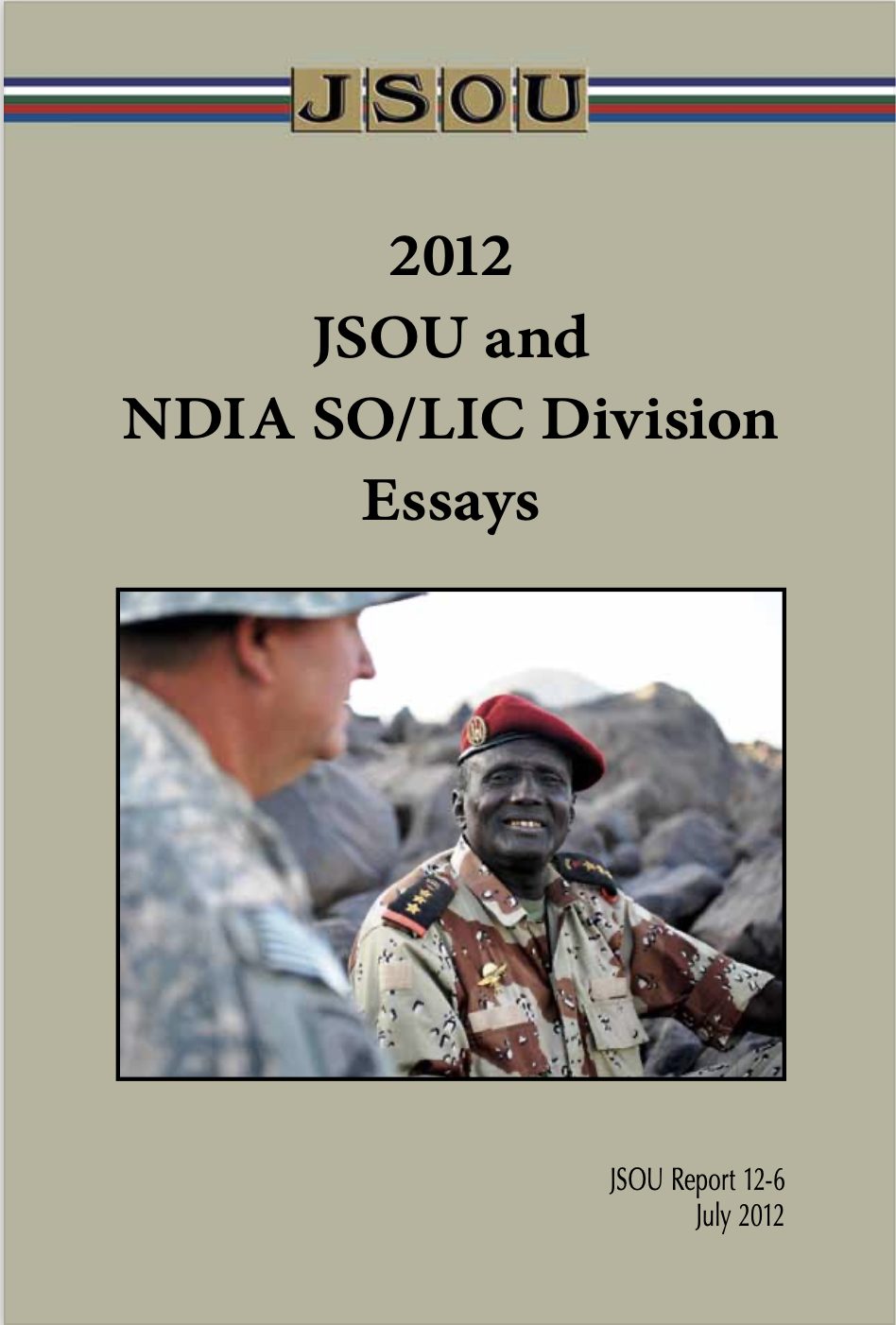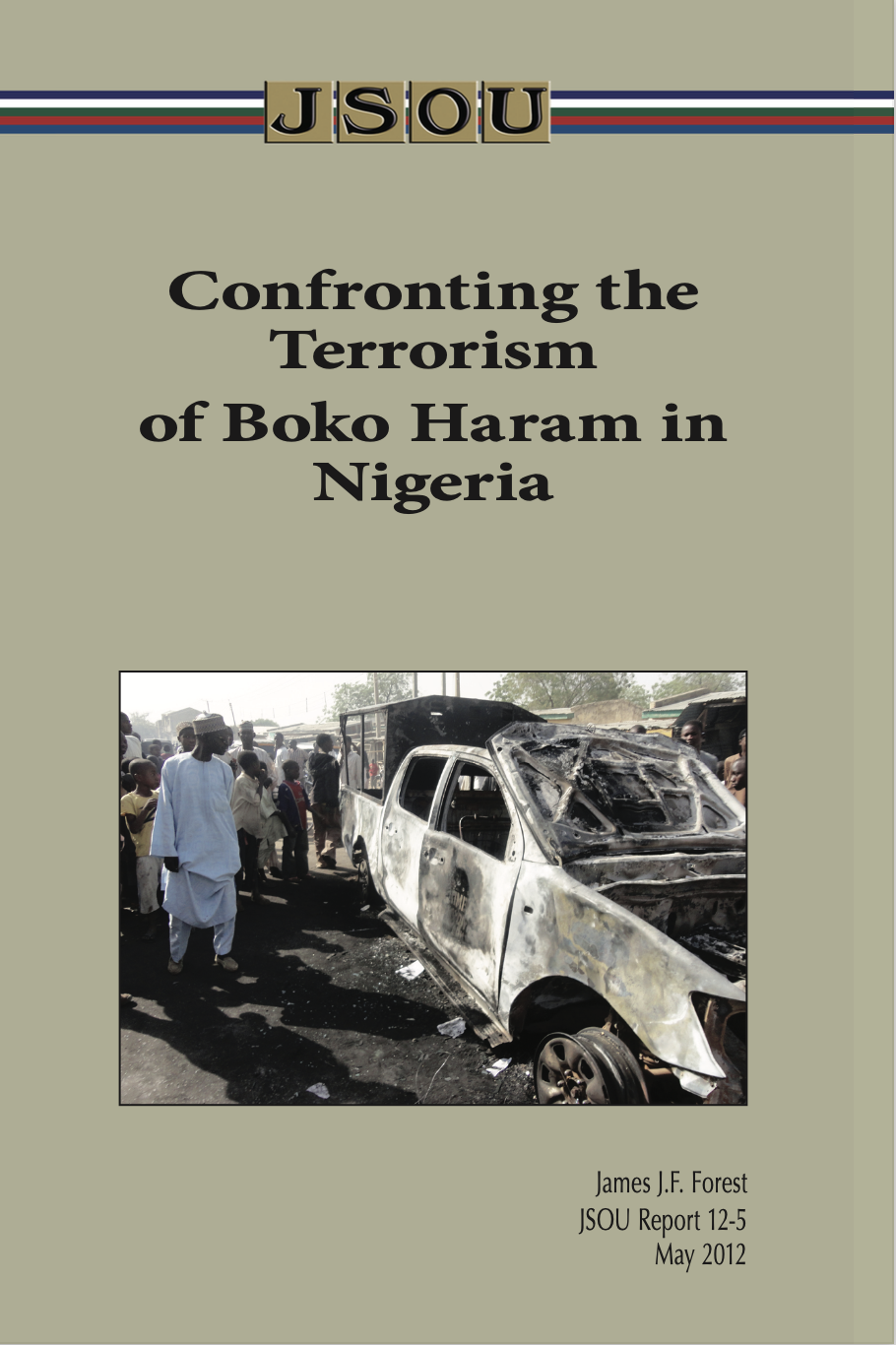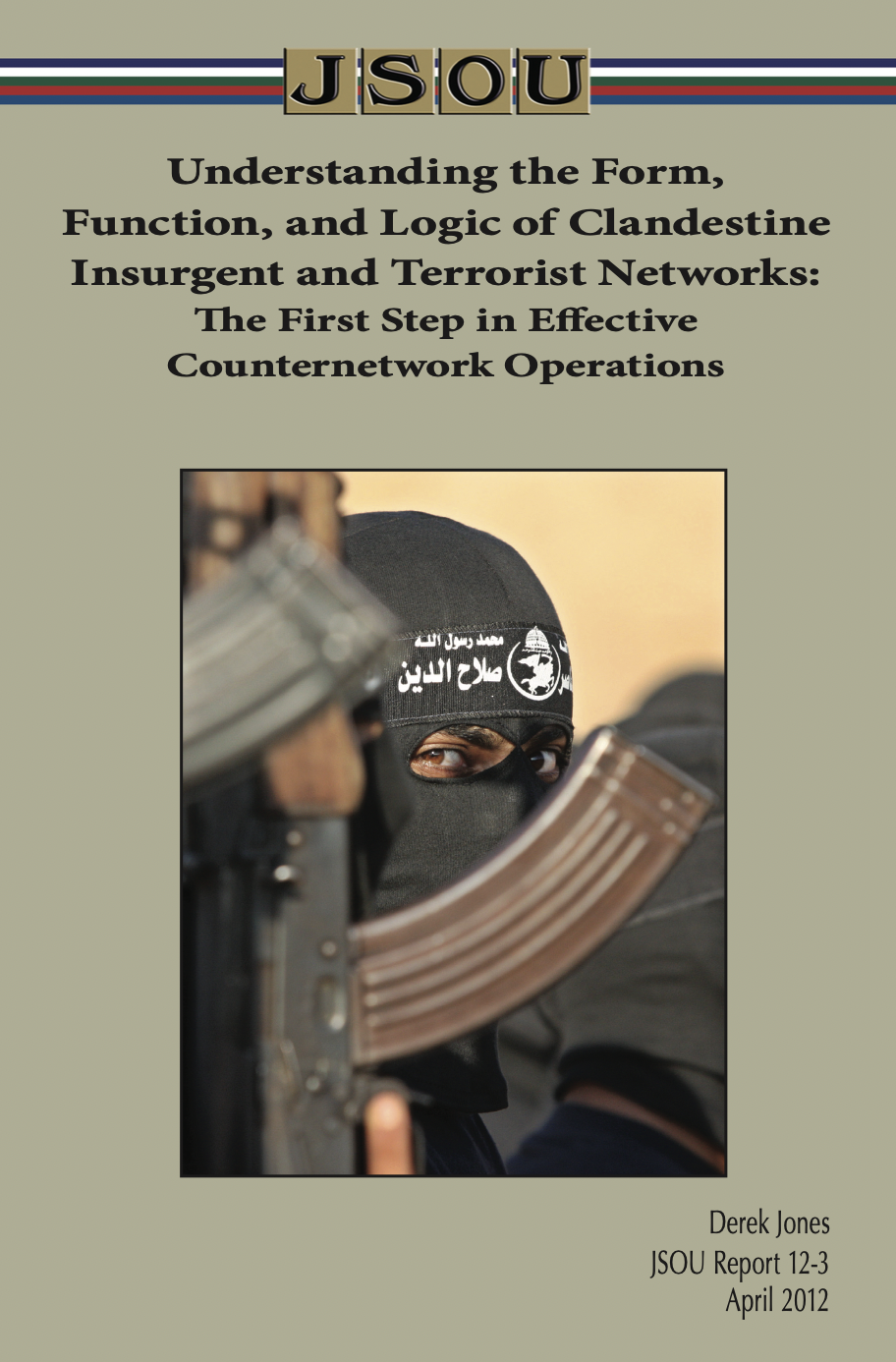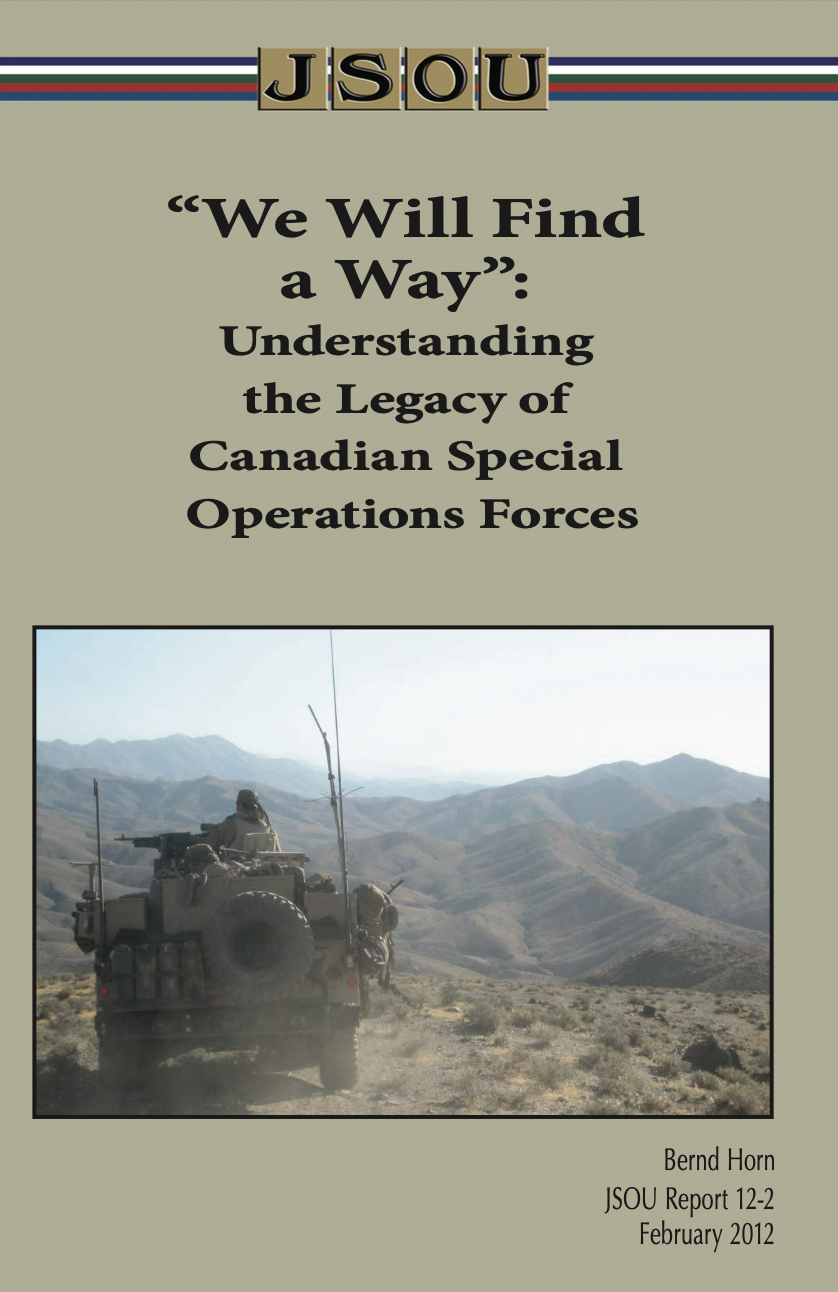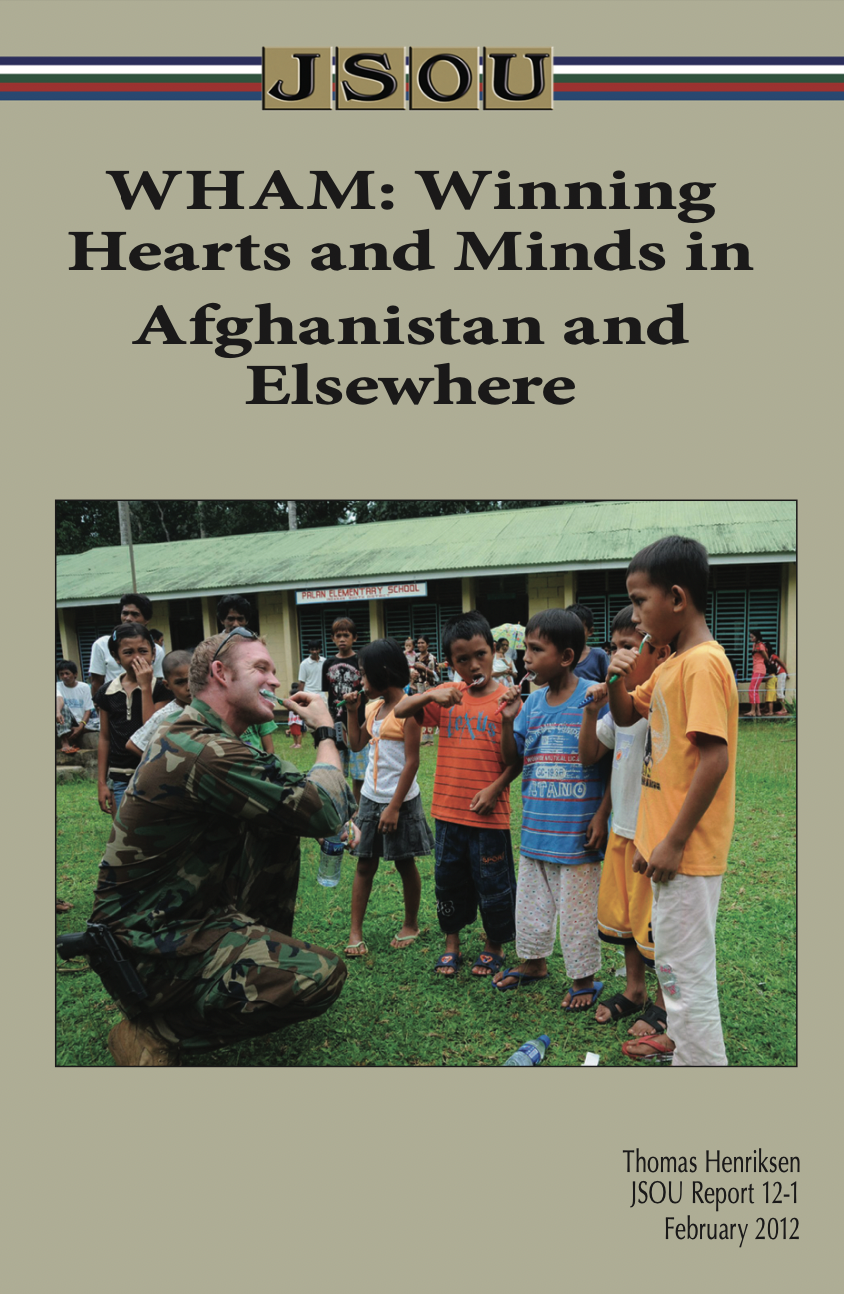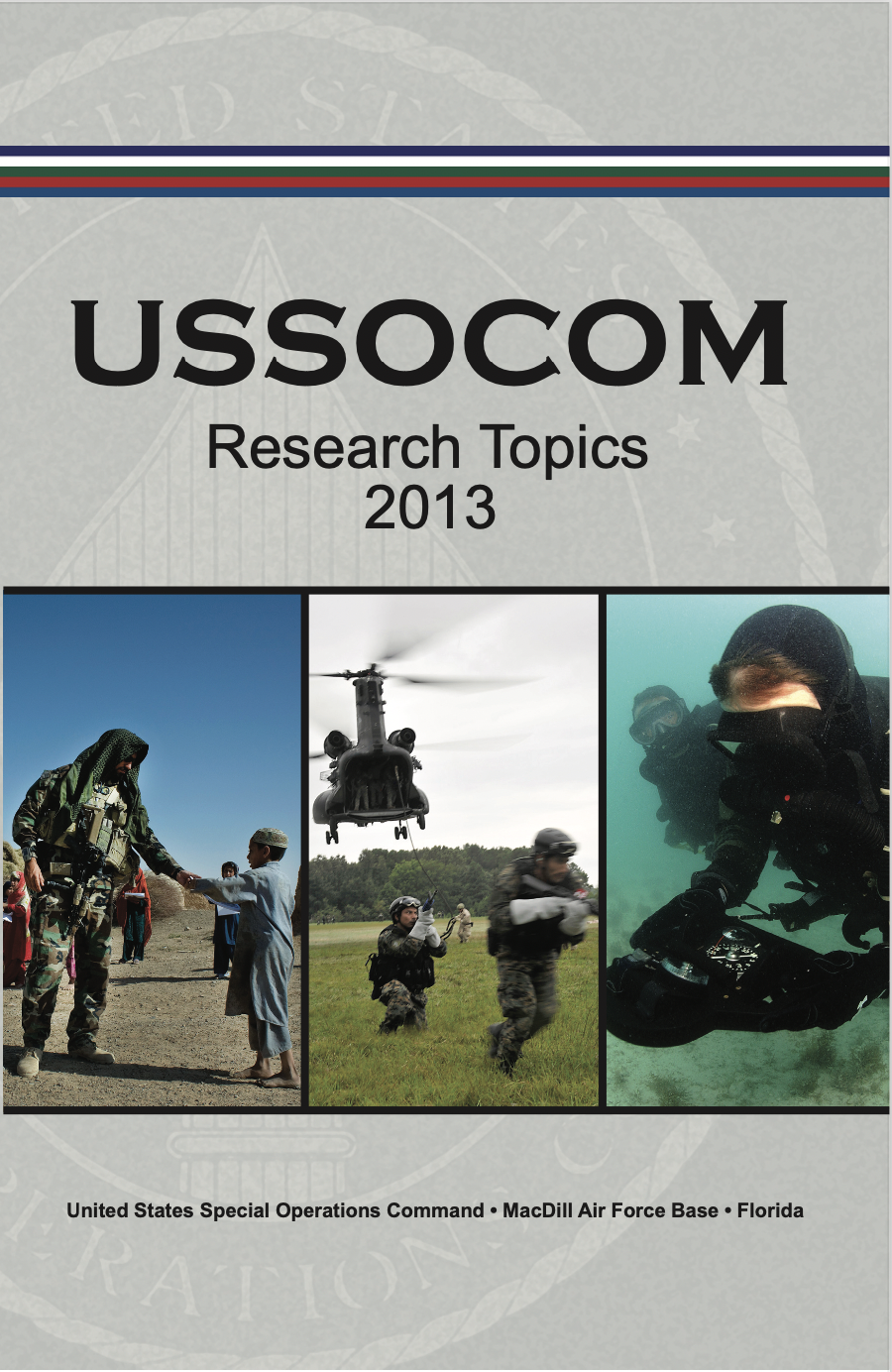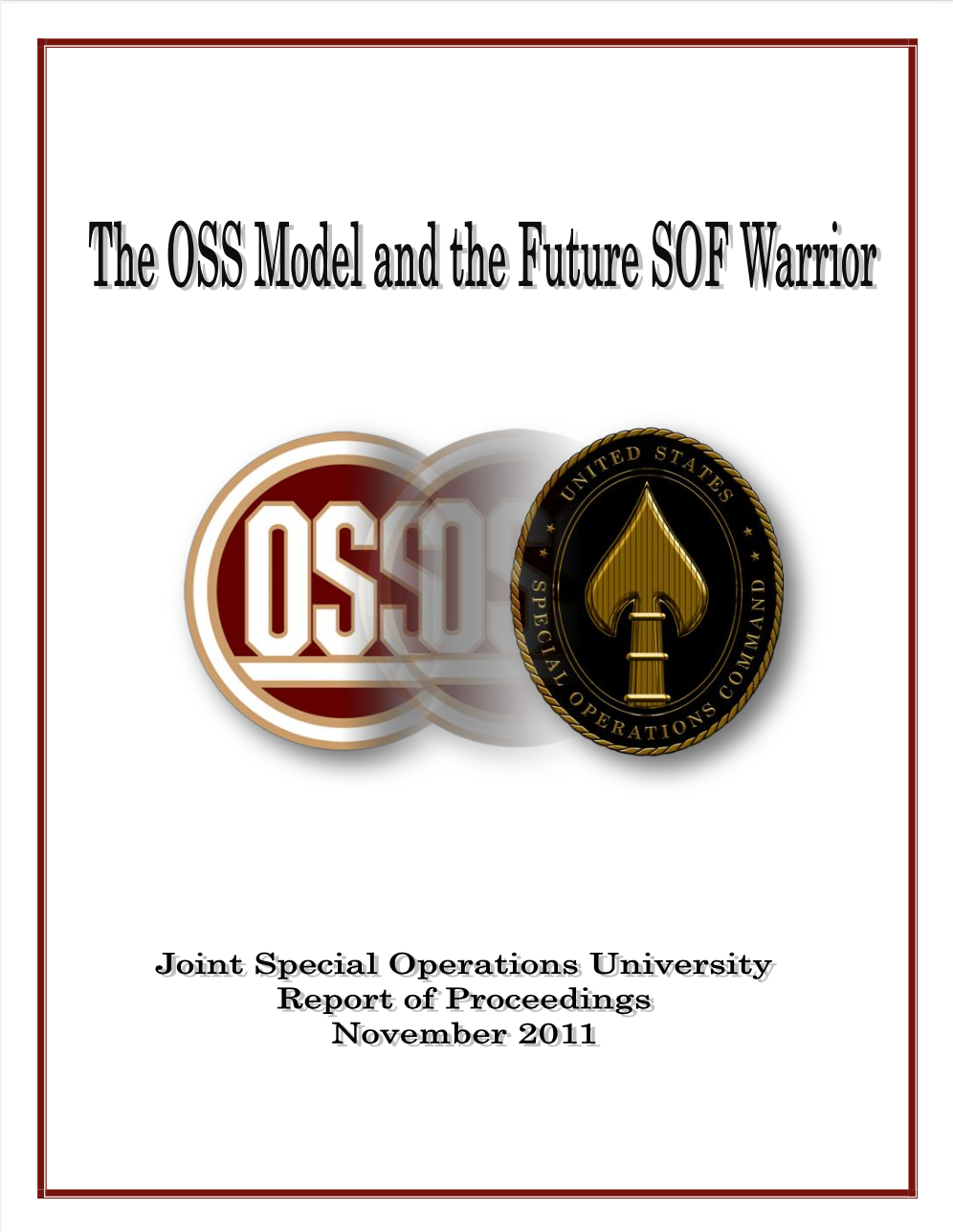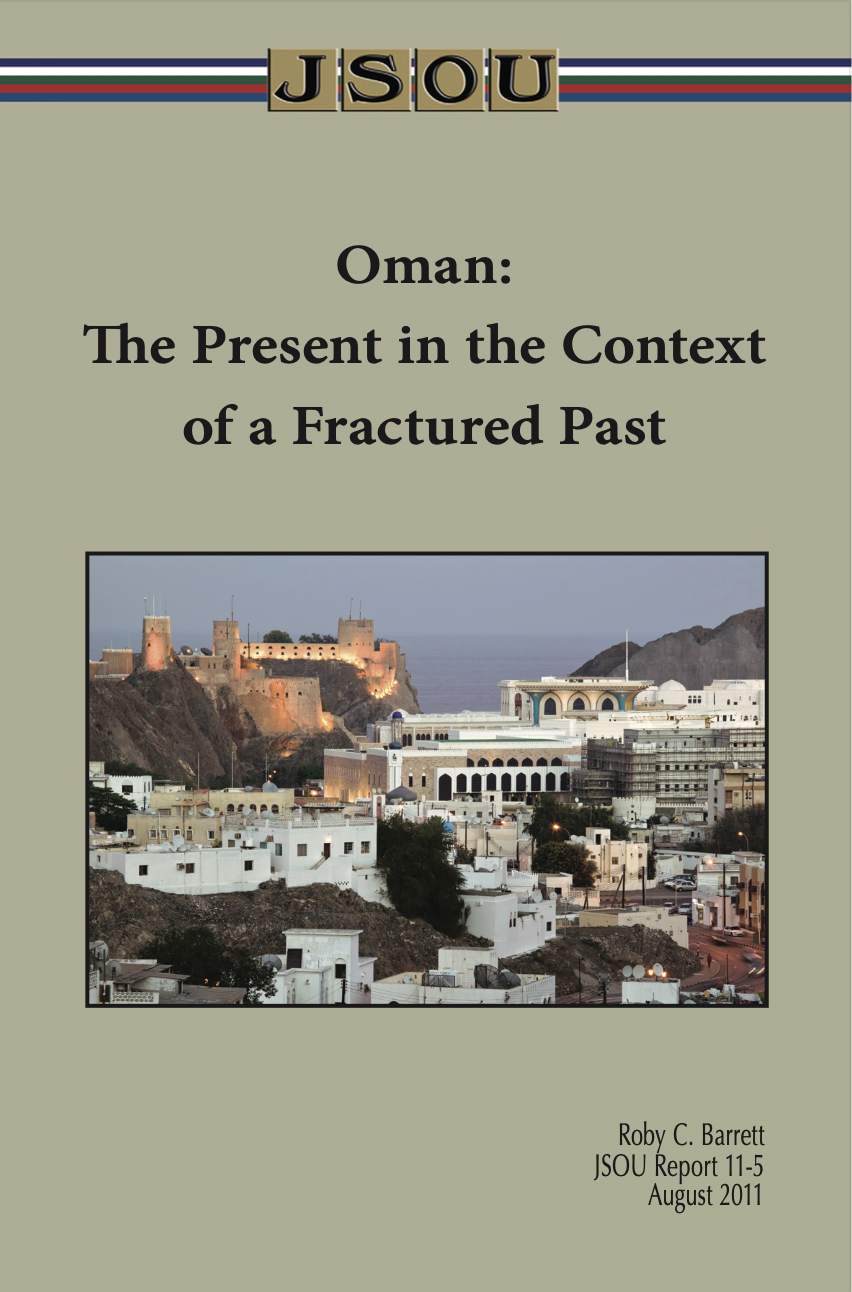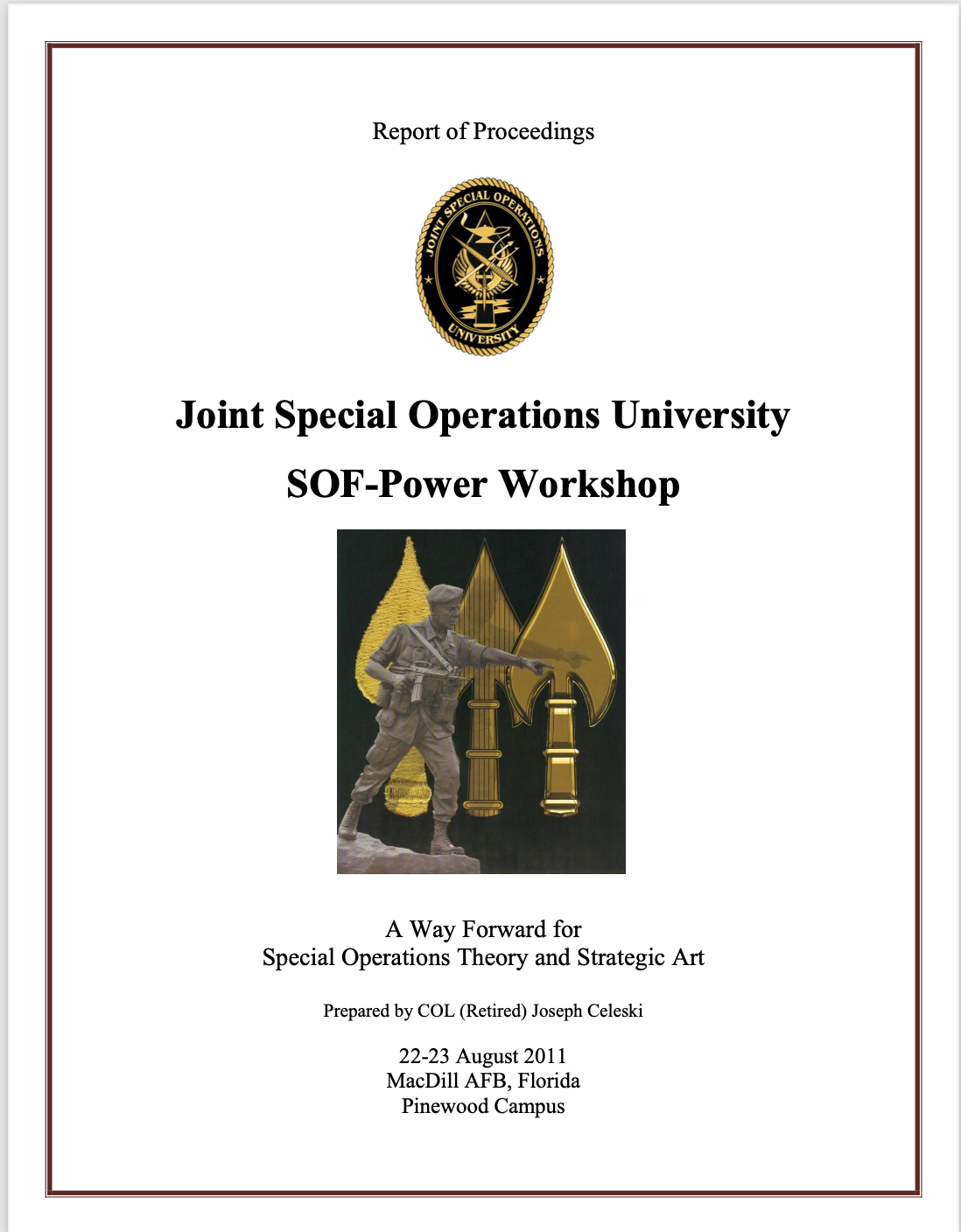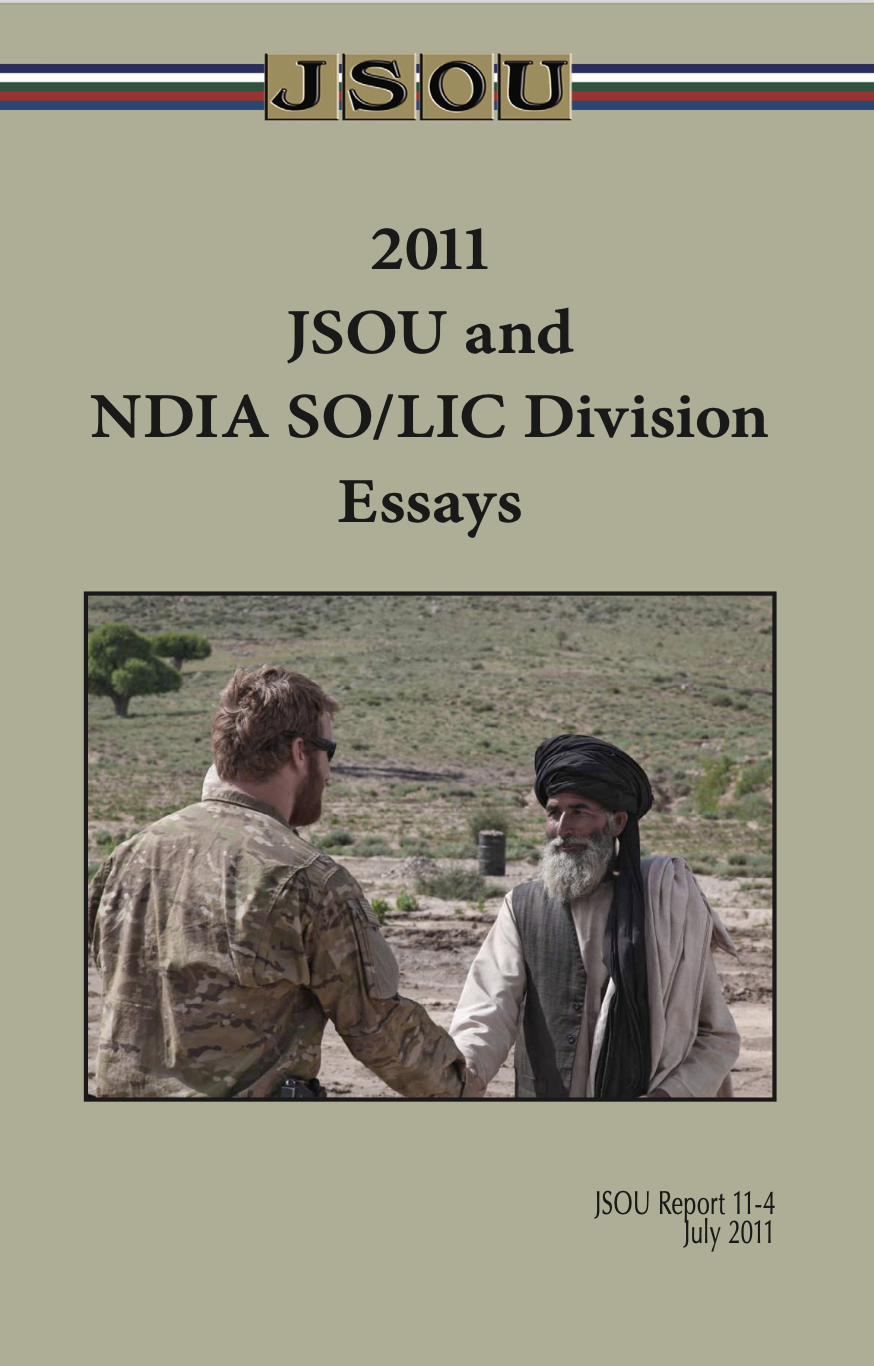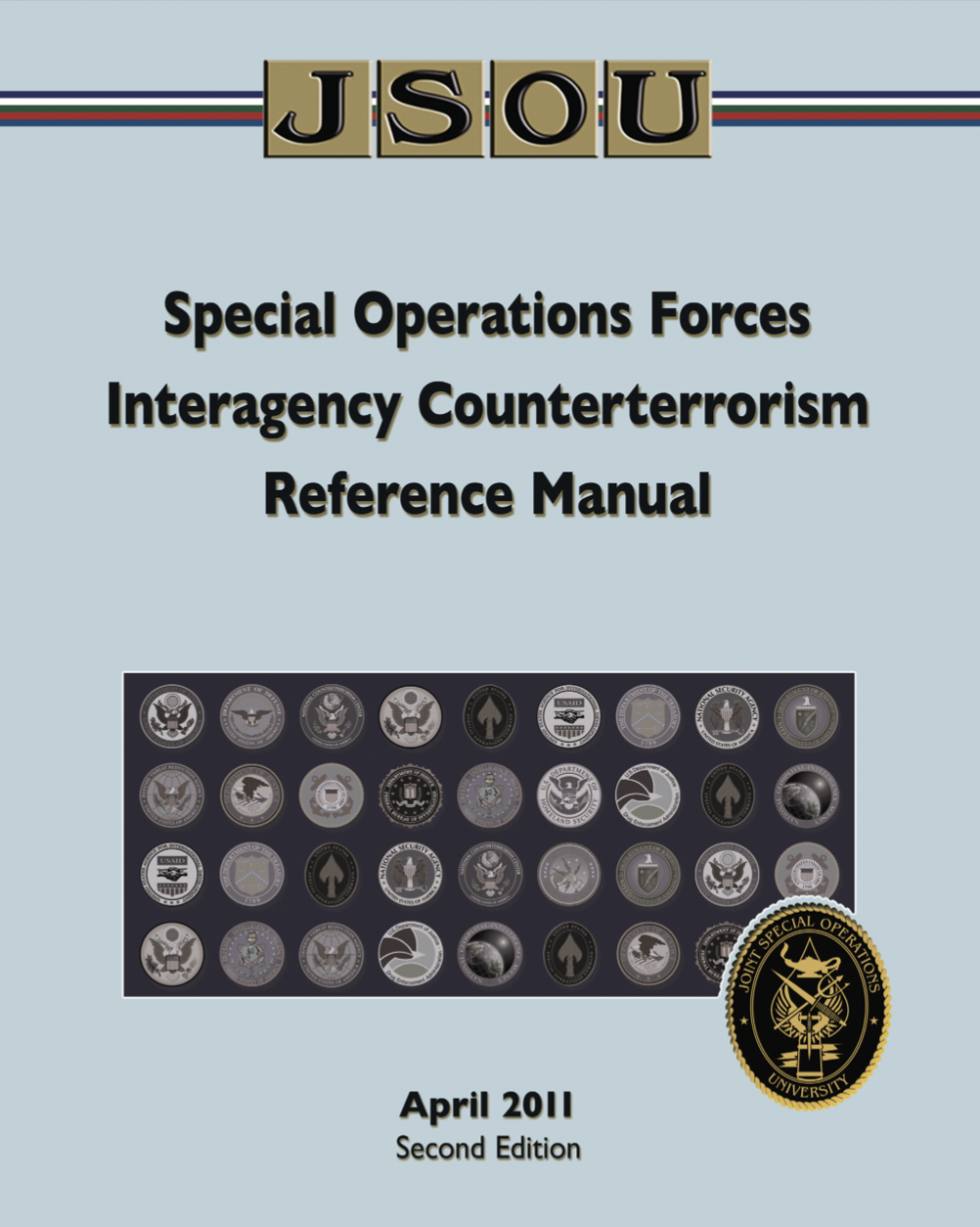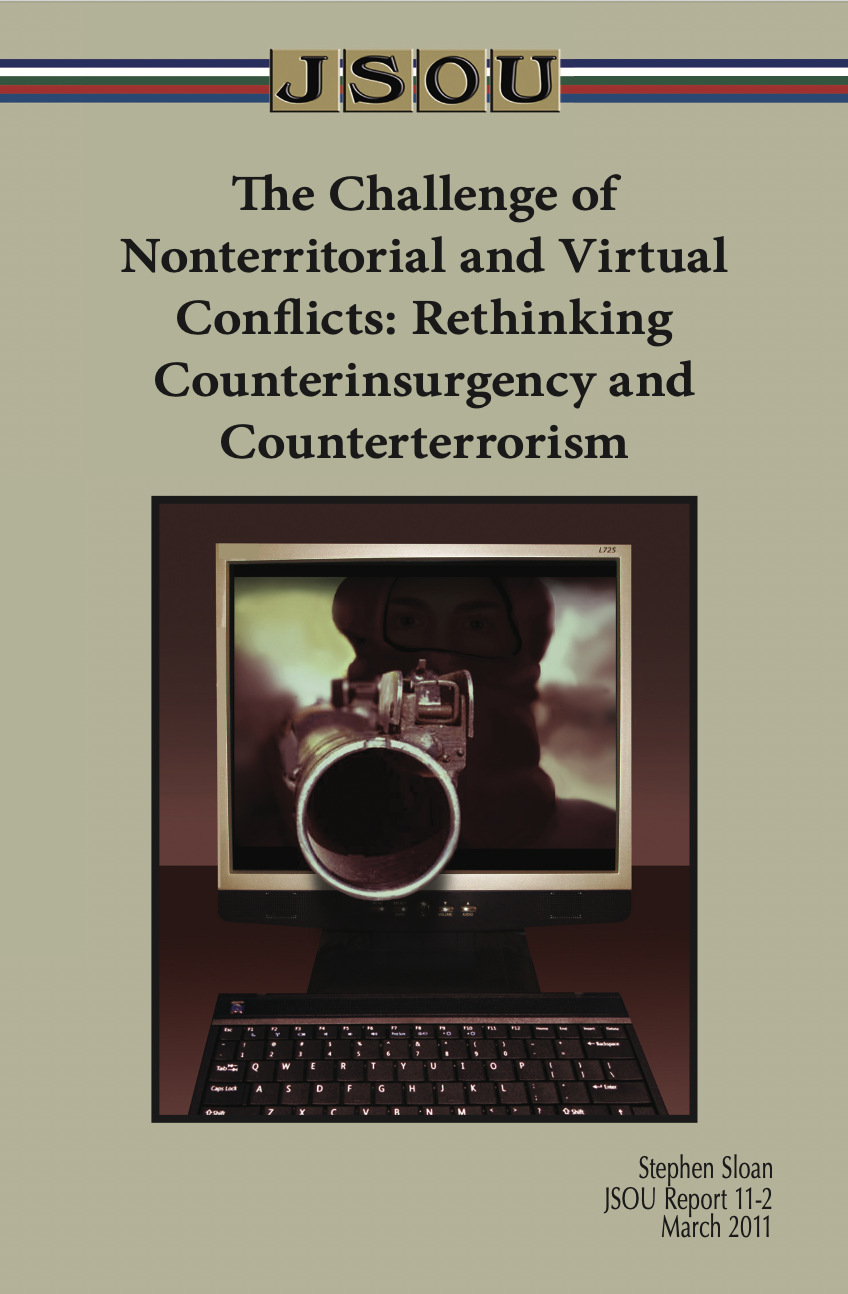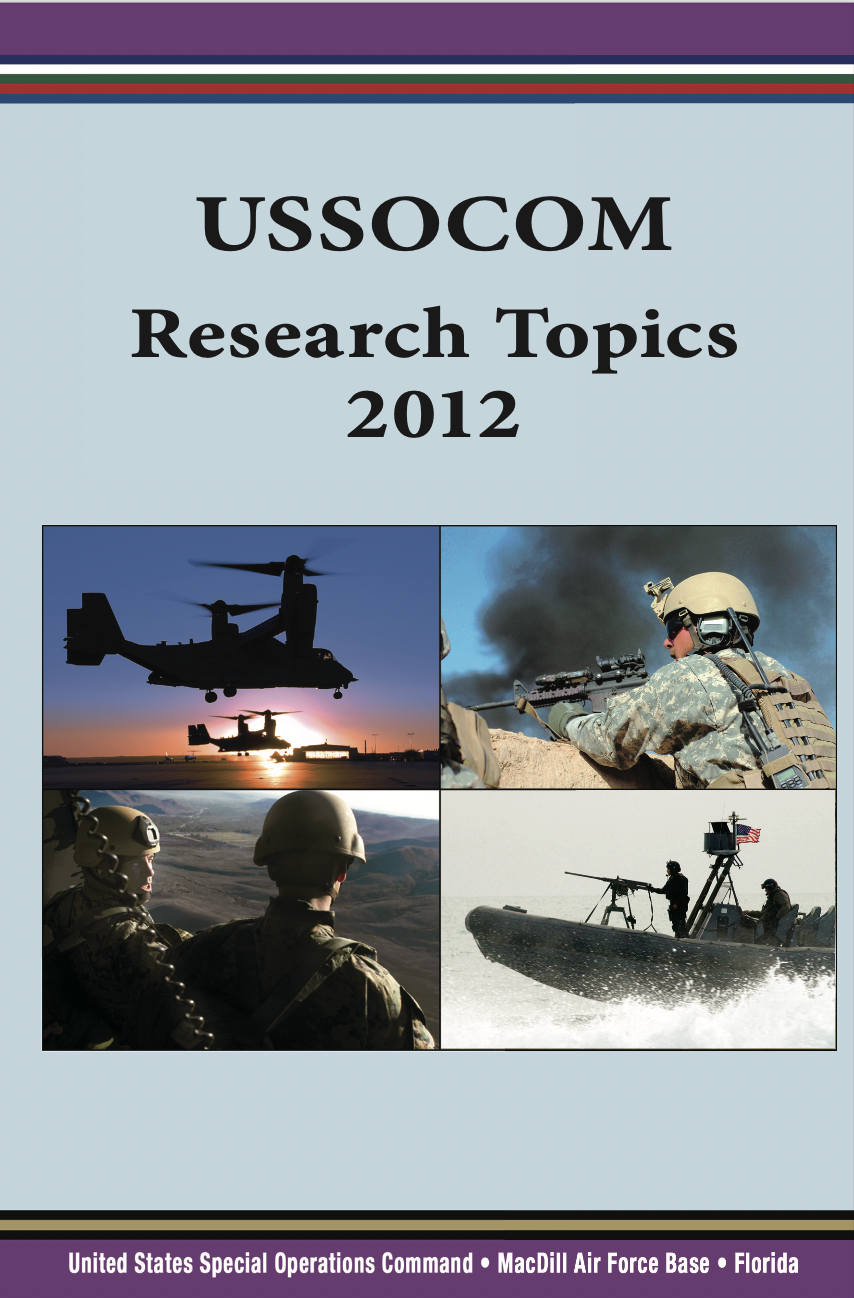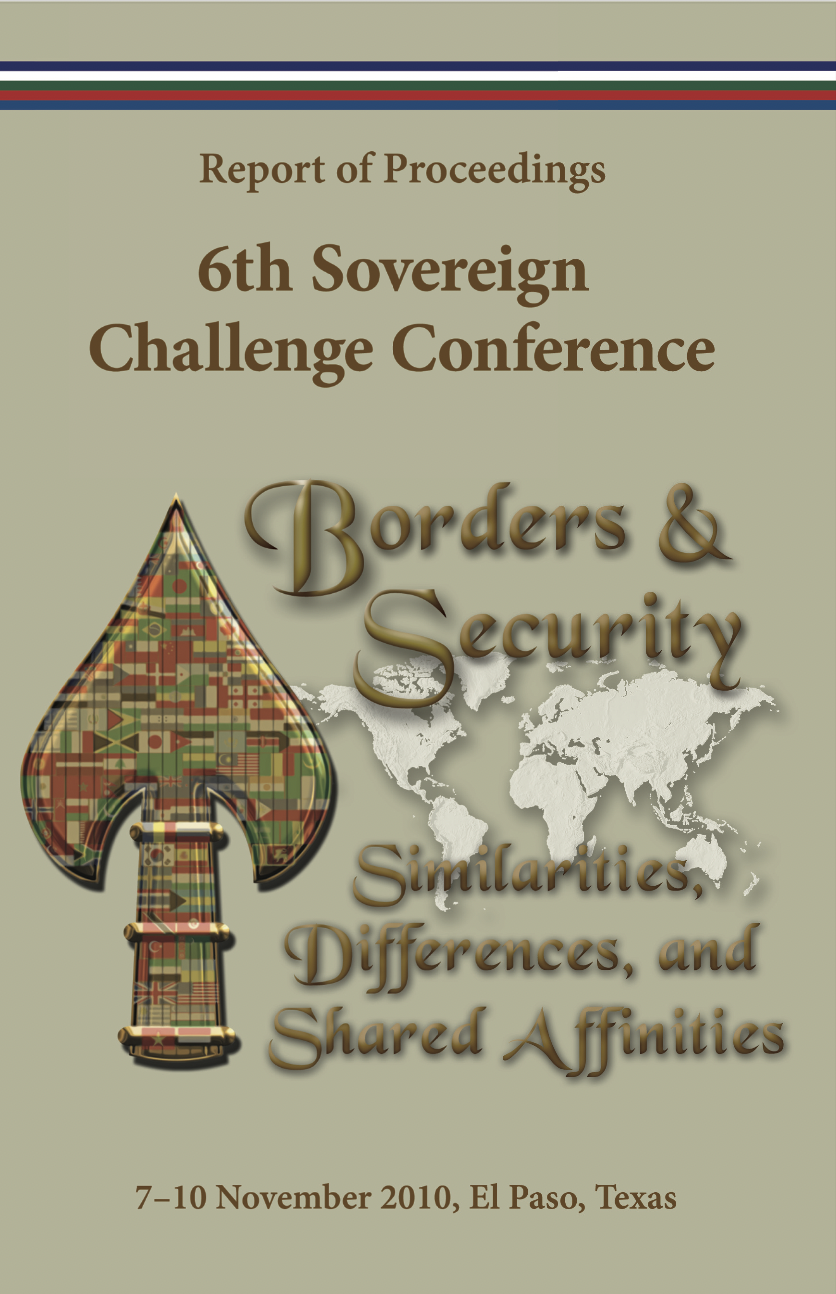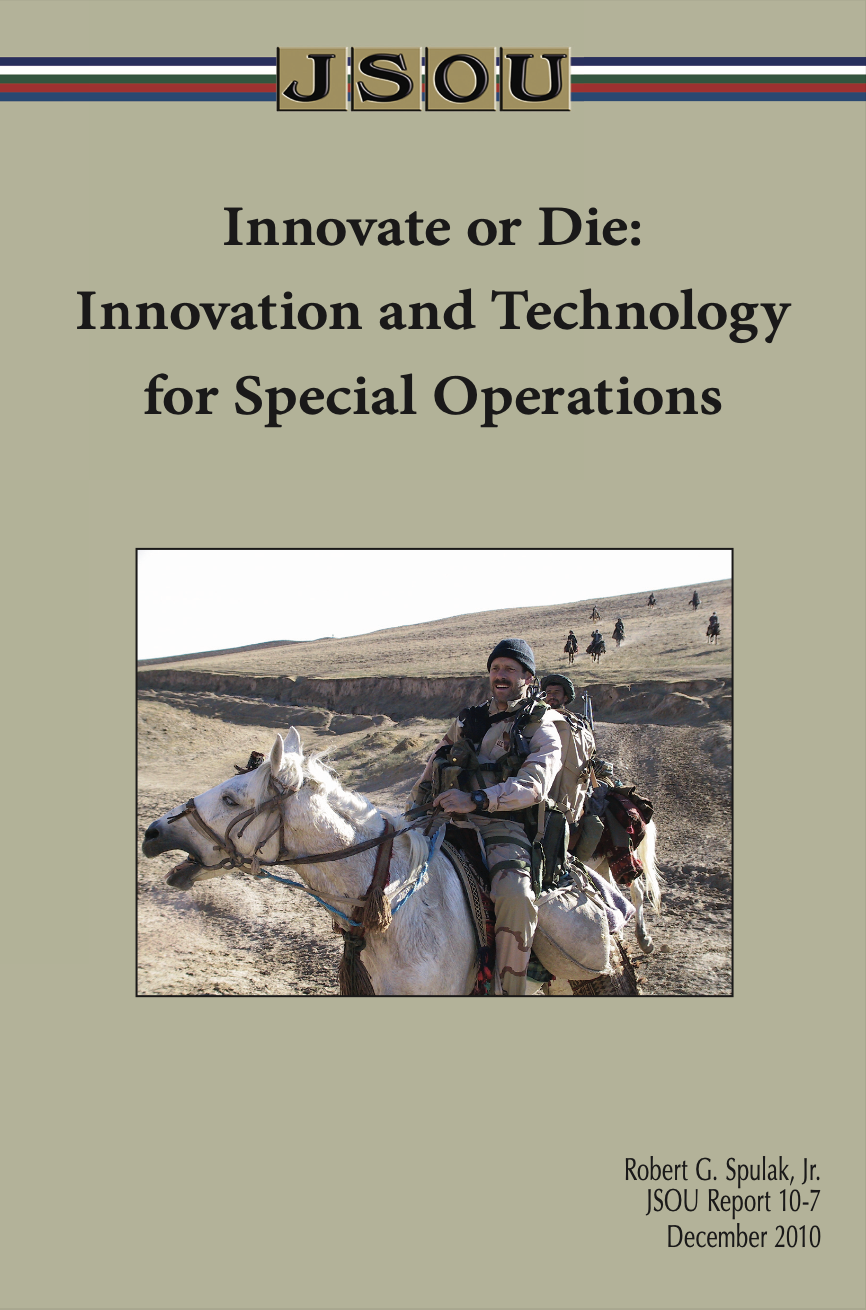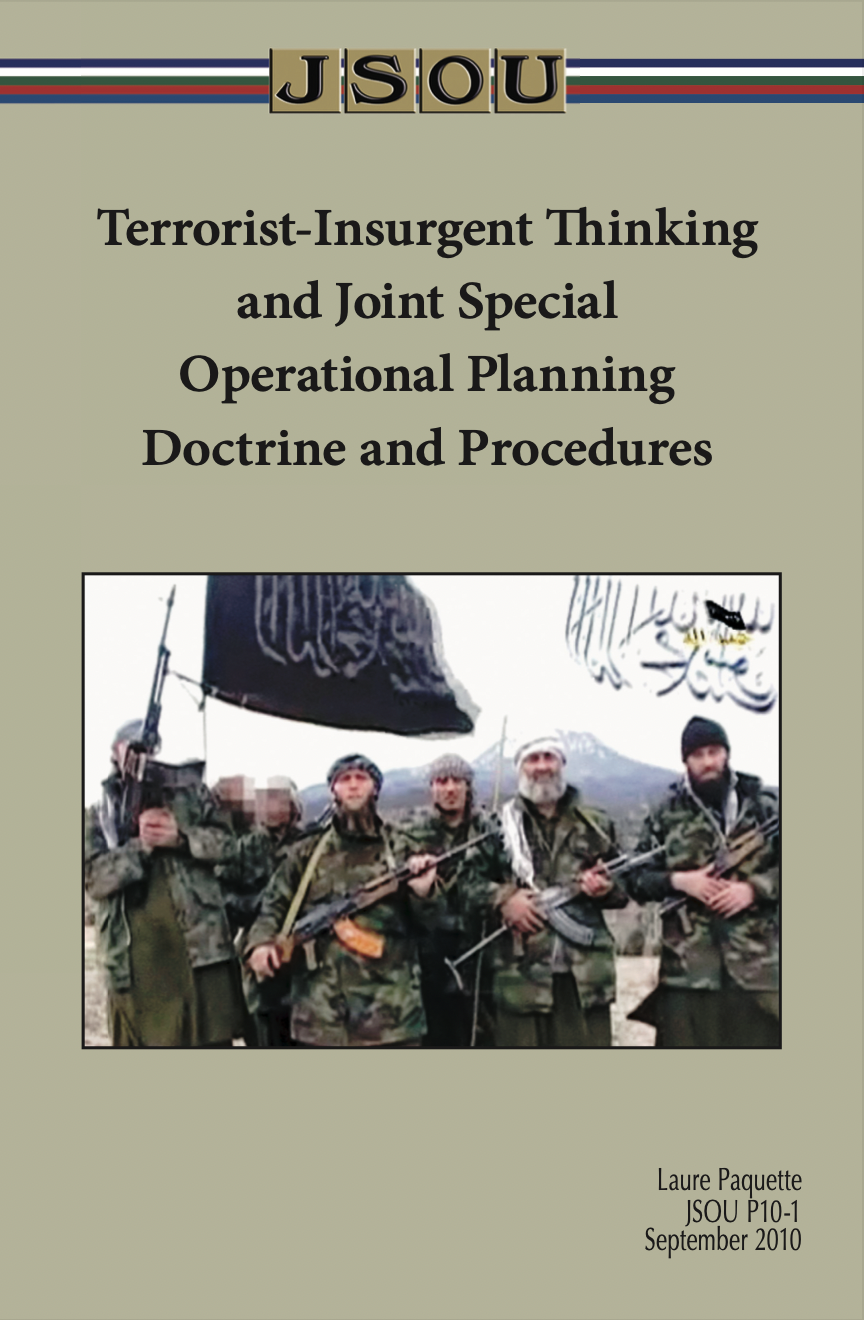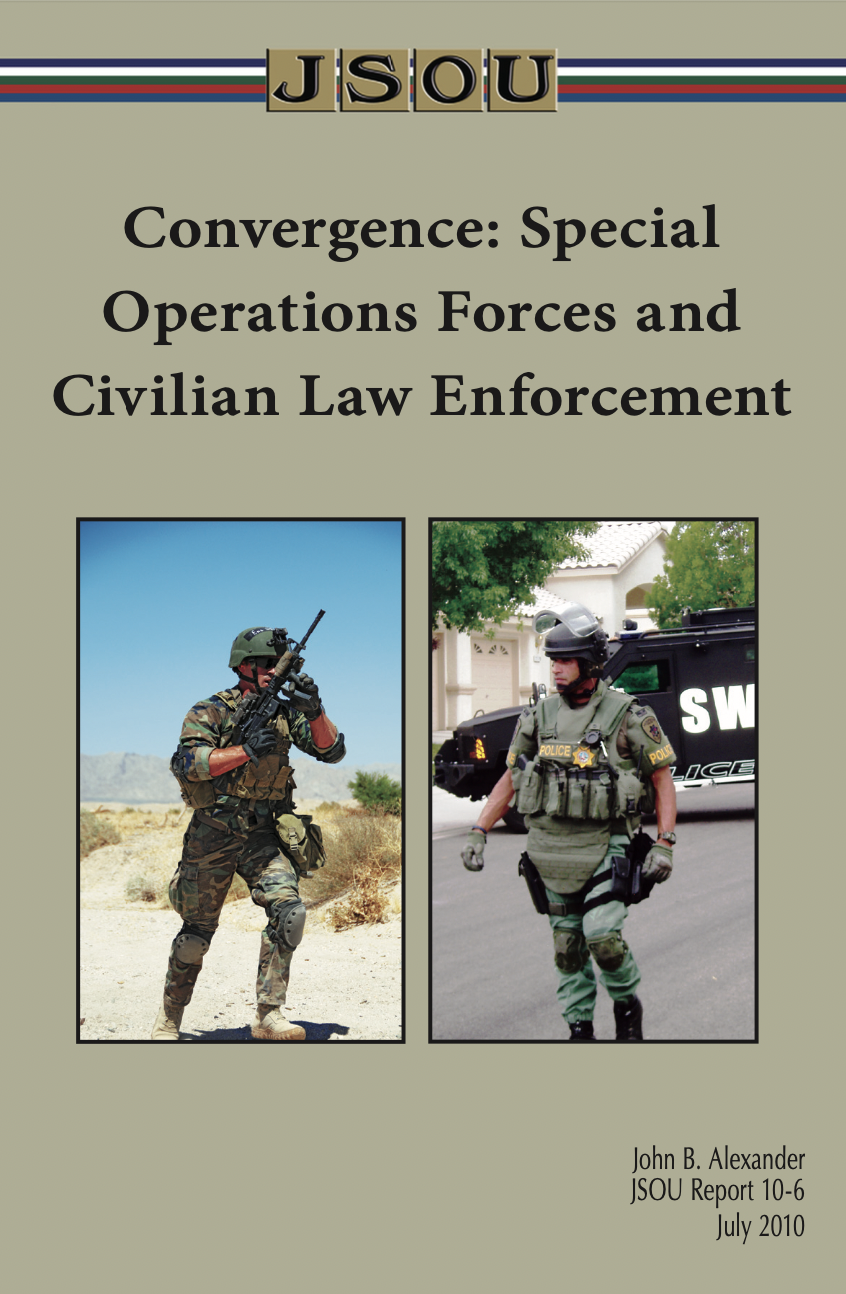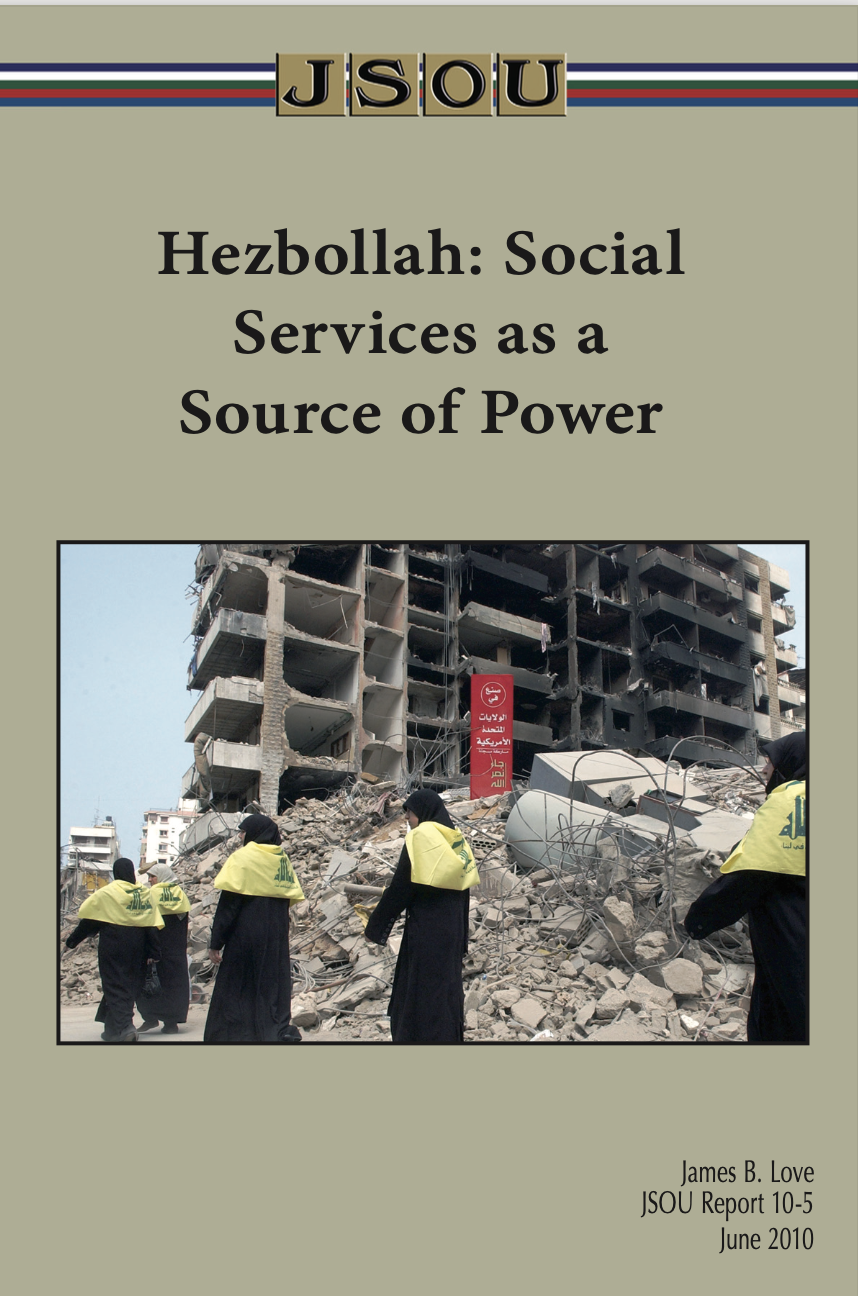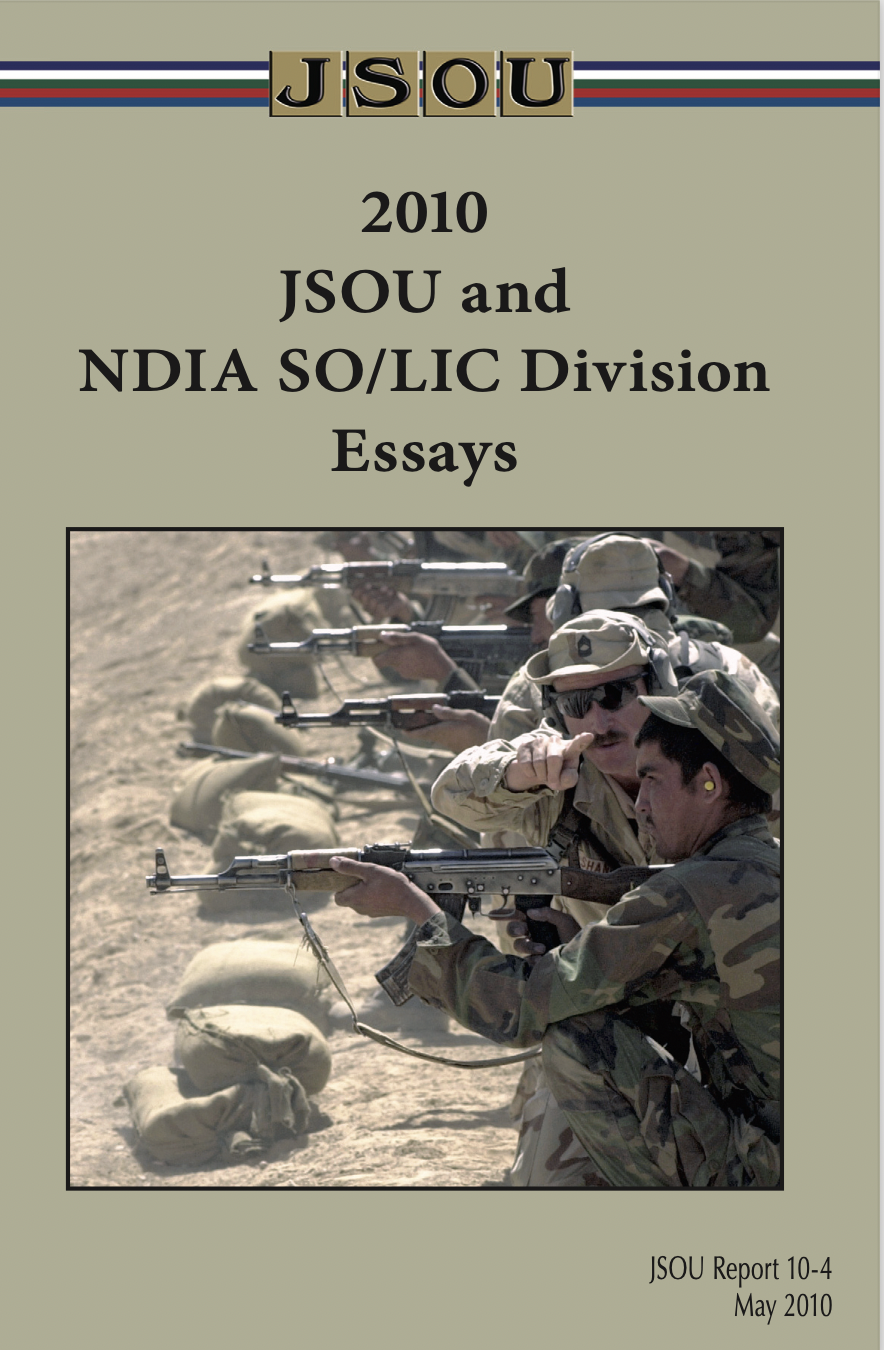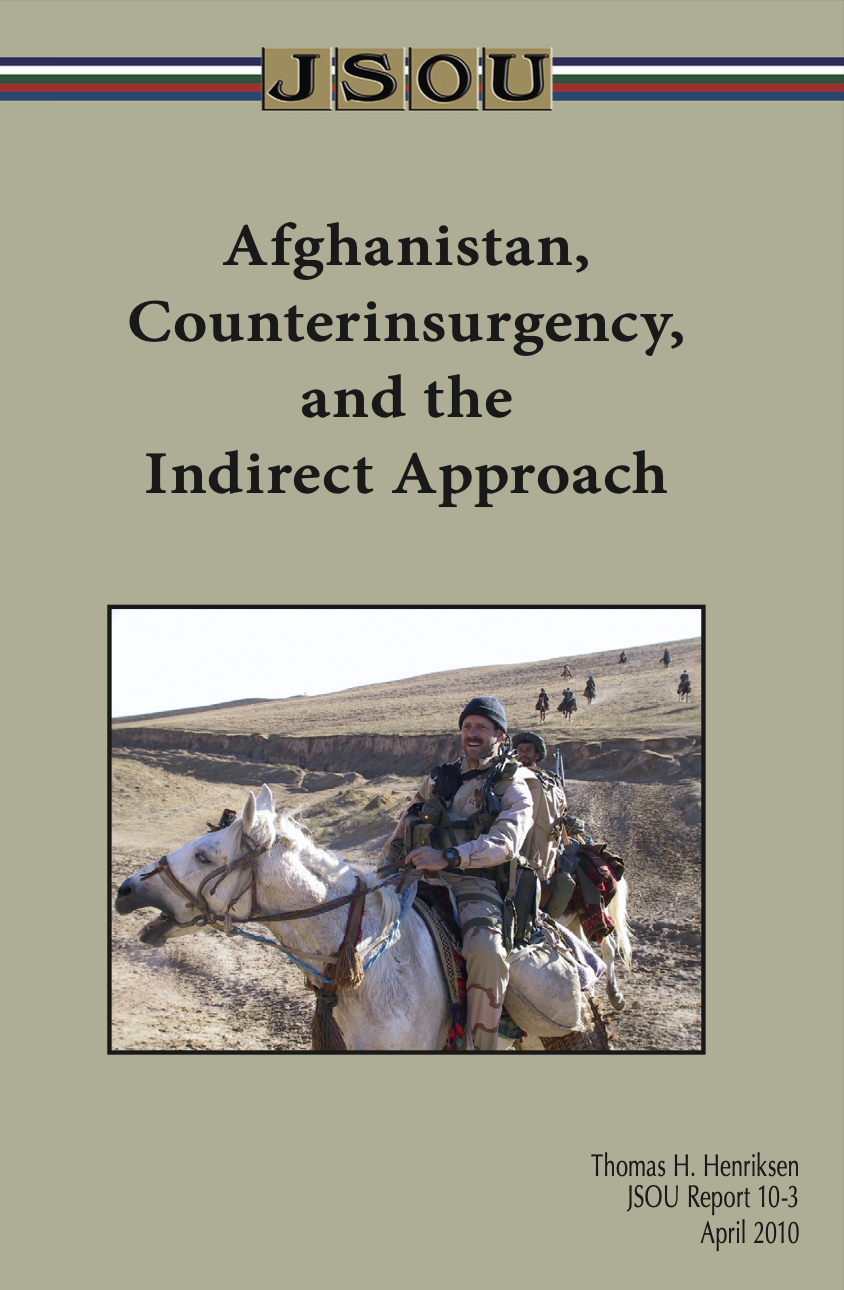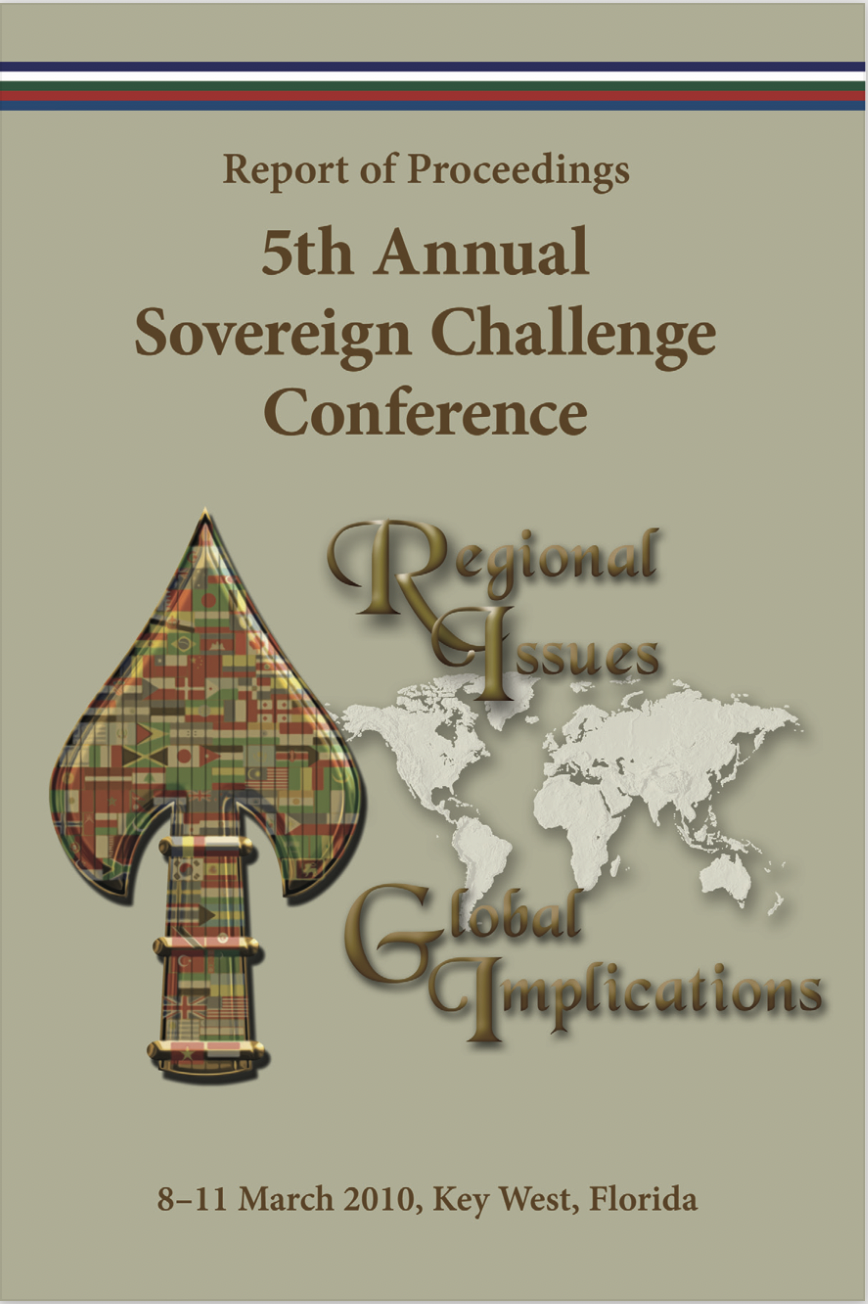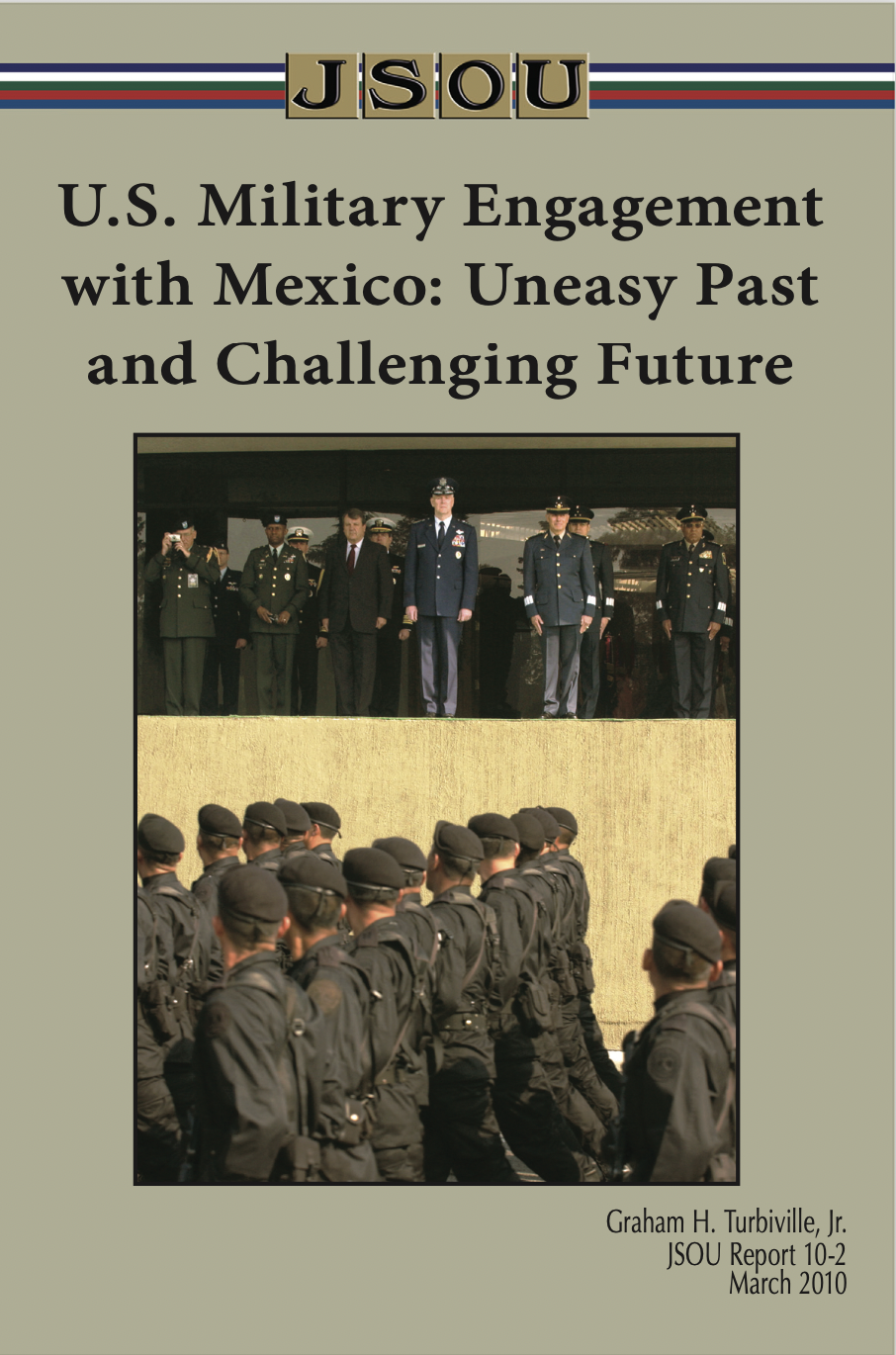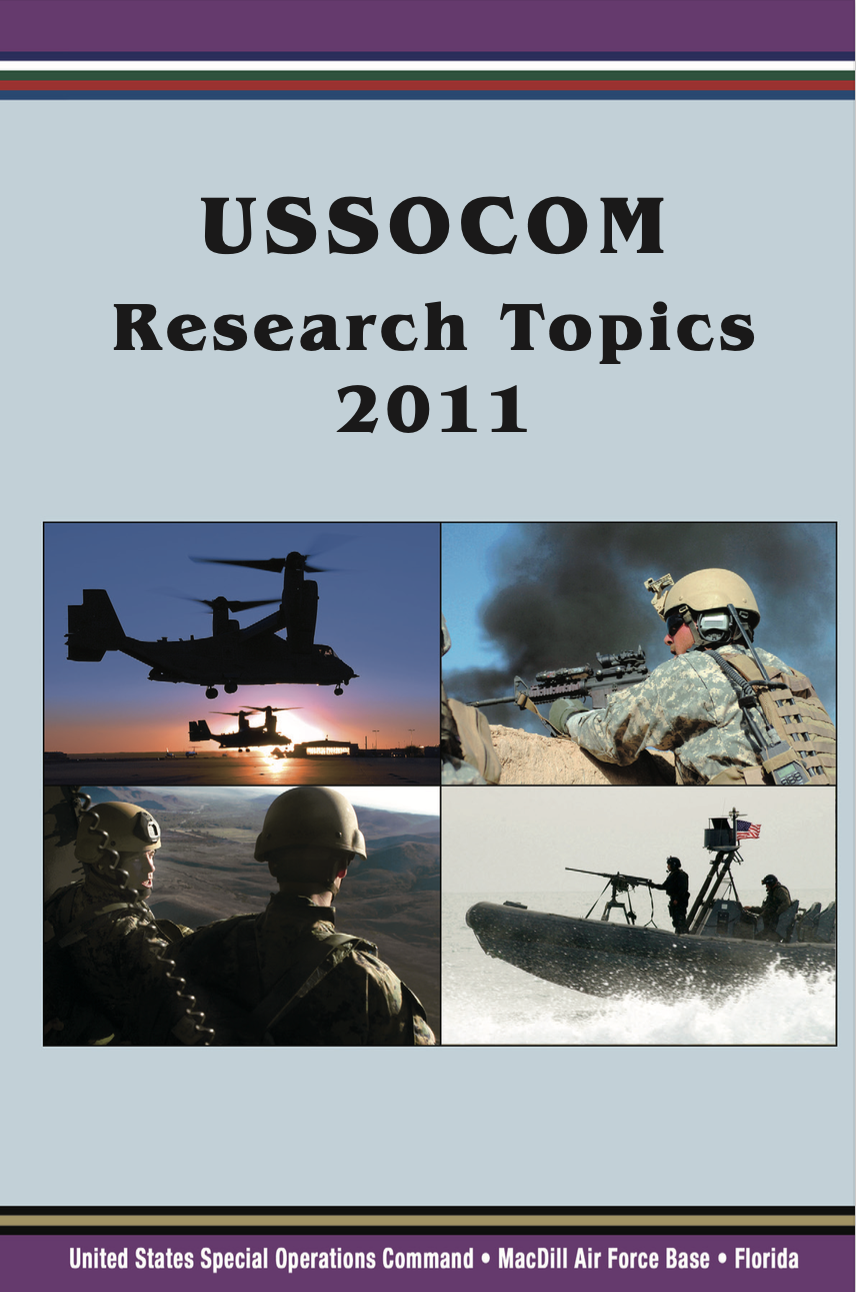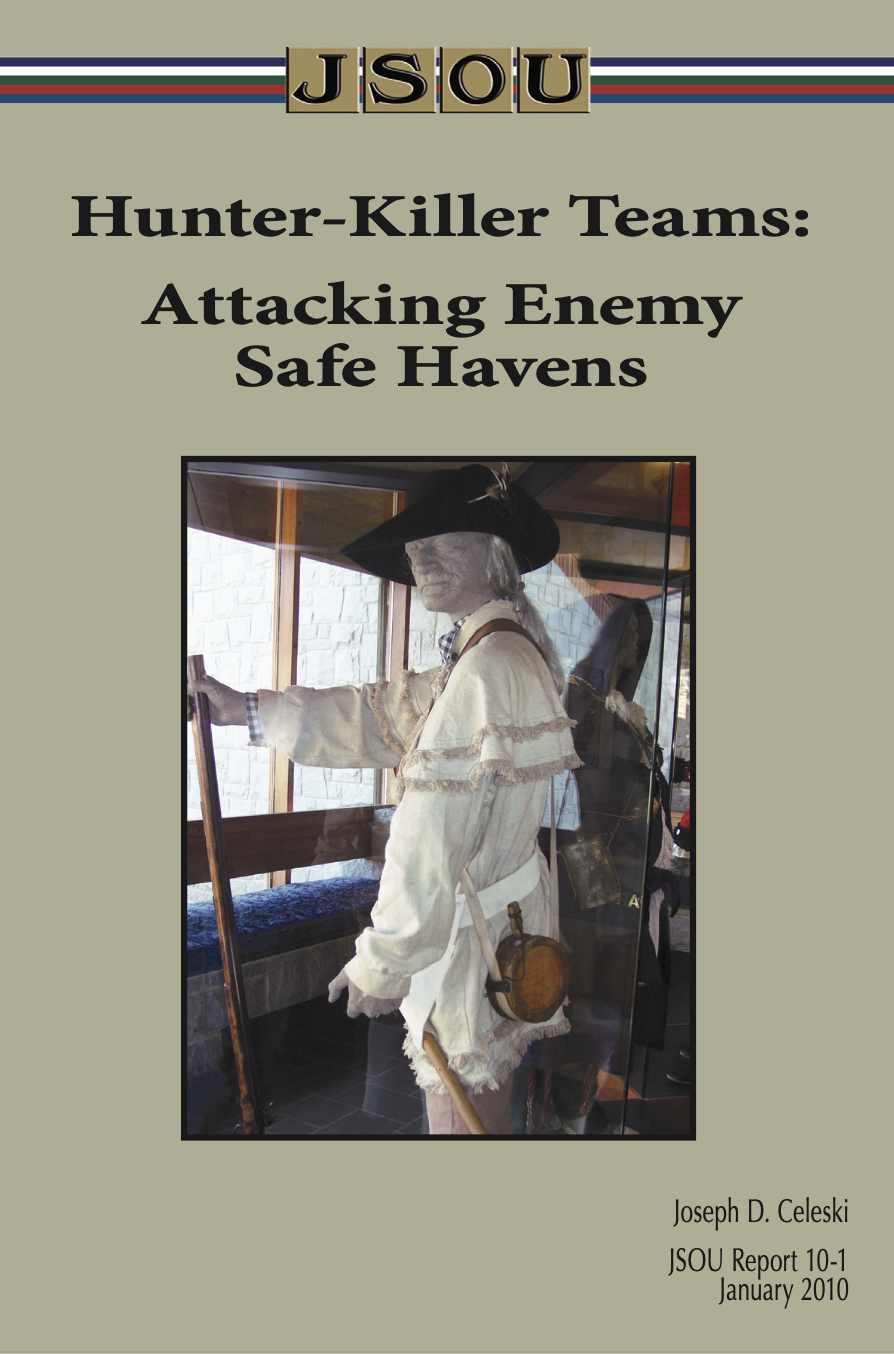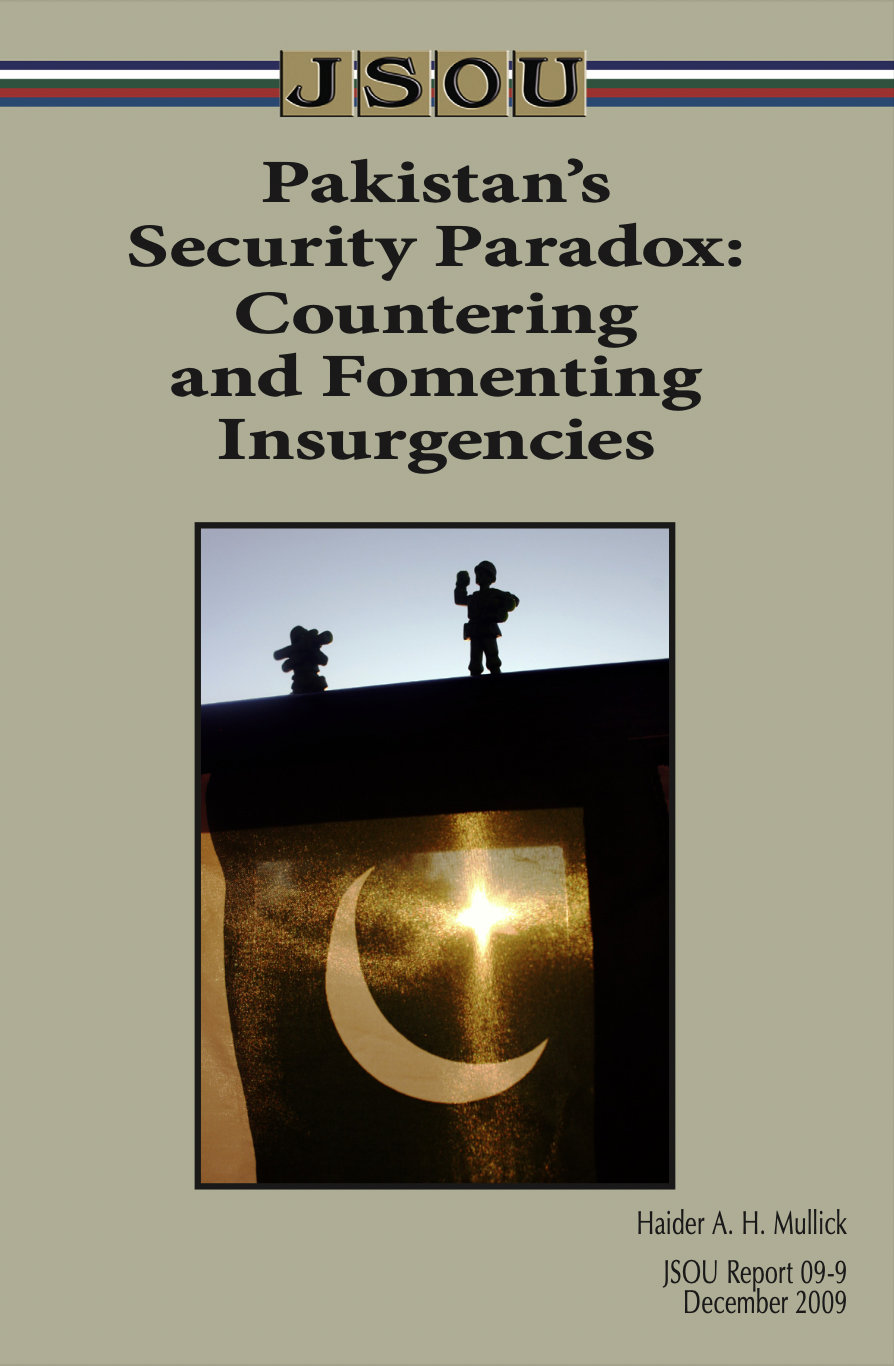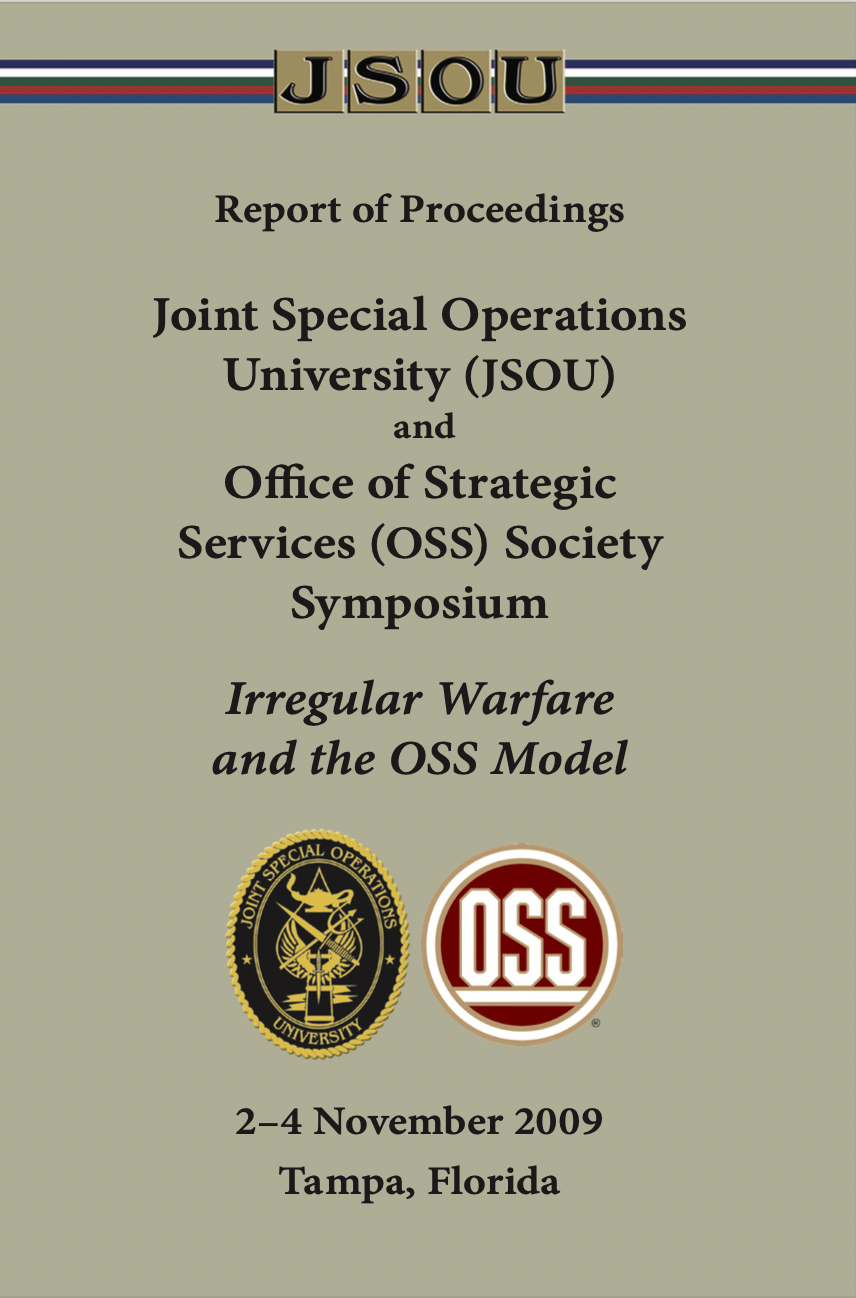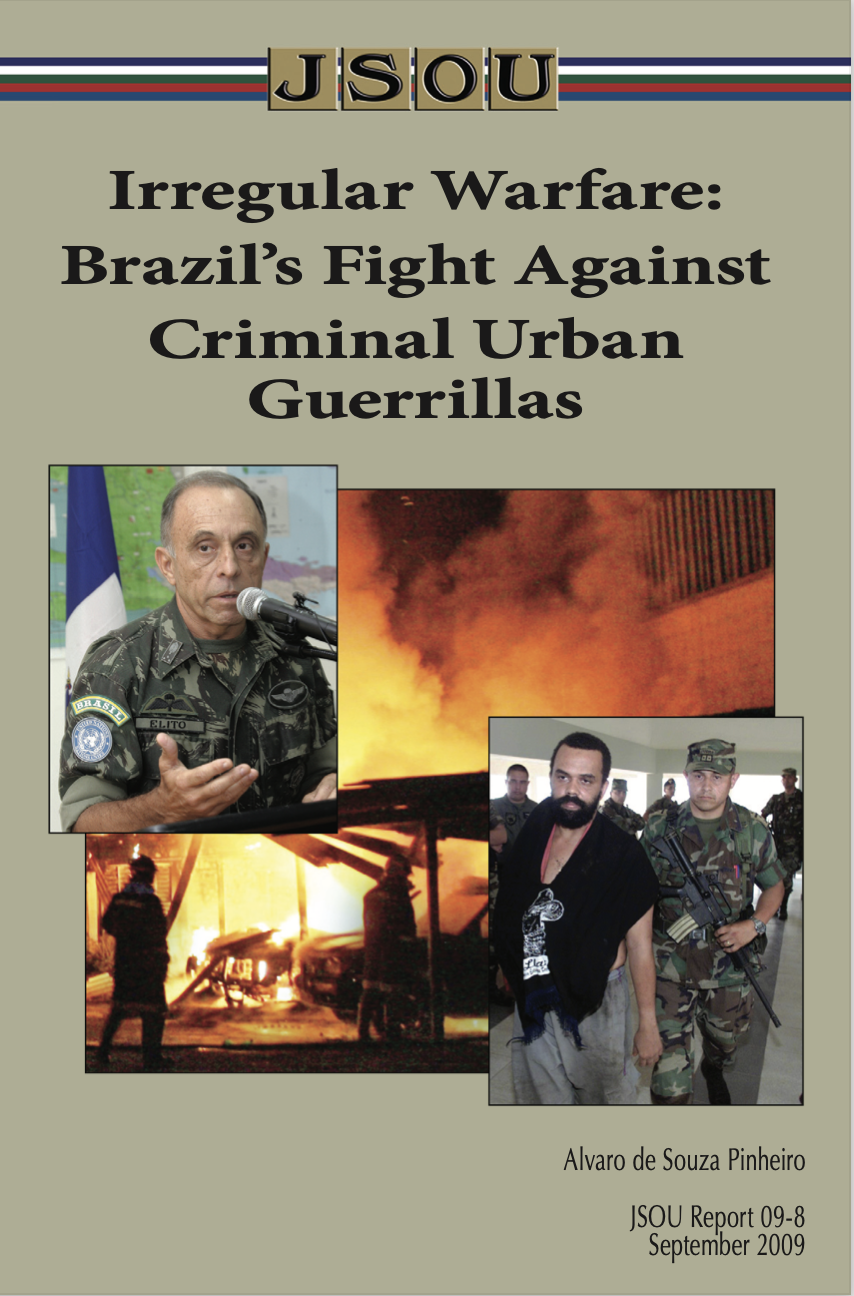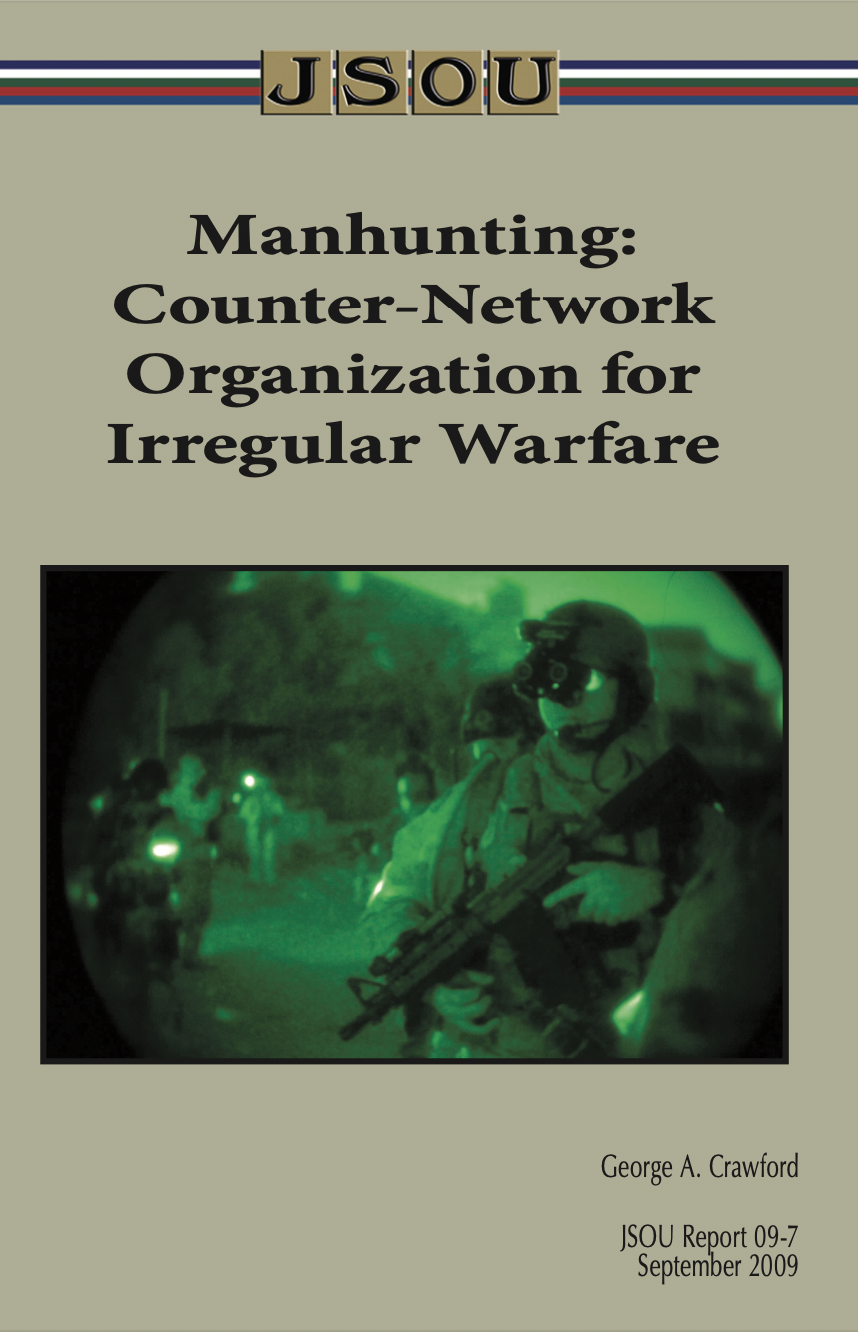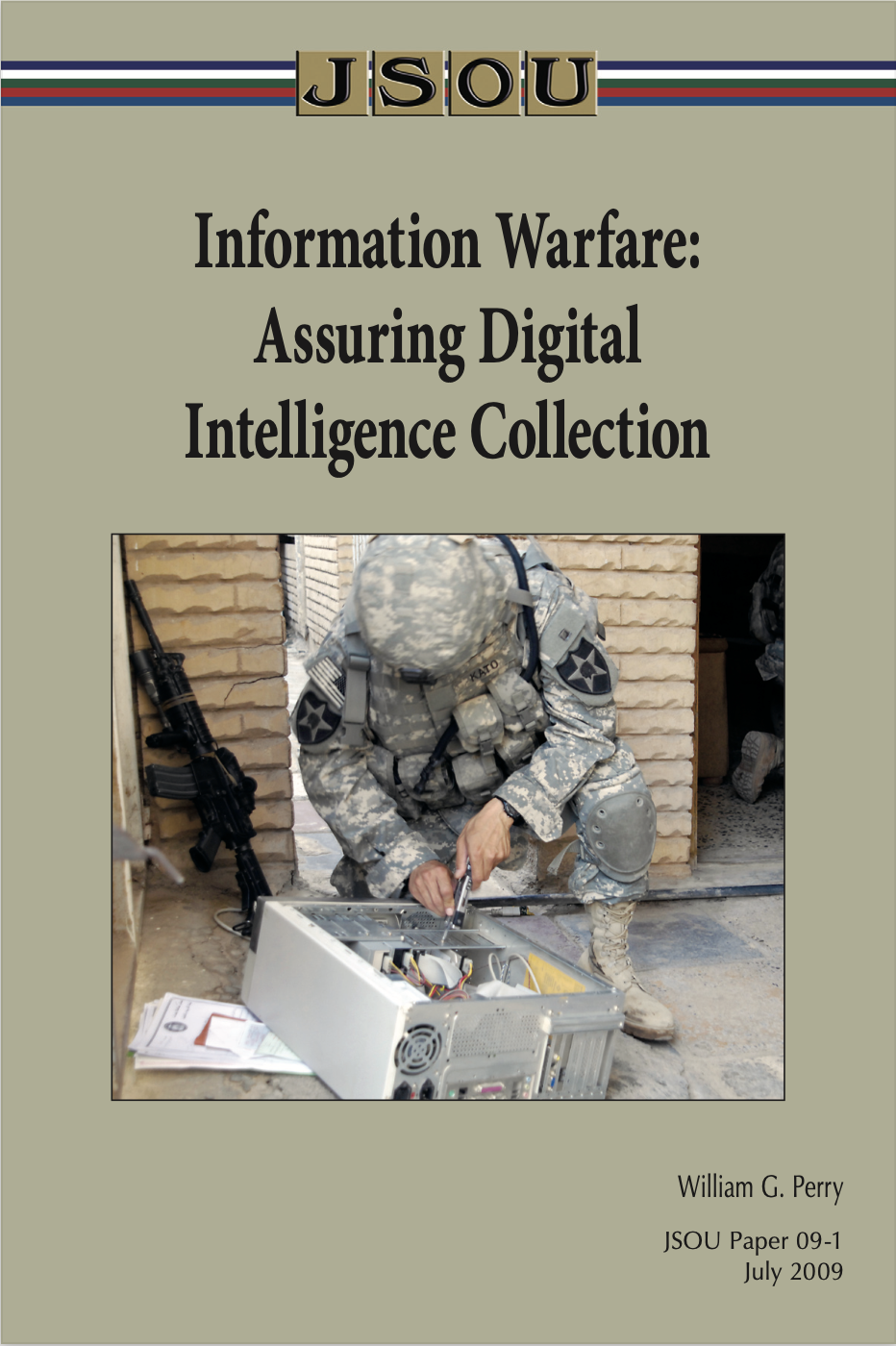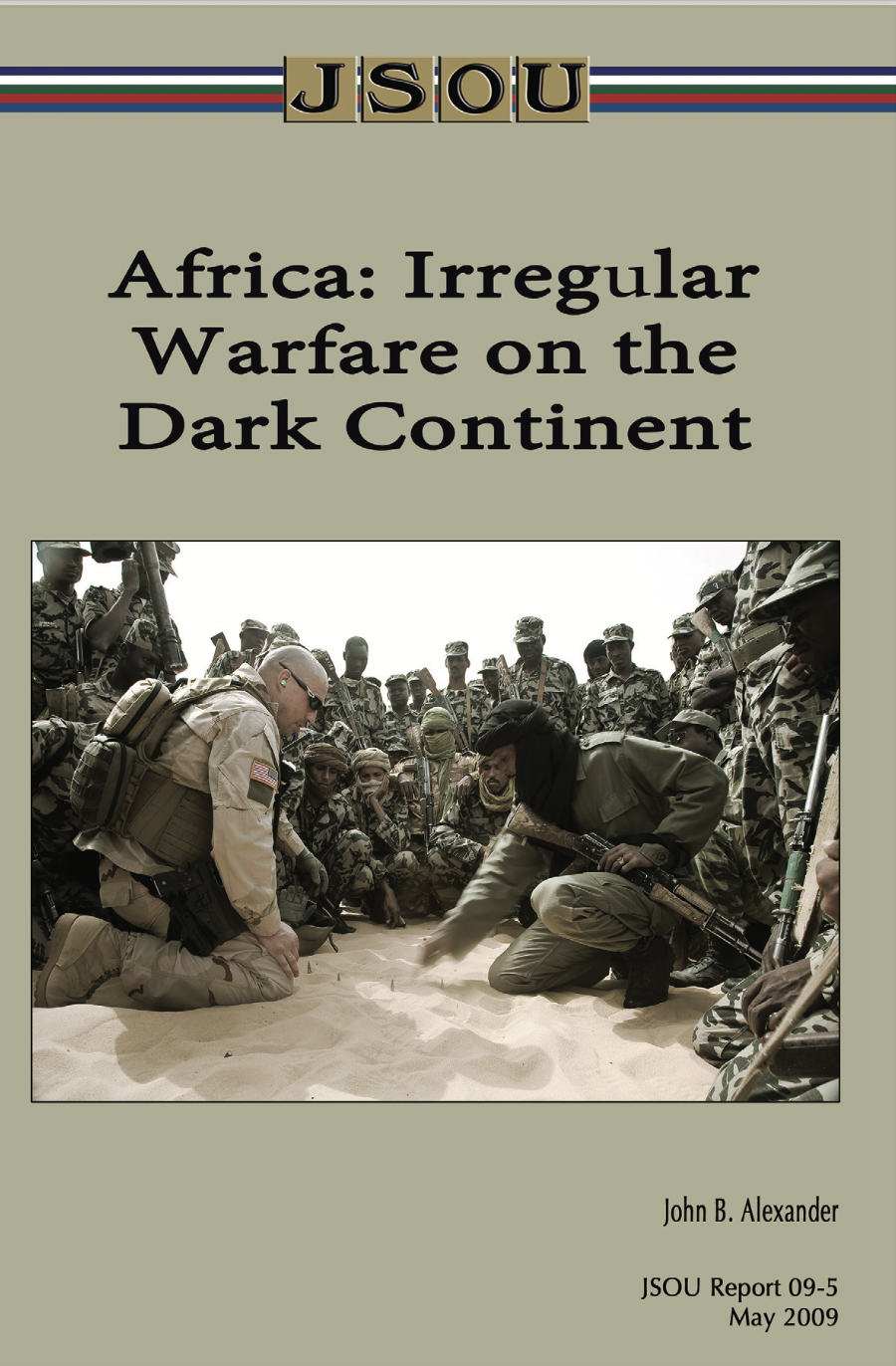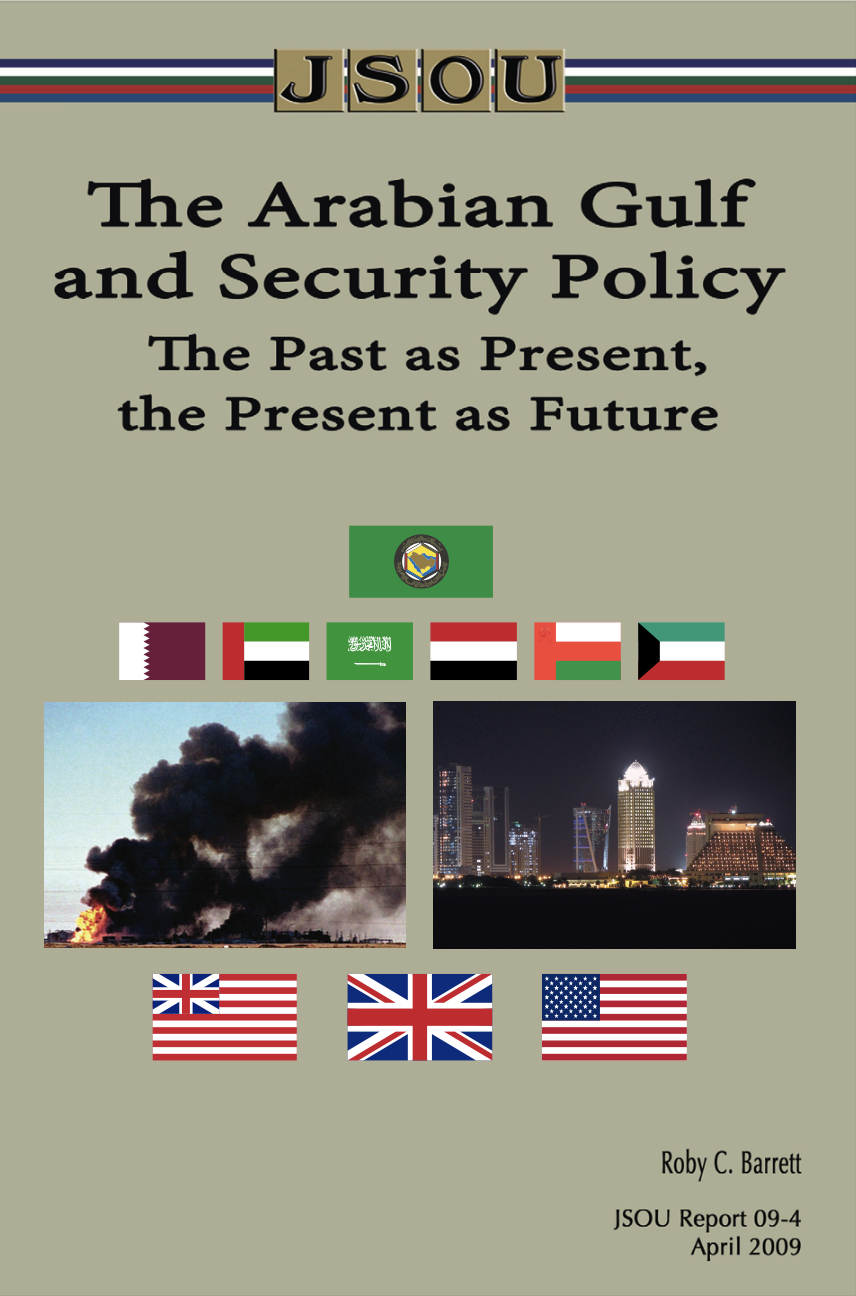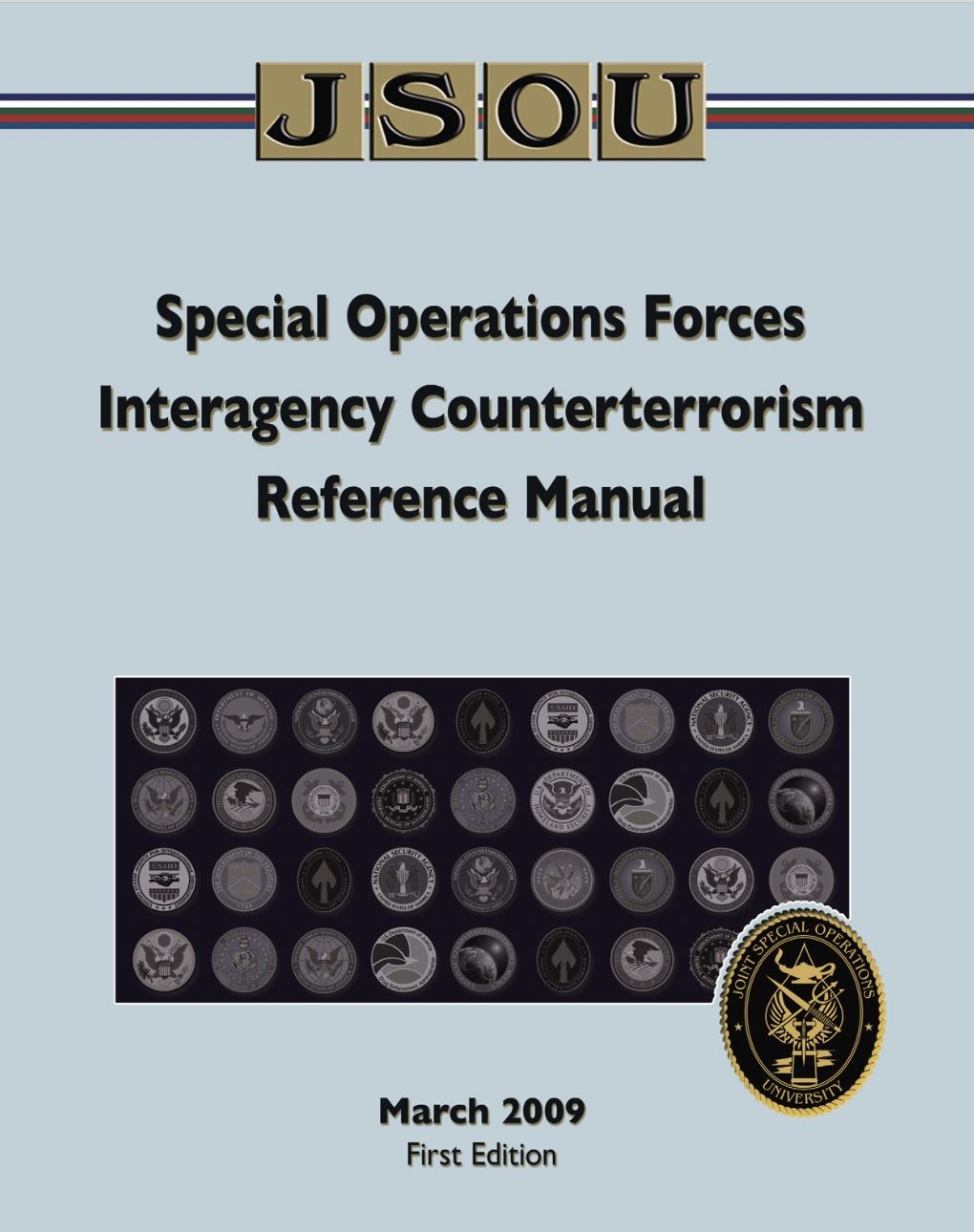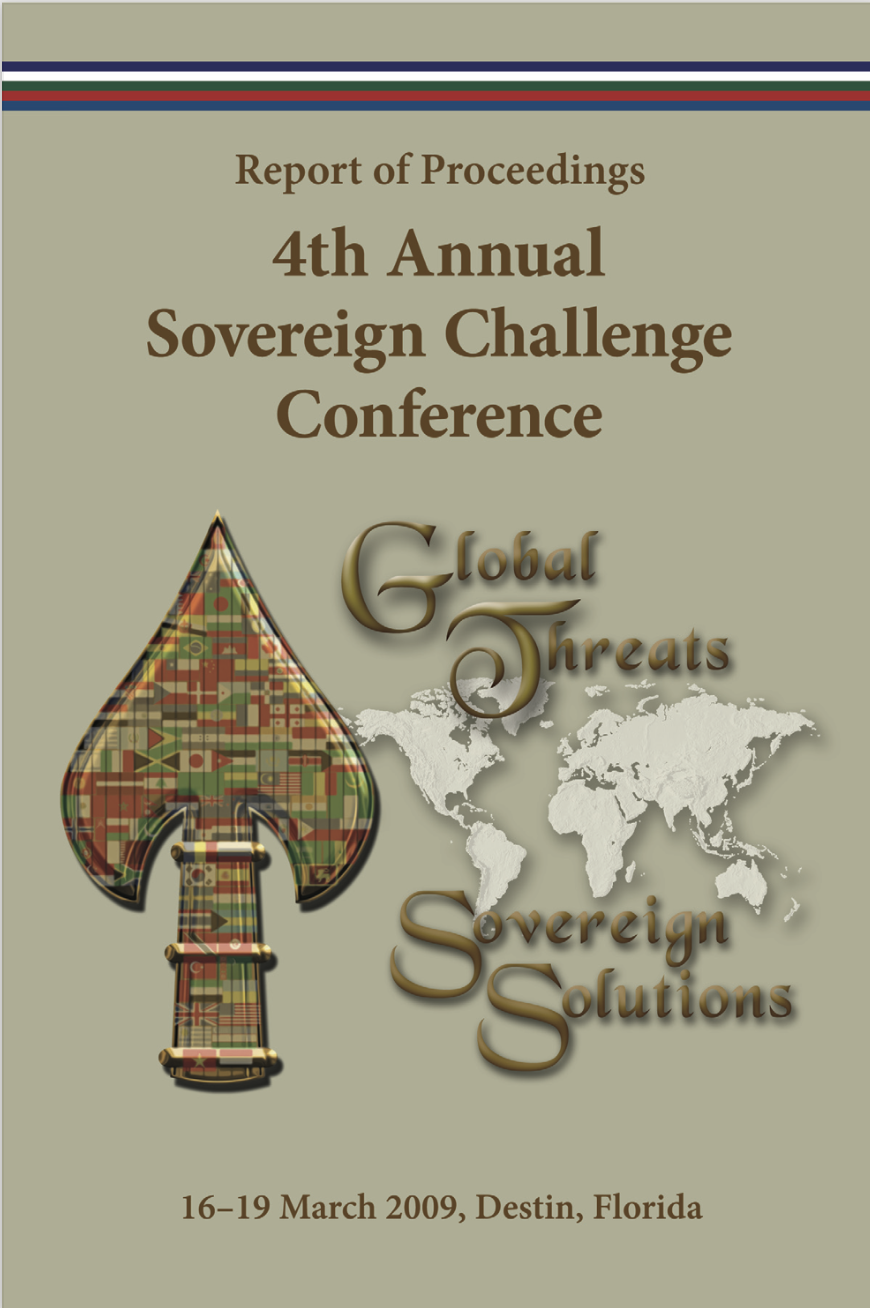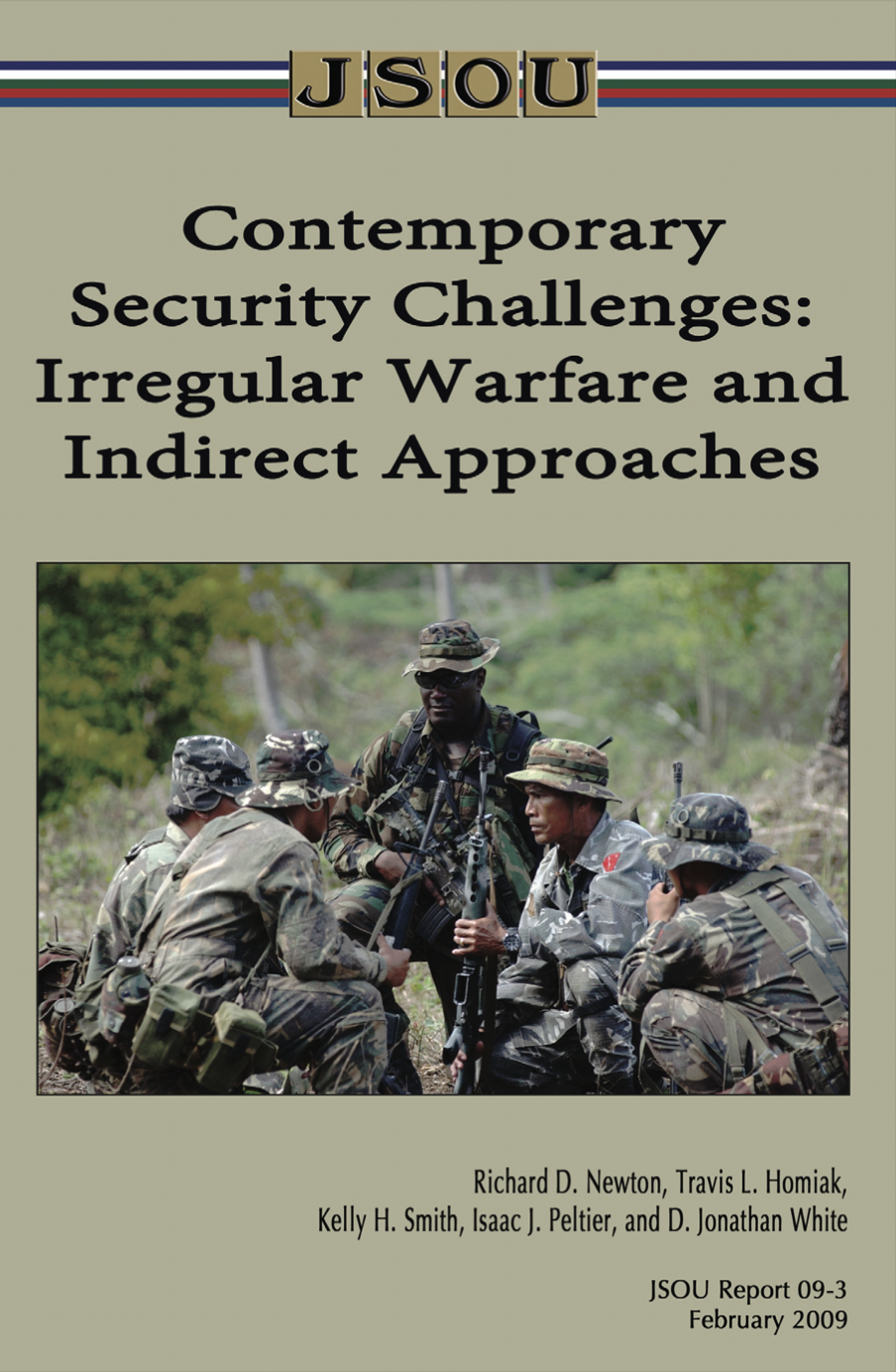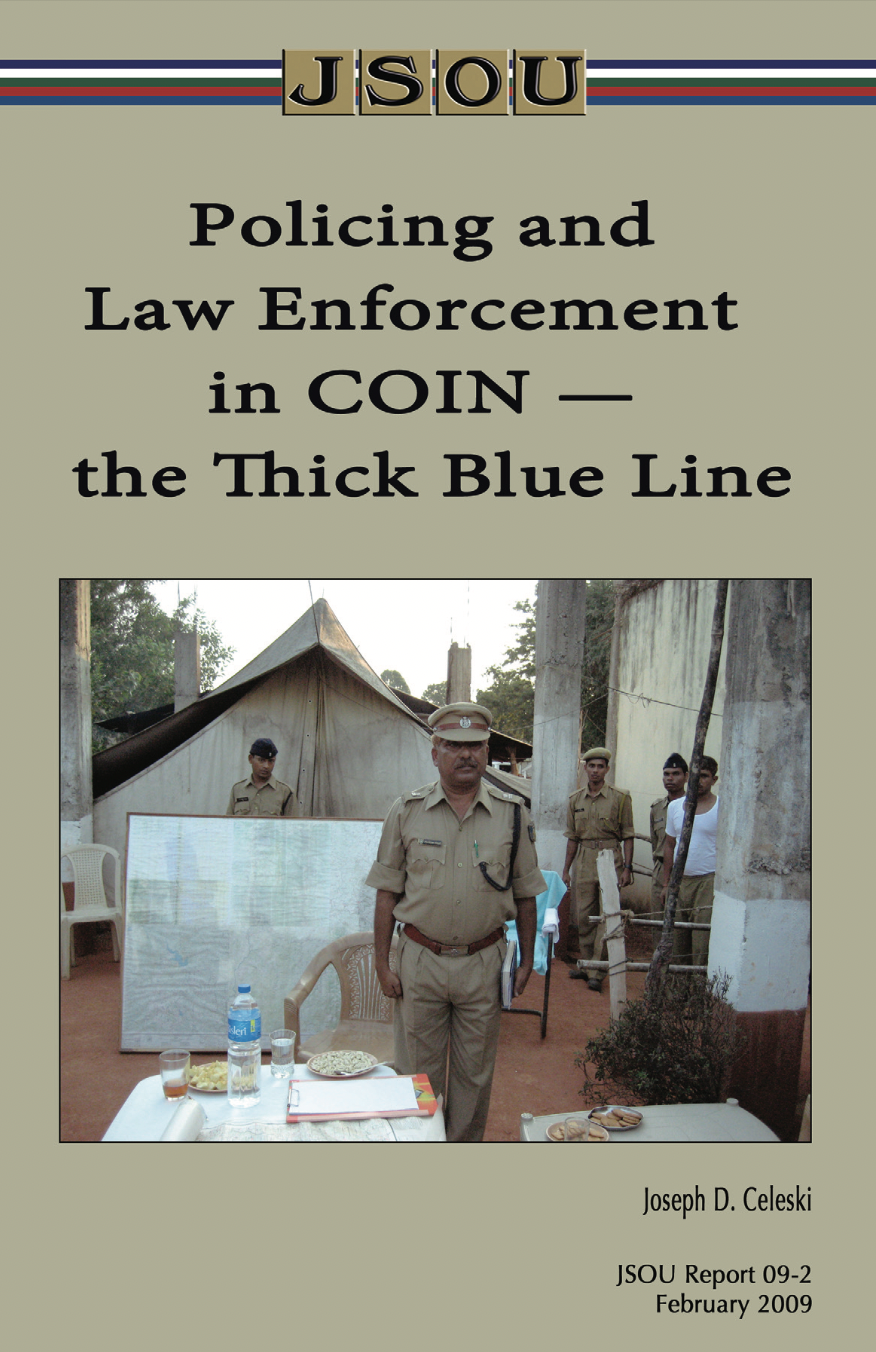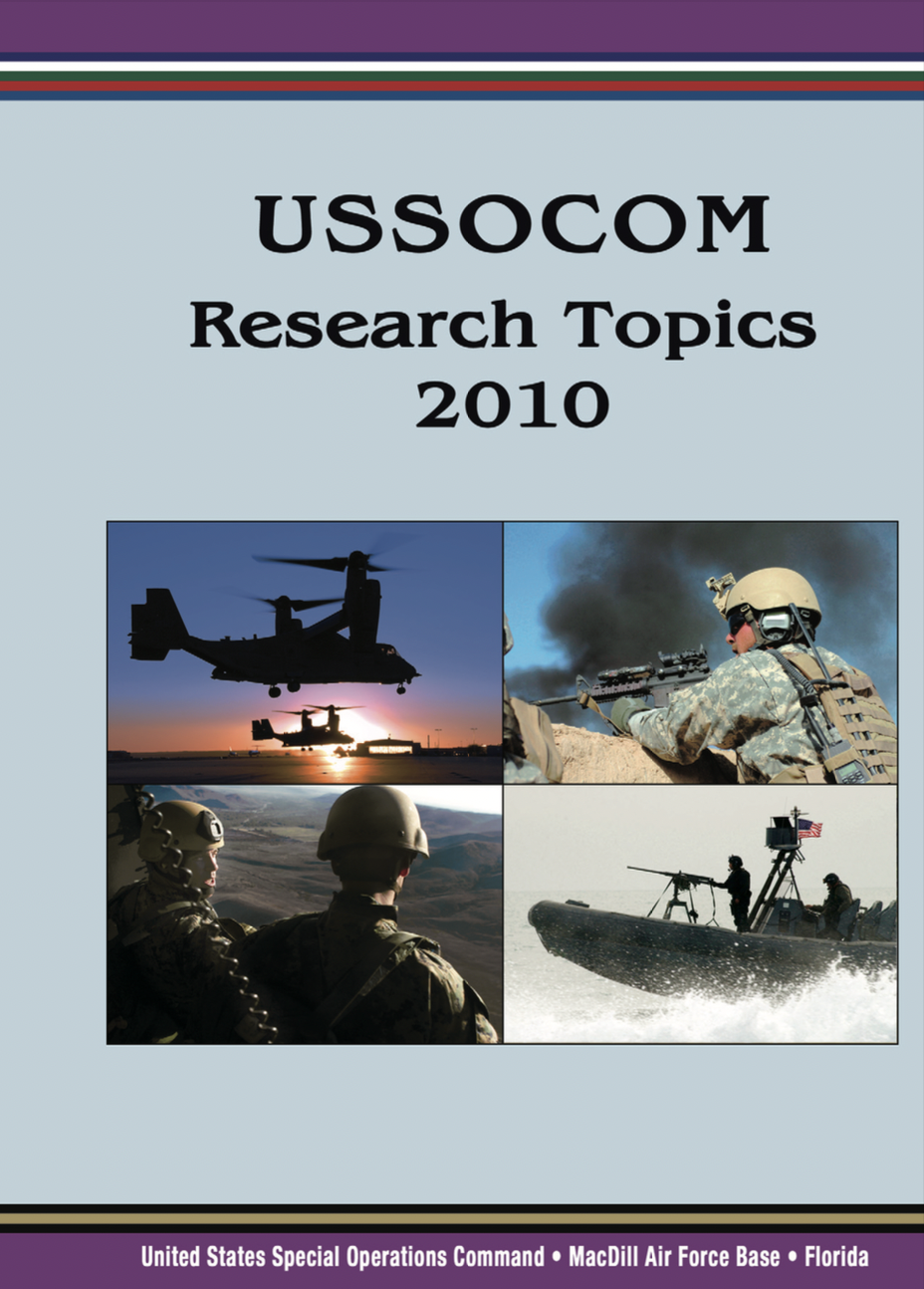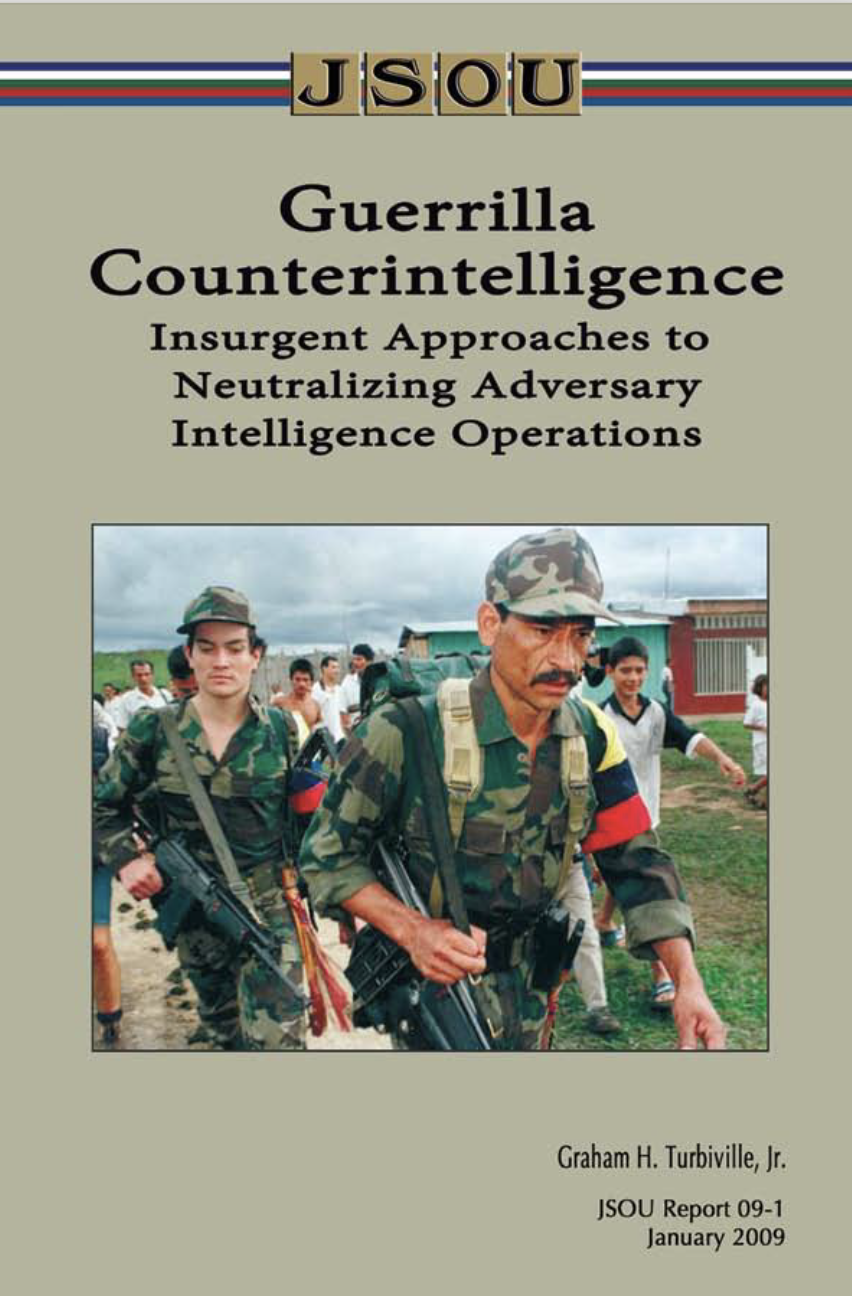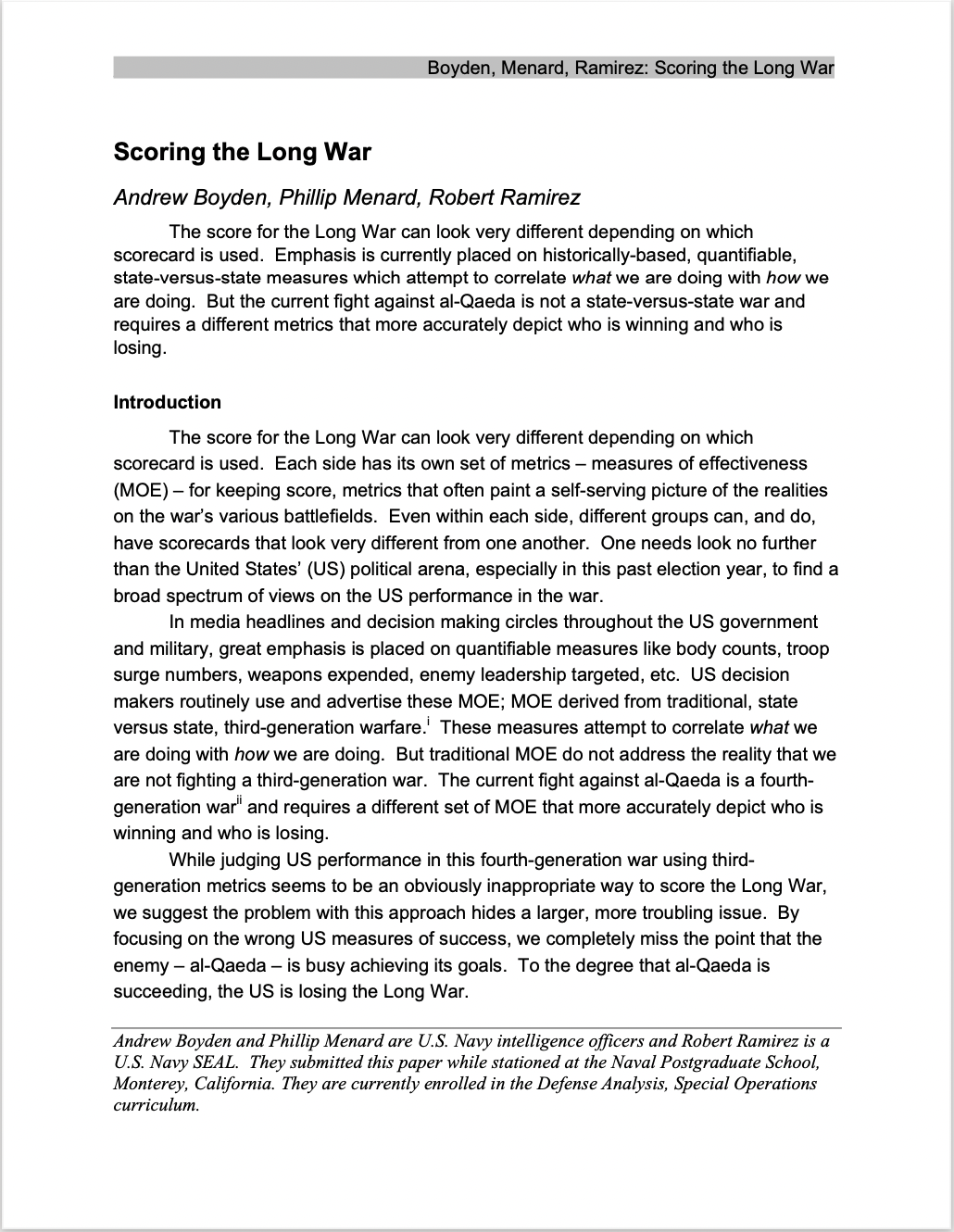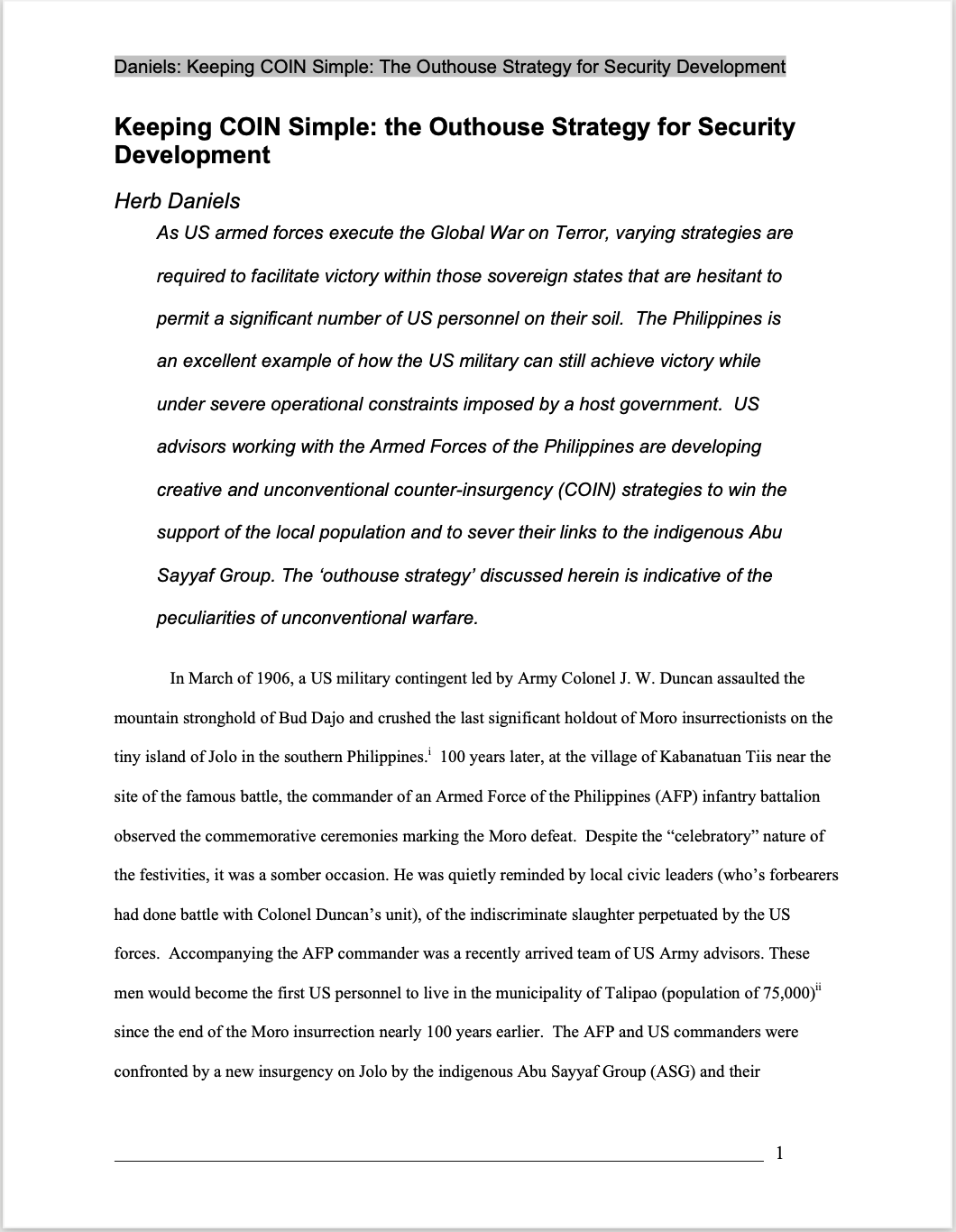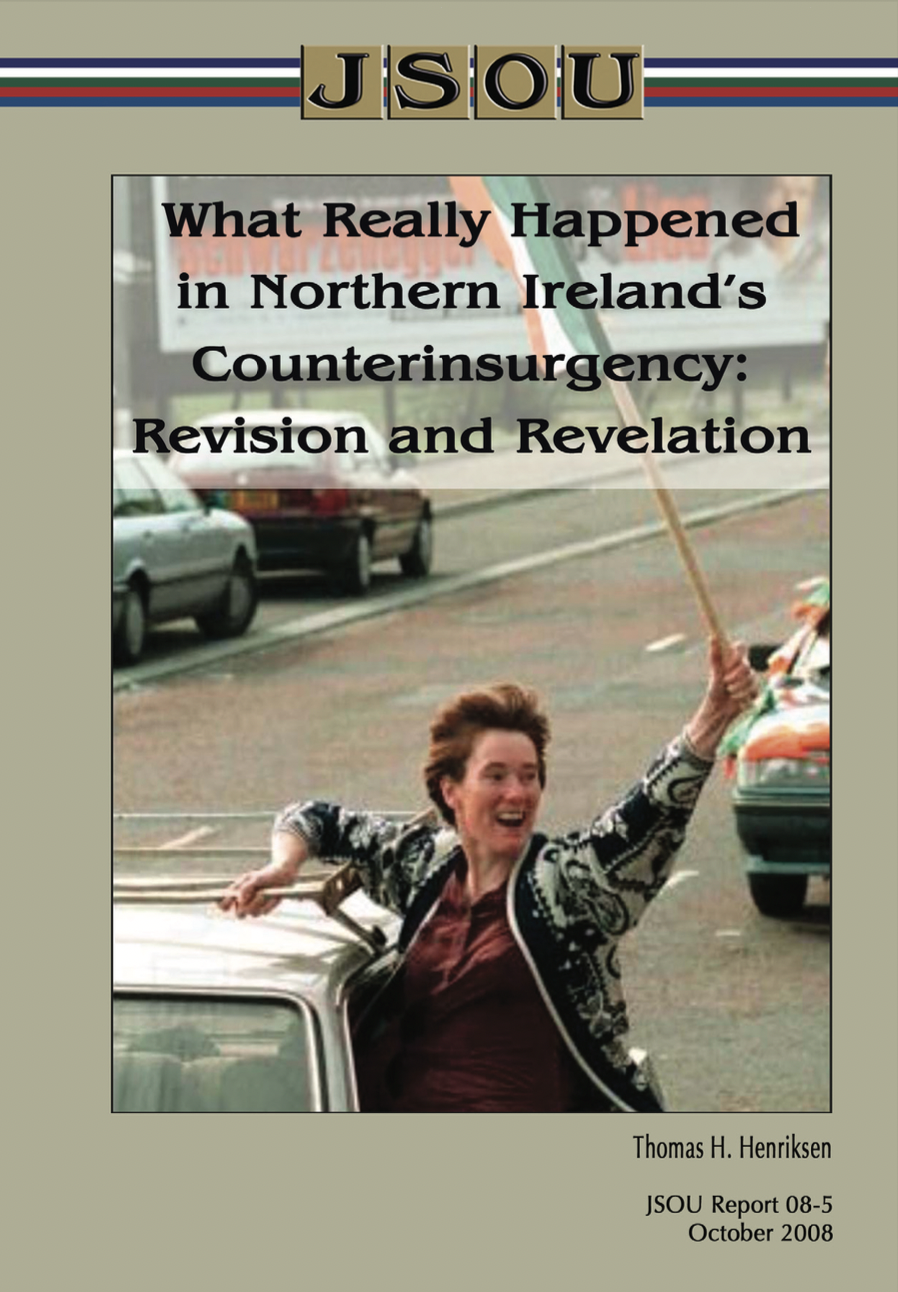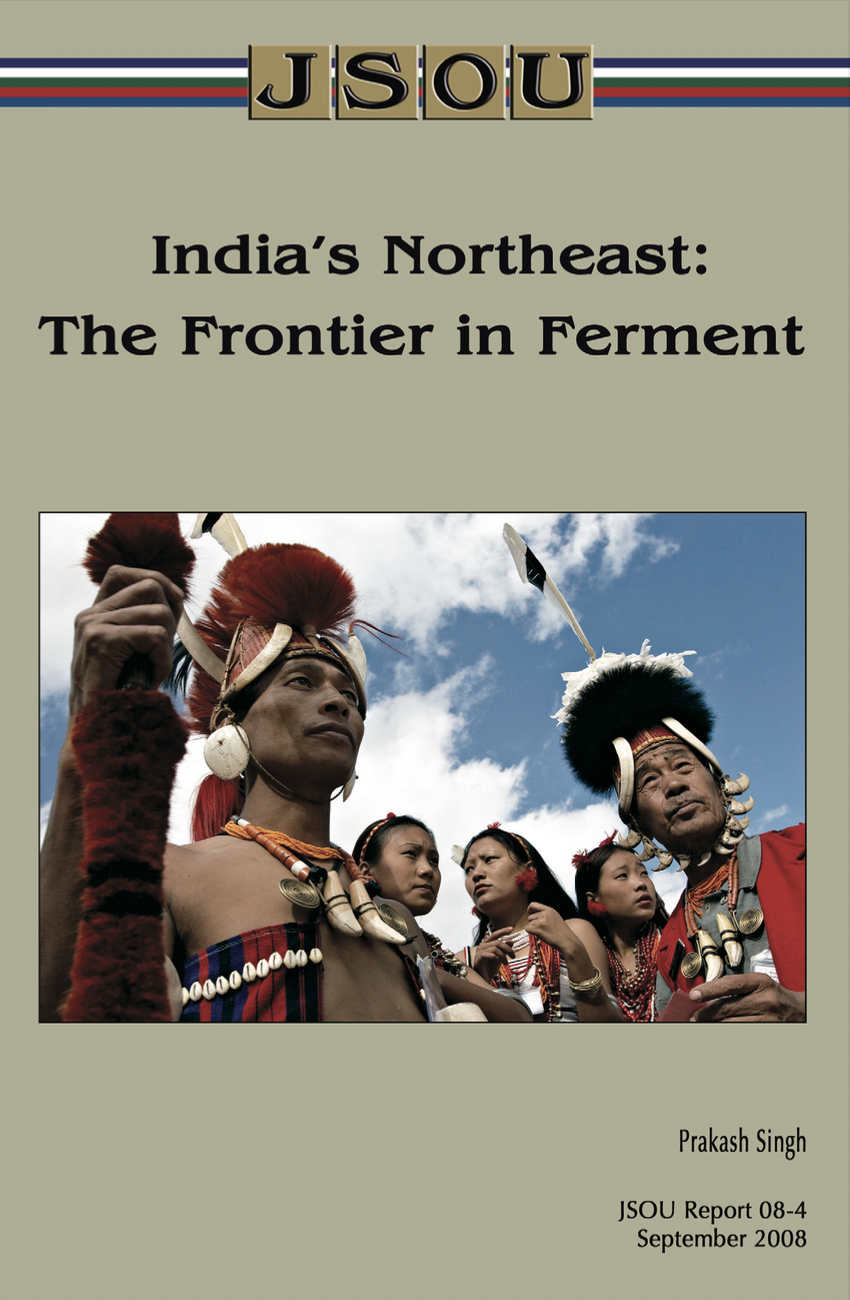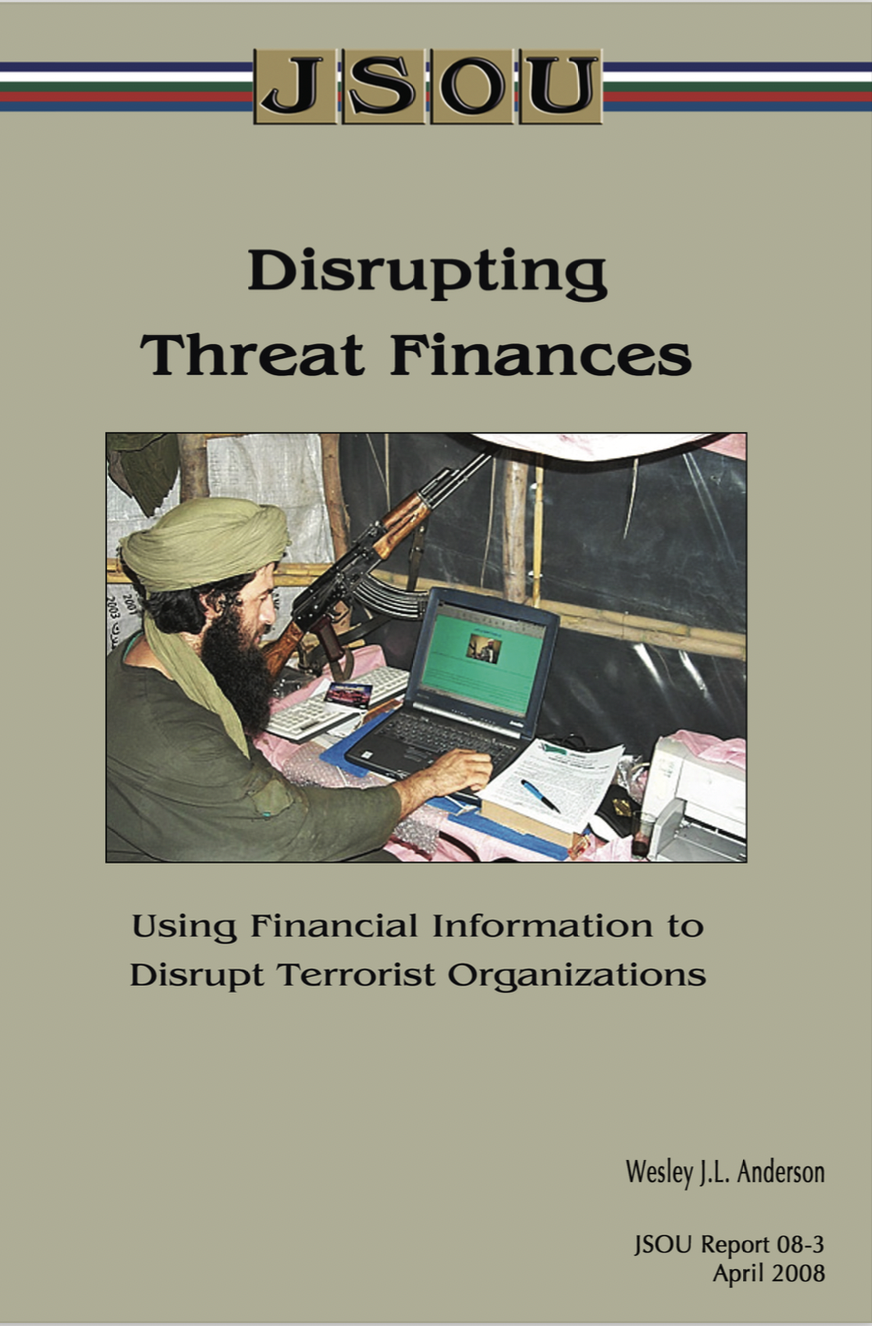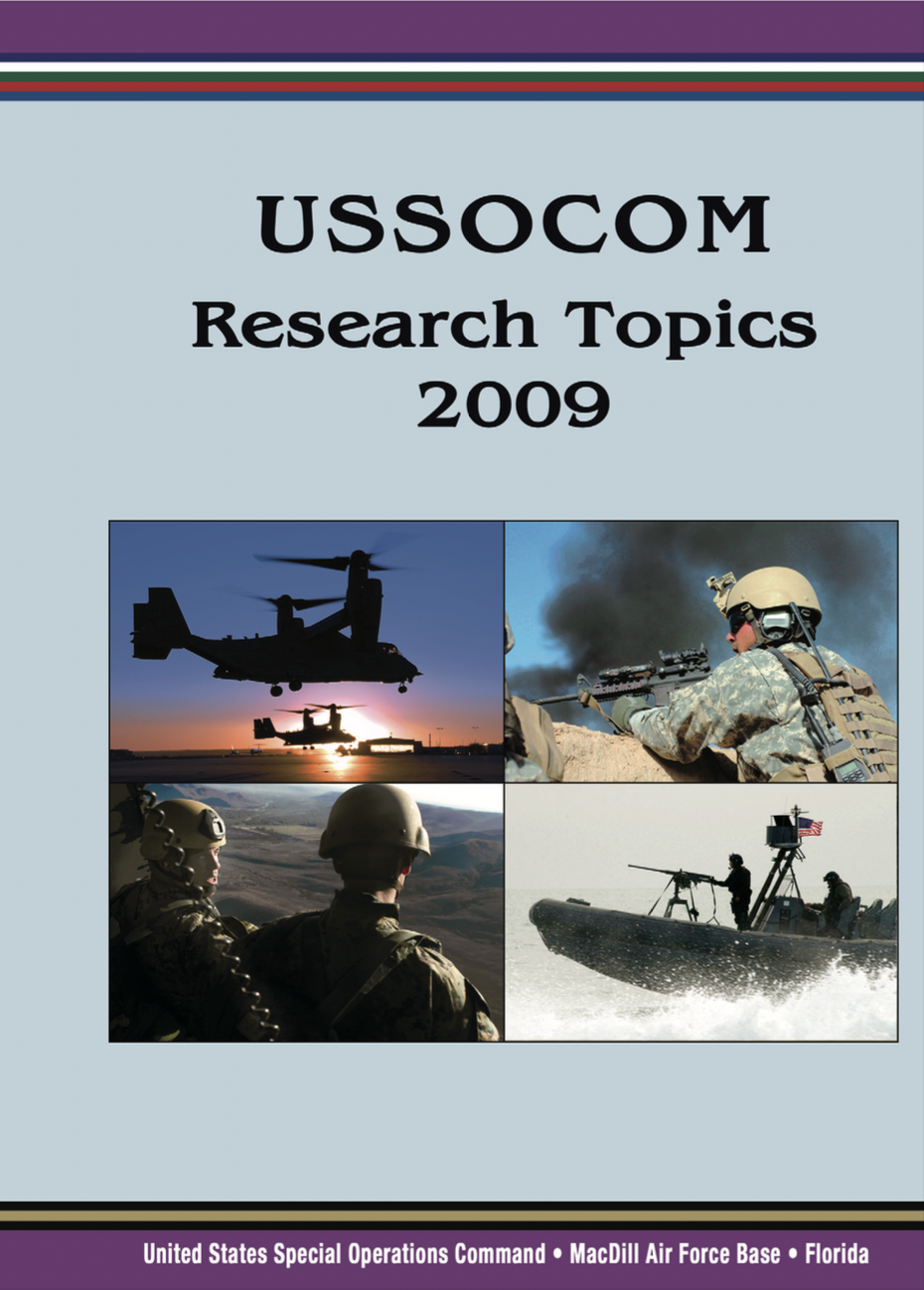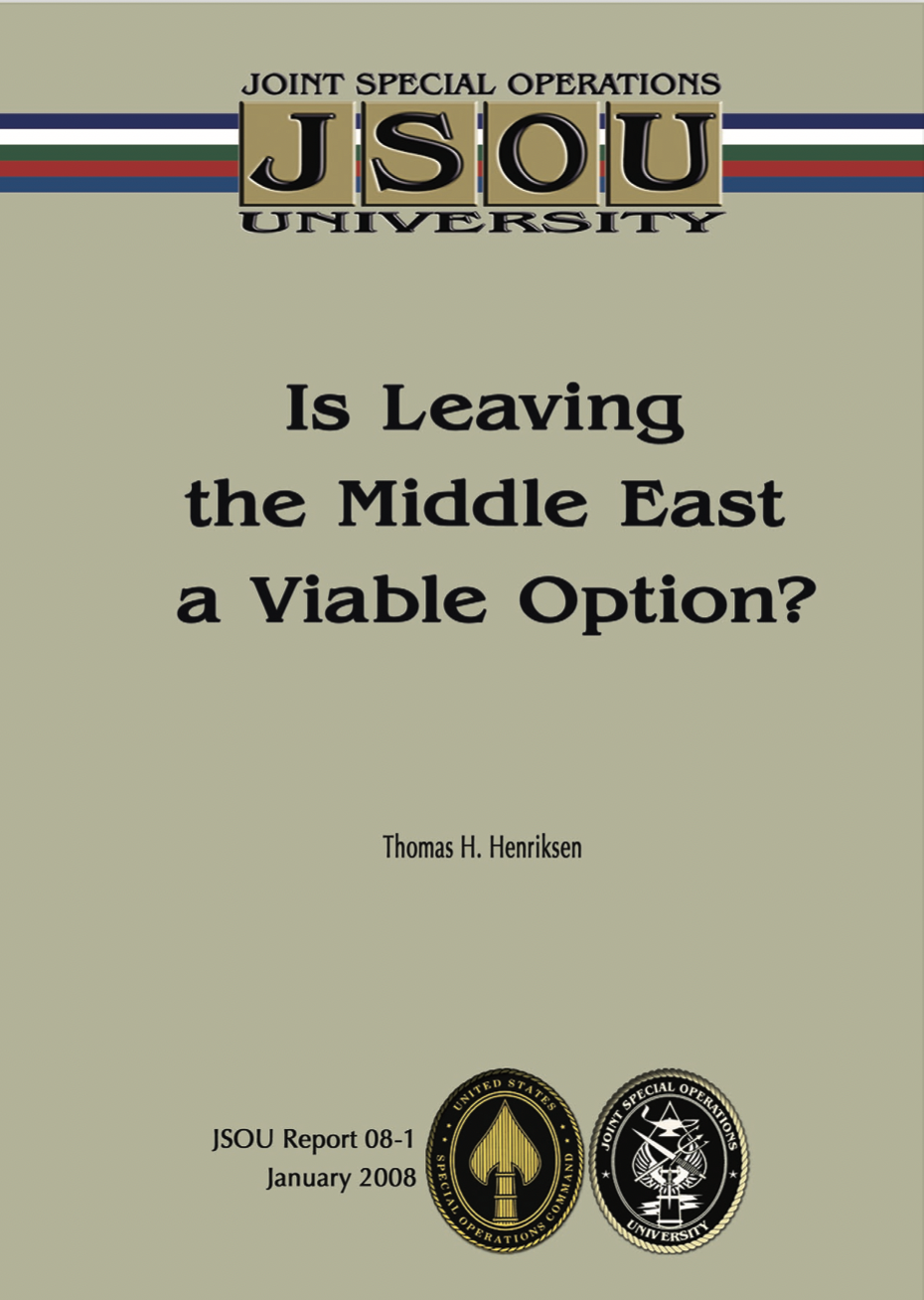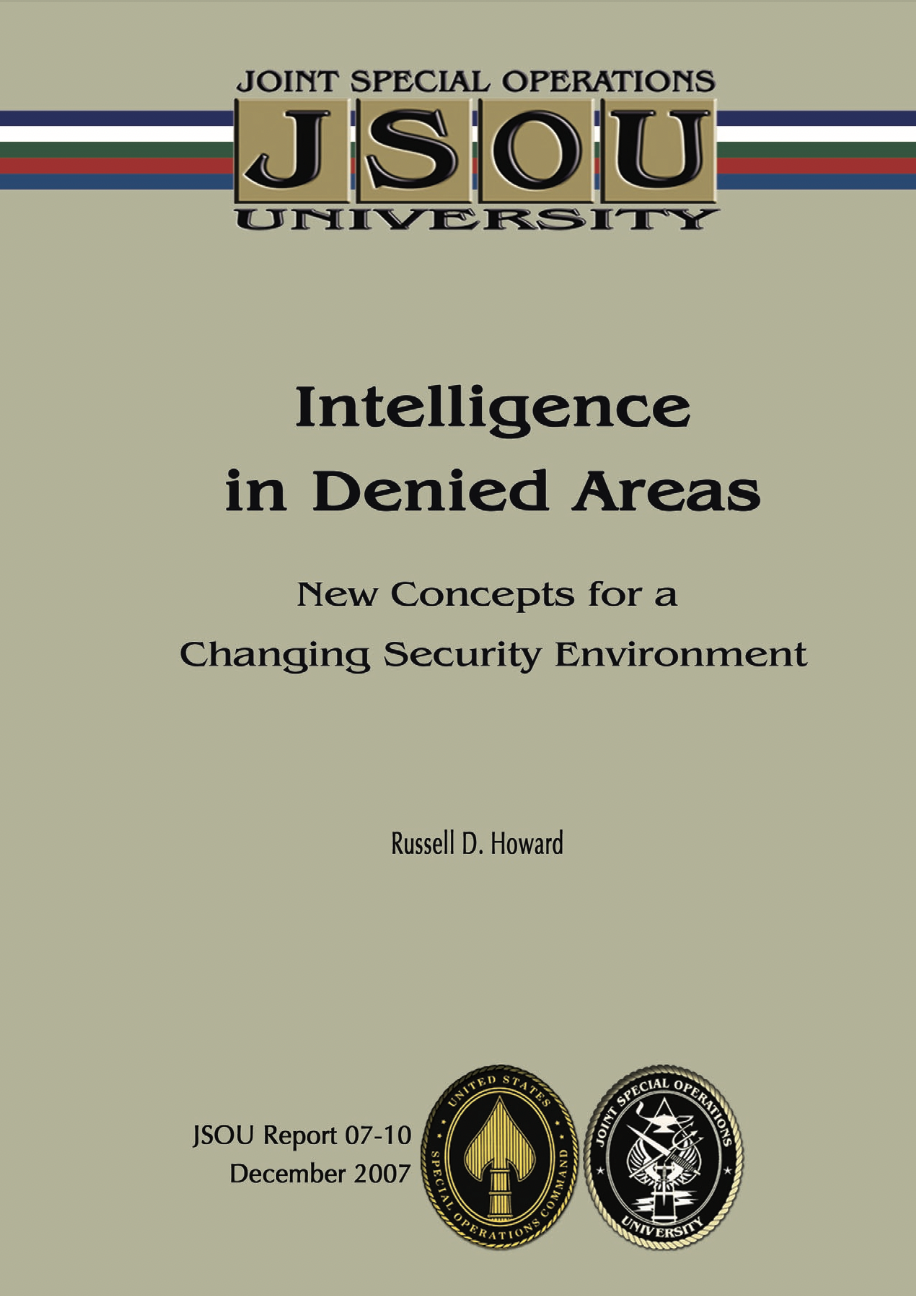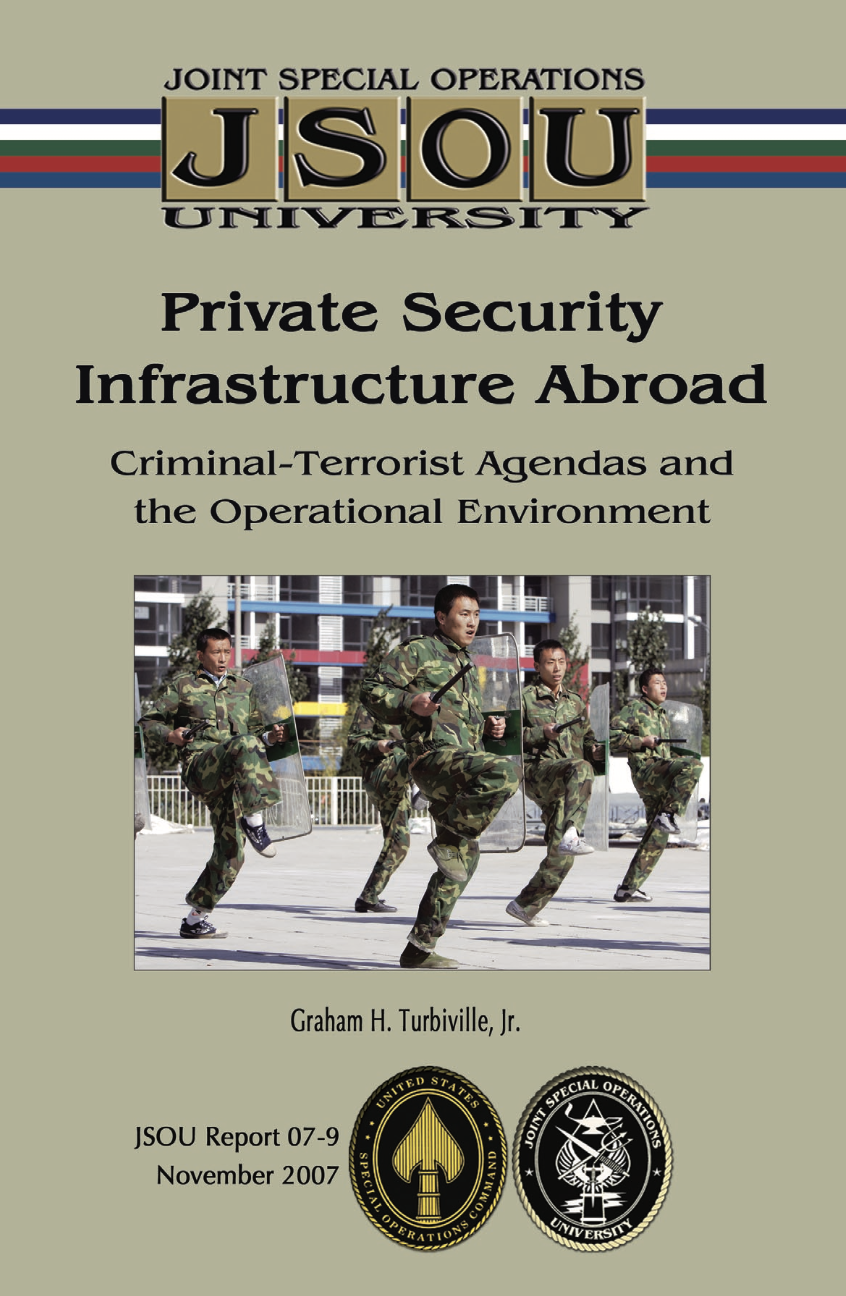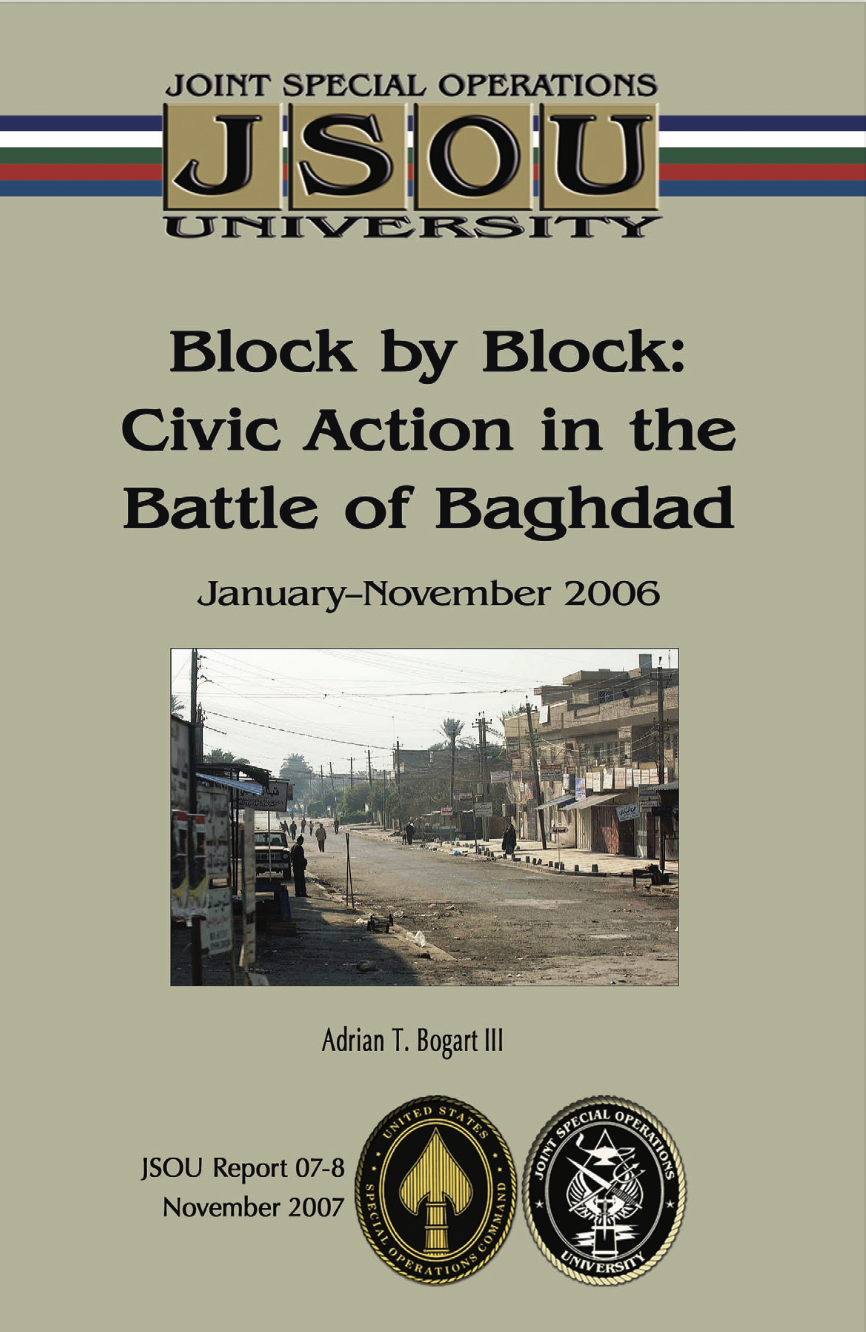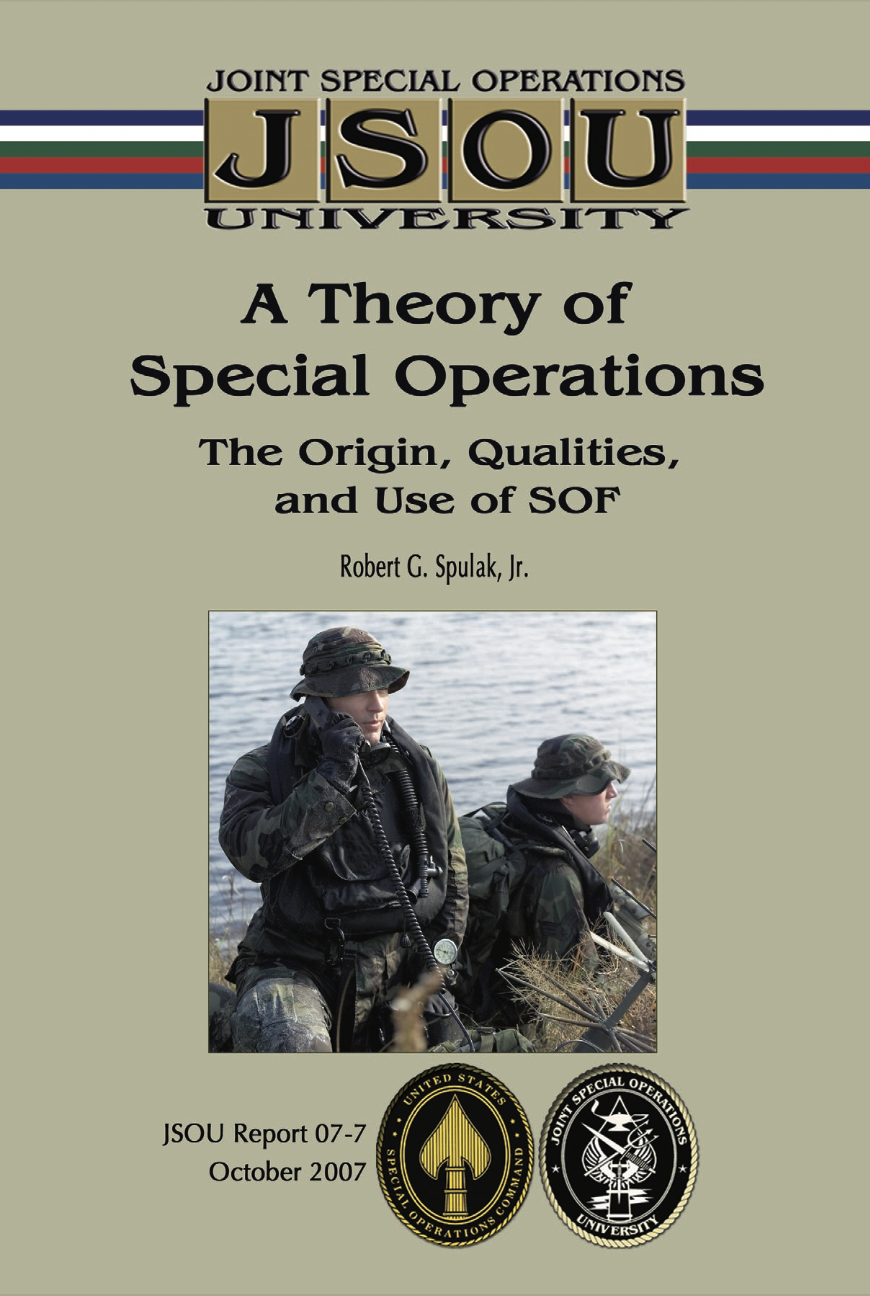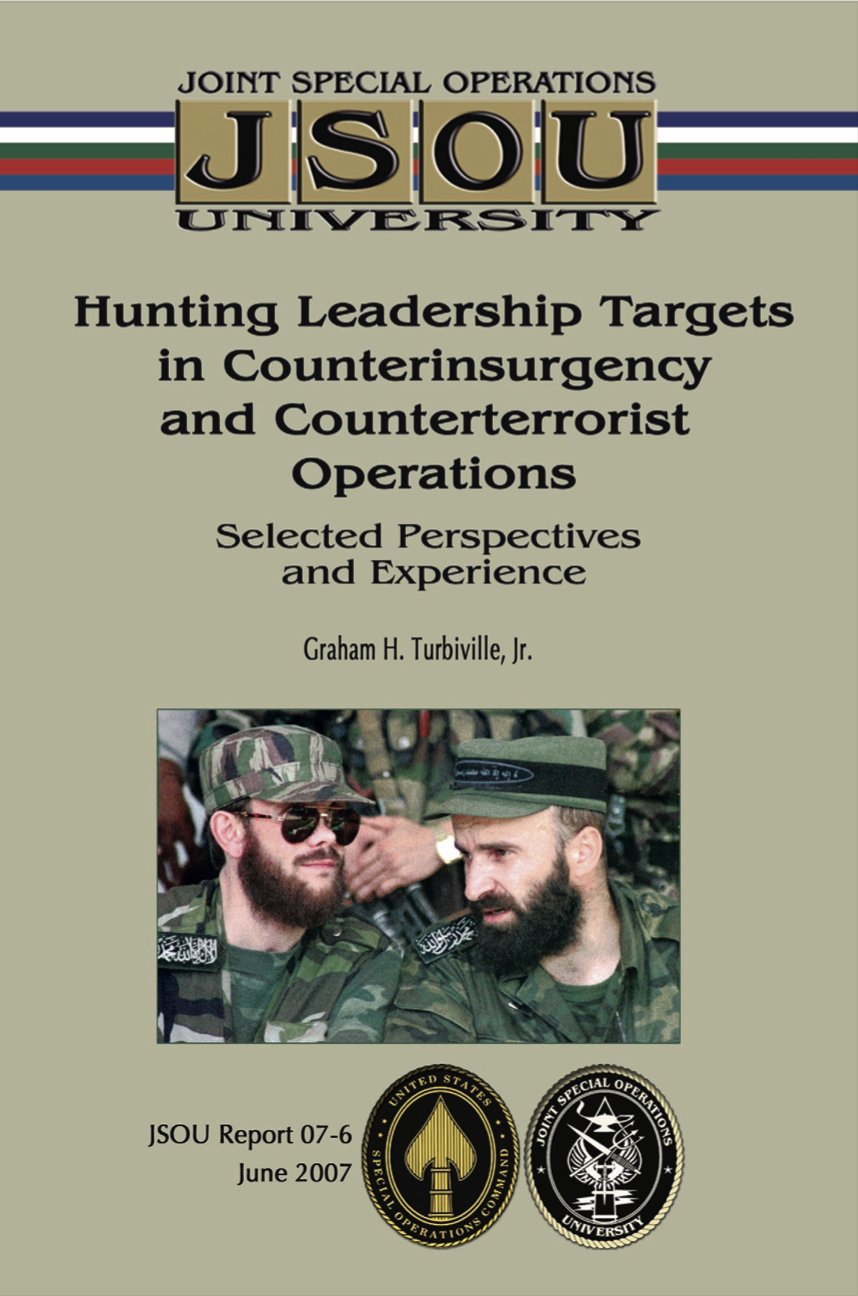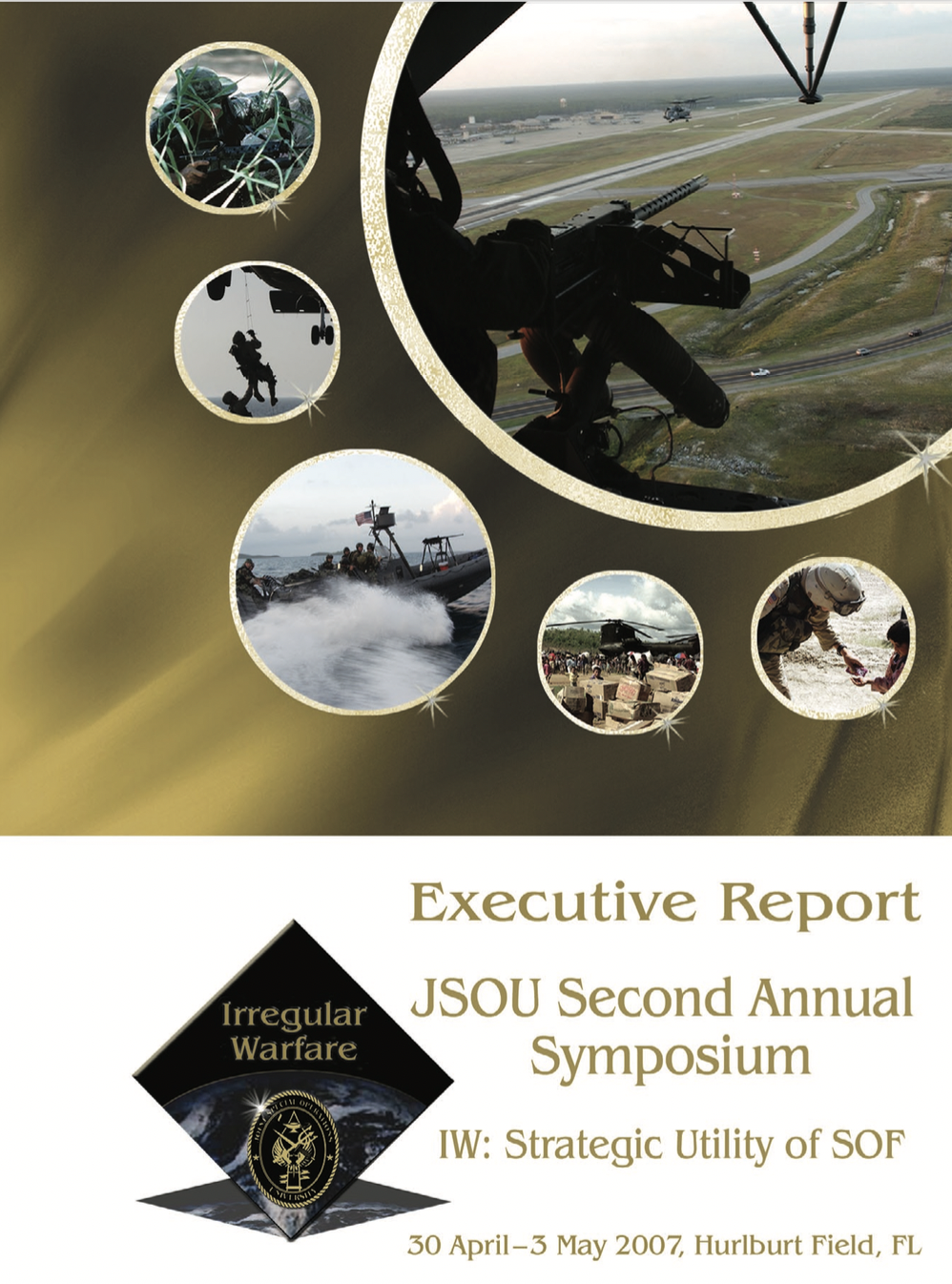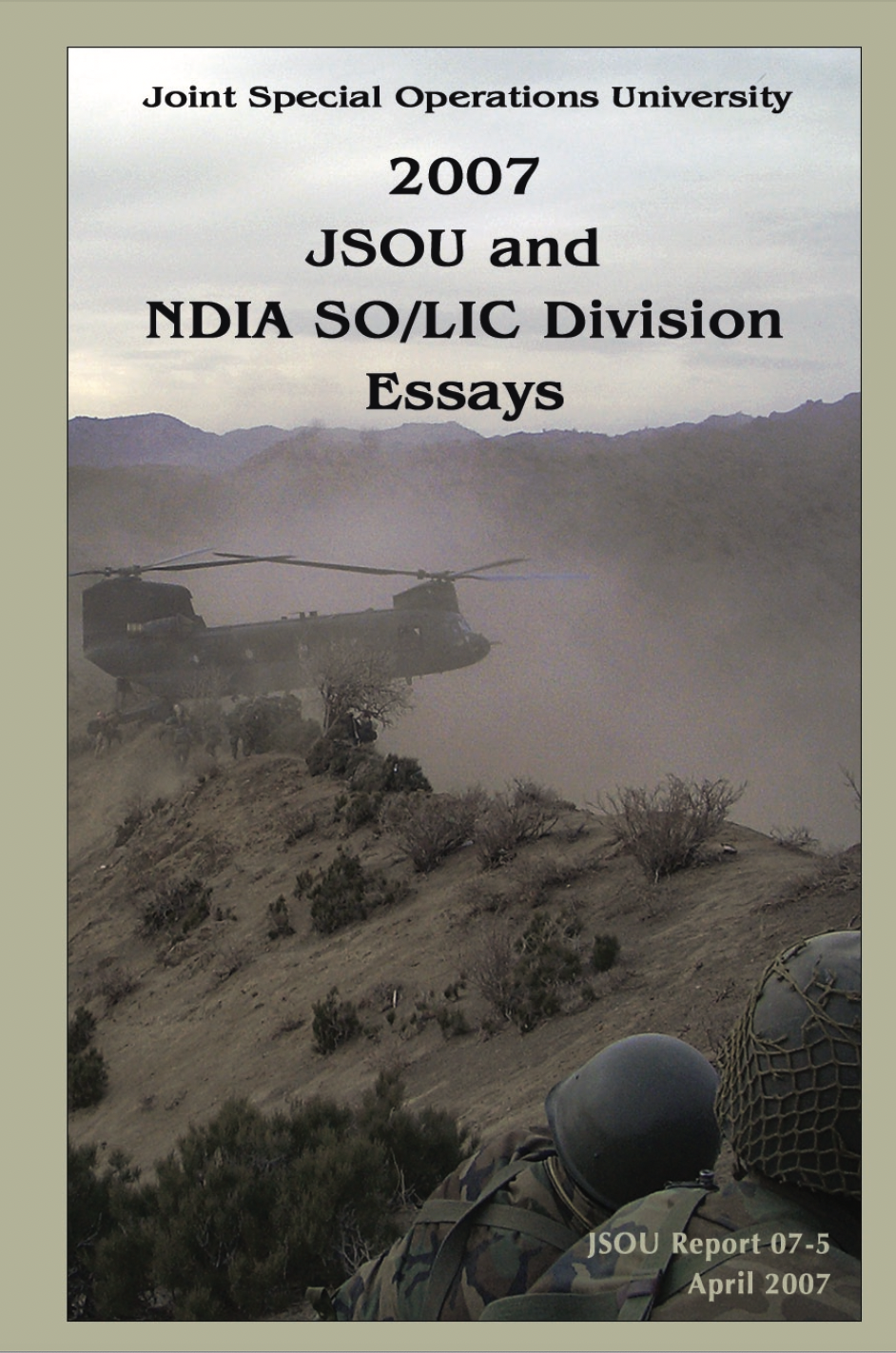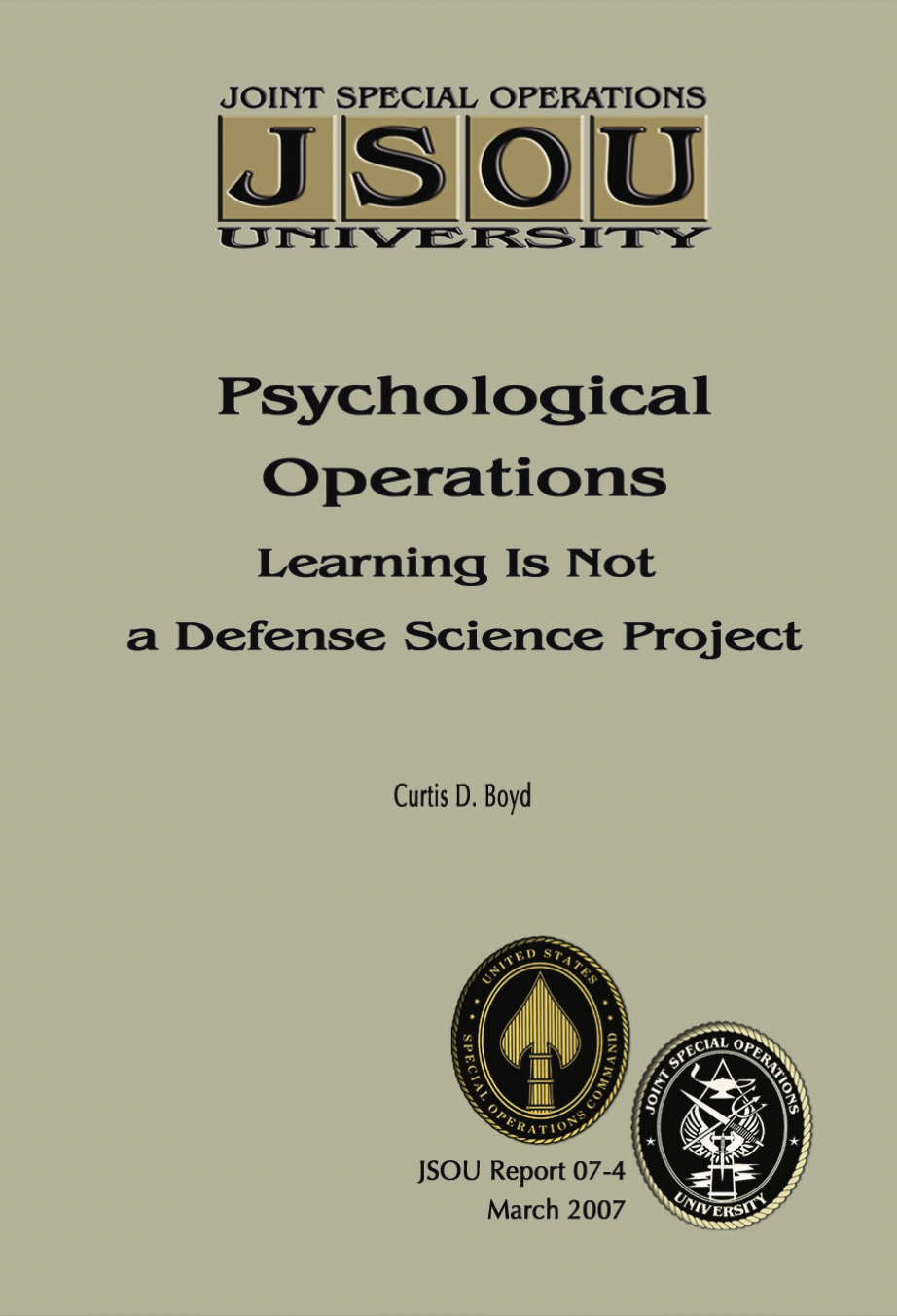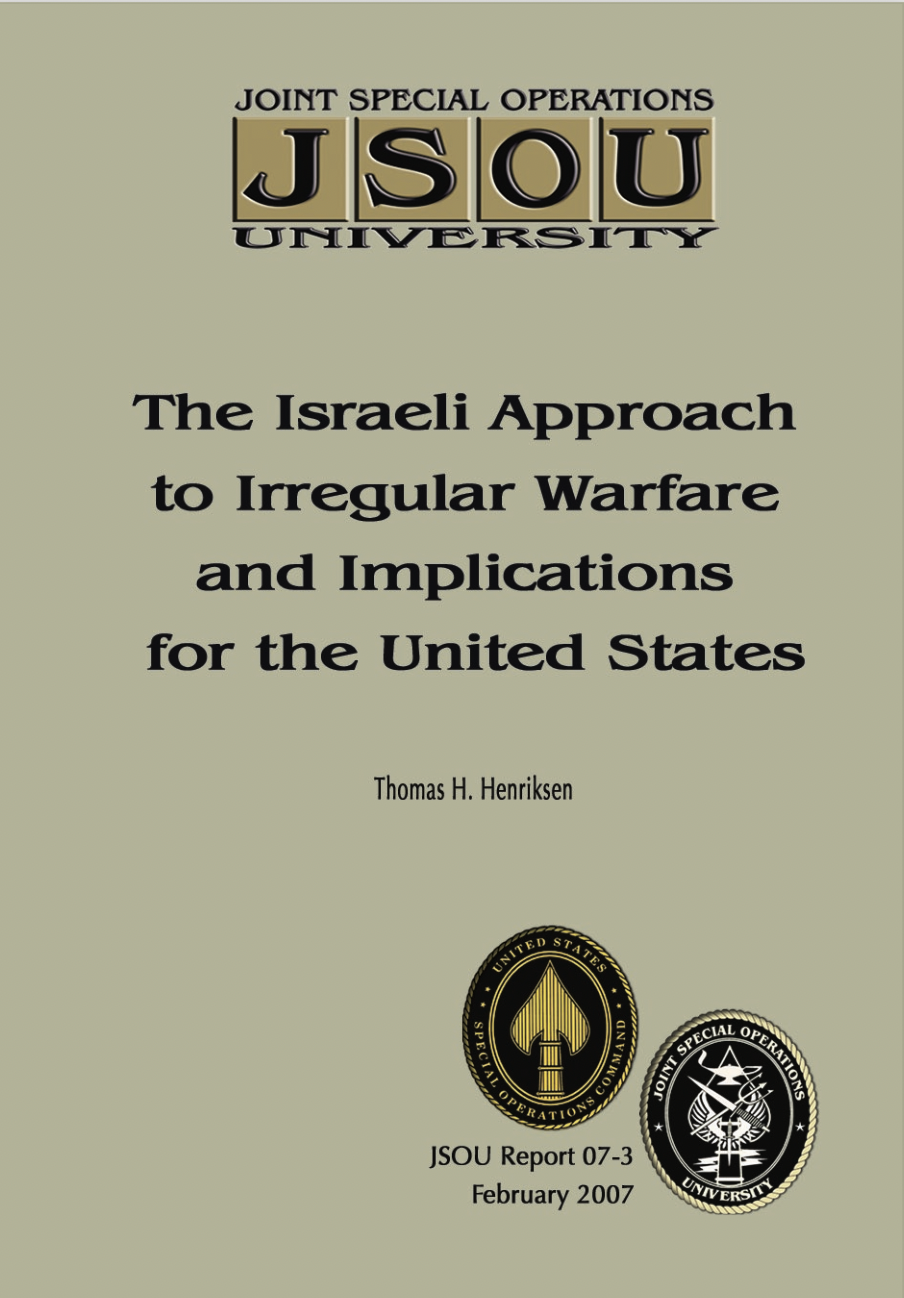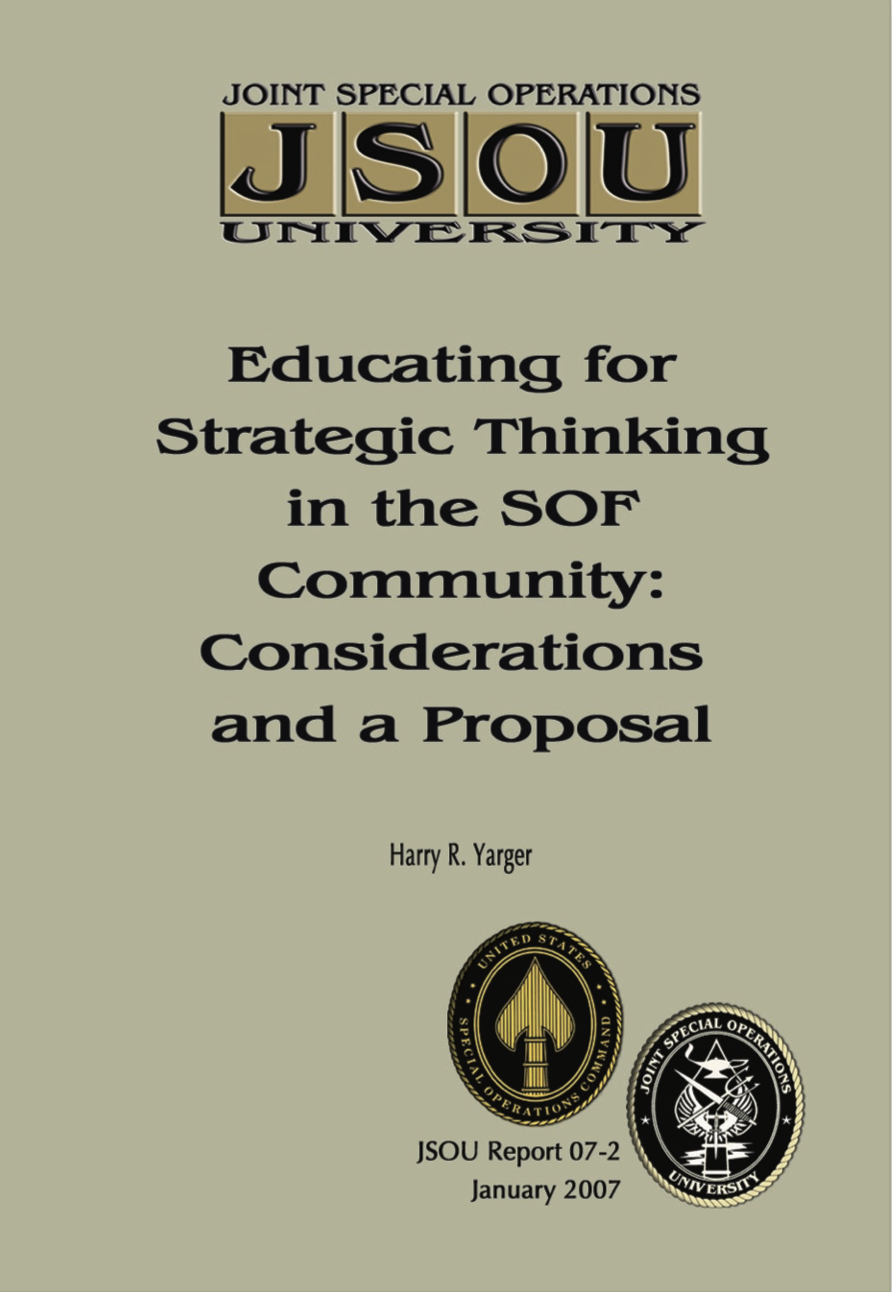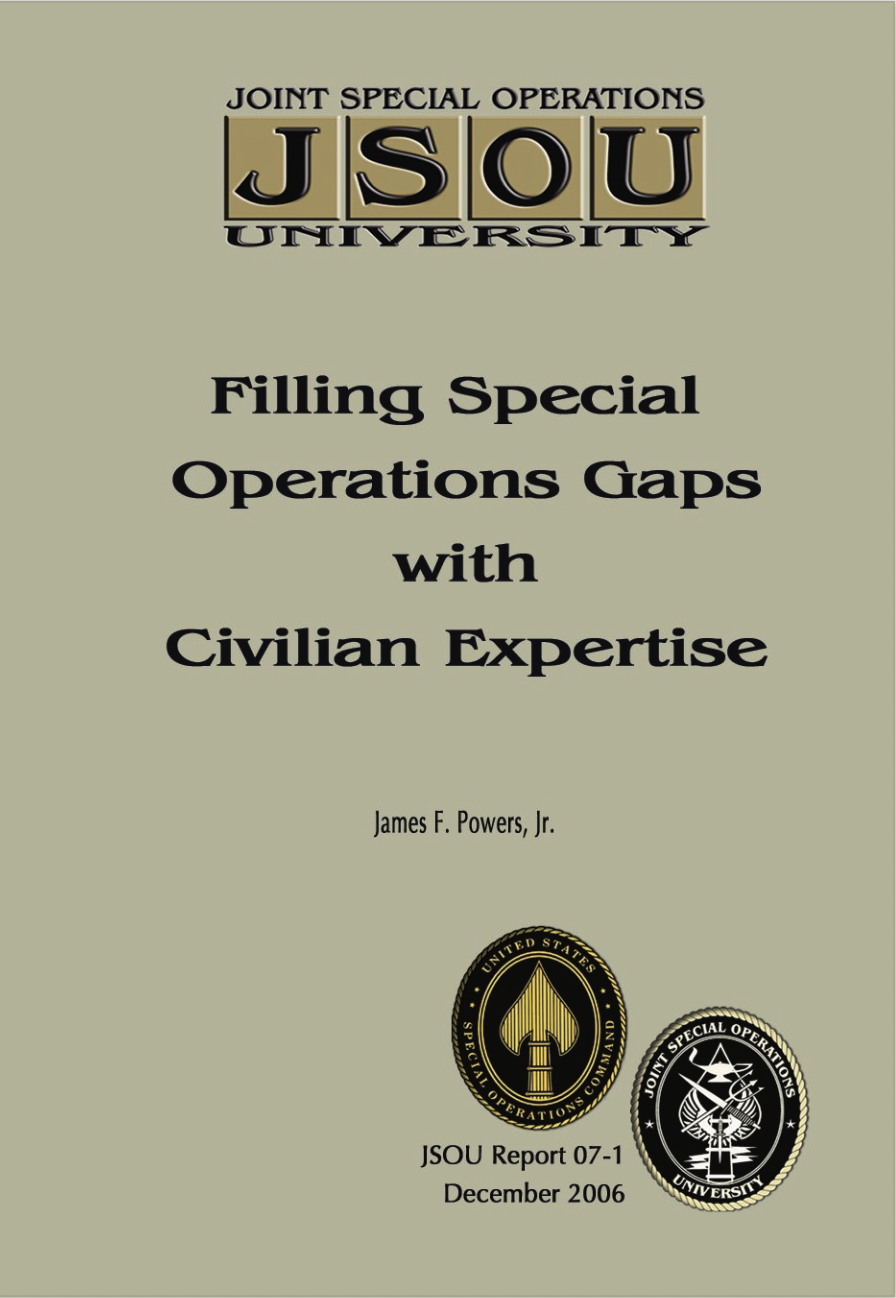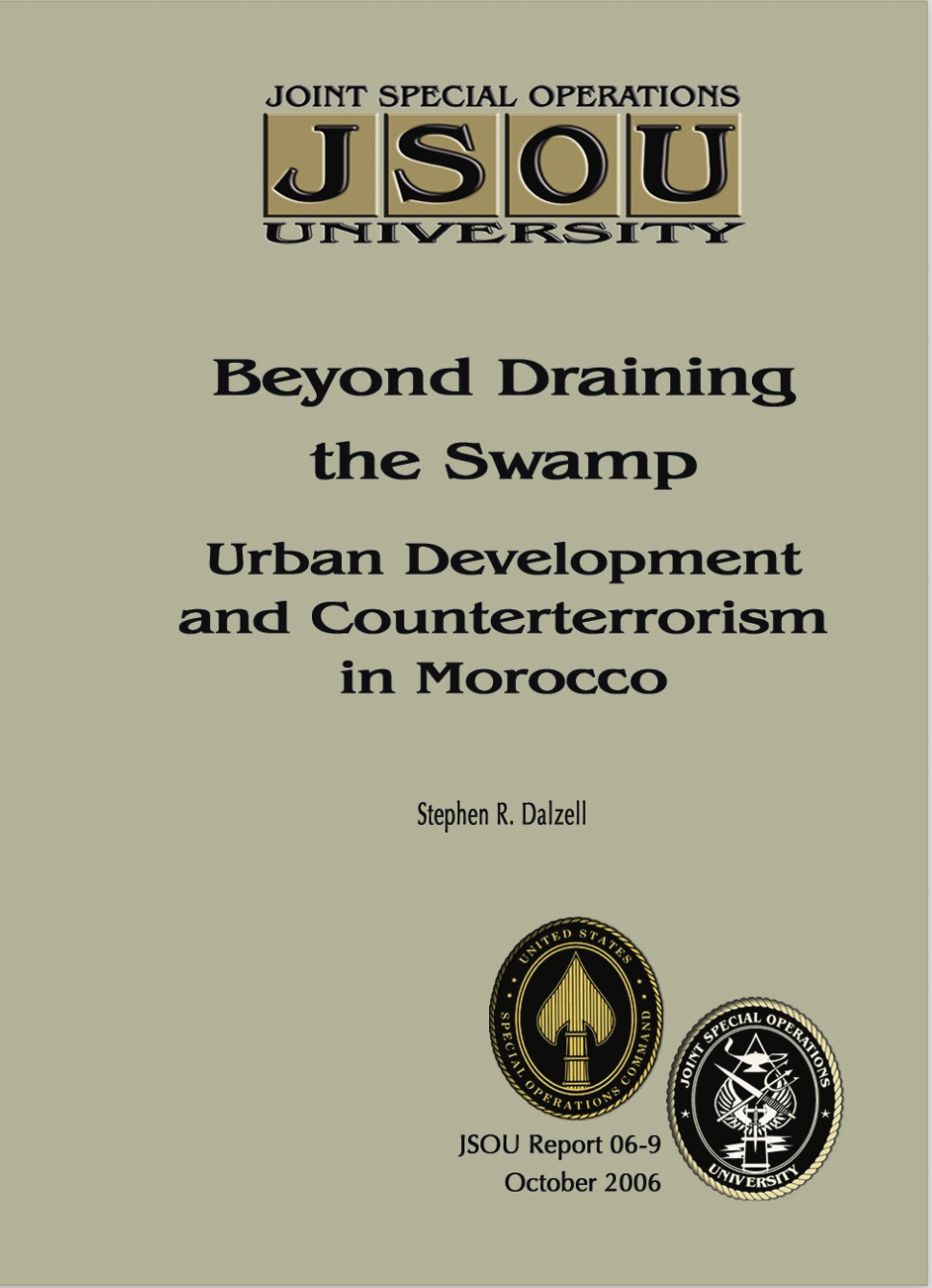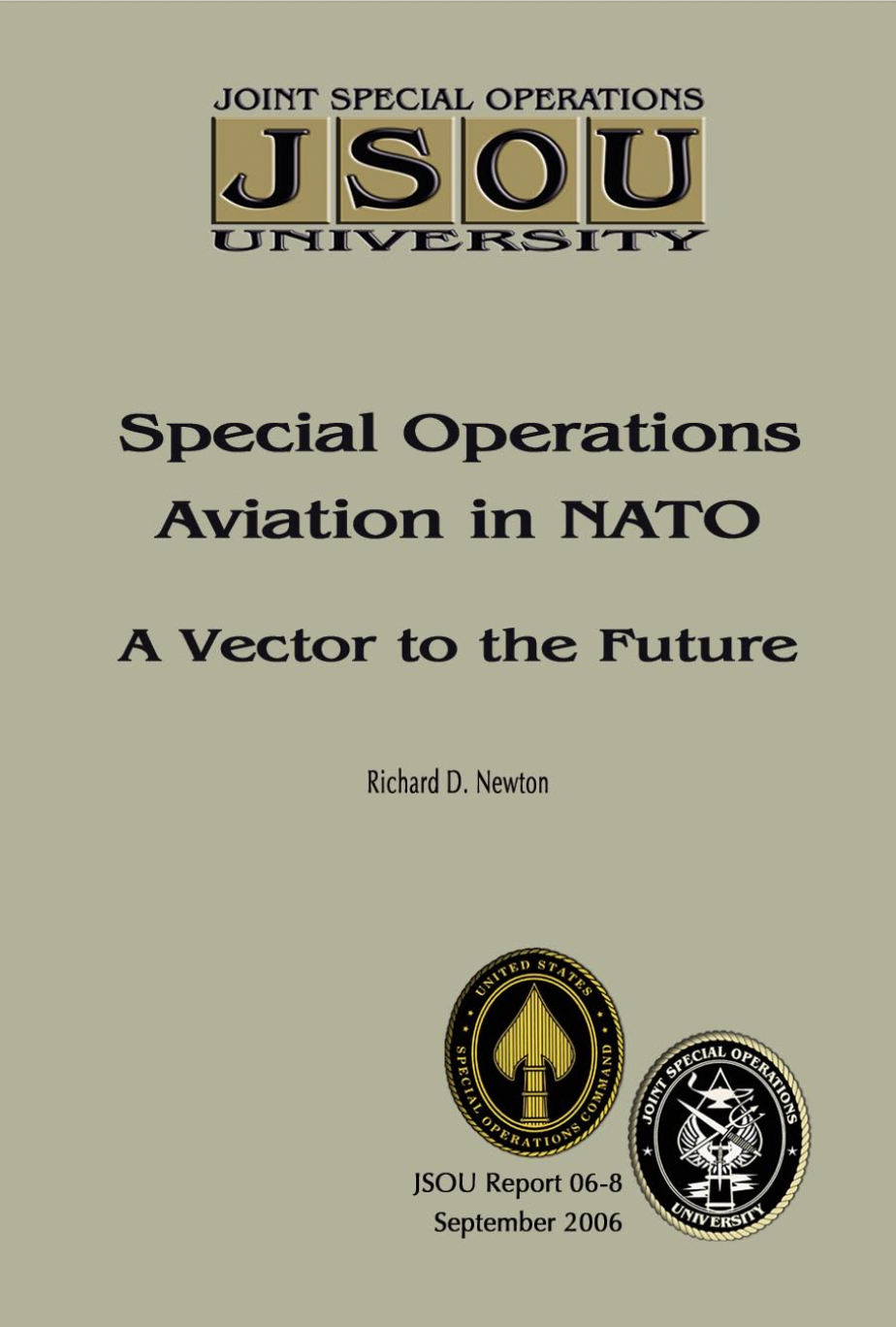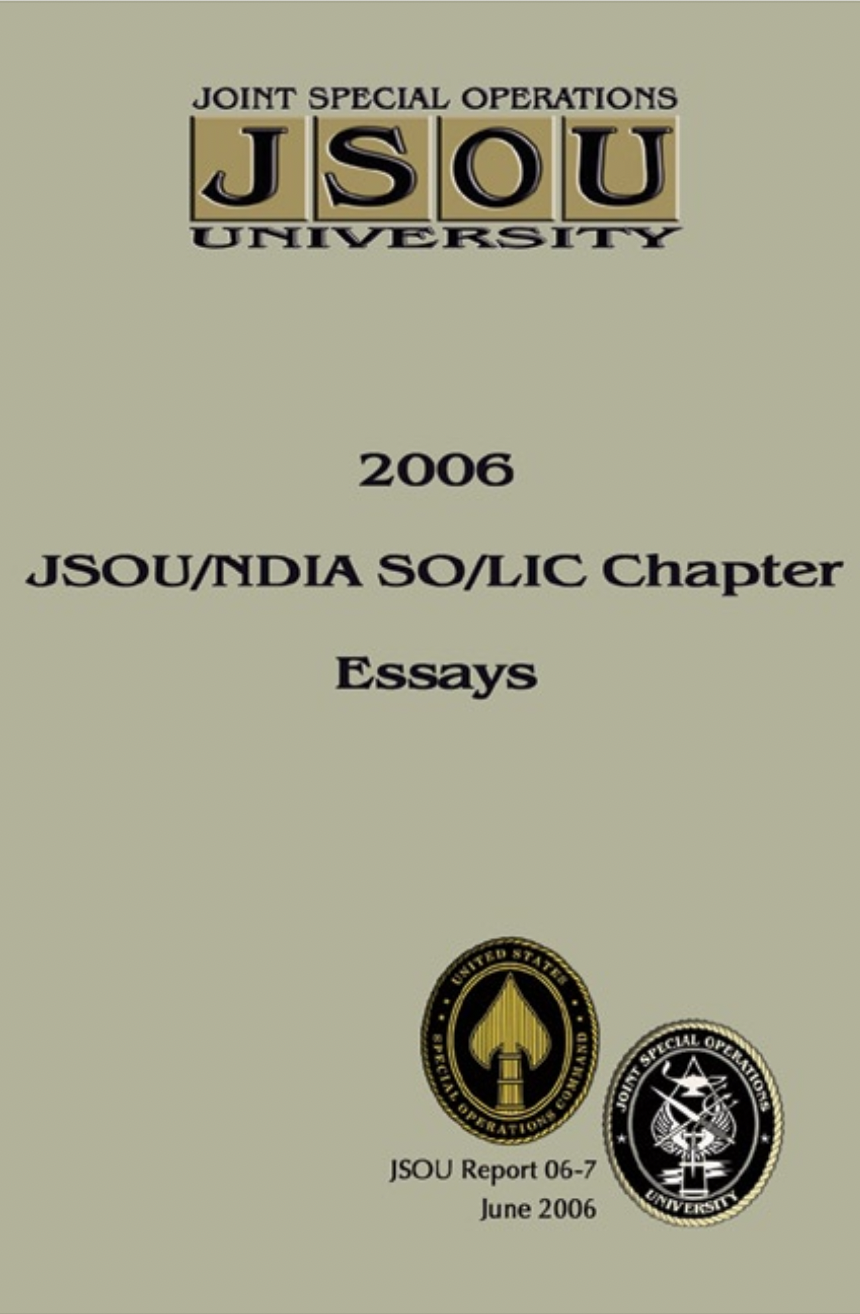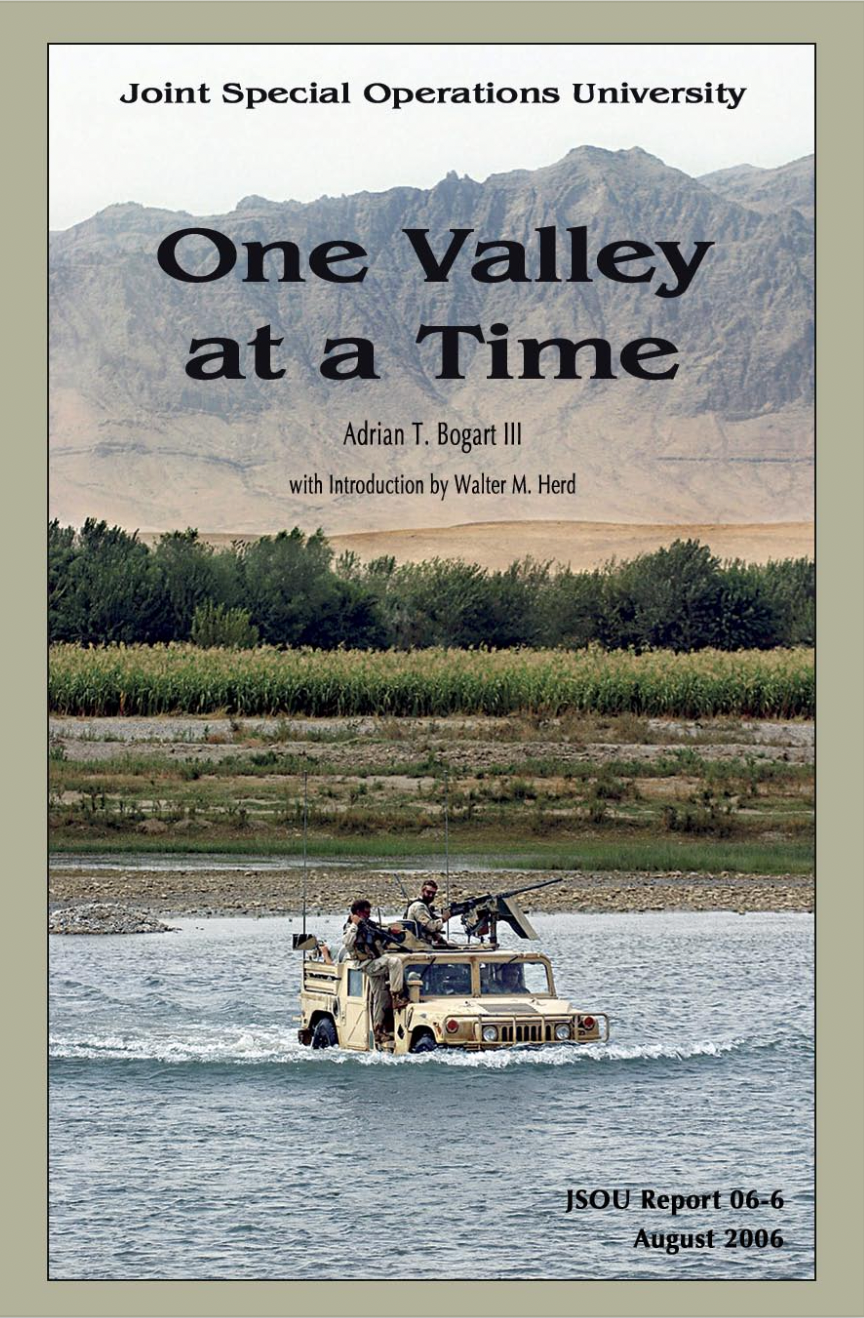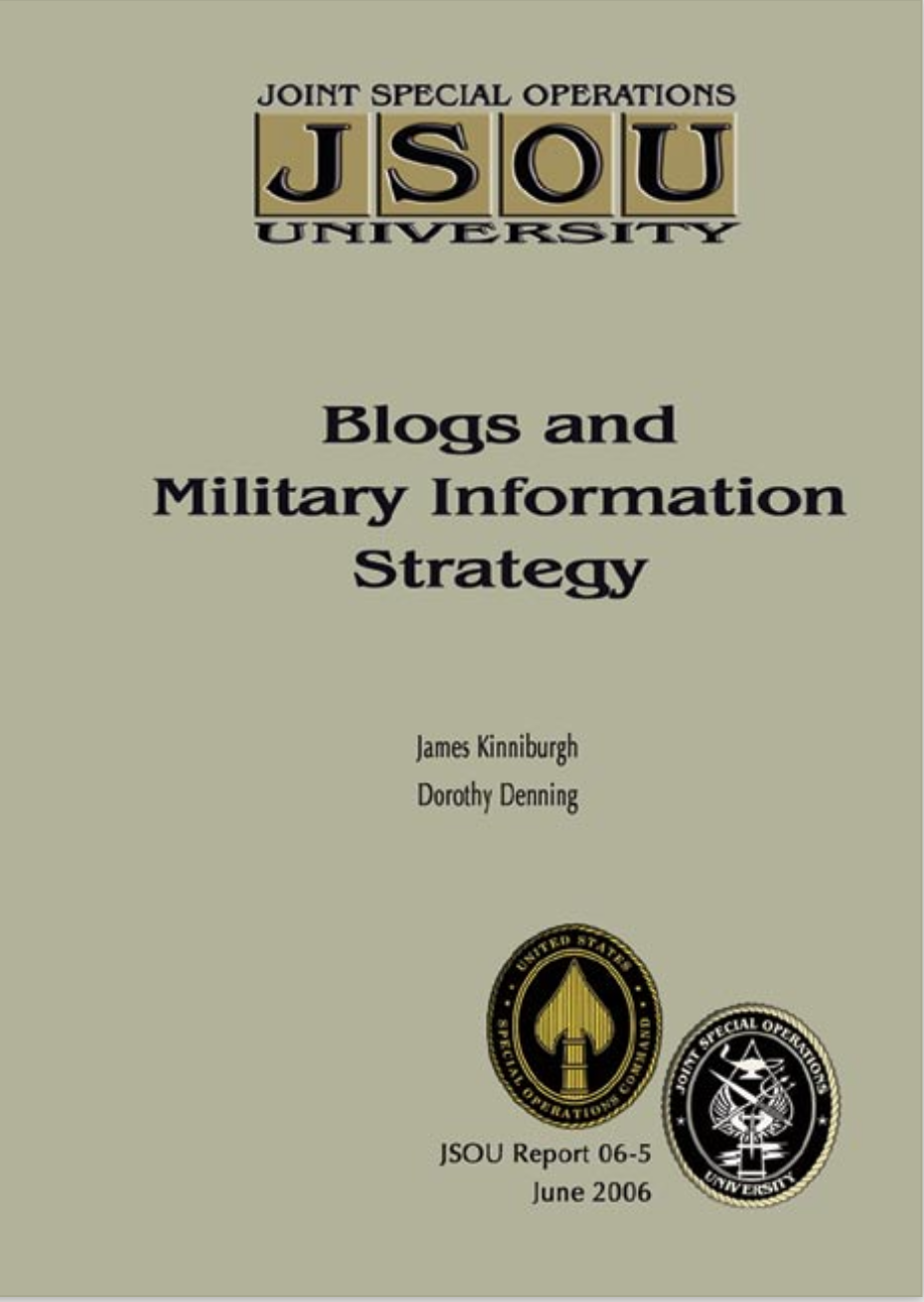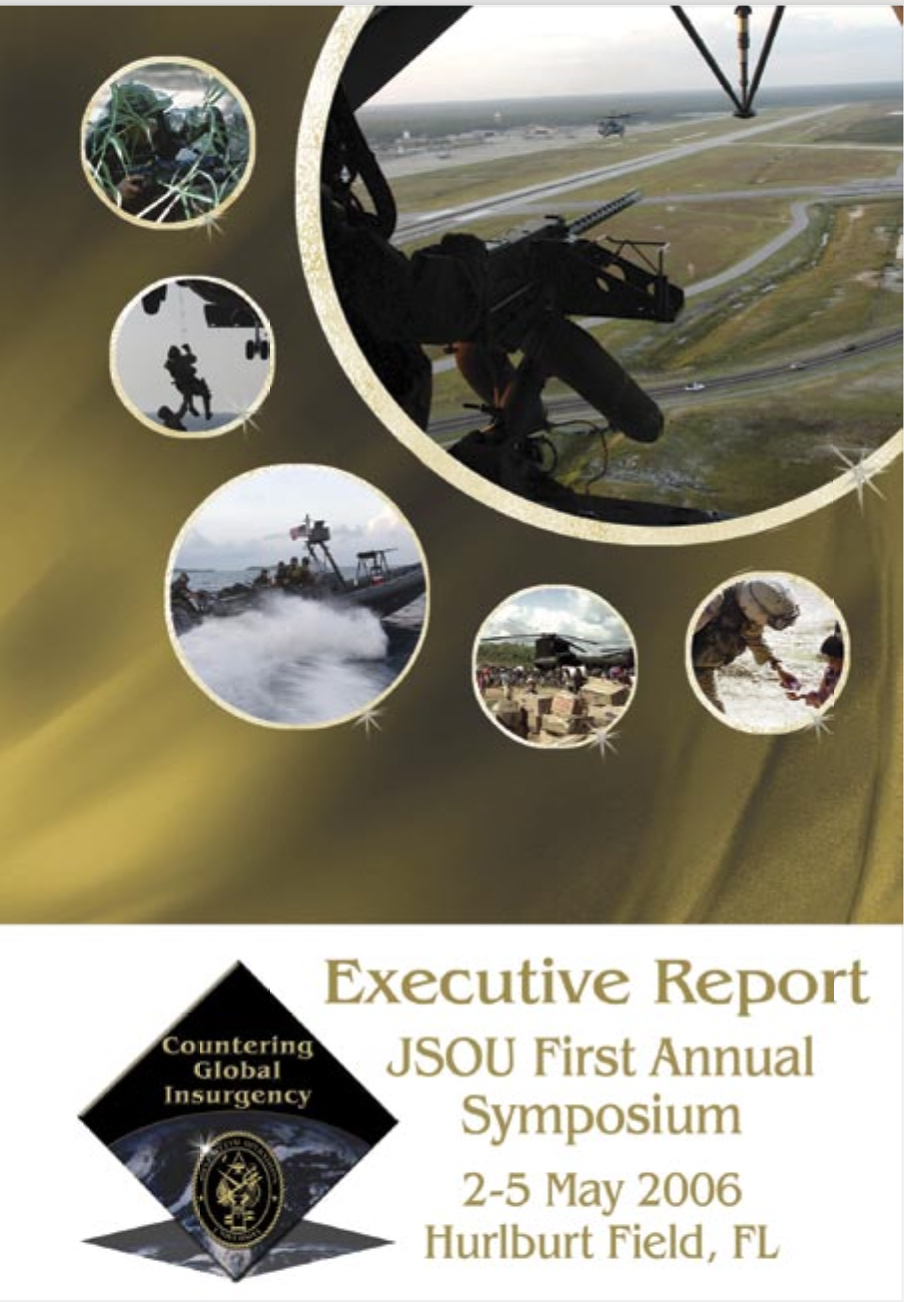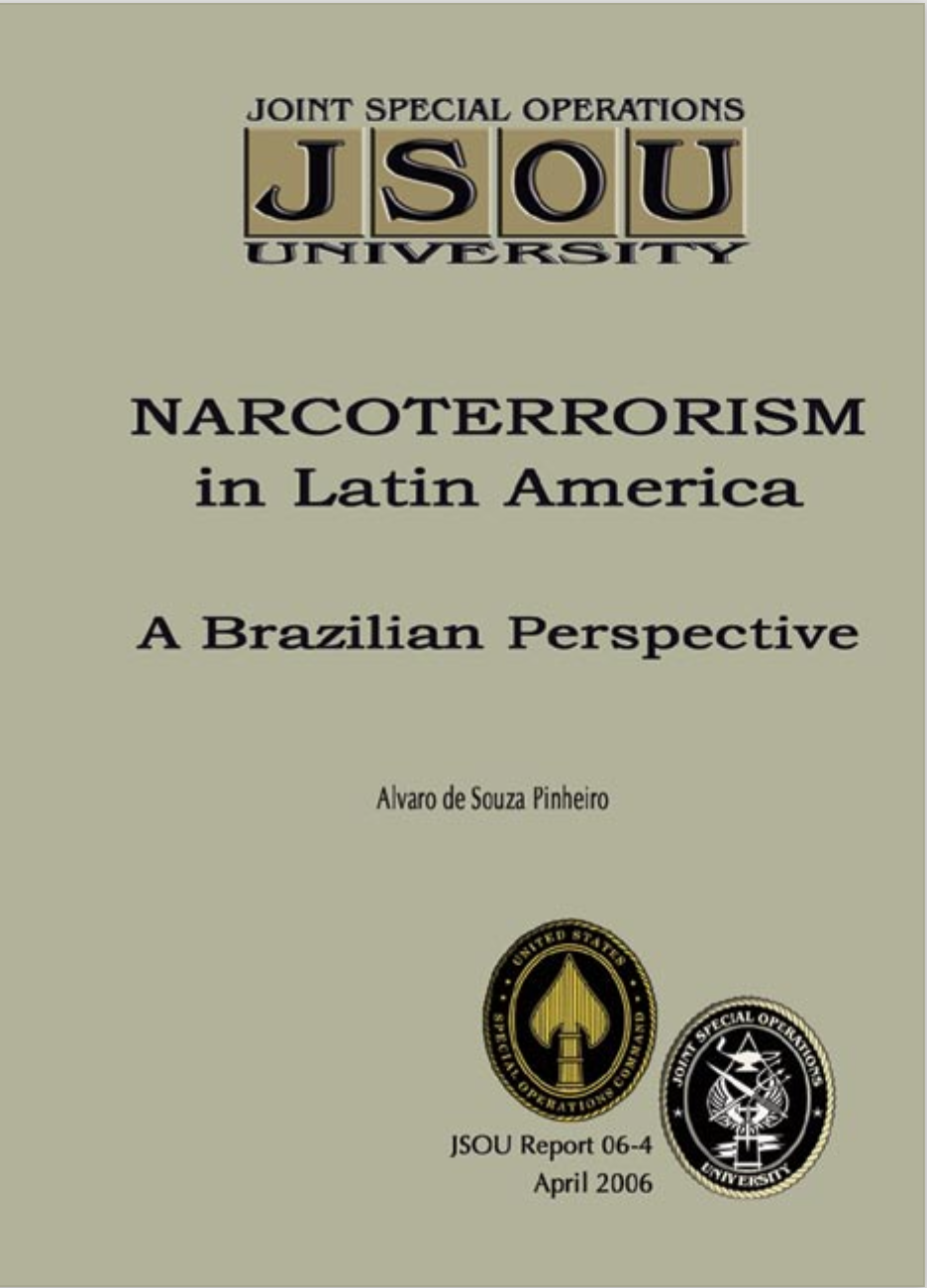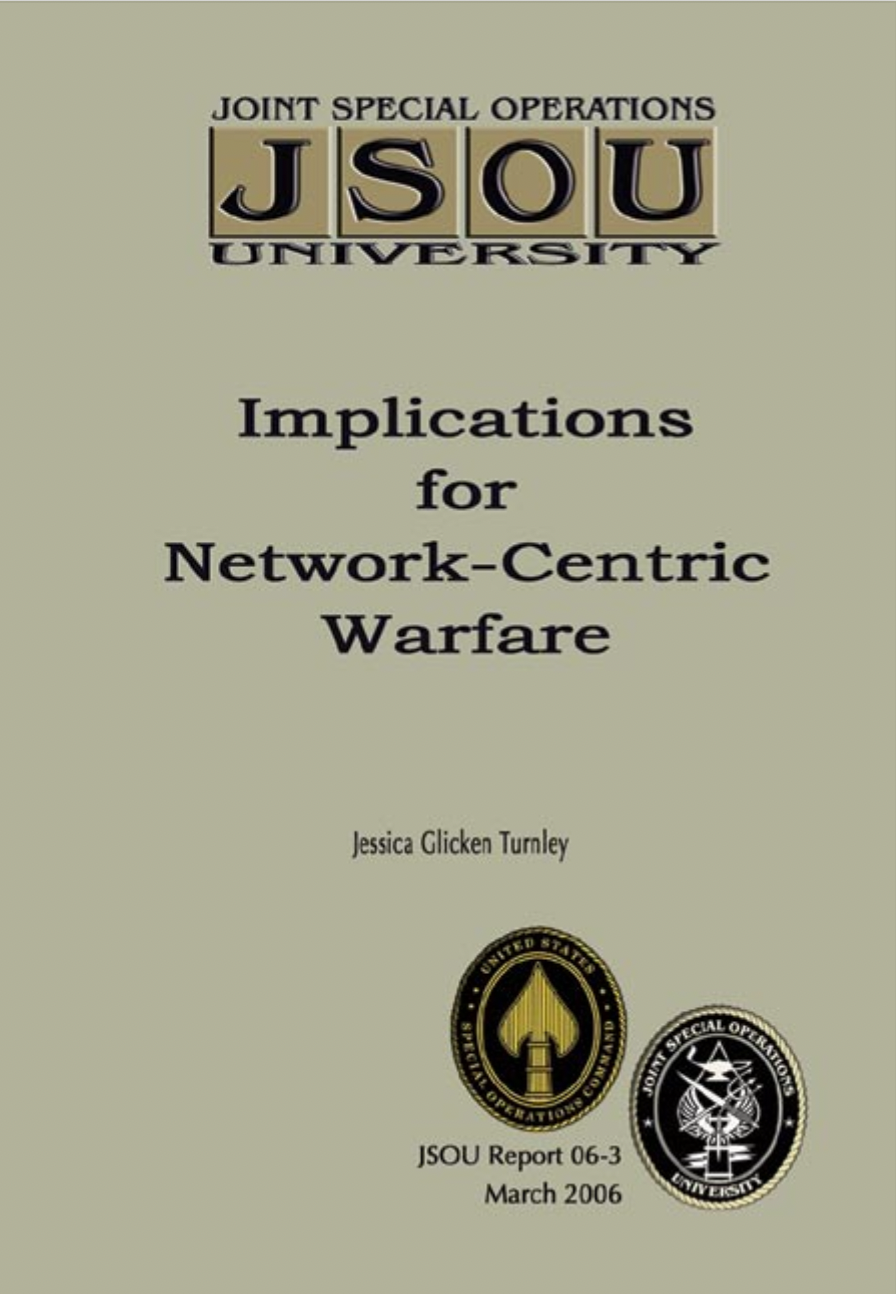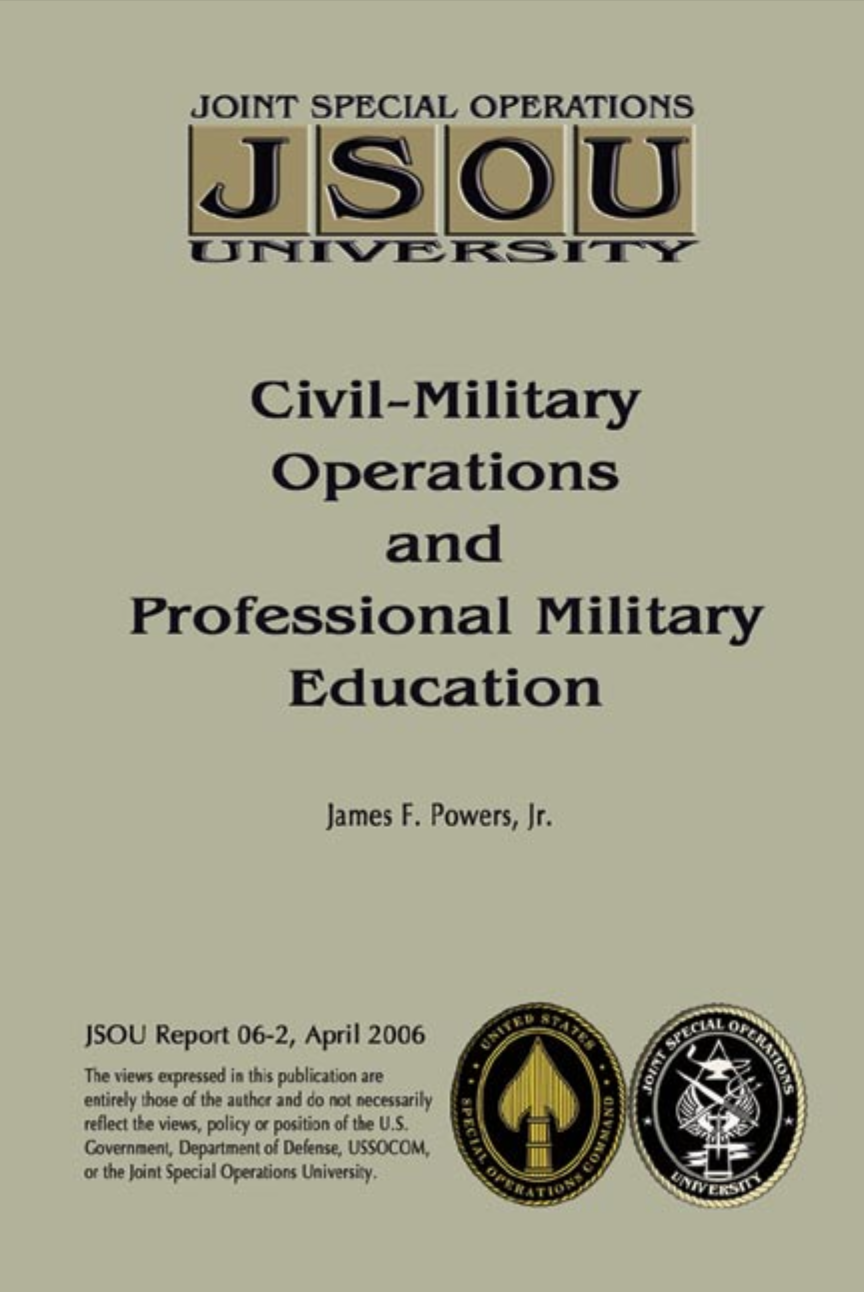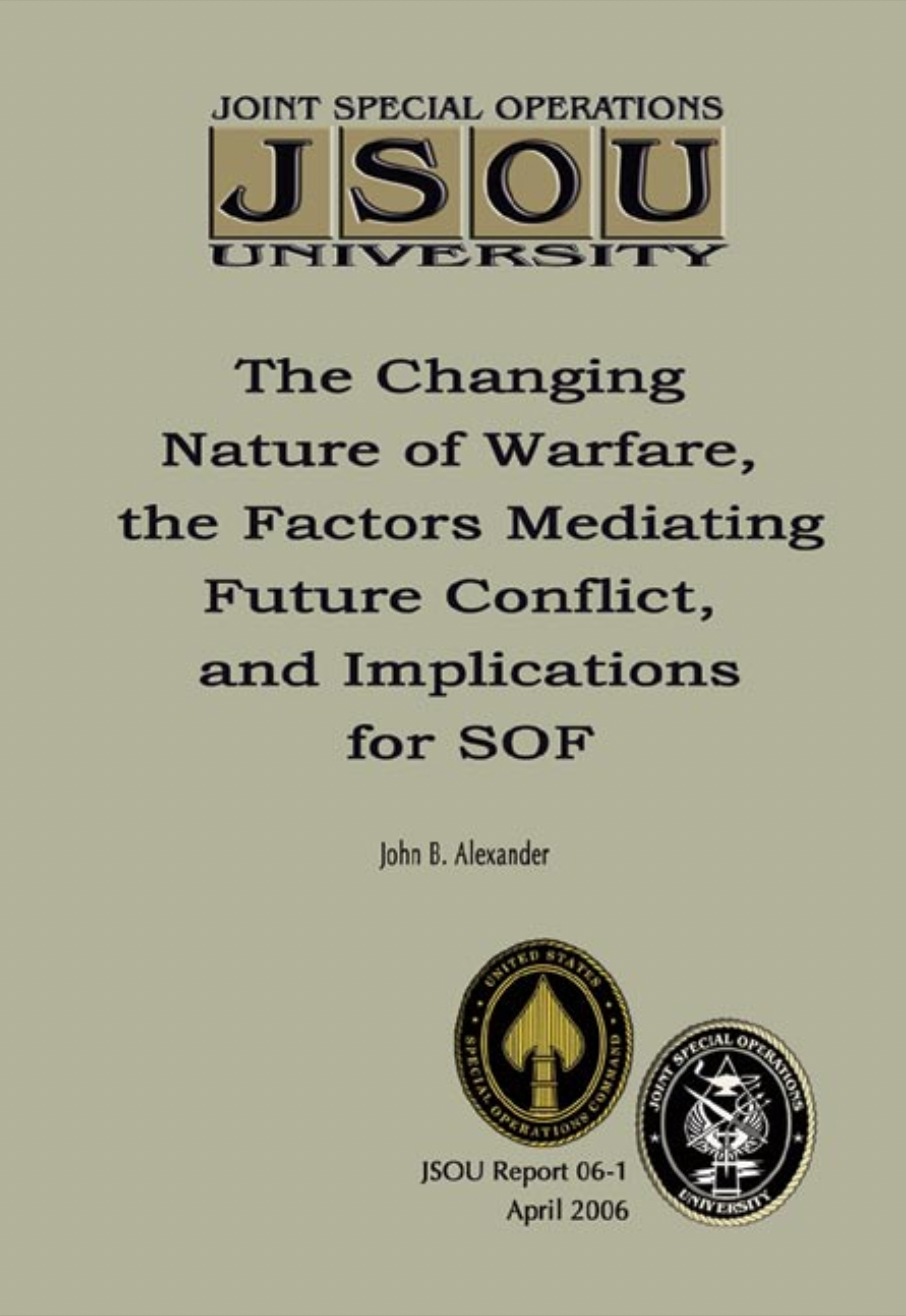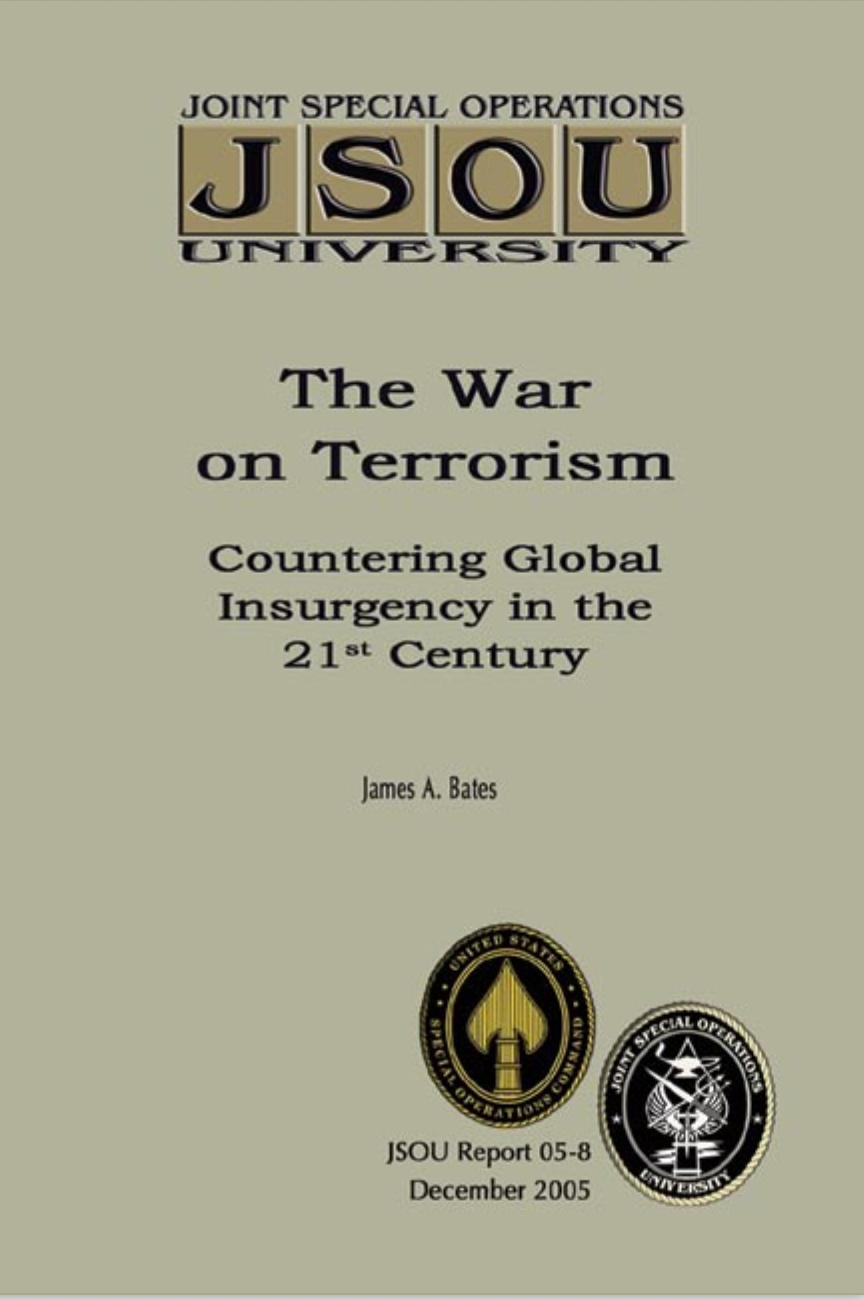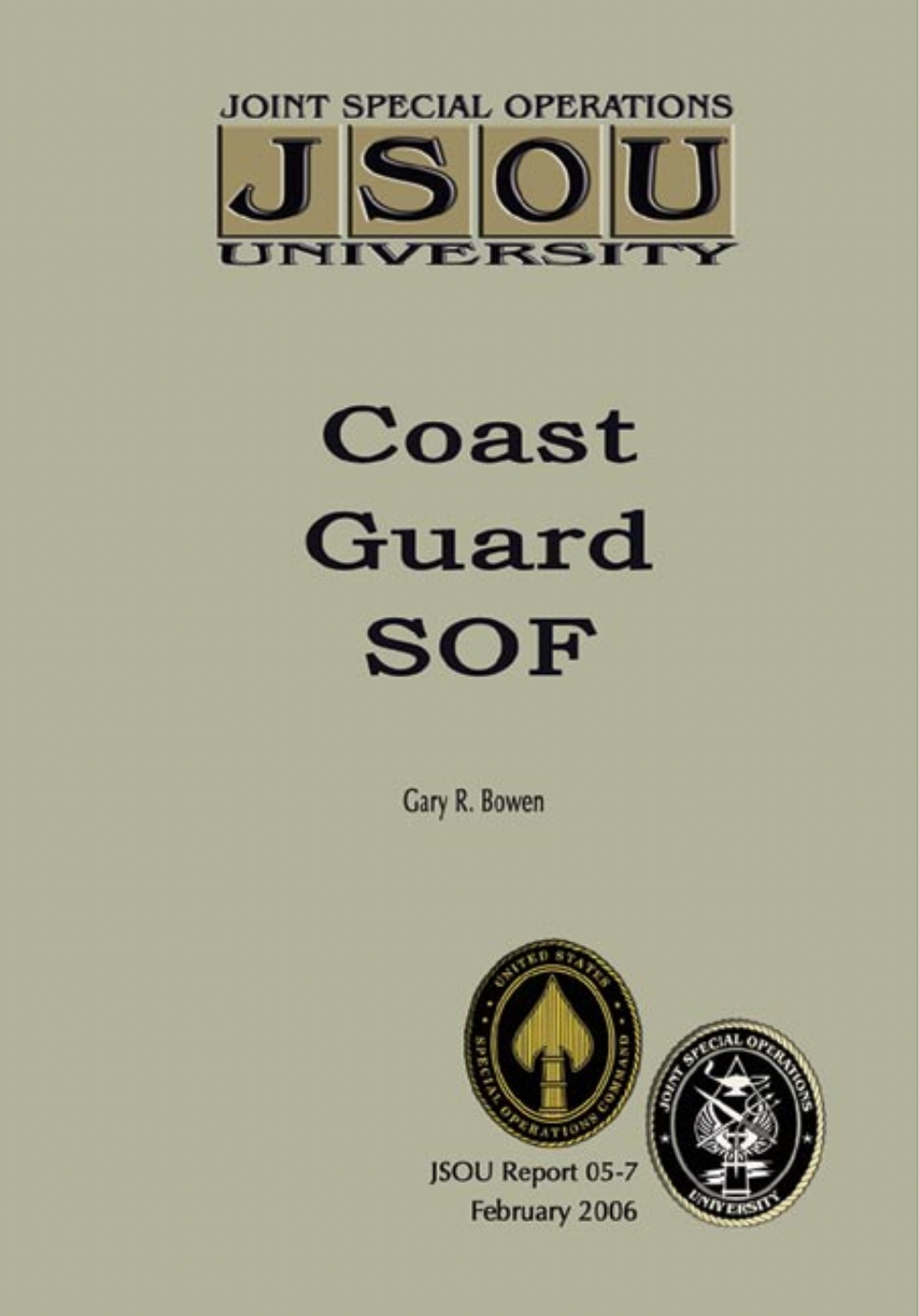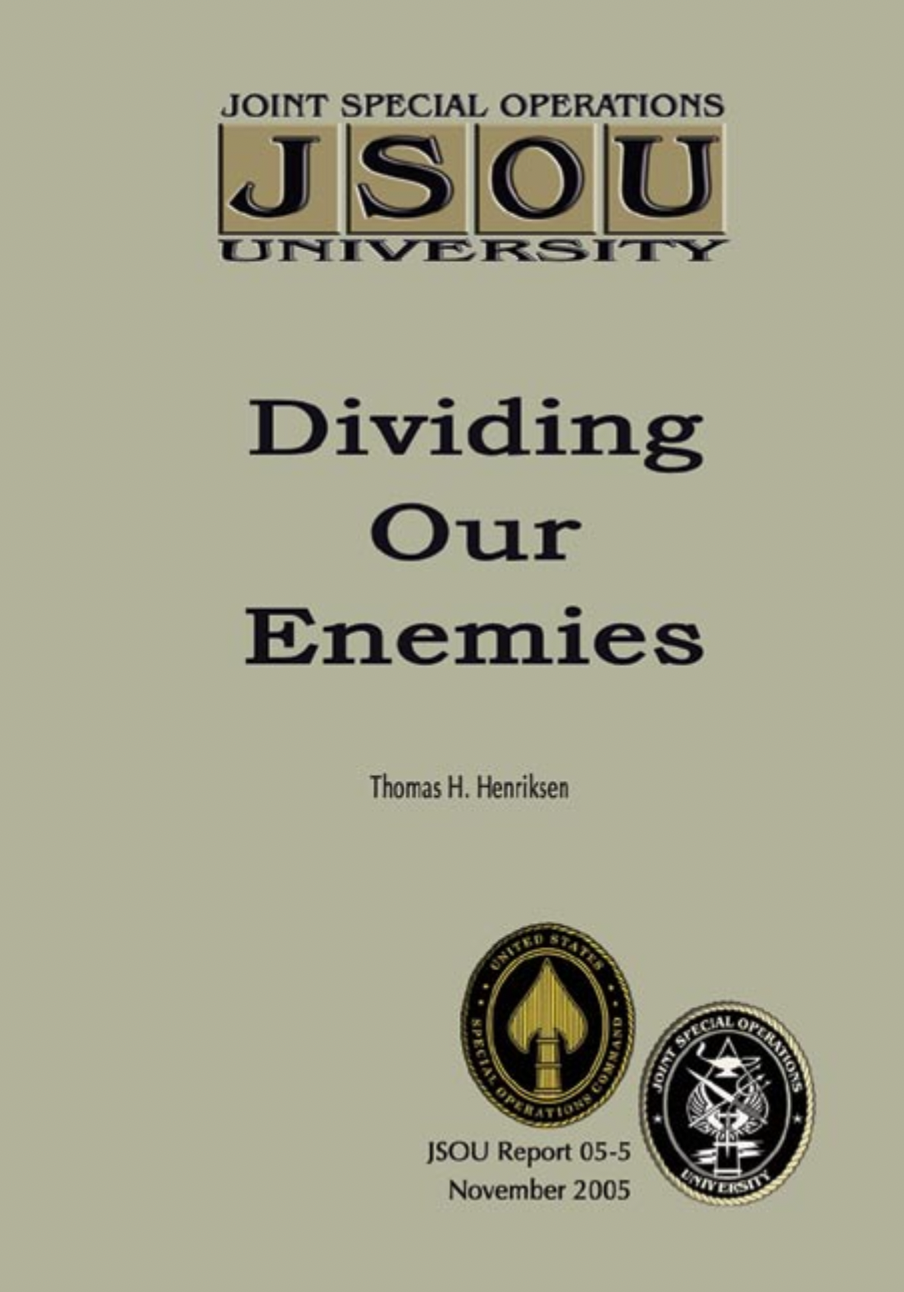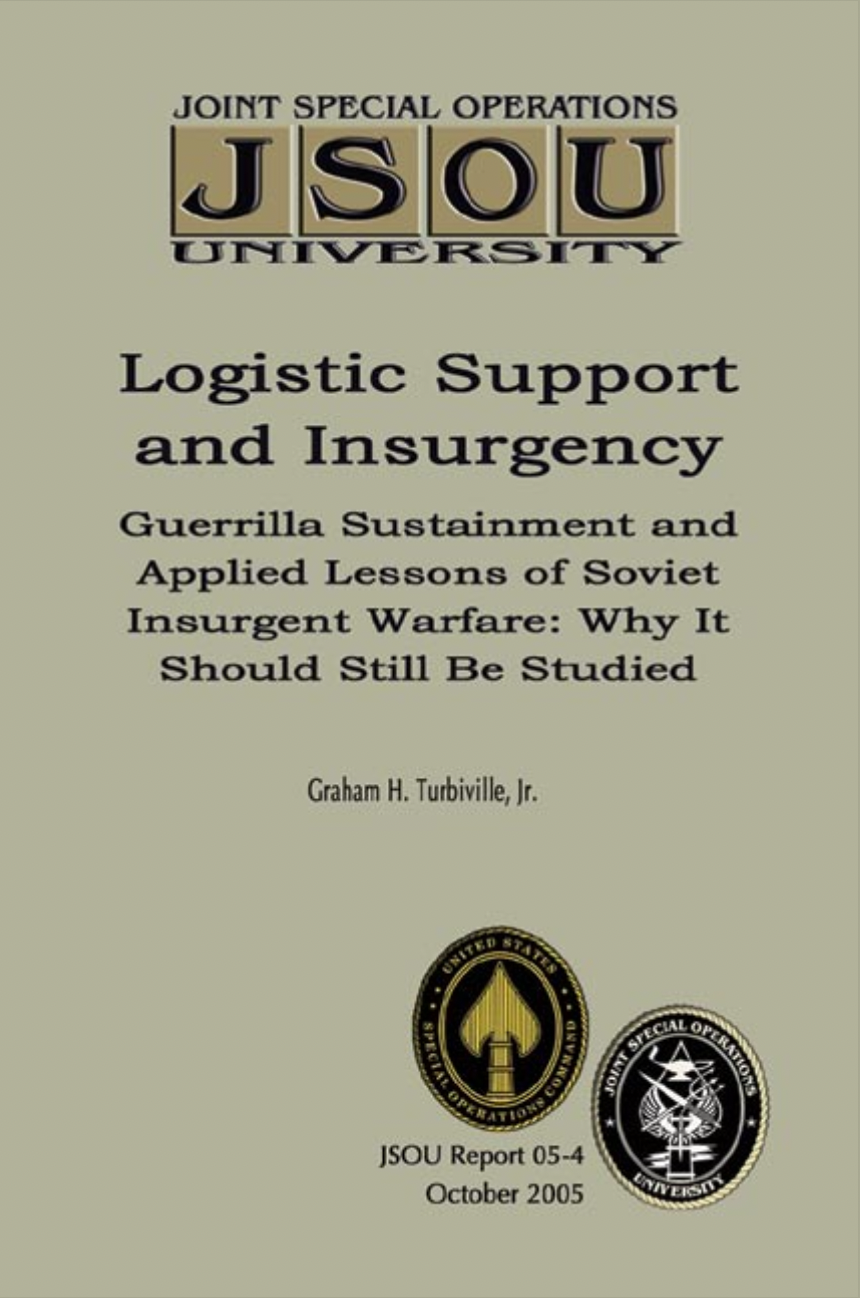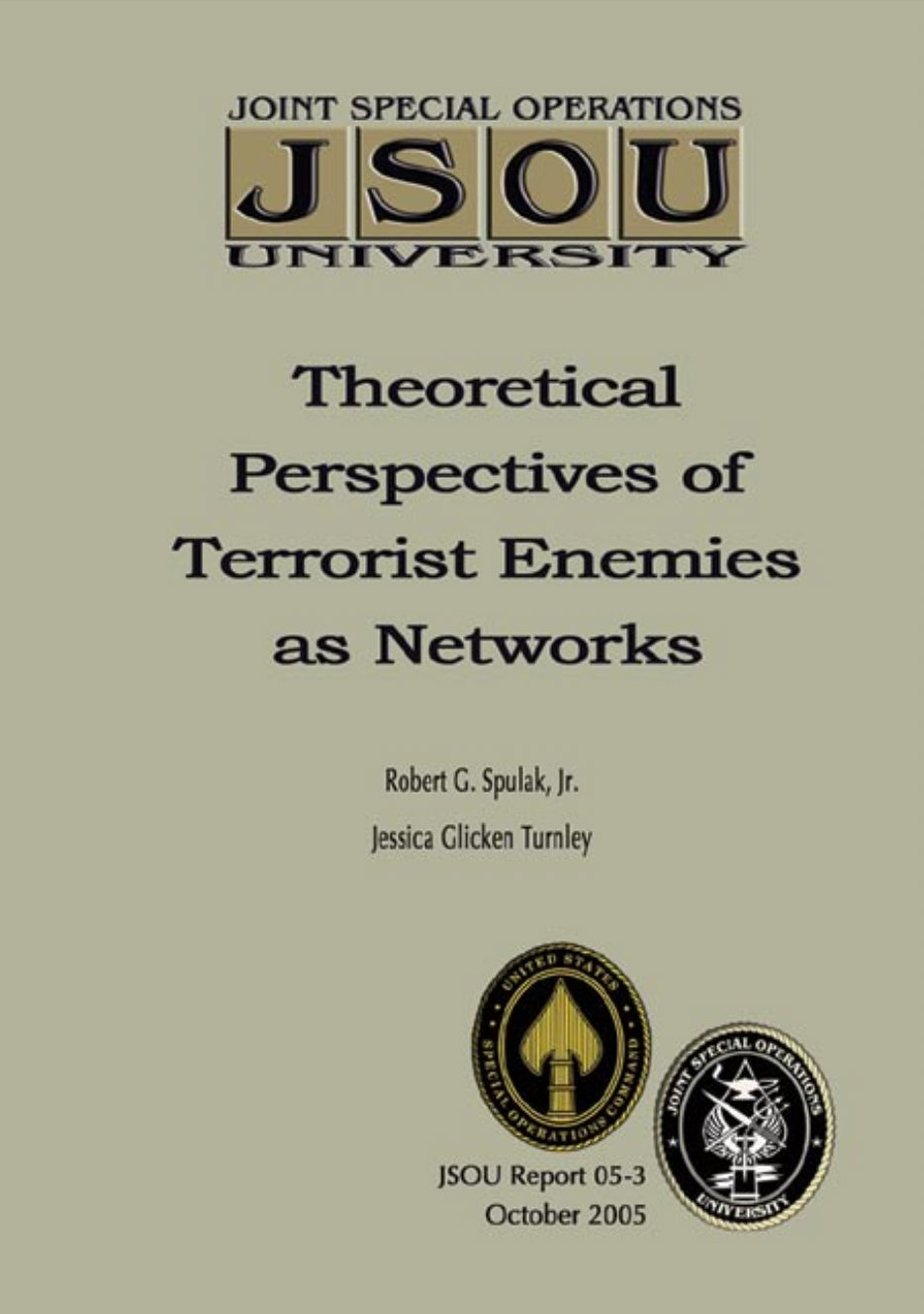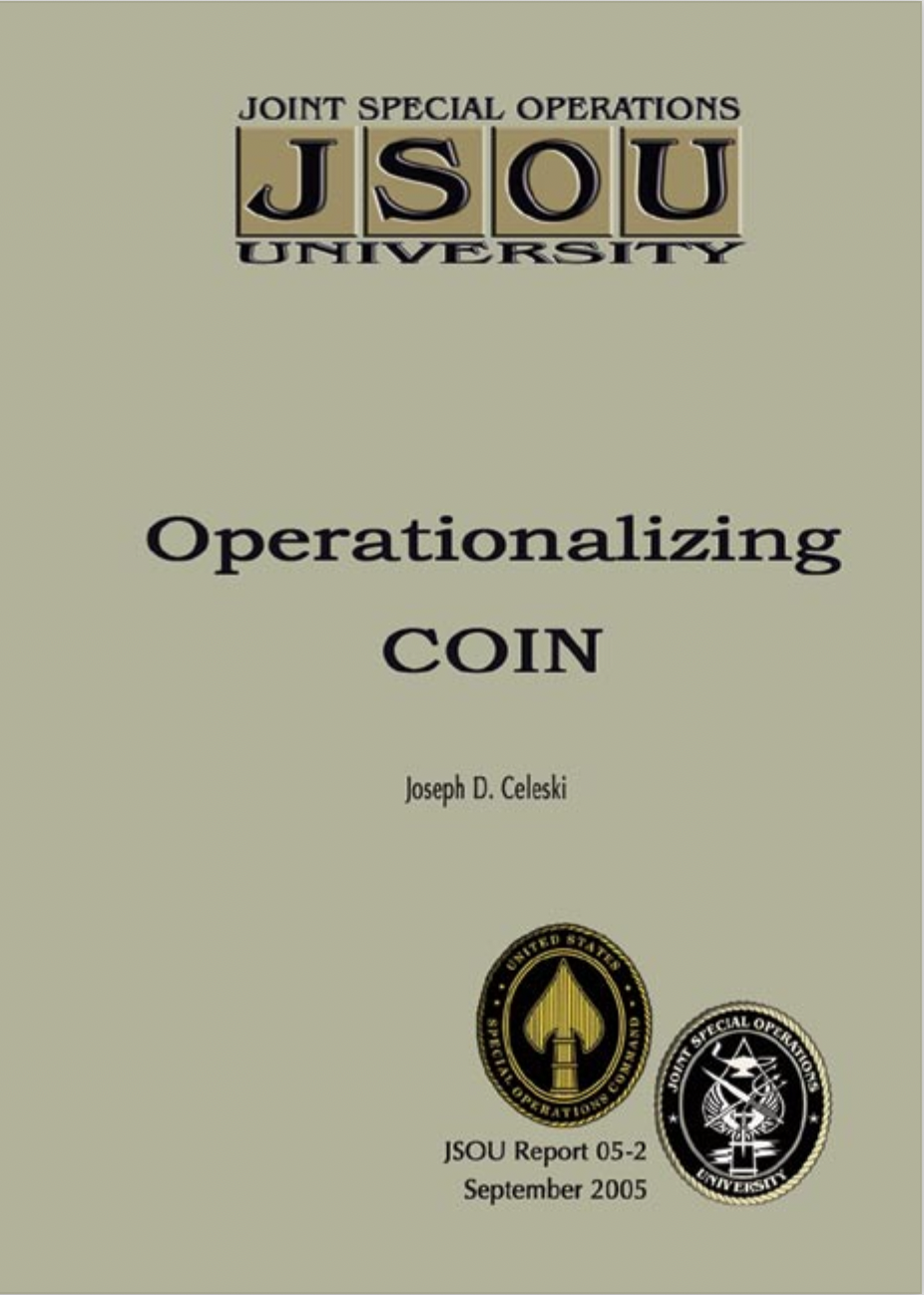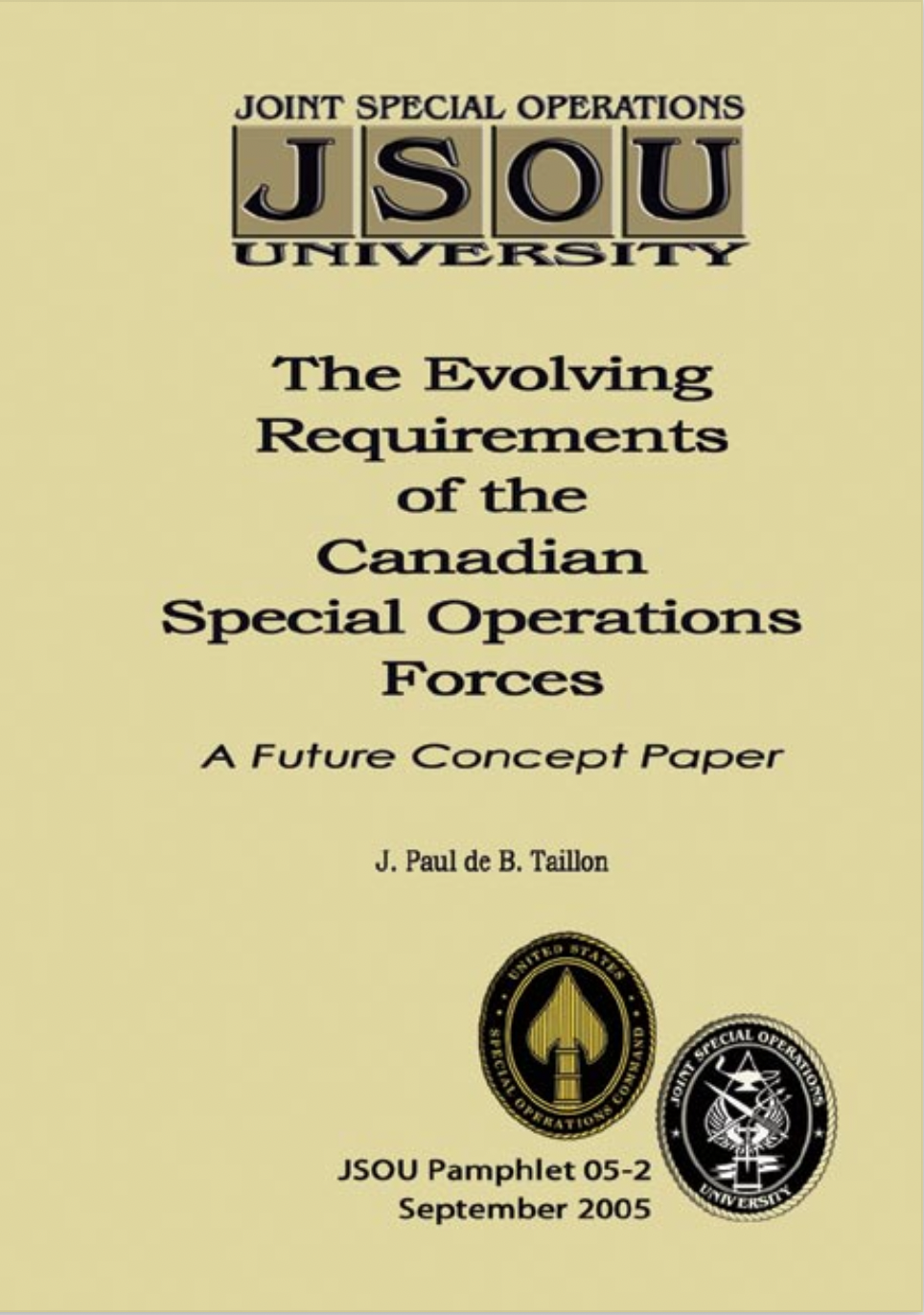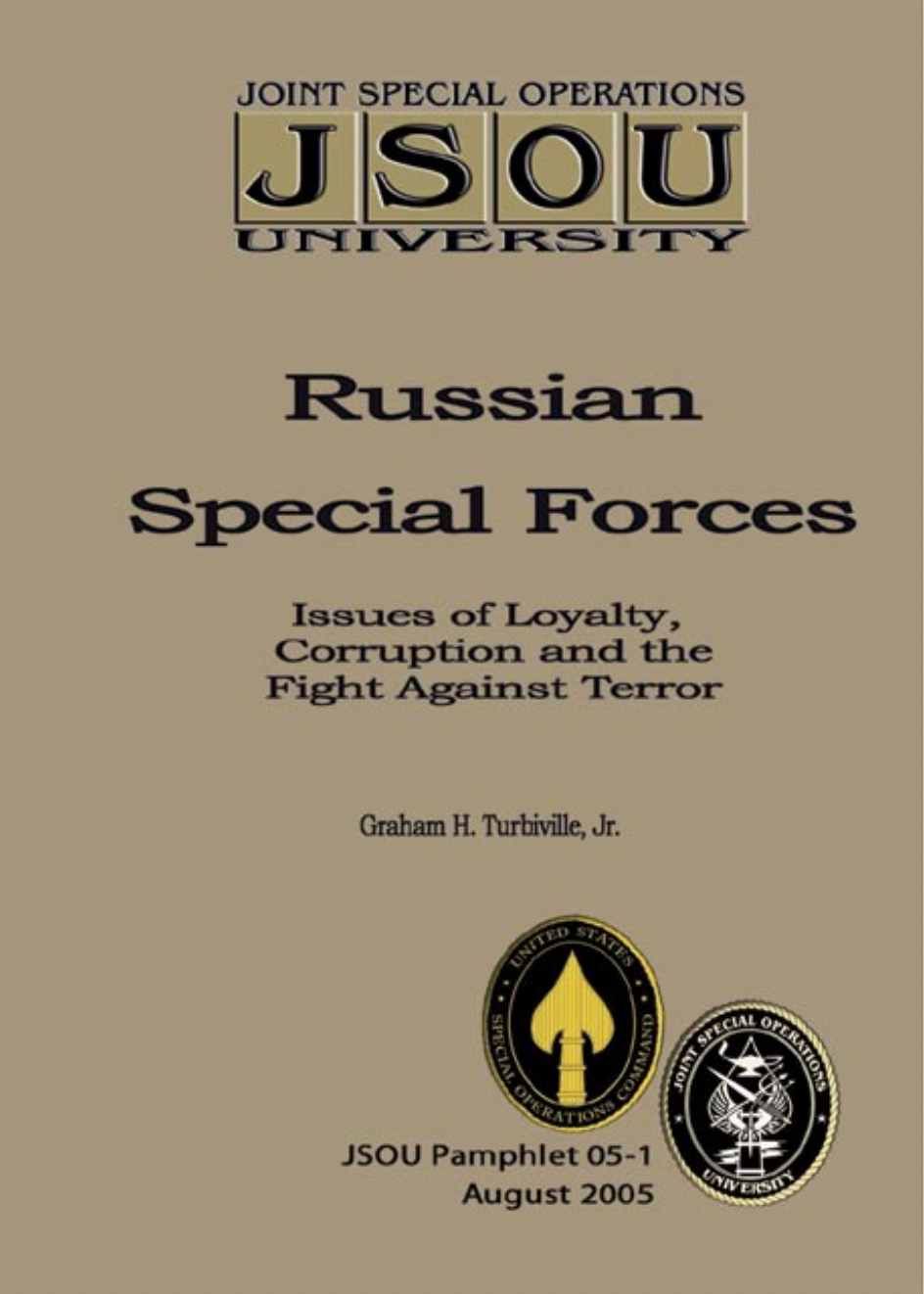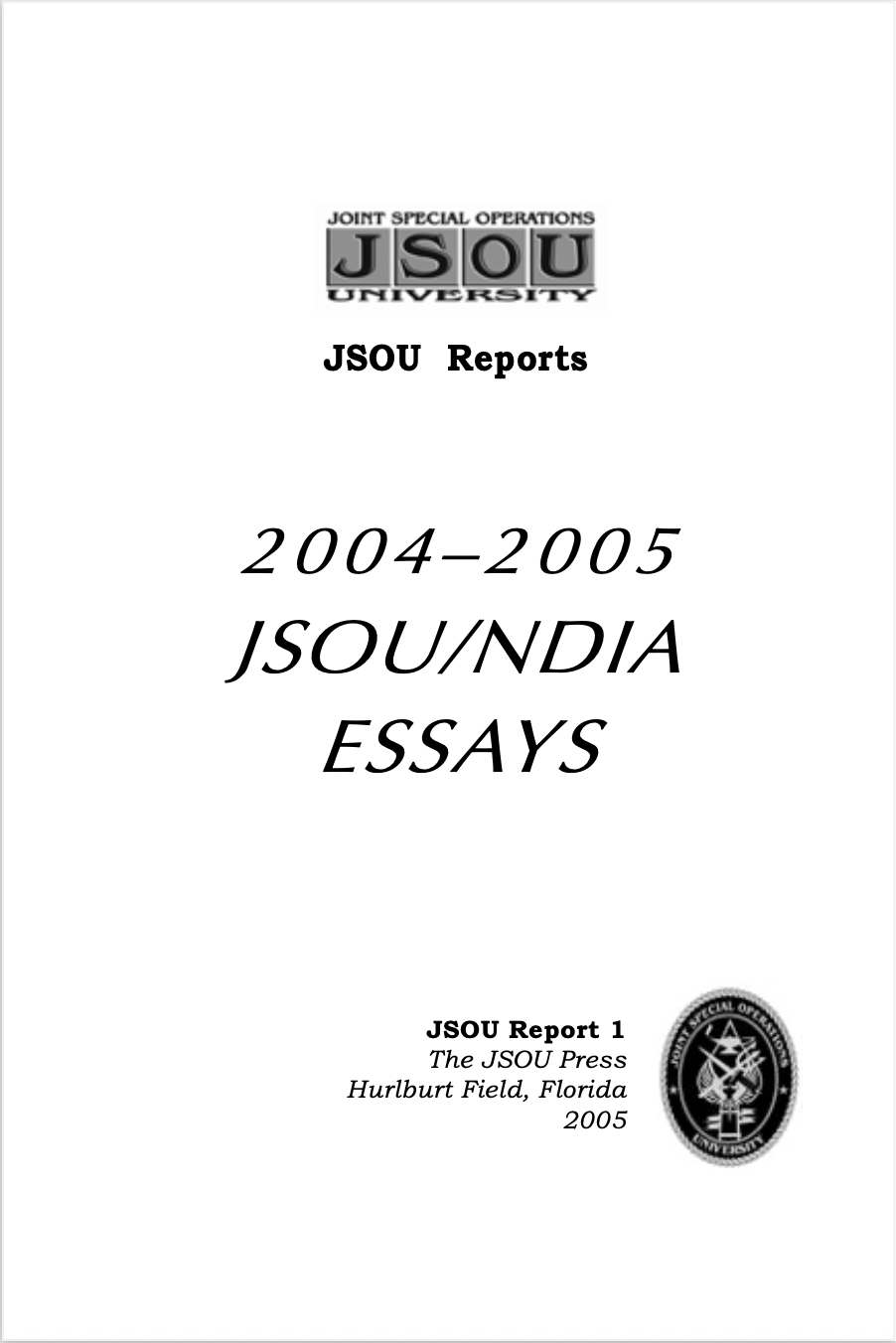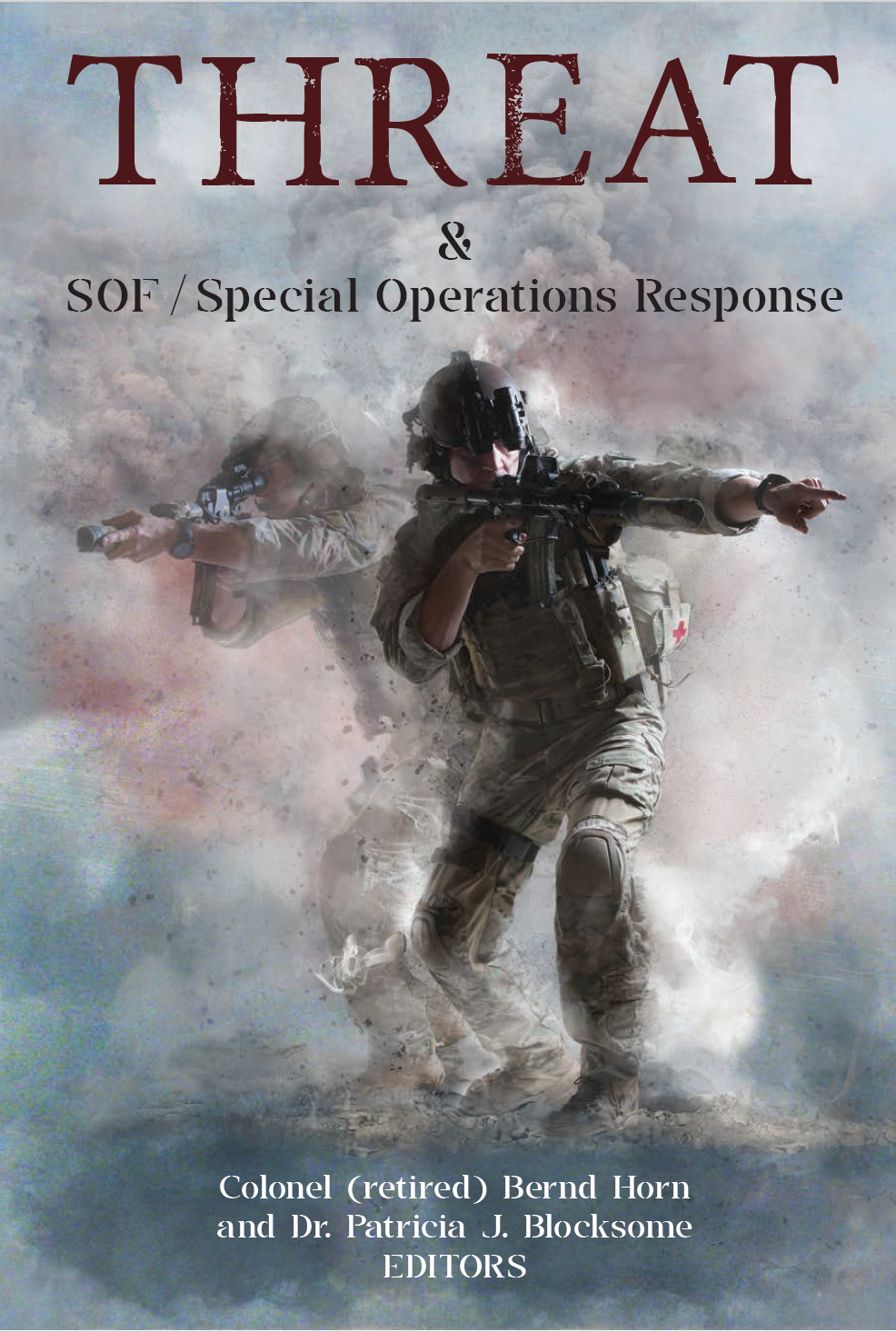Year
Results
The Special Forces Identity Crisis and Rethinking All of Special Operations
Special Operations Forces Enterprise: Strategic Intelligence and Emerging Technology
This report by Sgt. Maj. Erich B. Franck examines how U.S. Special Operations Forces (SOF) must rapidly adapt to a changing global and technological landscape to remain competitive against peer adversaries such as Russia and China. Using the Russia–Ukraine conflict as a case study, the author argues that SOF faces significant blind spots in predicting adversary actions and leveraging emerging technologies and highlights the systemic barriers hindering SOF's ability to integrate these advancements.
Access as a web page by clicking here or on the image below.
|
From Guns for Hire to Military Doctrine: Russia’s Institutionalization of Influence in Africa—Implications and Recommendations for U.S. Special Operations Forces
In From Guns for Hire to Military Doctrine: Russia’s Institutionalization of Influence in Africa—Implications and Recommendations for U.S. Special Operations Forces, author Nadina Ronc analyzes Moscow’s transition from the Wagner Group to the state-run Africa Corps. This shift signals the formal integration of Russian irregular warfare into the Ministry of Defense's chain of command, allowing the Kremlin to combine military support, AI-driven disinformation, and "memory diplomacy" to exploit security gaps in nations like Mali, Libya, and Sudan. By trading regime security for access to strategic resources, Russia has created an elite-centric model that undermines regional stability and challenges Western influence.
To address the evolving security landscape, the monograph
frames a strategic shift for U.S. Special Operations Forces (SOF) toward gray
zone competition and proactive shaping operations. Ronc outlines an adaptable
framework that emphasizes digital reconnaissance, localized influence
strategies, and stronger horizontal networks with African partners to regain
the initiative in contested environments and maintain U.S. credibility through
precision effects and enduring partnerships.
Access as a webpage by clicking here or on the image below.
|
The Emotionally Intelligent Leader: Applying the R.E.A.D. Technique in Military Leadership
In this occasional paper, John F. Cabra and Jordan Alexander introduce the Recognize, Evaluate, Acknowledge, and Direct (R.E.A.D.) framework as a practical method for applying emotional intelligence in military leadership. Joint doctrine emphasizes empathy and emotional competence, and presented empirical evidence links emotional intelligence to improved performance, resilience, and retention. However, there is currently no actionable guidance for leaders to operationalize their skills. Cabra and Alexander propose the R.E.A.D. Technique as a viable solution to fill this gap. By transforming abstract concepts into tactical steps, the approach helps leaders prevent misinterpretations that undermine trust and mission success, ultimately bridging a critical gap in leadership development.
Access as a webpage by clicking here or on the image below.
|
Artificial Intelligence and Military Information Support Operations in Strategic Competition
“Artificial Intelligence and Military Information Support Operations in Strategic Competition” analyzes how AI is fundamentally reshaping cognitive warfare, enabling the automation and amplification of psychological effects at scale in contested environments like Ukraine and the Indo-Pacific. The paper details how US Special Operations Forces (SOF) must embed AI-driven capabilities—such as real-time sentiment analysis and deepfake counter-messaging—into doctrine and strategy to achieve cognitive superiority against adversaries like Russia and China.
Access as a webpage by clicking here or on the image below.
|
Golden Dome: A Special Operations Forces Overview
As hypersonic, cruise missile, and advanced drone technology proliferate, it has led to a pressing strategic challenge: the assumption of North American security can no longer be guaranteed in an era of great power competition. "Golden Dome: A Special Operations Forces Overview" dives into the critical, layered continental defense strategy necessary for these times. This operational roadmap for 21st-century defense reveals how defense architecture hinges on the essential convergence of global Special Operations Forces (SOF), space, and cyber effects—a modern triad poised to secure the homeland. Discover the imperative for SOF to leverage its unique global advantages—from early warning to flexible deterrent options—to overcome combatant command seams, support Project Convergence, and ensure the decision advantage required to shield North America from the full spectrum of modern threats.
Access as a webpage by clicking here or on the image below.
|
Cognitive Warfare to Dominate and Redefine Adversary Realities: Implications for U.S. Special Operations Forces
The battlefield of the future is the human mind, and the very concepts of reality and truth are the target. Cognitive warfare goes far beyond traditional psychological operations; this new form of conflict combines cyber tools, psychological sciences, and neurosciences to alter perceptions and influence decision-making. In this occasional paper, Dr. Jeremiah Lumbaca argues that the U.S. is not yet prepared to face its adversaries using cognitive warfare tactics and proposes a way SOF can evolve to win in this new domain of conflict.
Access as a web page by clicking here or on the image below.
|
Advancing the SOF Warrior Mind: Essays from the Academic Year 2025 JSOU Call for Special Operations Papers
This edited volume contains winning and high-scoring submissions from JSOU's Academic Year 2025 Call for Special Operations program, an inaugural effort with modest expectations. Proving that the SOF enterprise remains engaged in public dialogue and invested in academic scholarship, papers were submitted from operators, enablers, educators, students, and scholars representing a true cross-section of the SOF community.
Topics align with USSOCOM's priorities of PEOPLE, WIN, and TRANSFORM and provide thoughtful research, innovative insights, and creative solutions.
The AY2026 Call for Special Operations Papers efforts is underway. Submissions are due by February 23, 2026. Learn more.
Additional authors: John F. Cabra, Jordan Alexander, Michael Clark, Brian Gould, and Anthony Lawson; Major Christopher Higgins; Dr. Jaime "Jay" Macias; Joseph A. Pastorek; Major William A. Carpenter; John A. Kirbow; Major Ronald J. Lienhardt; Dr. Virginia Massignan, Dr. Carol Kay Winkler, Dr. Ayse D. Lokmanoglu, and Sonny S. Patel; Captain Agung Dwi Pratama; Lieutenant Commander Jordan A. Spector; Commander Karlie Blake, Lieutenant Colonel Jonathan Zannis, and Major Shawn Gutierrez; and J. Brian Pruitt.
Leveraging Contingent Capital as a Non-Traditional Discipline of Economic Warfare
"Leveraging Contingent Capital as a Non-Traditional Discipline of Economic Warfare," introduces the concept of insurfare as a possible new form of irregular warfare. The authors assert how the U.S. Special Operations Forces (SOF) enterprise can employ a unique financial tool—parametric insurance—to counter the growing influence of adversaries in the Global South in the era of Great Power Competition. Unlike conventional aid, this method triggers an automatic payout when a pre-determined event occurs, such as a natural disaster or crop failure. This allows for the swift and targeted delivery of capital, circumventing the typical delays of traditional foreign aid, building trust with local populations, and effectively denying enemies the opportunity to exploit economic vulnerabilities.
Access as a webpage by clicking here or on the image below.
|
Who Are the Green Berets Supposed to Be? Revisiting the Special Forces Identity Crisis
The U.S. Army Special Forces (SF)—better known as the Green Berets—stand at a crossroads. After more than two decades of continuous conflict and evolving mission sets, Special Forces Branch faces a profound question: Who are the Green Berets supposed to be?
Colonel Edward C. Croot's "identity crisis" and the rebuttal by Sergeant Major (Retired) David Shell are not a superficial branding issue. It should be encouraging to Special Forces Branch to see two of its members debating a timely topic rather than allowing outside pundits to examine and attempt to hypothesize critically about the SF Branch.
See also: Mission or Meaning? Rethinking the Identity Crisis in U.S. Army Special Forces by Siamak T. Naficy, PhD, and W5 Maurice "Duc" DuClos.
Access as a web page by clicking here or on the image below.
|
Biosensing Surveillance Technologies: A Quick Guide to Biological Operations Security
Anna M. Gielas, PhD, explores how the human body's
biological emissions can be detected and exploited by emerging surveillance
technologies in the JSOU Press latest Quick Look, "Biosensing Surveillance
Technologies: A Quick Guide to Biological Operational Security." The
concept of biological operations security (bio-OPSEC) is introduced as a new
protective layer. This concept emphasizes understanding, managing, and
deliberately deploying these emissions. Various signatures, including physical,
biochemical, electromagnetic, thermal, sound, and DNA release, are detailed. High-exertion
biosignatures and data from wearable physiological monitors are also covered. Ultimately,
Special Operations Forces (SOF) could leverage bio-OPSEC to disrupt adversary
situational awareness, embedding it into routine SOF training to enhance field
readiness.
Access as a webpage by clicking here or on the image below.
|
Resilience and Resistance: Interdisciplinary Lessons in Competition, Deterrence, and Irregular Warfare
This comprehensive edited volume provides the first canon for SOF, interagency, and conventional forces to understand irregular warfare, competition, and deterrence. The theories and concepts provide insights for students and practitioners to appreciate the dynamics of intrastate conflict as well as internationalized intrastate conflict. It adds new research highlighting the asymmetric strategies of adversaries to subvert the world order, including the malign activities of the CCP, Russia, North Korea, Iran, and violent extremist organizations.
Practitioners can use this information to inform campaign planning as well as contingency plans.
Part I provides foundations in resilience and resistance and includes chapters on military science, political science, sociology, and history (including case studies of Cuba, Laos, Tibet, and Colombia).
Security Cooperation and Special Operations Forces: Training and Education Are Needed Now More than Ever
Colonel (Retired) John E. Chere, Jr.'s commentary stresses the vital need for specialized security cooperation (SC) training within Special Operations Forces (SOF). With increased scrutiny on foreign assistance programs, SOF practitioners require unique knowledge and procedures to effectively justify programs and align them with national interests, addressing a current gap in their application of skills within the SC environment. To meet this demand, Joint Special Operations University (JSOU) developed a SOF-SC course in 2013, educating personnel on legal foundations, integrative strategies, interagency roles, and contributions to foreign military sales and international training. This five-day course, available in-residence and virtually, has trained over 1,300 students and consistently receives high evaluations, underscoring its significant impact.
Access as a webpage by clicking here or on the image below.
|
Special Operations Research Topics 2026
USSOCOM's unconventional approach to global challenges applies today more than ever. There is a renewed relevance of SOF with emphasis on a flexible formation ready to address whatever threats face the nation.
SOF-peculiar education, research, scholarship, and innovation remain increasingly high in demand, and education and research must work in tandem to equip SOF professionals with the intellectual tools needed for success. The 2026 Special Operations Research Topics (SORT) booklet offers peer-developed and peer-reviewed research themes that support USSOCOM enduring priorities and keep SOF thought leadership at the tip of the spear.
Mission or Meaning? Rethinking the Identity Crisis in U.S. Army Special Forces
The U.S. Army Special Forces (SF) are not suffering an identity crisis; they are experiencing a strategic fracture of meaning. Originally designed to fill a niche no other force could—operating with and through indigenous partners in denied or politically sensitive environments—the Green Berets are now often celebrated for their kinetic capabilities, indistinguishable from other direct-action Special Operations Forces (SOF). This shift is more than mission creep—it is meaning creep: the erosion of the shared narrative, internal coherence, and incentive structures that once unified the Regiment.
This article synthesizes arguments from Colonel Edward Croot and Sergeant Major (Ret.) David Shell with insights from organizational theory, anthropology, and history to argue that SF’s core challenge is not one of confusion, but of existential drift.
See also Lieutenant Colonel (Ret.) Greg Metzgar's take on the topic here.
Access as a webpage by clicking here or on the image below.
|
Foreseeing Inroads to Instability: JNIM’s Expansion in West Africa
Christiane Thompson reveals how JNIM exploits governmental vulnerabilities, local discontent, and economic hardships to gain territorial control and establish illicit supply chains throughout West Africa.
This is part two of a two-part series. For more information, check out JSOU Quick Look Fertile Ground for Extremism: JNIM’s Territorial Expansion from Mali into Burkina Faso Through a PMESII-PT Lens.
Access as a webpage by clicking here or on the image below.
|
Tip of the Spear, Edge of the Mind: Neurotechnology’s Roles in the Future of Special Operations
Rapid advancements in neurotechnology, particularly brain-computer interfaces (BCIs), present unprecedented opportunities that could amplify the inherent strengths of Special Operations Forces (SOF) operators. This emerging field has the potential to enhance cognitive and physical capabilities, leveraging unique aspects of the human mind to improve situational awareness, decision-making, and physical performance. Such cutting-edge technologies are seen as crucial for potentially redefining mission capabilities and securing a decisive advantage in future conflicts. However, integrating these sophisticated systems demands careful consideration, balancing immense potential with challenges like training and ethical implications. Ultimately, the goal is to ensure technology could serve both the mission and the warrior, fostering dynamic human-machine teaming that might bolster human skill, creativity, and adaptability, maintaining the agility and operational superiority defining special operations.
Access as a web page by clicking here or on the image below.
Fertile Ground for Extremism: JNIM's Territorial Expansion from Mali into Burkina Faso Through a PMESII-PT Lens
Using the PMESII-PT framework and highlighting struggles with weak governance, frequent coups, and widespread poverty, Christiane Thompson analyzes how Jamaat Nusratul Islam wal-Muslimin (JNIM), an al-Qaeda affiliate, has exploited Mali's and Burkina Faso's environments to expand its influence.
This is part one of a two-part series. Continue reading in JSOU Quick Look Foreseeing Inroads to Instability: JNIM’s Expansion in West Africa.
Access as a webpage by clicking here or on the image below.
|
Special Forces Does Not Have an Identity Crisis, SOF Has a Special Forces Identity Problem: A Response to Colonel Croot
In this rebuttal to Colonel Croot's monograph, There Is an Identity Crisis in Special Forces: Who are the Green Berets Supposed to Be?, Retired Sergeant Major David Shell challenges the report's claims of an identity crisis within Special Forces (SF). Shell argues against assertions of low morale and mission drift, emphasizing the diverse and adaptable nature of SF missions—underscoring the unique subcultures within SF and the need for leadership to better understand and represent the values and experiences of their soldiers.
Access as a web page by clicking here or on the image below.
|
Special Operations Forces Moral Injury Fact Sheet
Many SOF warriors are unfamiliar with the term or concept of moral injury. This new fact sheet from Special Operations Chaplaincy Advanced Courses Director John E. Caterson provides an overview of the definition, categories, causes, and symptoms of moral injury and explains how it is different from post-traumatic stress disorder.
Updated September 2025.
Understanding Hybrid Warfare: Great Power Competition and Conflict in the New Era
The final publication for Canadian Special Operations Forces Command's Education and Research Centre, this monograph examines the modern theoretical development of hybrid warfare; reviews key events that highlight specific aspects of hybrid warfare to provide readers with a better understanding of the practical application of this type of warfare and how it could play out; and offers recommendations on what Western governments could do to prepare for, and mitigate, the effects of this type of conflict.
Shared with permission from the CANSOF Education and Research Centre.
SEEC and You Will Find: The Need for a SOF Enterprise Education Catalog
Special Operations Forces (SOF) military and civilian personnel supporting United States Special Operations Command require access to specialized, focused education to enable success in a rapidly changing environment. The development of a SOF Enterprise Education Catalog (SEEC) would quickly inform personnel of education opportunities, optimize existing avocational education toward organizational mission needs, assess critical education gaps, and identify redundancies to achieve greater efficiency educating the force.
This article was selected as the winner of the JSOU Academic Year 2025 Call for Special Operations Papers, Category III (Academic Faculty and Civilian Scholars).
Access as a web page by clicking here or on the image below.
|
Reframing Homeland Defense: The Case for Restructuring an Outdated Security Construct
This essay examines new national security priorities and policy and argues for a restructuring of NORTHCOM and SOUTHCOM to clarify authorities, eliminate redundancies, and position the U.S. for future security challenges while marshalling SOF competencies to leverage capabilities.
Note: This article was selected as the winner of the JSOU Academic Year 2025 Call for Special Operations Papers, Category II (Active Duty Servicemembers and Professional Military Education Students).
Access as a web page by clicking here or on the image below.
|
Developing a Special Operations Forces Multidimensional Ethics Scale
Ethics in Special Operations Forces (SOF) is an ongoing topic of interest within the Special Operations Enterprise. The SOF Multidimensional Ethics Scale, or SOF MES, integrates the ethical dimensions of moral equity, relativism, and contractualism and uses the five SOF Truths to provide a comprehensive framework for decision-making. The SOF MES provides a foundational understanding of the ethical dimensions and their application in SOF-peculiar scenarios.
This article was selected as the winner of the JSOU Academic Year 2025 Call for Special Operations Papers, Category I (Joint Special Operations Forces Senior Enlisted Academy [JSOFSEA] Students).
Access as a web page by clicking here or on the image below.
|
From Pirates to Power Plays: Geopolitical Strategies and Maritime Security in the Gulf of Guinea and Beyond
The Gulf of Guinea, a critical maritime region, has long been plagued by piracy and other security challenges. In this second part of a two-part series, JSOU Professor Christiane Thompson delves into the intricate dynamics of geopolitical strategies and their impact on maritime security, exploring the multifaceted efforts to combat piracy and ensure safe and secure waters for global trade.
For part one, check out JSOU Report 25-5: Gulf of Guinea: A Primer.
Access as a web page by clicking here or on the image below.
|
The Gulf of Guinea: A Primer
In this Quick Look, JSOU professor Christiane Thompson introduces readers to the Gulf of Guinea (GoG), provides a brief overview of the struggles faced by the area, and discusses SOF's role in developing the GoG's defenses.
This is part one of a two-part series. For more information, check out upcoming JSOU Report 25-6: From Pirates to Power Plays: Geopolitical Strategies and Maritime Security in the Gulf of Guinea and Beyond.
Access as a web page by clicking here or on the image below. Audiobook also available.
|
In Denied Areas: Lessons from the British Special Operations Executive and Jedburghs
“Surprise, kill, and vanish,” motto of the World War II Jedburgh teams, captures the essence of how units successfully operated in a location comparable to a modern-day police state.
The latest JSOU Press occasional paper, In Denied Areas: Lessons from the British Special Operations Executive and Jedburghs by Major Mark Thomas and Benjamin Jensen, PhD, thoughtfully explores how through proper preparation of environment and communications security, the Jedburghs’ mission—infiltrating deep into Nazi-occupied France to support the allied Normandy invasion—offers important historical examples for battlefield survival still applicable today.
NEW! Occasional Paper PDF and audiobook now available!
Access as a web page by clicking here or on the image below.
|
The Northern Flank: The Arctic--Implications for SOF
The Arctic has become a region of opportunity, but also competition. Moreover, operating in the Arctic is replete with monumental challenges. Therefore, as the global Great Power Competition (GPC) continues, SOF will become an increasingly important player in the High North.
This new edited volume published by Canadian Special Operations Forces Command is intended to provide perspective and insight into SOF’s roles and challenges as it navigates the murky gray zone of hybrid warfare in competition and conflict, as well as preparing for high-intensity war should regional conflagrations erupt into a global war.
Red Teaming: A Tool to Conduct Risk Assessment, Develop Critical Thinking, and Challenge SOF Strategic Planning Assumptions
Risk assessment is touted as a critical aspect of strategy development. But in practice, it is often tacked on and examines risks inherent in an environment rather than what it is meant to examine: whether a strategy itself contains flaws. This new quick look examines the importance of critical thinking and risk assessment in red teaming and suggests an update to joint doctrine to ensure varied cognitive perspectives.
Access as a web page by clicking here or on the image below.
|
Navigating the Transition: The Role of Purpose, Tribe, and Excitement for U.S. Special Operations Forces Veterans
U.S. Special Operations Forces are known for their exceptional skills, resilience, and dedication. Their missions demand physical, mental, and emotional strength. However, one of the most significant challenges they face is the transition from active duty to civilian life.
This commentary by JSOU instructor and course director Joseph S. Rossi explores ways SOF veterans and retirees can find a new sense of purpose, regain the camaraderie of a tribe, and satisfy the need for excitement for a successful transition and life after military service.
Access as a web page by clicking here or on the image below.
|
SOF Effectiveness in Strategic Competition: Insights for West Africa and Beyond
The focus of SOF in strategic competition should be to pursue activities that change the competitor's behavior, reduce or eliminate their influence in a given region, and increase the relative influence of the United States. This monograph provides a definition of "effectiveness" in strategic competition missions in West Africa. A literature review of doctrine and analytical pieces, along with expert interviews, led to the construction of themes for use by strategists, planners, and policymakers working with SOF in West Africa. It includes information about SOF tools for strategic competition and the use of SOF for strategic competition in West Africa and offers specific recommendations for use with USSOCOM and SOCAF.
Access as a web page by clicking here or on the image below.
|
Narrative Intelligence in Internet-Based Military Information Support Operations: A Cyberpsychology Perspective Under the Irregular Warfare Construct
In the digital age, misinformation has become a pervasive challenge, particularly in the context of military information support operations (MISO).
Conceptualizing narrative intelligence as a critical tool in countering misinformation within the irregular warfare construct—and examining the role of cyberpsychology in shaping narrative strategies—allows for insight into the effective deployment of narrative intelligence in internet-based MISO.
This study highlights the advantages of narrative in misinformation operations, including emotional connection, memorability, contextualization, counternarratives, community building, and adaptability.
Access as a web page by clicking here or on the image below.
|
There is an Identity Crisis in Special Forces: Who are the Green Berets Supposed to Be?
In struggling with the effects of "mission drift" for two decades, Special Forces have drifted away from complex, long-duration partnerships toward more linear, short-term, transactional combat operations. There is subsequently an identity crisis in Special Forces, and it is influencing the behavior of Green Berets. This study earned author Col. Edward Croot the U.S. Army War College Colonel Francis J. Kelley Special Operations Writing Award.
As of May 16, 2025, a rebuttal to Col. Croot has been published by the JSOU Press. To read the response by Retired Special Forces Sergeant Major David Shell, please click here.
Russia's Syria Policy: From the Soviet Union to the Russian Federation
The bond between Russia and Syria weaves through the centuries, evolving from ancient ties into the complex, multi-faceted relationship we see today. This monograph examines how the relationship between Russia and Syria has evolved–from its roots through the cold war and rise of the Assad dynasty to the Syrian civil war and beyond.
Unveiling Pervasive Patterns of Violence in West Africa
The increase in violence in the Sahel region is indicative of a complex and diverse security environment driven by multiple factors, including, but not limited to, the activities of violent extremist organizations.
China and Russia in West Africa: A Tale of Two Powers and Their Quest for Dominance
China’s influence in Africa is pervasive, and Russia has re-engaged in West Africa following its February 2022 invasion of Ukraine. Russia’s and China’s engagement in West Africa has important implications for the region’s balance of power, security, and alliances.
Access as a web page by clicking here or on the image below.
|
The New Way of Limited Warfare: The Value of the Afghan Model of Warfare After the Fight Against ISIS
Counterintelligence Quick Look
Counterintelligence is often referred to as a mission, an intelligence discipline, or a function. This fact sheet seeks to clarify the role, function, and mission of counterintelligence within the Joint Force and SOF enterprise.
Improving SOF Ethics Education
The realities of human nature combined with the realities of the SOF operational environment create frequent opportunities for SOF professionals to become numb to moral drift and the ethical dilemmas that follow from a norm where “if you ain’t cheatin’, you ain’t tryin’!” takes on an institution-wide leadership problem for SOF professionals across the joint force and across the operational spectrum. This reality requires SOF leaders who recognize the reality that the SOF profession offers its own peculiar professional and ethical challenges and leaders who are professionally ready to lead in such highly complex ethical decision-making environments.
Competing for Advantage: The Chinese Communist Party, Statecraft, and Special Operations
This edited volume highlights key challenges the Chinese Communist Party (CCP) faces in its rise and contextualizes the potential contributions of special operations to compete for advantage based on the CCP’s interests and vulnerabilities. Competing for advantage means accruing power and influence in such a way that the adversary’s plans cannot be realized. This volume focuses primarily on appreciating the CCP’s worldview, interests, and politics while promoting a strategic vision for the future—a future where SOF will need to reinterpret their value from providing a military effect to providing a political effect through military means.
Special Operations Research Topics 2024
As special operations adapt and evolve to meet new challenges, SOF need to prepare themselves and be employed in new and unique ways. The questions posed in the Special Operations Research Topics 2024 booklet address many of these complex challenges and invite research into the intersection of human past and emergent technology. The nearly 40 research topics, each including several sub-questions, range from compound security threats in the Sahel to the Russian and Chinese ways of irregular warfare in an effort to facilitate research and writing across professional military education, academia, and the joint force.
The Fourth Age: The Future of Special Operations
This anthology of fictional stories helps us visualize a future era of special operations. Through their creative talents and subject matter knowledge, the authors realistically portray what is within the realm of possible. They draw upon lessons of the past while imagining the future.
Stress: New Approaches to Managing Stress
This Quick Look challenges how a SOF operator perceives stress, and illuminates the advantages of doing so.
Stress: Understanding Its Mechanisms and Impacts
Stress is constant for Special Operations Forces (SOF). Although there is
some evidence SOF are more resilient than the general population, even they
can be impacted by stress. Stress can affect their physical and cognitive
performance, team interactions, and well-being.
The Compound Era of U.S. Counterterrorism
Operating on the Margins: SOF in the Gray Zone
This volume examines “gray zone conflict,” or the space between peace and war in which state and non-state actors engage in competition. Even with the February 2022 Russian invasion of Ukraine, this interpretive paradigm retains great utility and helps explain the current strategic environment and the holistic nature of contemporary conflict. The idea of the gray zone needs to be kept in the special operations forces planners’ conceptual toolkit since it helps clarify and articulate the contemporary global operating environment, particularly in Russia’s near abroad and in the South China Sea and China’s relations with Taiwan. This conflict model – the gray zone – is a valuable cognitive tool that facilitates a holistic comprehension of the unseen competitive struggle in which the West is currently engaged against various adversaries.
Moral Injury: Implications for U.S. SOF and Ethical Resiliency
Nearly 160 years ago, Alexander Dumas concluded, “Moral wounds have this peculiarity–they may be hidden, but they never close; always painful, always ready to bleed when touched, they remain fresh and open in the heart.” In this monograph, the authors share a summary, review, and implications of moral injury in SOF while examining how improperly treated and inadequately cared for moral injury can profoundly affect all within the SOF community. After conducting research throughout the SOF enterprise and considering the implications of moral injury in SOF, the authors conclude that possibilities and probabilities remain for a restored spirit, renewed hope, and curative healing even after operators have experienced ethical, moral, and spiritual crucibles encountered as a result of SOF duties.
SOF Quills for the Porcupine: Applying Lessons from Ukraine to Taiwan
CIA Director William Burns assesses that Russia’s invasion of eastern Ukraine may inform China’s plan to gain control of Taiwan. Given the remarkable challenge Ukrainian resistance forces have presented Russia, Richard Clarke, General, U.S. Army, Ret. shares the desire of many U.S. officials for “Taiwan, just like Ukraine has been, to be an indigestible porcupine.” As of this writing, Ukraine has managed to avoid being metaphorically swallowed by Russia due to Ukraine’s conventional arsenal of deterrent “quills” comprised (in part) of ballistic missile defense, air defense, mine warfare, sea-denial fires, shore-denial fires, jamming, decoys, deception, civil defense, urban warfare, and life-essential infrastructure. Nevertheless, the U.S. and its allies have been reluctant to directly engage in open conflict with Russia or China due to the cataclysmic costs such a war might impose. Special Operations Forces (SOF) are uniquely suited for the delicate task of filling strategic deterrence gaps left by conventional capabilities.
Disruptive Technology in SOF-Peculiar Environments: Promises and Challenges in Development, Management, and Acquisition and Procurement
Previous military engagements provide numerous instances of states failing to recognize the implications of disruptive innovations. Contentment with incremental improvements on existing capabilities, such as weapon hand grips, autonomous capabilities, and augmented reality during operations, will not be enough to ensure the overall superiority of SOF warfighters. The impact of today’s decisions will compound as the pace of technological change accelerates. Failure to effectively harness disruptive innovations today reduces future decision options, operational capability, and the likelihood of winning tomorrow’s fight.
ArcticNEXT: Compound Security Threats in Strategic Competition
In this Quick Look, Dr. Alessa describes ArcticNEXT, a collaborative effort designed to provide the Nation with the best available approaches for compound security threats in strategic competition. Together with JSOU’s constellation of partners and participants, ArcticNEXT is providing, for the first time, cohesion and critical mass in service of SOF’s mission set as well as to the Joint Force. While it uses the Arctic as a test bed, its broader focus on compound security threats in strategic competition provides tangible outcomes and products.
A Perilous Future: High-Intensity Conflict and the Implications for SOF
Special Operations Forces Transformation in the Future Operating Environment
In this edited volume, the authors pose solutions to Special Operations Forces’ (SOF) future challenges. Looking to the national defense strategy, this volume describes the role of competition in the future and the three ways SOF can compete, deter, and win. SOF must maintain their edge, and their transformation needs to be addressed at the individual, organizational, and institutional levels. This volume takes risk into consideration while addressing SOF transformation in the key areas of SOF roles and missions and great power competition. Both U.S. and Canadian SOF perspectives are outlined in this volume, and each chapter urges readers to consider how SOF might better compete short of armed conflict.
The Fourth Age of SOF: The Use and Utility of Special Operations Forces in a New Age
This sweeping monograph chronicles the development of modern Special Operations Forces (SOF) and insightfully describes their new challenges. The authors have compiled an excellent, concise description of SOF’s three earlier ages: 1941–1960, 1961–1979, and 1980–2020, setting the stage for projecting SOF’s Fourth-Age roles in the emerging era of strategic competition. The early years were not easy, but with determination and perseverance, the SOF community prevailed, and four decades of remarkable and unprecedented SOF achievements resulted. As they begin their Fourth Age, SOF will again be challenged.
Big Data for Generals... and Everyone Else over 40
Trained to Win? Evaluating Battlefield Effectiveness and Sociopolitical Factors among Partnered Forces
In this publication, Matthew Cancian offers a much-needed framework for evaluating the effectiveness of Special Operations Forces (SOF) in the effort to professionalize partner forces. The author proposes that structured surveys related to tactically oriented training outcomes can yield significant information about partnered forces’ evolution over time. Since SOF often operate in politically sensitive or denied environments, it becomes all the more necessary to conduct the kind of research he describes in this monograph to assess the best strategies for improving partner capabilities while recognizing the limitations imposed by their sociopolitical realities. Effectiveness is ultimately a political as well as military condition, and in this monograph Matthew Cancian offers an excellent approach to evaluating both.
Barriers to Special Operations Forces-Led Counterterrorism Effectiveness
Koven and Lindquist address the main problems with Special Operations Forces (SOF) counterterrorism (CT) effectiveness: lack of grand strategy, overemphasis on disruption-focused CT, limitations to existing interagency processes, and barriers to effective international CT cooperation. The authors demonstrate this in two case studies of the Philippines and Colombia. Using the simple formula of Terrorism = Motivation + Operational Capability, the authors posit that terrorism and CT at their core are political phenomenons. Targeting capabilities without addressing motivation is insufficient, and counterproductive. The monograph wraps up by providing suggestions for areas for improvement that SOF could implement to improve CT effectiveness.
Muqtada al Sadr and Neo-Iraqi Nationalism: Implications and Opportunities
In this monograph, Carole A. O’Leary and Nicholas A. Heras provide a comprehensive assessment of Muqtada al Sadr, one of Iraq’s most powerful and controversial political figures. The authors leverage their extensive network and experience (inside and outside of Iraq) to analyze how al Sadr overcame aggressive opponents to maintain his influence. A key feature of this study is its original research on topics of great importance to contemporary Iraq which are often underappreciated and understudied. The authors uniquely consider the influence of al Sadr’s father (a widely revered pre-1999 Arab nationalist) in al Sadr’s transformation from a figure of sectarian Shi’a to one of Iraqi nationalism.
On Competition: Adapting to the Contemporary Strategic Environment
We find ourselves at the start of a new era characterized by long-term strategic competition with revisionist powers. It is clear that we need to think hard about what competition is and what Special Operations Forces (SOF) require to address it. In On Competition: Adapting to the Contemporary Strategic Environment, we explore what competition means and outline a practical approach, bridging theory with practice. Competition is a consistent, natural occurrence across human civilization. In the current and future security environment, states such as China, Russia, and Iran and non-state actors alike have new tools that allow them to pursue their interests in ways that undermine the existing international order and institutions.
Special Operations Research Topics 2022
The Special Operations Research Topics 2022 publication highlights a wide range of topics collaboratively developed and prioritized by experts throughout the Special Operations Forces (SOF) community. The topics in these pages are intended to guide research projects for Joint Professional Military Education students, JSOU faculty and students, and others writing about special operations during this academic year. This research will provide a better understanding of complex issues and opportunities for growth, and contribute to the evolution of the way SOF leaders think.
Cryptocurrency
In this Quick Look, Dr. Mark Grzegorzewski provides an overview of cryptocurrency—a medium of exchange aimed at digitally freeing economics from politics and developing a currency free from state oversight. In addition to a description of how cryptocurrency is created and managed, this Quick Look also includes how this currency is used by competitors and ways SOF can anomalously employ cryptocurrency.
Big Data Conflict Forecasting: Operationalizing the Data Science Team
To demonstrate how data-enabled intelligence and planning could be employed through a data science team, this occasional paper explores the practicality of using big data analytical techniques to identify local conflict patterns with operational-level consequences. This project offers the beginning of a modeling project for predictive analysis on the correlation between essential services and the incidence of attack in an active wartime environment. By creating data layers from existing information on essential services and comparing those data points with instances of attack, this research ultimately seeks to provide better models to forecast patterns of conflict in different sociopolitical contexts.
Cross Domain IW Threats to SOF Maritime Missions: Implications for U.S. SOF
As cyber vulnerabilities proliferate with the expansion of connected devices, wherein security is often forsaken for ease of use, Special Operations Forces (SOF) cannot escape the obvious, massive risk that they are assuming by incorporating emerging technologies into their toolkits. This is especially true in the maritime sector where SOF operates nearshore in littoral zones. As SOF—in support to the U.S. Navy— increasingly operate in these contested maritime environments, they will gradually encounter more hostile actors looking to exploit digital vulnerabilities. As such, this monograph comes at a perfect time as the world becomes more interconnected but also more vulnerable.
Cyber Supply Chain Risk Management: Implications for the SOF Future Operating Environment
The emerging Cyber Supply Chain Risk Management (C-SCRM) concept assists at all levels of the supply chain in managing and mitigating risks, and the authors define C-SCRM as the process of identifying, assessing, and mitigating the risks associated with the distributed and interconnected nature of information and operational technology products and service supply chains. As Special Operations Forces increasingly rely on sophisticated hardware and software products, this quick, well-researched monograph provides a detailed accounting of C-SCRM associated laws, regulations, instructions, tools, and strategies meant to mitigate vulnerabilities and risks—and how we might best manage the evolving and ever-changing array of those vulnerabilities and risks.
Artificial Intelligence (AI) Factsheet
In this Quick Look, Mark Grzegorzewski provides a brief overview of artificial intelligence (AI)—a specific field within computer science that explores how automated computing functions can resemble those of humans. In addition to an AI timeline, the author touches on AI subfields, AI strengths and pitfalls, and ways SOF have employed AI technologies.
Mazar-e Sharif: The First Victory of the 21st Century Against Terrorism
In this monograph, William “Bill” Knarr, Mark Nutsch, and Robert Pennington offer an unvarnished examination of America’s initial response to 9/11—the battle for Mazar-e Sharif and the events that preceded and followed that critical battle. Most remember the “horse soldiers” and the role U.S. Special Forces played fighting alongside the Central Intelligence Agency and Northern Alliance forces. Accounts of this operation have been portrayed in movies, but the difference between this monograph and other accounts is simple: the authors employ an academically rigorous methodology that is based on documentary evidence supplemented by interviews with those involved in the operations.
Cyber Fundamentals for SOF
This Quick Look describes how Cyber Operations (CO) can present options to policymakers and military leaders to influence through the information environment or, if needed, create effects against critical infrastructure in the physical environment. Ultimately, SOF can use a foundational understanding of CO as both a planning consideration for force protection and operational enhancement to present opportunities to execute core mission areas.
The Blurred Battlefield: The Perplexing Conflation of Humanitarian and Criminal Law in Contemporary Conflicts
This monograph is a serious and well-researched investigation into crucial factors of contemporary warfare. Readers will learn lessons on the distinctions between the Law of Armed Conflict and criminal law, particularly on important issues like lethal force, escalation of force tactics, and security detention. Professor Paterson makes a strong argument that the stated policy of promotion of human rights (HR)—that has long been a guiding principle of the U.S. military—does not translate into specific and mandatory directives at the tactical and operational levels. Indeed, he asserts that at those levels there is no formal attention to HR, only ad hoc efforts by operational units that don’t receive guiding policy. This monograph will be essential reading for policymakers and those whose task is the development of granular precepts to guide implementation and execution of policy on the ground.
Intelligence Support to Special Operations
This Intel Quick Look serves as a broad perspective and information about Special Operations Forces (SOF) Intelligence and the Human Domain, its definitions, and content in support of SOF’s unique missions. It echoes the first SOF truth that humans are more important than hardware. The key to intelligence support to special operations will remain the intelligence professionals that provide the support. Longshore provides insight into cultivating the premier SOF professionals who define and influence SOF future missions and support.
Iranian Proxy Groups in Iraq, Syria, and Yemen: A Principal-Agent Comparative Analysis
Understanding how and why Iran uses proxy forces throughout the Middle East is vitally important for policymakers, military strategists, and operators. The lessons in this volume are not isolated to U.S. approaches toward Iranian use of proxies but have broader implications in great power competition. Russia and China have their own versions of proxies that also seek to compete with the U.S. short of armed conflict. Zorri, Sadri, and Ellis have provided the special operations community with a roadmap to responding to such activities when so many are struggling to find a solution.
Special Operations Forces Civil Affairs in Great Power Competition
This monograph explores one key element of the ability of SOF to compete below the level of armed conflict—civil affairs (CA). Although the counterterrorism fight has featured kinetic operations as the quintessential SOF strength, great power competition will likely see CA assume a more prominent role as the U.S. and its competitors seek broader influence across the Global South. Major Travis Clemens provides a terrific overview of how CA can contribute in new and highly valuable ways in seeking advantage in the context of great power competition. As the enterprise wrestles with adapting itself for the future, assessments from members of the force, such as this one, will become increasingly important.
Informal Governance as a Force Multiplier in Counterterrorism: Evidence for Burkina Faso
Dr. Kevin Fridy and Dr. Molly Ariotti assert that a CT effect in Burkina Faso can be more fruitfully generated by incorporating the range of Burkinabè informal governance providers into joint, interagency, and partner operational concepts. Although joint doctrine correctly notes the host nation (HN) government must invite U.S. Special Operations Forces into the country, it errs in assuming that only the HN provides the population with governance. By differentiating between the concepts of government and governance, Fridy and Ariotti demonstrate how local political legitimacy can be enhanced—and the allure of violent extremist organizations diminished—by enhancing indigenous, informal governance structures. Although written from the perspective of CT, readers are encouraged to imagine how SOF could apply the insights in the context of great power competition as well.
Special Operations Research Topics 2020 (Revised Edition for Academic Year 2021)
The JSOU Special Operations Research Topics 2020 publication, newly revised for academic year 2021 with 18 new topics, highlights a wide range of research topics collaboratively developed and prioritized by experts from across the Special Operations Forces (SOF) community. As with the previous versions of this publication, this list is tailored to address special operations priorities. The topics in these pages are intended to guide research projects for professional military education (PME) students, JSOU faculty, fellows and students, and others writing about special operations during this academic year. This research will provide a better understanding of the complex issues and opportunities affecting the strategic and operational planning needs of SOF.
Special Operations Forces Interagency Reference Guide (Fourth Edition)
Mr. Charles Ricks, a Joint Special Operations University (JSOU) Senior Fellow, first compiled this guide over a decade ago and continues to provide updates and revisions so that it remains a valuable reference work for JSOU students, Special Operations Forces (SOF) staff officers, and partners within the interagency (IA) enterprise. This is now the fourth edition of this publication. This new edition recognizes the changing nature of the international security environment and the adaptive and evolutionary nature of the IA process. While counterterrorism and combating terrorism remain essential SOF activities, the IA concepts, principles, and processes discussed here apply similarly to the involvement of SOF across the entire competition continuum and to all SOF core activities. As noted by the fifth SOF Truth, “Most special operations require non-SOF support.” That reality continues to form the basis for this guide as it addresses SOF IA engagement across the entire international competition continuum.
Resistance Operating Concept (ROC)
The primary focus of the Resistance Operating Concept (ROC) is developing a nationally authorized, organized resistance capability prior to an invasion and full or partial occupation resulting in a loss of territory and sovereignty. Resistance, as a form of warfare, can be conceived as part of a layered, in-depth national defense. Toward this end, the ROC first seeks to delineate the concept of national resilience in a pre-crisis environment. Second, the ROC seeks to develop resistance requirements, and support planning and operations in the event that an adversary compromises or violates the sovereignty and independence of an allied or partner nation. The ROC attempts to demonstrate both the significance of national resilience and the criticality of maintaining legitimacy during the conduct of resistance operations during the struggle to restore and resume national sovereignty. This publication will serve as a cornerstone of knowledge for strategists, policymakers, researchers, academics, and practitioners involved in furthering resistance capabilities.
Village Stability Operations and the Evolution of SOF Command and Control in Afghanistan: Implications for the Future of Irregular Warfare
In this monograph Bill Knarr and Mark Nutsch recount how the Special Operations Forces (SOF) command and control evolved with all of the Village Stability Operations (VSO) dimensions culminating ultimately in the creation of the Special Operations Joint Task Force. With the 2018 National Defense Strategy calling for expanding the competition space below the level of armed conflict, VSO provides a timely and relevant example of how SOF can contribute to this vision. Just like terrorism, great power competition will play out in countries with weak sociopolitical systems. The inherently political character and joint, interagency, international/multinational, and corporate nature of VSO can be replicated in many parts of the world for sustainable strategic effect. This monograph develops the concepts for SOF on how to contribute more effectively and efficiently to the counterterrorism fight, but readers would do well to think about VSO principles and command and control in the context of great power competition.
Decision-Making Considerations in Support to Resistance
The intent of this monograph is to reveal to Special Operations Forces (SOF) leaders and planners the variety of considerations facing decision makers, the approaches used in strategic- and operational-level decision making, and how they can better inform and influence that process with regard to special warfare. This monograph is a companion volume to two earlier works: Support to Resistance: Strategic Purpose and Effectiveness, and How Civil Resistance Works (And Why It Matters To SOF). This third volume describes some of the factors that decision makers have faced when considering support to resistance (STR) as a foreign policy option. This monograph should shed some light on how national security officials in the past have arrived at certain conclusions or why, in some cases, presidents have directed actions that were especially risky or controversial.
Re-Evaluating Special Operations Forces-Led Counterterrorism Efforts
Dr. Koven, in this occasional paper, posits that kinetic counterterrorism (CT) actions undertaken by the state to kill, capture, or otherwise disrupt terrorist groups are ineffective in isolation. While kinetic actions may succeed in disrupting a specific plot or other activities in the immediate term, they have little long-term effect on the ability of terrorist groups to operate. This study, backed by data from Colombian CT efforts over several years, demonstrates that government CT activities leading to the capture, killing, or demobilization of terrorists are correlated with an increase in terrorist attacks following a government’s actions. Moreover, this study reasons that government actions also serve to diffuse terrorist attacks into surrounding municipalities. Although kinetic CT actions may appear effective insofar as terrorist violence in the immediate vicinity of the CT actions decreases, if terrorism is displaced to other areas, this is not truly indicative of success. Dr. Koven's research suggests that successful CT approaches will require carefully sequenced kinetic and non-kinetic approaches.
Strategic Communication
The Joint Special Operations University (JSOU) Quick Look series is a research initiative intended to provide an overview of key topics and issues of interest to members of the USSOCOM enterprise. In this Quick Look on strategic communication by JSOU Resident Senior Fellow Dr. Paul Lieber, the author explains what strategic communication is, why it is useful, how it can be used to change behavior, and how organizations can develop existing communication into strategic communication. The author begins with two examples of China's strategic communication initiatives regarding their territorial claims in the South China Sea: one medium used was a recently produced children's movie while the other was U.S. broadcaster ESPN's television coverage of the National Basketball Association's exhibition games played in China in early 2020. Dr. Lieber concludes with eight steps required to reorient existing communication into true strategic communication.
Ethics
The Joint Special Operations University (JSOU) Quick Look series is a research initiative intended to provide an overview of key topics and issues of interest to members of the USSOCOM enterprise. In this Quick Look on ethics by JSOU faculty members Dr. Kari Thyne and Dr. Joseph Long, the authors explore the non-binary aspect of ethical decision-making in Special Operations Forces (SOF) environments. They establish a common vocabulary for discussing ethics in SOF operations and propose a way to develop necessary and useful tools that close the gap between the expectation and reality of what SOF operators must do. The authors conclude by proposing six SOF ethical decision-making truths to provide an anchor for ethical decision-making within SOF units.
Defense Institution Building ... by Design
In this occasional paper, Dr. Richard Newton presents the case that sustainable, strategic effects through Defense Institution Building (DIB) can be achieved through paradigmatic change among key military stakeholders and a willingness to engage in systemic reform. While Security Force Assistance (SFA), Foreign Internal Defense (FID), and Joint/Combined Exchange Training (JCETs) have long been staples of Special Operations Forces engagement, they are often unable to achieve DIB objectives because they are not intended to achieve paradigm shifts and the consequent organizational transformation necessary to organically sustain the new capabilities. Overtly recognizing this discrepancy is essential for improving DIB practices and augmenting allied and partner nations’ contributions to collective defense. This paper recommends taking a design thinking approach for designing, developing, and implementing a sustainable DIB partnership with a willing nation. The author concludes with a case study of how a design-thinking approach facilitated the transformation of Romania’s SOF—a priority DIB effort for Special Operations Command Europe (SOCEUR).
How Civil Resistance Works (And Why It Matters to SOF)
Mr. Will Irwin reminds us in this extremely timely and well-written monograph, as John F. Kennedy observed more than a half century ago, that those who make peaceful revolution impossible will make violent revolution inevitable. Million man protest marches in Hong Kong, riots and rebellion in Caracas, continued rumors of widespread discontent in Tehran, sabotage in the face of unspeakable brutality in North Korea, sectarian civil war in Syria, and the unrelenting assault on liberal democracy by the dictatorial regime in Moscow—the headlines of today have their seeds in the inherent fear of tyrants. It is that fear on which America must capitalize and be prepared to use to our advantage. These disturbances reveal the critical role that America’s special warfare units play in the contemporary era of nation state competition and conflict, for it’s their own people that our enemies fear most. Will Irwin’s monograph is a timely and important contribution to what will eventually become canon for the American Way of Irregular War and the basis for the professional military education of its uniformed and civilian irregular warfare practitioners.
Tickling the Dragon’s Tail: The Destabilizing Effects of an Irregular Warfare Critical Mass
Lieutenant Colonel Ned Marsh wrote this monograph while attending the U.S. Army School of Advanced Military Studies. He proposes that over time a metaphorical critical mass constructed of global irregular warfare (IW) actors, state and non-state, has developed. The core is now active and exists within an enabling contemporary environmental structure. State warfare hegemony has decreased conventional competition and increased asymmetrical strategies. The result of this has been the emergence of IW as a prominent strategy and a self-propagating chain reaction of IW activity. This activity is releasing increasingly dangerous levels of destabilizing effect. This monograph reviews IW theory and describes the contemporary operational paradigm. It analyzes the effect of cumulative IW activity and discusses prescriptive approaches to the problem. It concludes that, if stability is an objective, then counter-IW must be holistically undertaken with strategies to reduce conventional warfare competition.
Current Trends in Small Unmanned Aircraft Systems: Implications for U.S. Special Operations Forces
In this new occasional paper, Dr. J. Philip Craiger and Dr. Diane M. Zorri explore current trends in small unmanned aircraft systems (sUAS) technology and its applications to Special Operations Forces (SOF). The paper begins with analysis of the definition and classification of sUAS, their major applications, and characteristics. The authors then present sUAS military applications, threats, current/future threat scenarios, and counter-sUAS capabilities and technology. The authors conclude with a look at the five-year trends in sUAS to include cyber-enabled counter-sUAS. Setting the stage in their introduction the authors state, "As armed forces around the world continue to invest in research and development of sUAS technologies, there will be tremendous potential to revolutionize warfare, particularly in context of special operations."
Information Age Proxy Warfare
Australian infantry officer Major Andrew Maher explores the utility of employing proxies to achieve strategic ends--utility that has increased with the arrival of the information Age. Akin to the “classic” nuclear deterrence theory of the Cold War era, the costs of major conventional warfare (to all parties) have encouraged the use of virtually-supported proxy forces to limit the likelihood and costs of escalation in future conflicts. Conversely, the opportunities inherent in information age access, reach, and penetration to proxy forces overcome certain conventional force deterrence effects. The author describes these outcomes as being achieved through weapons of mass mobilization, subversion, instruction, and surveillance. This occasional paper explains why such proxy options appeal to government, and how proxy warfare considerations might influence Western military strategy.
Special Operations Research Topics 2020
Joint Special Operations University’s (JSOU) publication of Special Operations Research Topics 2020 represents a list of Special Operations Forces (SOF)-related research topics proposed so that the resulting research can provide insight and recommendations on issues and challenges facing the SOF enterprise. As in previous years, this list is tailored to address the United States Special Operations Command (USSOCOM) Commander’s special operations priorities. This year’s topics focus on how the confluence of information, technology, and innovation (artificial intelligence, machine learning, cyber operations, and big data) affect these issues. Researcher may explore and identify doctrine, capabilities, techniques, and procedures that will increase SOF effectiveness in addressing them. At the same time, research on these topics may be used to inform policymakers, military professionals, and the public of the issues and challenges facing the SOF community.
Support to Resistance: Strategic Purpose and Effectiveness
This monograph is the first in a planned series of three volumes that will provide Special Operations Forces (SOF) with an in-depth study of resistance movements. Mr. Will Irwin provides a wealth of case studies focused on the United States Government’s support to resistance movements. For each of his case studies the author summarizes in a clear, concise manner the duration of U.S. support, the political environments or conditions, the type of operation, the purpose or objective of U.S. support, and the ultimate outcome: success, partial success, failure, or an inconclusive outcome. Unfolding world events are indicative of the need for SOF to maintain and enhance traditional unconventional warfare (UW) skills, but those skills must be assessed in the context of modern resistance movement dynamics. This work will serve as a benchmark reference on resistance movements for the benefit of the special operations community and its civilian leadership.
Political Strategy in Unconventional Warfare: Opportunities Lost in Eastern Syria and Preparing for the Future
Framed by more than three decades of anthropological research experience working in Syria and surrounding Middle Eastern countries, and experience working with both U.S. development and military entities, Dr. O’Leary and Mr. Heras offer a political analysis valuable for deployed SOF. They contend that the political strategy necessary for sustainable strategic effect in the unconventional warfare (UW) component of the counterterrorism operation against the Islamic State of Iraq and Syria (ISIS) was subordinated to the operational level imperative to cultivate a viable proxy force. The authors offer SOF a way to conceptualize strategic political analysis for UW efforts using Syria as a recent case study but also provide a glimmer of hope for consolidating the gains made there in support of national policy.
Exploitation of Big Data for Special Operations Forces
In this new occasional paper, U.S. Air Force Lieutenant Colonel Low examines big data--data characterized by extensive open-source datasets that are too large to analyze using traditional analytic methods. Those datasets include data comprised of news media, social media, and other open-source information. By using innovative analytic tools and techniques, big datasets can be exploited to improve situational awareness and decision-making which can directly increase SOF mission effectiveness. The author advocates for the exploitation of big data during SOF pre-conflict activities. She offers lessons learned and opportunities discovered by the United Nations Global Pulse program, a program which has used big data analytics since its establishment in 2012. Through that lens, the author describes how big data can assist SOF through greater situational awareness that then leads to increased understanding of political and economic issues and events.
ISIS 2.0: South and Southeast Asia Opportunities and Vulnerabilities
Behind headlines, social media, and fear-mongering lies an ISIS threat not of ideology, but rather opportunity. ISIS is a maestro at maximizing political instability and discontent, parlaying them into new potential strongholds and followers. In this monograph, Namrata Goswami expertly unmasks this underground version of ISIS, and with it, uncovers vulnerabilities to previously untapped ISIS targets in Bangladesh, Burma, India, and Indonesia.This monograph provides a much needed fact-based perspective to explain the success of ISIS in both spreading its ideology and recruitment base. Drawing upon previous examples and parallels, the author describes a movement that is very strategic in its emphases. Even existing scholars in the region are apt to find new and invaluable insights on where sociological and political variables of this region intersect with ISIS opportunity.
Countering Transregional Terrorism
Countering it across global
and regional geographic boundaries is even harder. Also,
as increasingly powerful technologies become available
to terrorists, the consequences of failing to surmount their
adaptiveness and agility become much larger. It is vital to
recognize that, despite some very impressive progress that
the United States and the international community have
made in combating terrorism since 9/11, we still struggle as a
global community with the creation of durable, permanent
solutions, and outcomes against it. This important publication urges consideration of how we might be able to find
better pathways, better solutions, and better designs into
the future. The future will not wait for us.
The Enemy is Us: How Allied and U.S. Strategy in Yemen Contributes to AQAP’s Survival
In this monograph, Dr. Norman Cigar provides Special Operations Forces (SOF) commanders and planners with an overview of Al-Qaeda in the Arabian Peninsula’s (AQAP) operational framework and presence in the area. He analyzes the strategic and operational issues that confront policymakers in responding to the threat posed by AQAP within Yemen’s challenging social, political, and physical environment. This monograph presents the far-reaching implications for SOF, from recognizing the nuances of Yemen’s tribal-based human terrain to understanding key relationships, rivalries, and competition between AQAP and other Yemeni players. AQAP will likely continue to represent a threat to U.S. interests and regional stability for the foreseeable future.
Special Operations Research Topics 2018 (Revised Edition for Academic Year 2019)
The JSOU Special Operations Research Topics 2018 publication, newly revised for academic year 2019, highlights a wide range of topics collaboratively developed and prioritized by experts from across the SOF community. As with the previous versions of this publication, this list is tailored to address command priorities. The topics in these pages are intended to guide research projects for professional military education (PME) students, JSOU faculty, fellows and students, and others writing about special operations during this academic year. This research will provide a better understanding of the complex issues and opportunities affecting the strategic and operational planning needs of SOF. This revised edition includes 11 new topics of interest.
Complexity, Organizational Blinders, and the SOCOM Design Way
Complexity, Organizational Blinders, and the SOCOM Design Way (SDW) takes on the monumental task of explaining why the complex world is so difficult to comprehend and provides a way for navigating through it. The authors accomplish this utilizing U.S. Special Operations Command design techniques. This monograph is not just for the Special Operator or the Operational Planner. It is useful for anyone who is seeking out a better way to address problems that seem to have no solution. Dr. David Ellis and Mr. Charles Black provide the tools necessary to define the problem and develop an approach. The SDW needs to be seriously considered and put into practice if the community desires to make progress in complex and wicked problems.
Growing SOLO: Expanding the Spectrum of SOF Advisory Capabilities
The SOF advisory role is a long-term commitment to help enable and aid other nations improve their military forces and security. SOF advisors have traditionally operated at the tactical level to increase partner capabilities ‘by, with and through’ to generate sufficient rule of law, address local needs, and advance rapport building. Mr. White advocates for a SOF role in advising foreign militaries at the high operational/strategic and ministerial levels. He provides real world examples through four vignettes of SOF advisors in Afghanistan, Iraq, Colombia, and the Philippines. This monograph is a handy resource for commanders and planners needing to establish a rapport with allies and friends at the highest operational/strategic and ministerial levels.
Structural Violence and Relative Deprivation: Precursors to Collective Political Violence in Sierra Leone
In this occasional paper, Dr. Conteh-Morgan examines how the combination of structural violence and relative deprivation are associated with, and were predictors of, civil strife in Sierra Leone between 1991 and 2002. He focuses his analysis on one key question: In what ways did structural violence deepen insecurities and intensify relative deprivation in Sierra Leone and contribute to civil war? The author provides an in-depth explanation of the concept of structural violence and how it underscores the realities of human misery associated with difference and disability. He then describes how the negative effects of structural violence of state institutions in many developing countries can lead to feelings of relative deprivation in individuals and groups in society. Dr. Conteh-Morgan then argues that Sierra Leone was plagued by structural violence and it was this condition that then contributed to a sense of relative deprivation among the population which in turn sparked the civil war that lasted from 1991 to 2002. This study provides the SOF practitioner with an in-depth analysis of how internal and external structural problems intensified political grievances, increased deprivations and widespread misery, and eventually led to the implosion of Sierra Leone into full scale civil war.
Resistance Views: Essays on Unconventional Warfare and Small State Resistance, Tartu Resistance Seminar
This volume is based upon the discourse, dialogue, and outcomes of the 2nd Senior Unconventional Warfare (UW) and Resistance Seminar, hosted by the Joint Special Operations University (JSOU); Baltic Defence College (BALTDEFCOL); U.S. Special Operations Command Europe (USSOCEUR); Estonian Special Operations Forces; and the Centre for Applied Studies, Estonian National Defence College. From 4–6 November 2014, a multinational and interagency group of academics and practitioners gathered at the Baltic Defence College in Tartu, Estonia to discuss and debate the study and practice of UW and resistance. This book’s aim is to spark intensive discussion on both UW and counter-UW approaches, doctrine, and capabilities.
How Do SOF Contribute to Comprehensive Deterrence?
In this concise monograph, the author argues that U.S. SOF use their skills, capabilities, and relationships to provide planners and policymakers a unique deterrence tool. Mr. Haddick first provides a brief overview of deterrence theory as a baseline for presenting his viewpoints on this neglected special operations role. Then, presents a case study that effectively highlights how U.S. adversaries have adapted their tactics to exploit gaps in our current deterrence framework, thwarting or bypassing our legacy deterrence structure. The Joint Special Operations University is pleased to offer this monograph to inform policymakers and the SOF community of the deterrent value of both direct and indirect special operations.
The Death of the Golden Hour and the Return of the Future Guerrilla Hospital
Colonel Warner “Rocky” Farr has made an important contribution to the body of SOF knowledge with this well-researched monograph. He advances the understanding of the many challenges and accomplishments related to guerrilla warfare medicine—care provided by predominantly indigenous medical personnel under austere conditions with limited evacuation capability—by providing a survey of the record in UW literature. Colonel Farr relates many experiences in the field, assesses their effectiveness, and lays a foundation for further in-depth study of the subject. The Joint Special Operations University is pleased to offer this monograph as a means of providing those scholars and operators, as well as policymakers and military leaders, a greater understanding of the complex and complicated field of guerrilla warfare medicine.
Transitioning from War to Peace: Post-Deployment Support for Special Operations Forces
The complexities of transitioning from war to home are myriad, and Dr. Jennifer Hazen’s monograph not only describes many of the complex factors associated with post deployment adjustment of Special Operations Forces (SOF), but elucidates what can be done to improve the ways in which the Services reach SOF Service members and families. For SOF, the complexities associated with reentering civil society following wartime deployments may be exacerbated by the frequency, intensity, and unpredictability of special operations deployments. The author observes that many current programs are designed as “one-size-fits-all” interventions and are often of little value to the participants. Consistent with USSOCOM’s views on this matter, Hazen suggests that programs need to be tailored to accommodate the unique characteristics of individuals and units.
Countering the Islamist Insurgency
In this paper the author, a retired special forces colonel, discusses political violence, radicalization, terrorism, and insurgency--some of the greatest security challenges the United States and its allies face today. Despite the fact that the United States Government (USG) has developed an exceptional counterterrorism (CT) capability to find and neutralize terrorists, the threat continues to exist. In fact, the problems only seem to be getting worse, with more and more attacks happening in the United States and Western Europe, and groups like the Islamic State in Iraq and Syria and al-Qaeda recruiting thousands across the globe. The author discusses several reasons the United States isn’t more successful in its CT efforts. First, most policymakers fail to truly appreciate the nature of the problem. Second, in many cases the contemporary USG CT approach is flawed. Finally, the USG must continue to rethink Special Operations Forces employment to maximize their effectiveness against irregular threats.
Unconventional Warfare as a Strategic Force Multiplier: Task Force Viking in Northern Iraq, 2003
In this paper, retired Air Force Colonel Timothy Brown describes the necessity to prepare for both conventional and irregular warfare (IW). Preparing for one or the other does not have to be exclusionary—competence in both can be complementary and symbiotic. Proficiency in one, backed by proper theory, doctrine, training, planning, and preparedness, can bolster proficiency in the other. Through a thorough account of the unconventional warfare (UW) campaign in northern Iraq in 2003, the author provides an example of how UW, an activity of IW, is valuable to the nation and can, when properly applied in conjunction with a thoughtful plan, be a significant force multiplier. The example shows that despite considerable and nearly crippling geographic and political obstacles, the UW campaign in northern Iraq successfully aided the coalition advance to Baghdad.
Special Operations Research Topics 2018
This publication highlights a wide range of research topics collaboratively developed and prioritized by experts from across the SOF community. These research topics are organized to support the USSOCOM Commander's three SOF priorities: win, transform, and people. To develop this topics list, recommendations were solicited from the USSOCOM headquarters staff, the theater special operations commands (TSOCs), component commands, SOF chairs from the war colleges, and select research centers and think tanks. This list and the accompanying topic descriptions are a guide to stimulate interest and thinking. Topics may be narrowed or otherwise modified as deemed necessary (e.g., to suit school writing requirements or maximize individual interests and experiences). The researcher should explore and identify doctrine, capabilities, techniques, and procedures that will increase SOF efficacy in addressing them. At the same time, the research on these topics should be used to inform policymakers, the larger military profession, and the public of the issues and challenges facing the SOF enterprise.
Special Operations Theory
This edited volume is the third of three volumes that follow from an August 2016 JSOU symposium, Theory of Special Operations. This compendium of articles is not a comprehensive or exhaustive treatment of special operations theory. Rather, it is intended to continue the conversation and, at least, bring to a culminating point the argument over whether a theory of special operations is necessary and if the suggestions are suitable, feasible, and acceptable. The editors of this compendium, JSOU resident senior fellows, highlight opposing views and conclude with an academic, joint special operations perspective on the status of the theory argument. No matter where you stand on the subject, this is worth your time and consideration.
Special Operations Contracting: 21st Century Approaches for Service and Technology Acquisition
"Amateurs talk about tactics, but professionals study logistics." This quote is attributed to the Commandant of the Marine Corps, General Robert H. Barrow in 1980. The observation is especially relevant to the USSOCOM enterprise due to the command's dual role as a combatant command and an organization with legislated military department-like authorities. One of the chief tasks under those military department-like authorities is the procurement and fielding of SOF-peculiar equipment. Certainly within the past 15 years, many in the special operations community will argue that technology that is acquired and fast-fielded can save lives. Therefore, Dr. Tkach's monograph is an important read for SOF professionals. Dr. Tkach wrote this monograph for all professionals who study logistics and enable Special Operations Forces (SOF). As you review the work, consider how you can ensure SOF continues to receive the effective support it needs to carry out its mission.
Outside the Box: A New General Theory of Special Operations
In this monograph, volume two of three, Dr. Tom Searle articulates a general theory of special operations. In his view, robust special operations are not niche specialties, but unconventional operations that may range to the full extent of military authority and capability. He argues that this thinking reduces friction and clarifies the nature of special operations such that conventional forces are free to focus on fewer tasks. Searle also dedicates an appendix to illustrate how his general theory relates to other efforts. Readers are encouraged to examine all three volumes (Rich Rubright, Ph.D., Tom Searle, Ph.D., and the compendium edited by Peter McCabe, Ph.D.) with an open mind. These three volumes provide an opportunity for the reader to challenge their own preexisting positions, incorporate fresh perspectives, and perhaps think differently about what is necessary and sufficient for a special operations theory.
Tunisia, Algeria, and Morocco: Change, Instability, and Continuity in the Maghreb
An increasing proportion of Special Operations Forces (SOF) have an interest in Africa, and especially the Maghreb, which borders the Mediterranean and is where the Arab Spring started. In this monograph, Dr. Roby Barrett provides a regional analysis of how the people of Tunisia, Algeria, and Morocco have developed their views toward government legitimacy and religious authorities. SOF personnel from the U.S. and other countries have to be particularly mindful of the area's French colonial legacy (one of many attempts by outside powers to control these countries), as well as the dichotomy between coastal and interior populations, when considering how foreign involvement in the region and democratic institutions may be perceived by its inhabitants. This publication is an important look at how and why past efforts at secular democracy have failed in this region, and why they are likely to do so for the foreseeable future.
Preserving Sovereignty in a Borderless World
In this paper, Mr. Charles Ricks explores the post-Cold War geopolitical environment--one that has evolved into a dynamic, churning environment in which flows of populations, transnational crime, violent extremism, and threats from open-source networks and the global commons have affected both the domestic and international environments. The reemergence of national identities and grievances long buried within the relative stability of the decades following World War II, along with mass migrations, has presented political leaders with serious challenges to their governance and, in many cases, sovereignty. The fact is that the distinctions between domestic governance and international engagement have blurred because the events in places like the Middle East, Africa, Central and South America regularly have direct effects on governance issues faced by American political leaders--from villages and towns to the federal level. It is within this context that the expertise SOF possess may be an important source of knowledge for both military and civilian leaders looking for ways to anticipate, not simply react to, these emerging events.
A Social Marketing Analysis for Suicide Prevention Initiatives in USSOCOM: A Framework for Future Research and Success
After more than 15 years of conflict, the fact that suicide persists as a command issue in the United States Special Operations Command (USSOCOM) is heartbreaking and serves as a clarion call to redouble efforts by individuals and institutions to invest in programs that demonstrate effectiveness in reducing suicide, eroding the stigma associated with seeking treatment, and increasing the use of behavioral health care (BHC). In this monograph, Dr. Craig Lefebvre offers a social marketing perspective that reveals insights and actions to enhance existing programs. A central theme in Dr. Lefebvre's monograph is that no one is powerless if sufficiently aware. But experience shows that the task at hand is more than encouraging individuals to pursue available resources. Assistance and treatment options exist, and they have proven to be effective when pursued. The path that emerges in the pages that follow exposes the reader to the context, theory, content, and practical record of suicide and suicide prevention.
A Unified Theory for Special Operations
As part one of a three-part JSOU Press series on special operations theory, Dr. Rubright articulates what he calls "a unified theory of special operations." His theory is simply expressed in ten words: "Special Operations are extraordinary operations to achieve a specific effect." This single sentence is a gateway to a rich discussion which will force readers to think critically about special operations and the role that they should serve in the pursuit of strategic objectives. No matter which side of the argument you take up, Dr. Rubright's monograph is an excellent start towards forming an academic position on special operations theory. These three volumes provide an opportunity for the reader to challenge their own preexisting positions, incorporate fresh perspectives, and perhaps think differently about what is necessary and sufficient for a special operations theory.
Enhancing the Global SOF Enterprise: A Consortium Concept
In this paper, Dr. Christman proposes a means to better organize Special Operations Forces (SOF) worldwide to meet the "...global and collective brew of wicked problems...a world of panarchy...defined here to mean the competition of new actors in the gray zone, as described by SOF leaders, and accelerated even more by the unpredictable consequences of continuously evolving technology." To do this the author discusses a means to connect the global SOF enterprise so that U.S. SOF can effectively collaborate with the SOF from any nation willing to work with the United States and its regional partners. Dr. Christman proposes a consortium approach, through a Global Special Operations Consortium, to solve problems while avoiding a U.S.-centric solution set that is not always embraced by our international partners. This consortium approach would also include an array of defense, development, and diplomacy tools (for '3D' security) within a framework for success.
U.S. Special Operations Forces in a Period of Transition
Dr. Wong-Diaz, an expert in international security law, looks at the effects of the post-cold war strategic environment on Special Operations Forces (SOF). After the fall of the Soviet Union in 1989 there was hope for a more peaceful world order. That all changed after the shock of the 9/11 terrorist attacks. A resurgent Russia and a rising communist China, along with failed states, humanitarian crises, and ungoverned spaces, creates a strategic security environment that is complex and dangerous. As former Chairman of the Joint Chiefs of Staff General Dempsey once stated, "We now face multiple, simultaneous security challenges from traditional state actors and transregional networks of sub-state groups..." Dr. Wong-Diaz looks at the threats to our U.S. vital interests, our strategy for dealing with those threats, and our reliance on third offset technologies that are innovative, disruptive, and advantageous to the United States. He concludes with a look at the human dimension of SOF within USSOCOM and the Global SOF Network (GSN). The GSN strives for interoperability and is a key component of the indirect approach: an interoperable network of networks to achieve operational success.
Preventing Weapons of Mass Destruction Proliferation-Leveraging Special Operations Forces to Shape the Environment
U.S. Army Colonel Lonnie Carlson (Ph.D.) and Dr. Margaret Kosal argue that WMD expertise must be built within the SOF enterprise and that SOF must collaborate with government organizations (both U.S. and partner nation) to conduct WMD counterproliferation-related building partnership capacity (BPC) and operational preparation of the environment (OPE) activities. The authors look at SOF attributes and assert that it is within the irregular warfare domain that SOF have the greatest opportunity to improve WMD counterproliferation effectiveness. The authors present a brief explanation of WMD classifications, present an inventory of countries who possess weapons-grade nuclear material, and graphically present the potential cost versus probability of use for WMD types. Colonel Carlson and Dr. Kosal conclude that the U.S. Government and Department of Defense must build and leverage the global SOF network through CWMD OPE and BPC activities. Those activities can lead to the early warning needed to mitigate fleeting opportunities to eliminate catastrophic WMD risks.
The Geopolitics of Mediterranean Security: Assessing Regional Threats in Middle East and North Africa (MENA) in the Post–Arab Spring
Dr. Cerami’s paper examines contrasting views on the geopolitical effects of the post–Arab Spring, assessing Middle Eastern, U.S., and European perspectives on transnational security issues—exploring those threats that directly influence the roles and missions of U.S. special operations forces (SOF). His analysis begins focused on the outward-directed threats in the Middle East and North Africa (MENA), including the use of force, terrorism, and weapons of mass destruction proliferation, as well as human security issues, such as illegal immigration, refugees, and violence against noncombatants, especially women and children. He then assesses internal threats, such as the inability to address political conflict and enable non-violent transitions between regimes, from Iraq to Libya to Egypt to Syria. For the West, there are further questions such as the ability to influence efforts at MENA state building in positive directions and whether there are convincing arguments for favoring stability and security over meaningful reforms that include the rule of law, civil society, and legitimate governance. Dr. Cerami’s research is an intriguing look into a region whose stability is directly related to our national interests and national security.
SOF and a Theory of Modern Terrorism
Dr. Rich Yarger takes an in-depth look into the theory of modern terrorism to develop better understanding of ways to counter expansion of the terrorist threat. Dr. Yarger offers insights into the purpose of his theory. He describes how it provides a conceptual understanding of the phenomenon of modern terrorism and how the dynamics of any particular threat might play out, explains how terrorists may think and act, and provides insights into how states might react or choose to act in regard to the phenomenon. After outlining his theory he then illustrates some of its implications for Special Operations Forces (SOF). Dr. Yarger concludes that terrorists can be defeated in their strategic aims through studying their use of various forms of hard and soft power, and countering, or better applying, friendly hard and soft power. A theory of modern, or strategic, terrorism better informs this strategic analysis.
Training Surrogate Forces in International Humanitarian Law: Lessons from Peru, Colombia, El Salvador, and Iraq
Patrick Paterson’s monograph, Training Surrogate Forces in International Humanitarian Law: Lessons from Peru, Colombia, El Salvador, and Iraq, leverages the author’s vast experience in and understanding of Latin America to examine how U.S. Special Operations Forces (USSOF) train surrogate forces. He argues that it is necessary to employ United States Special Operations Command’s (USSOCOM) indirect approach to grow and build partnership capacity through foreign internal defense (FID) and to find a balance with international humanitarian law (IHL). Paterson also examines the legal issues and restrictions on training and equipping foreign forces and the impact of these exchanges with our partners. His research methodology includes extensive interviews and incorporates a case study approach, examining FID efforts in Peru, Colombia, and El Salvador for lessons learned, and then compares and contrasts USSOF train and equip efforts in Iraq.
The Asia Pivot: Implications for U.S. Special Operations Forces
In this compelling new monograph by Retired U.S. Army Brigadier General Russ Howard and U.S. Marine Corps Major John Duvall, Jr., the authors leverage their vast experiences and knowledge of the region to explore the Obama Administration’s Asia Pivot strategy, announced in 2011, and its impact on Special Operations. The authors begin by defining this vast region. They then look at the U.S. strategic goals, evaluate the threats, and provide an analysis of the progress of where America is today along with the importance and impact on special operations. This monograph is the culmination of two years of analysis of the “pivot to Asia” by the authors. It provides a starting point for all SOF to gain a better understanding of this vast region and the future role SOF could play to counter the threats to our national interests.
Military Innovation in War: It Takes a Learning Organization - A Case Study of Task Force 714 in Iraq
In this monograph, Dr. Shultz provides key findings on how organizational change and innovation by Task Force 714 dismantled al-Qaeda in Iraq’s networked secret organization. Dr. Shultz utilizes sound methodology to show how TF 714 was able to achieve this incredible transformation. Drawing from memoirs and in-depth interviews with several TF 714 leaders, Dr. Shultz further analyzes these sources through the use of analytic tools drawn from leading business and management studies focused on organizational learning and innovation. This monograph provides critical insights and lessons learned for U.S. Special Operations Forces and interagency partners who will establish, deploy, or support a special operations command and control organization. It is also a good case study and provides a foundation on how to adapt, innovate, and grow military structures into learning organizations to meet the future challenges of complex environments and our enemies.
A Comprehensive and Proactive Approach to Unconventional Warfare
In this paper Mr. Irwin explores gray zone unconventional warfare (UW) options in the context of the recent Syria train and equip mission. To better posture itself for engagement in gray zone political warfare, the U.S. Government, and especially Special Operations Forces, must work to reestablish, revitalize, and master important but seemingly lost components of our UW capability, as well as engage in concept development marked by uncommonly creative and innovative thinking. Mr. Irwin argues that early U.S. UW engagement, effective influence and coercion actions, and a more disciplined approach to nonviolent civil resistance in Syria could have resulted in more favorable outcomes in line with U.S. interests.
Unconventional Economics: Operational Economics in Unconventional Warfare
In this monograph, Major Riley Post and Dr. Jeffrey Peterson offer a compelling look into economic activities and influence in the context of unconventional warfare (UW). The value of this monograph lies in the creation of a framework that provides a structured approach for UW practitioners to employ as they assess and analyze economic factors that influence and support insurgency movements. This framework offers a way to simplify the varied and complex economic activities required to support equally complex resistance operations. This monograph provides examples of tactical, economic opportunities that support operational and strategic objectives. As a vignette, the authors evaluate the rise and potential vulnerabilities of the Islamic State of Iraq and the Levant. This monograph concludes with recommendations to enhance training for Special Operations Forces leaders and operators in the application of economic factors in UW.
2016 Special Operations Essays
Each year, the Joint Special Operations University partners with the Special Operations and Low Intensity Conflict Chapter of the National Defense Industrial Association in sponsoring an annual essay contest. This year’s first place winner is U.S. Air Force Major Jared Harris, with “Daydreams of an Operational Planner: Reimagining the Counterterrorism Task Force.” In second place is U.S. Army Major Tim Ball, with “Bringing the Alliance Back to SOF: The Role of NATO Special Operations Headquarters in Countering Russian Hybrid Warfare.” This collection also includes high-quality, original works from four other professional military education (PME) students: U.S. Army Chief Warrant Officer 3 James Allbright, Peruvian Army Colonel Ricardo Benavides, U.S. Army Major Orlando Craig, and U.S. Army Chief Warrant Officer 4 Stephen Dayspring. These essays provide current insights on what our PME students see as priority national and international security issues affecting special operations. They add value to the individuals’ professional development, provide an outlet for expressing new ideas and points of view, and contribute to the knowledge of the special operations community.
The War Within: A Look Inside al-Qaeda’s Undoing
In this monograph, Dr. Jarret Brachman delves into al-Qaeda’s crumbling global movement and its internal struggles, including its attempts to remain relevant in the shadow of the Islamic State of Iraq and the Levant (ISIL). Brachman cites various internal writings of al-Qaeda’s past and present leaders, thinkers, and supporters. It becomes clear that this once dominant terrorist organization has changed in the post-bin Laden era, is becoming fractured, and is taking a backseat to ISIL. Brachman analyzes letters, blog posts, and social media comments from various ranks within al-Qaeda that show the discontent, frustration, and confusion the once prominent terrorist organization has faced in recent years. Although struggling, al-Qaeda remains a serious threat and maintains a global footprint. But as ISIL gains more publicity, al-Qaeda has more trouble competing for followers, funding, and attention. This monograph explores al-Qaeda’s recent efforts to make sense of itself.
Rethinking Special Operations Leadership: Process, Persuasion, Pre-existing, and Personality
In this paper Dr. Lieber describes leadership characteristics through the lens of special operations. By exploring the importance of process, persuasion, pre-existing schemata, and personality nuances on special operations leadership training and execution, along with additional traits/characteristics necessary for success within them, Dr. Lieber extends beyond the traditional definitions of military leadership. The first section looks at process and adaptation to innovation. Organizations must innovate, but it is the leader’s responsibility to make certain that innovation is both appropriate and matched to an established goal. The next section explores the leader’s power of persuasion and the ability to nuance messaging and influence desirable opinions and consensus building. He then explores pre-existing schemata and provides recommendations to avoid cognitive dissonance. Finally, personality differences are described with a nod to exploiting teams comprised of diverse personality types. Dr. Lieber is an award-winning scholar and practitioner on global strategic communication. Currently a resident senior fellow at JSOU, he previously served as the command writer for two USSOCOM commanders.
SOF Role in Combating Transnational Organized Crime
In April 2015, military and civilian personnel from Canada, Mexico, and the United States came together at Colorado Springs, Colorado, for a symposium hosted by U.S. Special Operations Command-North and facilitated by Joint Special Operations University and Canadian Special Operations Forces Command. Their task was to examine the role of Special Operations Forces (SOF) in combating transnational organized crime (TOC). The panelists and plenary participants set to work considering a wide range of issues attending to the TOC threat. After the Symposium concluded, panelists and speakers synthesized the results of their research and panel discussions in articles for publication—those articles are found in the chapters of this report of proceedings. The implication for SOF is they must continue to train to meet the strategic challenges ahead. This will require forward-deployed units that are engaged with their counterparts in host countries because TOC is both a threat to, and a result of, weak, emerging democratic governments that benefit from engagement. Readiness to conduct all SOF core activities will remain a priority.
Improving the Sustainment of SOF Distributed Operations in Access-Denied Environments
In this monograph, Robert Haddick examines a variety of emerging technologies and techniques that could improve the sustainment and effectiveness of distributed SOF operations, especially in access-denied environments. He begins by describing a challenging yet plausible notional unconventional warfare campaign scenario. He describes how current SOF planners would attempt to cope with this scenario under current doctrine and sustainment capabilities, explores current and emerging technologies that could provide new options and capabilities, and evaluates new technologies that promise to reduce logistic demand for distributed SOF operations. Haddick proposes research and development recommendations that provide SOF with capabilities that improve their capacity to execute clandestine UW campaigns in denied areas. This monograph helps close the gap between current conditions and what will be necessary in an access-denied future.
Special Operations Research Topics 2017
The JSOU Special Operations Research Topics 2017 represents a list of SOF-related topics that are recommended for research by those who desire to provide insight and recommendations on issues and challenges facing the SOF enterprise. As with the past several years’ topics publications, this list is tailored to address priority areas identified by USSOCOM. There are five SOF priorities: Ensure SOF Readiness, Help Our Nation Win, Continue to Build Relationships, Prepare for the Future, and Preservation of the Force and Family. This publication also includes another key document that identifies critical research topics, the Key Strategic Issues List, developed and maintained by the USSOCOM J5 Strategy, Plans, and Policy Directorate. These topics reflect a consensus of the SOF experts who participated in the Research Topics Workshop as particularly worthwhile in addressing immediate SOF needs and in building future capacity for emerging challenges.
SOF Role in Combating Transnational Organized Crime (en Espanol)
NOTE: This is the Spanish version of the text.
In April 2015, military and civilian personnel from Canada, Mexico, and the United States came together at Colorado Springs, Colorado, for a symposium hosted by U.S. Special Operations Command-North and facilitated by Joint Special Operations University and Canadian Special Operations Forces Command. Their task was to examine the role of Special Operations Forces (SOF) in combating transnational organized crime (TOC). The panelists and plenary participants set to work considering a wide range of issues attending to the TOC threat. After the Symposium concluded, panelists and speakers synthesized the results of their research and panel discussions in articles for publication—those articles are found in the chapters of this report of proceedings. The implication for SOF is they must continue to train to meet the strategic challenges ahead. This will require forward-deployed units that are engaged with their counterparts in host countries because TOC is both a threat to, and a result of, weak, emerging democratic governments that benefit from engagement. Readiness to conduct all SOF core activities will remain a priority.
The Collapse of Iraq and Syria: The End of the Colonial Construct in the Greater Levant
A day does not go by without Iraq and Syria as well as the Islamic State in Iraq and Syria (ISIS) being in the news. Most of the news coverage deals with atrocities, factionalism, civil war, and ethnic strife. The value of this monograph is Dr. Roby Barrett's thorough delve into the past to help explain this complicated story. It is a story of creating states with artificial borders that have been ruled with iron fists to keep a lid on fractured societies. What we are witnessing and what Barrett explains is the dissolution of borders and the collapse of central governments in Iraq and Syria. In fact, the author contends that Iraq and Syria no longer exist as nation-states. Their ultimate fate is yet to be seen. Regardless, this monograph provides the reader with a review of the Greater Levant that helps explain the reality on the ground today.
Sun Tzu and Machiavelli in Syria: Attacking Alliances
The purpose of this short work is to contextualize the ongoing conflict in Syria through the combined lens of Sun Tzu and Machiavelli, juxtaposed to the normative trend the West has followed ever so ineffectually since the conflict began in Syria. This work is an alternative view of the conflict that should be read as a cautionary tale concerning our lack of proficiency in strategy. It is broken down into three distinct parts. The first part contextualizes the conflict and the actors involved, to include the proxies. The second part lays out the strategic principles of Sun Tzu as pertaining to the conflict to provide a strategic framework with which the reader may make sense of the conflict's complex nature. The final part focuses on U.S. action keeping in mind Machiavelli within the Syrian conflict as informed by Sun Tzu's strategic principles. Dr. Rubright is a senior faculty member at the Joint Special Operations University and teaches in the fields of special operations, strategy, and counterinsurgency.
Maskirovka 2.0: Hybrid Threat, Hybrid Response
In this paper Mr. Roberts describes the irregular and hybrid tools and techniques that Russian President Vladimir Putin, his security forces, and his intelligence forces have used, first in the attack against Georgia in 2008, then in the assault on Ukraine, and now in Syria, to advance renewed Russian regional hegemony and strategic reach. The paper also describes the mobilization of Russian minority populations, the co-option of the Georgian and Ukrainian regimes, and the West's seeming inability to effectively counter these Russian moves. Since this paper was finalized Russia has moved into Syria and the assessment of Russia's Syrian adventure is still very speculative at this time. Nevertheless, many aspects of the Syrian case are fully congruent with Russia's hybrid approach in Georgia and Ukraine. Mr. Roberts holds the Office of the Secretary of Defense chair at the Eisenhower School, National Defense University. His prior assignment was as the principal director, Special Operations and Combating Terrorism, Office of the Secretary of Defense.
Countering Violent Extremism in Mali
Dr. Moyar analyzes U.S. and international efforts to counter Mali's panoply of extremist organizations. Violent opposition to Mali's government has deep roots, which include long-standing tension between the Tuaregs and other ethnic groups, as well as the emergence of Salafist extremist groups in Algeria. Extremist attacks on Mali's democratic government in late 2011 and early 2012 culminated in a military coup that allowed rebels to take control of northern Mali. Because Mali had received extensive military and nonmilitary assistance from the United States and other foreign countries in the preceding years, these disasters led to the questioning of aid practices, including those of United States Special Operations Forces (USSOF). This study adds to a growing body of knowledge on special operations and counterterrorism in Africa. It also contributes to the general understanding of the troubling events in Mali, where the government continues to confront violent extremism and other forms of rebellion. Perhaps most significantly for USSOF, the monograph offers insights into the building of partner capacity.
Tactical Operations for Strategic Effect: The Challenge of Currency Conversion
Dr. Gray examines the currency conversion between tactical behavior and its strategic consequences. All strategy is comprised of tactical actions and Special Operations Forces (SOF) are often tasked with tactical operations with the expectation they will have desired strategic effect. A SOF community seeking to explain its functions needs to be crystal clear in distinguishing between the fundamentally distinctive meanings. If there is confusion about these two concepts-and the author believes there is-then charting a sensible relationship between them is then impossible. The author explains as an example that, "there are no, indeed there cannot be, any 'strategic' troops, forces, or weapons, for the simple reason that all troops, forces, and weapons have strategic meaning, be it ever so slight, or even arguable." This monograph attempts to reinforce the understanding of strategy and tactics by using examples where the two have failed each other. In the end, there must be the necessary direction and leadership that provides solid strategic sense so that SOF may achieve the effects needed to advance U.S. policy.
The 2005 Iraqi Sunni Awakening: The Role of the Desert Protectors Program
Dr. Knarr tells the story of Al Sahawa, the Awakening, in Iraq from a different perspective than most narratives. Many associate the beginning of the movement with Sheikh Sattar Albu-Risha's 14 September 2006 proclamation in Ramadi, where he coined the term Al Sahawa. However, Dr. Knarr contends that the Anbar Awakening, as a movement, started 12 months prior to the Sheikh's proclamation. As a movement, the Awakening began in the northwest of Al Anbar, in Al Qaim District along the Syrian/Iraqi border with the Albu-Mahal tribe. The Albu-Mahal, in what would become a fight for survival, realized that they could not fight Al Qaida in Iraq (AQI) on their own and pleaded for help from the Coalition and the Government of Iraq. The foundation for developing that partnership was a little known program called the "Desert Protectors." The development of the Desert Protectors has tremendous lessons for today as a newly formed Coalition organizes to fight the Islamic State of Iraq and the Levant(ISIL), an outgrowth of AQI.
Academic Year 2025 JSOU Call for Special Operations Papers Memorandum
Memorandum for Joint Special Operations University Academic Year 2025 JSOU Call for Special Operations Papers. Signed by JSOU President Paul Brister, PhD, and CSM Michael D. Albaugh on 15 August 2024.
Saudi Arabia: Modernity, Stability, and the Twenty-First Century Monarchy
Dr. Roby Barrett's newest monograph will help Special Operations Forces better appreciate the domestic, regional, and various influences on the worldview and decision-making of Saudi Arabia's leaders, particularly those issues that have a significant impact on U.S.-Saudi security relationships. His monograph is a fascinating, condensed account of Saudi Arabia, focused on events and decisions that influence the modern political worldview of citizens in that country. For example, a record of tribes being ruled by outsiders; the pros and cons of alliances with the British and (more recently) the U.S., the impact of global geopolitics (e.g. Cold War), and the impact of regional neighbors' policies and events on Saudi Arabia's domestic and foreign policies (to include its relationship with the U.S.). This volume explains the importance of politically shrewd and pragmatic leaders and the ways that Iran's ambitions and policies threaten Saudi Arabia's regional influence, as well as how the fracturing of the U.S.-Iran relationship played well for Saudi Arabia. This monograph will be useful to strategists, planners, and leaders interested in the region and the U.S. relationship with the Kingdom.
2015 Special Operations Essays
JSOU partnered with the Special Operations and Low Intensity Conflict (SO/LIC) Chapter of the National Defense Industrial Association (NDIA) in sponsoring this year's annual essay contest. The first-place winner is recognized each year at the NDIA SO/LIC Symposium and awarded a $1,000 cash prize. The runner-up receives $500. The competition is open to resident and nonresident students attending Professional Military Education (PME) institutions and has produced outstanding works on special operations issues. Essay contestants can choose any topic related to special operations. Submissions include hard-hitting and relevant recommendations that are original, imaginative, and unbridled. Some entries submitted are a synopsis of larger research projects required for PME graduation or an advanced degree, while others are written specifically for the essay contest. Regardless of approach, these essays add value to the authors' professional development, provide an outlet for expressing new ideas and points of view, and contribute to the special operations community as a whole.
Building Partner Capacity
Dr. Rich Yarger discusses Building Partner Capacity (BPC) as a strategic necessity and contends that BPC is an essential strategic concept for any practical U.S. grand strategy. He addresses the questions of how SOF and others might think strategically about BPC in the 21st century environment and the implications of such thinking. In order to best develop this grand concept, he maintains that decision makers, strategists, and planners need to comprehend and develop a high level of strategic understanding and be able to distinguish between cooperation, partnering, and strategic partnerships among states and other international actors. While recognizing the Joint Force and all the services and agencies play important roles in this larger picture of BPC, he reasons that USSOCOM and SOF are presented with unique opportunities and challenges in pursuit of the grand strategy. There are multiple ways of viewing the role of BPC as part of a U.S. grand or defense strategy and the place of SOF in these strategies.
Special Operations Research Topics 2016
The JSOU Special Operations Research Topics 2016 publication represents a list of SOF-related topics that are recommended for research by those who desire to provide insight and recommendations on issues and challenges facing the SOF enterprise. As with the past several years' topics publications, this list is tailored to address priority areas identified by USSOCOM. There are five SOF priorities: Ensure SOF Readiness; Help our Nation win; Continue to build relationships; Prepare for the future; and Preserve our force and families. This publication also includes the Key Strategic Issues List (KSIL) developed and maintained by the USSOCOM J5; Strategy, Plans, and Policy Directorate. These topics reflect a consensus of the SOF experts who participated in the Special Operations Research Topics Workshop as particularly worthwhile in addressing immediate SOF needs and in building future capacity for emerging challenges. Topics may be narrowed or otherwise modified as necessary to suit school writing requirements or maximize individual interests and experiences.
Islam: Ideology and Conflict
Dr. Roby Barrett, in his latest JSOU monograph, provides an overview of the conflicts in early Islam that are still the sources of many conflicts today. Viewing the Islamic world as one entity, or one made up of major sects (Sunni and Shia), is misleading. Islam is a complex religion with a vast record of internal conflict that speaks to contemporary issues today, including discussions on terrorism and radicalism. Dr. Barrett discusses the shifting U.S. role relative to Islam and provides an overview of contemporary Islam, including radicalism and the issue of a fractured community. Islam's internal conflict highlights the reason why Pan-Islamic movements never gain much traction and why radical Islam remains disjointed. Dr. Barrett posits that the West must focus less on Islam as an ideology and more on those local issues that drive the threat. The insights provided by Dr. Barrett in this monograph challenge the reader to rethink how one approaches the challenges in the Middle East.
Village Stability Operations and the Afghan Local Police
Dr. Mark Moyar outlines the development of the Village Stability Operations (VSO) program and its Afghan partner program, the Afghan Local Police (ALP). Based on years of extensive research within Afghanistan, Dr. Moyar covers VSO and ALP from their inception through the end of VSO and the transition of the ALP to complete Afghan control. He notes that the programs came into existence out of recognition that exclusive reliance on direct-action counterterrorism had been unable to stop the Taliban and other Afghan insurgent groups. He highlights the importance of understanding the human terrain and the strategic context when attempting to mobilize populations against insurgents and explains the challenges of empowering qualified and motivated Afghan leaders at multiple levels. He also emphasizes the importance of USSOF leadership and describes the challenges encountered in transitioning the ALP to complete Afghan control and its implications for the transition of future SOF programs.
Challenges in the Asia-Pacific Theater for U.S. and Partner Nation Special Operations Forces
Mr. Haddick discusses why USSOF and partner nation SOF in the Asia-Pacific region should prepare for expanded regional roles and responsibilities. China's re-emergence as a global power and its pursuit of its security interests has exposed increasing friction between it and its neighbors and the United States. Haddick asserts that a competitive and sustainable response to the looming security challenge in the Asia-Pacific region willinclude not only naval and aerospace components, but also diplomatic, information, political, and economic tools. In addition, U.S. and coalition partners must prepare for the likelihood that the security competition in the region will eventually manifest itself in various forms of irregular and unconventional conflict. U.S. and partner SOF will have critical roles to play in a truly competitive response to the growing security competition in he Asia-Pacific region. The goal of an effective competitive strategy will be to sustain an open-ended peacetime competition with China that successfully perpetuates the current rules-based status quo.
Counterinsurgency in Somalia: Lessons Learned from the African Union Mission in Somalia, 2007-2013
Ms. Bronwyn Bruton and Dr. Paul Williams bring their expertise ingovernance, conflict mitigation, and Africa, to this analysis of Somalia's attempts to establish security and build state institutions while facing the Harakat al-Shabaab insurgency. By every measure of state effectiveness-income generation and distribution, execution of the rule of law, and ability to provide basic human security-Somalia has little or no capability. The authors address the roots of Somalia's long-running conflict and examine the often conflicting motivations of the large range of actors: local, national, regional, and international. This context is essential for understanding the evolution and sustainment of Harakat al-Shabaab. With its links to al-Qaeda, Harakat al-Shabaab remains a security challenge for the entire Horn of Africa. While AMISOM's goal was to protect Somalia's weak transitional national government and stabilize the security environment, its mission went well beyond traditional peacekeeping to include warfighting, counterinsurgency operations, and humanitarian assistance. The AMISOM approach may come to characterize future operations in this region.
U.S. Military Deployments to Africa: Lessons from the Hunt for Joseph Kony and the Lord's Resistance Army
Dr. James Forest's monograph explores lessons and observations from the recent U.S. Special Operations Forces' (SOF) effort to help Ugandan and other African regional forces locate and apprehend Joseph Kony and members of the Lord's Resistance Army (LRA). Dr. Forest examines the context behind the decision to deploy U.S. military advisors to the region and the significant public pressure placed on the Obama administration to do something. Four themes are identified as important for the success or failure of future U.S. military deployments to sub-Saharan Africa: (1) preparations and logistics, (2) perceptions and expectations management, (3) partnerships and relationship management, and (4) policy and politics. He argues that in the case of Uganda it is critical that any successes derived from collaborative operations must be owned by the Ugandans. Dr. Forest's concluding chapter offers some thoughts about further research and implications for policy and SOF education. This report makes a meaningful contribution to the effectiveness of future U.S. SOF teams deploying to sub-Saharan Africa.
Persistent Engagement in Colombia
This monograph analyzes United States Special Operations Forces’ (USSOF) assistance to Colombia in the context of decades of counterinsurgency and counternarcotics operations. While the case of Colombia is often cited as an exemplar of global Special Operations Forces (SOF) foreign engagement, the details of the engagement, and the reasons for its success, have not previously been addressed in a scholarly publication. This study represents the first comprehensive analysis of the persistent SOF engagement in Colombia. It draws upon the collective wisdom of numerous U.S. and Colombian government personnel, and the authors’ own decades of experience in Colombia and other countries where the United States has undertaken prolonged partnership.
Partners or Competitors? The Evolution of the Department of Defense/Central Intelligence Agency Relationship since Desert Storm and its Prospects for the Future
To understand the context of the CIA/DOD relationship, Major David Oakley draws on secondary sources for his academic research supplemented by primary sources of personal interview with two former Chairmen of the United States Senate Select Committee on Intelligence, interviews with previous and current DOD and CIA leadership, government documents, and written first-person accounts. These primary sources add a new dimension and uniqueness to his research. Although the CIA and DOD relationship expanded significantly following the 9/11 terrorist attacks, its foundation was set 10 years earlier in the aftermath of Desert Storm and in the Cold War's twilight glow. During this period, congressional policy pronouncements and organizational changes within institutions increased the communication and liaison partnerships between the CIA and DOD, establishing the foundation for greater interoperability after 1992. These changes established conditions that enabled the blossoming of the relationship since 2001.
Countering the al-Shabaab Insurgency in Somalia: Lessons for U.S. Special Operations Forces
In this report, the authors argue that al-Shabaab's current prospects have probably never been so low.This work provides a meaningful context to al-Shabaab and the Somali milieu. Al Shabaab has been pushed from all of its major strongholds by a robust international effort, and its violent Salafism has alienated many Somalis. But it still has teeth. It continues to harass coalition forces, as well as ordinary Somalis, with improvised explosive devices, suicide bombings, and assassinations. Its tactics reflect a strategic decision made by its leadership to fight a guerrilla war, a familiar role for a group that thrived by waging an anti-Ethiopian insurgency in the mid-2000s. This monograph is a useful resource for anyone who wishes to know more about the conflict in the Horn of Africa.
Special Operations Research Topics 2015
This publication represents a list of SOF-related topics that are recommended for research by those who desire to provide insight and recommendations on issues and challenges facing the SOF enterprise. As with previous year's topics publication, this list is tailored to address the USSOCOM Commander's four lines of operation (LOOs): Win the current fight; the global SOF network; preserve the force and families; and responsive resourcing. SOF PME students research and write on timely, relevant, SOF related topics. Such activity develops the individual's intellect and provides a professional and practical perspective that broadens and frames the insights of other analysts and researchers in regard to these topics. This list and the accompanying topic descriptions are a guide to stimulate interest and thinking. Topics may be narrowed or otherwise modified as deemed necessary (e.g., to suit school requirements or maximize individual interests and experiences.
Piracy: The Best Business Model Available
In this monograph, Dr. Alexander sets the stage with a brief account of how maritime piracy has evolved over the centuries to its current state: a vast enterprise whose increasing profitability has attracted a confluence of nefarious actors including warlords and international criminal organizations. Dr. Alexander speculates on the potential for intersection between pirates and ideological terrorist movements such as al-Qaeda and Associated Movements. Such a future would significantly elevate the stakes in a U.S. whole-of-government counter-piracy response. What role should the U.S. military, and Special Operations Forces (SOF) in particular, play in addressing the global issue of maritime piracy? Dr. Alexander points out many of the thorny legal considerations that contextually color any efforts to address counter-piracy and notes that the best solution to criminal acts occurring hundreds of miles at sea may in fact lie with efforts, including the use of SOF, to improve the security apparatus on shore.
The Role of the Global SOF Network in a Resources Constrained Environment
In February 2013, more than 125 Special Operations Forces SOF personnel from Canada, the United States, and eight other countries gathered at MacDill Air Force Base in Tampa, Florida, for a two-day symposium on the Role of the Global SOF Network in a Resource Constrained Environment. This was the third symposium in a series held by the Joint Special Operations University and the Canadian Special Operations Forces Command Professional Development Centre. The event featured a mix of individual presentations, panel discussions, and social interaction to introduce issues, engage in productive discussions, and strengthen SOF network relationships. The focus ranged from the tactical (The Acid Test of Reality—Experiences of the Operators) to the strategic with senior civilian and military leadership from both Canada and the U.S. assuming active, contributing roles. This report offers insights and suggestions on how to deliver operational success while accommodating both changing mission sets and resource constrained environments.
The Nexus of Extremism and Trafficking: Scourge of the World or So Much Hype?
In this monograph, Brigadier General (retired) Russ Howard and Ms. Colleen Traughber delve into the nexus between violent extremist elements and transnational criminal elements by first clarifying whether a real problem exists, and if so, what is the appropriate role for Special Operations Forces (SOF) in confronting it. The authors bring rigor to the subject matter by dissecting the issue of intention and opportunities of criminal organization and violent extremists. The authors note the wide variance in the motivations and opportunities of both different criminal organizations and extremist organizations. And make clear that the trafficking of humans, weapons, drugs, and contraband (HWDC) is a natural way for the criminals and extremists to cooperate. To bring the issue into focus, the authors systematically examine case studies dealing with the nexus between specific organizations and HWDC trafficking opportunities. The authors transition from the vignettes to how this nexus will impact SOF and interagency partners. They then identify issues for SOF including the traditional delineation between law enforcement activities and military activities.
Security Force Assistance and Security Sector Reform
In this monograph, Dr. Shultz conducts a study of the impending requirements and likely contexts in confronting future security challenges. He argues that weak and failing states will play a central role in coming conflicts. Dr. Shultz advocates for not only engagement in these failing states, but to engage as early as possible to prevent the growth and festering of violent extremist organizations which will require larger more costly intervention later. He specifically recognizes the need for an irregular warfare tool to engage early through security sector reform to prevent just such growth. Dr. Shultz delves into five key issues to find patterns and common logic to support early engagement. Importantly, he identifies the contributions SOF can make to a new U.S. security force assistance and security sector reform strategy.
Hybrid Warfare
Major McCulloh and Major Johnson wrote this monograph on Hybrid Warfare while they were students at the School of Advanced Military Studies, Fort Leavenworth, Kansas. Written in two parts, their individual approaches complement each other by providing a synergistic combination of both an overarching theory as well as an operational perspective. While the idea of hybrid warfare is not new, the authors together provide a clarity and utility which presents a relevant contextual narrative of the space between conventional conflicts and realm of irregular warfare. Major McCulloh’s contribution in the first section lays the theoretical basis to bring a definition of Hybrid Warfare into focus while addressing the pertinent question of its origin. Major Johnson’s section uses examples and case studies to form a basis for approaching hybrid threats through a lens of U.S. oriented operational art. The authors contribute to the understanding of warfare as a spectrum of conflict rather than a dichotomy of black and white alternatives.
Smart Power and U.S. National Strategy
The publication of Dr. Wong-Diaz’s monograph coincides with the major strategic reassessment of U.S. national security interests and future military posture taking place at the national level. The strategic environment of today requires astute statecraft to formulate and execute grand strategy--strategy that effectively blends all forms of power and uses them smartly. Though there is no consensus on what constitutes smart use of U.S. power, the concept of “smart power” is a dominant theme in policy circles. Smart power, however defined, is directly relevant to the SOF community. With a smaller footprint than conventional forces, SOF are both a cost effective and less visible instrument of national power. SOF are expected to combine both hard and soft power approaches instinctively to achieve strategic level effects. Using case studies from around the world, Dr. Wong-Diaz expertly draws the links between the strategic level projection of power by states and their consequences on the ground.
Retooling for the Future
Dr. Francisco Wong-Diaz looks at the importance of China’s strategies. While many see an inevitable strategic conflict of interests between our two countries, others see the rise of China as an opportunity for the U.S. to collaborate on international security. Businesses see potential for new markets. Although perceptions vary dramatically, it is clear China cannot be ignored. Dr. Wong-Diaz analyzes the Chinese concept of unrestricted warfare (URW). Whether the Chinese approach economic and military parity with the Unites States is of secondary concern to the strategic vehicle they will use to influence regional and global behavior. Although URW will fundamentally challenge the United States' capability to engage China with a coherent strategy, the U.S. does have an opportunity to proactively come to grips with the strategic challenges of a regionally dominant China.
21st Century SOF: Toward an American Theory of Special Operations
In this concise JSOU monograph, Dr. Rich Yarger considers the 21st century security environment, previous work on special operations theory, and various other perspectives of SOF gleaned from his research to synthesize an American SOF school of thought, which he argues provides a foundation for developing an American special operations theory for the 21st century. He offers definitions, premises, and principles that explain modern American special operations over the last 70 years and can serve SOF well into the future. Based on his research, he identifies major areas of concern for SOF leadership. As USSOCOM confronts the challenges offered by the 21st century and policymakers continue to look at SOF as a preferred means to address numerous and complex security issues, theory is essential in determining and explaining the appropriate roles and missions for SOF in the 21st century.
Special Operations Forces Interagency Counterterrorism Reference Manual, Third Edition
Introduced by the Vice Commander of USSOCOM, this Third Edition builds upon the success of the earlier versions and continues to incorporate the evolving policy guidance and strategic vision that guide ongoing interagency counterterrorism efforts. It provides an outline of organizations, missions, programs and relationships that comprise the interagency process. This manual provides insight and information regarding various counterterrorism organizations in the U.S. Government national security apparatus. Also included is an explanation of the expanded concepts of civilian power and their implications for Diplomacy and Development that emerged from the publication of the First Quadrennial Diplomacy and Development Review in 2010. Expanded sections on countering terrorist finance operations, interagency responses to cyber threats, and strategic communication reflect general acknowledgement of the importance of these capabilities. As before, updated collections of definitions, organizations, programs, and acronyms are included to provide the special operations warrior with an improved, practical, quick-reference guide to the interagency community.
Special Operations Research Topics 2014
This publication presents a list of SOF-related research topics for research to be undertaken by PME students, JSOU Senior Fellows, and other SOF researchers who desire to make timely and meaningful contributions to SOF issues and challenges. Each year representatives from USSOCOM, the Theater Special Operations Commands (TSOCs), SOF chairs from the war colleges, and Joint Special Operations University (JSOU) senior fellows meet at the JSOU campus for three days to collaboratively review topic submissions received from the SOF community and debate emerging issues and challenges. That collaboration results in the first draft of this publication, a prioritized list of salient issues confronting SOF. The list is vetted through the components and TSOCs to ensure that research will advance SOF missions and support SOF interests. Ultimately, the research, study, and debate of these topics will inform decision makers and better prepare SOF for our current conflicts and future challenges.
Irregular Warfare: The Maoist Challenge to India's Internal Security
Mr. Prakash Singh’s monograph on the Maoist Movement in India benefits from his unique perspective as a distinguished police officer in some of the country’s most turbulent regions. He provides a detailed account of insurgency in India, including the uprisings starting from the Telengana insurrection of the mid-to-late 1940s to the Communist movement, sponsored by Mao Zedong’s China. Mr. Singh traces the transition of the peasant-led Naxalite movement, with its roots in a single village in West Bengal, to the Communist Party of India (Maoist) Movement, which has spread to some 20 of India’s 28 states. India’s prime minister has declared more than once that the Maoist challenge is the biggest threat to the internal security of the country. How India accommodates its tribal minorities and reaches an accommodation with insurgents is a critical element for long-term regional stability.
Iran: Illusion, Reality, and Interests
Since the 1979 Islamic Revolution, Iran has perhaps been the United States’ most intractable foreign policy issue. Dr. Roby Barrett provides a deep analysis of Iran’s motivations and finds that they are not the result of irrational messianic religious thought, but rather are based on a rational worldview developed over centuries. Looking back through time, Barrett argues that a strong sense of victimization and humiliation, rooted in Persia’s loss of its preeminence in the Gulf, shapes the Iranian psyche. He suggests that their president holds little actual power. The Iranian constitution vests the highest political and religious authority in the supreme leader; this includes the power to declare war and dismiss the president. As such the United States must be prepared to deal with the paradigm of an entire regime, not just the president.
Knowing Your Partner: The Evolution of Brazilian Special Operations Forces
Retired Brazilian Army Major General Alvaro de Souza Pinheiro, in his monograph highlights the importance of knowing our partners. General Pinheiro begins by presenting a Brazilian point of view of the post-9/11 world. He then presents an overview of Brazilian SOF units from the Army, Navy, Marine Corps, and Air Force. Modern day Brazilian Army SOF pioneers attended U.S. Army schools and founded Brazil’s Special Operations Course in 1958, which later expanded to include Commando Actions, Special Forces, and Jungle Operations qualifications courses. In 2002, the Brazilian Special Operations Brigade was created by presidential decree. As U.S. Special Operations Command looks to thicken the global SOF network, General Pinhiero’s monograph is a must read for the American SOF operator in order to better know our partners.
2012 JSOU and NDIA SO/LIC Division Essays
Each year, JSOU partners with the Special Operations and Low Intensity Conflict (SO/LIC) Chapter of the National Defense Industrial Association (NDIA) in sponsoring the annual chapter essay contest. The first-place winner is recognized each year at the NDIA SO/LIC Symposium held in the February and awarded a $1,000 cash prize. The runner-up receives a $500 prize. The competition is open to resident and nonresident students attending Professional Military Education (PME) institutions and has produced outstanding works on special operations issues. These essays provide current insights on what our PME students see as priority national security issues affecting special operations. JSOU is pleased to offer this selection of the top five essays from the 2012 contest. The JSOU intent is that this compendium will benefit the reader professionally and encourage future PME students to write on special operations issues.
Confronting the Terrorism of Boko Haram in Nigeria
In this monograph, counterterrorism expert James Forest assesses the threat Boko Haram poses to Nigeria and U.S. national security interests. As Dr. Forest notes, Boko Haram is largely a local phenomenon, though one with strategic implications, and must be understood and addressed within its local context and the long-standing grievances that motivate terrorist activity. Dr. Forest deftly explores Nigeria’s ethnic fissures and the role of unequal distribution of power in fueling terrorism. Indeed, these conditions, combined with the ready availability of weapons, contribute to Nigeria’s other security challenges including militancy in the Niger Delta and organized crime around the economic center of the country, Lagos.
Understanding the Form, Function, and Logic of Clandestine Insurgent and Terrorist Networks: The First Step in Effective Counternetwork Operations
Lieutenant Colonel Derek Jones wrote this School of Advanced Military Studies award-winning comprehensive study of clandestine cellular networks and the effect on counterinsurgency operations in 2008 while a student at the School of Advanced Military Studies, Fort Leavenworth, Kansas. Consequently, his monograph, although timeless in its discussion and analysis of clandestine cellular networks, was drafted years before the May 2011 operation against Osama bin Laden that resulted in his death. Therefore, the paper does not address the impact on such organizations from the death of its most charismatic leader. His monograph does provide, however, a theoretical, doctrinal, and operational understanding of the form, function, and logic of clandestine cellular networks resulting in valuable insight and understanding of the complex nature of these organizations.
"We Will Find a Way": Understanding the Legacy of Canadian Special Operations Forces
Colonel Bernd Horn’s monograph on the legacy of Canadian Special Operations Forces (SOF) highlights the history of SOF from a vital partner nation. Horn reaches back to the 17th and 18th centuries with the Canadian Ranger tradition. He recounts Canada’s entry into World War II and its SOF experience with the British-led Special Operations Executive. He highlights a combined U.S./Canadian unit, the First Special Service Force, which trained together in Montana and fought alongside each other earning the moniker “Black Devils” by the Germans. Colonel Horn then continues to present day. He provides a brief but exciting recap of Canadian SOF history that not only enriches our understanding of SOF from a key ally, but also highlights the historic bonds and military experiences that our two great nations share.
WHAM: Winning Hearts and Minds in Afghanistan and Elsewhere
Dr. Henriksen argues that America needs to get back to the basics of counterinsurgency lest it bankrupts itself in nation-building and reconstruction projects that are driven from the top, not the bottom. Citing tremendously expensive “Winning Hearts and Minds” efforts in Iraq and Afghanistan, he hypothesizes that “WHAM operations must be waged with much less expenditure of U.S. dollars in the years ahead.” He offers Britain’s frugal victory in Malaya as one example of a low budget counterinsurgency success that started with protecting the people, over time formed a representative government, and linked the people and their support to that government. Economic development was part of the strategy, but it was a supporting and complementary effort. It wasn't a major effort in and of itself.
USSOCOM Research Topics 2013
This list represents an effort to identify, categorize, and list SOF-related research topics for research by PME students, JSOU Senior Fellows, and other SOF researchers who desire to make timely and meaningful contributions to SOF issues and challenges. Each year representatives from USSOCOM, the Theater Special Operations Commands (TSOCs), SOF chairs from the war colleges, and JSOU senior fellows develop a list of salient issues confronting SOF in the near term. The list is vetted through the components and TSOCs to ensure that research will advance SOF missions and support SOF interests. The final recommendations for research topics are approved by the USSOCOM commander. Ultimately, the research, study, and debate of these topics will inform decision makers and better prepare SOF for our current conflicts and future challenges.
JSOU Report of Proceedings: The OSS Model and the Future SOF Warrior
Some 70 years ago the OSS came into being as a small, nearly invisible, Washington, D.C.-based organization whose unique capabilities and strategic reach resulted in decisive outcomes during World War II. Today the OSS legacy survives as a practical touchstone for the SOF Warriors of the 21st century. As part of the USSOCOM Commander‘s Guidance for 2011, JSOU was directed to complete a study that addressed if and how the OSS Model could be used to improve USSOCOM efforts to select, organize, resource, and develop authorities for SOF of the future. JSOU engaged select experts from the SOF community, academia, and the OSS Society to assist in developing recommendations for the Commander’s review. This report, organized by issue, highlights the group’s recommendations.
Oman: The Present in the Context of a Fractured Past
Dr. Roby Barrett’s examination and study of some 200 years of the Sultanate of Oman’s dynastic past puts into context the last four decades. It answers the question of whether Oman has changed fundamentally from a nation fraught with instability and conflict to one of peace and stability. Barrett’s analysis of modern-day Oman will help the reader avoid the pitfalls of misinterpreting the present condition on the basis of Oman’s largely tumultuous past, which often featured conflict and competition for wealth and power. Dr. Barrett’s most recent monographs, this work on Oman and his earlier study Yemen: A Different Political Paradigm in Context, are bookends that will provide the SOF reader with a deep understanding of the present and context of the past which has resulted in the southern Arabian region of today.
Report of Proceedings- JSOU SOF-Power Workshop: A Way Forward for Special Operations Theory and Strategic Art
The JSOU Strategic Studies Department convened a SOF-Power Workshop in August 2011 to examine the role of military Special Operations (SOF-Power) in national security and the relevance and feasibility of a theory of Special Operations to inform and guide the development and use of Special Operations and SOF. The workshop participants critically examined the role of military Special Operations in the 21st century, validating SOF-Power‘s continued strategic utility. From this foundation, the participants concluded the need for a unified theory of Special Operations as a foundational document for the pursuit of education and strategic art within the SOF community, and the greater military and political communities. This report documents the group‘s insights and conclusions and provides recommendations for a way forward in broadening the strategic art in regard to SOF-Power.
2011 JSOU and NDIA SO/LIC Division Essays
Each year, JSOU partners with the Special Operations and Low Intensity Conflict (SO/LIC) Chapter of the National Defense Industrial Association (NDIA) in sponsoring the annual chapter essay contest. The first-place winner is recognized each year at the NDIA SO/LIC Symposium held in mid-February and awarded a $1,000 cash prize. The runner-up receives a $500 prize. The competition is open to resident and nonresident students attending Professional Military Education (PME) institutions and has produced outstanding works on special operations issues. These essays provide current insights on what our PME students see as priority national security issues affecting special operations. JSOU is pleased to offer this selection of the top five essays from the 2011 contest. The JSOU intent is that this compendium will benefit the reader professionally and encourage future PME students to write on special operations issues.
Special Operations Forces Interagency Counterterrorism Reference Manual, Second Edition
As the director of the United States Special Operations Command (USSOCOM) Interagency Task Force (IATF), Mr. Frankie Shoyer introduces this Second Edition. This edition enhances the earlier document by adding President Obama’s National Security Strategy, expanding information in other areas such as in the Country Team and discussing the concept of the SOF professional operating as the 3-D warrior (defense, diplomacy, and development). This concept recognizes the importance of SOF as part of the sinew that binds together critical elements of national power and animates them under the most demanding conditions. As USSOCOM conducts a robust engagement campaign working with U.S. Government interagency components, the manual serves as an essential component of USSOCOM/JSOU’s successful education curriculum that is focused on the interagency process. JSOU’s Interagency Education Program and this manual make important contributions to the knowledge base and professional development of the SOF and interagency communities.
The Challenge of Nonterritorial and Virtual Conflicts: Rethinking Counterinsurgency and Counterterrorism
The author of this paper--an experienced and highly regarded terrorism specialist--provides a learned narrative about the scholarship and doctrine concerning terrorism and insurgency. The premise of the paper is that terrorism in the 21st century has become predominately international in nature, riding on the back of opportunities provided by new technologies in cyberspace, aerospace, and the Internet. In offering his thoughts about the well-chronicled flow of terrorism analysis, Dr. Sloan identifies how such recent trends should be affecting counterterrorism doctrine and policy. He suggests that traditional concepts for countering terrorism and insurgency are not effective in dealing with contemporary terrorism in its modern form as a non-territorially based insurgency. In the concluding parts of this monograph, Dr. Sloan addresses a number of additional views for improving upon the traditional approaches in order to deal with international and virtual threats, including a need to be keenly focused upon countermeasures for terrorist’s use of aerospace and cyberspace.
USSOCOM Research Topics 2012
The USSOCOM 2012 Research Topics list is intended to guide research projects for PME students, JSOU faculty, research fellows, and others writing about special operations during this academic year. Research is one of the cornerstones of JSOU’s academic mission as we strive to produce publications to meet joint SOF operational and planning needs. Each year representatives from USSOCOM, the Theater Special Operations Commands (TSOCs), SOF chairs from the war colleges, and JSOU senior fellows develop a list of salient issues confronting SOF in the near term. The list is vetted through the components and TSOCs to ensure that research will advance SOF missions and support SOF interests. The final recommendations for research topics are approved by the USSOCOM commander. Ultimately, the research, study, and debate of these topics will inform decision makers and better prepare SOF for our current conflicts and future challenges.
Report of Proceedings- 6th Sovereign Challenge Conference: Borders and Security- Similarities, Differences, and Shared Affinities
This conference featured 103 Foreign Defense and Military Attachés, Law Enforcement Attachés, and Diplomats representing 67 countries. The conference theme was Borders & Security: Similarities, Differences, and Shared Affinities. This conference explored a wide range of topics to include border control/management, trust, corruption/transnational crime, development of public support for education, a whole-of-government/whole-of-nation approach, and dealing with the unique challenges a border “ecosystem” presents. The concept of an ecosystem captures the complex dynamics whereby permanent residents and stakeholders of a border region increasingly interact with flows of humans, goods, information, cash, and other commodities. The degrees of permeability along any given border are best managed by information exchanges, policy coordination, and operational collaboration among all affected nations.
Innovate or Die: Innovation and Technology for Special Operations
Like the well-known slogan, hydrate or die, Special Operations Forces (SOF) also must innovate or die. Innovation may be crucial to SOF personnel’s actual physical survival, but die is also a metaphor for organizational oblivion: conformity and assimilation. One of the fundamental qualities of SOF that derives from the nature of the personnel and their organization is creativity. Dr. Spulak advances a concept for enhancing the rapid innovation that enables SOF to stay ahead of our adversaries on the battlefield. He takes a look at how SOF might innovate in ways that are different from conventional forces and emphasizes that “innovation for SOF is a function of the attributes of SOF personnel.” Whereas the conventional General Purpose Forces must seek innovation within large organizations—often merely applying more of existing capabilities—SOF personnel have greater license to innovate during ongoing operations.
Terrorist-Insurgent Thinking and Joint Special Operational Planning Doctrine and Procedure
This monograph examines the characteristics of terrorist-insurgent thinking and U.S. joint planning doctrine and practices and concludes that the existing U.S. planning framework is inadequate for the terrorist-insurgent threat. It also challenges the reader to expand his own planning paradigm to more fully encompass the implications of terrorist-insurgent thinking in the design and planning of U.S. operations. Why this mismatch occurs and how the terrorist-insurgent operates outside our cognitive frame of reference (for fighting in theaters of war, theaters of operations, areas of operations) are two important questions addressed. Equally important is the question, what are the implications of this for our own doctrine and practices? Focusing on two of the most significant characteristics of terrorist-insurgent thinking--changing level of operations and broader range of tactics--Dr. Paquette answers these questions and identifies the obstacles that stand in the way of the necessary adjustments to our conventional paradigms. Note: This paper is not available in hard copy.
Convergence: Special Operations Forces and Civilian Law Enforcement
The convergence of the operations conducted by SOF and civilian law enforcement agencies (LEAs)-especially Special Weapons and Tactics (SWAT) units-has generated special training requirements. This monograph examines the elements precipitating this circumstance, provides SOF with a better understanding of changing domestic threats and operational capabilities of LEAs, and draws insights from the similarities and challenges imposed by transnational gangs and terrorists both domestically and abroad. The author argues that SOF needs new skills and training to assume the law-enforcement-like missions they are being assigned. In addition, the monograph provides leaders of major LEAs a better understanding of special operations and potentially facilitates a basis for future cooperation and mutual support. The forward-looking monograph also argues that the public attitude toward conflict is changing and perhaps the legal underpinnings on use of force as well.
Hezbollah: Social Services as a Source of Power
This monograph provides special operations readers with useful and important insights into how civic actions can achieve strategic objectives. The author uses Hezbollah as an illustration and reminder of this process by outlining the comprehensive activities of the Hezbollah Social Service Section as a precursor for success in Hezbollah’s political and military actions. The author estimates that about half of Hezbollah’s budget is dedicated to social services sectors such as health, veterans’ services, reconstruction and compensation, education, women’s groups, and even the Imam al-Mahdi Scouts (roughly analogous to the Boy Scouts). Such efforts are employed to capture the willing support of the people in order to further Hezbollah’s political aims. The concept is working, as Hezbollah has largely supplanted the Government of Lebanon in the southern part of that country while it continues to harass Israel and the West on the political-military front.
2010 JSOU and NDIA SO/LIC Division Essays
The Joint Special Operations University (JSOU) partnered with the Special Operations and Low Intensity Conflict (SO/LIC) Chapter of the National Defense Industrial Association (NDIA) in sponsoring the annual chapter essay contest. The first-place winner and runner-up are recognized each year at the NDIA SO/LIC Symposium in mid-February with monetary prizes and certificates. The competition is open to resident and nonresident students attend¬ing Professional Military Education (PME) institutions and has produced outstanding works on special operations issues. These essays provide current insights on what our PME students see as priority national security issues affecting special operations. Essay contestants can choose any topic related to special operations. Submissions include hard-hitting and relevant recommendations that many Special Operations Forces (SOF) commanders throughout United States Special Operations Command (USSOCOM) find very useful.
Afghanistan, Counterinsurgency, and the Indirect Approach
In exploring Counterinsurgency and the Indirect Approach, Dr. Thomas Henriksen assesses several cases where the United States has employed an Indirect Approach toward achieving strategic objectives, and he suggests where this concept has landed short of expectations. In the cases of Vietnam, Somalia, the Philippines, and other countries, he demonstrates that it is often difficult to fit the Indirect Approach doctrine into such a wide variety of strategic and operational environments.
Report of Proceedings- 5th Annual Sovereign Challenge Conference: Regional Issues, Global Implications
This conference featured a wide variety of presenters who captured the complexity of the global security environment, the challenges posed to national sovereignty, and the necessity for a shared and coordinated international effort to ensure stability and to protect national prerogatives to act. Included among these are:
a. Importance of understanding a society and acting on that understanding
b. Role of education in generating understanding, independent thought, progress, and stability
c. Need for collective effort as seen in the internationalization of the battlefield and the development of whole-of-government approaches
d. Threats posed by extremism and the roles of understanding, education, and collective effort in confronting extremism
e. Importance of judicial and law enforcement approaches and solutions
f. Requirement for harmonized strategic communication strategies that are credible and effective in achieving desired outcomes.
U.S. Military Engagement with Mexico: Uneasy Past and Challenging Future
Dr. Graham Turbiville's account of U.S. military engagement with Mexico provides a broad account of the interaction among the military elements of both countries from 1846 to the present day. He describes the evolution of the Mexican military toward a more capable and modern force. Especially informative for the special operations reader is the advent of numerous special operations units within the military and some civil elements. As noted, this has fostered reciprocal opportunities for SOF training and education.
USSOCOM Research Topics 2011
This list is intended to guide research projects for PME students, JSOU faculty, research fellows, and others writing about special operations during this academic year. Research is one of the cornerstones of JSOU’s aca¬demic mission as we strive to produce publications to meet joint SOF operational and planning needs. Each year rep¬resentatives from USSOCOM, the Theater Special Operations Commands (TSOCs), SOF chairs from the war colleges, and JSOU senior fellows develop a list of salient issues confronting SOF in the near term. The list is vetted through the components and TSOCs to ensure that research will advance SOF missions and support SOF interests. The final recommendations for research topics are approved by the USSOCOM commander. These topics, concepts, and processes reflect the challenges of winning the current conflicts and meeting the needs for the conflicts most likely to face us in the foreseeable future.
Hunter-Killer Teams: Attacking Enemy Safe Havens
Today U.S. national security is threatened by violent extremist groups operating from sanctuaries in hard to reach areas of Afghanistan, Pakistan, Yemen, Somalia, and similar areas in the Pacific Rim and Latin America. It seems probable that there will be a marked increase in our need to disrupt and destroy enemy forces in multiple sanctuaries around the globe as we proceed to march through the 21st century. Celeski's paper provides a vision of the future SOF wherein hunter-killer teams could have a significant role to play in finding, disrupting, and destroying the enemy.
Pakistan's Security Paradox: Countering and Fomenting Insurgencies
Mr. Mullick's discussion of the strategic setting in Southwest Asia is particularly timely as the U.S. is diverting strategic resources from the Iraqi theater of war to the effort in Afghanistan. Concurrently, the new administration of President Obama is refocusing the national security strategy away from notions of a global war on terrorism to a security policy of a "broader engagement" with the countries of the world and particularly the Muslim world. As one part of this strategic vision, a particular effort will be made to dismantle or destroy Al Qaeda and its associates.
Report of Proceedings- JSOU & OSS Society Symposium: Irregular Warfare and the OSS Model
The JSOU and OSS Society hosted 68 attendees who included veterans of the OSS from WWII (including Major General [Retired] John Singlaub) as well as veterans from Afghanistan, Iraq, and other conflicts of the past seven decades at the Westin Harbour Island Hotel in Tampa, Florida from 2-4 November 2009. Representatives from the United States Special Operations Command (USSOCOM) headquarters (including Admiral Eric Olson), USSOCOM components, Theater Special Operations Commands (TSOCs) and selected interagency partners also participated.The purpose of the symposium was to gather information about the OSS model and to stimulate thinking on whether and how elements of that model might be applied to contemporary and future irregular warfare challenges. Specific areas of focus included authorities, organization, recruitment, selection and assessment, desired skill sets, training, command and control, communications, sustainment, and interagency collaboration.During the course of the symposium, several recurring themes and conclusions emerged. These are discussed within the report that follows and are listed in the conclusion.
Irregular Warfare: Brazil's Fight Against Criminal Urban Guerrillas
Major General (Ret.) Alvaro Pinheiro-whose career in the Brazilian Army has seen service as a paratrooper, jumpmaster, pathfinder, commando, and Special Forces Operational Detachment commander-in this monograph addresses the challenges posed by urban guerrillas. Recognizing that urban guerrillas are far from limited to a few individual countries, he uses the experiences of Brazil in combating this complex criminal-terrorist phenomenon to illustrate the ways in which this threat can be understood and confronted within legal and Constitutional frameworks. In this assessment, General Alvaro includes their origin, operational environment, tactics, impact on society, and the role of the armed forces in countering these criminal-terrorist elements. The monograph includes both the theory and practice of the urban criminal-terrorist, and draws upon the writings and activities of the notorious urban terrorist Carlos Marighella's (author of the Minimanual of the Urban Guerrilla) as well as his own experience and that of other military and law enforcement specialists who have dealt directly with this destabilizing threat.
Manhunting: Counter-Network Organization for Irregular Warfare
Despite the increasing employment of manhunting, the U.S. national security establishment has not developed appropriate doctrine, dealt with challenging legal issues, nor has it organized forces and assigned clear responsibility to deploy and employ these capabilities. Manhunting could become an important element of future U.S. national security policy, as highly trained teams disrupt or disintegrate human networks. This monograph reviews cases related to manhunting and derives lessons from a large number of these previous manhunting operations. Building on these lessons, the monograph then explores potential doctrine, evaluates possible organizational structures, and examines how to best address the responsibility to develop manhunting as a capability for American national security.
Information Warfare: Assuring Digital Intelligence Collection
In this paper, Dr. William G. Perry provides guidelines about processing computer equipment for transfer to information and intelligence professionals who might wring out from digital storage media the critical information needed to penetrate the enemy's decision matrix. In addition, captured computer gear may often need to be protected by a chain of custody in order to support legal actions against illegal combatants-criminals.
Africa: Irregular Warfare on the Dark Continent
Dr. John Alexander's current JSOU Press monograph provides an assessment of the African continent with a particular focus on how Special Operations Forces (SOF) may need to operate and how the local environment impacts these operations. He provides a strategic overview and assessment of current conditions on the continent, identifies current conditions on the continent, identifies key concerns and issues, and discusses key players. For a variety of reasons, Africa is, and will remain, a region of critical importance not only to the United States but also to other regions and countries of the world.
The Arabian Gulf and Security Policy: The Past as Present, the Present as Future
This paper is a new initiative for JSOU's Strategic Studies Department, the first to focus on a regional topic. JSOU Press anticipates publishing additional papers on other Middle Eastern or South Asian topics this year, as well as topics from other regions in future years. Hopefully this paper will inform the reader about issues of importance and enhance an understanding of a region of critical importance to the United States and its allies.
Special Operations Forces Interagency Counterterrorism Reference Manual, First Edition
This manual is designed to support the Joint Special Operations University's educational mission and in particular its series of SOF Interagency courses. The volume was compiled to provide a valuable reference work for JSOU students, SOF staff officers, and partners in the interagency process. The manual provides insight and information regarding various counterterrorism players in the U.S. Government national security apparatus. While not all inclusive, this manual provides an outline of organizations, missions, and relationships that comprise the interagency process.
Report of Proceedings- 4th Annual Sovereign Challenge Conference: Global Threats, Sovereign Solutions
Sovereign Challenge is a unique approach to solving the most important issue of our day. This conference and proceedings, as outlined in this report, bring us closer to that elusive goal of confronting those who would divide us and developing a comprehensive strategy that contributes to an international community of sovereign nations working together to effectively confront that threat.
Contemporary Security Challenges: Irregular Warfare and Indirect Approaches
The JSOU Press presents this collection of writings from five current and former practitioners in the field of irregular warfare. The writers delve into the concept of surrogate warfare, defined as a substitute force acting on behalf of the interests of another as well as its own interests. For many special operators, the concept of unconventional warfare provides the paradigm for working "through, with, or by" other forces to achieve strategic objectives. Here the authors expand the concept by exploring "surrogate warfare." This volume provides insights into this aspect of modern warfare and should be considered by senior military leaders and policymakers. Drawing upon their recent experiences in the field, the authors provide practical lessons for their colleagues' consideration.
Policing and Law Enforcement in COIN--the Thick Blue Line
Joe Celeski's current work on the role of policing in confronting security threats highlights the need to shift resources and emphasis towards policing, law enforcement, and internal security. Law enforcement and internal security are key pillars in a comprehensive national security strategy and are often under-emphasized. As the campaign against terrorist networks shifts out of a combat phase, the competition between governments and terrorist groups for the public's support, a key element in irregular warfare, will occur in noncombat zones.
USSOCOM Research Topics 2010
This list produced by the Joint Special Operations University (JSOU) is intended to guide research projects for Professional Military Education (PME) students, our faculty, research fellows, and others writing about special operations during this academic year. Research is one of the cornerstones of JSOU's academic mission as we strive to produce publications to meet joint Special Operations Forces (SOF) operational and planning needs.
Guerrilla Counterintelligence: Insurgent Approaches to Neutralizing Adversary Intelligence Operations
Dr. Turbiville's latest monograph has significant implications for U.S. Special Operations Forces as we continue to operate in both combat and noncombat zones against groups desiring to overthrow existing governments. We must take into account the insurgent organization's plans and operations, but to do so will require us and our local hosts to overcome the insurgent or terrorist group's internal security processes while protecting our operations and organizations from insurgent infiltration.
Scoring the Long War
The score for the Long War can look very different depending on which scorecard is used. Emphasis is currently placed on quantifiable, state-versus-state measures which attempt to correlate what we are doing with how we are doing. But the current fight against al-Qaeda is not a state-versus-state war and requires a different metrics that more accurately depict who is winning and who is losing.
Keeping COIN Simple
US armed forces execute the Global War on Terror, varying strategies are required to facilitate victory within those sovereign states that are hesitant to permit a significant number of US personnel on their soil. The Philippines is an excellent example of how the US military can still achieve victory while under severe operational constraints imposed by a host government. US advisors working with the Armed Forces of the Philippines are developing creative and unconventional counter-insurgency (COIN) strategies to win the support of the local population and to sever their links to the indigenous Abu Sayyaf Group. The 'outhouse strategy' discussed herein is indicative of the peculiarities of unconventional warfare.
What Really Happened in Northern Ireland's Counterinsurgency: Revision and Revelation
Dr. Henriksen’s selection of Northern Ireland provides a rich case study of a hotly contested space that represents an ethnic and religious conflict set in Western Europe. He provides an excellent, short background to frame his analysis. Understanding the antecedents of an insurgency is a critical element in any case study because insurgencies are local, not global events. International issues may influence what occurs in an insurgency, but locals rise up in rebellion for their personal grievances or desires.
India's Northeast: The Frontier in Ferment
Prakash Singh’s monograph on the threat that insurgencies in northeast India present to the national government provides an excellent insight into a significant security challenge to the Indian state. The troubles in the eight northeastern states highlighted in Mr. Singh’s work are frequently overlooked in the West when people look at India’s security concerns, which often focus on other more widely known security challenges, both internal and external.
Disrupting Threat Finances: Using Financial Information to Disrupt Terrorist Organizations
Major Anderson provides an excellent overview of terrorist financing and expands upon how it fits into the broader construct of threat financing. He articulates the significant challenges any government faces in trying to interrupt the terrorist networks use of the global financial system. The sheer immensity of this system provides ample opportunity for terrorists to operate undetected or unhindered. He also highlights that the very international nature of the global economic system presents enormous challenges in trying to coordinate amongst the almost 200 sovereign states that comprise the current world order.
USSOCOM Research Topics 2009
This list produced by the Joint Special Operations University (JSOU) is intended to guide research projects for Professional Military Education (PME) students, our faculty, research fellows, and others writing about special operations during this academic year. Research is one of the cornerstones of JSOU’s academic mission as we strive to produce publications to meet joint Special Operations Forces (SOF) operational and planning needs.
Is Leaving the Middle East a Viable Option?
Dr. Thomas H. Henriksen in this publication provides a perspective on the challenging question, "Is Leaving the Middle East a Viable Option?" He lays out a convincing argument that involvement within the region based on commercial ties, the need to secure stable international oil supplies (for the U.S. as well as its allies), and engagement in the internecine Israeli-Arab conflict all remain critical security issues for the United States. He captures in a few pages volumes of information on the Middle East as he crafts and weaves the United States' involvement from 1783 to the present, highlighting the key policy-making decisions concerning the Middle East. This review provides the novice reader with a new understanding of the Middle East and the knowledgeable reader an excellent overview.
Intelligence in Denied Areas: New Concepts for a Changing Security Environment
Russell Howard's paper focuses on intelligence operations within denied areas and how these operations today differ from those of the Cold War period. Today, the preeminent threat is transnational, violent terrorist groups that operate under the cover of failed or weak states, as well as under the civil protections afforded in western liberal democracies. Howard focuses on the operational environments in failed or weak states as he discusses ways to improve intelligence targeting and collection in these challenging areas.
Private Security Infrastructure Abroad: Criminal-Terrorist Agendas and the Operational Environment
Worldwide private security organizations, ranging from unarmed security guards to "combat-capable" paramilitary groups, can act as a force multiplier to enhance security. A critical component of official and nonofficial security regimes is the role of government oversight in ensuring criminals and terrorists are unable to hijack private security organizations for their own objectives. A major problem is the ability of governments to manage or oversee these security elements, which varies significantly from country to country and region to region. In many countries, government control is almost nonexistent, creating an environment in which private security organizations are ripe for criminal or terrorist manipulation.
Block by Block: Civic Action in the Battle of Baghdad
This monograph describes one facet of the Battle for Baghdad during the period January through November 2006. The story is based on the recollections, notes, and reports of the author, who served with the Multi-National Division, Baghdad (MND¿B) as the G9-the principal staff officer responsible for civic action, Special Operations Forces integration, and counterinsurgency training. In this timeframe MND-B treated civic action as a maneuver function inherent to its operations, and it employed task-organized combat forces to conduct Phase IV (Stability Operations) and Phase V (Enable the Civil Authority) in order to achieve U.S. and Iraqi military objectives.
A Theory of Special Operations: The Origins, Qualities, and Use of SOF
Building on Rear Admiral William McRaven's seminal work "Spec Ops: Case Studies in Special Operations Warfare: Theory and Practice," Dr. Spulak expands McRaven's theory beyond direct action and small raid concepts and builds a theory of SOF looking at SOF as a whole and across the spectrum of operations. He focuses on SOF attributes and how they allow SOF to accomplish missions beyond the capabilities of conventional forces. Through the prism of the principles of war, the author argues SOF's inherent capabilities allow them to overcome the risk and obstacles that would preclude conventional forces from undertaking the mission.
Hunting Leadership Targets in Counterinsurgency and Counterterrorism Operations: Selected Perspectives and Experience
This monograph reviews selected foreign experience in targeting insurgent and terrorist leadership. The intent is to provide a limited illustration of many efforts in various countries to locate and neutralize key combatant leaders or support cadres whose capture or death was judged contributive to eliminating a guerrilla or terrorist threat. As a dimension accompanying other counterinsurgency (COIN) measures or more developed COIN and counterterrorist strategies, the emphasis placed on leadership targeting has ranged from central to peripheral.
Executive Report- JSOU Second Annual Symposium: Irregular Warfare
The symposium presentations and discussions clearly showed no current consensus exists on the topic of irregular warfare. Some participants embraced it as a new, more effective way to describe the long-term conflict for which the U.S. and its partners are engaged, while others challenge whether it is even a type of warfare. These disagreements aside, a consensus was achieved concerning the need to emphasize our opponents' "logic of action" versus their tactics.
2007 JSOU and NDIA SO/LIC Division Essays
JSOU is pleased to offer this selection of essays from the 2007 contest. The JSOU intent is that this compendium will benefit the reader professionally and encourage future PME students to enter the contest. Feedback is welcome, and your suggestions will be incorporated into future JSOU reports.
Psychological Operations: Learning is Not a Defense Science Project
This paper intends to demystify Psychological Operations (PSYOP) by framing the analysis in terms of certain biases, organizational challenges, and troubles with terminology. The objective is twofold: a. Make PSYOP more understandable by looking at how it is defined in today's information environment and its relationship to other information activities. b. Create an understanding that PSYOP is truth-based, is an amalgam of many media and marketing tactics and techniques, and requires a closer alliance with Public Affairs to communicate a more comprehensible message.
The Israeli Approach to Irregular Warfare and Implications for the United States
The purview of this study is not large-scale conventional wars such as Israel's 1948, 1956, 1967, or 1973 conflicts or America's Persian Gulf War or its Kosovo bombing campaign. The emphasis is on Israel's practice of counterinsurgency and counterterrorism, and the IDF generally and its SOF in particular are rich in experience in these most difficult forms of conflict. Even before Israel's declaration of independence, there have been specialized Jewish forces that date back to the 1930s. With World War II, Great Britain (who ruled Palestine under a League of Nations mandate) trained and equipped unconventional forces from among the Jewish population to combat Nazi armies and their Arab sympathizers in the Middle East.
Educating for Strategic Thinking in the SOF Community: Considerations and a Proposal
The image of tactical "snake eaters" and individual and small unit tactical focus appear to be in direct contrast to the increasing stra-tegic role of SOF senior leaders and staff members. Equally important, increasingly SOF will be placed in situations where poor tactical decisions can have significant negative strategic consequences or the fleeting opportunity for positive strategic effect is revealed. How well are SOF personnel prepared for these roles and how best can the SOF "operator" acquire strategic awareness and appreciation and develop strategic thinking abilities for his level? The objective of this monograph is to examine the issue of "strategic thinking" in SOF-what is the future need and how should the community develop and better inculcate strategic thinking in its members.
Filling Special Operations Gaps with Civilian Expertise
This monograph looks at leveraging civilian personnel outside USSOCOM who possess unusual skills that can enhance and support special operations-designated activities. It also suggests solutions for bringing these uniquely skilled people in for a brief period and addresses using technology to aid in locating, assessing, managing, and retaining these experts. Filling existing and emerging special operations-related gaps in skills and competencies with civilian expertise affords the most innovative and cost-effective means of mission support while ensuring Special Operations Forces (SOF) remain focused on core competencies and congressionally mandated special operations activities.
Beyond Draining the Swamp: Urban Development and Counterterrorism in Morocco
In this paper civil affairs officer Lieutenant Colonel Steve Dalzell discusses ways that the Kingdom of Morocco is addressing some of the fundamental social and physical needs of its growing population in order to preempt social unrest-and the potential for support to extremist groups. Morocco's campaign against Islamic extremism merits study because of its importance for the global war on terrorism and the apparent linkages between urban conditions and domestic terrorist groups.
Special Operations Aviation in NATO: A Vector to the Future
Special operations air/aviation in NATO is coming of age. Within the alliance, NATO member nations have devoted significant resources to enhance the capabilities and maintain the relevance of their ground and maritime Special Operations Forces (SOF). That has not always been the case with the special operations air and aviation elements, though. The good news is that times are changing. It is encouraging to note that air-oriented SOF within NATO are growing in numbers and in capabilities. This bodes well for our alliance as we transform defense capabilities to enable an expeditionary force.
2006 JSOU/NDIA SO/LIC Chapter Essays
The Joint Special Operations University (JSOU) partnered with the Special Operations and Low Intensity Conflict (SO/LIC) Chapter of the National Defense Industrial Association (NDIA) in sponsoring the annual chapter essay contest. The first-place winner is recognized each year at the NDIA SO/LIC Symposium in mid-February, and the prize is $1,000 cash. The runner-up receives $500. The competition is open to resident and nonresident students attending Professional Military Education (PME) institutions and has produced outstanding works on special operations issues. These essays provide insights on what our PME students see as priority national security issues today affecting special operations.
One Valley at a Time
The 2004 counterinsurgency campaign in Afghanistan was significant. Service personnel of general purpose, special operations, coalition, and irregular forces worked in unison to defeat the insurgency in a country stricken by war. Their unwavering trust, cooperation, close integration, collaborative planning, and nested execution were in many cases, textbook. In recognition of their professional effort, this case study captures many of the lessons learned in their planning and operations. Success in Afghanistan also came from the determination of millions of Afghans who were supported by these gallant sailors, soldiers, Marines, and airmen.
Blogs and Military Information Strategy
A blog is a journal available on the Web that comes in many forms of potential influence: political, online diary, video, spam, mobile (Internet postings from a mobile phone, etc.), or travel, among others. The authors offer a balanced critique of the positive and negative aspects of blogging, and then offer the opportunities of this trend for influence operations.
Executive Report- JSOU First Annual Symposium: Countering Global Insurgency
This report provides a summary of the Joint Special Operations University (JSOU) first annual symposium. The symposium theme was "Countering Global Insurgency," the choice based on its relevancy to the ongoing worldwide conflict and recently published results of the Quadrennial Defense Review (QDR). Feedback from participants was overwhelmingly positive, and we believe the symposium was a great success. Noteworthy is that the symposium was an academic forum. The views of the participants are their own and do not represent the U.S. Government or their various organizations.
Narcoterrorism in Latin America: A Brazilian Perspective
Narcoterrorism in Latin America: A Brazilian Perspective builds a case for giving greater attention to the narcoterrorism threat. General Alvaro suggests that security conditions in Colombia and the Tri-Border Area (TBA), where Argentina, Brazil and Paraguay meet, deserve the immediate attention of security officials of the Hemisphere's more capable countries. In this paper, General Alvaro provides a thorough review of Colombia's security situation and details his thoughts about the United States' support of the government of Colombian President Alvaro Uribe Velez.
Implications for Network-Centric Warfare
In this paper, Dr. Jessica Glicken Turnley helps the planner to consider the challenge of how a bureaucratically organized force might assess a network-centric enemy and develop appropriate strategies. Implications drawn here by Dr. Turnley relate to USSOCOM strategic priorities for winning the war on terror and ensuring a competitive advantage in the future. These priorities include leading the planning for the DoD Global War on Terrorism as well as command-specific counterterrorism operations. The paper also implies considerations for force readiness and developing USSOCOM's next-generation capabilities.
Civil-Military Operations and Professional Military Education
In this monograph, the author addresses the legal, doctrinal, and operational reasons CMO should be included in core PME. He discusses the impacts of this omission on the SOF assigned to the United States Special Operations Command (USSOCOM) and suggests that the time to correct the oversight is now.
The Changing Nature of Warfare, the Factors Mediating Future Conflict, and Implications for SOF
This paper challenges the prevailing sentiment regarding the nature of war. Designed to generate discussion on topics where little or none has been acceptable, it pushes the envelope of traditional political and military science thinking. It argues that the nature of war has changed at a fundamental level-that of definition. Further, information technology is so pervasive and interpenetrating that its impact cannot be relegated to mere alteration in the techniques by which war is prosecuted. Rather, information technology facilitates new social structures, exacerbates competing hierarchical beliefs, and, combined with other factors, enhances the ability of powerful nations, or other philosophical organizations, to impose their will on adversaries.
The War on Terrorism: Countering Global Insurgency in the 21st Century
This paper adds to the growing debate concerning the challenges of the United States strategic engagement strategy and recommends options for the emerging 21st Century. This author envisions a national interagency structure to integrate every instrument of national power. This structure will focus, collaborate and coordinate at four strategic levels: global, multi-regional, regional and national, and will implement three regional engagement strategy options. These are Conflict/Unilateral Operations, Support to Insurgencies and Security Assistance (SA) utilizing the principles of Foreign Internal Defense (FID) that will effectively facilitate the execution of the global war on terrorism (GWOT).
Coast Guard SOF
This paper examines the Coast Guard's significant participation in special operations and posits a requirement for the Coast Guard to designate a special operations force today-Coast Guard SOF. Lieutenant Commander Bowen advances a timely argument for the formation of additional SOF units, Coast Guard (CG) SOF units, at a time when USSOCOM is under pressure to expand SOF capabilities. Bowen argues that the Coast Guard has considerable experience fighting terrorists, insurgents, and criminal networks, all of which have the cellular, compartmented structures that describe the current threats in the global war on terrorism. These are the same threats that US Special Operations Command (USSOCOM) seeks to thwart by means of its global campaign plan to synchronize the counterterrorism efforts of the Department of Defense.
Dividing Our Enemies
Henriksen's paper invites the SOF reader to revisit established doctrine for Foreign Internal Defense and Internal Defense and Development along with the complex issues about how to divide and conquer. It is likely that the intelligence needed for exploiting the differences among our enemies will result from these on-the-ground operations. And while lacking the glamour of direct action missions, the effects of special operations teams on the ground conducting unconventional warfare, psychological operations, and civil military operations are absolutely central to achieving an end-state of realizing democratic and viable governments. These are the special operations ways and means that can lead to successfully "leveraging inherent human fault lines to counter terrorism", as Henriksen writes. SOF warriors will agree that having our enemies eliminate each other offers advantages over slug-it-out methodologies.
Logistic Support and Insurgency: Guerrilla Sustainment and Applied Lessons of Soviet Insurgent Warfare: Why It Should Still Be Studied
This is a pertinent and timely study of a critical issue facing the United States military today: how do insurgents logistically sustain and expand their operations? Graham H. Turbiville, Jr. appropriately mentions Martin Van Creveld's excellent treatise, Supplying War: Logistics from Wallenstein to Patton but argues persuasively that a similar study on the role of logistics in unconventional or "small" wars is sorely needed. Dr Turbiville's essay discusses logistics and sustainment of guerillas operating in the Soviet Union behind German lines during World War II. The paper is a significant step in addressing the research shortfall on insurgency logistics.
Theoretical Perspectives of Terrorist Enemies as Networks
Social and physical networks have many similarities, and many differences. And while network analysis can be useful for defeating an adversary's physical networked infrastructure, such as power grids or transportation systems, it is only a piece of a larger toolkit when working with a human system. Indeed, human will and adaptability are critical aspects of a network that might otherwise be viewed as purely technical. We compare and contrast approaches from the physical and social sciences, using networks to highlight the advantages and disadvantages of using the same analytic perspective for significantly different targets. We conclude with a discussion of the networks suggested by the National Military Strategic Plan for the War on Terrorism.
Operationalizing COIN
In this paper, Colonel Joseph D. Celeski, U.S. Army, Retired, provides his thoughts on how we might think about, plan and conduct operations in the new threat environment of "Terro-Insurgency." In this environment insurgents are joined by various terrorists, drug traffickers and other criminals to create what he calls the "Gray Stew" mix that confronts us today in Afghanistan and elsewhere. Based on his understanding of the new environment, Colonel Celeski posits a theory of counterinsurgency (COIN) and suggests techniques for developing the COIN plan and executing it employing special operations forces. He reinforces his concepts concerning COIN with a review of the war in Afghanistan. This paper is important because it reflects the experiences and thoughts of a recent special operations commander who dealt with the exigencies of COIN combat every day on the battlefield. Through a former 3rd Special Forces Group (Airborne) commander and two-time commander of the Combined Joint Special Operations Task Force-Afghanistan (CJSOTF-A), the reader, too, can gain a sense of urgency for improving our COIN strategy and doctrine and enhancing our abilities for "Operationalizing COIN."
The Evolving Requirements of the Canadian Special Operations Forces: Future Concept Paper
The current world situation of widespread terror organizations and insurgencies highlights the need for Special Operations Forces (SOF). Canada's decision to establish a SOF capability (CANSOF) in 1992 indicates their desire to possess a strategic SOF resource to meet these threats. Dr. Taillon argues that this need remains and requires a more robust and expanded SOF capability to handle strategic challenges to Canada. He discusses morphing demographics and limited resources available to the Canadian military as critical issues in future CANSOF development. The British and American models of recruiting and training special operations forces offer useful models and he draws a sensible parallel with SOF recruiting in his native Canada.
Russian Special Forces: Issues of Loyalty, Corruption and the Fight Against Terror
Dr. Turbiville assesses Russia's faltering special operations forces and the backdrop of organizational, tactical and operational failures that has characterized their recent performance. He focuses on the relationship of these counterterrorism shortfalls to internal Russian allegations linking members of the special operations community to corruption, crime, and terrorism itself. Turbiville emphasizes that the implications of corrupt, ineffective, or rogue security forces extend beyond Russia and the region, and that continued candid appraisals of Russian counterterrorist effectiveness should influence the extent to which Russia can be regarded as a reliable partner against common security threats.
2004-2005 JSOU/NDIA Essays
In 2004 and 2005 the Joint Special Operations University (JSOU) partnered with the National Defense Industrial Association (NDIA) in sponsoring the JSOU/NDIA Essay contest. The competition is open to resident and non-resident students attending PME institutions and has produced some outstanding works on special operations issues. Many submissions have hard-hitting and relevant recommendations that have proven useful to SOF commanders throughout United States Special Operations Command. The Joint Special Operations University is pleased to offer this volume of three essays each from the 2004 and 2005 contests.
JSOU Press House Style Guide
JSOU Press Style Guide. Updated August 2024 with Chicago Manual of Style, 18th Edition updates.
Current as of February 2026.
JSOU Press Author Submission and Publication Process
JSOU Press Author Submission and Publication Process.
Current as of May 2025.
JSOU Press Peer Review Process
JSOU Press Peer Review Process
Current as of May 2025.
JSOU Press Manuscript Submission Format Guidance
JSOU Press Manuscript Submission Format Guidance
Current as of May 2025.
JSOU Press Product Definitions, Purposes, and Parameters
JSOU Press Product Definitions.
Current as of May 2025.
Force Multiplier: Utilization of SOF from a Small State Perspective
From the publication:
The military has always been a key instrument of national power. Its
strategic utility for defending the nation and furthering the national interest
using direct military force or by assisting friends, allies, coalitions and/or
international organizations has earned it a voice in national security policy
formulation and implementation. The three traditional services, the Navy,
Army and Air Force, have for a long time been recognized as key players in
this strategic context.
Threat and SOF/Special Operations Response
Threat in the national security context can be defined as state or non-state actor actions that can cause disruption, damage and potential ruin of another state’s national security, economic, defence and political stability and/or sovereignty. Threats must be assessed against an adversary’s intent, opportunity and capability. Clearly assessment is as much art as it is science and must be considered within the context of an ambiguous, dynamic and extremely complex security environment. Response to threat(s) must be calibrated accordingly. This volume examines threat through different lenses: from a macro perspective of “below the threshold of armed conflict” to more specific threat and potential SOF/SO responses to the myriad of existing and emerging threats that face partner nations.
Classification and Public Release Review Memorandum
This document is to be submitted for all media content submitted to JSOU for print or video distribution.
Current as of 14 July 2023
ARTIFICIAL INTELLIGENCE (AI) POLICY
JSOU copyright and plagiarism guidance protects original and creative works, both published and unpublished, which have been fixed in tangible medium. It is unacceptable to submit generative AI as one’s own work. Anyone submitting a paper for JSOU Press publication consideration, including JSOU students, faculty, and staff, MUST disclose use of generative AI in their work, including text generation and image generation, and cite it properly. An AI tool (e.g., ChatGPT, Gemini, CoPilot) is not considered an author but rather a source and should be cited as such. Authors should verify AI output with credible sources and cite those sources, not the generative AI. Failure to properly attribute the use of generative AI is considered plagiarism.

